Re: 1985 Arktisblau M535i Renovation - Progression
-
hubble1953
- Posts: 857
- Joined: Dec 25, 2007 1:15 PM
- Location: Boise, Idaho
Re: 1985 Arktisblau M535i Renovation - Next Chapter
You might be right on the 5erWest, but they are having the e30 picnic; so it sounds like there is at least a chance:).
Will be following your build for sure!
jm
Will be following your build for sure!
jm
-
muleskinner
- Posts: 1340
- Joined: Sep 08, 2007 11:17 AM
- Location: John Graham ATL
Re: 1985 Arktisblau M535i Renovation - Next Chapter
Thanks for the update. Keep em coming. Can't wait to see some of that taurusrot porn.
Re: 1985 Arktisblau M535i Renovation - Next Chapter
Well time for an update.
I hadn't realized that it's been since the end of April since the last update, but things were sort of stalled as I was waiting for others’ schedules to sync up which really meant delays. At present the upholsterer has been working away on the seats for several months now and is due to be finished next week at some point. In the interim I dropped the car off at the body shop to tackle some metal repairs which took a lot long to both get into the shop and then for him to complete the work. So, the result was I was sitting on my hands waiting until I get the car back to move onto the next phases before it goes back into a shop for the headliner (which was the perfect time for me to start another house project, as if I didn’t have enough spinning plates to deal with).
PART II: Leather Upholstery
Due to many delays in Juan’s (the Upholsterer) progress with the project he was working on at the time, I switched around the schedule of his scope of work. Originally I was going to have him tackle the new Headliner first which is a +/-2 week schedule. Then I was going to drop off the interior seats and collect the car for the +/- 8 week seat re-upholster project. Since he kept pushing me back, I decided to reverse that so the Headliner would be almost the last thing accomplished. I delivered everything down to shop back on April 24th and Juan is zeroing in on completion sometime next week.
A bit about the Leather materials:
As I mentioned it was really (really, really) hard to find a comparable leather to the original BMW Taurusrot; both in color and in grain texture. I searched high and low across all car manufacturers from at least 3 separate upholster suppliers (Veteran, World, and GAHH). I have a manila folder full of material swatches to document my search; one or two were pretty close and I almost chose one since I was getting exasperated. But that sample (from GAHH I think), was expensive by a lot so I wasn’t in a hurry to pull the trigger on it. Juan told me he needed at least 200 sf (or about 3-4 hides, depending on the size of the cow) to do all the seats in an E28 so quick math made me cringe when they started bantering around $50 to $75/sf. Ouch.
Just when I was about to throw in the towel and watch my budget explode, one of my many emails with World Upholstery made mention they could do a custom batch of leather and match whatever I gave them (for a slight premium, of course). The cost, while still higher than their other stock leathers, was way less than GAHH so I was hopeful. I sent them a piece of rear seat (underneath portion) and waited for the result. Picked it up and was floored that they not only matched the color dead-on but also stamped the grain to match the original BMW. It turned out that World subbed out the tanning to another supplier in town, Danfield, Inc. Leather (whom Juan had told me about but I hadn’t contacted yet). Going directly to them and cutting out the middle-man saved me a lot (in the end it was at least $4/sf over what World quoted me). I had to take the moment and debate the ethics of doing that since World did put in the effort, but I paid for the strike sample (it wasn’t cheap) so it’s not like they didn’t make some money off it. Besides, I’m not made of money and this project is costing way more than I anticipated (what restoration project doesn’t?) so I had to save money when and wherever possible. What made the decision easier (or at least let me choose what I deep down wanted all along) was a conversation/confession I had with my wife while we were reviewing the samples. She said to ask myself could I be happy getting in my car seeing this other, closely matching leather and enjoying it or would I always look at it as it being an “almost but not quite right substitute”? She said for the money I was about to spend I should get what I really wanted (I don’t think she knew exactly how much, otherwise I’m sure she would have smacked me upside my head). In the end, Danfield was great to work with (Carine was very helpful and totally professional) and they made 4 hides each about 75 sf (they got large cows) so I only needed three of them; they’re keeping the 4th in their stock. (Walking into their supply warehouse was a leather-lover’s wet dream immersing you into sensory overload from the textures and smells. But that’s another story.)
Juan is done with the rears and is currently working on the front seats. As per our last conversation, he was very happy with the leather materials and is loving the color. Here are pictures of his progress:
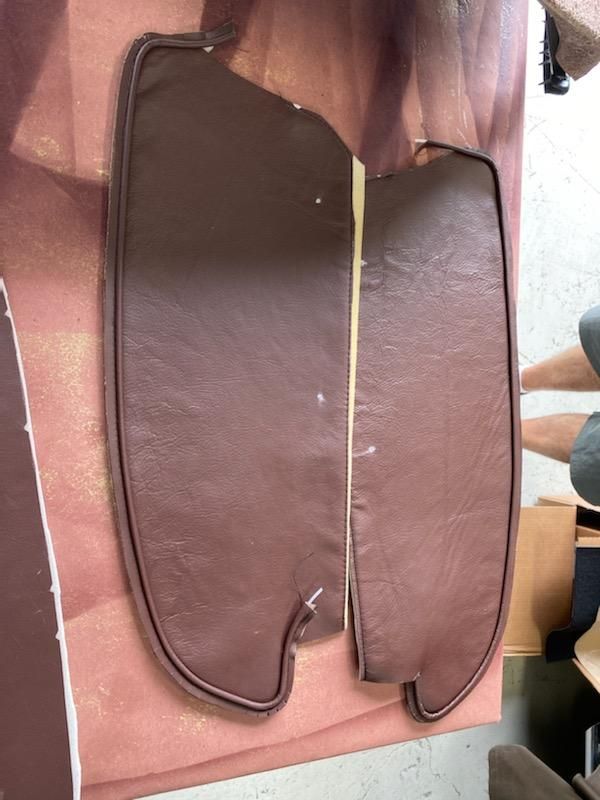
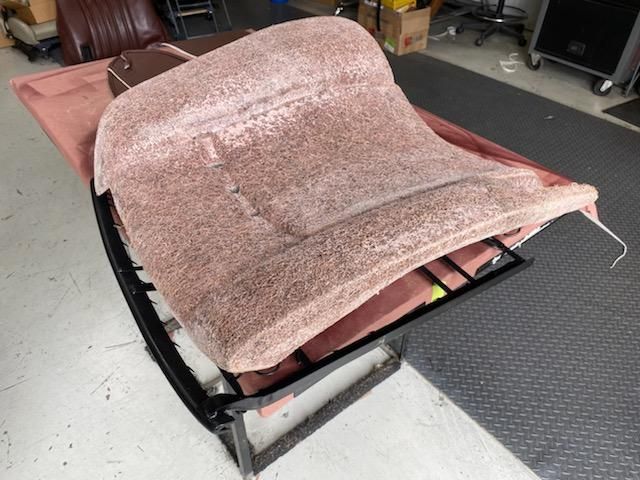
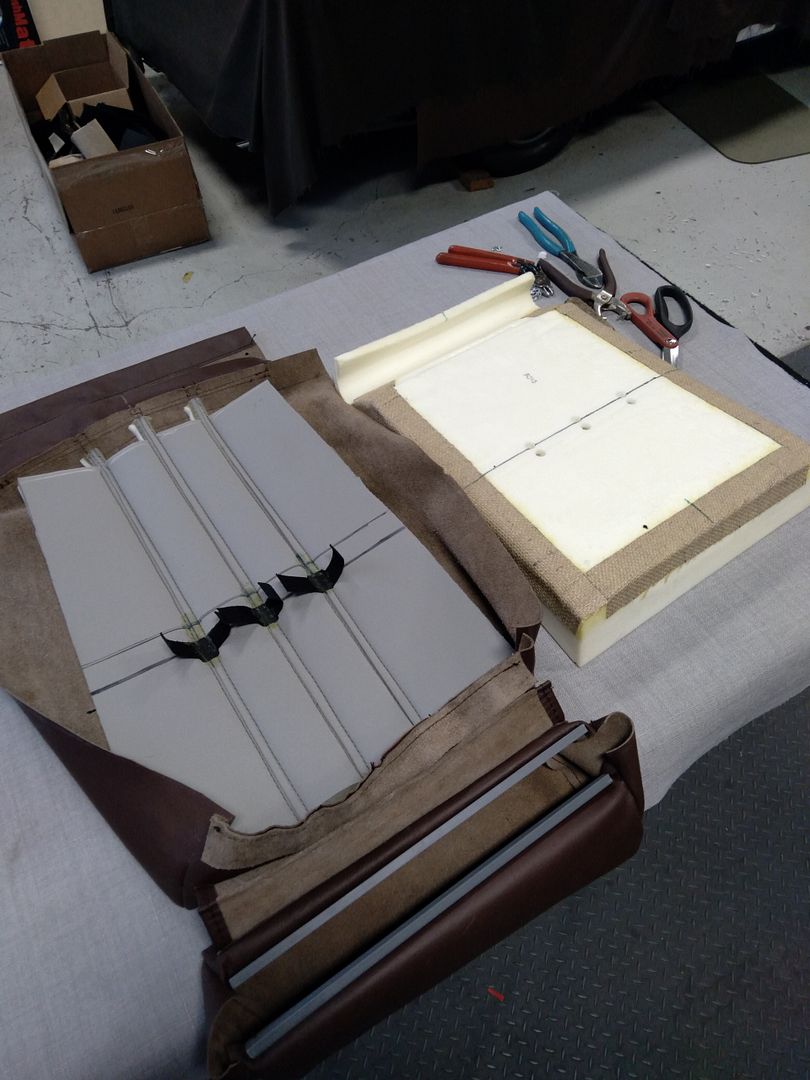
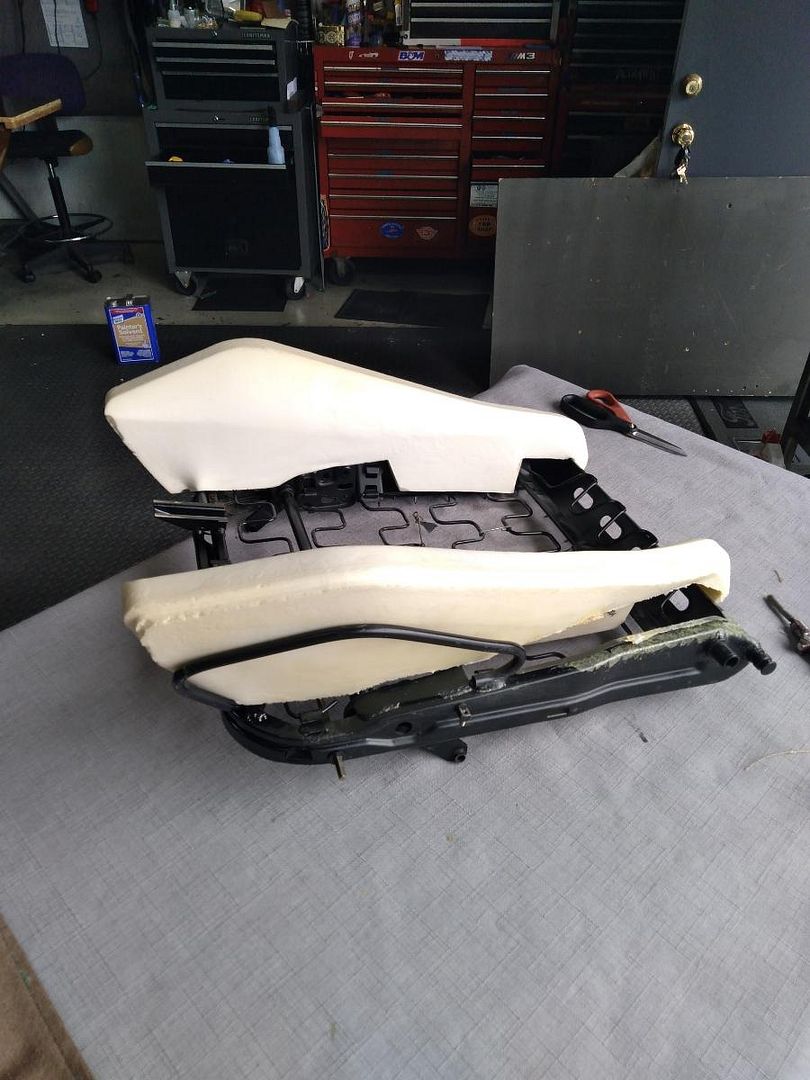
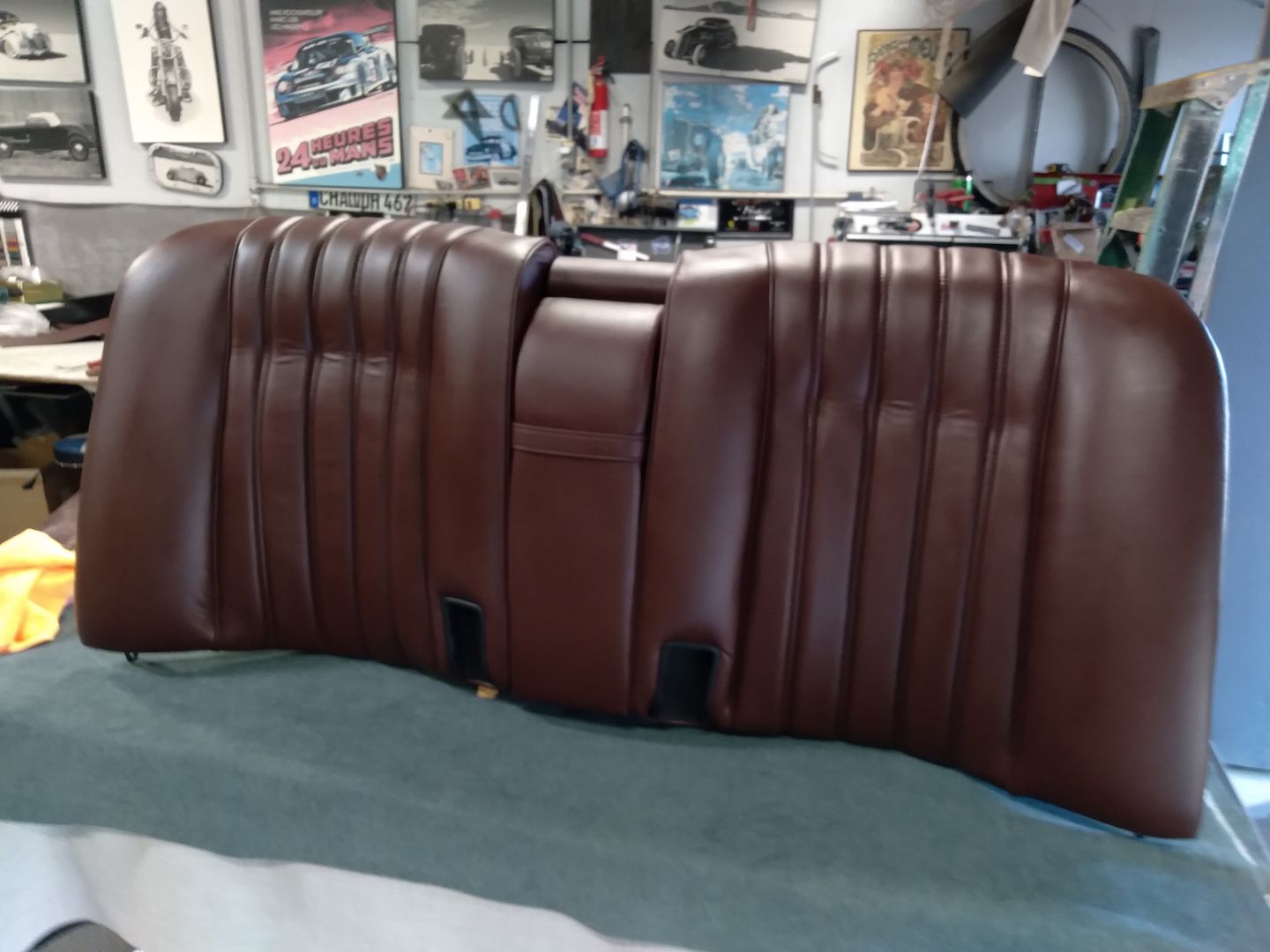
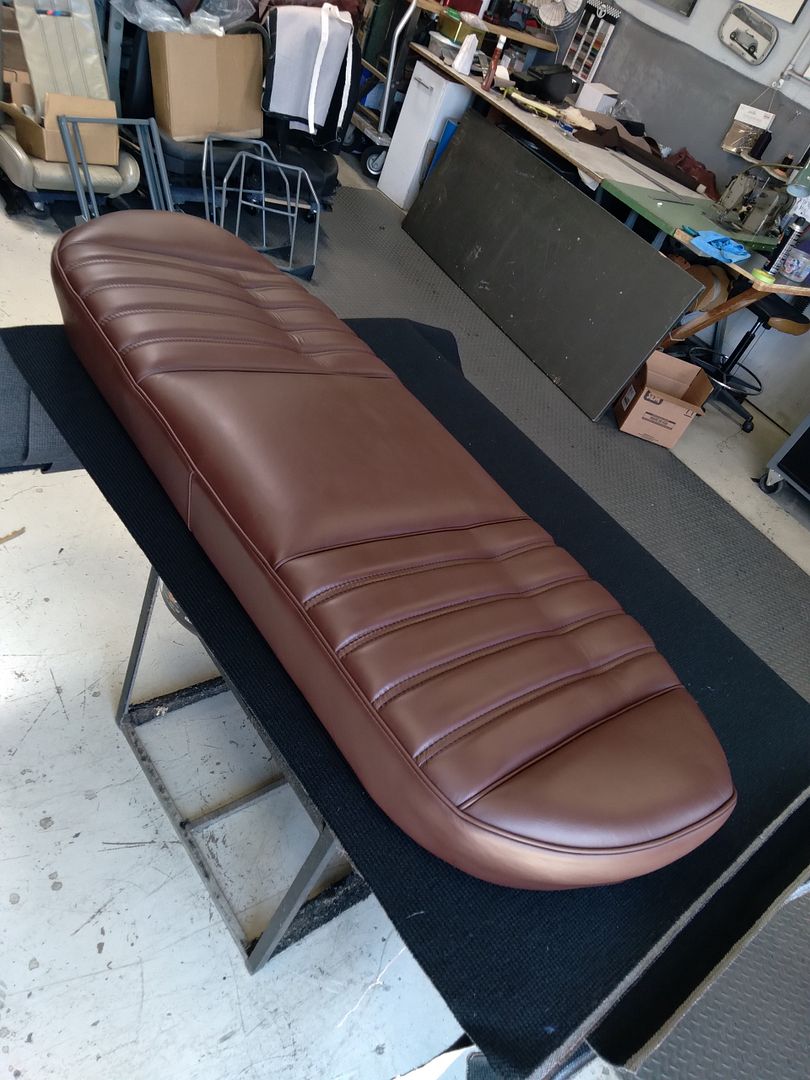
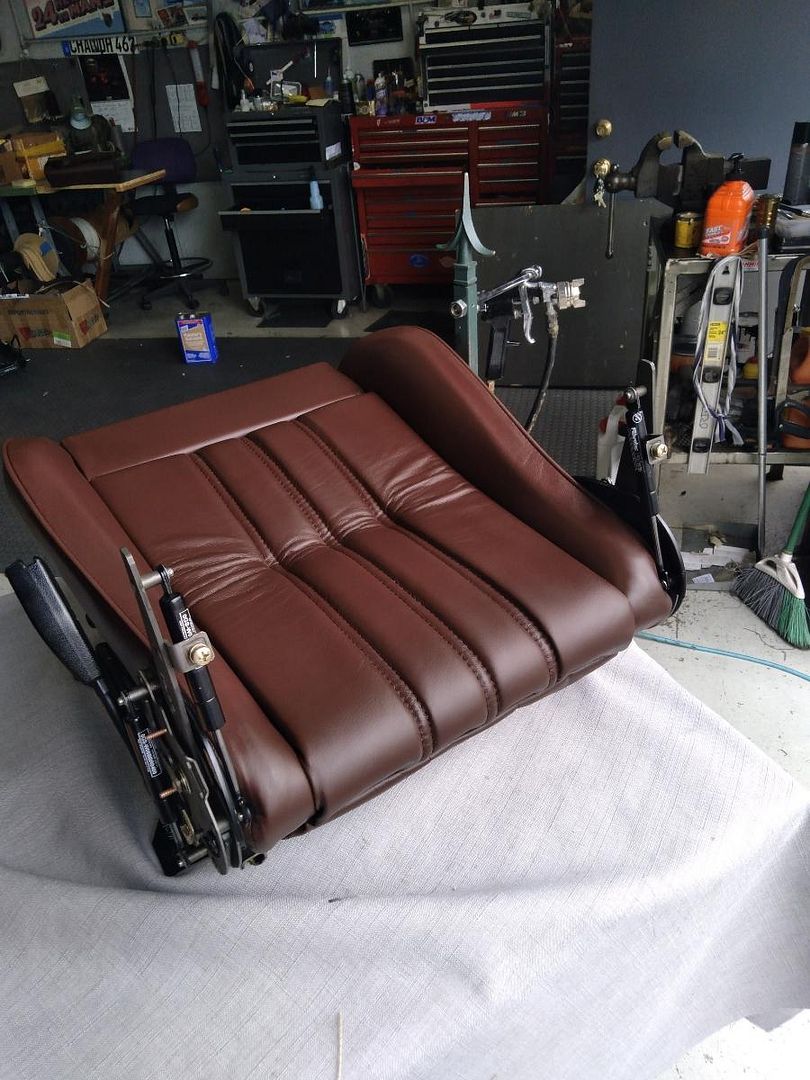
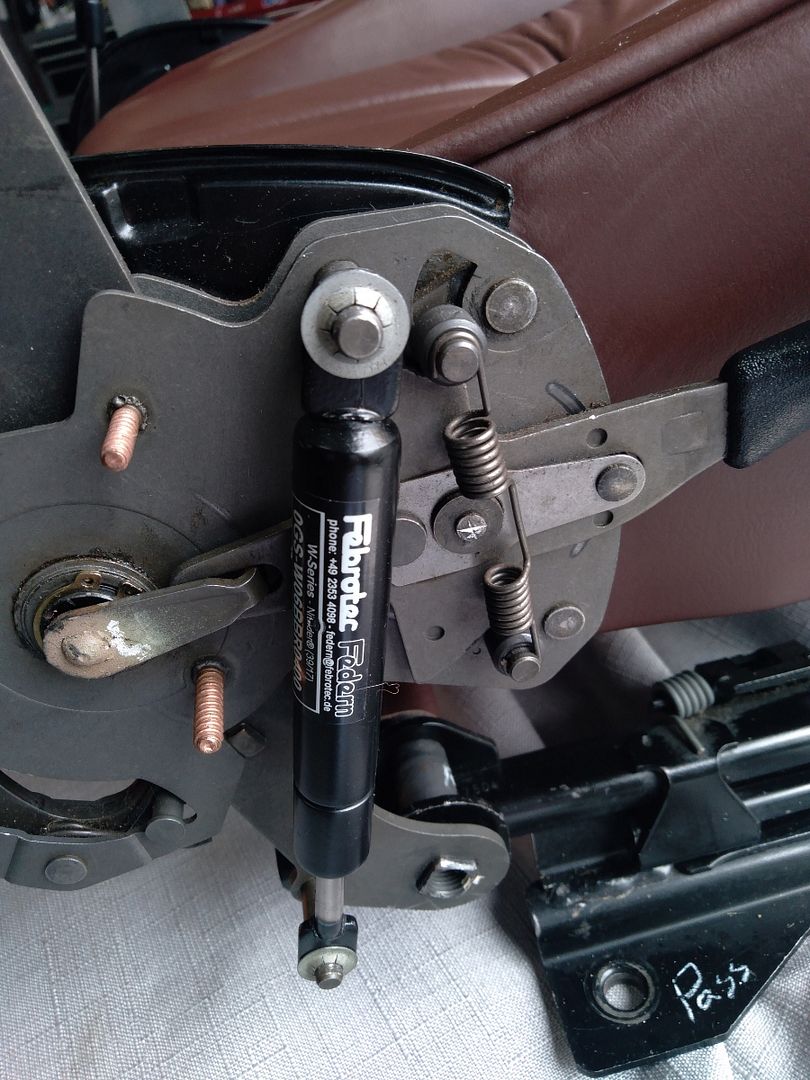
I haven’t seen any of this in person yet, but from the photos and knowing that Juan is a Master Craftsman and being familiar with his past work, I know it will be fantastic; of that I am guaranteed. There is a reason I chose Juan for this and was willing to pay the premium in cost and schedule since he is in high demand (he is booked likely through the rest of the year).
PART III: Floor & Carpet with Body Repairs
In the meantime, during the upholstery, I was supposed to get pretty much the rest of the interior done (sans the Headliner). Totally feasible since there were many weeks of potential down-time between what I anticipated the body shop’s schedule would be and the rest of the interiors I was doing. Well, that went sideways when the body shop (a friend of mine’s Porsche shop known for repairs and restorations) kept pushing me back. He was waiting for a concrete pour for his lifts in his new-to-him shop (his old one was razed to make way for apartment buildings). Without his lifts, his overall shop schedule for repairs was slowed which compounded everything.
PART V: Everything Else: HVAC Part 1
Before I could send the car off to the body shop, I had to strip out the rest of the interior and that included the dismantling and removal of the AC portion of the HVAC system. This is essential to get the carpet out in one piece but seeing as it was part of the overall project, it was on the list Anyway. Along with the carpet was the rest of the OEM foam padding on the floor (my original PB carpet was the unbacked earlier version while the Anthracit replacement is the newer backed one). I tried to salvage as much of the padding as I could in case I want/need to reuse some, but there wasn’t much left on the driver’s floor side due to an earlier hydraulic leak. Since I was not removing the Heater Core yet (I have to shuttle the car back and forth between the shops still so I decided not to disturb the Cooling system at this time), I cut out the padding around the Heater Box as best I could and will get the remainder later.
Here is all that removal. I didn’t take as many photos as I thought I did for the removal of the AC and center console (classic error I always seem to do; it WILL come and bite me in the ass later for sure):
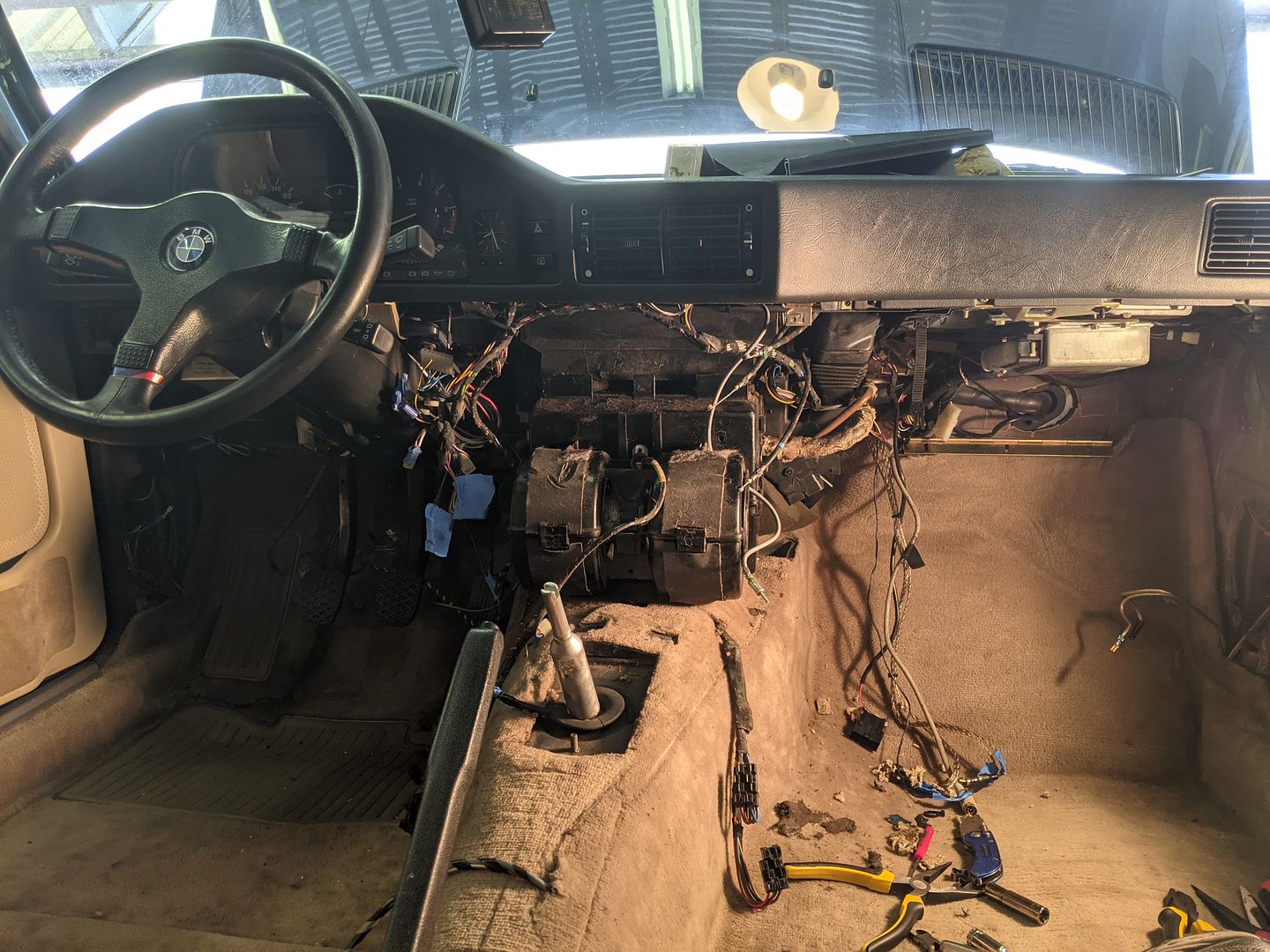
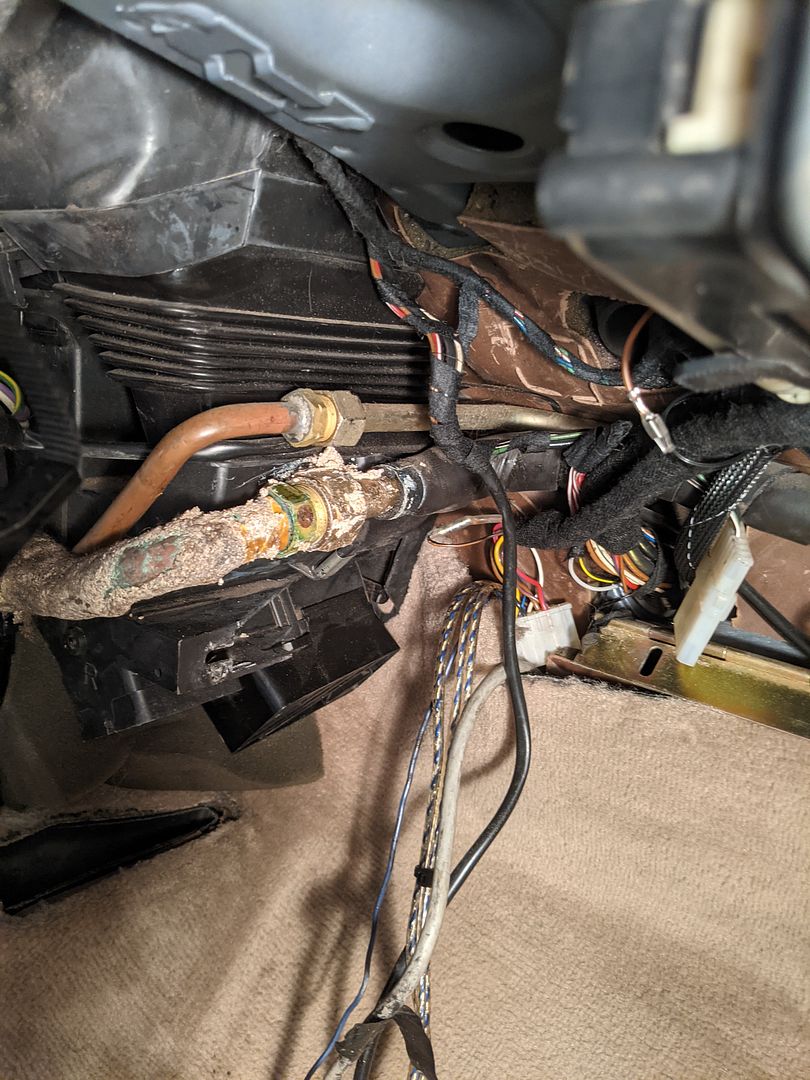
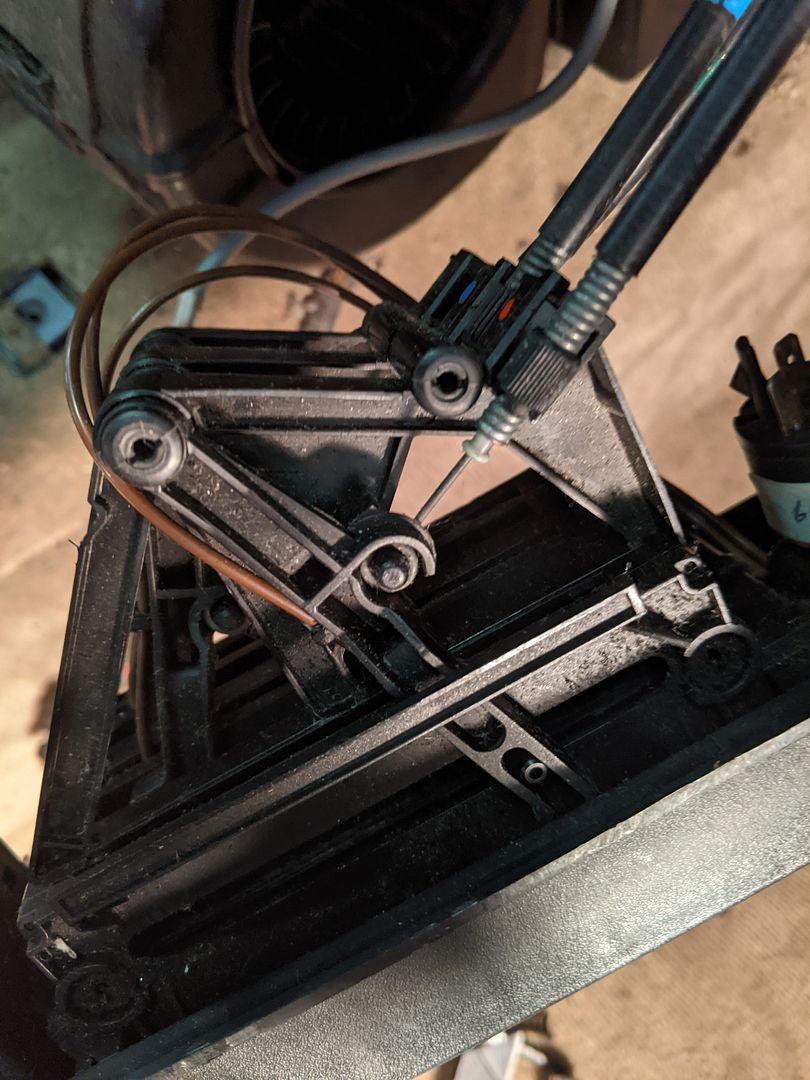
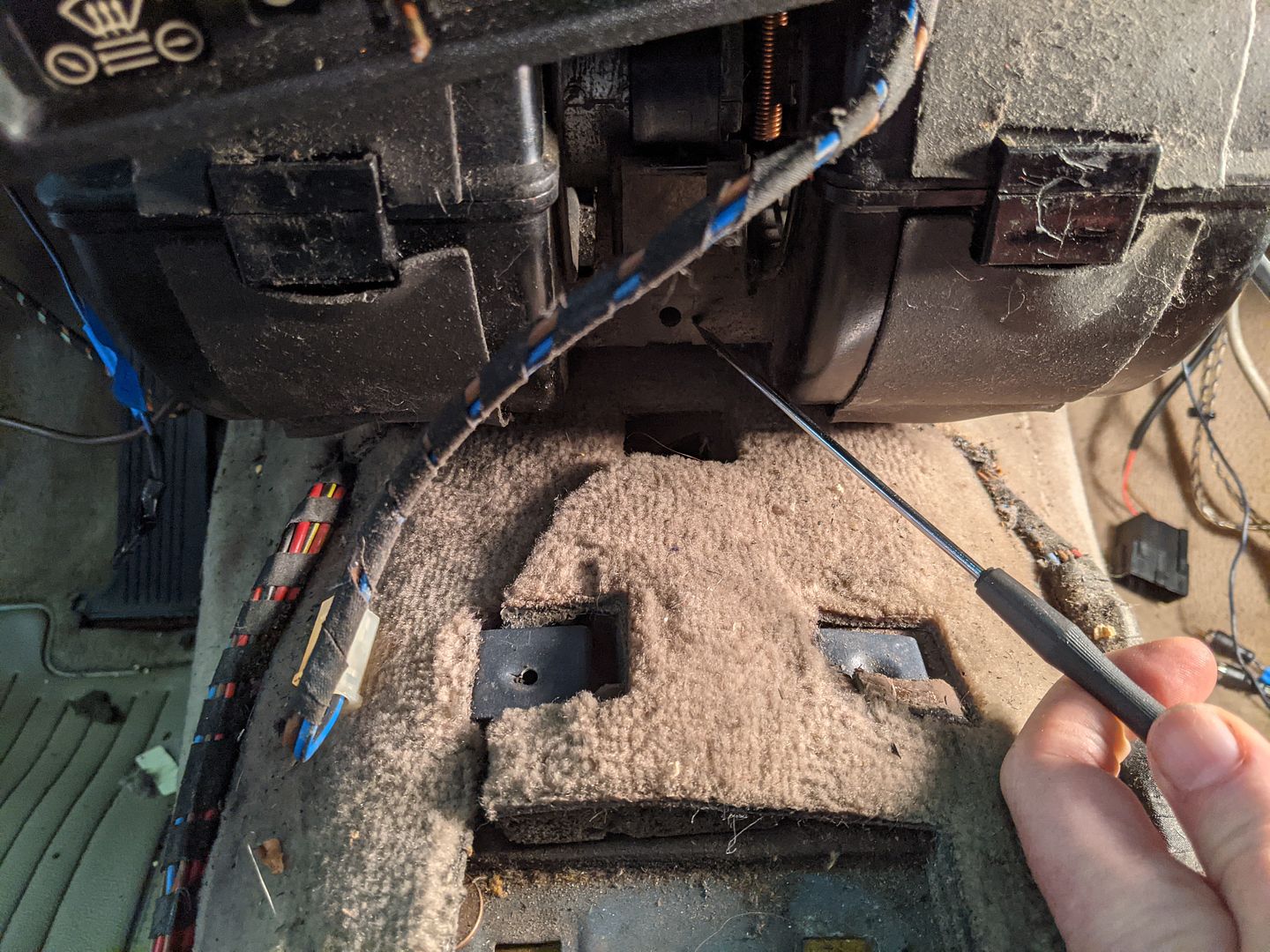
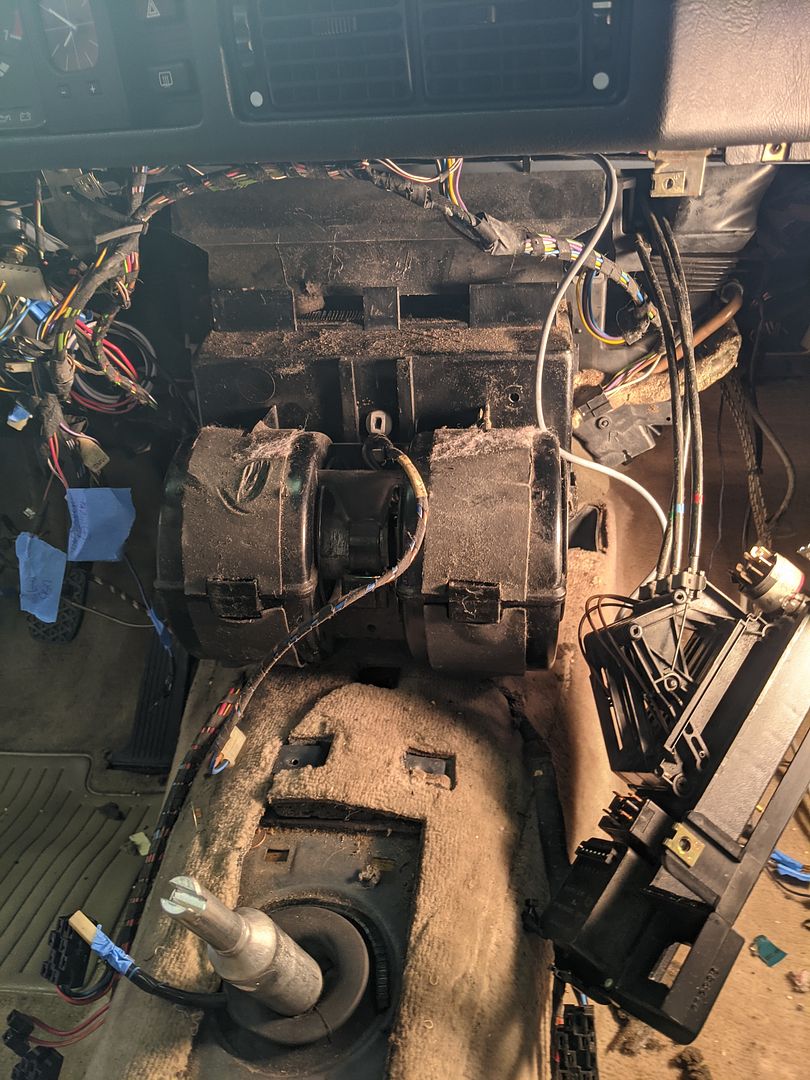
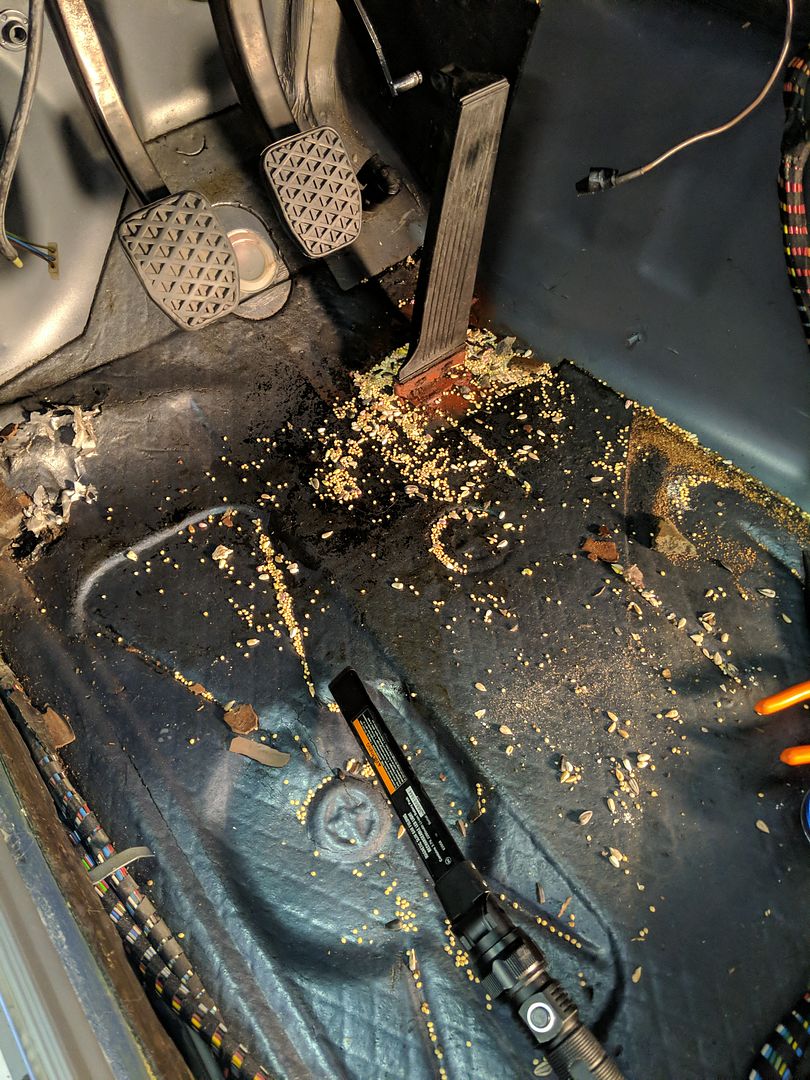
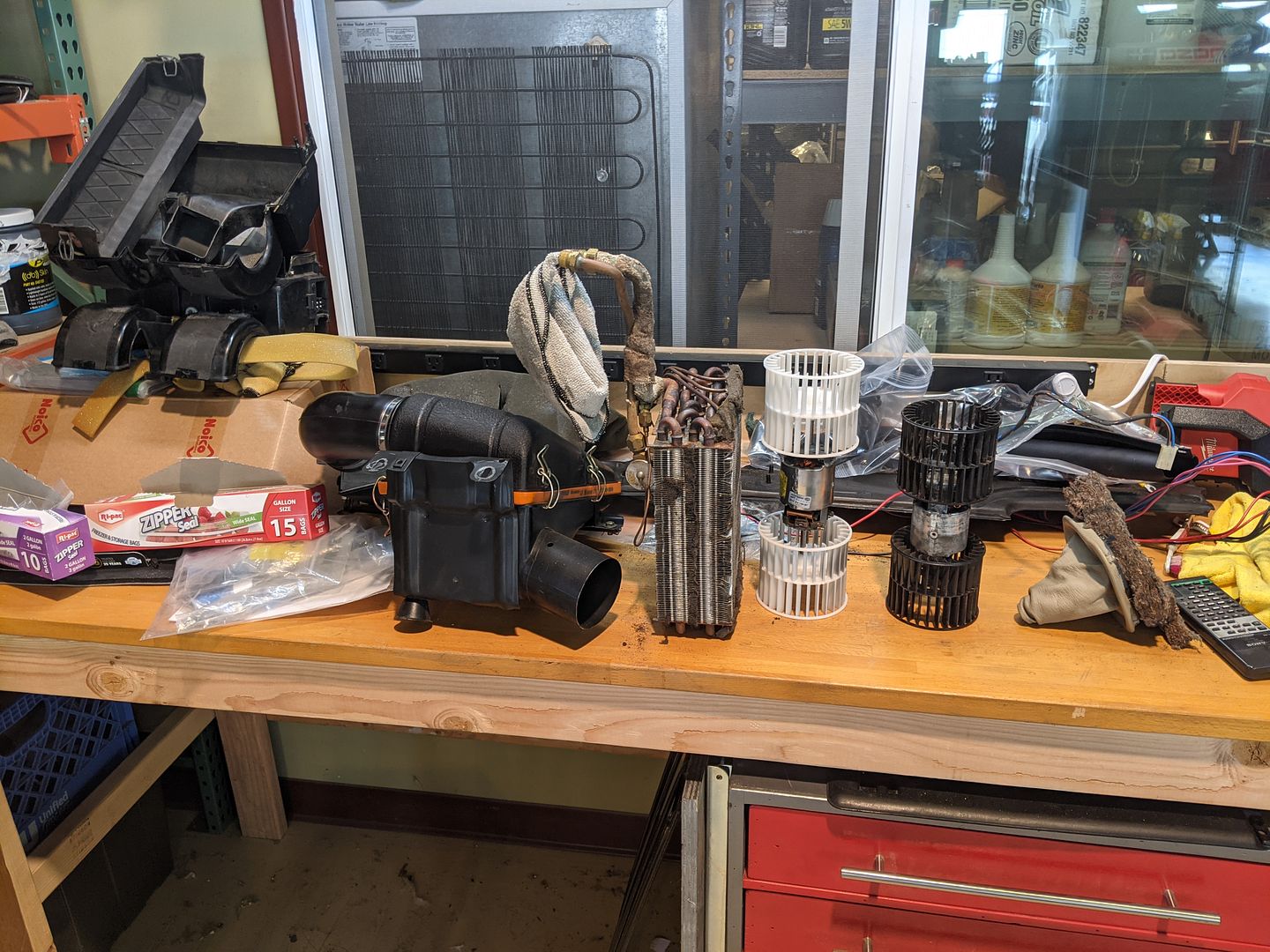
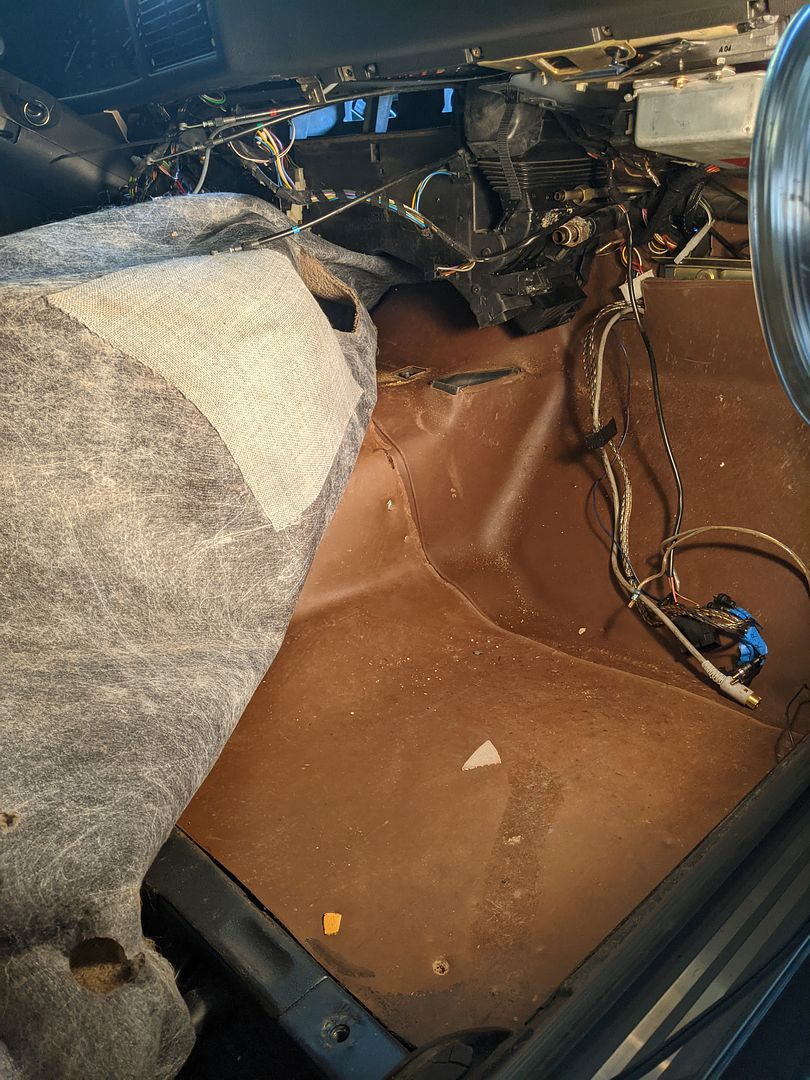
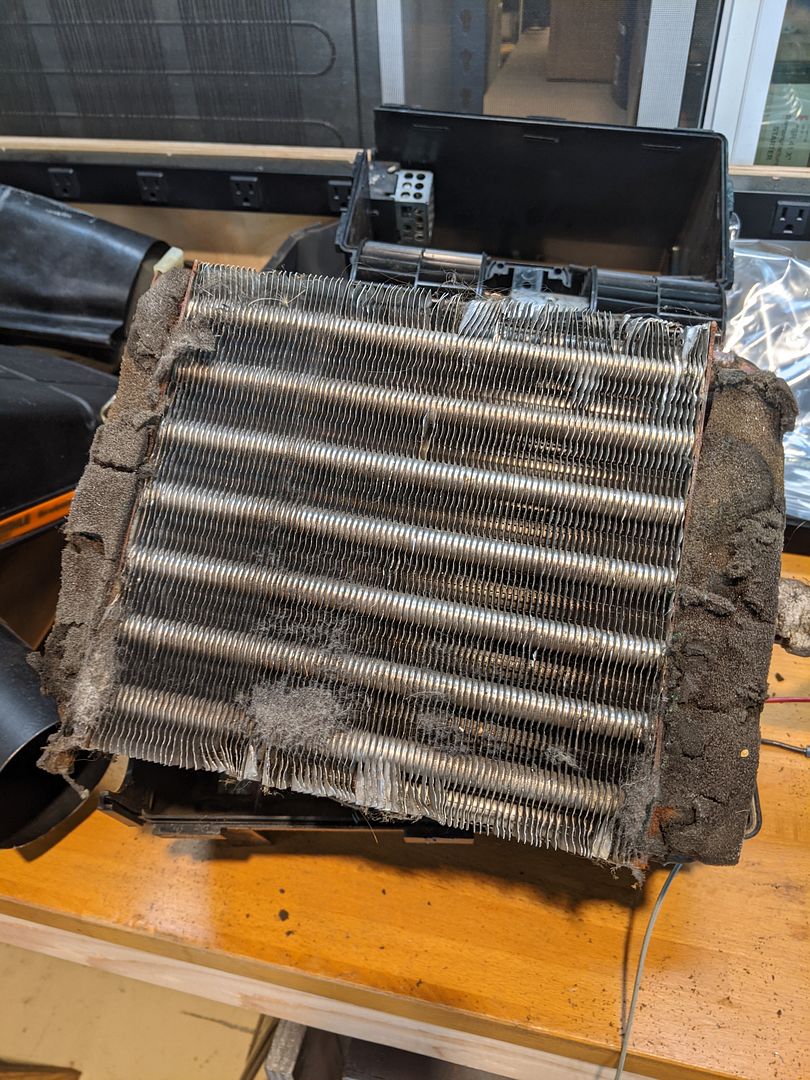
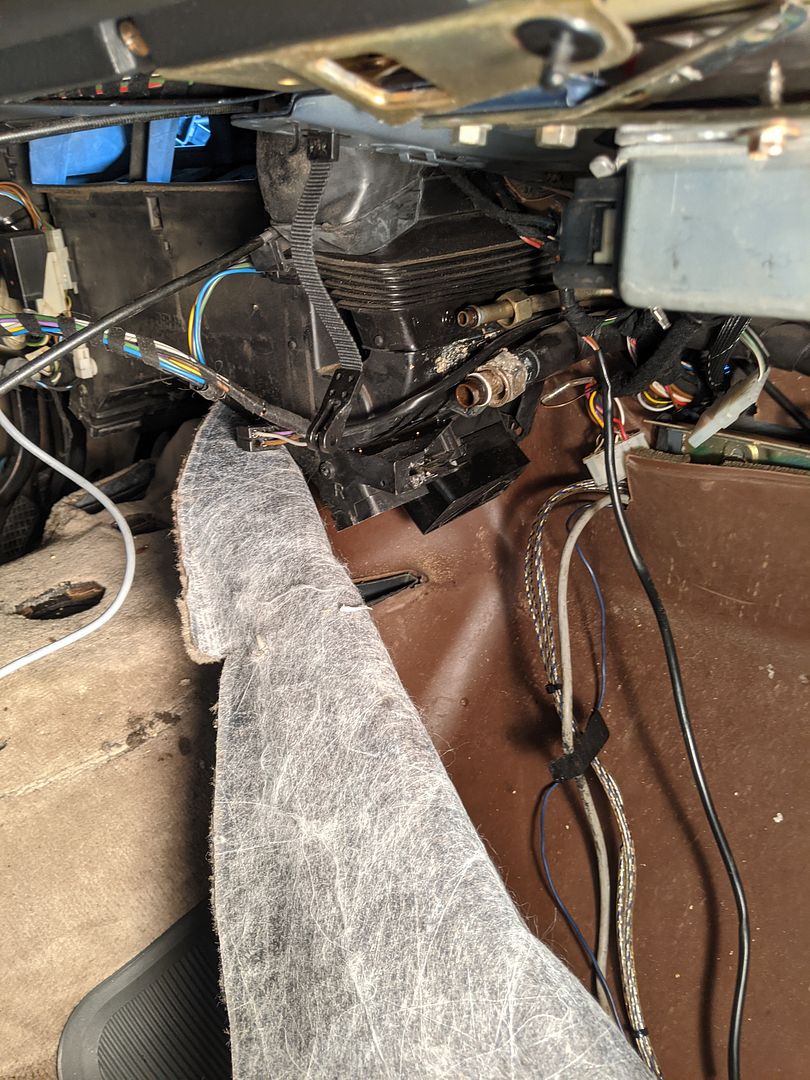
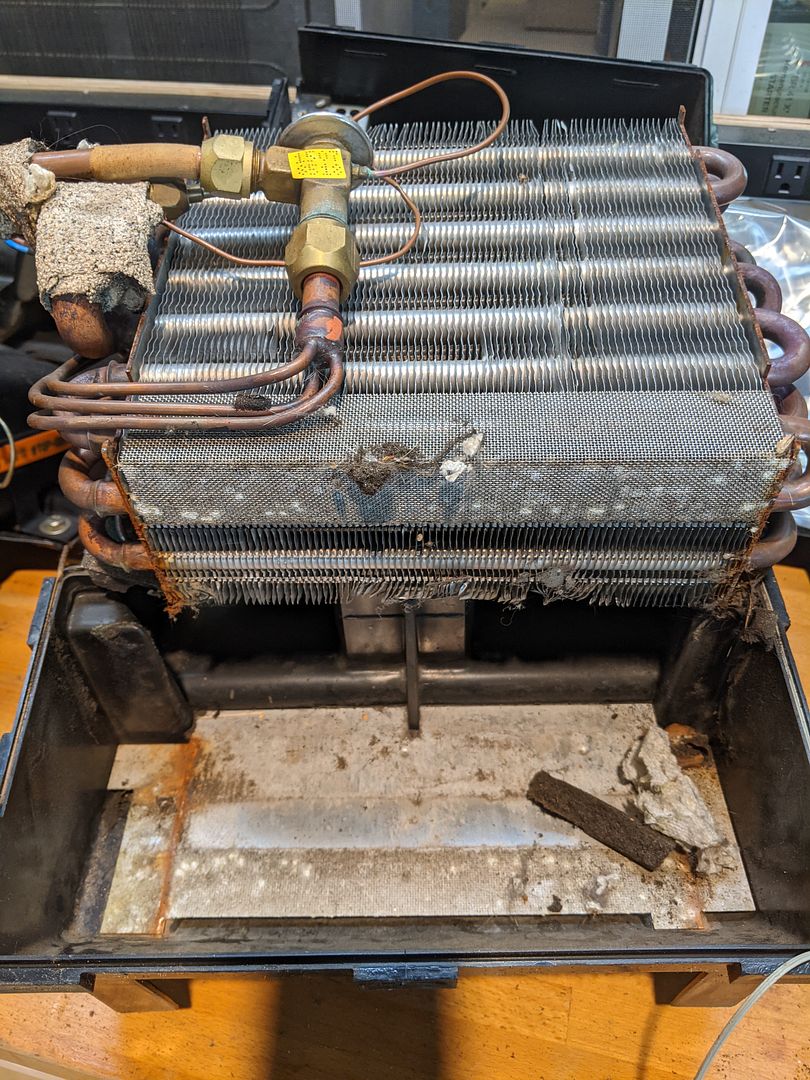
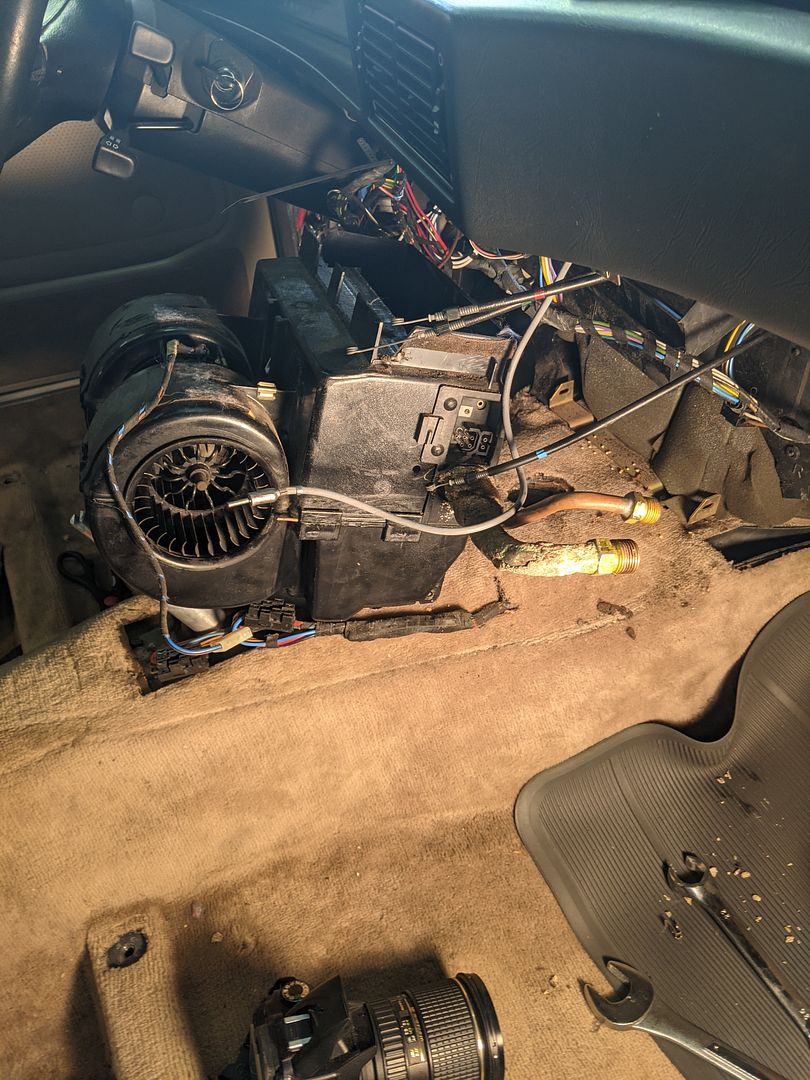
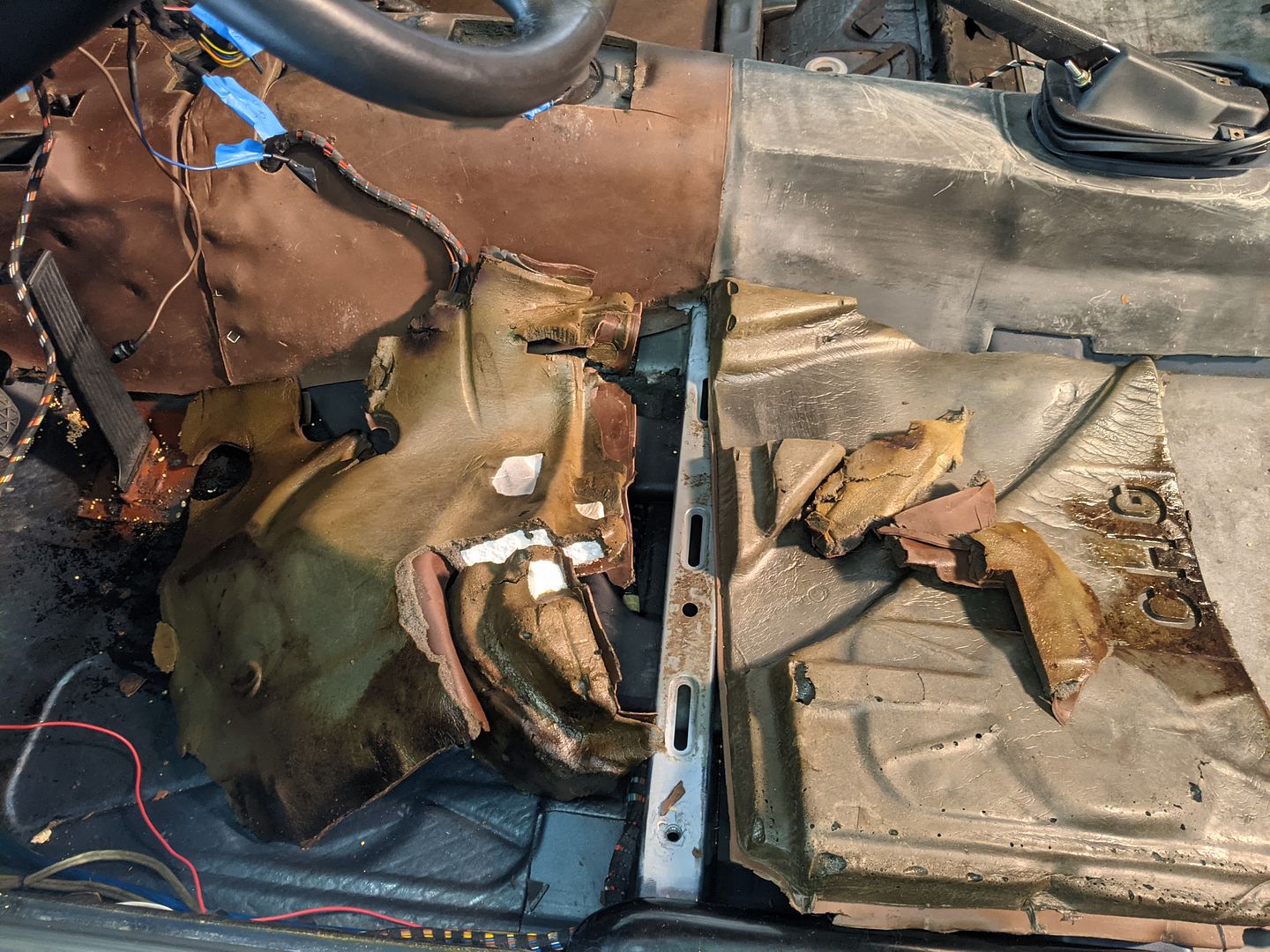
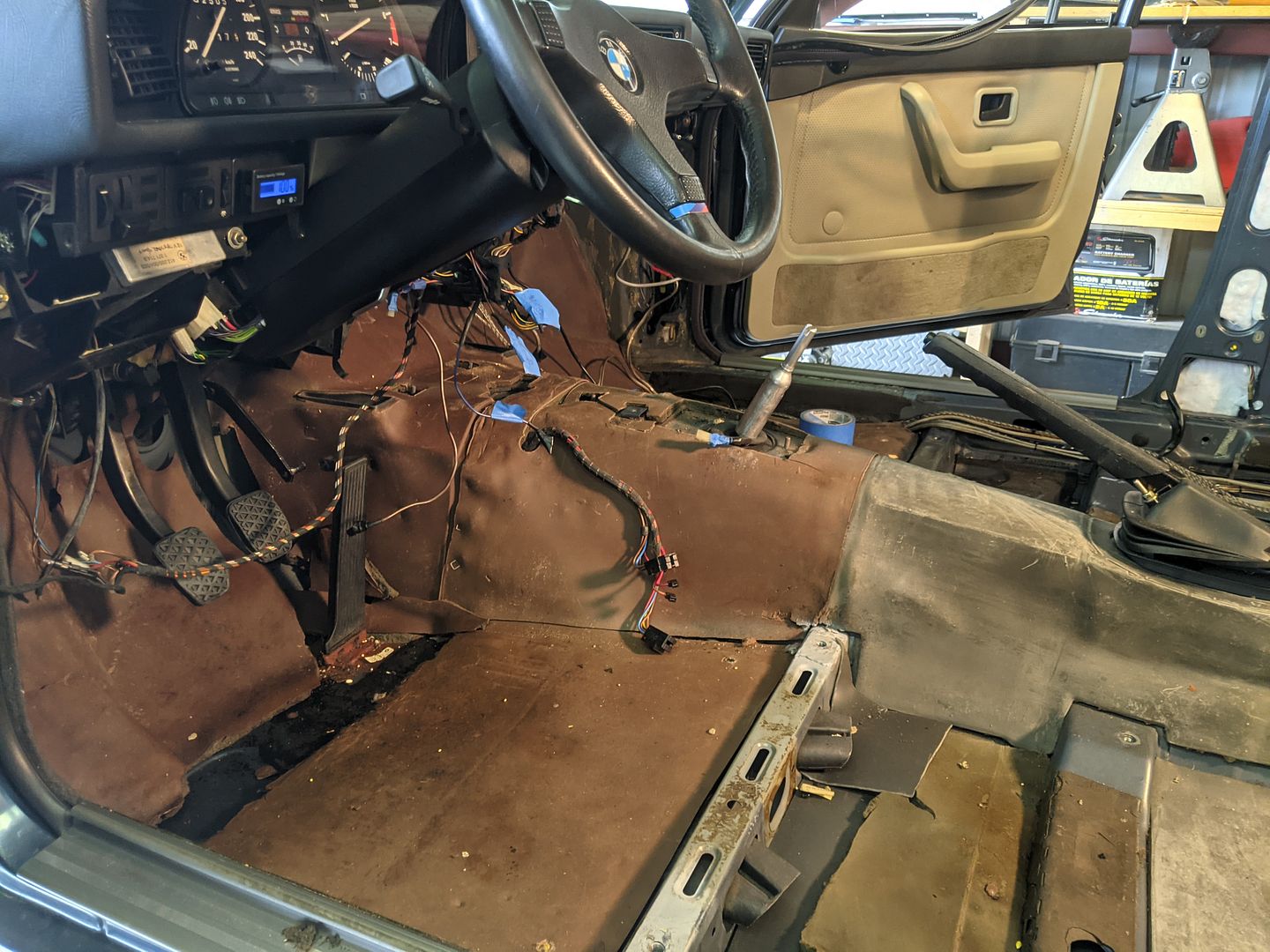
What's with the birdseed you ask? Funny (and irritating) story about that. Since I bought this car 10 years ago birdseed has always been dropping out of the HVAC system a little bit at at time; usually at the most inopportune time like before judging at a car show. Any time I turned on a blower, seeds would hit my feet. Someone at some point must have dropped a 10lb bag of birdseed in the upper dash vent (best as I can figure) and it's been falling out like quarters from a loose slot machine ever since. Well, when I went at it this time a lot rained down just to prove there's still a lot left over up there somewhere. It wasn't in the AC box so my guess is it's in the Heater box. I'm hoping for a big pay-out when I pull that out.
I also decided to try to remedy this situation:
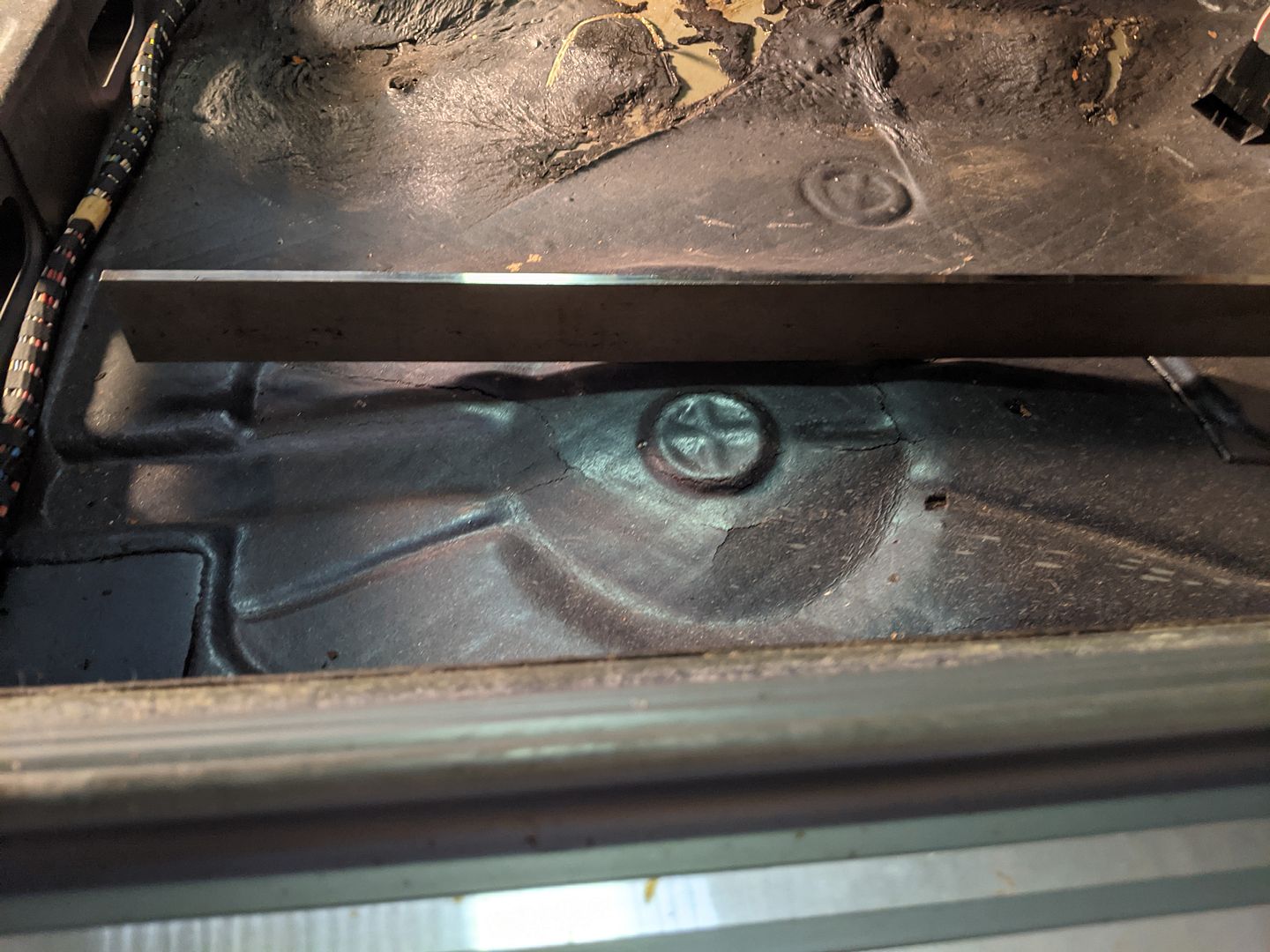
Seems someone before me tried to use the floor to jack the car up (both sides had this issue). I managed to pound it back down closer to original and Doug was going to have to get the rest of it there.
I’m not sure I want to know what happened here:
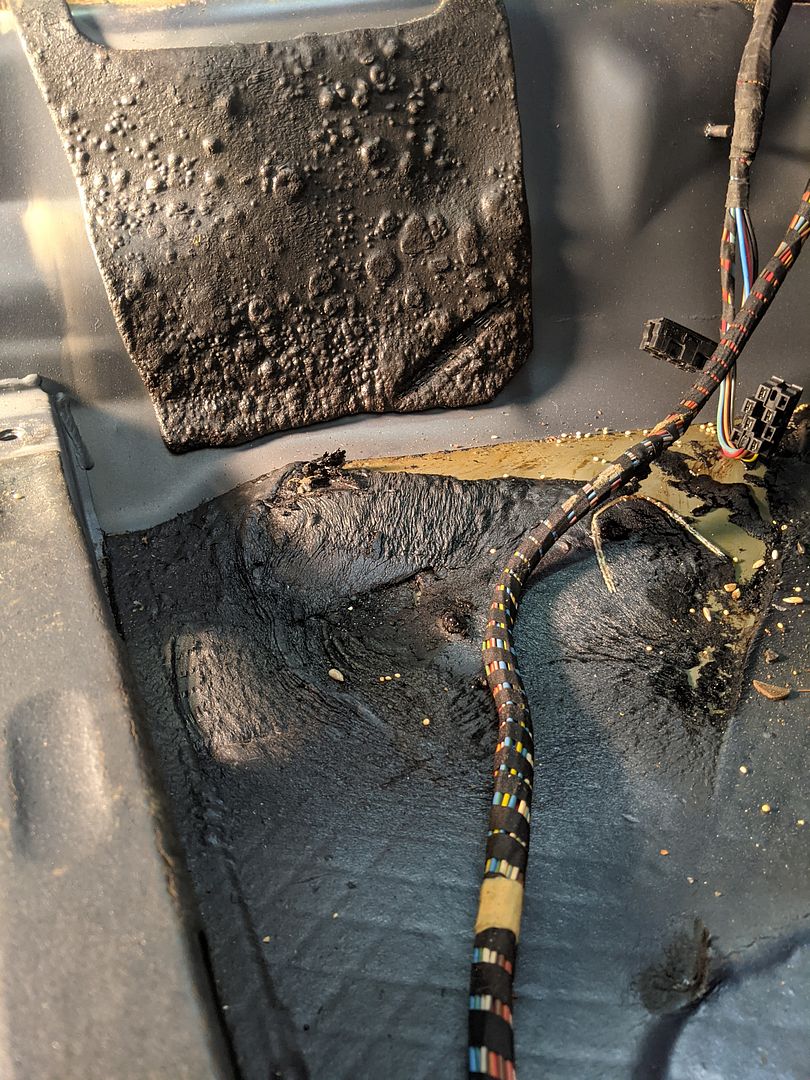
So back in went the temp seat and gear shifter and it was ready to send off to the body shop. That was until he had me wait. And wait. And wait…
After at least 4 weeks of punting me, I took the car in for the repairs on June 6th for what I thought was going to be 1.5 weeks. As Doug (the shop owner) got into to the repairs (and hampered by not having a lift), that 1.5 weeks turned into 3.5.
Here is what his scope of work was/is:
-Replace the two front corner floorboards with two grafts from another E28 (replacing rusted out portions, injuries sustained from its’ former life in the Northeast)
-Install a panel over the hole in the Rear Bulkhead (someone’s hack subwoofer install) from another E28 graft
-Repair/Replace damaged Lower Rocker Panel pieces at the jack points (rust and body damage also from its’ former life and bad jacking methods)
-Replace the Accelerator Pedal floor mount
This is what he started with:
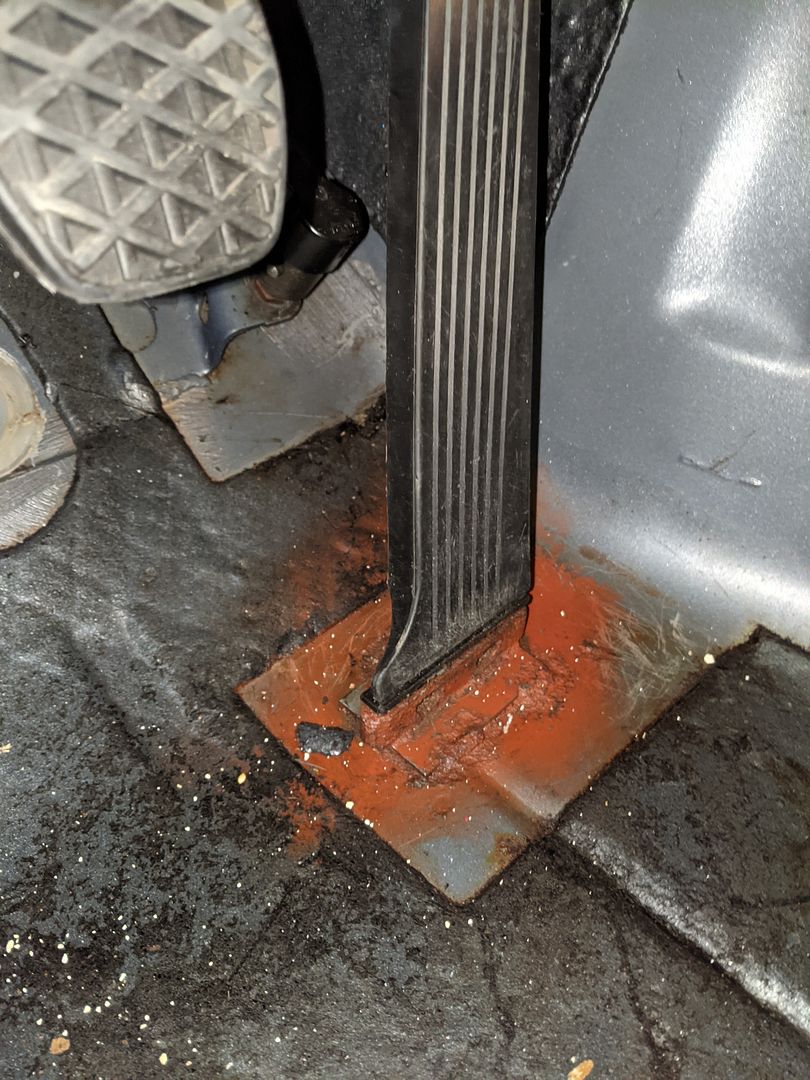
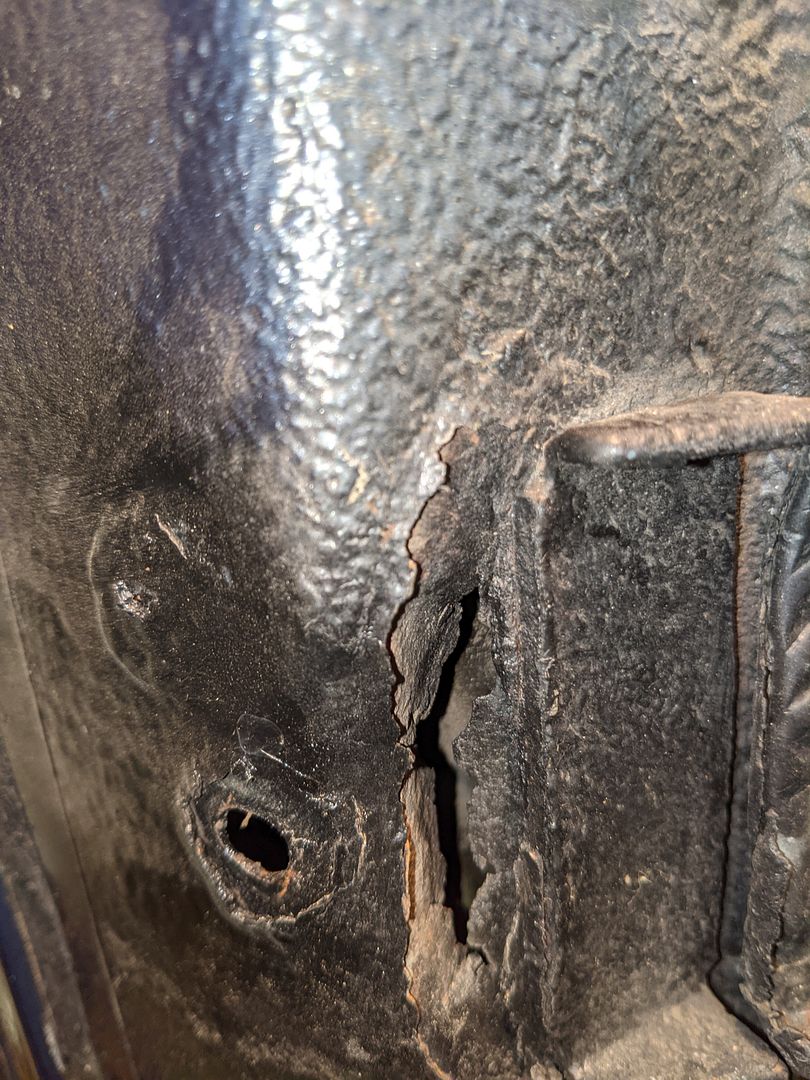
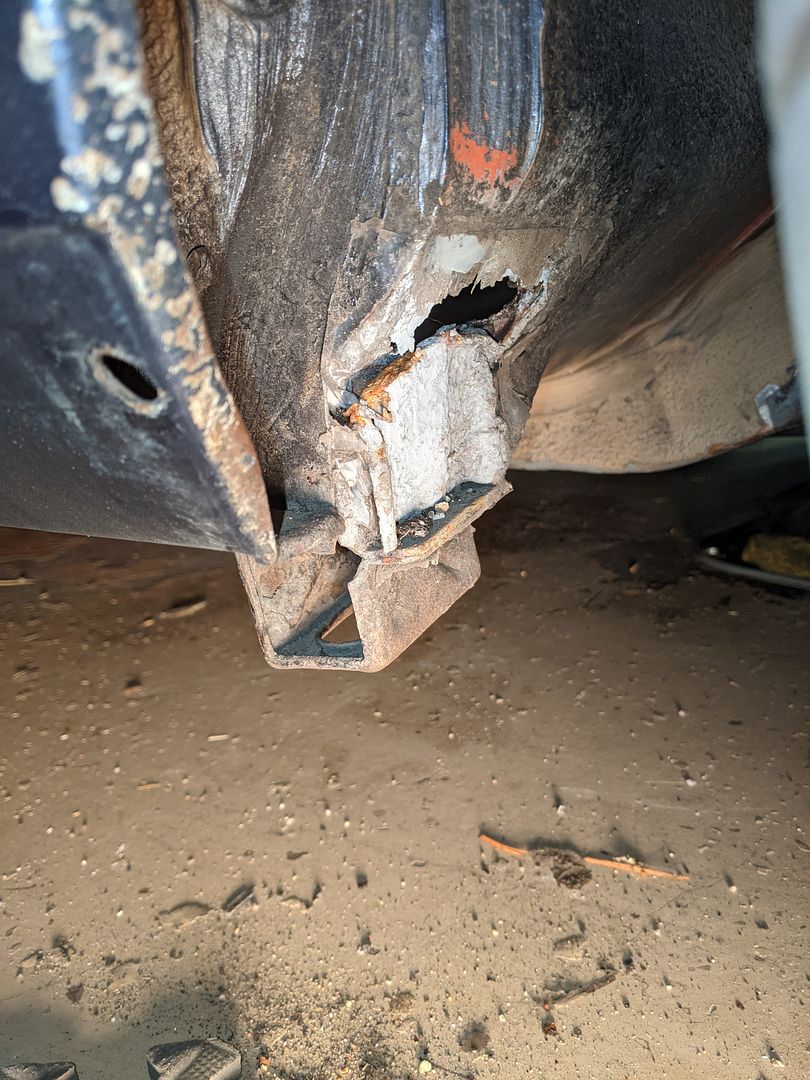
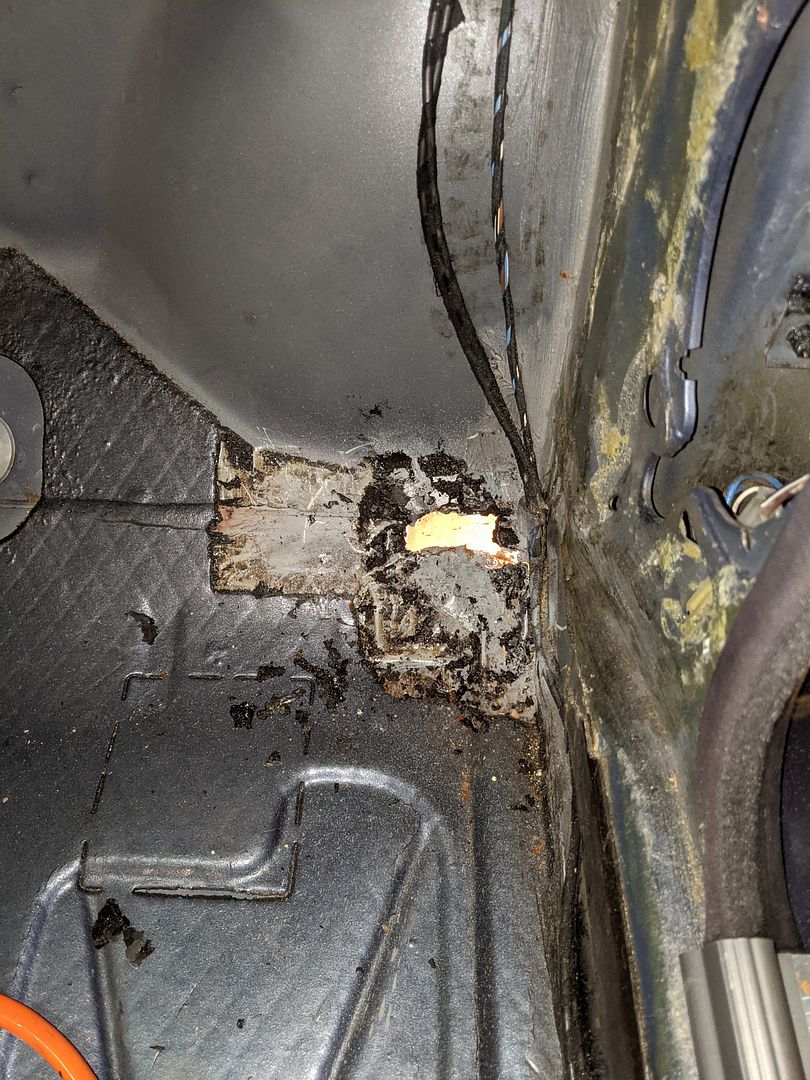
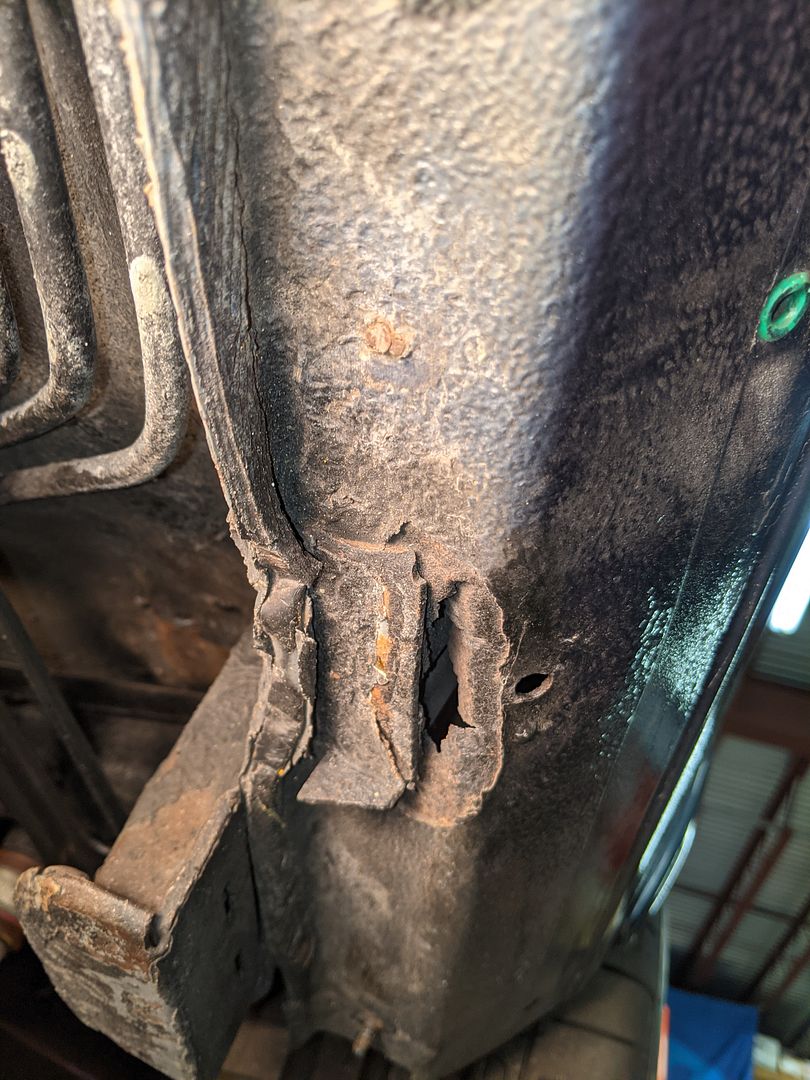
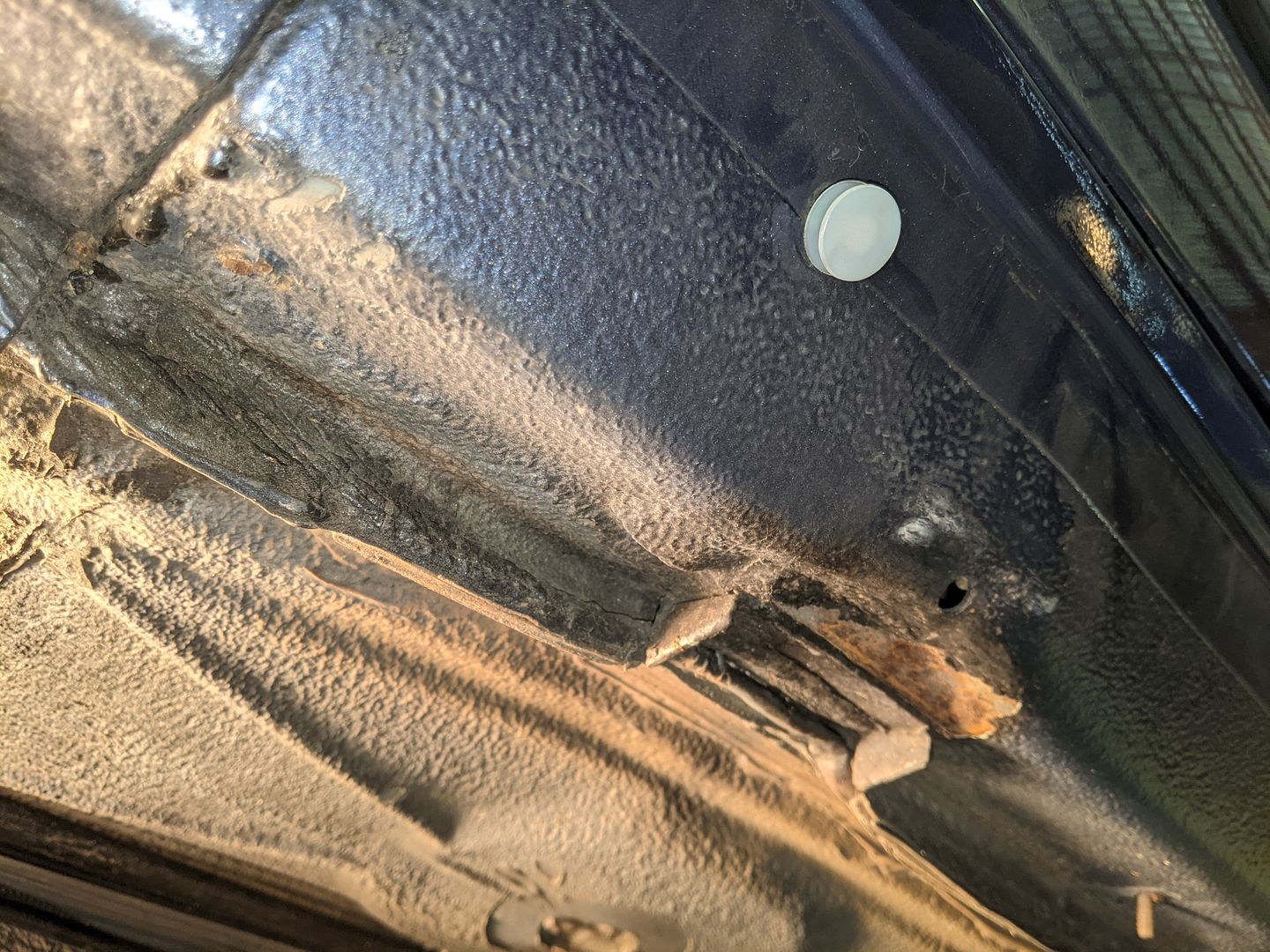
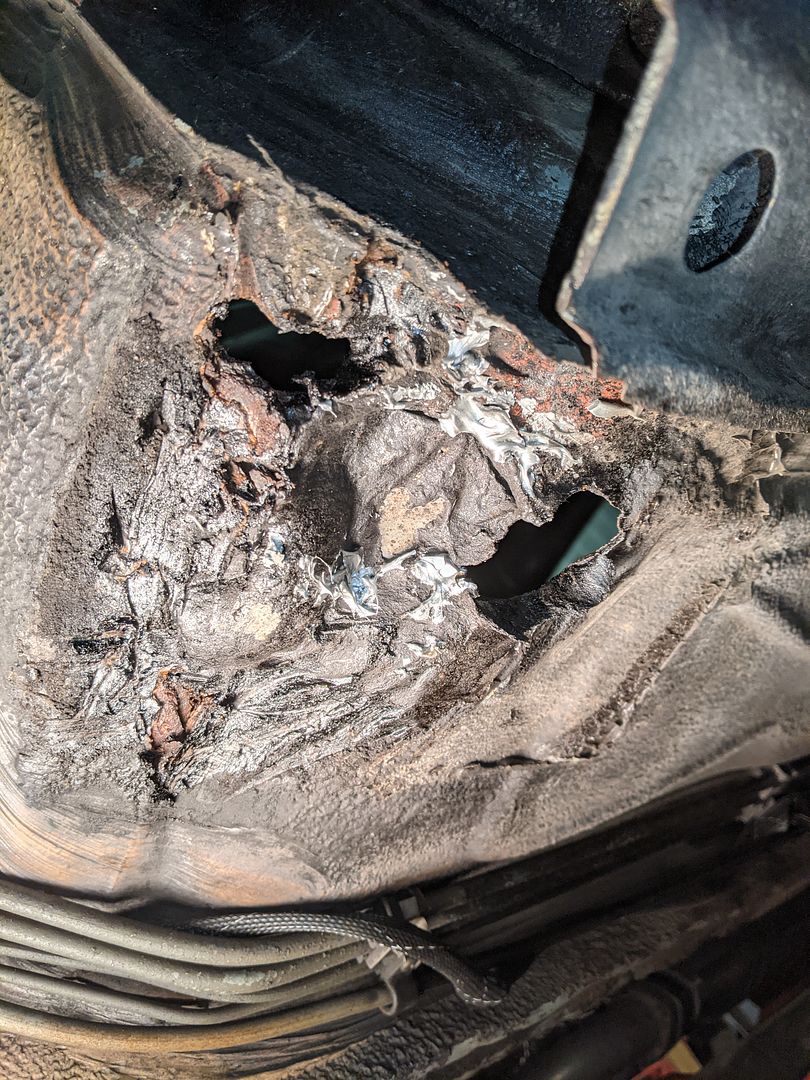
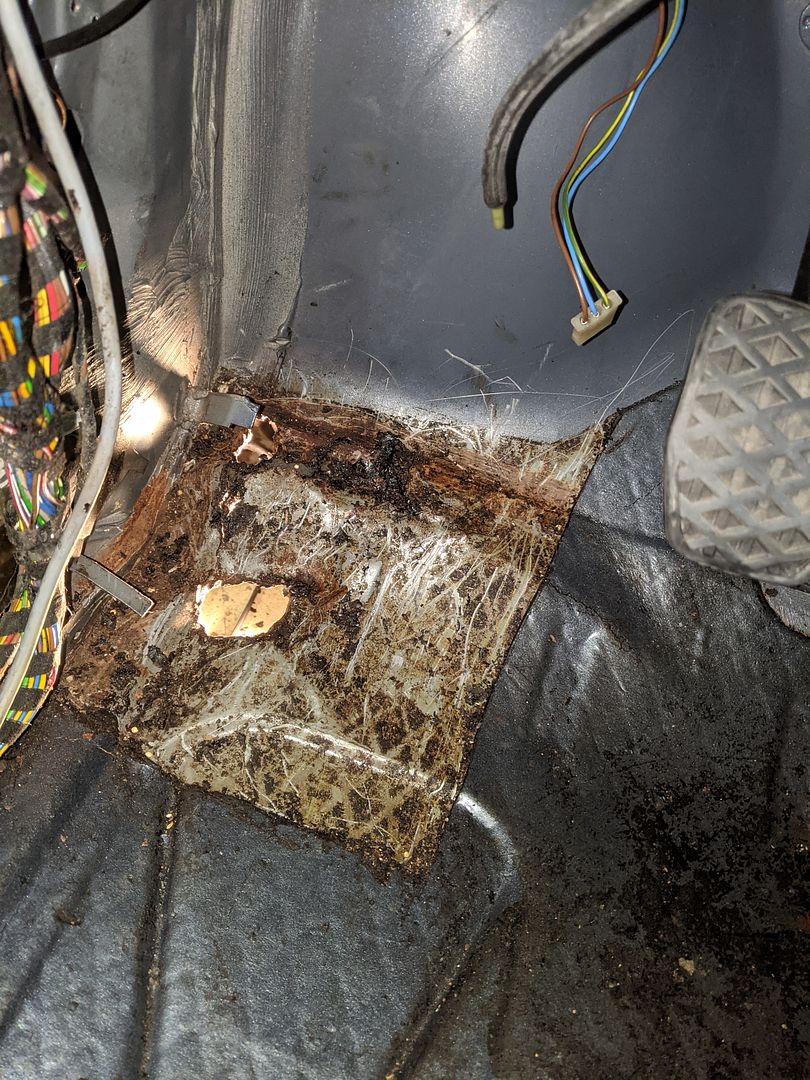
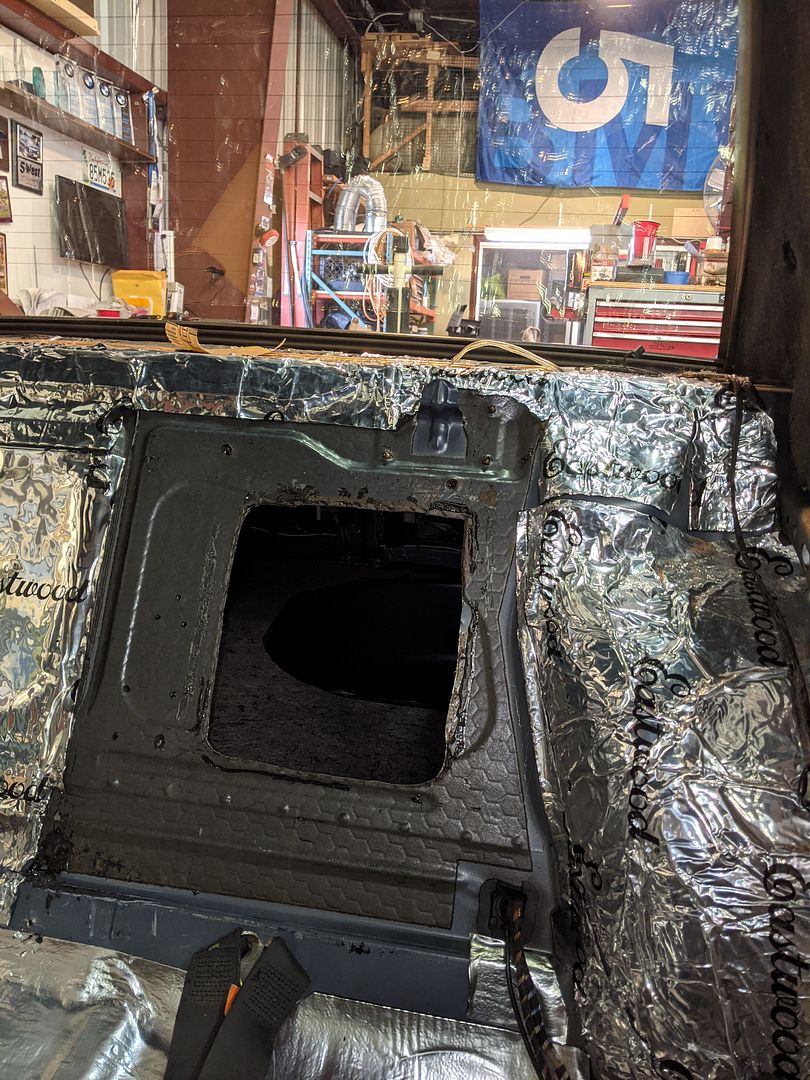
And this was his process and result:
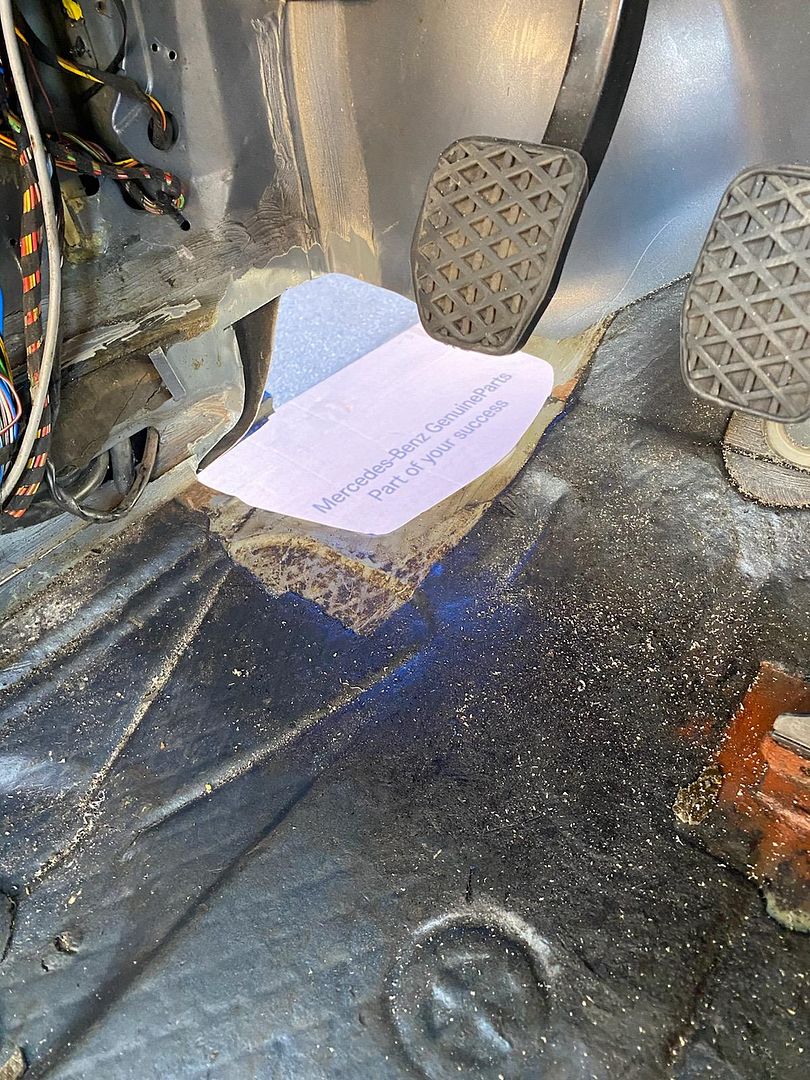
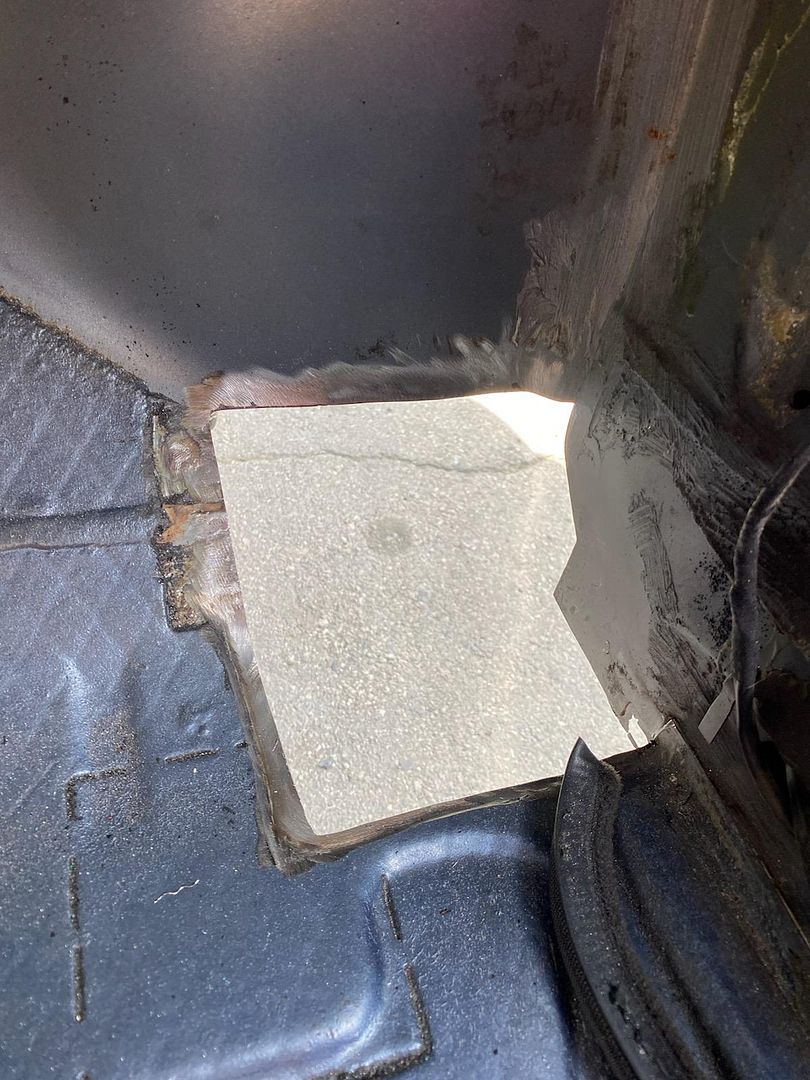
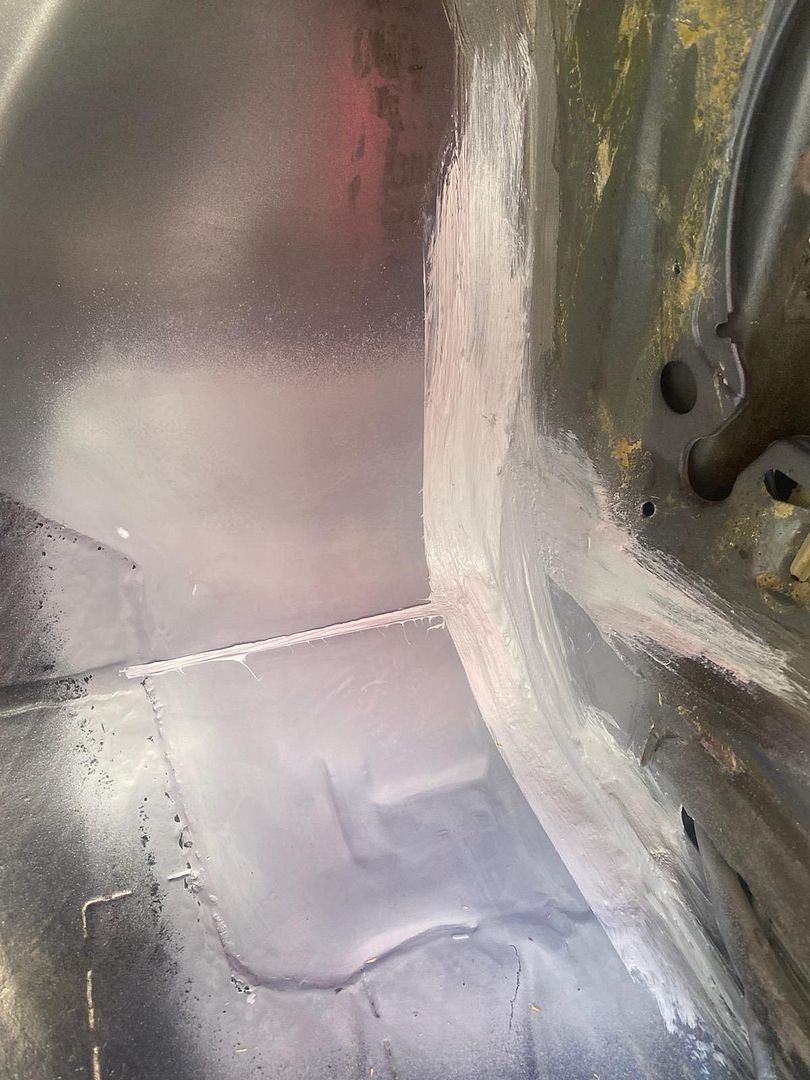
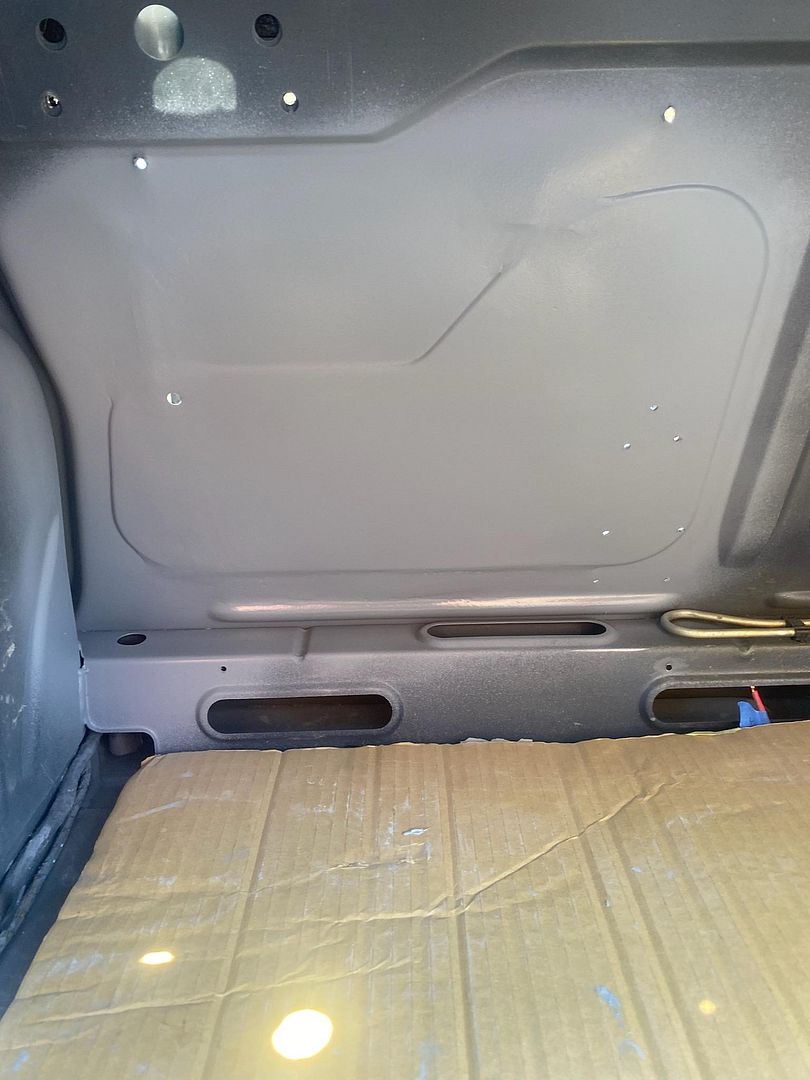
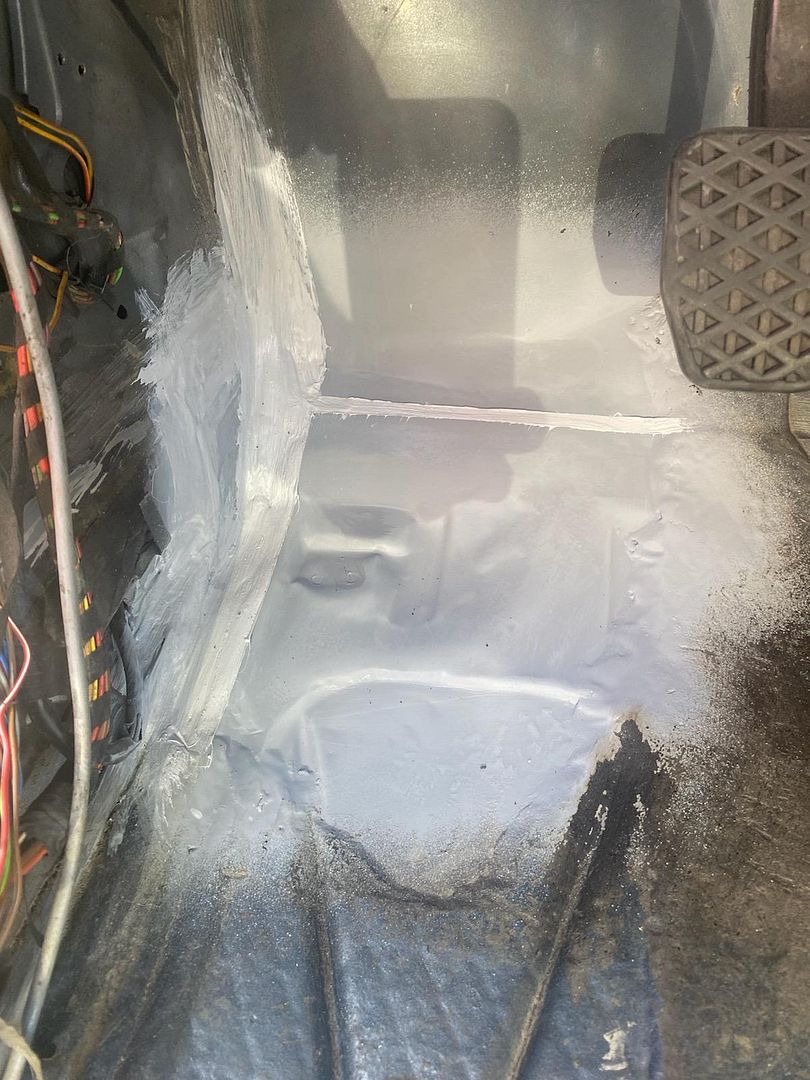
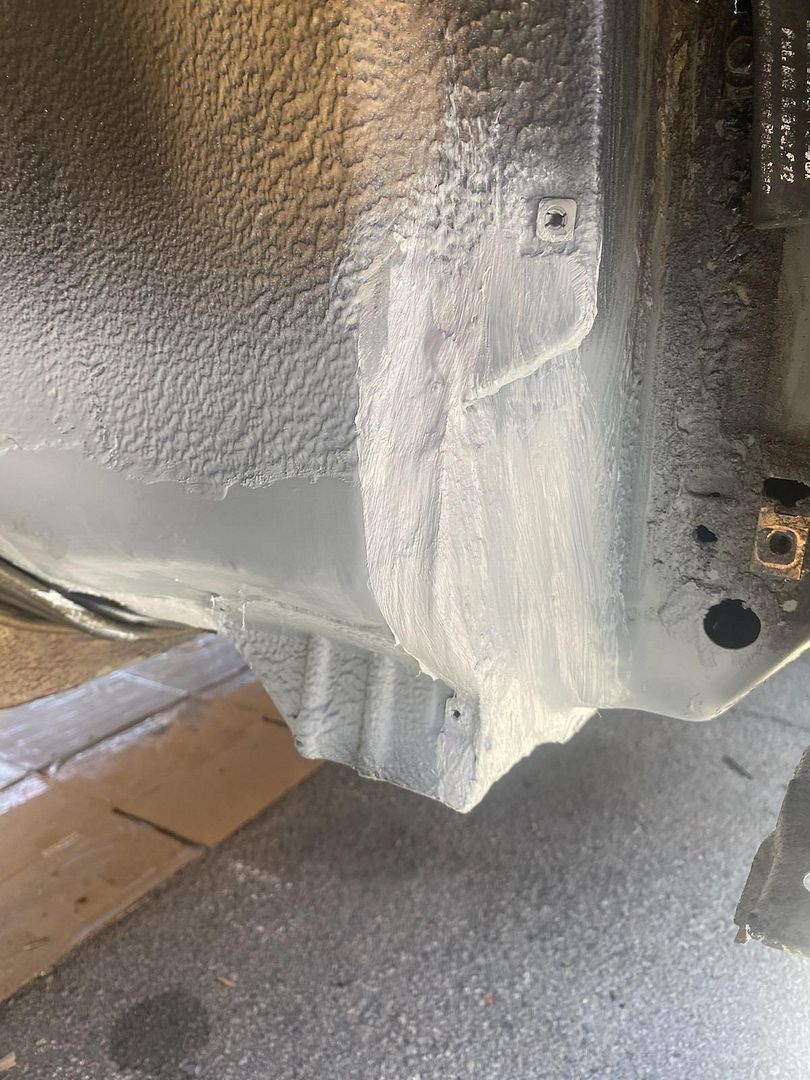
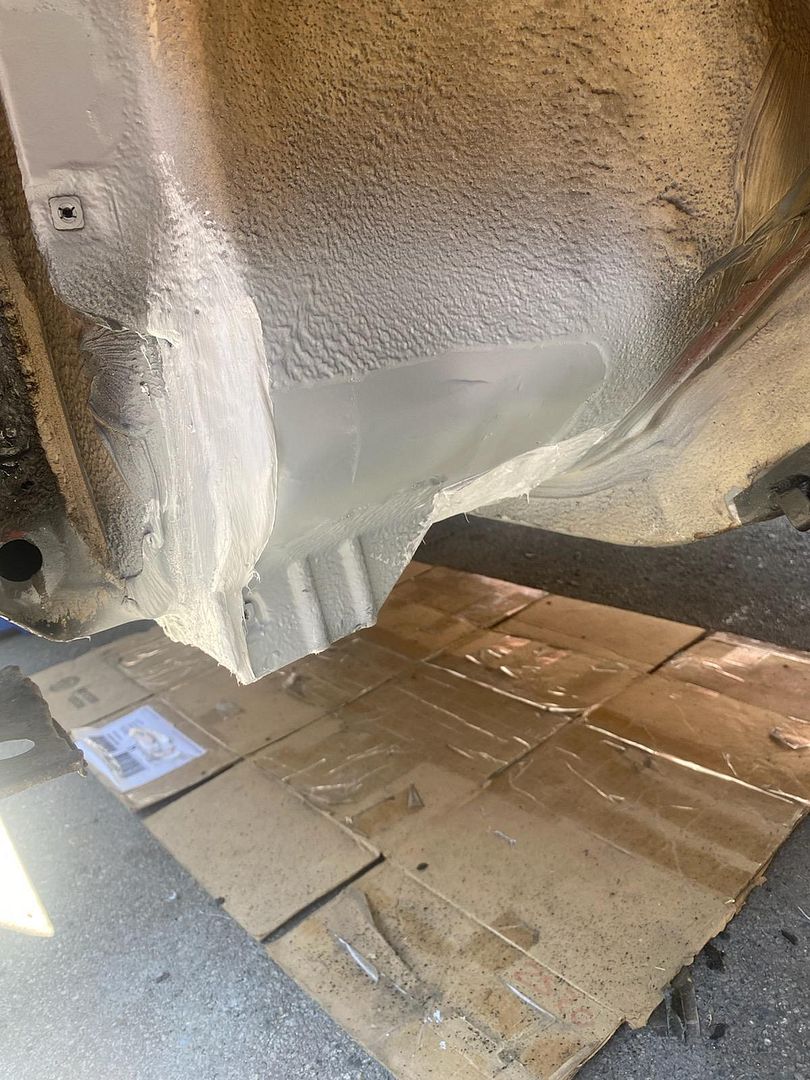
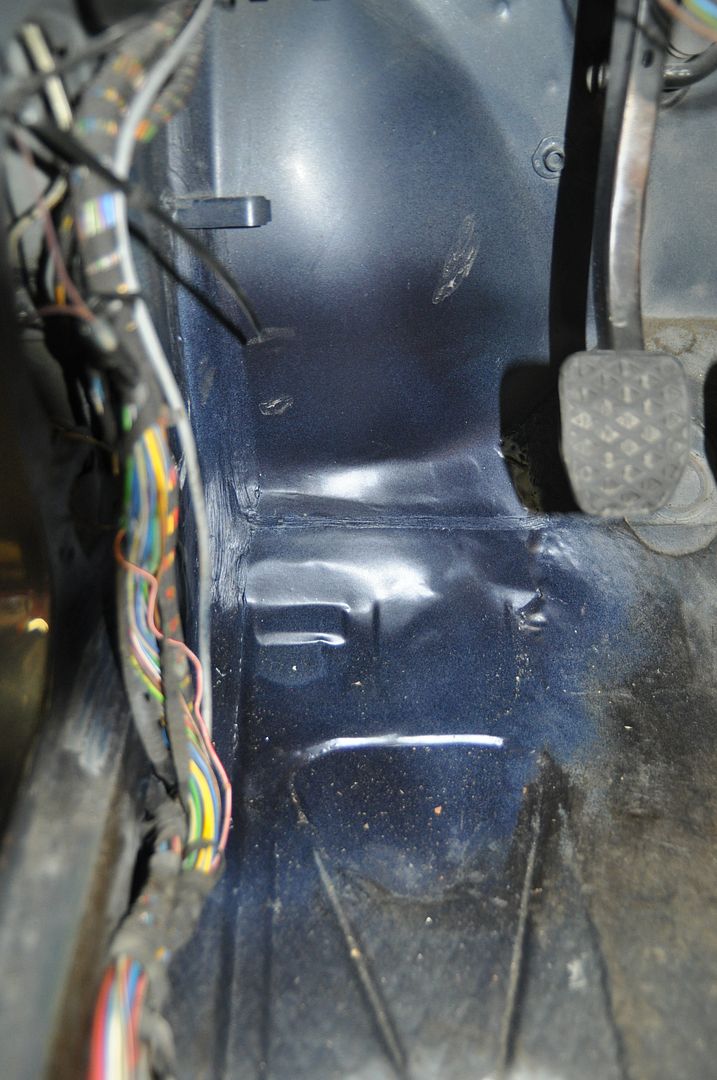
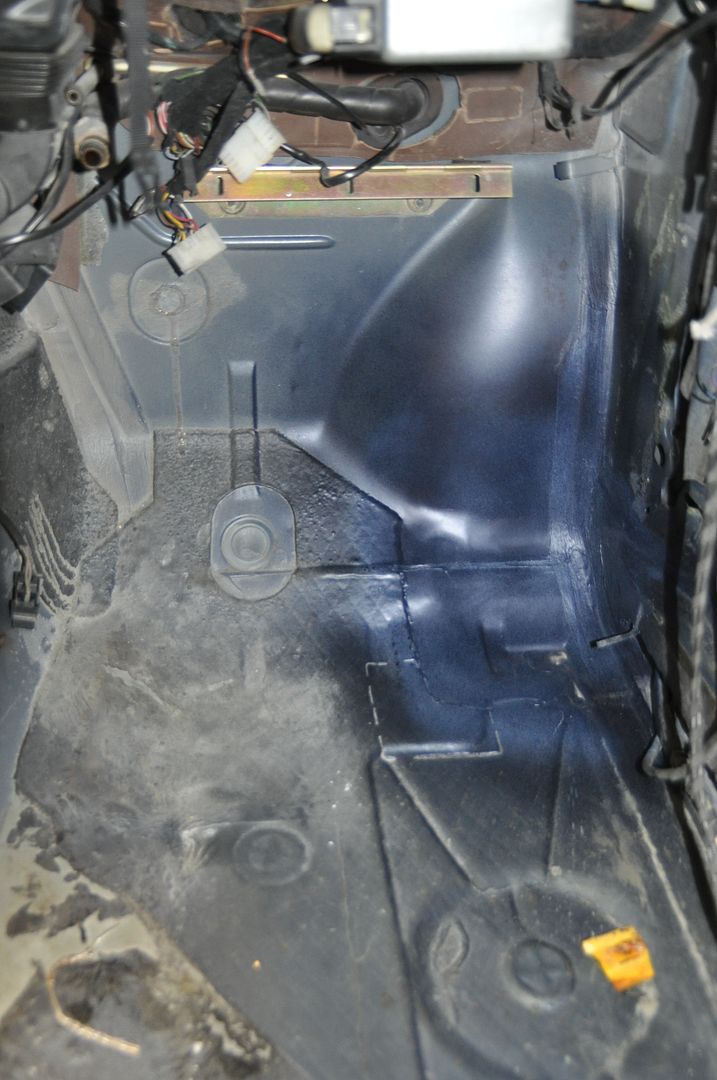
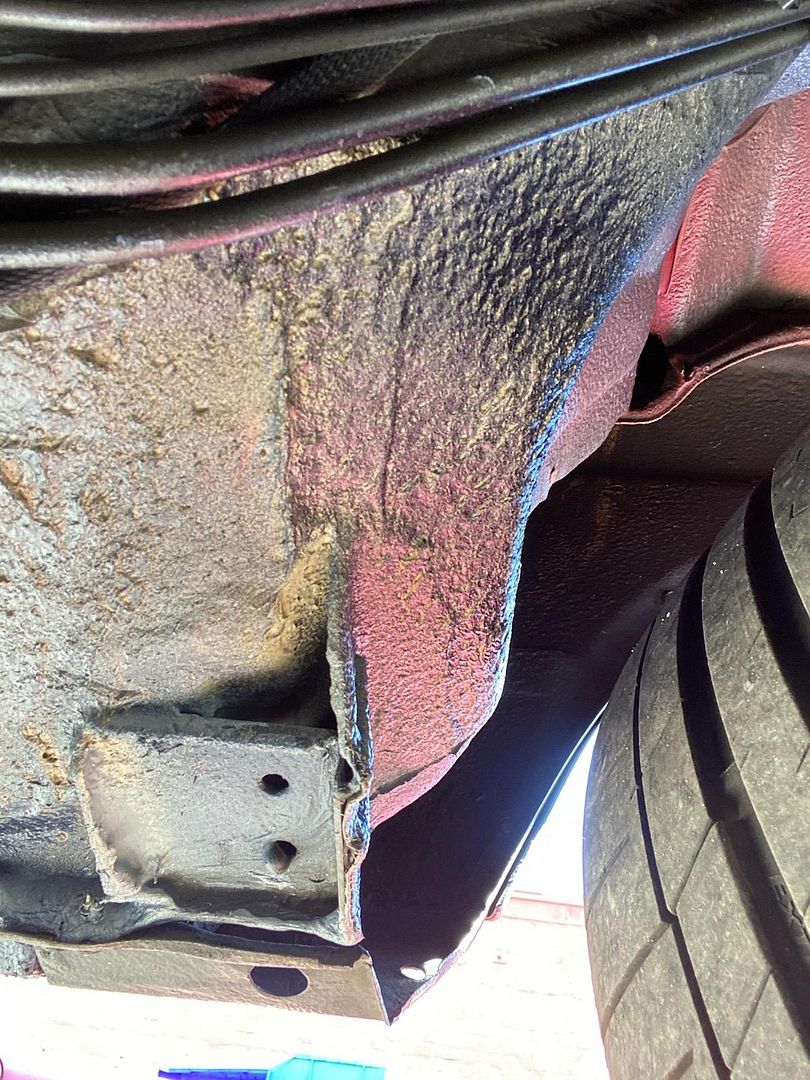
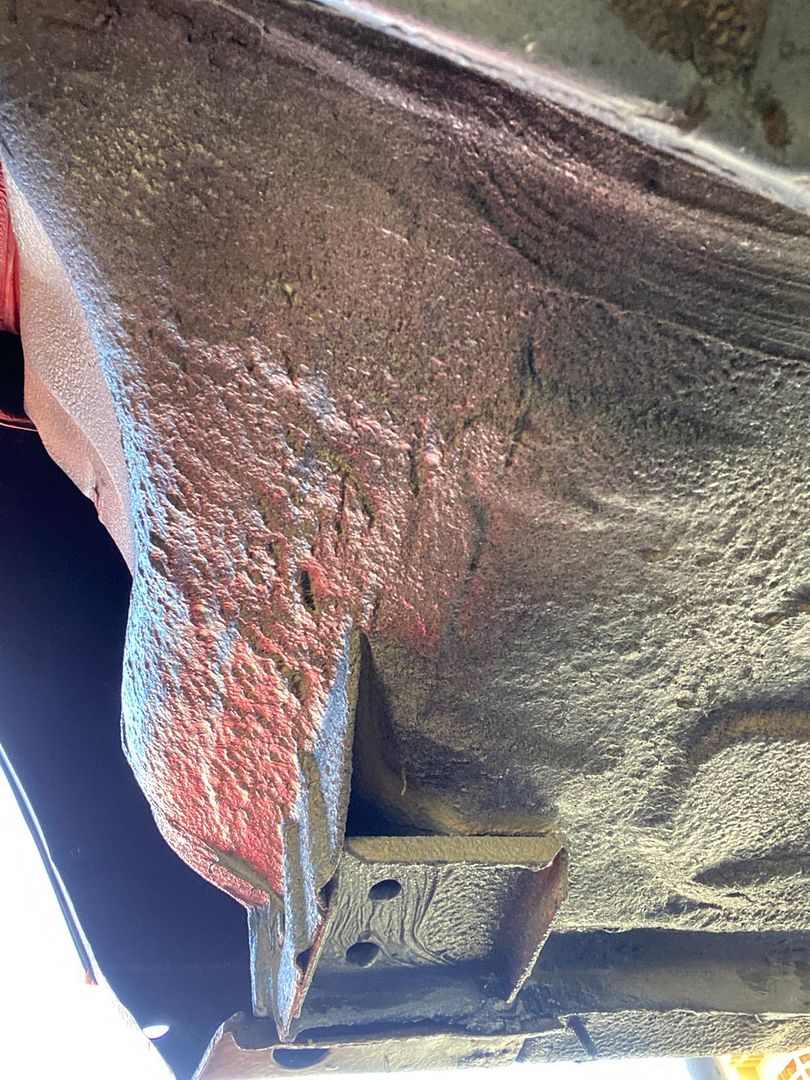
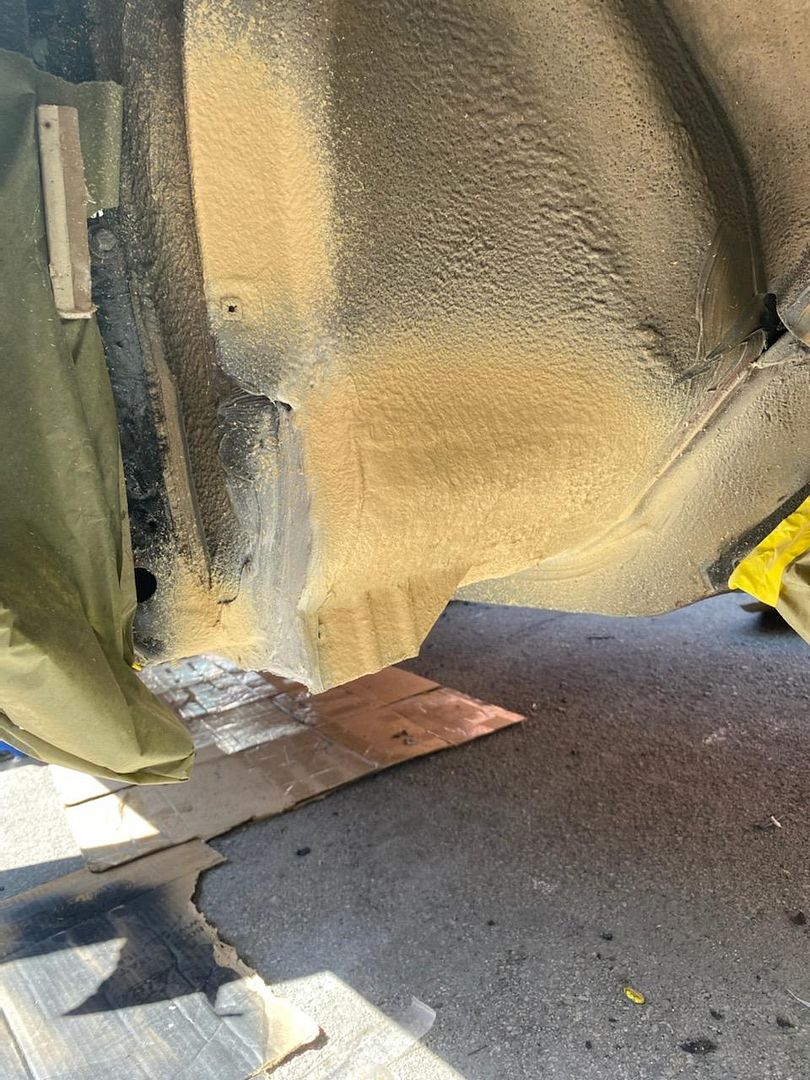
Unfortunately, he only got to the front floorboards and the rear bulkhead in his nearly 4 weeks. He really wants his lifts in to tackle the rocker panels and needs to fabricate the Accelerator Pedal mount (I bought a stainless-steel version, but he isn’t setup for SS welding). He accomplished the hardest part of the bodywork and did an excellent job so I’m not sweating the postponement of the other items. They can be done independently of the rest of the project, so I will bring the car back likely after the Headliner is done.
Acoustic & Thermal Abatement, Part 2:
I picked up the car from Doug last Friday and set about trying to maximize the one or two weekends I have with it before it goes to Juan for the Headliner. The big item being prepping and installing the second part of the heat and sound abatement portion of this project; namely the floor.
Preparation:
-Clean-up from welding, including de-greasing and complete wash-down
-Re-arranging Wire Harnesses (mostly getting them out of my way)
-Touch-up Body Painting (Seat Rails, new Grafts)
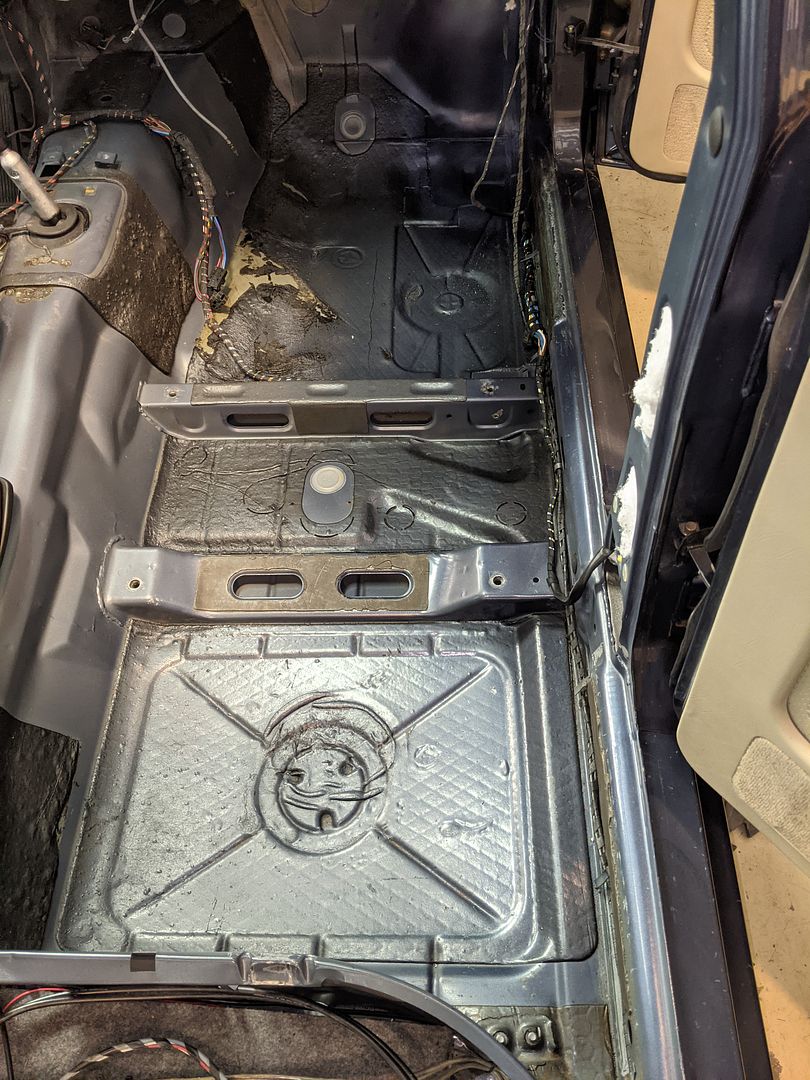
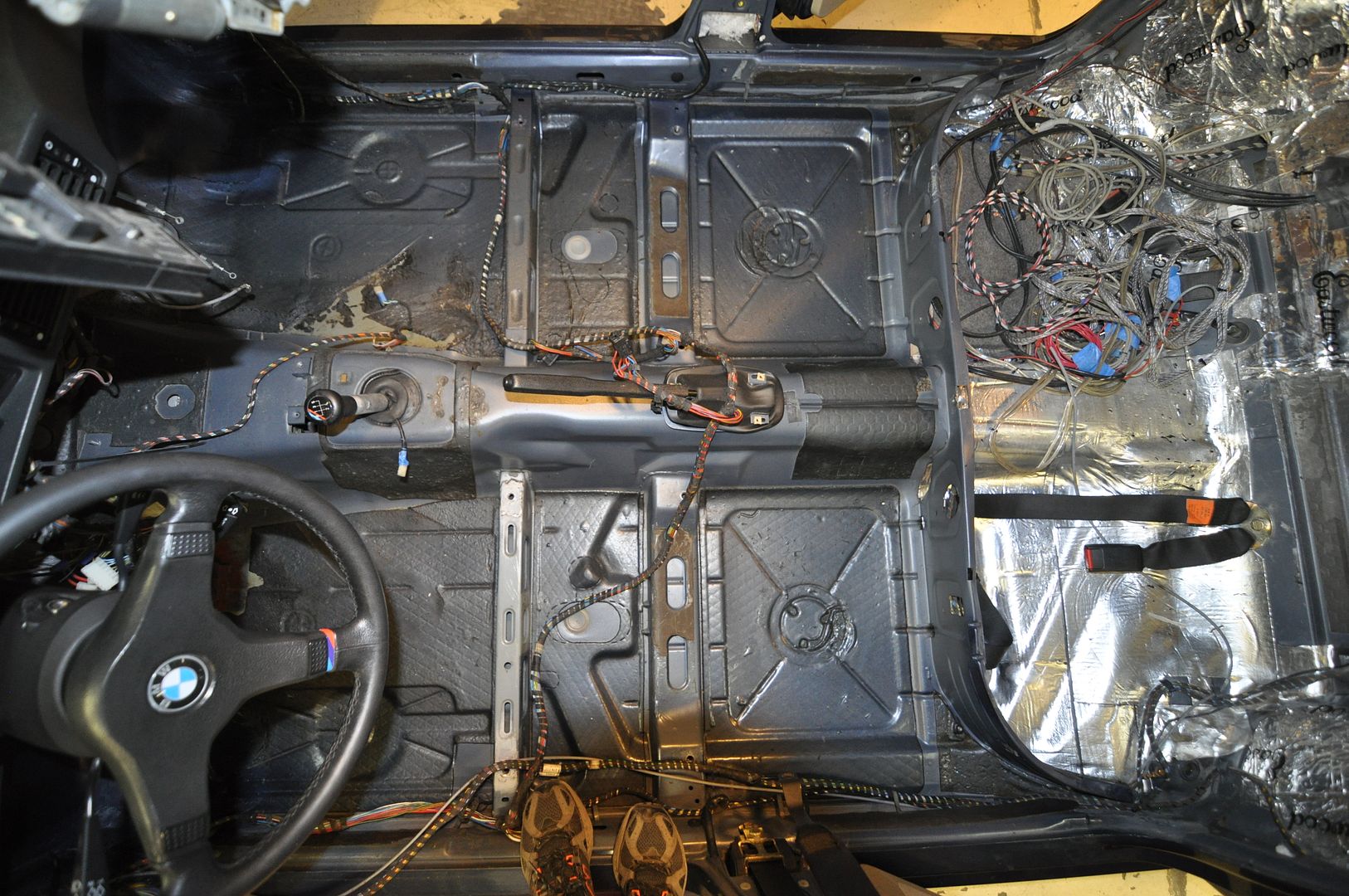
Level 1: Liquid Acoustic Membrane (HeatShield db Skin). As you saw earlier, I used this on the roof and Rear C-Panels. I only installed one +/-10mil layer here since I was layering more on top of it and I didn’t want to wait another 24 hours for the second coat to dry (okay, this was the driving factor since time is of the essence right now).
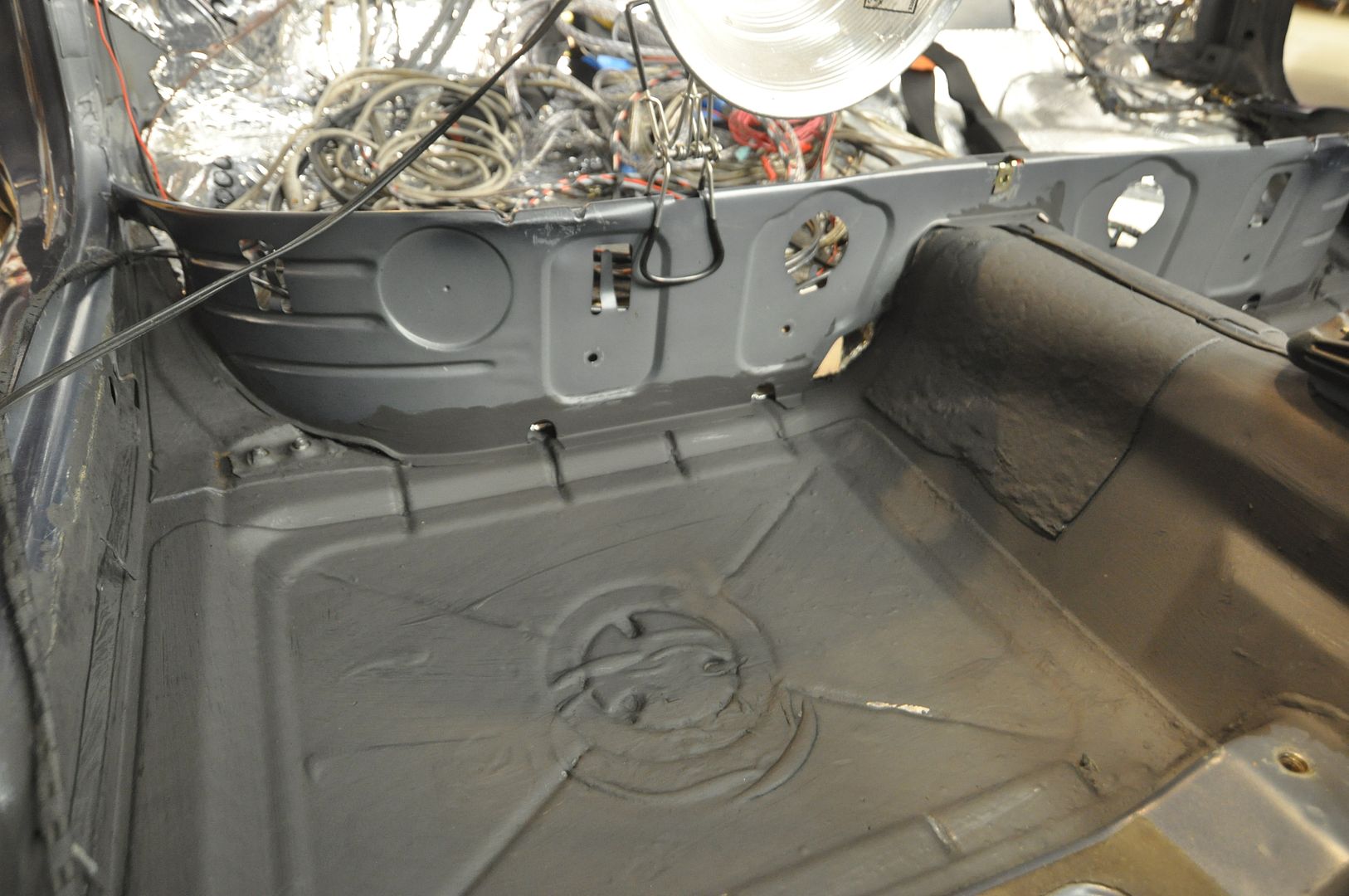
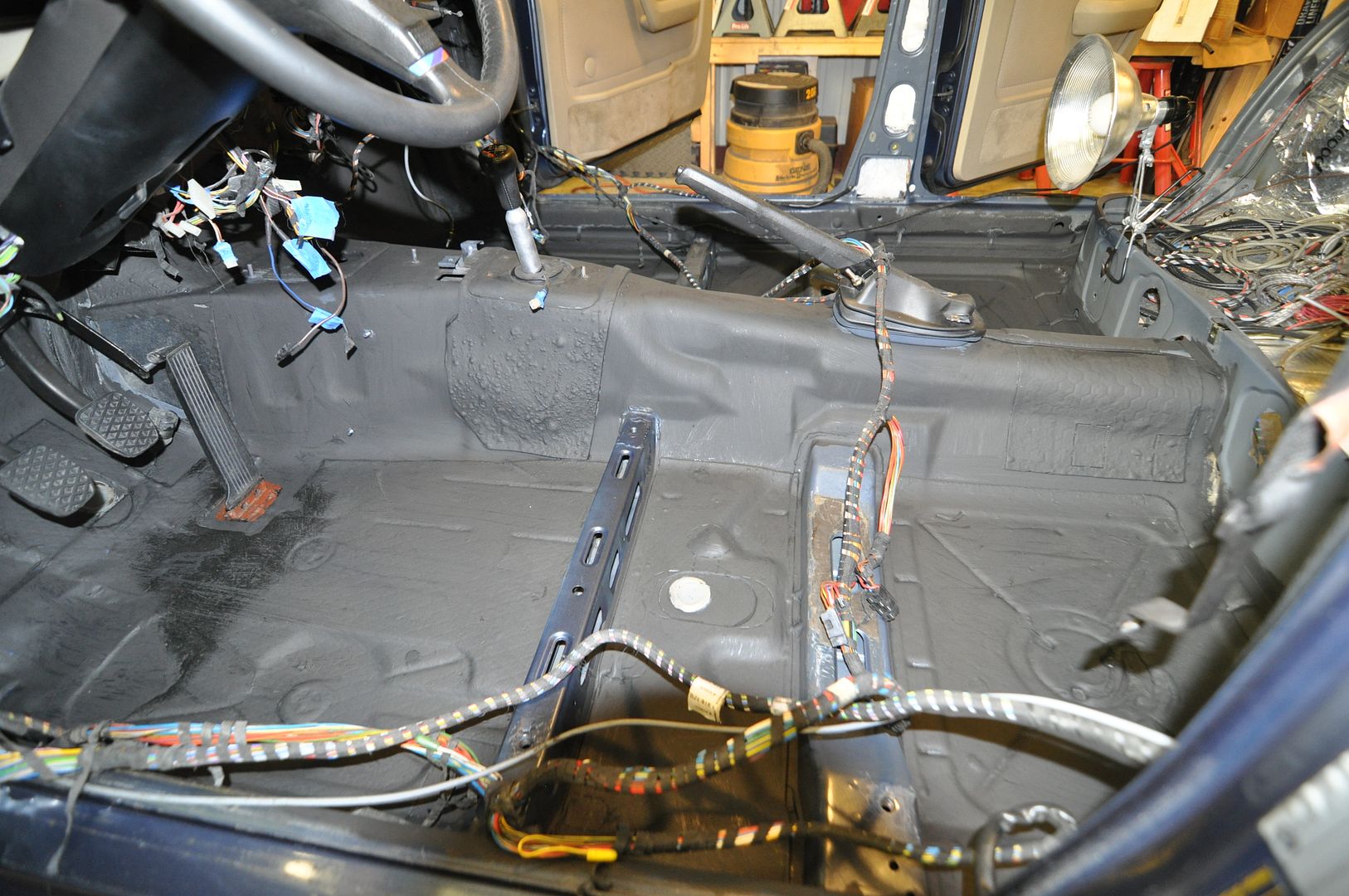
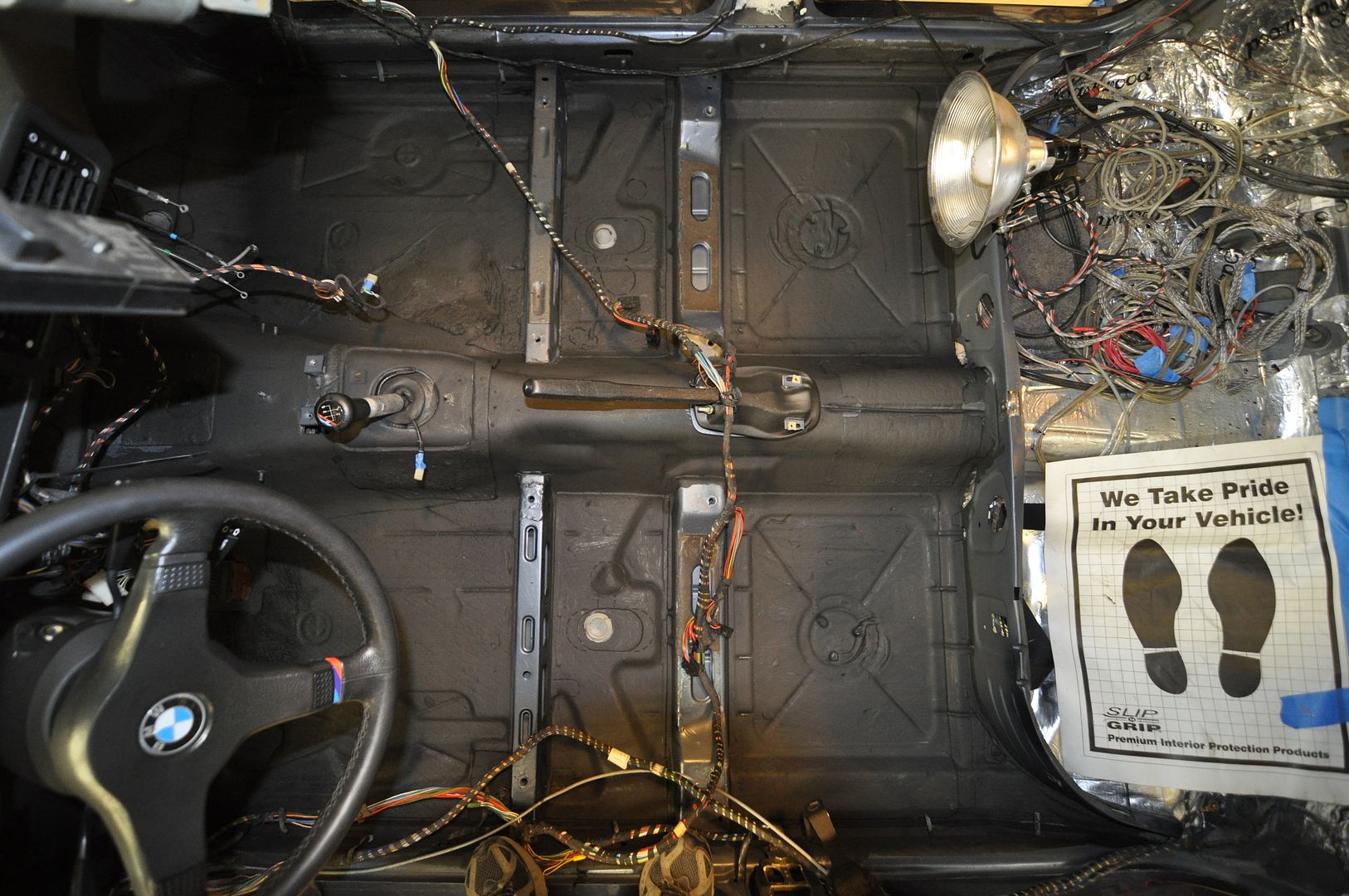
Level 2A: Miles and miles of Kilmat 80mil Butyl Sound deadening materials. Up the front floor/firewall (to the dash line) and down across the whole floor. I already installed a similar product in the Rear Seat Well and Bulkhead a few years back. I also stitched in a few pieces of new mass-loaded high density foam matting where I cut into it the OEM brown stuff during demo. This was done with new HeatShield db Sniper material.
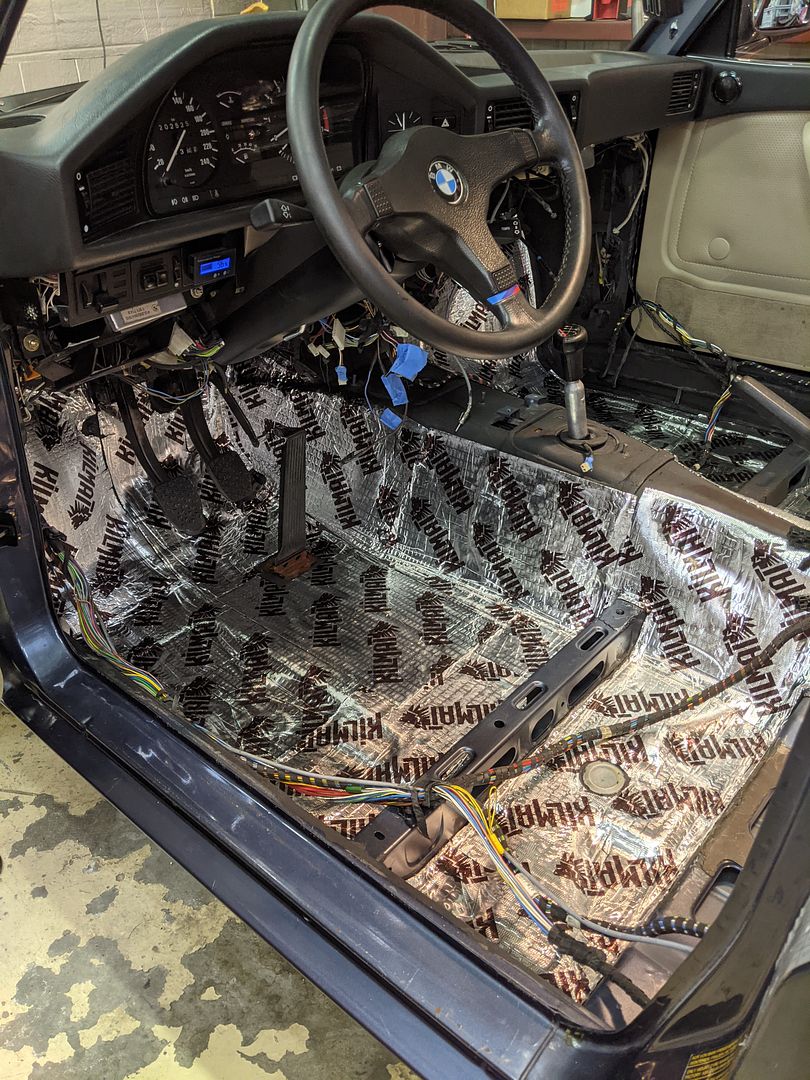
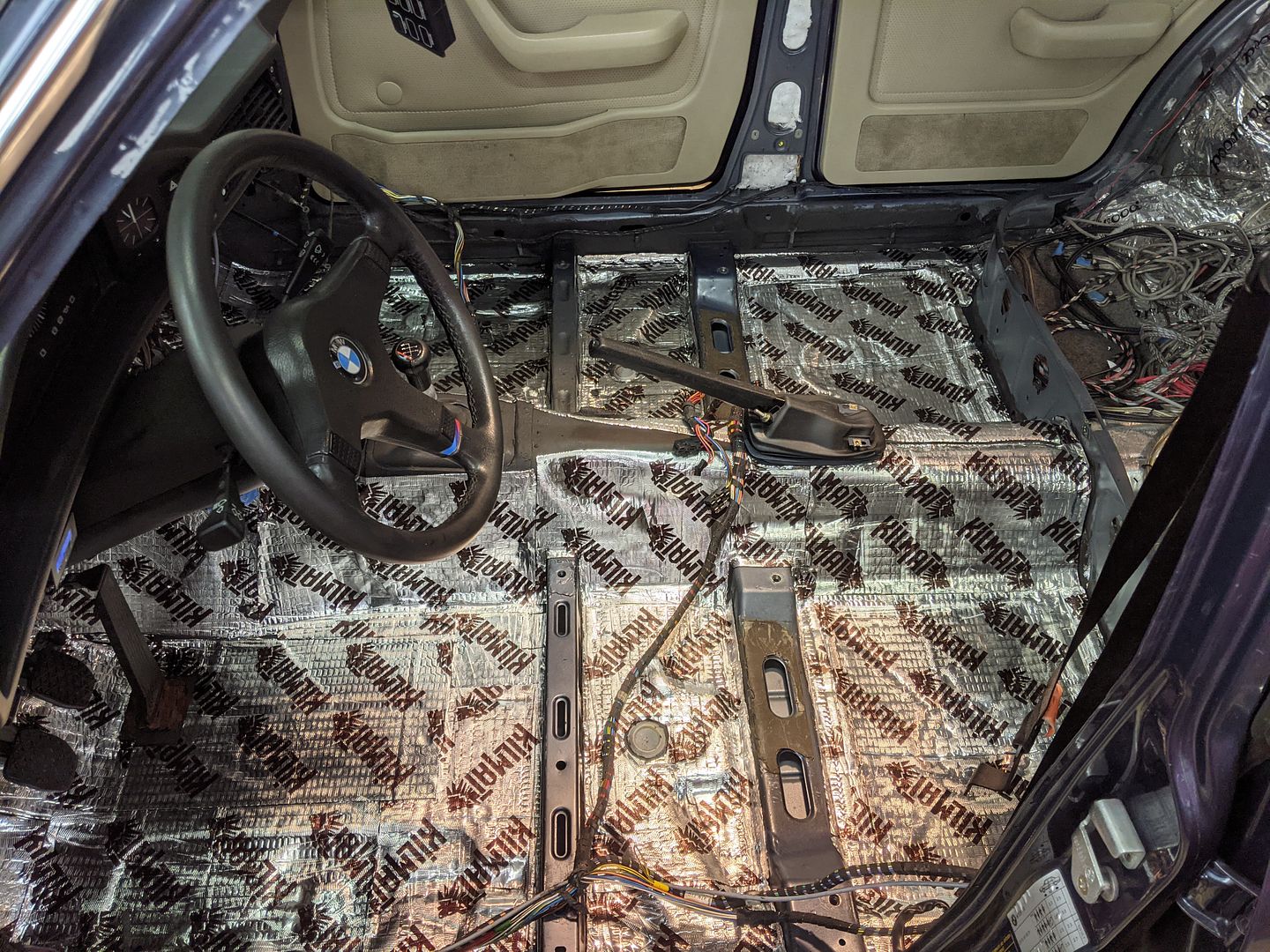
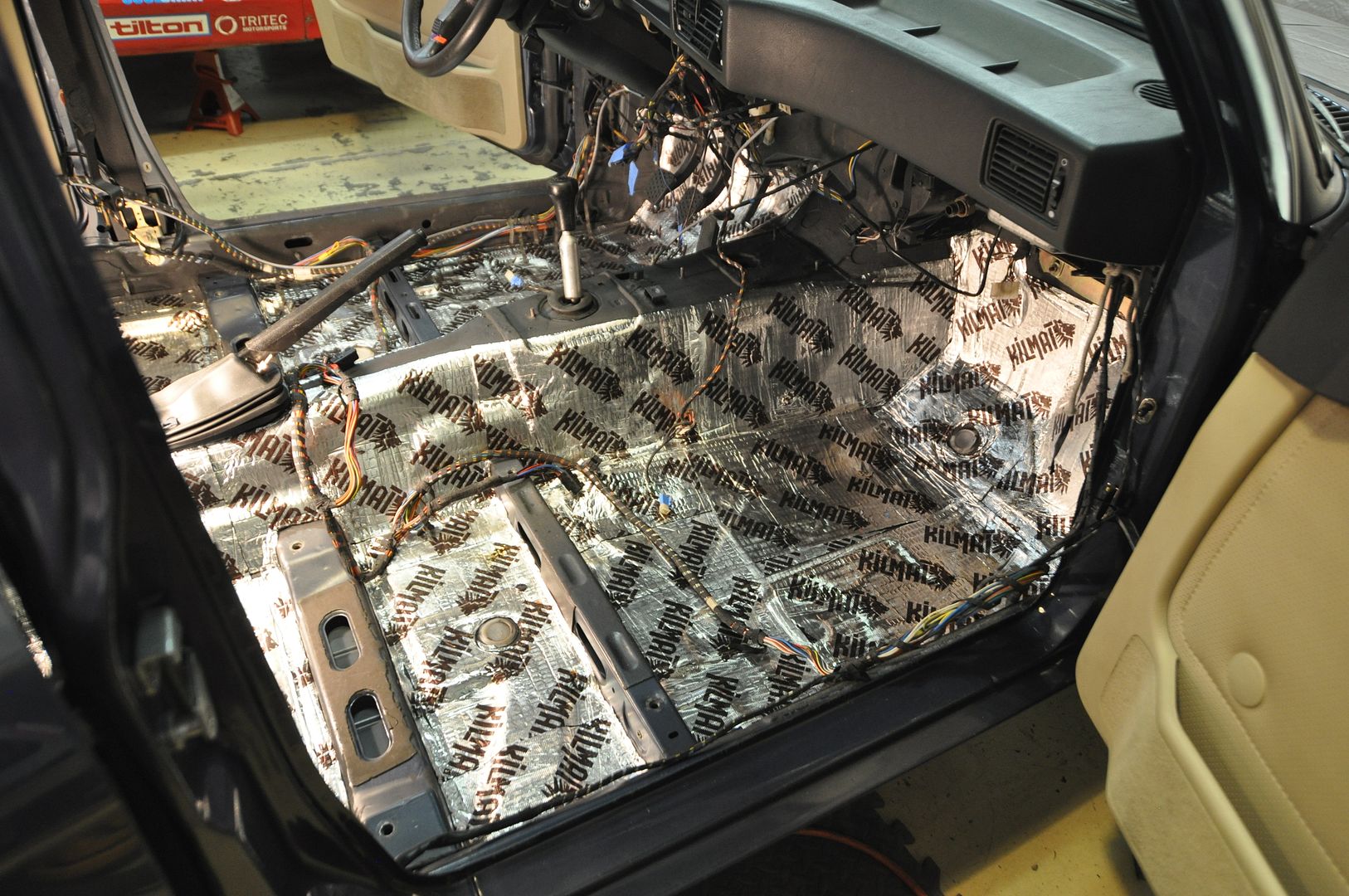
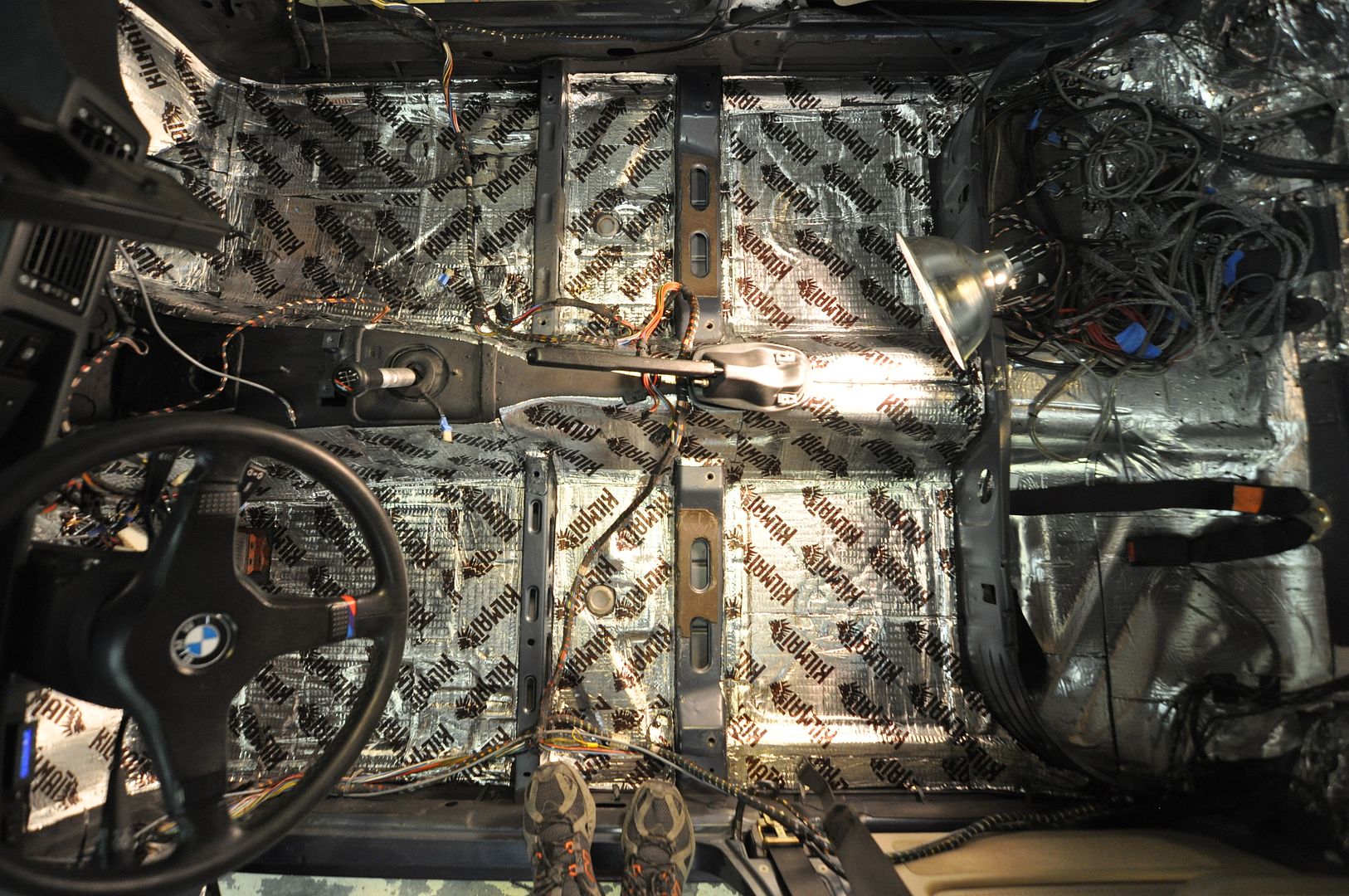
That brings us up to today. This coming weekend on-deck is:
-Continue with Levels 2B and 3 Acoustic & Thermal Abatement (Batt Insulation, Acoustic Foam, Noico sound foam, and Thermal backing “blanket”)
-HVAC System Overhaul (rebuilding the Fan & Evap box; I’ll tackle the Heater Core after I get the car back from the Headliner)
Stay tuned.
I hadn't realized that it's been since the end of April since the last update, but things were sort of stalled as I was waiting for others’ schedules to sync up which really meant delays. At present the upholsterer has been working away on the seats for several months now and is due to be finished next week at some point. In the interim I dropped the car off at the body shop to tackle some metal repairs which took a lot long to both get into the shop and then for him to complete the work. So, the result was I was sitting on my hands waiting until I get the car back to move onto the next phases before it goes back into a shop for the headliner (which was the perfect time for me to start another house project, as if I didn’t have enough spinning plates to deal with).
PART II: Leather Upholstery
Due to many delays in Juan’s (the Upholsterer) progress with the project he was working on at the time, I switched around the schedule of his scope of work. Originally I was going to have him tackle the new Headliner first which is a +/-2 week schedule. Then I was going to drop off the interior seats and collect the car for the +/- 8 week seat re-upholster project. Since he kept pushing me back, I decided to reverse that so the Headliner would be almost the last thing accomplished. I delivered everything down to shop back on April 24th and Juan is zeroing in on completion sometime next week.
A bit about the Leather materials:
As I mentioned it was really (really, really) hard to find a comparable leather to the original BMW Taurusrot; both in color and in grain texture. I searched high and low across all car manufacturers from at least 3 separate upholster suppliers (Veteran, World, and GAHH). I have a manila folder full of material swatches to document my search; one or two were pretty close and I almost chose one since I was getting exasperated. But that sample (from GAHH I think), was expensive by a lot so I wasn’t in a hurry to pull the trigger on it. Juan told me he needed at least 200 sf (or about 3-4 hides, depending on the size of the cow) to do all the seats in an E28 so quick math made me cringe when they started bantering around $50 to $75/sf. Ouch.
Just when I was about to throw in the towel and watch my budget explode, one of my many emails with World Upholstery made mention they could do a custom batch of leather and match whatever I gave them (for a slight premium, of course). The cost, while still higher than their other stock leathers, was way less than GAHH so I was hopeful. I sent them a piece of rear seat (underneath portion) and waited for the result. Picked it up and was floored that they not only matched the color dead-on but also stamped the grain to match the original BMW. It turned out that World subbed out the tanning to another supplier in town, Danfield, Inc. Leather (whom Juan had told me about but I hadn’t contacted yet). Going directly to them and cutting out the middle-man saved me a lot (in the end it was at least $4/sf over what World quoted me). I had to take the moment and debate the ethics of doing that since World did put in the effort, but I paid for the strike sample (it wasn’t cheap) so it’s not like they didn’t make some money off it. Besides, I’m not made of money and this project is costing way more than I anticipated (what restoration project doesn’t?) so I had to save money when and wherever possible. What made the decision easier (or at least let me choose what I deep down wanted all along) was a conversation/confession I had with my wife while we were reviewing the samples. She said to ask myself could I be happy getting in my car seeing this other, closely matching leather and enjoying it or would I always look at it as it being an “almost but not quite right substitute”? She said for the money I was about to spend I should get what I really wanted (I don’t think she knew exactly how much, otherwise I’m sure she would have smacked me upside my head). In the end, Danfield was great to work with (Carine was very helpful and totally professional) and they made 4 hides each about 75 sf (they got large cows) so I only needed three of them; they’re keeping the 4th in their stock. (Walking into their supply warehouse was a leather-lover’s wet dream immersing you into sensory overload from the textures and smells. But that’s another story.)
Juan is done with the rears and is currently working on the front seats. As per our last conversation, he was very happy with the leather materials and is loving the color. Here are pictures of his progress:








I haven’t seen any of this in person yet, but from the photos and knowing that Juan is a Master Craftsman and being familiar with his past work, I know it will be fantastic; of that I am guaranteed. There is a reason I chose Juan for this and was willing to pay the premium in cost and schedule since he is in high demand (he is booked likely through the rest of the year).
PART III: Floor & Carpet with Body Repairs
In the meantime, during the upholstery, I was supposed to get pretty much the rest of the interior done (sans the Headliner). Totally feasible since there were many weeks of potential down-time between what I anticipated the body shop’s schedule would be and the rest of the interiors I was doing. Well, that went sideways when the body shop (a friend of mine’s Porsche shop known for repairs and restorations) kept pushing me back. He was waiting for a concrete pour for his lifts in his new-to-him shop (his old one was razed to make way for apartment buildings). Without his lifts, his overall shop schedule for repairs was slowed which compounded everything.
PART V: Everything Else: HVAC Part 1
Before I could send the car off to the body shop, I had to strip out the rest of the interior and that included the dismantling and removal of the AC portion of the HVAC system. This is essential to get the carpet out in one piece but seeing as it was part of the overall project, it was on the list Anyway. Along with the carpet was the rest of the OEM foam padding on the floor (my original PB carpet was the unbacked earlier version while the Anthracit replacement is the newer backed one). I tried to salvage as much of the padding as I could in case I want/need to reuse some, but there wasn’t much left on the driver’s floor side due to an earlier hydraulic leak. Since I was not removing the Heater Core yet (I have to shuttle the car back and forth between the shops still so I decided not to disturb the Cooling system at this time), I cut out the padding around the Heater Box as best I could and will get the remainder later.
Here is all that removal. I didn’t take as many photos as I thought I did for the removal of the AC and center console (classic error I always seem to do; it WILL come and bite me in the ass later for sure):














What's with the birdseed you ask? Funny (and irritating) story about that. Since I bought this car 10 years ago birdseed has always been dropping out of the HVAC system a little bit at at time; usually at the most inopportune time like before judging at a car show. Any time I turned on a blower, seeds would hit my feet. Someone at some point must have dropped a 10lb bag of birdseed in the upper dash vent (best as I can figure) and it's been falling out like quarters from a loose slot machine ever since. Well, when I went at it this time a lot rained down just to prove there's still a lot left over up there somewhere. It wasn't in the AC box so my guess is it's in the Heater box. I'm hoping for a big pay-out when I pull that out.
I also decided to try to remedy this situation:

Seems someone before me tried to use the floor to jack the car up (both sides had this issue). I managed to pound it back down closer to original and Doug was going to have to get the rest of it there.
I’m not sure I want to know what happened here:

So back in went the temp seat and gear shifter and it was ready to send off to the body shop. That was until he had me wait. And wait. And wait…
After at least 4 weeks of punting me, I took the car in for the repairs on June 6th for what I thought was going to be 1.5 weeks. As Doug (the shop owner) got into to the repairs (and hampered by not having a lift), that 1.5 weeks turned into 3.5.
Here is what his scope of work was/is:
-Replace the two front corner floorboards with two grafts from another E28 (replacing rusted out portions, injuries sustained from its’ former life in the Northeast)
-Install a panel over the hole in the Rear Bulkhead (someone’s hack subwoofer install) from another E28 graft
-Repair/Replace damaged Lower Rocker Panel pieces at the jack points (rust and body damage also from its’ former life and bad jacking methods)
-Replace the Accelerator Pedal floor mount
This is what he started with:









And this was his process and result:










Unfortunately, he only got to the front floorboards and the rear bulkhead in his nearly 4 weeks. He really wants his lifts in to tackle the rocker panels and needs to fabricate the Accelerator Pedal mount (I bought a stainless-steel version, but he isn’t setup for SS welding). He accomplished the hardest part of the bodywork and did an excellent job so I’m not sweating the postponement of the other items. They can be done independently of the rest of the project, so I will bring the car back likely after the Headliner is done.
Acoustic & Thermal Abatement, Part 2:
I picked up the car from Doug last Friday and set about trying to maximize the one or two weekends I have with it before it goes to Juan for the Headliner. The big item being prepping and installing the second part of the heat and sound abatement portion of this project; namely the floor.
Preparation:
-Clean-up from welding, including de-greasing and complete wash-down
-Re-arranging Wire Harnesses (mostly getting them out of my way)
-Touch-up Body Painting (Seat Rails, new Grafts)

Level 1: Liquid Acoustic Membrane (HeatShield db Skin). As you saw earlier, I used this on the roof and Rear C-Panels. I only installed one +/-10mil layer here since I was layering more on top of it and I didn’t want to wait another 24 hours for the second coat to dry (okay, this was the driving factor since time is of the essence right now).
Level 2A: Miles and miles of Kilmat 80mil Butyl Sound deadening materials. Up the front floor/firewall (to the dash line) and down across the whole floor. I already installed a similar product in the Rear Seat Well and Bulkhead a few years back. I also stitched in a few pieces of new mass-loaded high density foam matting where I cut into it the OEM brown stuff during demo. This was done with new HeatShield db Sniper material.


That brings us up to today. This coming weekend on-deck is:
-Continue with Levels 2B and 3 Acoustic & Thermal Abatement (Batt Insulation, Acoustic Foam, Noico sound foam, and Thermal backing “blanket”)
-HVAC System Overhaul (rebuilding the Fan & Evap box; I’ll tackle the Heater Core after I get the car back from the Headliner)
Stay tuned.
Re: 1985 Arktisblau M535i Renovation - Next Chapter
Those seats look fantastic! Usually, you can tell at a glance when BMW/E28 seats have been redone because the stitching, fit, corners, leather, color, etc. just doesn't look quite right. Juan's work appears to be dead-on to OEM BMW seats. And the Taurusrot color just looks great. In combination with your M535i's paint color, that will be just spectacular.
Great work - keep going!
JB
Great work - keep going!
JB
Re: 1985 Arktisblau M535i Renovation - Next Chapter
Jeebus, Vince. I'm speechless.
Re: 1985 Arktisblau M535i Renovation - Next Chapter
That was the exact thought I just had seeing the seat pictures! Spot on near perfect factory looking.5280 JB wrote: Jul 02, 2021 8:48 PM Those seats look fantastic! Usually, you can tell at a glance when BMW/E28 seats have been redone because the stitching, fit, corners, leather, color, etc. just doesn't look quite right. Juan's work appears to be dead-on to OEM BMW seats
Can't wait to see more updates. Awesome thread!
Chuck
Re: 1985 Arktisblau M535i Renovation - Next Chapter
Damn, that's going to be one of the best interiors I've ever seen in an E28!
Re: 1985 Arktisblau M535i Renovation - Next Chapter
Mid-July Update:
Not much really to post. I made the big swap with Juan last weekend since he was about 99% done with the seats (he was still working on the middle seat belt cup for the rear upper seat back). I loaded up both the M535i and the CR-V with stuff (a new bronze windshield) and my wife and I made the trek south Saturday morning (about an hour away) and dropped it off for Juan to fabricate and install the new headliner. It's weird to think that was the longest drive that car has been on since January 2020.
I made arrangements to have the mobile glass guy come down and pull the front and rear glass on Sunday (the only time I could get him). Once that was done, Juan was off and running.
It was kind of like Christmas morning since I had take a lot of stuff back to empty Juan's shop, namely the front seats:
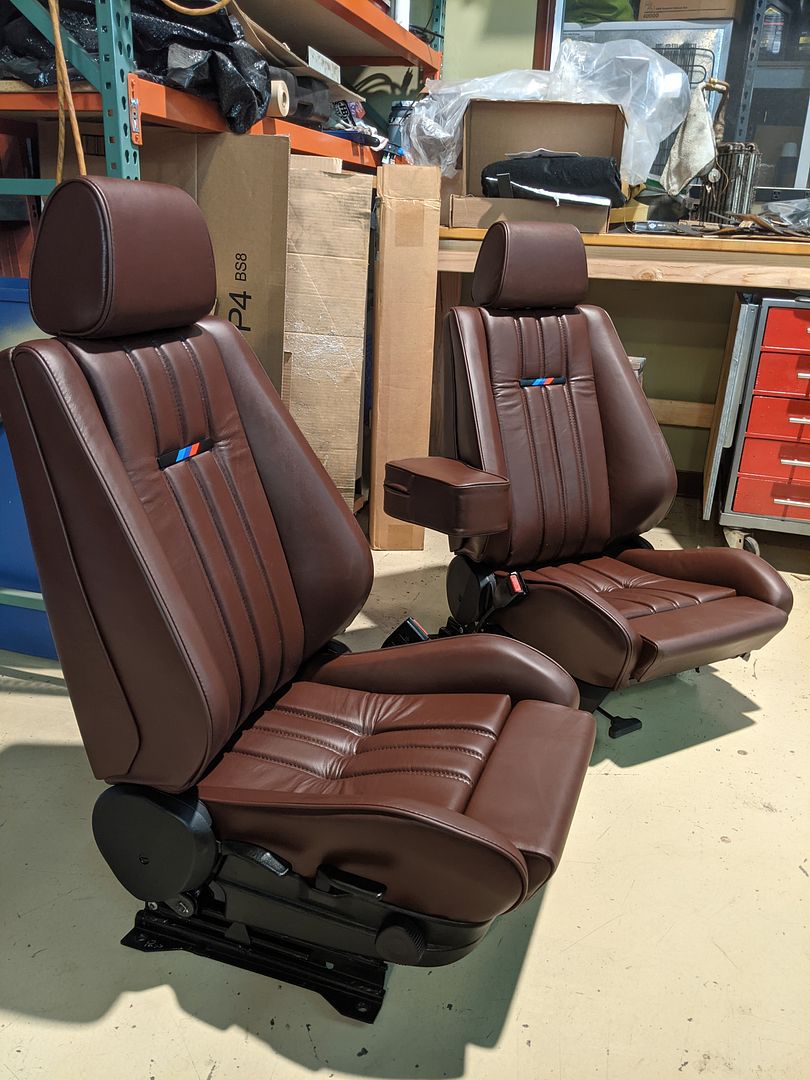
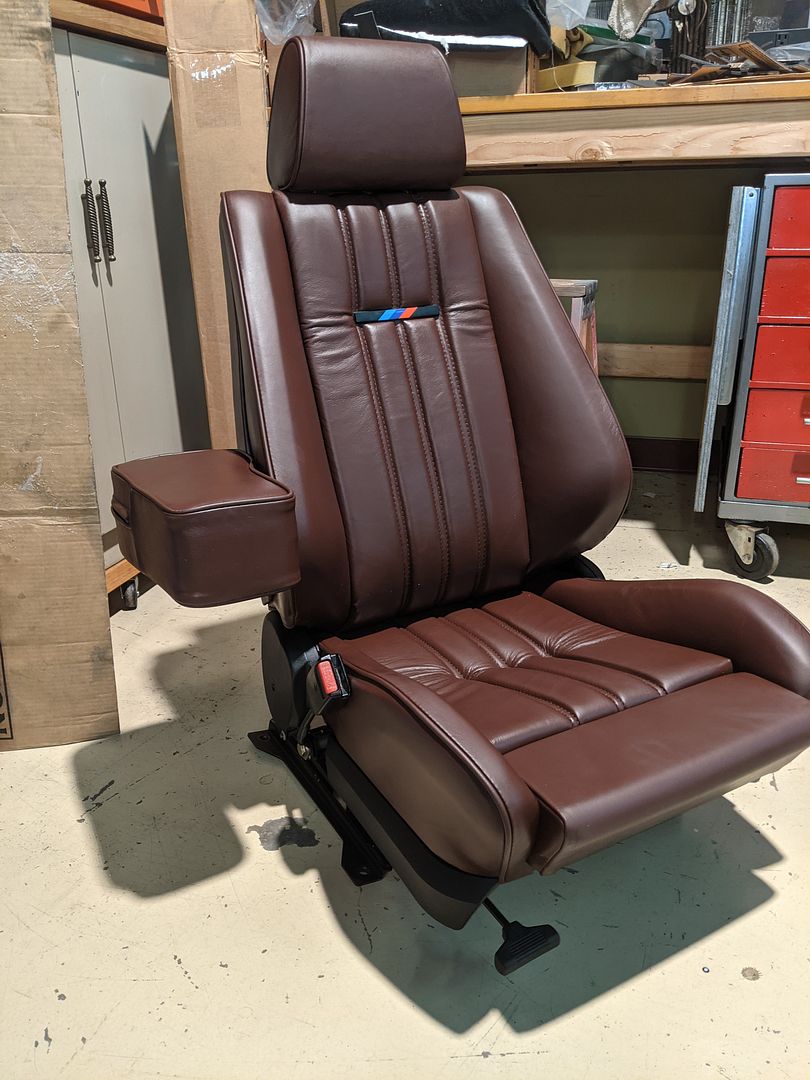
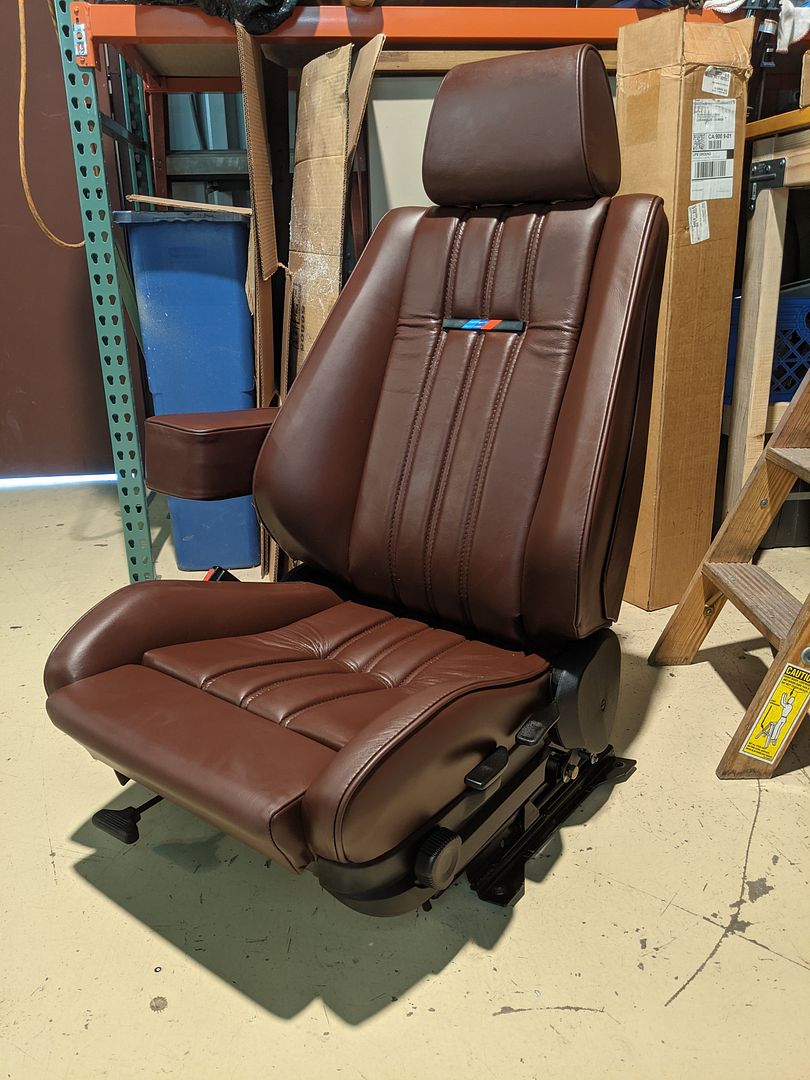
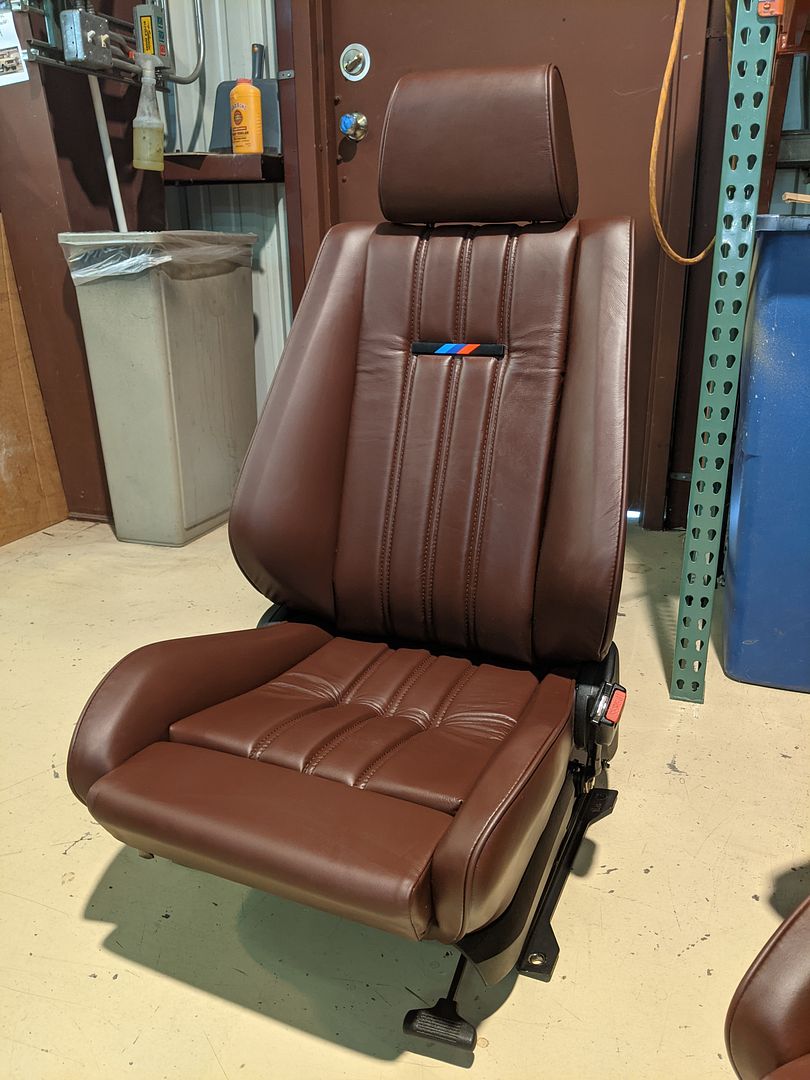
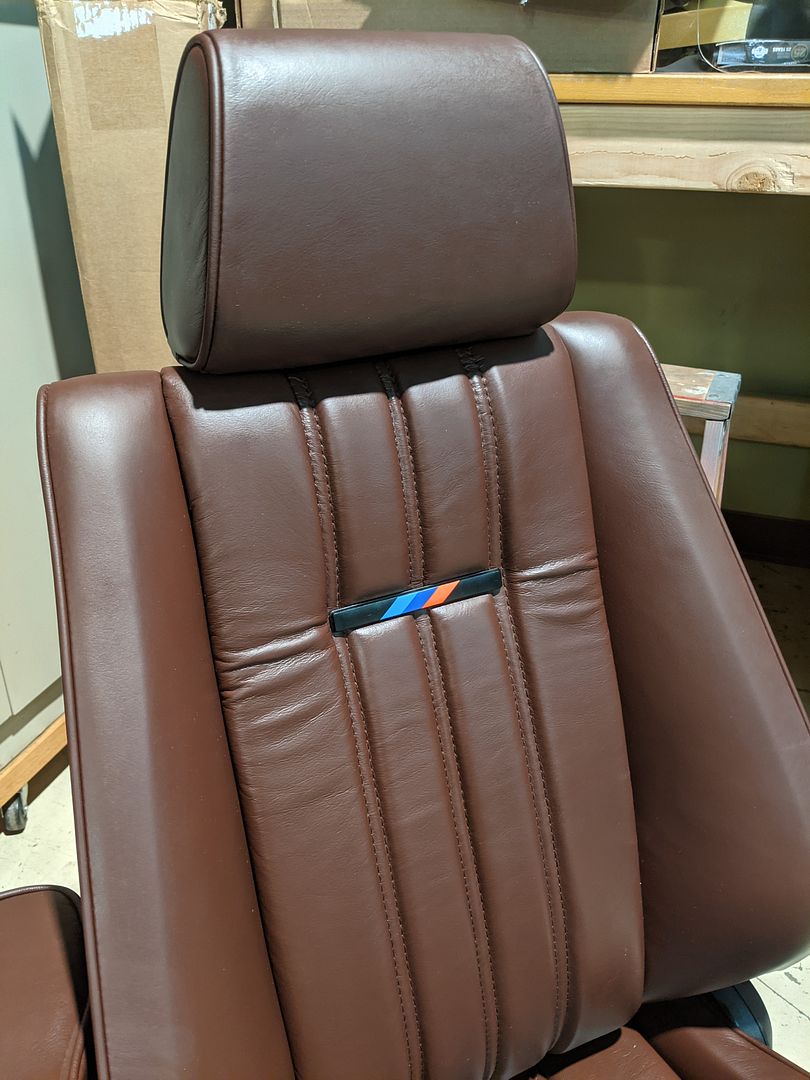
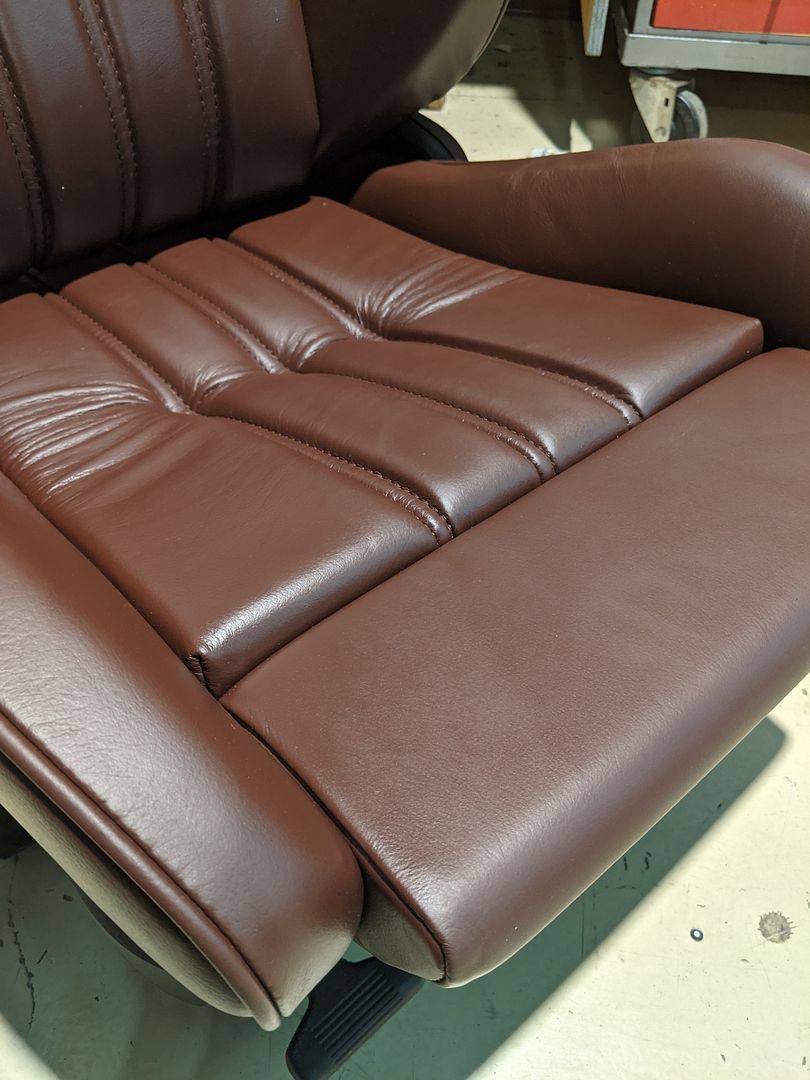
Mmmm...tasty.
So that "appendage" on the side of the driver's seat is a genuine Bavarian Autosport E28 Sport Seat Armrest (thank you, Kyle in NO). Juan and I worked out how to make it completely removable for the times I want the car shown and for the times I travel in it. He made all the connections (screw bolts into welded capture nuts) so they happen behind the back panel and completely invisible. He then re-covered the whole thing with piping to match those he did for the seats. He's really an artist.
ETA for the Headliner is 2 weeks (1.5 weeks from now). Mobile glass guy is back for the installation.
Then it's back to the body shop to tackle the lower rocker panel repairs and new accelerator pedal floor mount (provided his lift is in ).
).
Then it's Carpet installation, HVAC re-install, Sunroof re-installation, Audio system re-installation, seat and final trim re-installation.
And done (well, you're never truly done are you?)
Not much really to post. I made the big swap with Juan last weekend since he was about 99% done with the seats (he was still working on the middle seat belt cup for the rear upper seat back). I loaded up both the M535i and the CR-V with stuff (a new bronze windshield) and my wife and I made the trek south Saturday morning (about an hour away) and dropped it off for Juan to fabricate and install the new headliner. It's weird to think that was the longest drive that car has been on since January 2020.
I made arrangements to have the mobile glass guy come down and pull the front and rear glass on Sunday (the only time I could get him). Once that was done, Juan was off and running.
It was kind of like Christmas morning since I had take a lot of stuff back to empty Juan's shop, namely the front seats:






Mmmm...tasty.
So that "appendage" on the side of the driver's seat is a genuine Bavarian Autosport E28 Sport Seat Armrest (thank you, Kyle in NO). Juan and I worked out how to make it completely removable for the times I want the car shown and for the times I travel in it. He made all the connections (screw bolts into welded capture nuts) so they happen behind the back panel and completely invisible. He then re-covered the whole thing with piping to match those he did for the seats. He's really an artist.
ETA for the Headliner is 2 weeks (1.5 weeks from now). Mobile glass guy is back for the installation.
Then it's back to the body shop to tackle the lower rocker panel repairs and new accelerator pedal floor mount (provided his lift is in
Then it's Carpet installation, HVAC re-install, Sunroof re-installation, Audio system re-installation, seat and final trim re-installation.
And done (well, you're never truly done are you?)
-
hubble1953
- Posts: 857
- Joined: Dec 25, 2007 1:15 PM
- Location: Boise, Idaho
Re: 1985 Arktisblau M535i Renovation - Next Chapter
What a set of seats; love the color and the arm rest is great; looks perfect!
Wondering where you bought the headliner?
jm
Wondering where you bought the headliner?
jm
Re: 1985 Arktisblau M535i Renovation - Next Chapter
those seats look incredible. That armrest too! Hope to see this in Reno in the fall.
Mike
Mike
Re: 1985 Arktisblau M535i Renovation - Next Chapter
Beautiful. Love the color, too. Really well done!
Re: 1985 Arktisblau M535i Renovation - Next Chapter
Okay, long overdue for an update but it’s been pretty hot and heavy in The Hangar these past few months (both in pace of work and in actual temperature). My self-imposed deadline or September 10th came up very rapidly and despite my best efforts to complete this for a sort of “unveiling” in Reno, it was not meant to be. Probably for the best as I learned from the previous project; this gives me the chance to complete everything I had in the scope originally (well, almost everything) and save my sanity. Even though imposing deadlines on projects like this is generally a bad idea, I feel with near certainty that it will be ready for the SoCal Vintage BMW Meet on November 6th.
These last few weekends have been…trying; both the HVAC system and Moonroof re-install have not been going swimmingly. But here has been the progress over the last month:
Headliner:
Juan progressed quickly with the headliner but the first thing we had to do was coordinate the mobile glass guy to meet us down at Juan’s shop. Frank Valiente (New Era Glass) is to the windshield world what Juan is to the upholstery world; maybe that’s a bit of hyperbole but he’s pretty damned good it. This makes the third time he’s worked on my front windshield and second for the rear window. I don’t have many pictures of the removal since it happened so fast, however as with these things, re-installation took a lot longer with much more aggravation. Here is Frank hard at work:
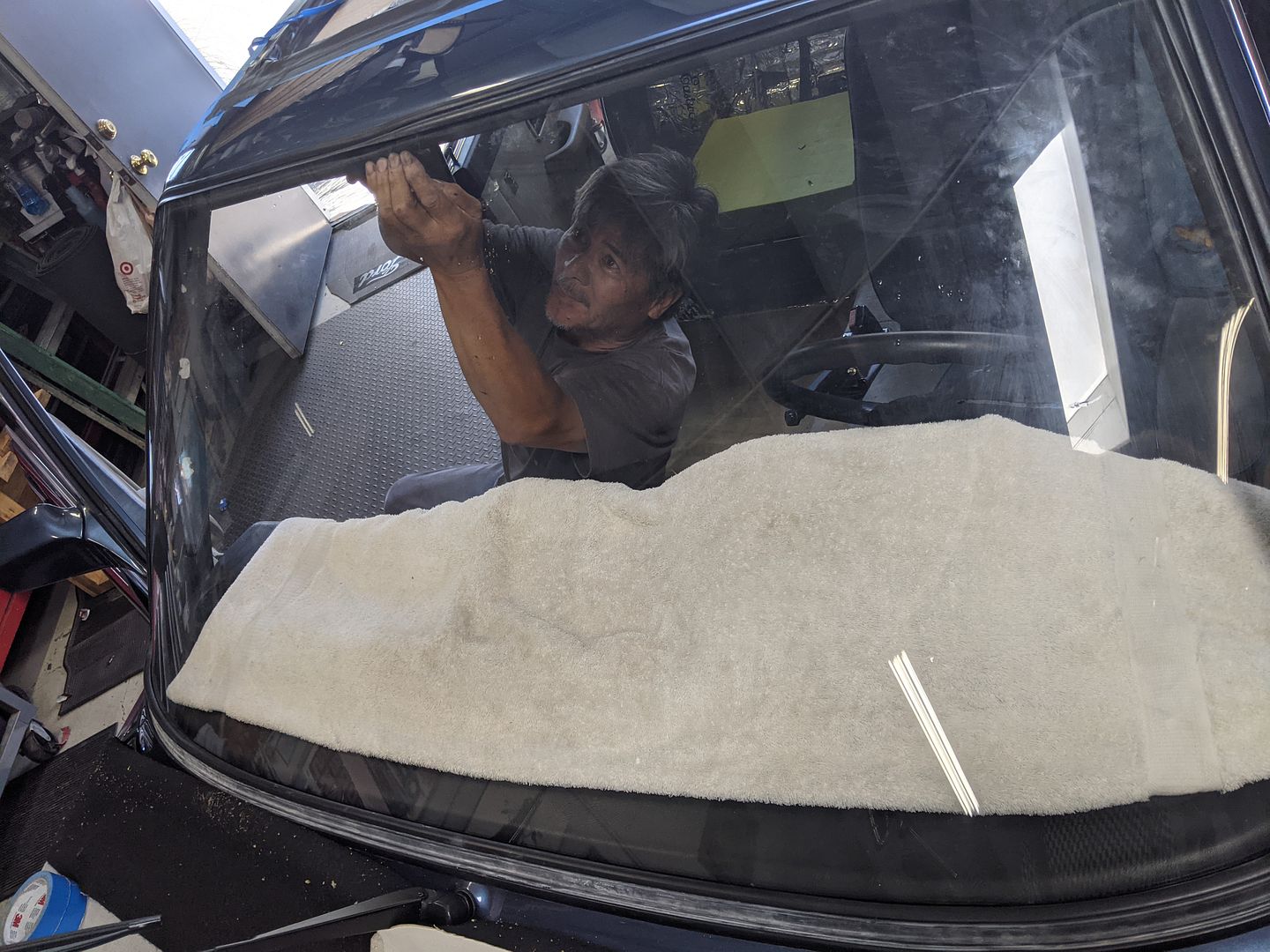
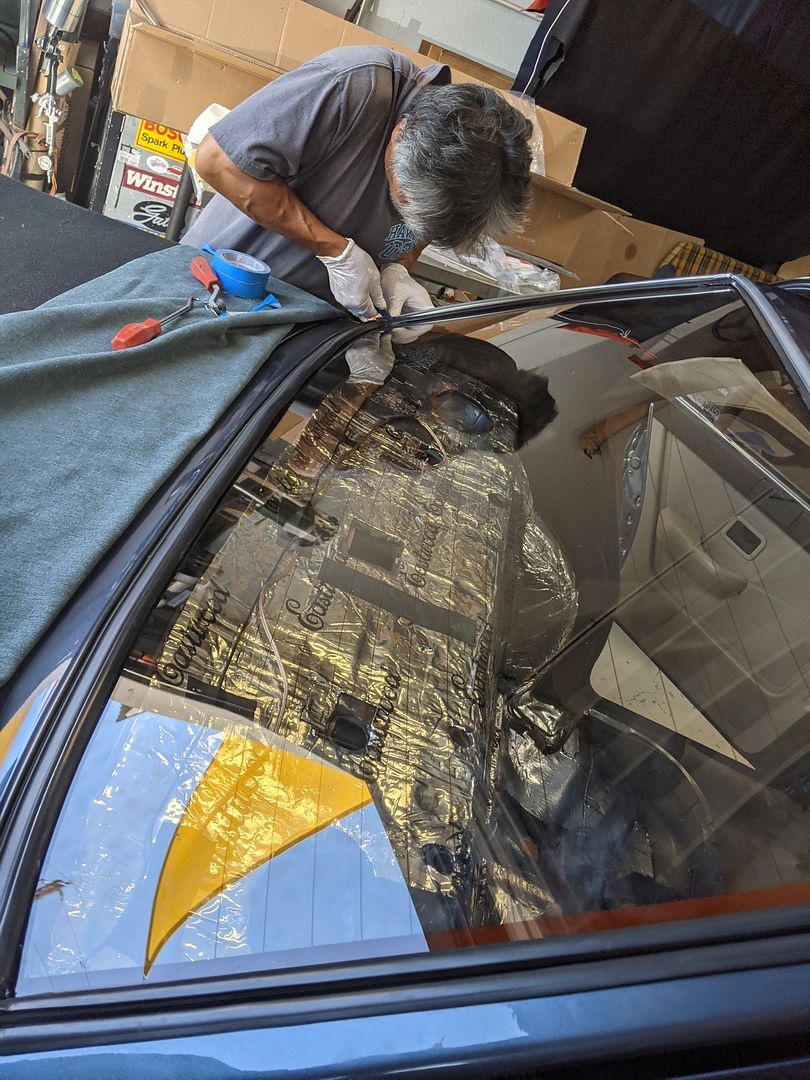
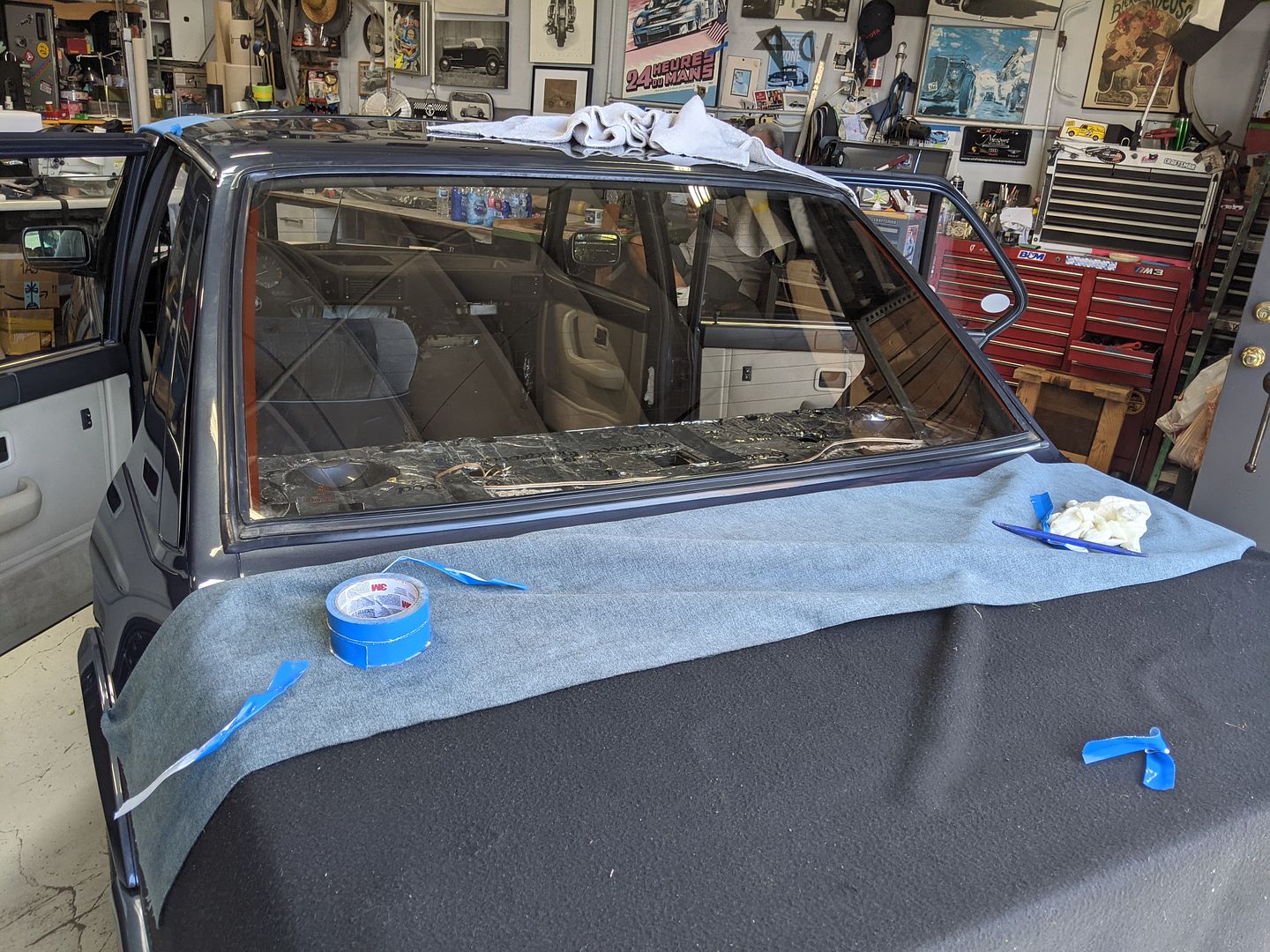
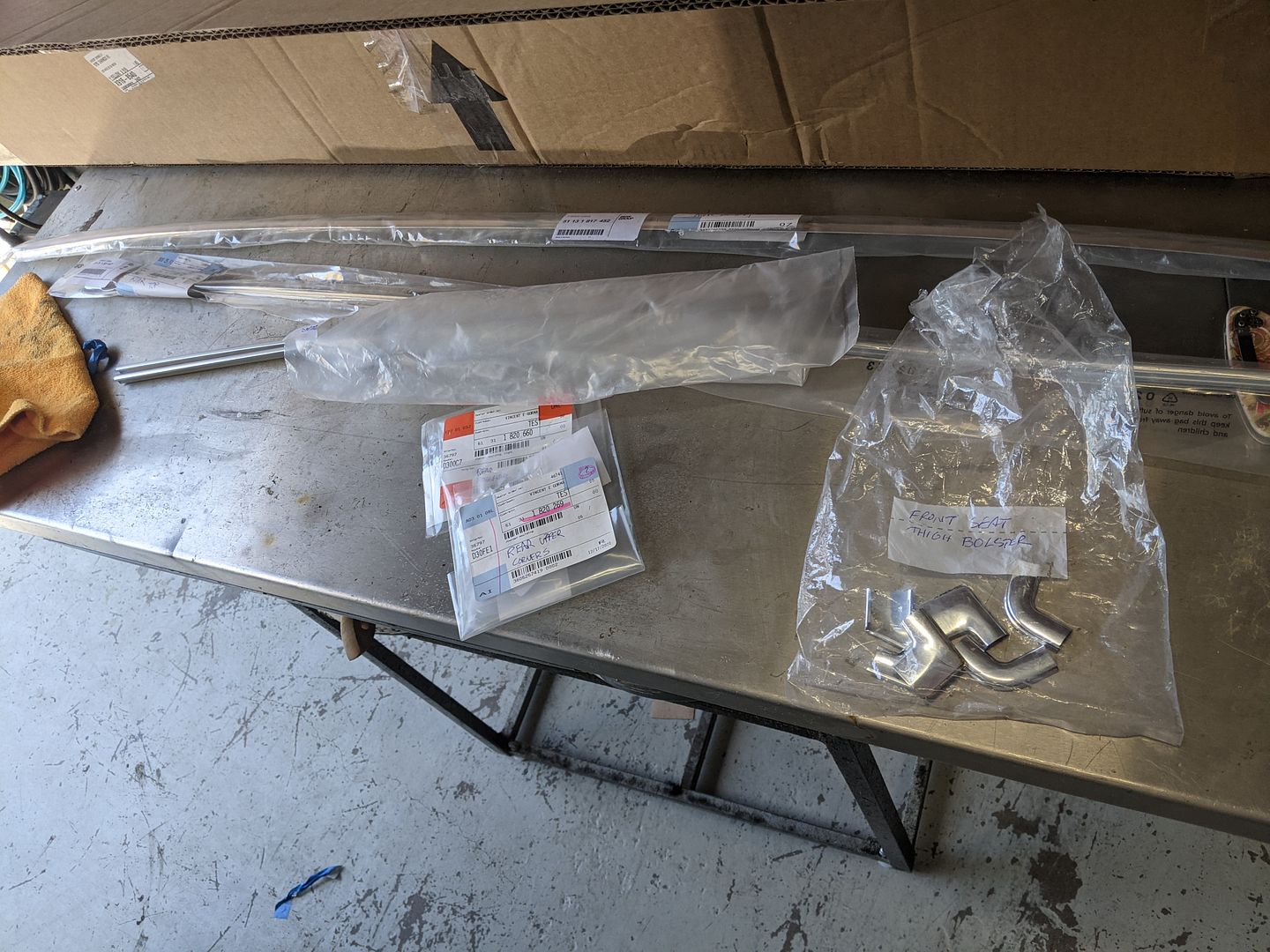
I have been holding off getting pictures of the headliner since I wanted to show it in context to the rest of the interior but I do have some photos of it when I got the car back from Juan (see below).
Material:
As with the leather, we searched long and hard for a suitable Anthracit/Black headliner material since BMW stopped making the M5 headliner long ago. The issue was two-fold (well, three-fold if you count cost): Fabric Bolt size and foam backing. In order to do an E28 Headliner you need material that is 54” wide minimum; it surprising how few black headliner bolts from the suppliers there are in 54”. Foam backing was also a deal-breaker since most headliner material is made with varying thickness layers of foam backing. While this sounds like a good thing, believe me after removing a 30+ year old disintegrated foam layer from the inside of this car, I can tell you that you do not want foam backed materials. Using material without the foam backing was what Juan recommended anyway; besides all that thermal and acoustic protection I put in behind the headliner will do way more than the thin layer of open celled foam. So, after countless searches and samples from Veteran, GAHH, World and a few others, Juan talked to a fabric salesperson/Interior Designer he deals with asking about a suitable vinyl material. She came back with two fantastic vinyl options for color, texture, no trace of foam backing and affordability. Sometimes it pays to look outside the automotive world for suitable materials:
Option 1: Burch Fabrics “Rebel”, Carbon
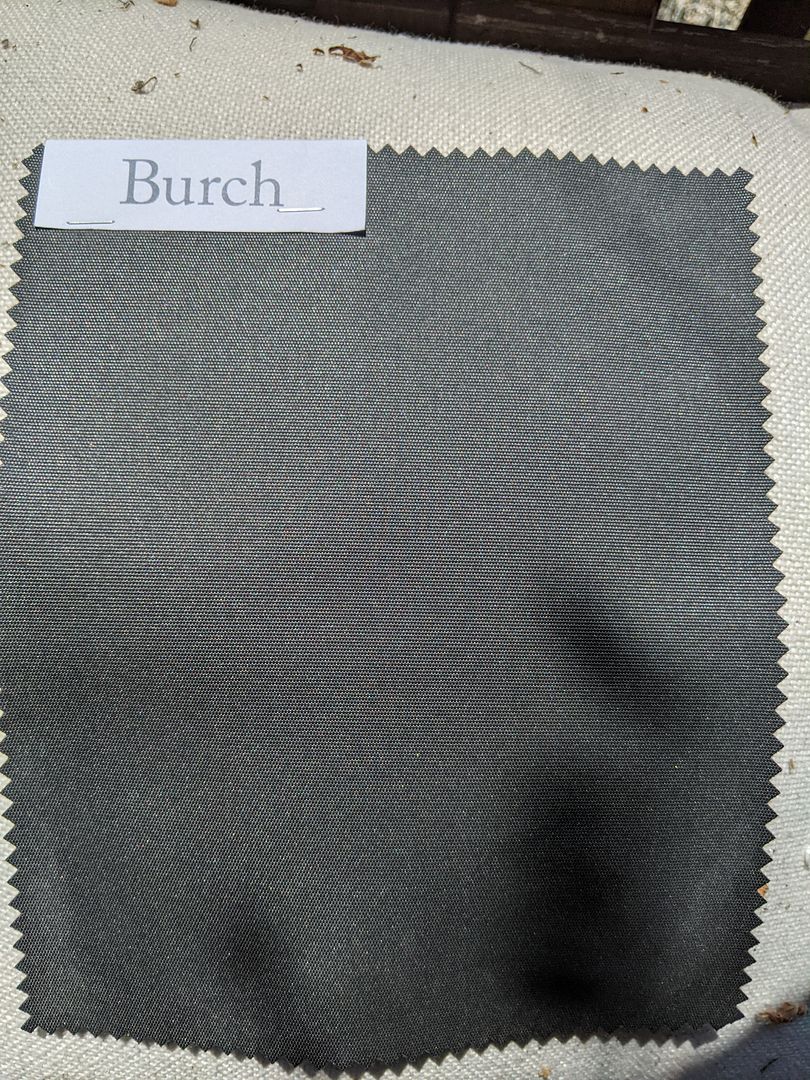
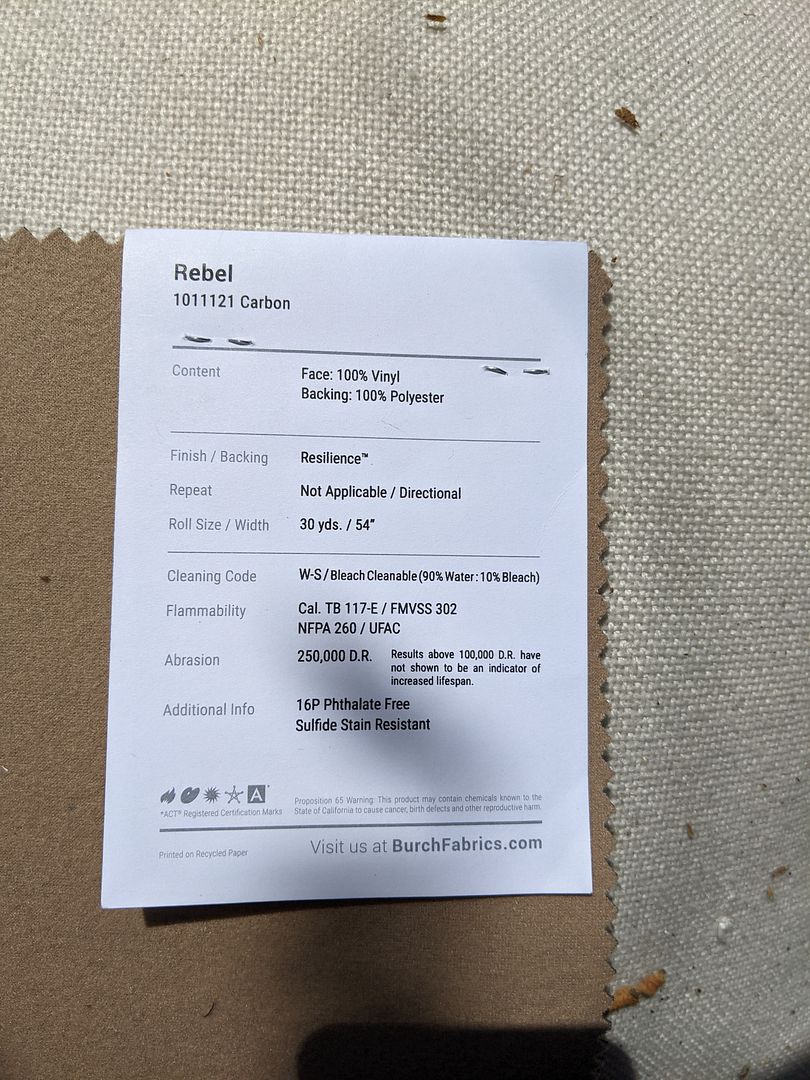
Option 2: Burch Fabrics “Motive”, Jet
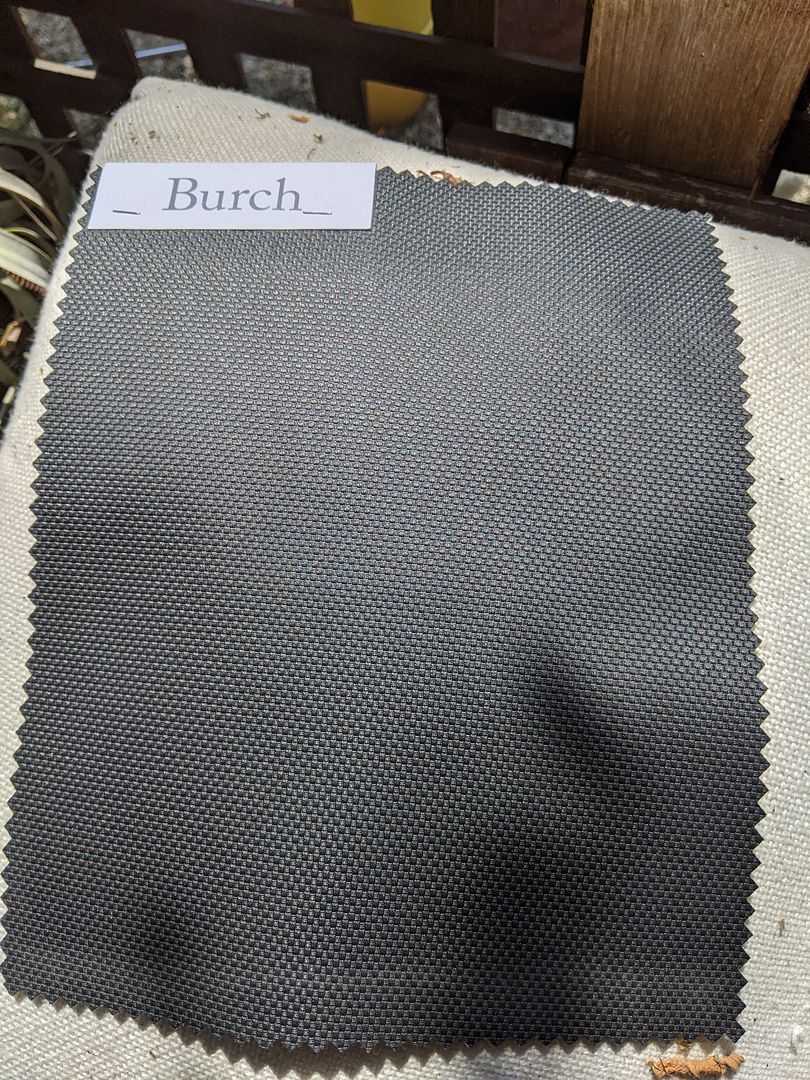
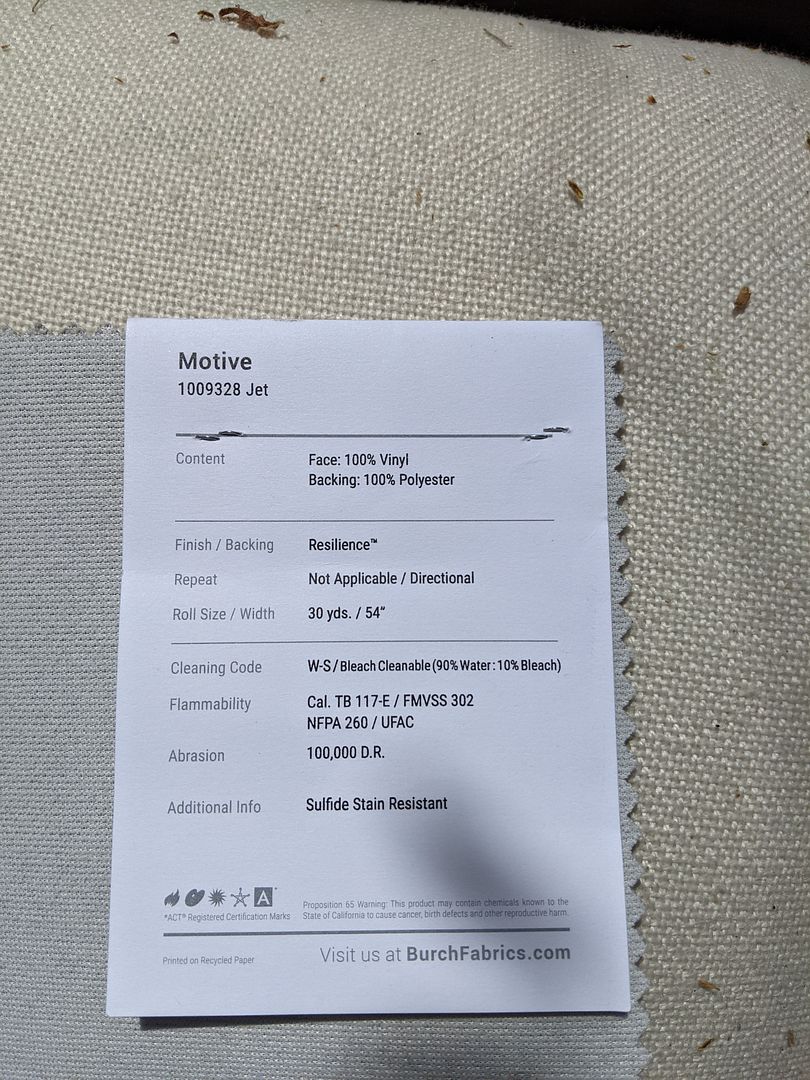
Even though I was intrigued by the weave and pattern of the second, I went with the first option since it was the closest in color to Anthracit and thought it would work the best with the carpet. Here are a few quick but not very good shots of it installed (I’ll get better ones once the whole interior is in):
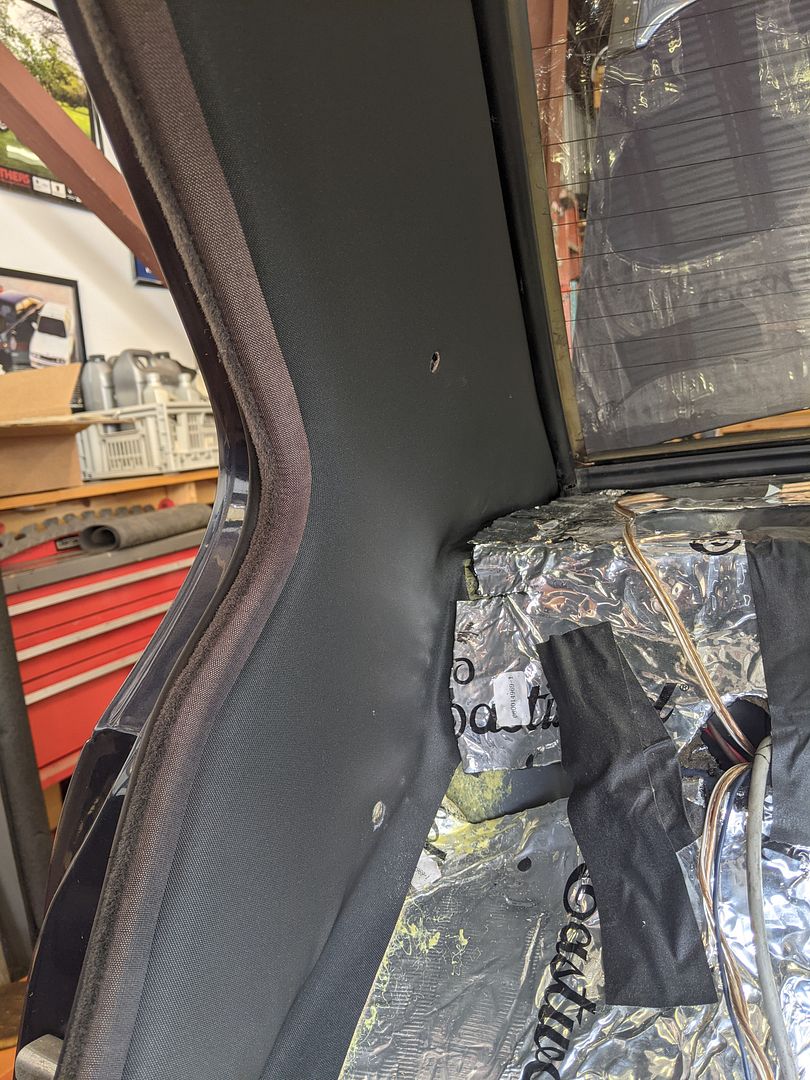
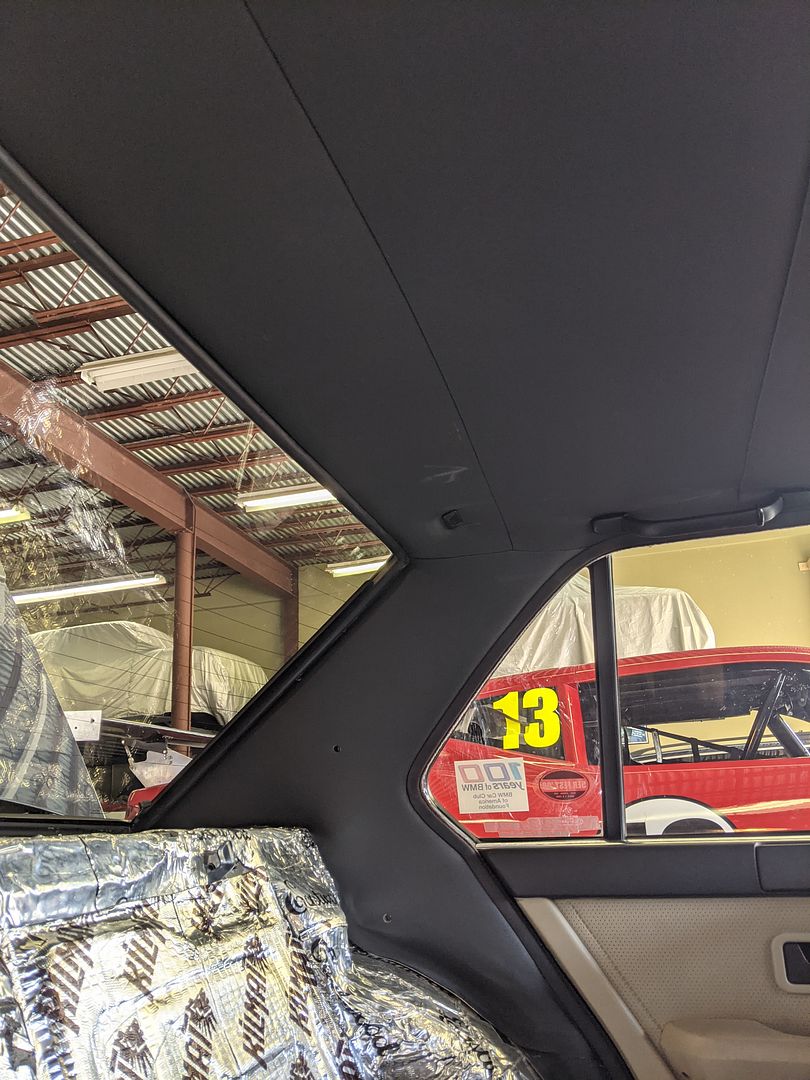
Once I got the car back from Juan, I had to ping-pong it back to the body shop to replace the Accelerator floor bracket before I could finish the floor work. I picked up this neat replacement unit from SRS Concept out of Canada which is designed to bolt through the floor (https://srs-concept.com/product/gas-ped ... t-2-holes/). I didn’t want to do that since the source of some rust was the floorboard itself and I wanted to have some level of confidence that the floor wouldn’t fail under the pedal. Unfortunately, the body shop doesn’t/couldn’t weld stainless steel to the regular steel of the floorboard; he was trying to fabricate his own bracket out of regular steel but couldn’t get the forming and bending precise enough with his limited tools. So in the end he put in a new piece of floorboard reinforcing and bolted the SRS bracket through. (I don’t have a shot of underneath yet).
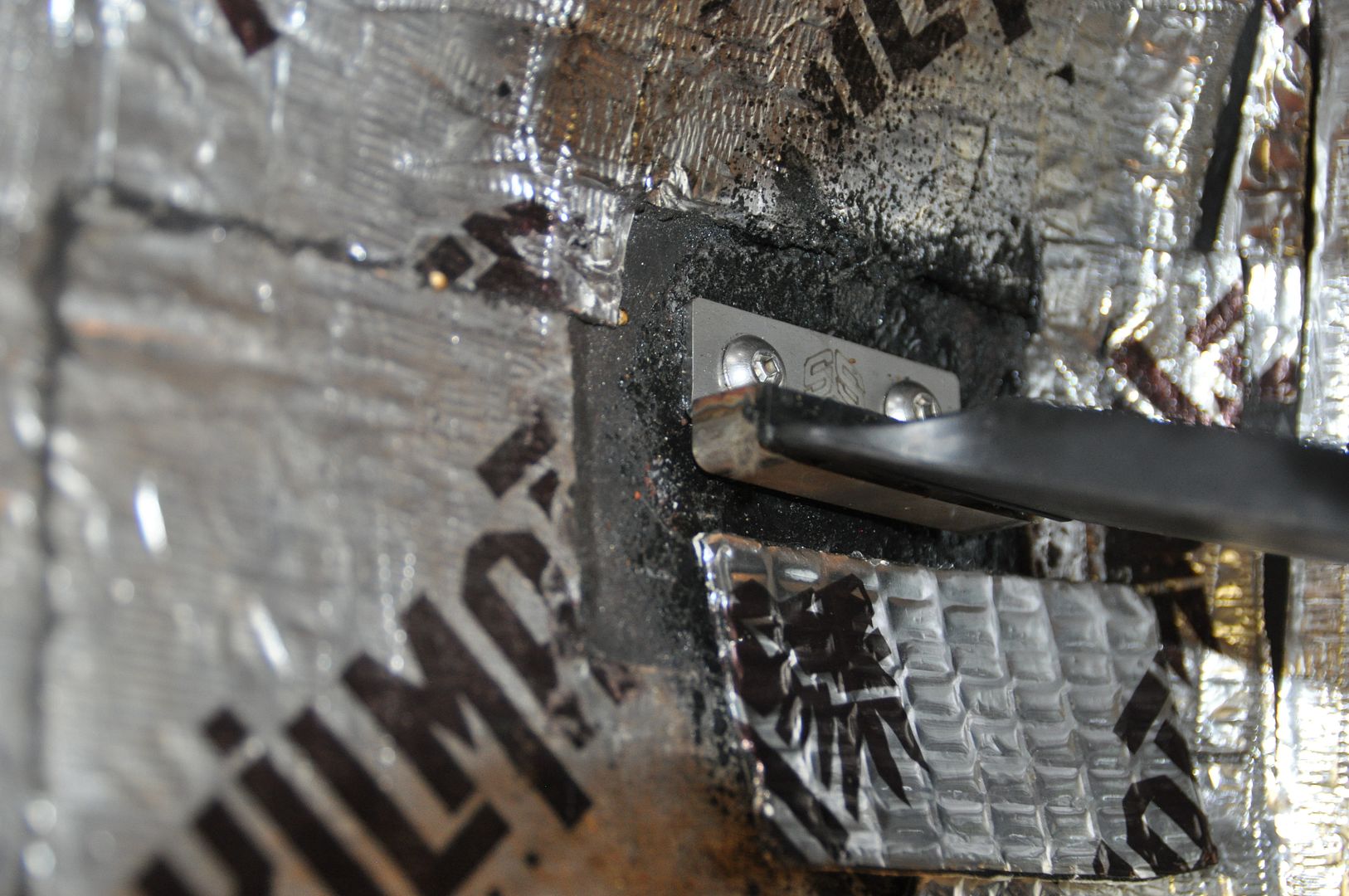
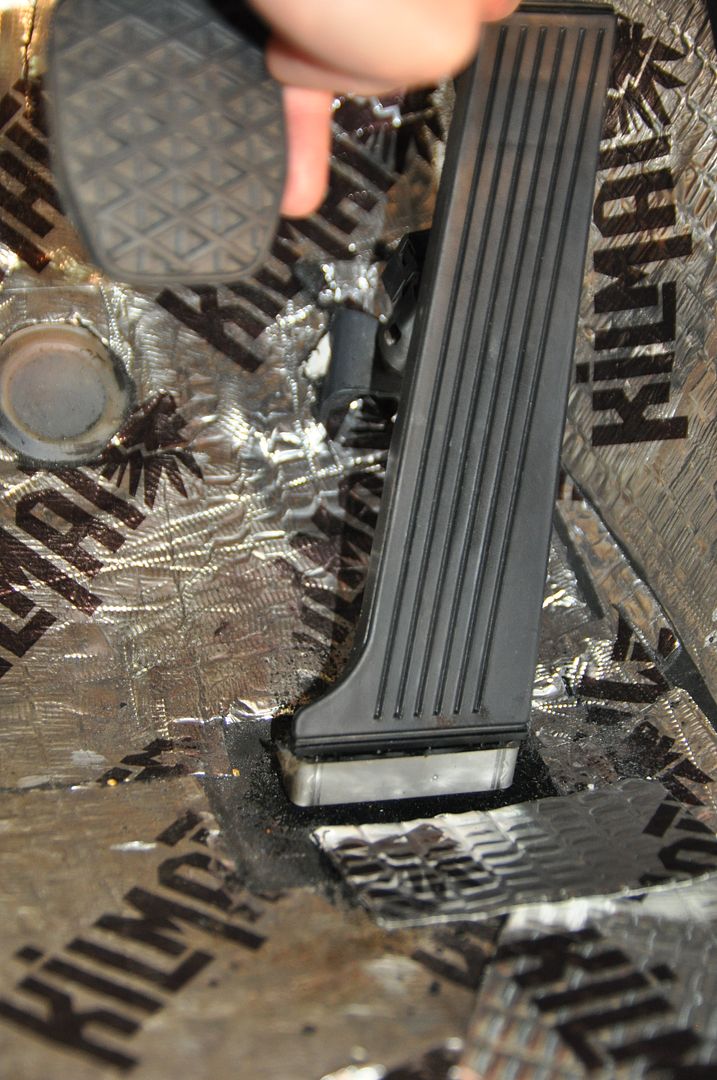
Immediately following that was to get back to the HVAC system and remove the existing Heater Box & Core.
It all came out fairly easy (everything comes out much easier than when it has to go back in, doesn’t it?) and I set about rebuilding/refreshing the whole heating system. Once on the bench and pulled apart, I got to see, once and for all, the source of all that bird seed not to mention all other sorts of yuck:
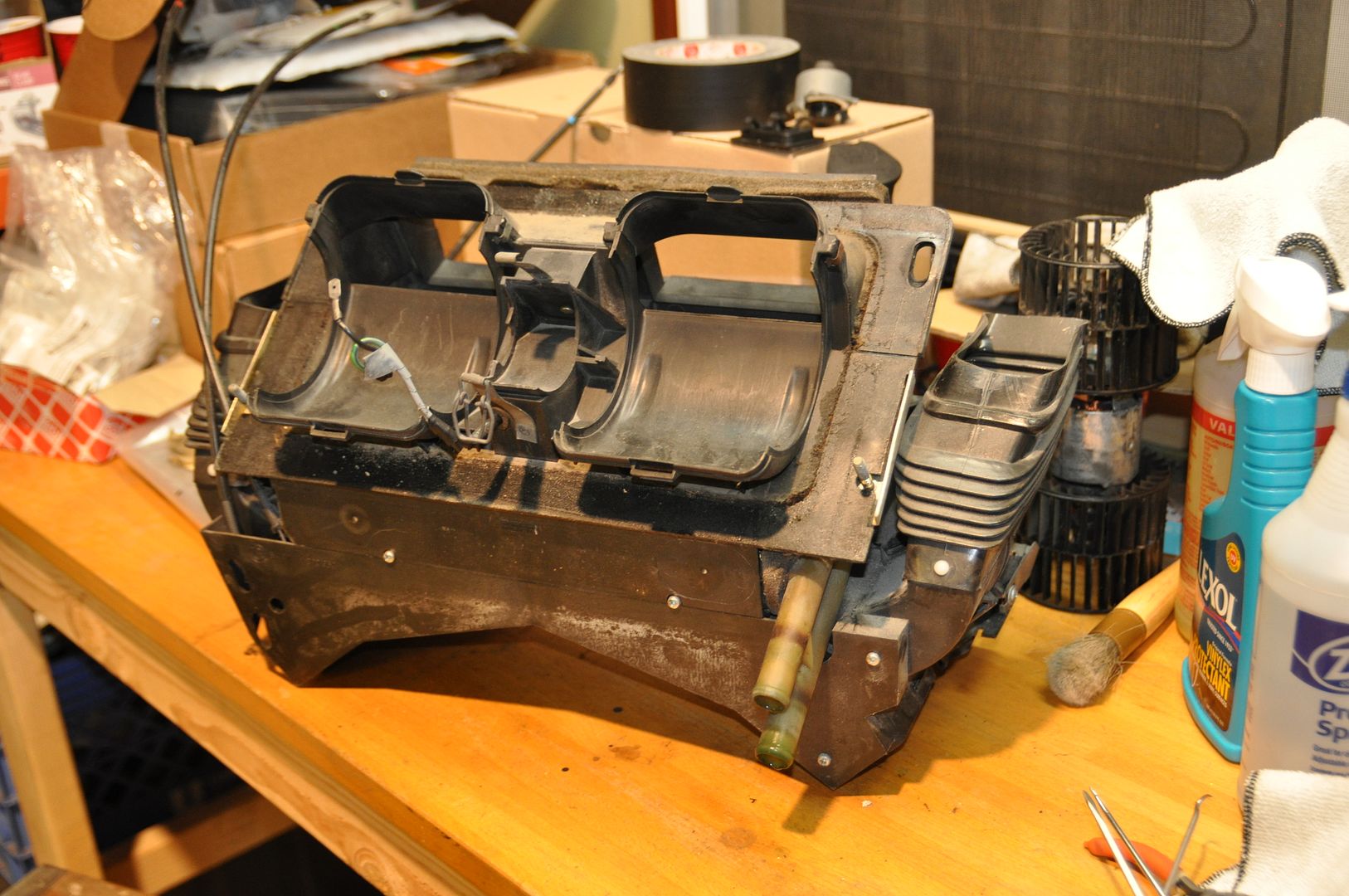
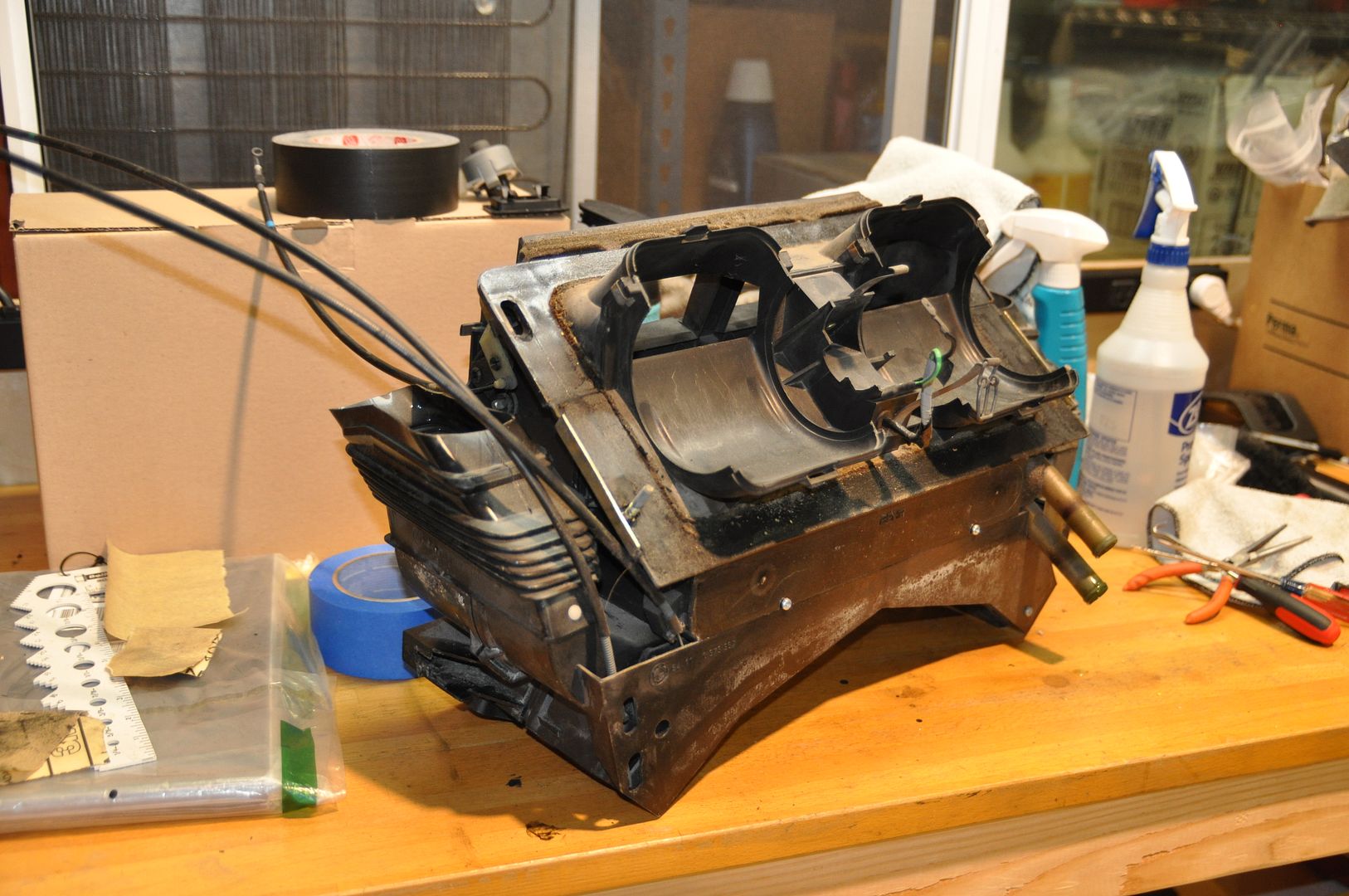
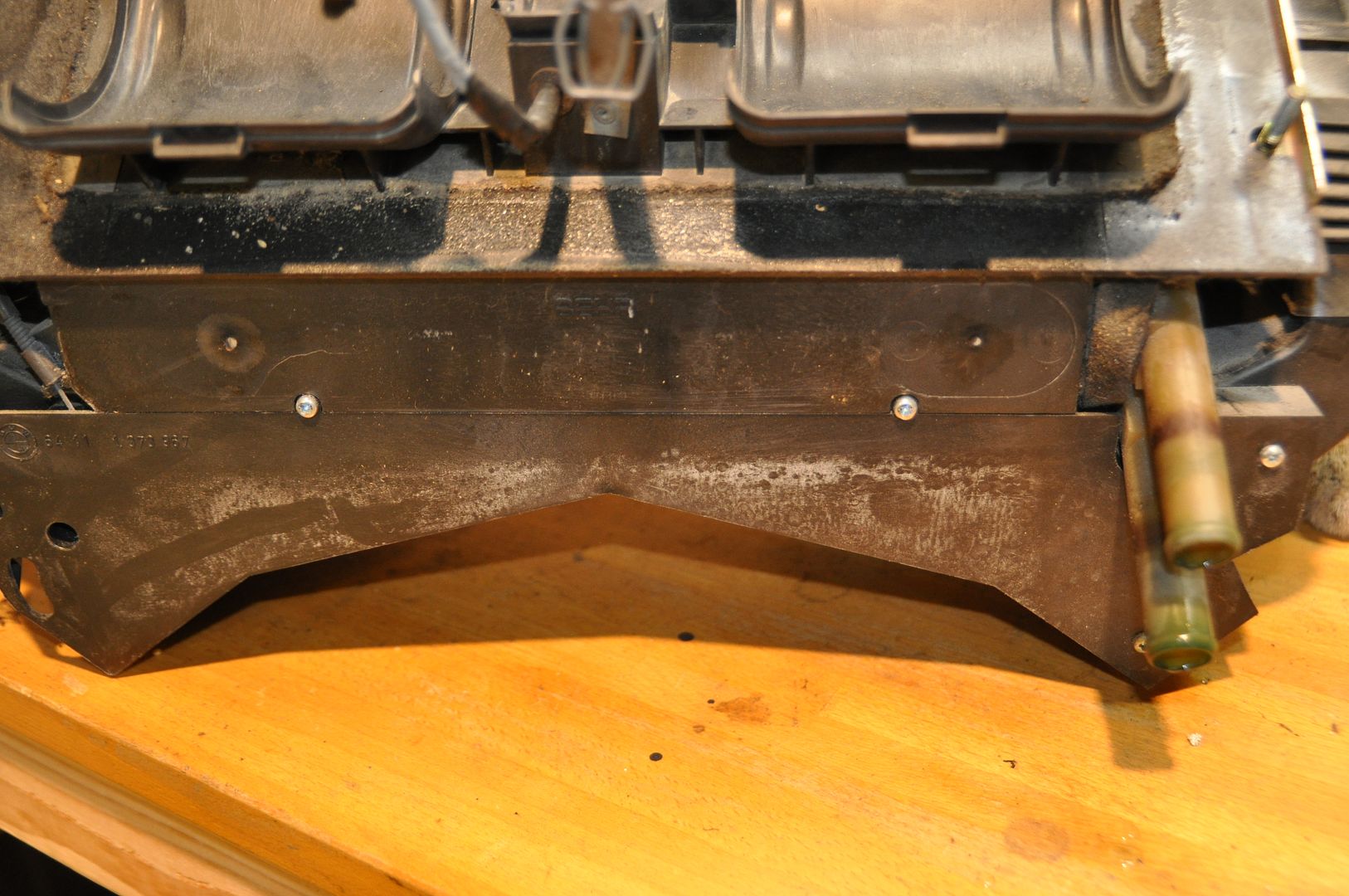
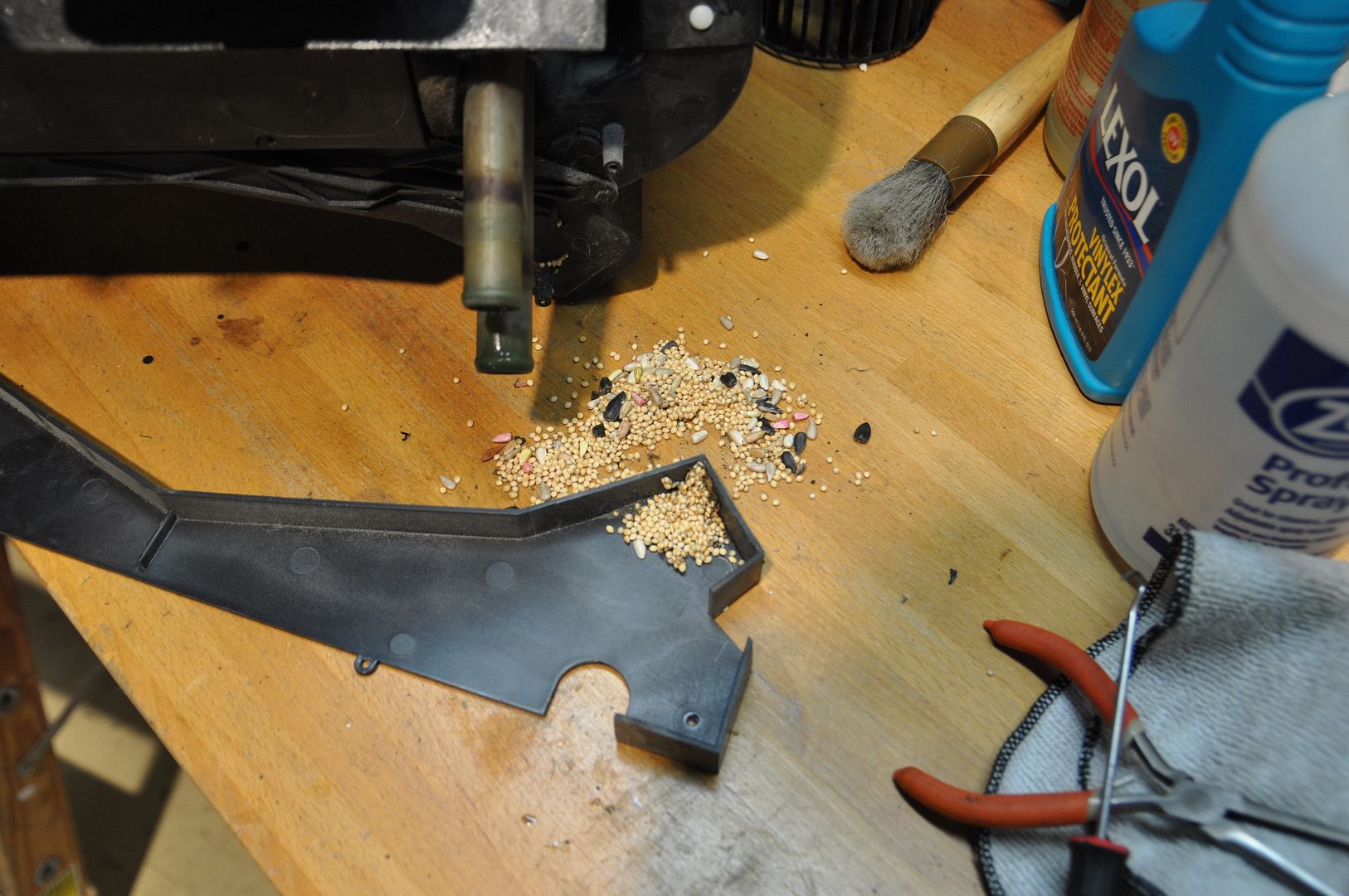
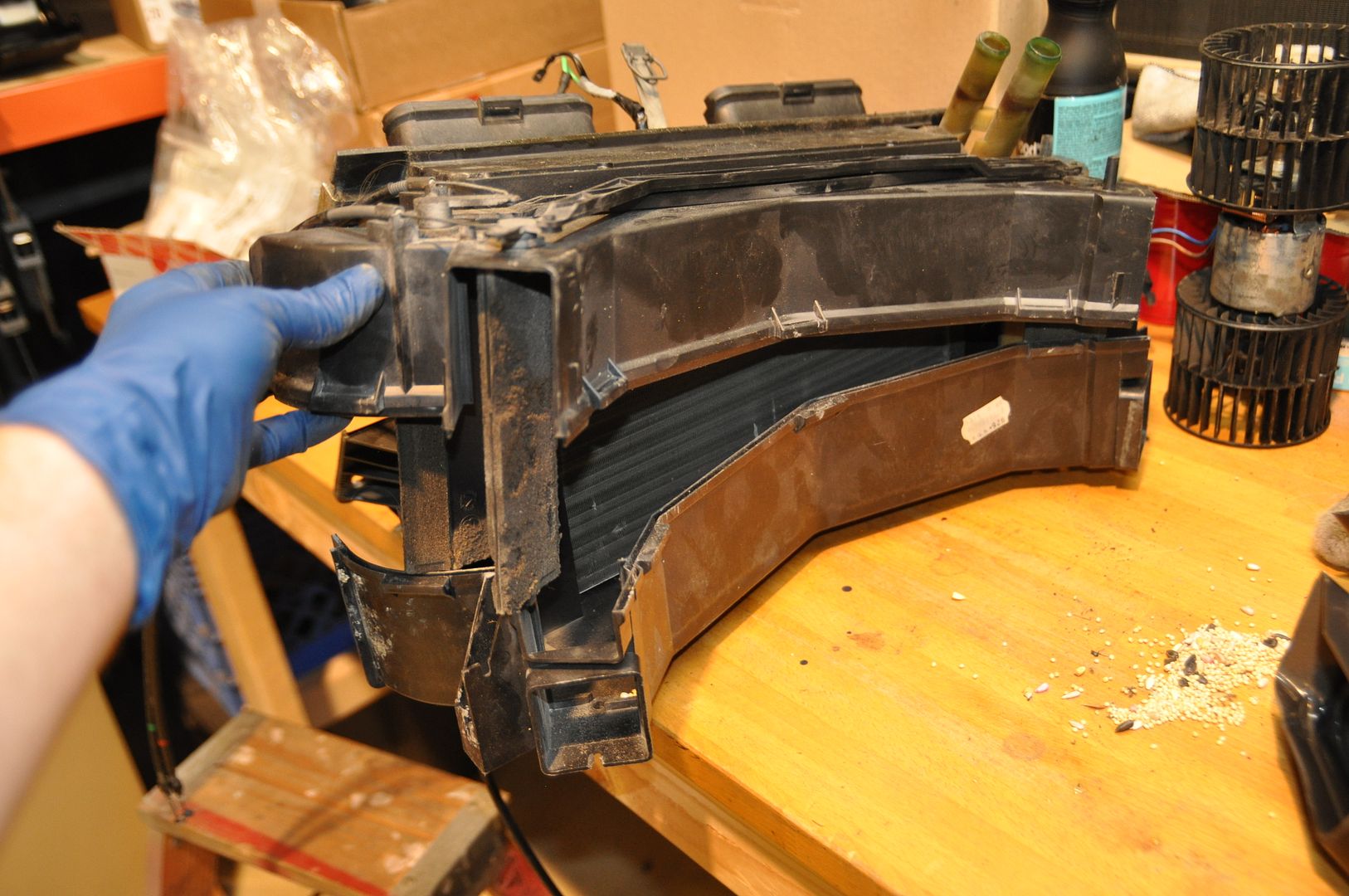
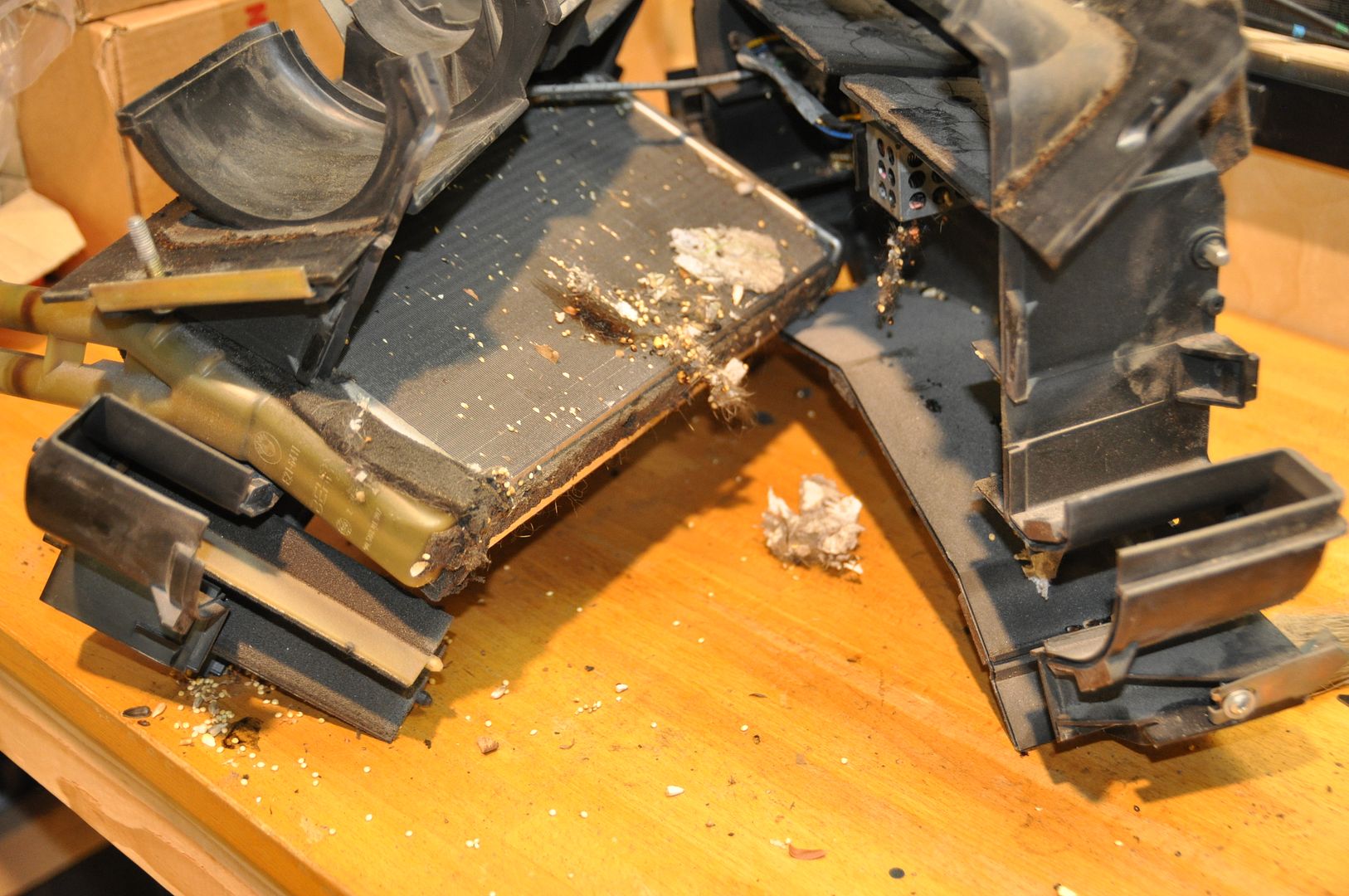
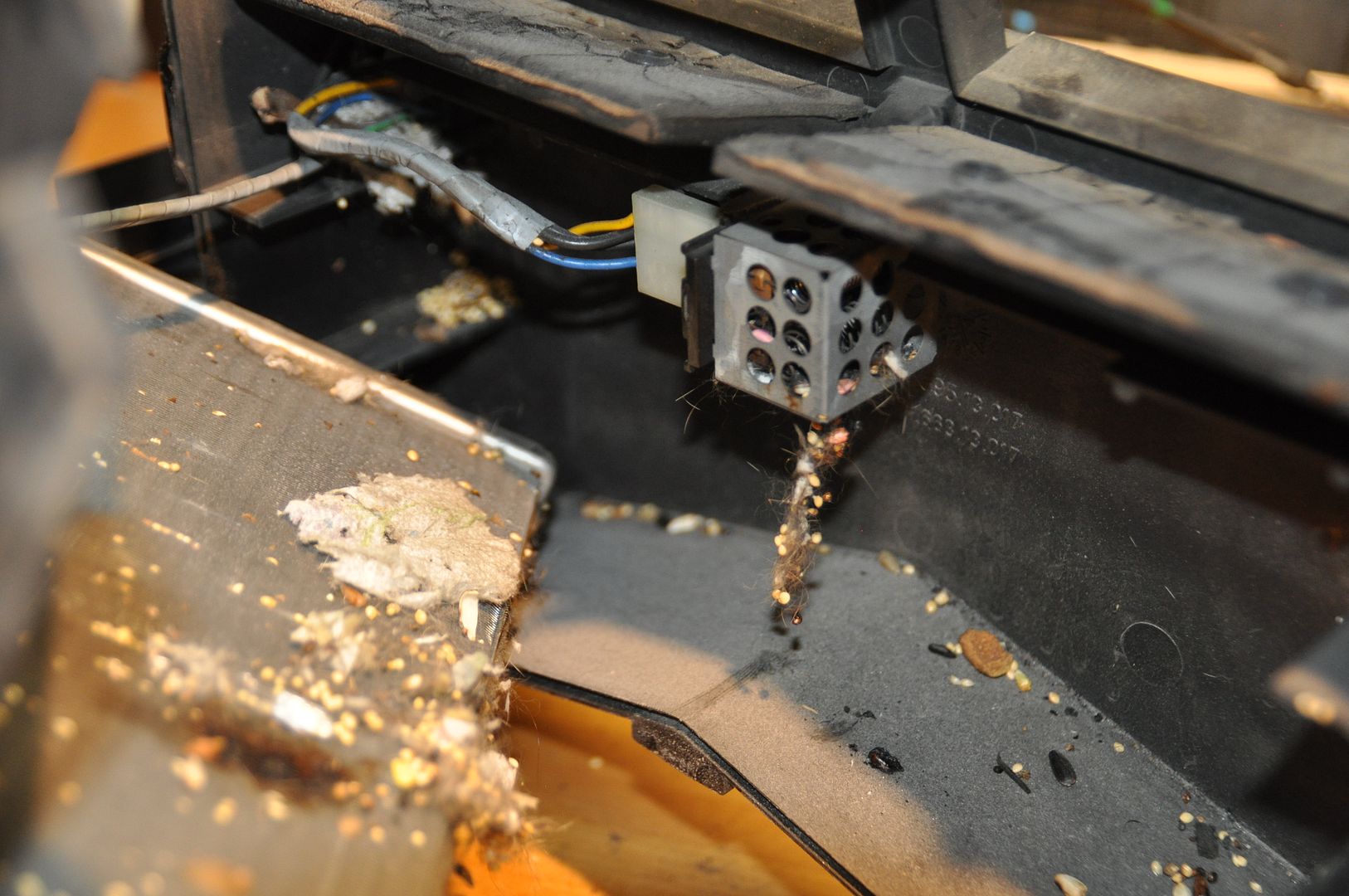
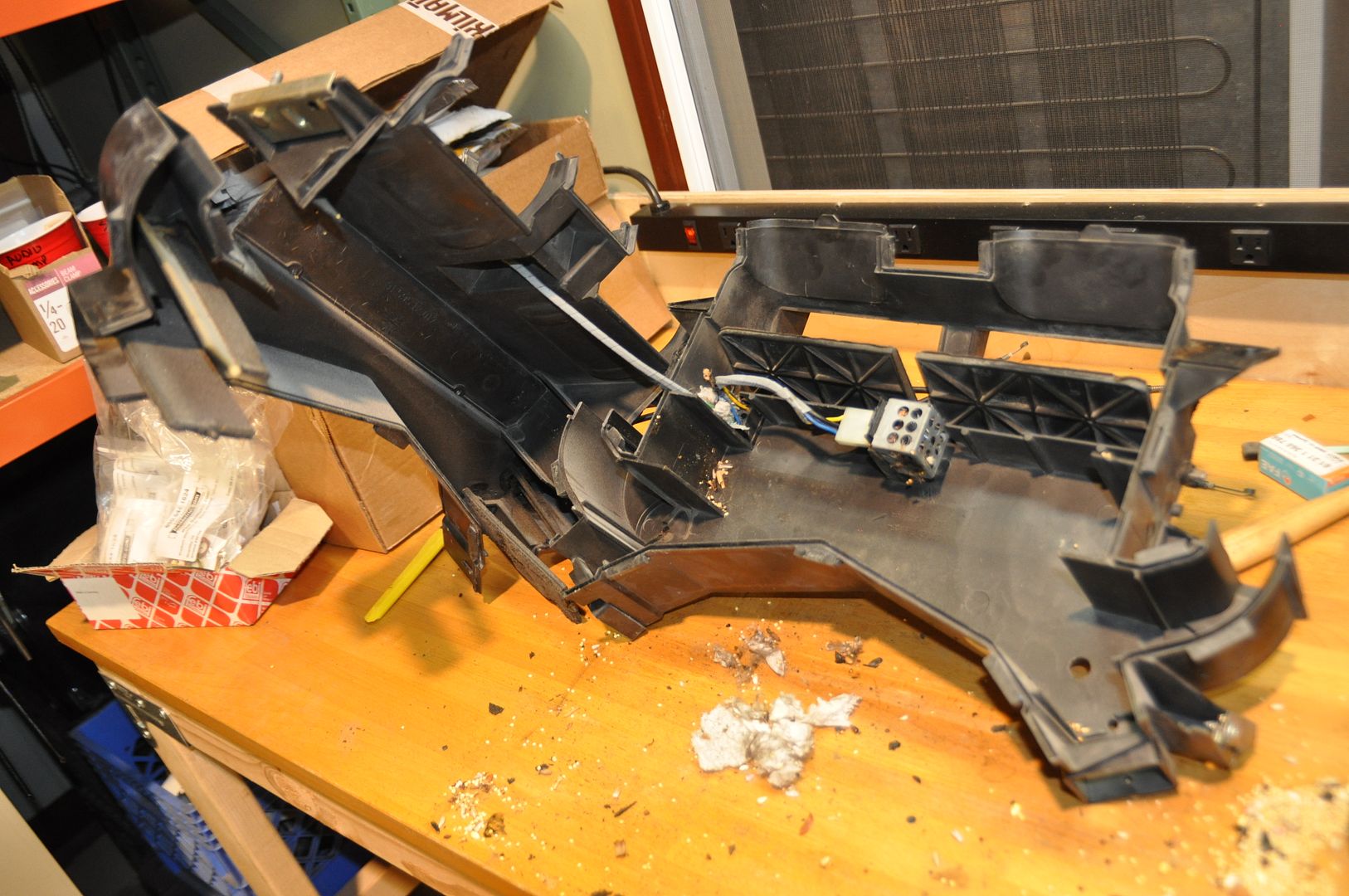
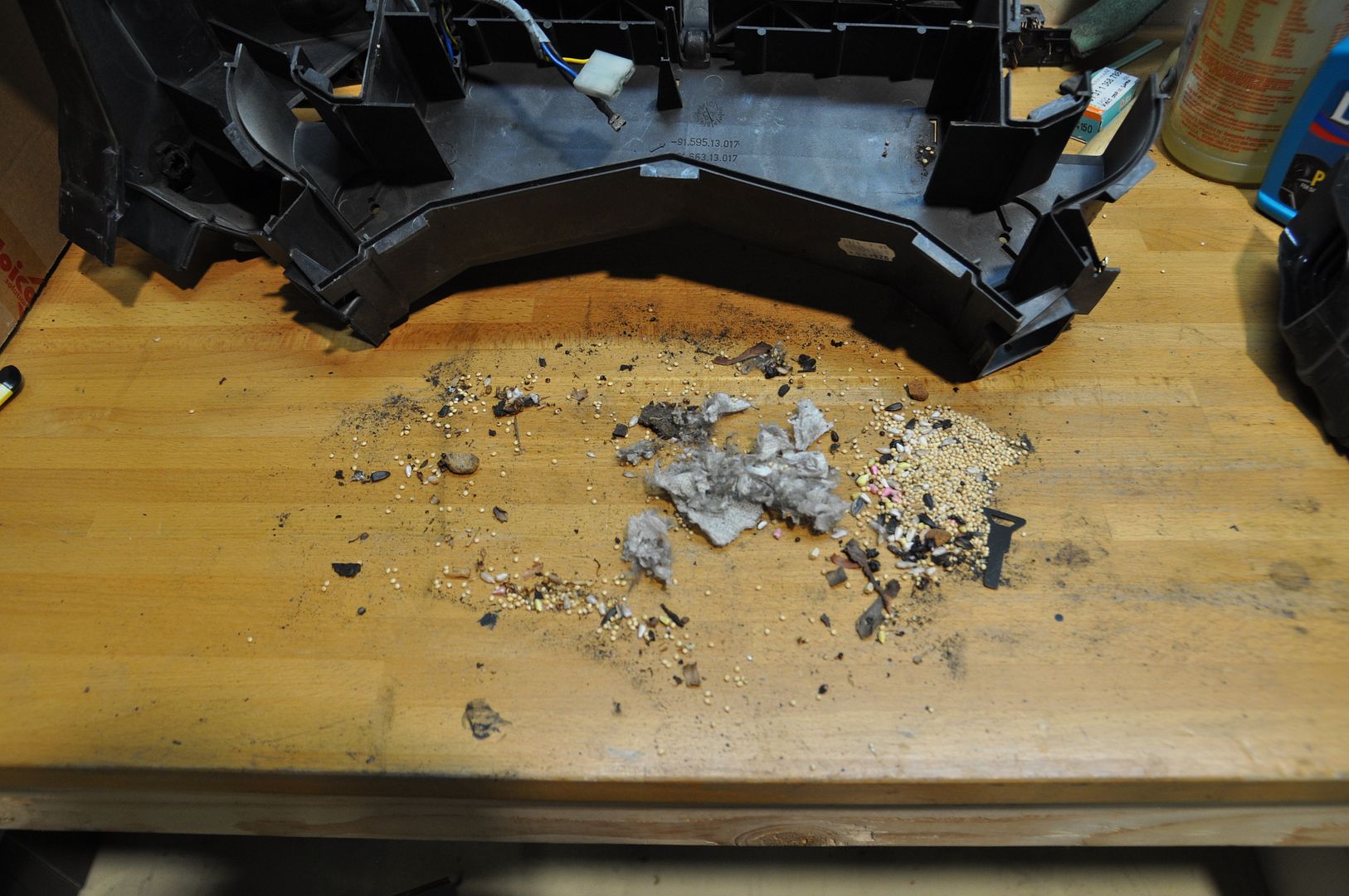
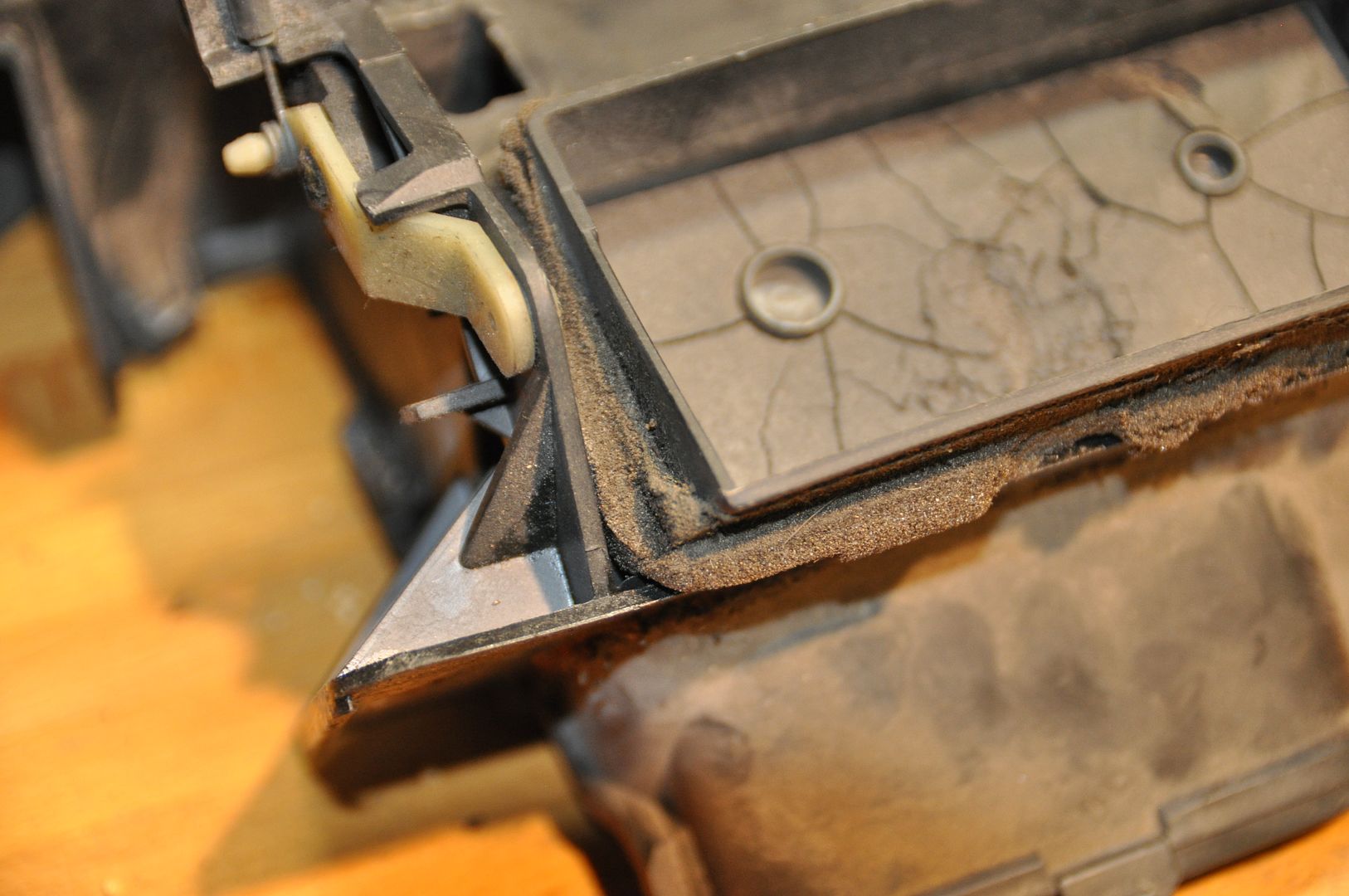
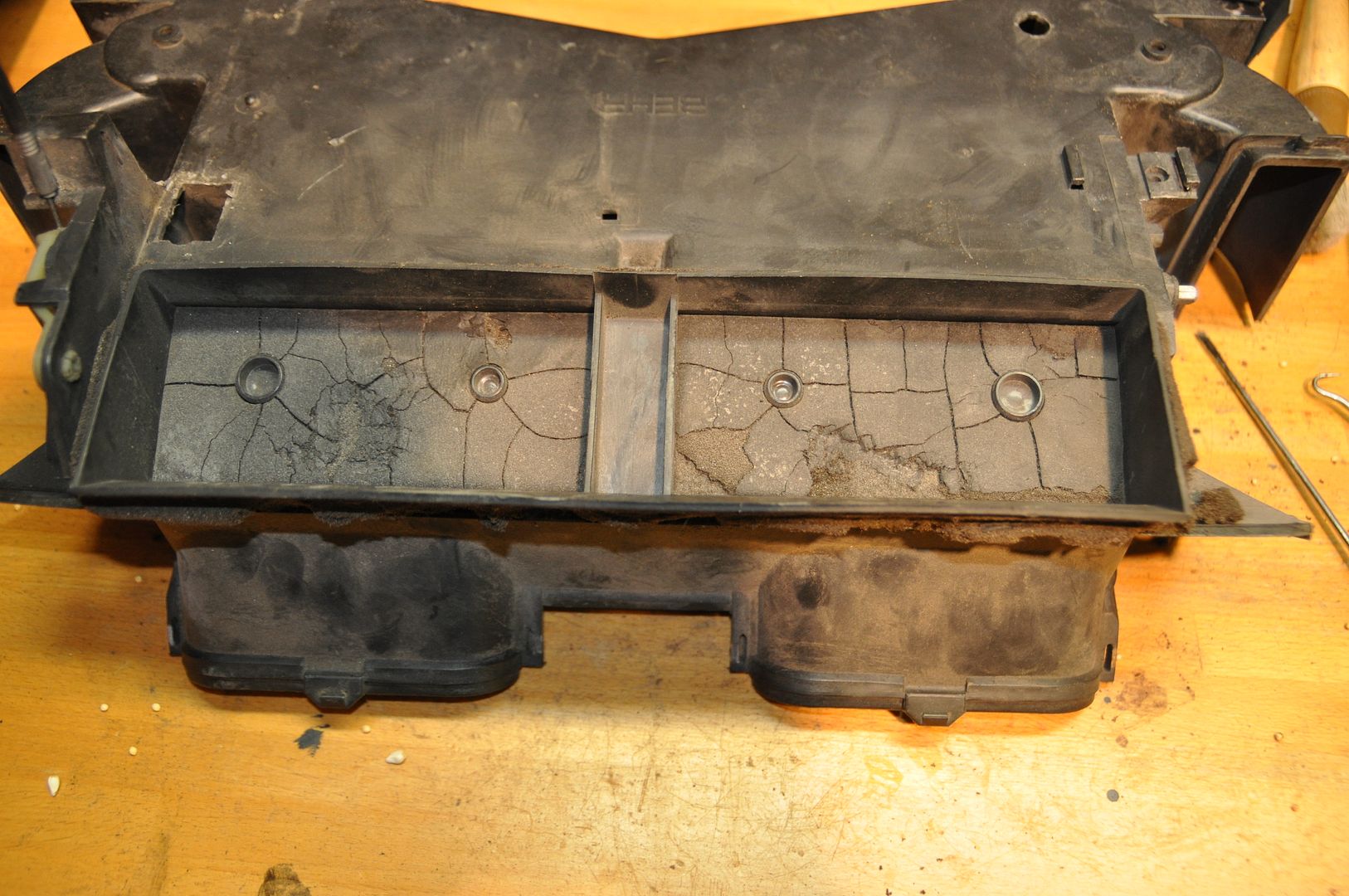
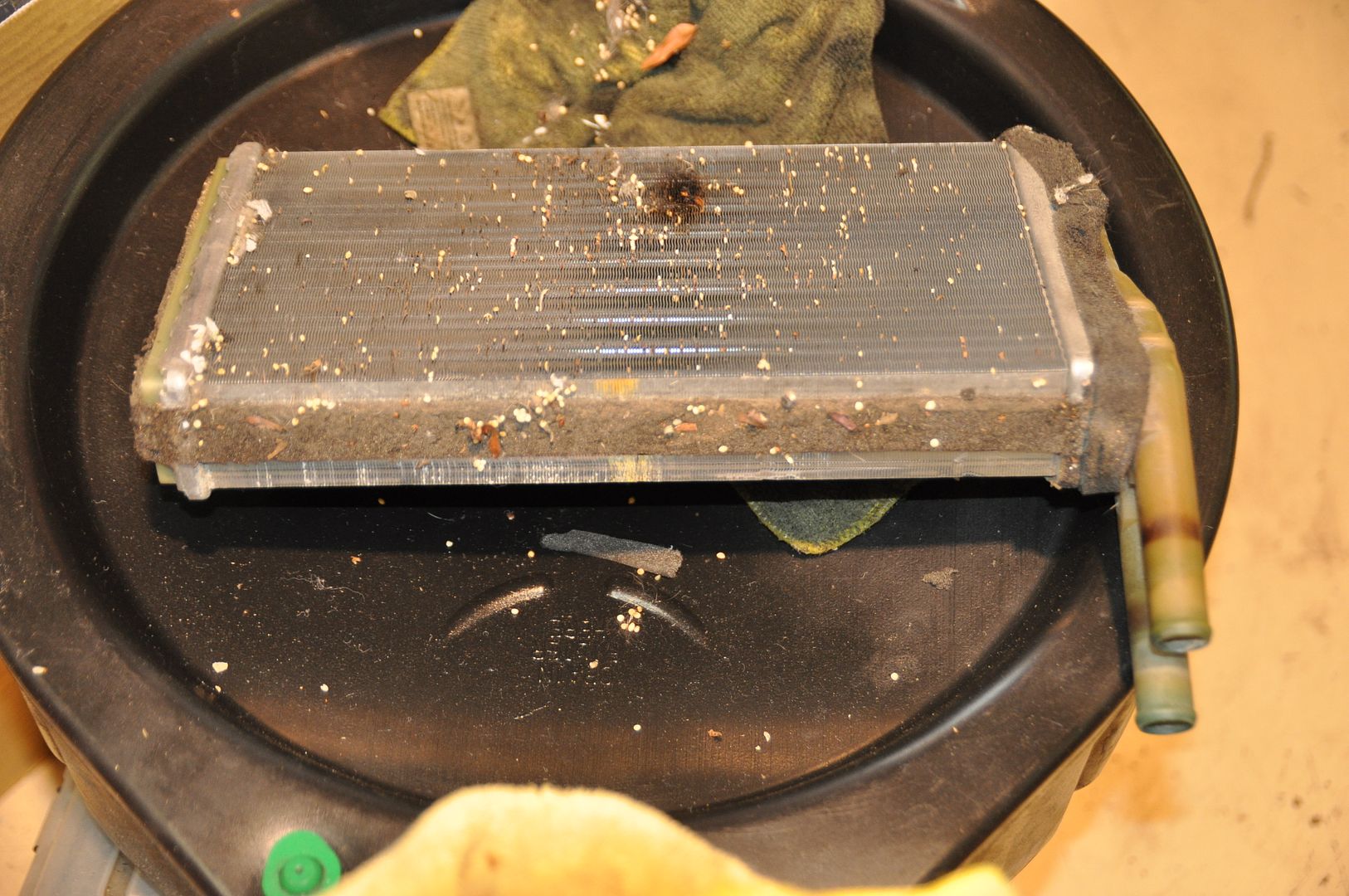
Cleaning and treating the box components were followed by refreshing the foam pieces along with prepping the new Heater Core:
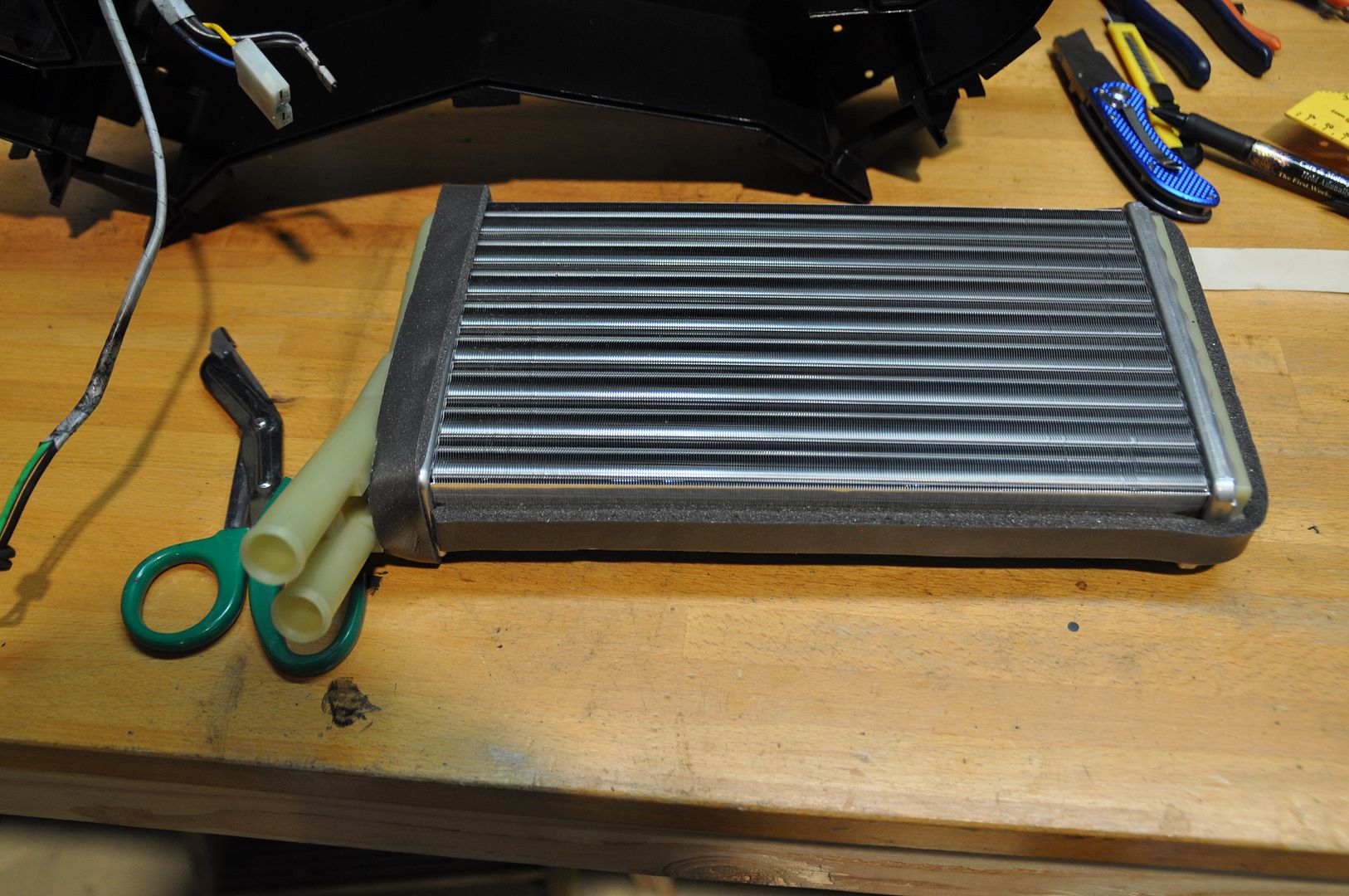
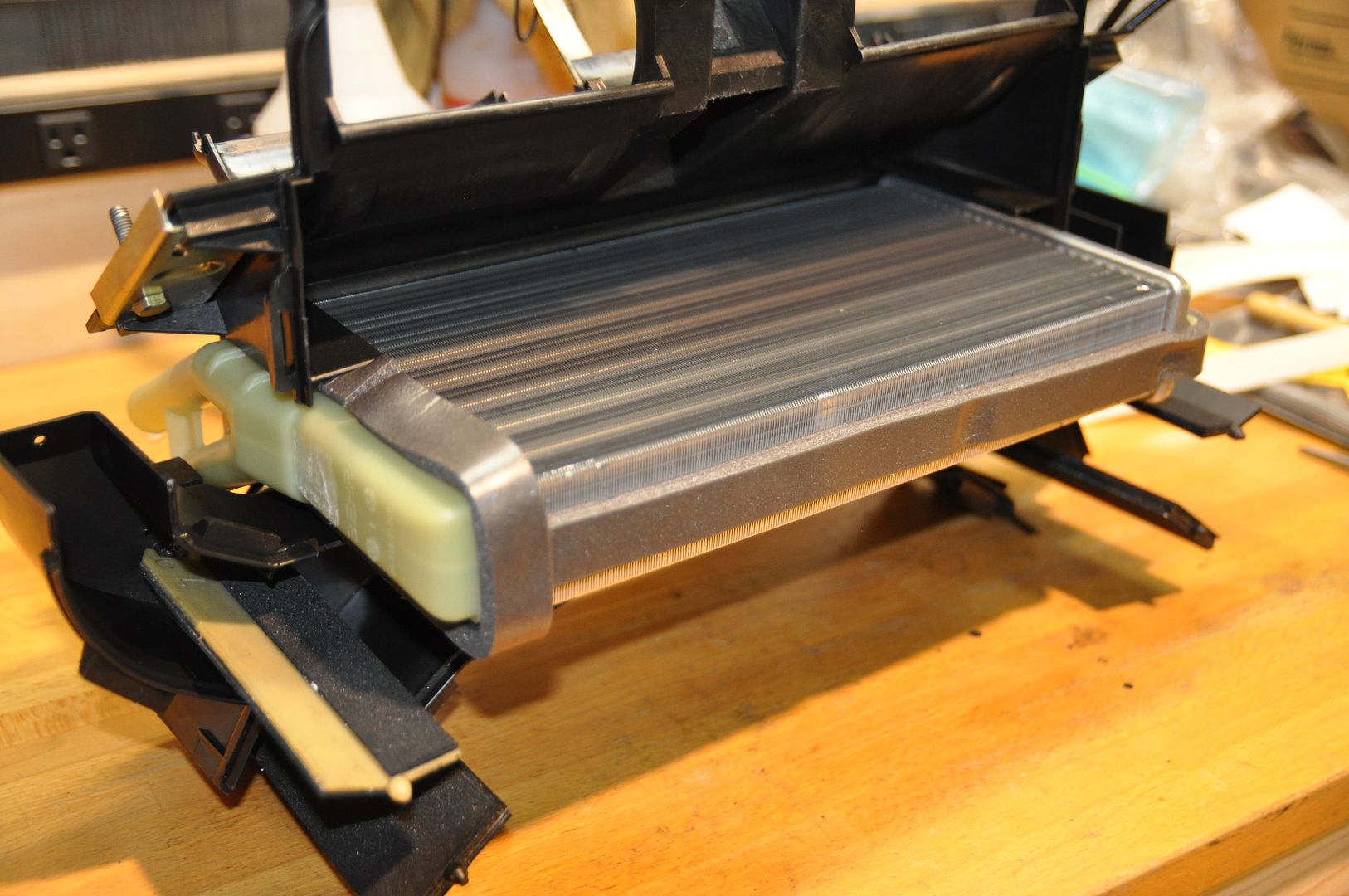
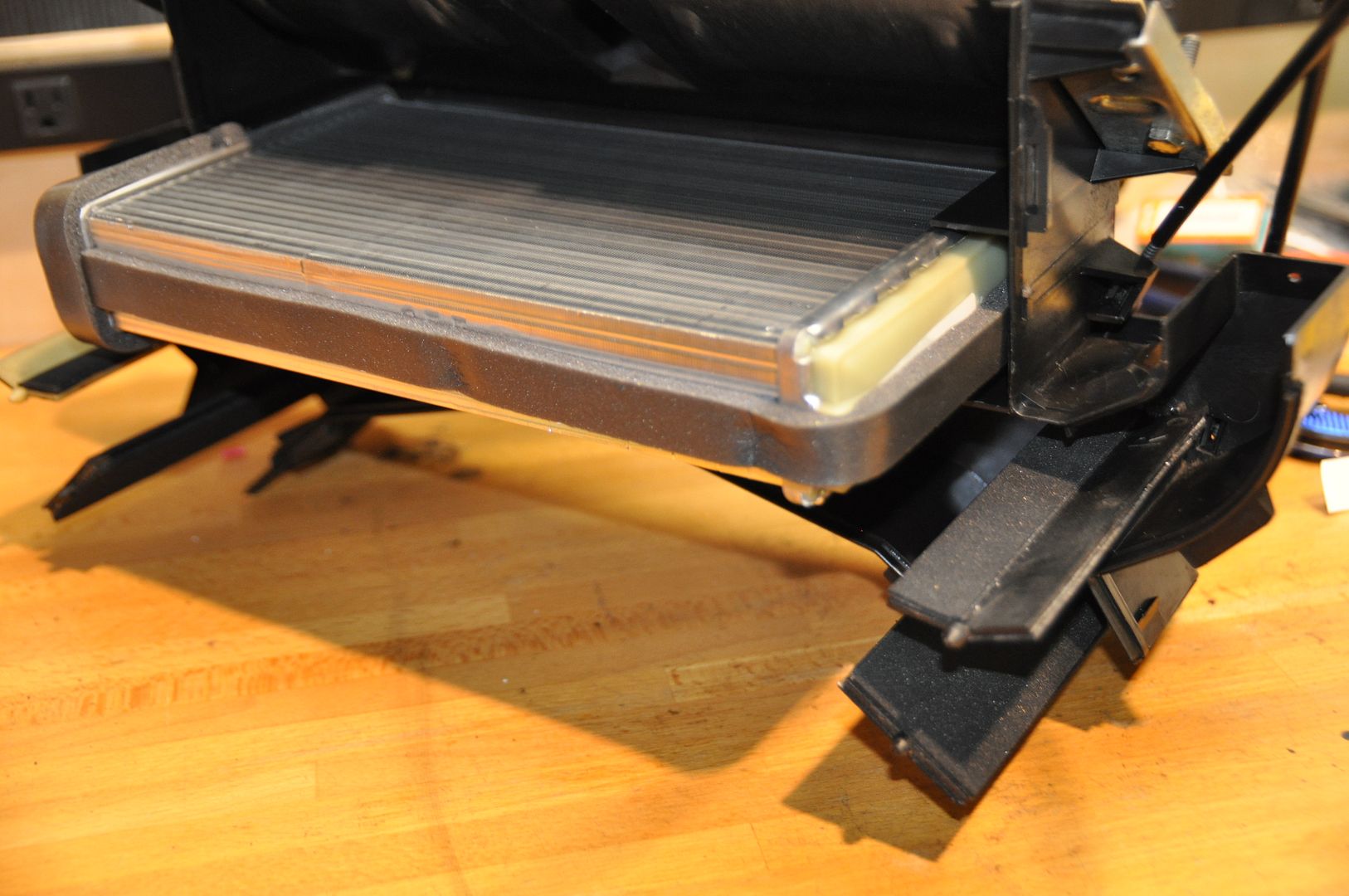
These were a PITA to get cleaned up:
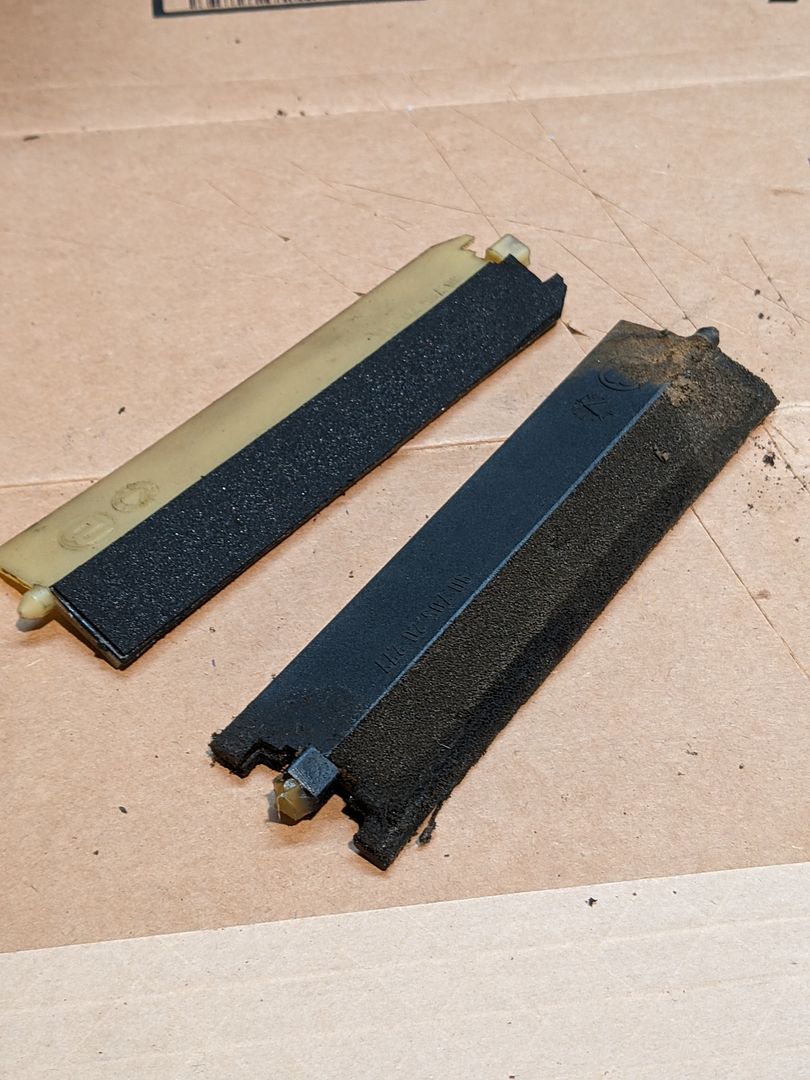
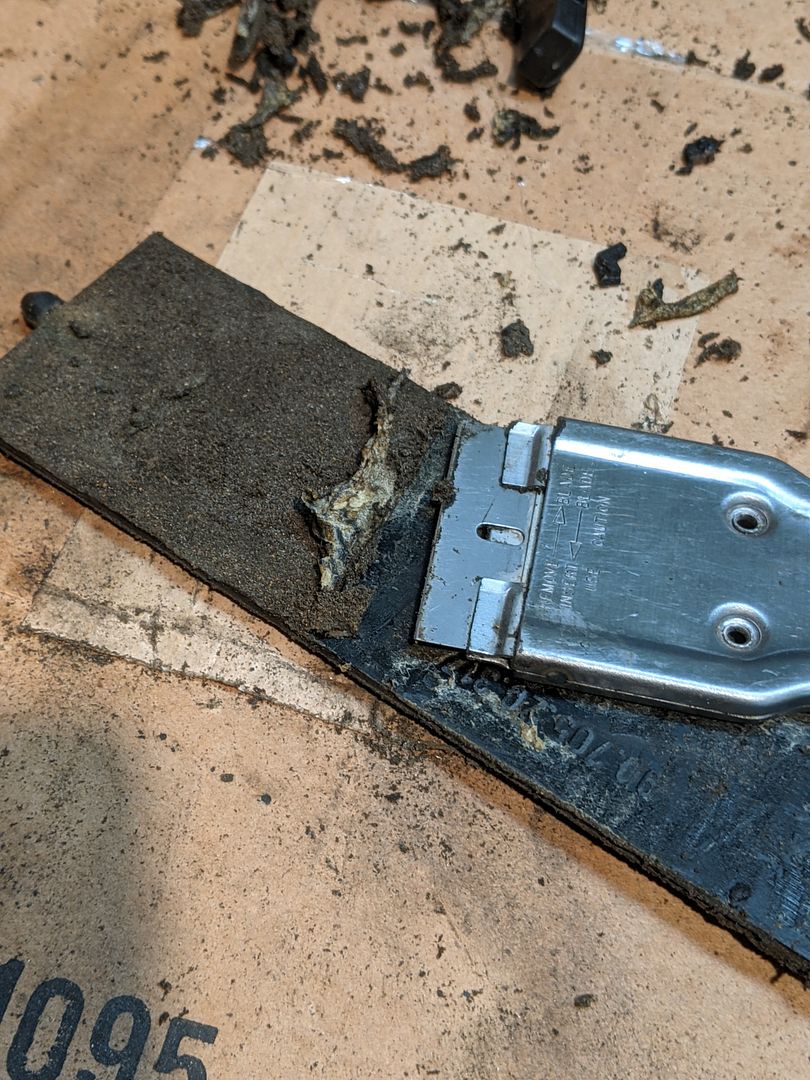
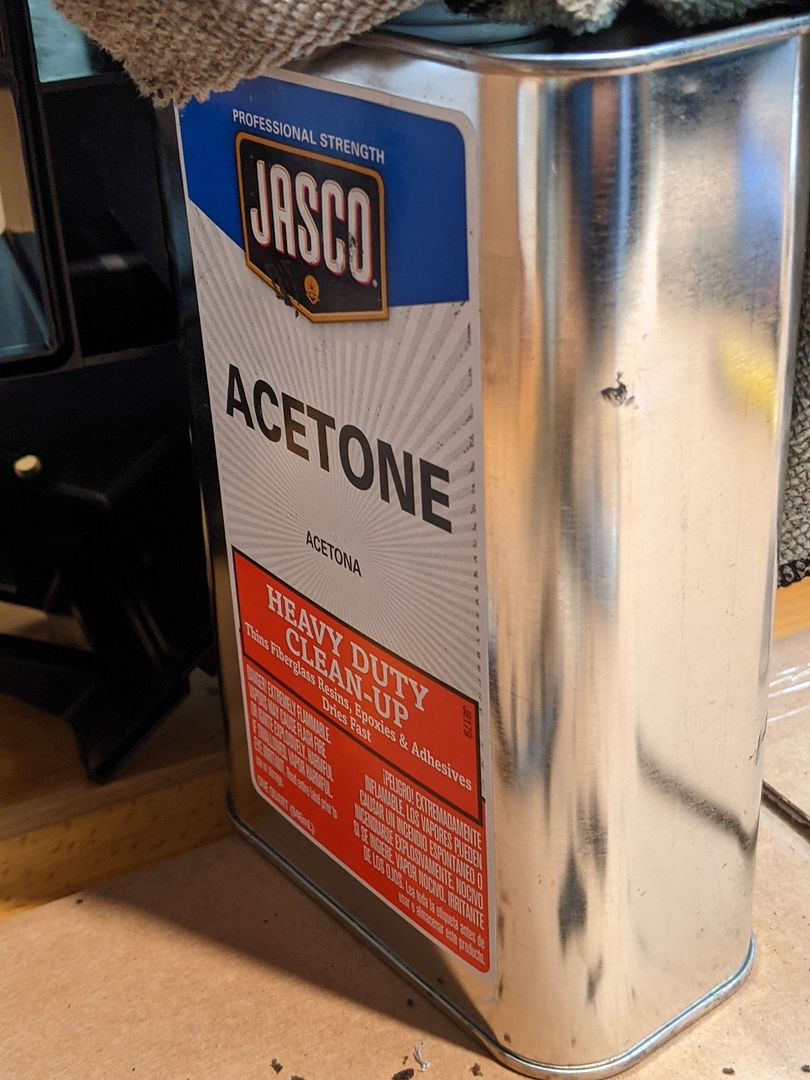
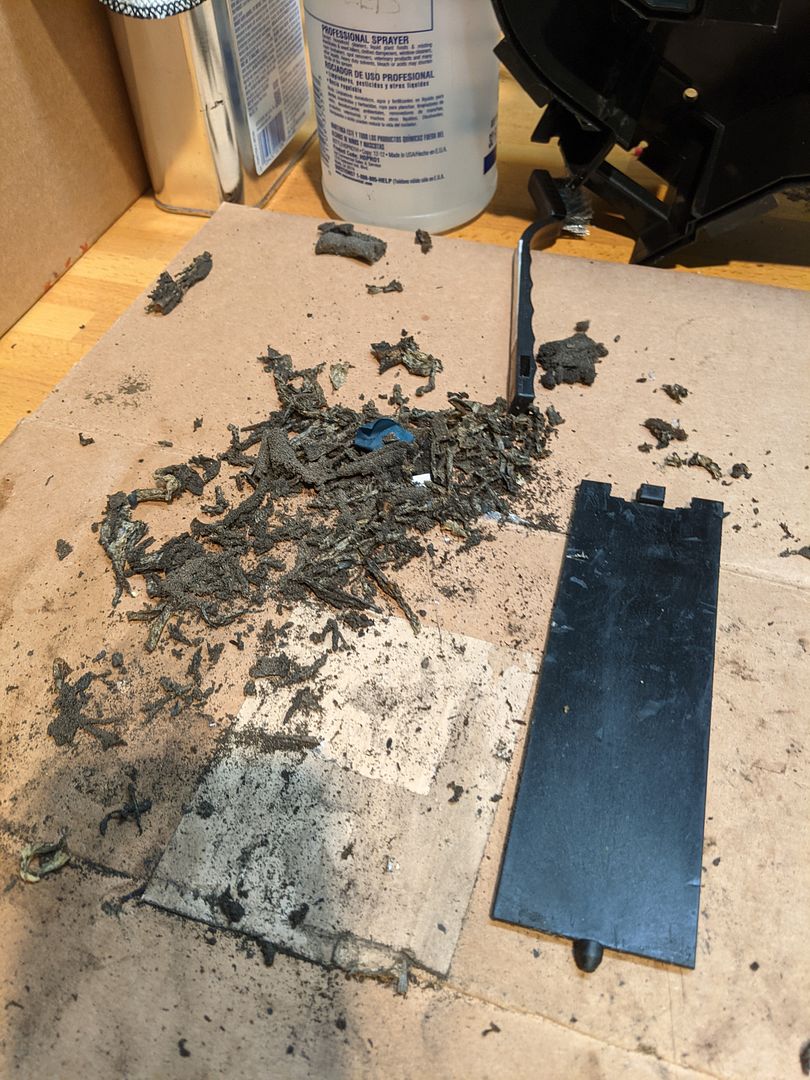
I found this really thin and dense foam and put down two layers to duplicate the original foam on these flaps:
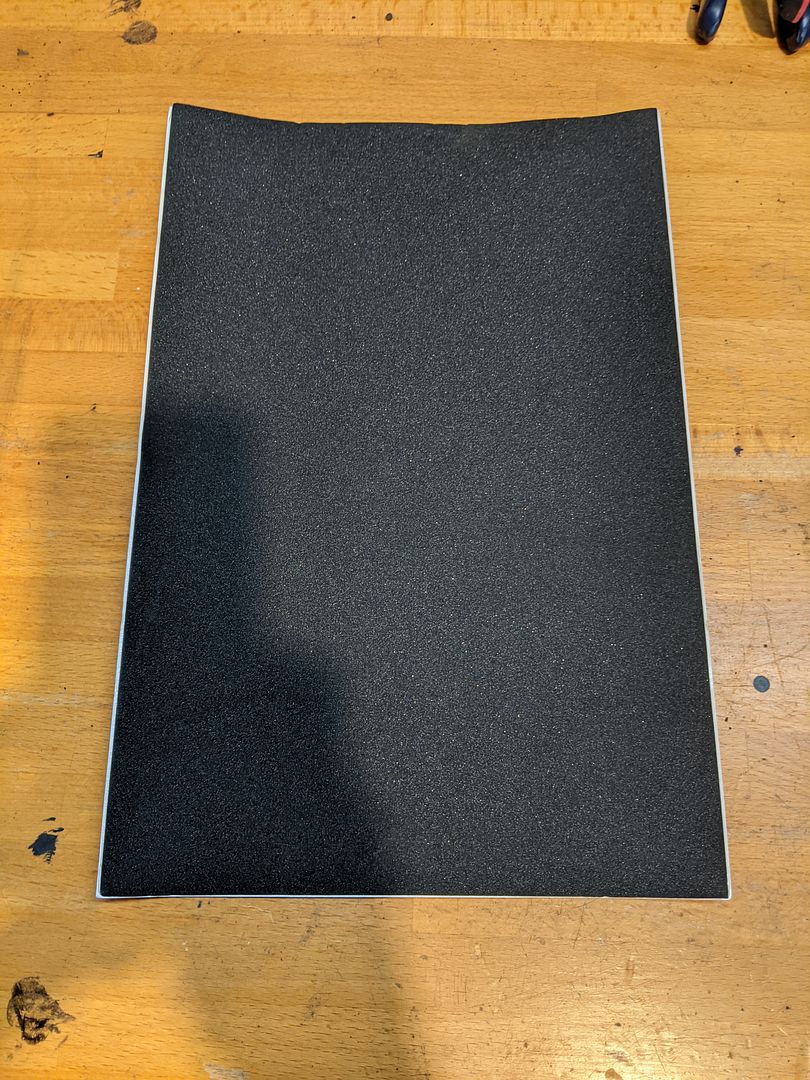
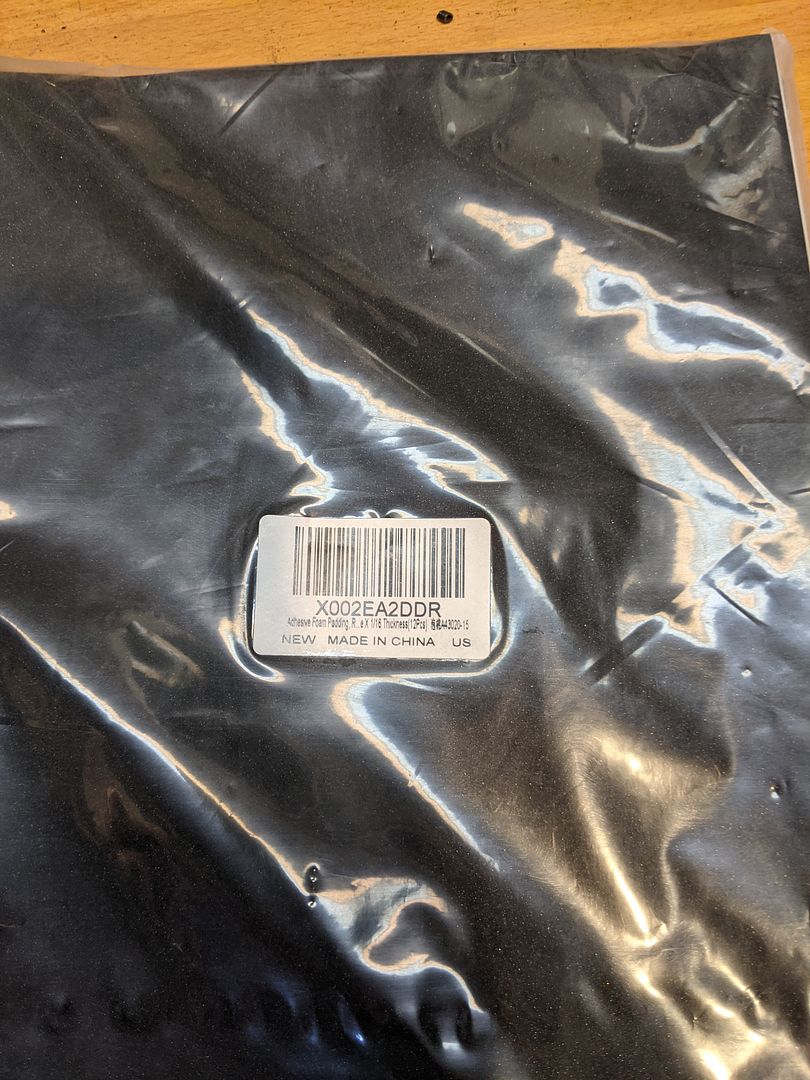
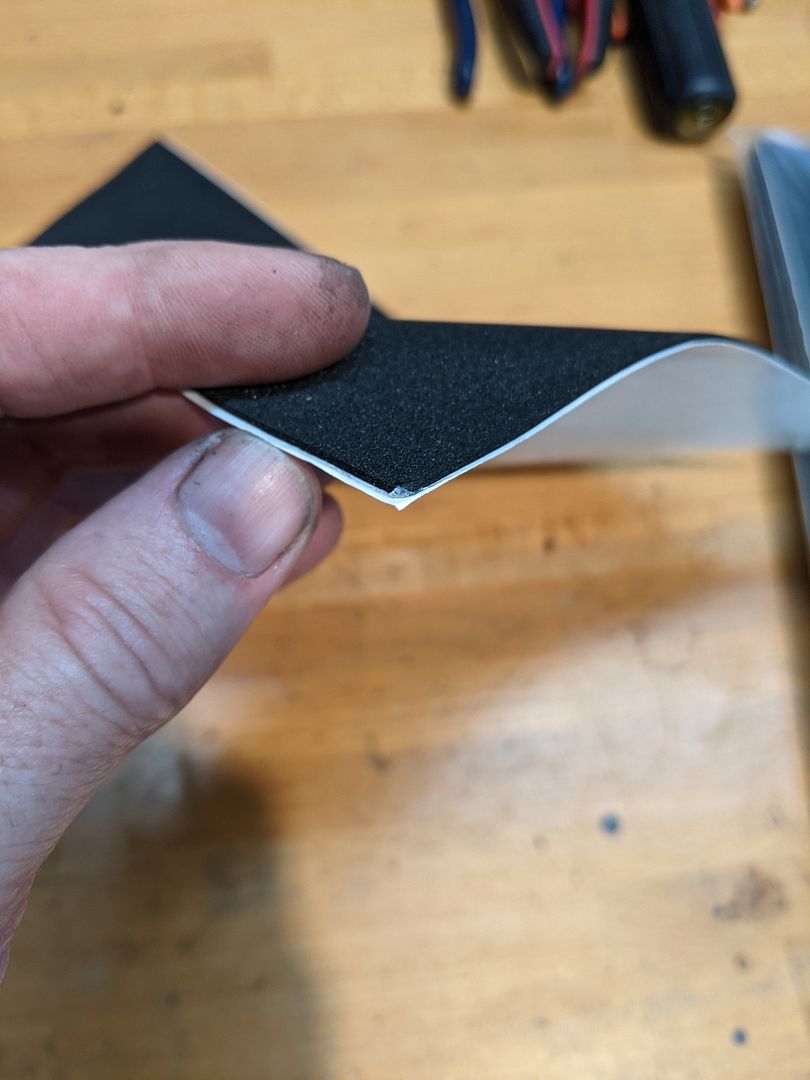
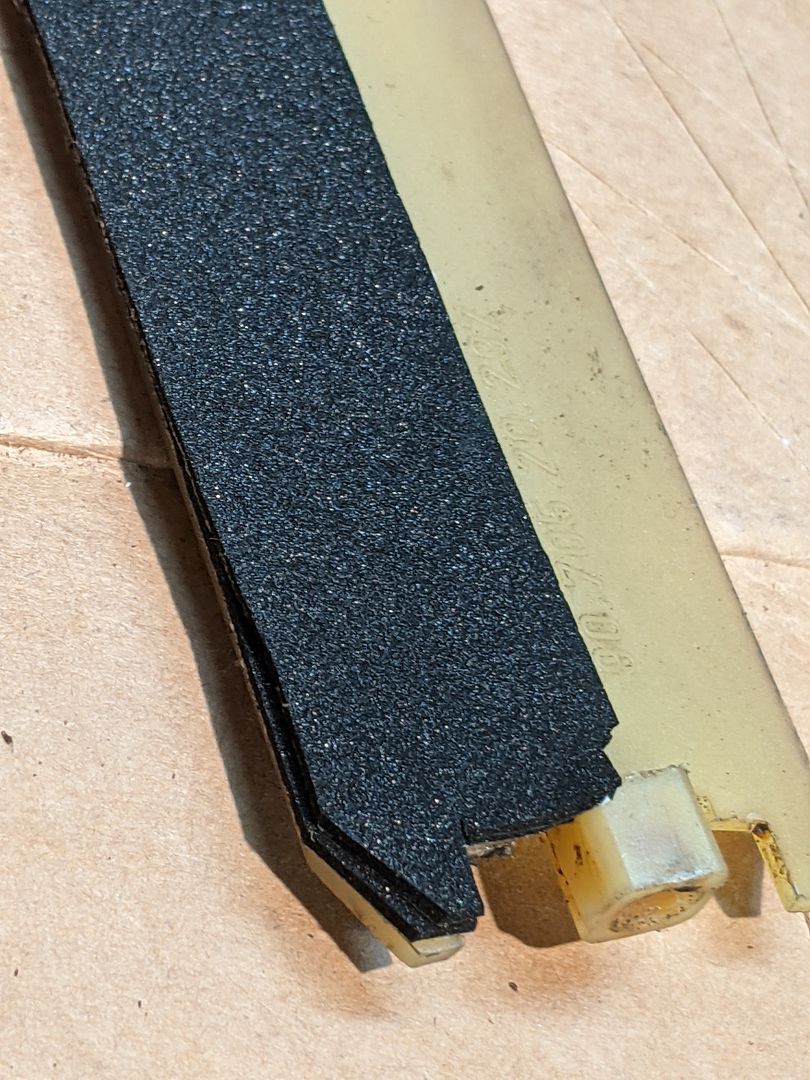
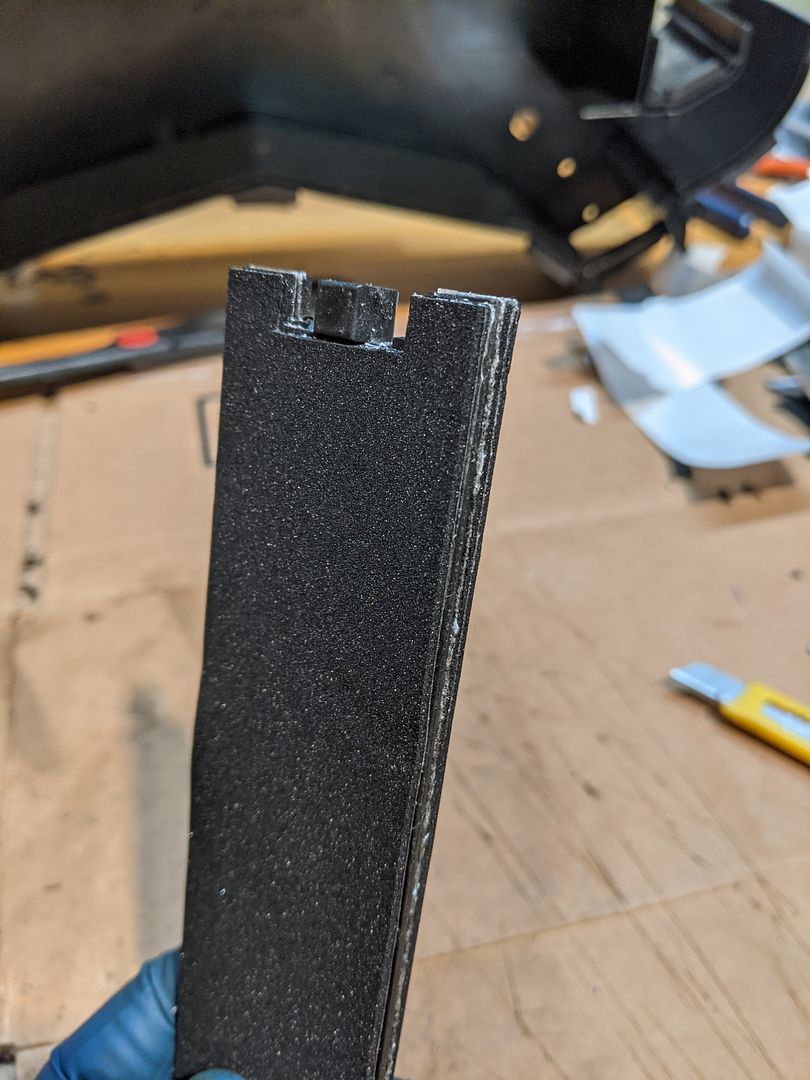
And don’t forget the control unit (I did the first time which prompted me to have to remove the whole thing, disassemble and do the re-install all over again):
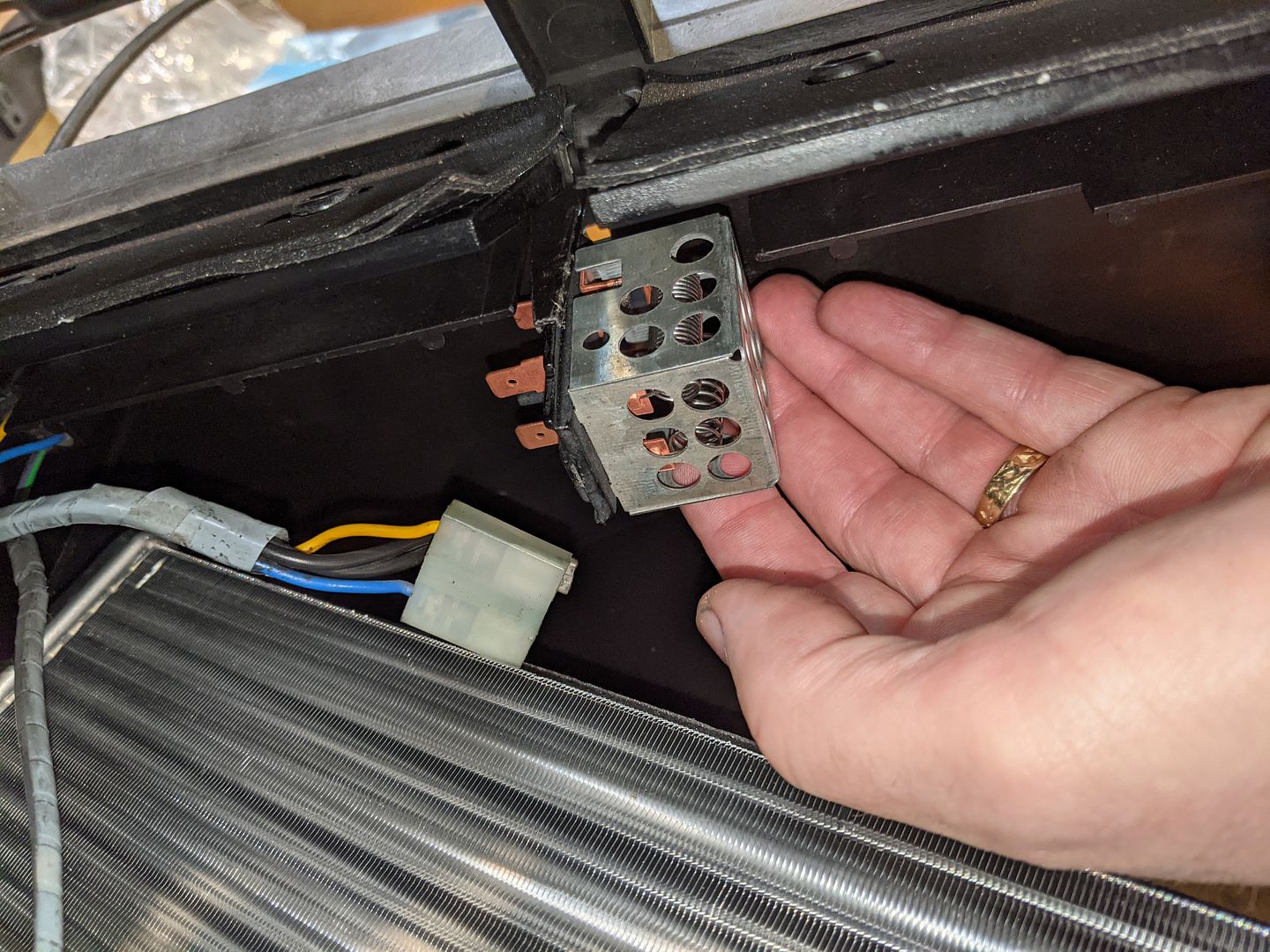
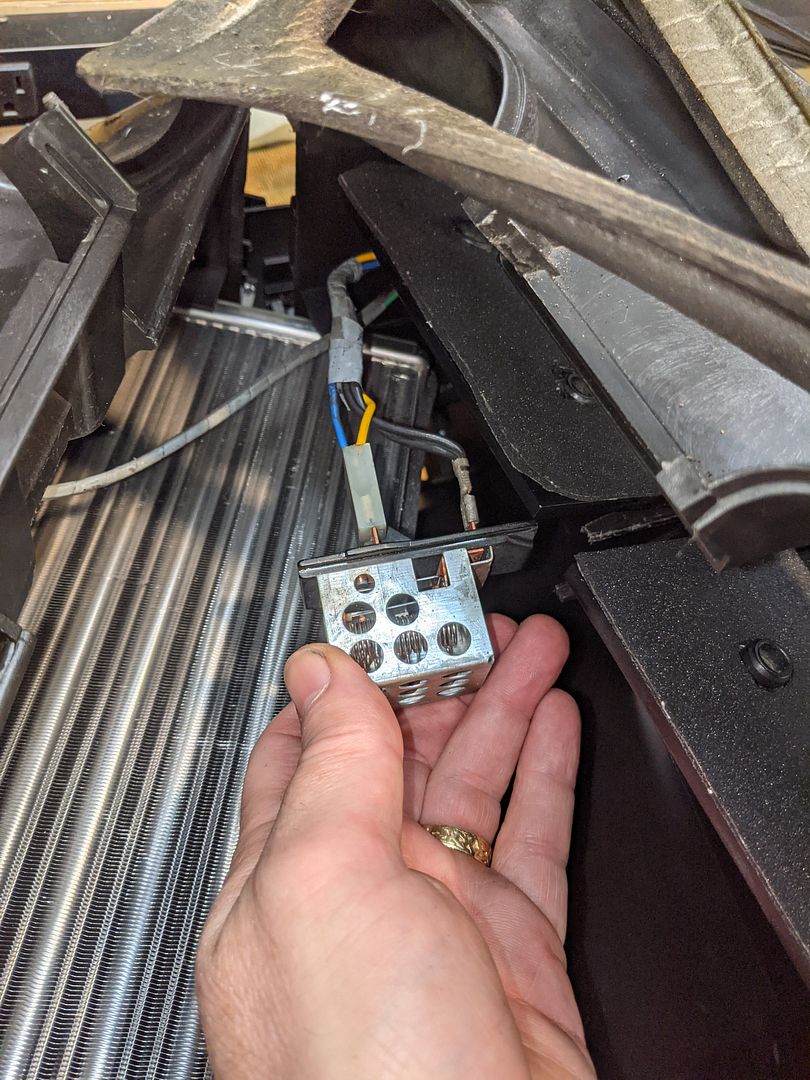
Final product ready for re-installation:
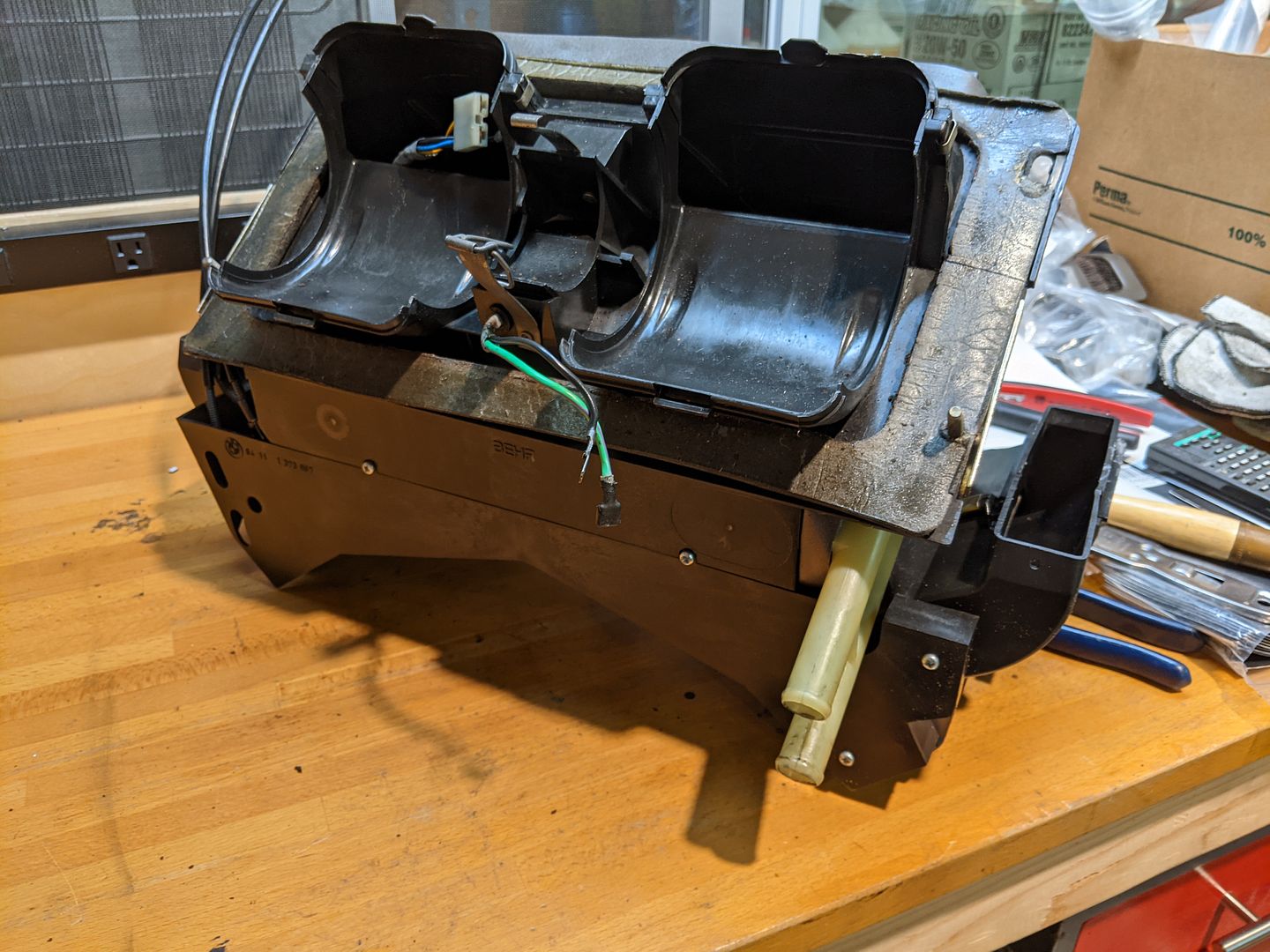
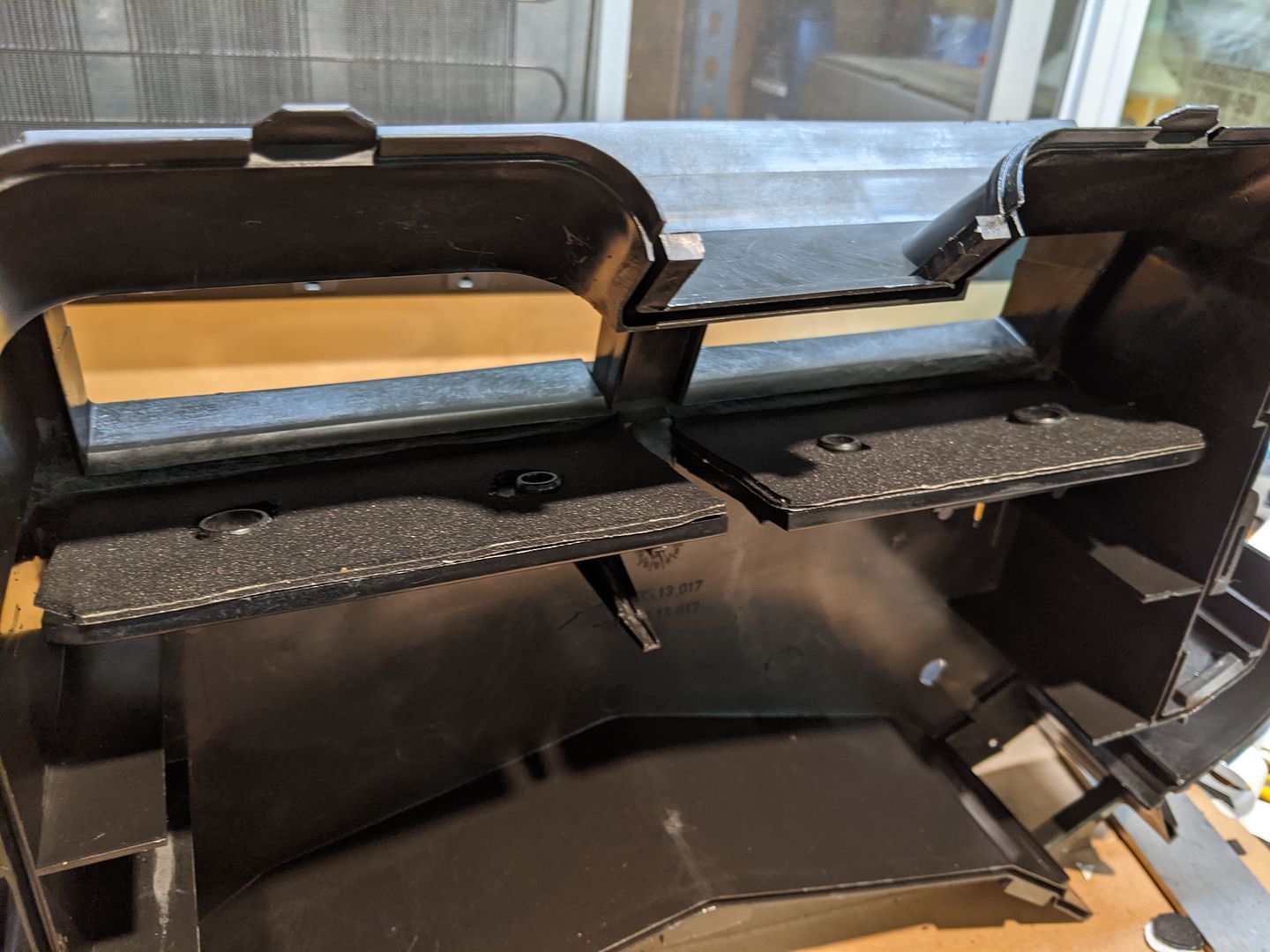
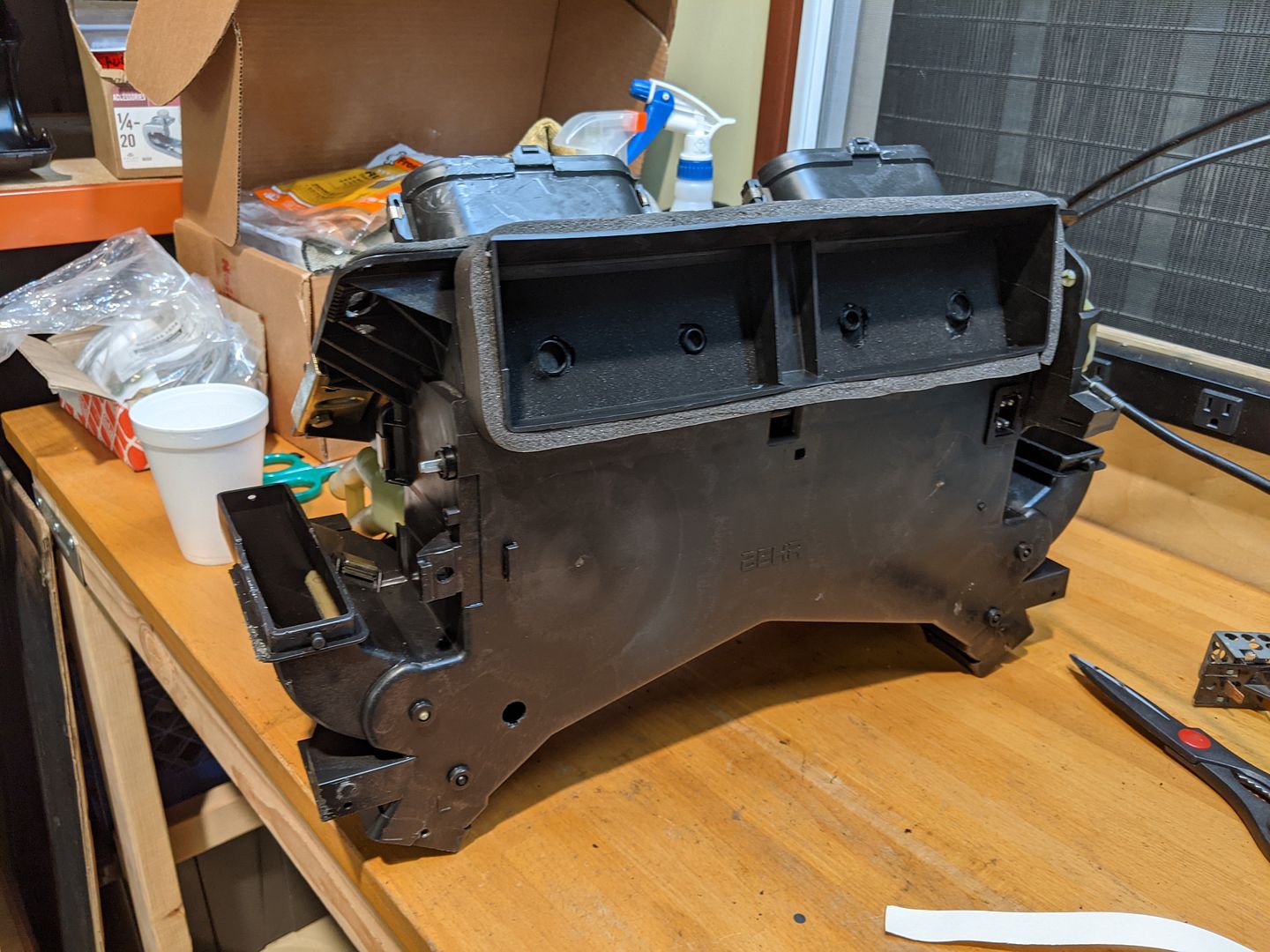
A bit out of sequence, but obviously before all that I had to remove the AC box and Evaporator Core; if you recall further back in this thread, I did that at the very beginning. Now it was time to go about refinishing that component and getting it ready to go back into the car.
First taking the Evaporator Box apart:
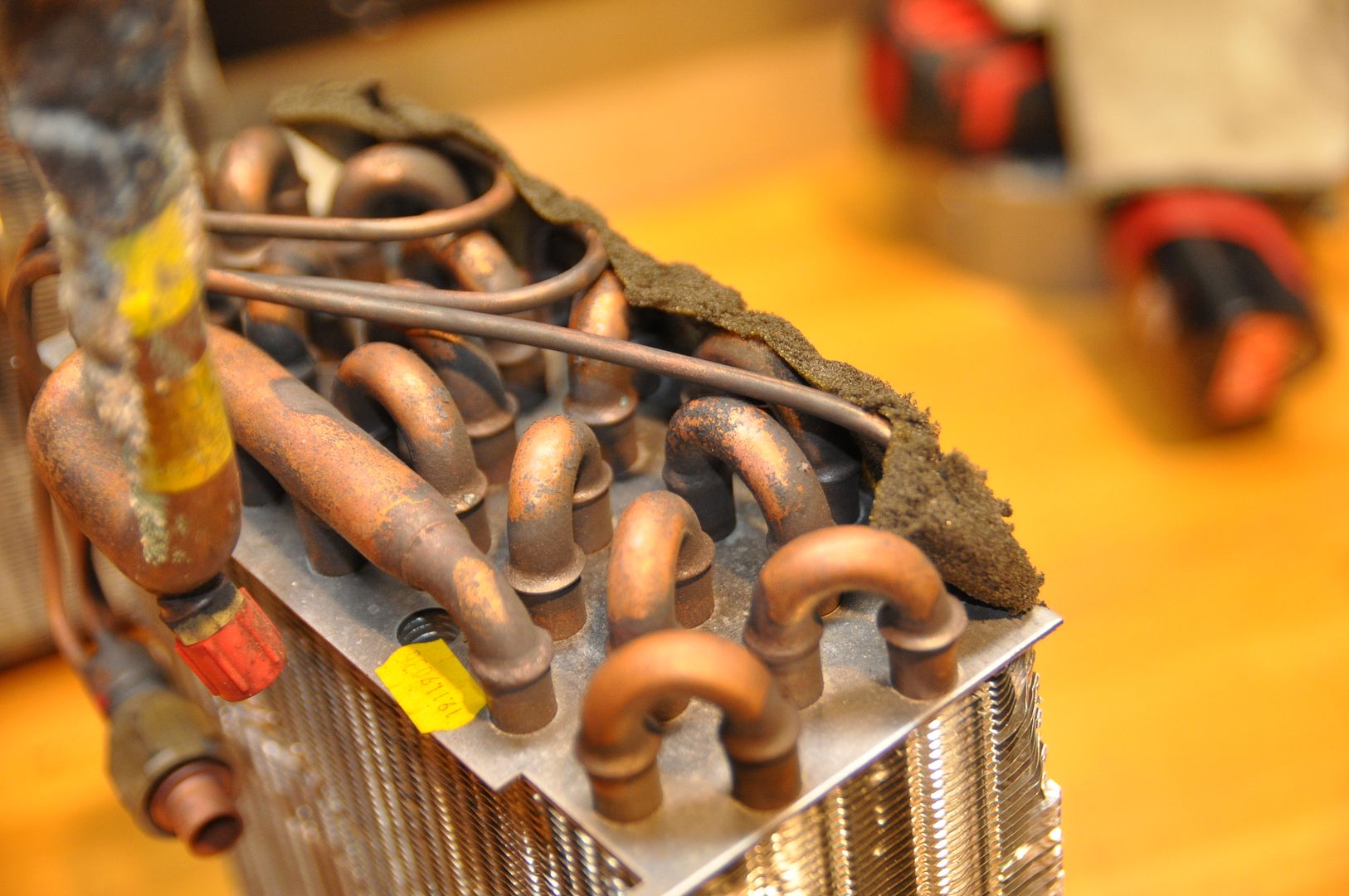
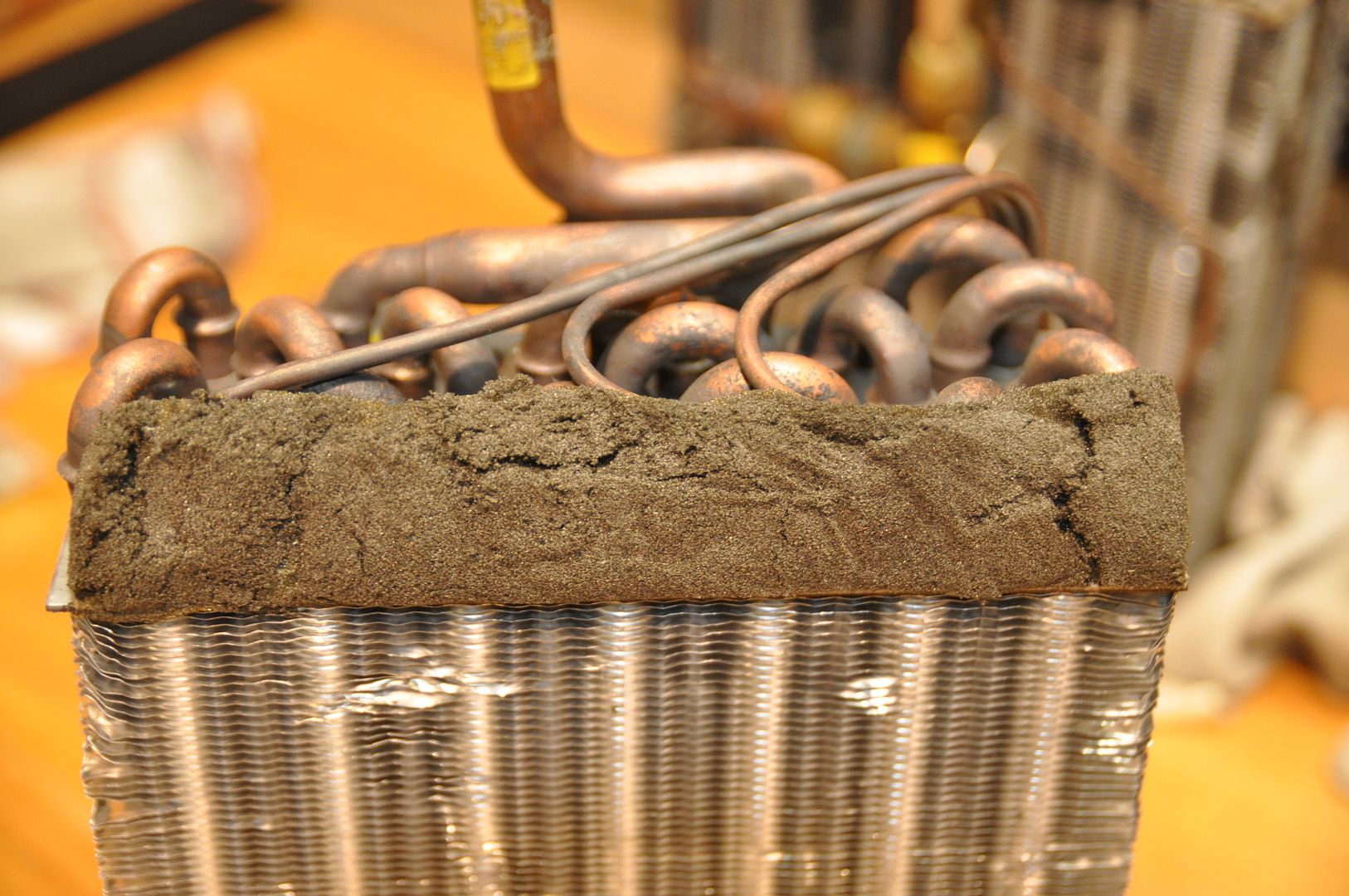
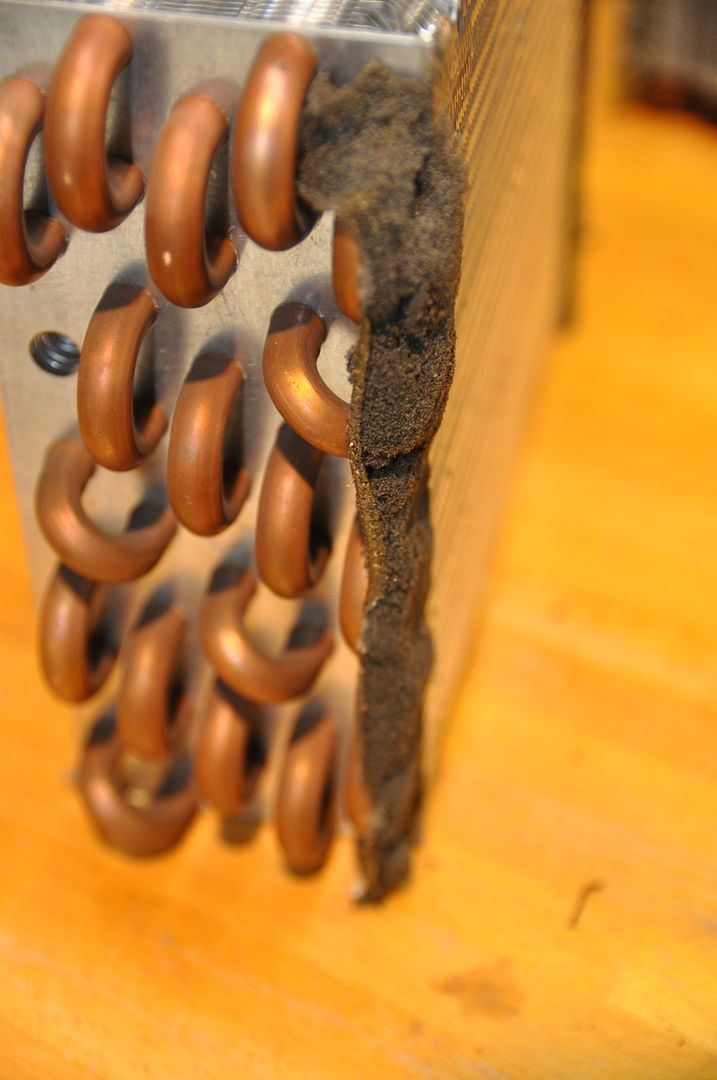


After a bit of gross-out and some rough cleaning, I got the components cleaned, old foam removed, and all the plastic treated ready for new parts:
[URL=https://app.photobucket.com/u/vinceg101 ... a72716f538][IMG]https: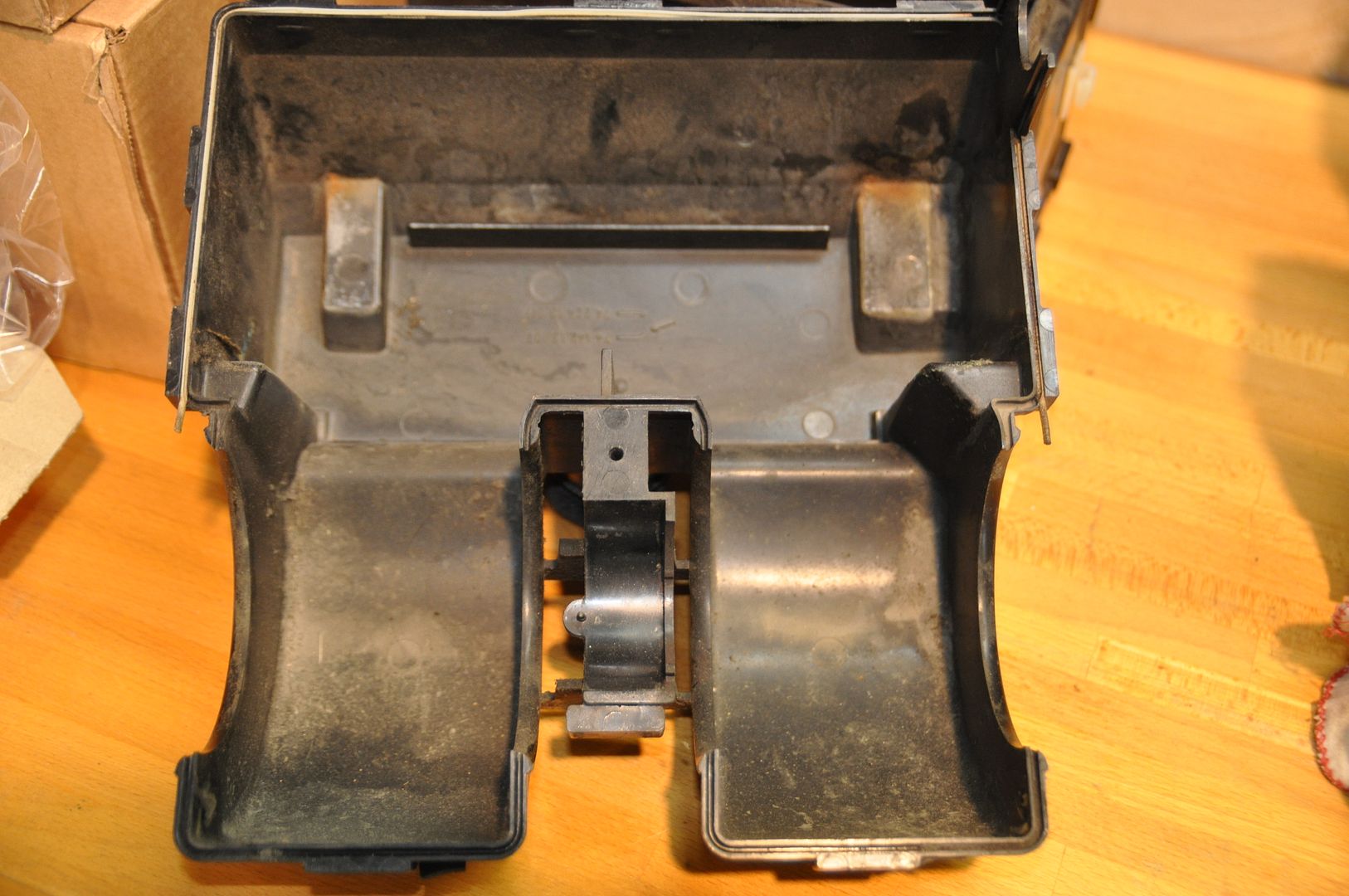
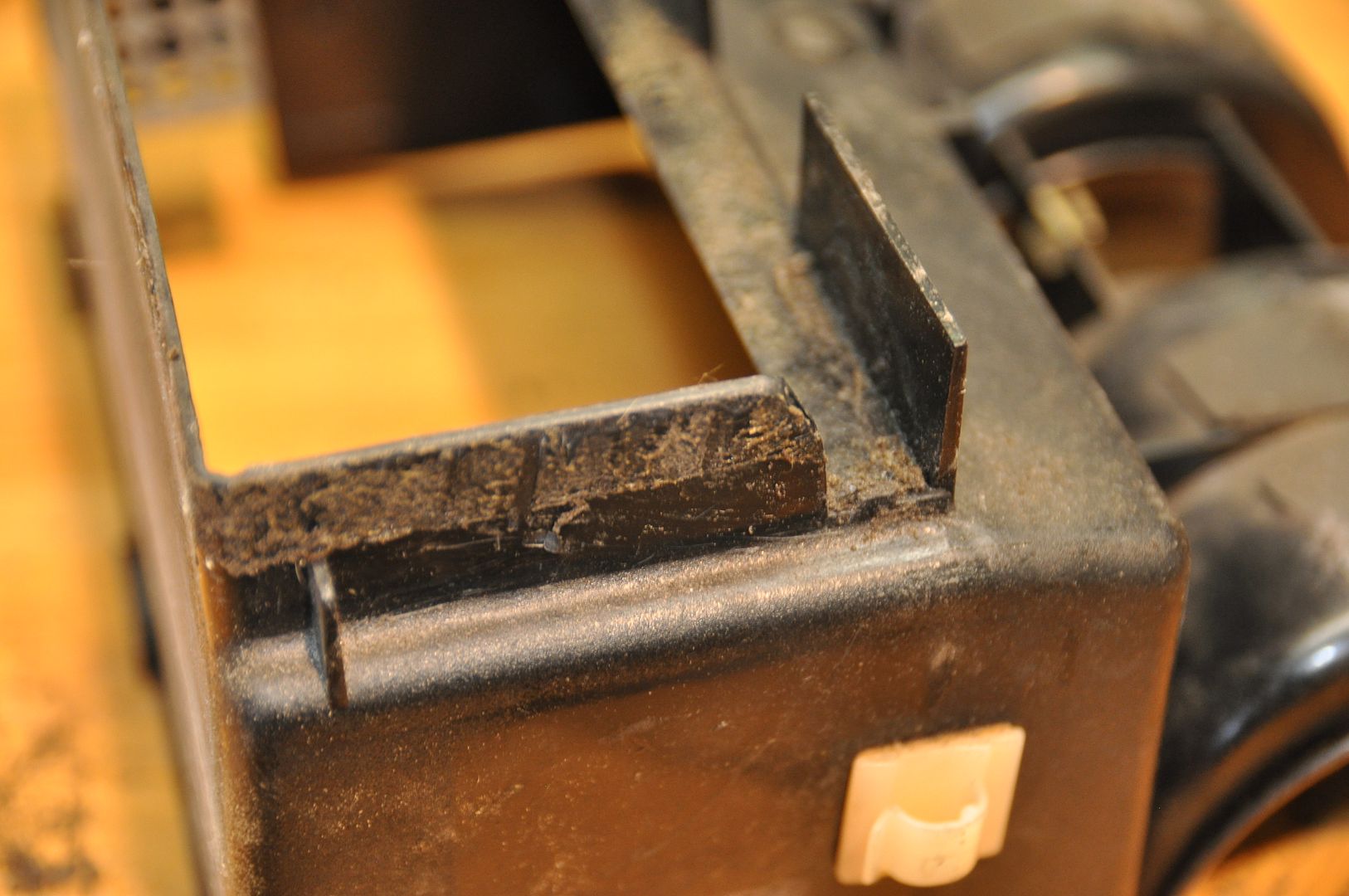
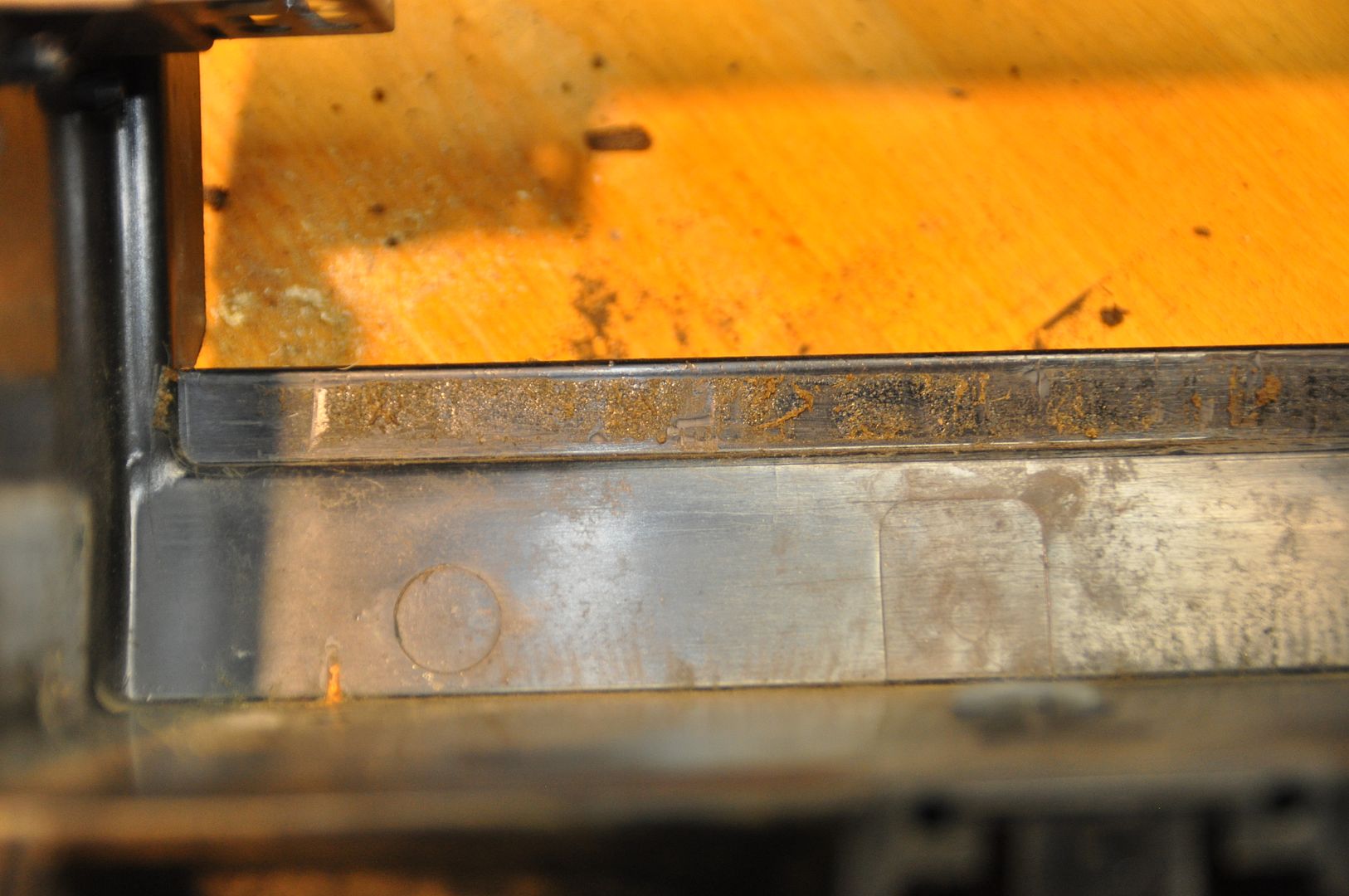
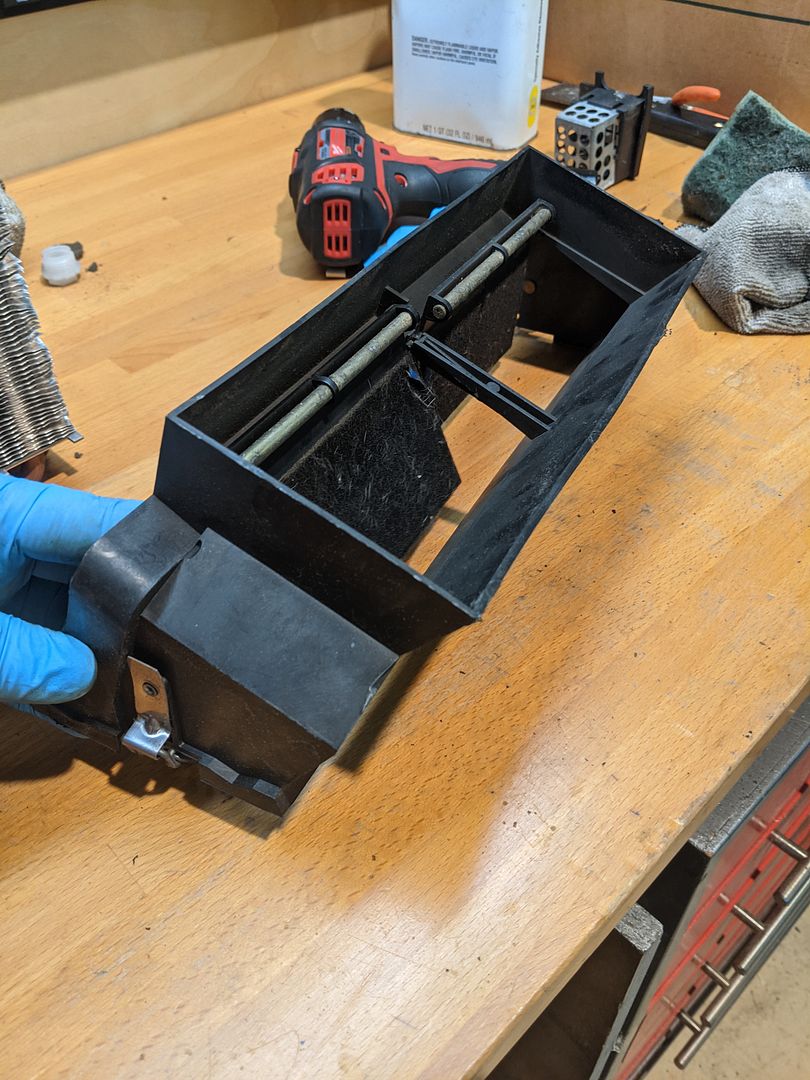
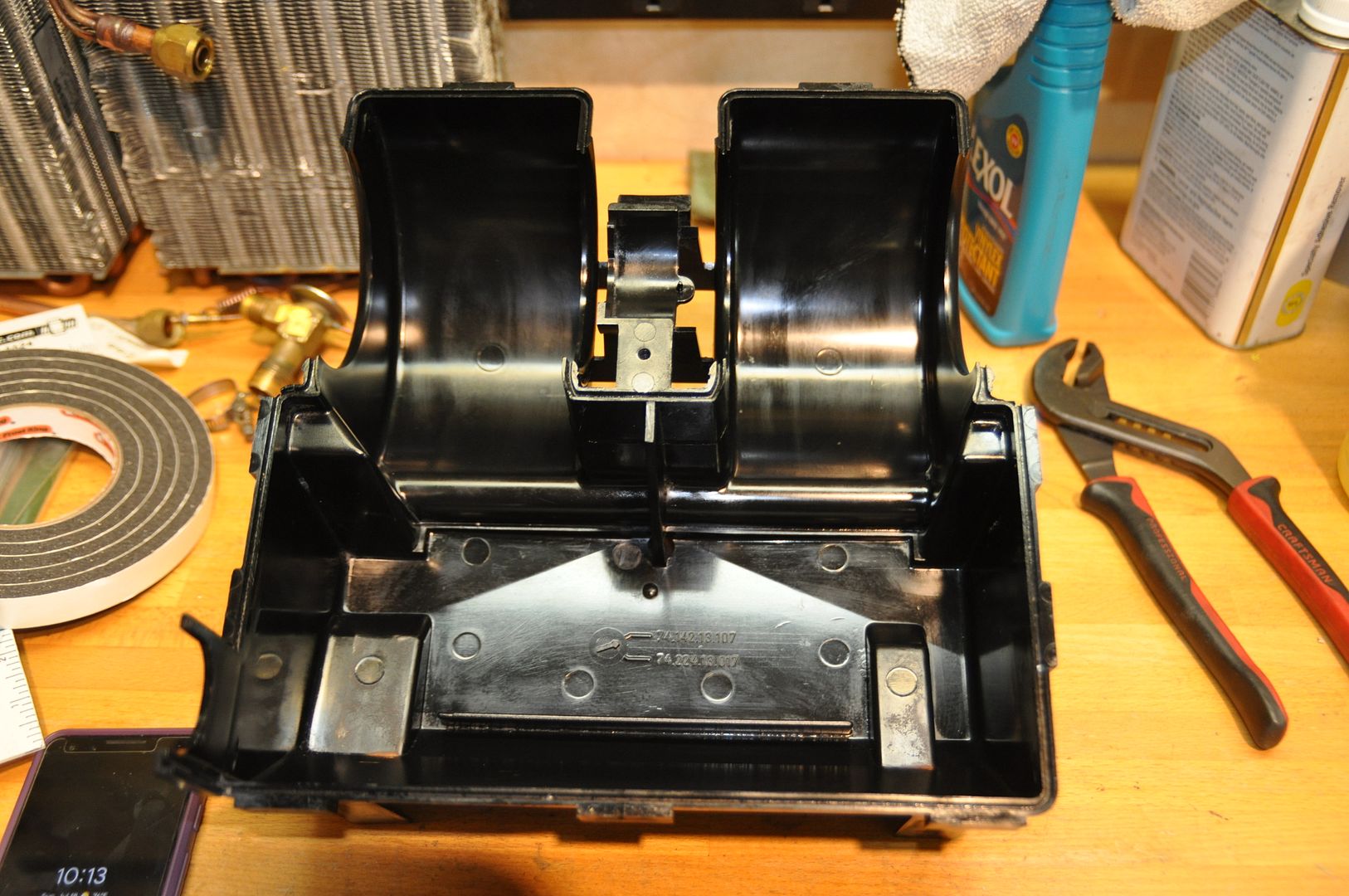
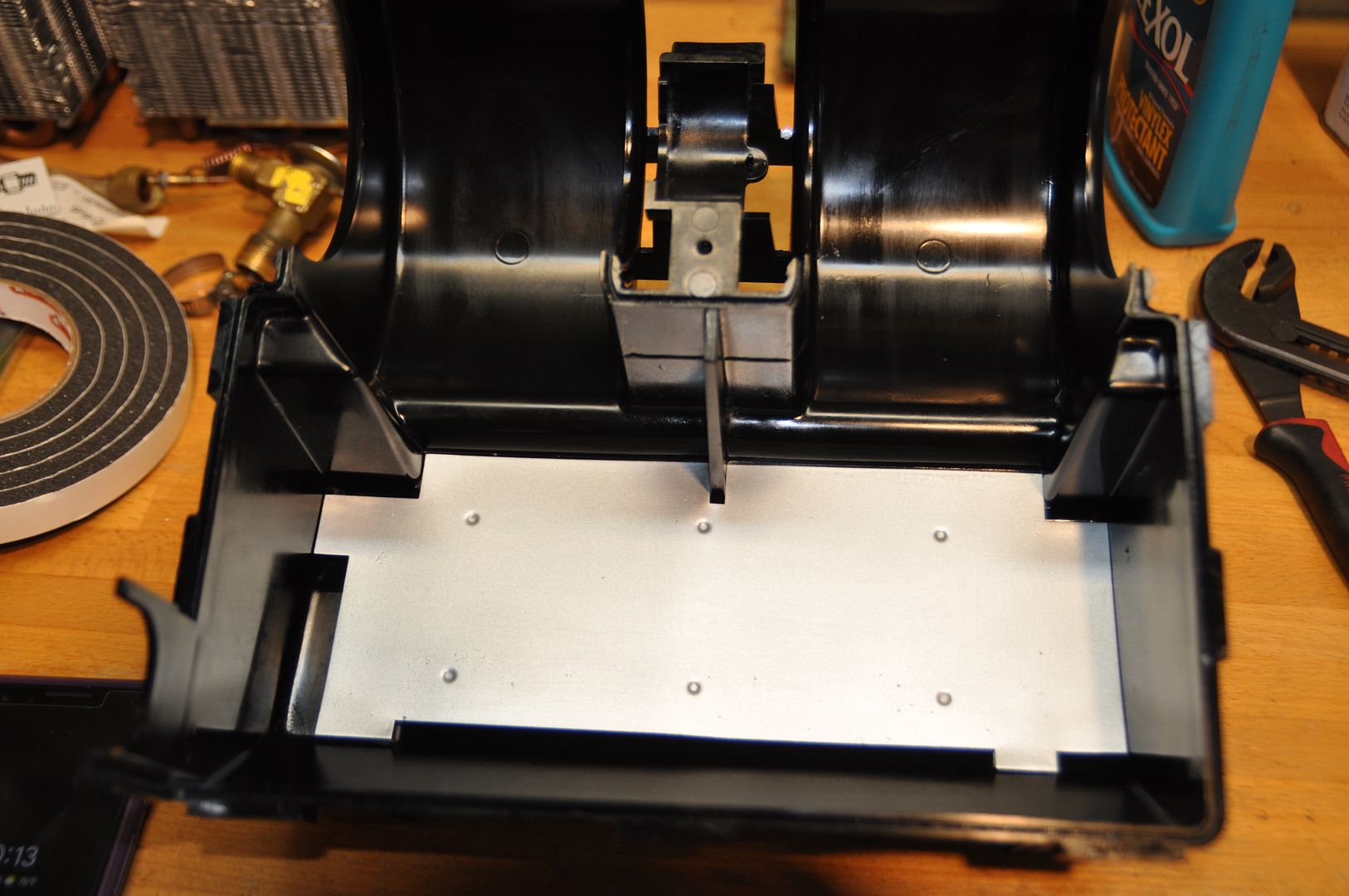
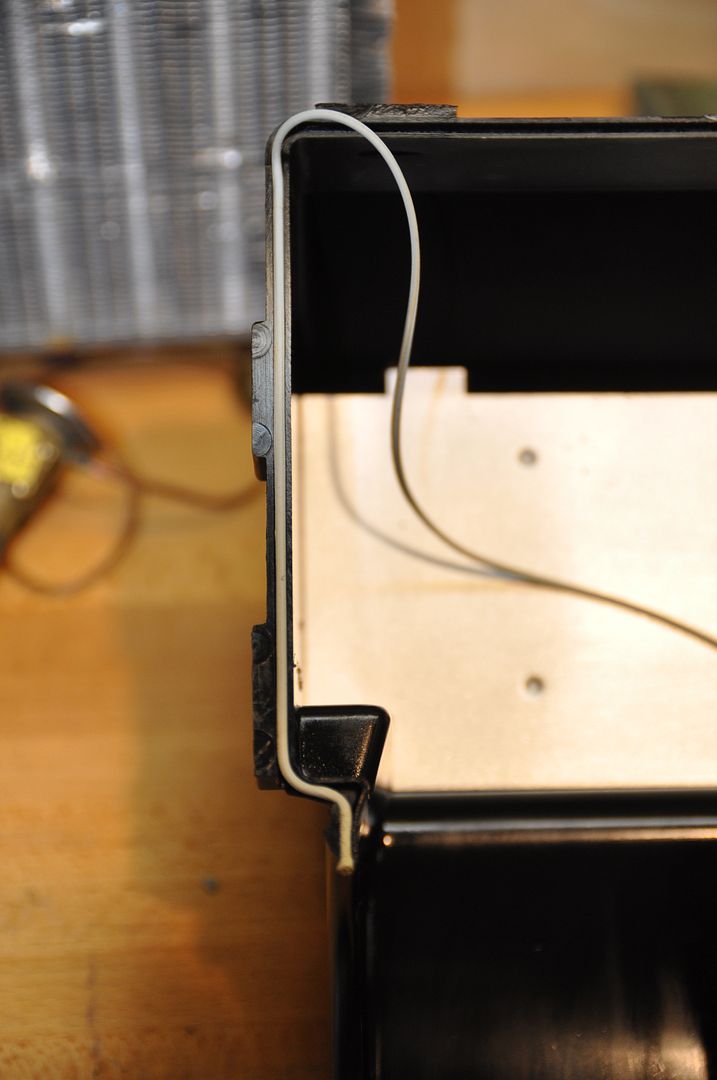
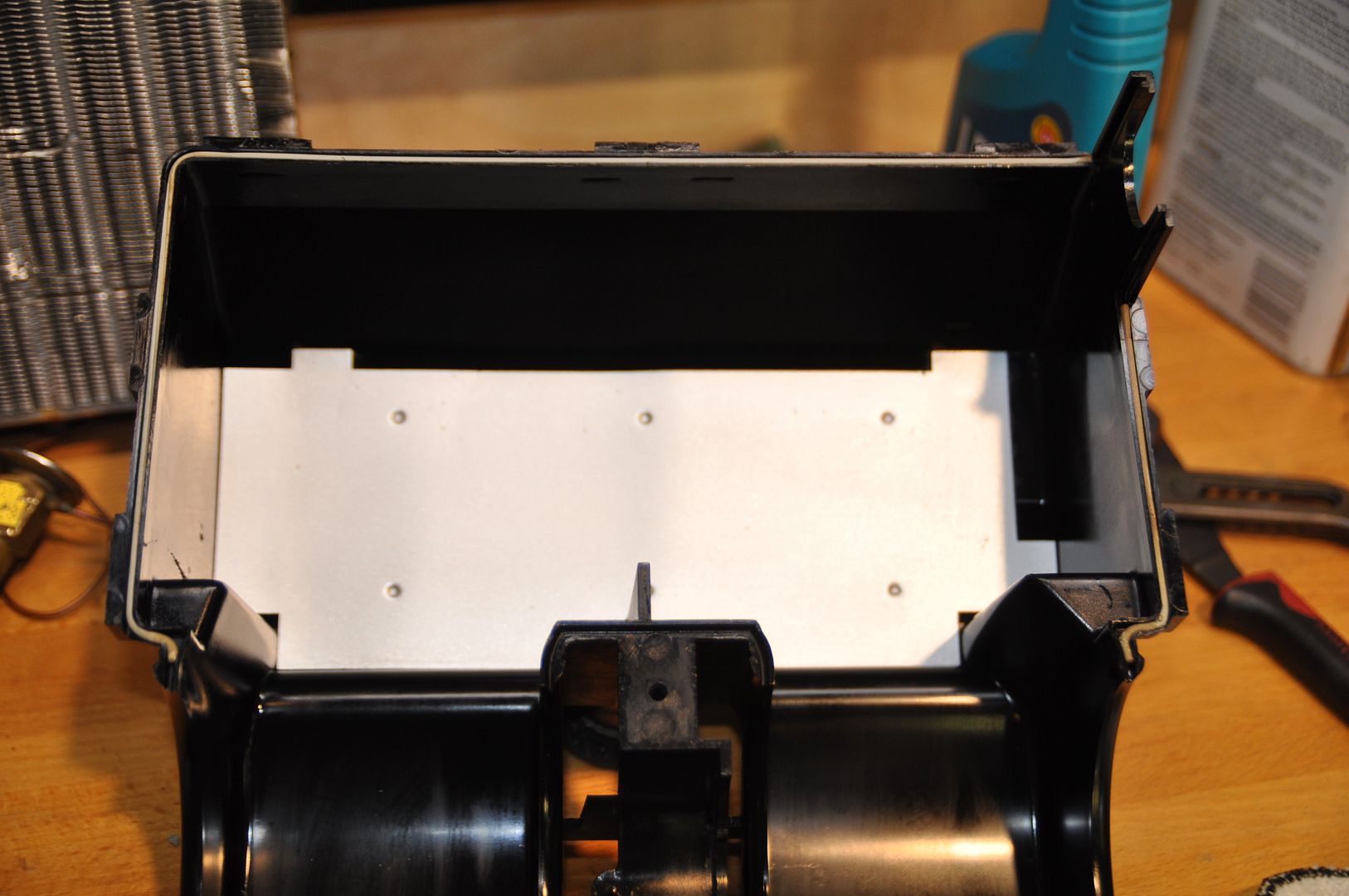
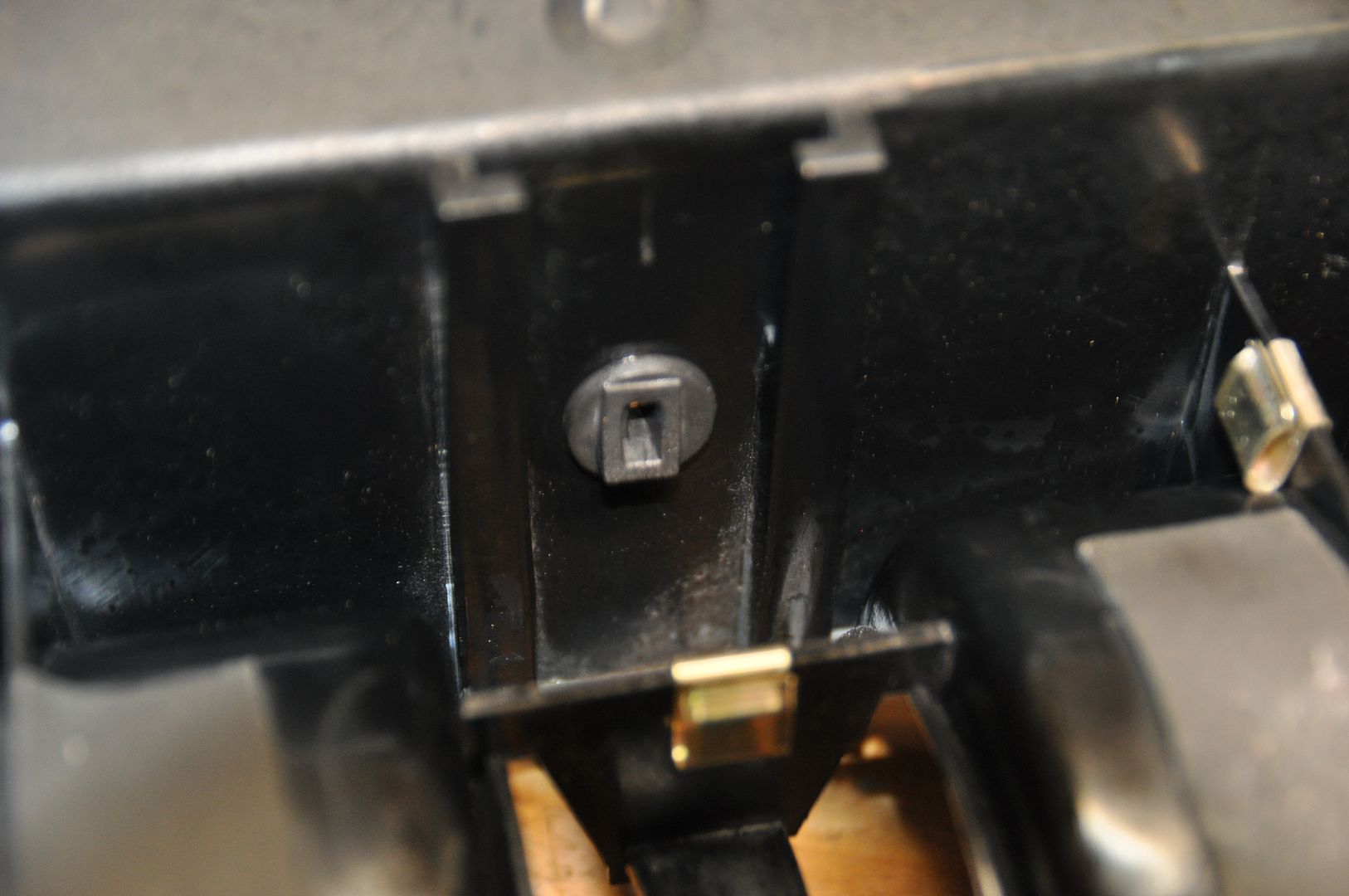
New foam and other parts:
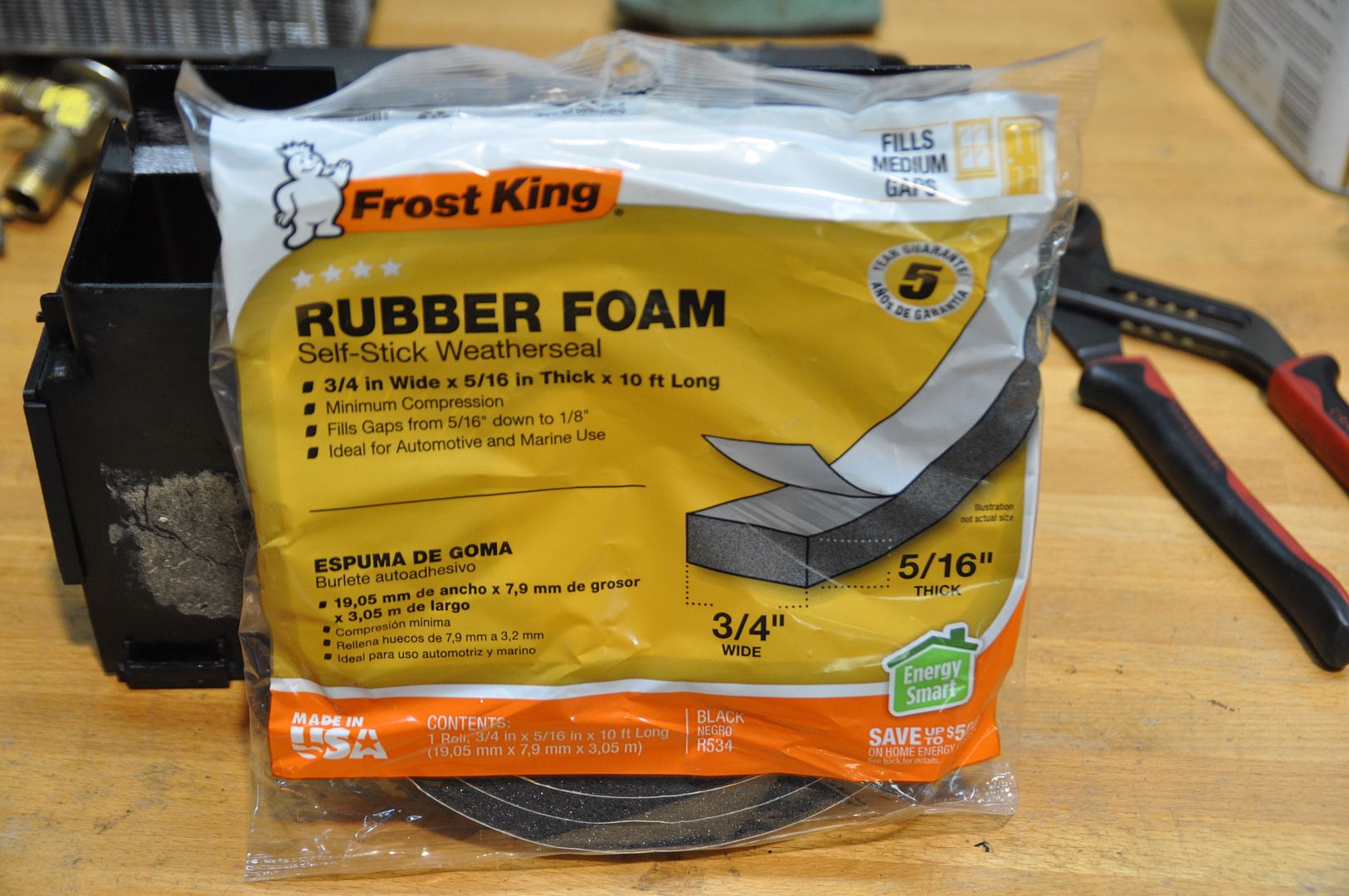
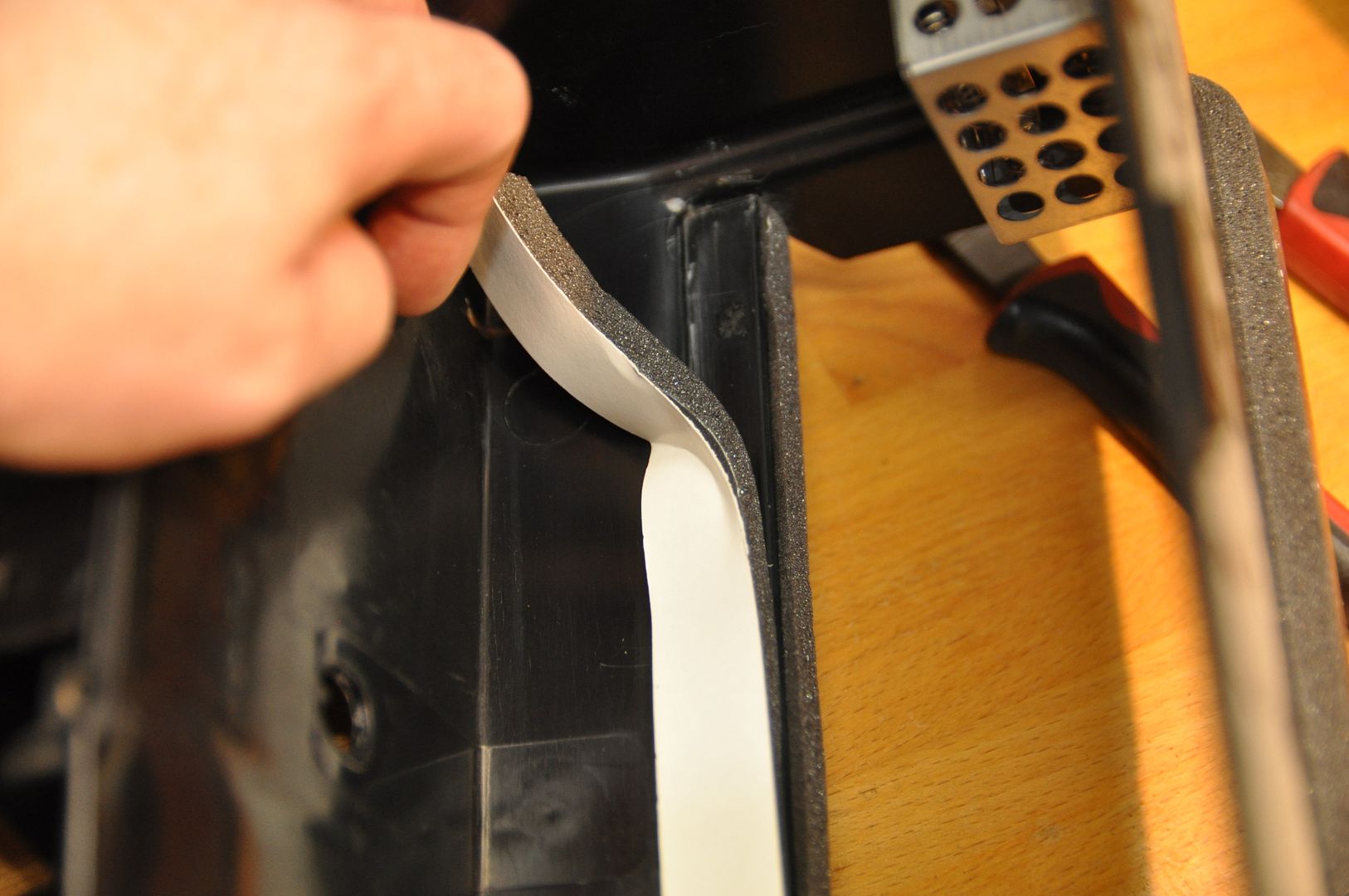
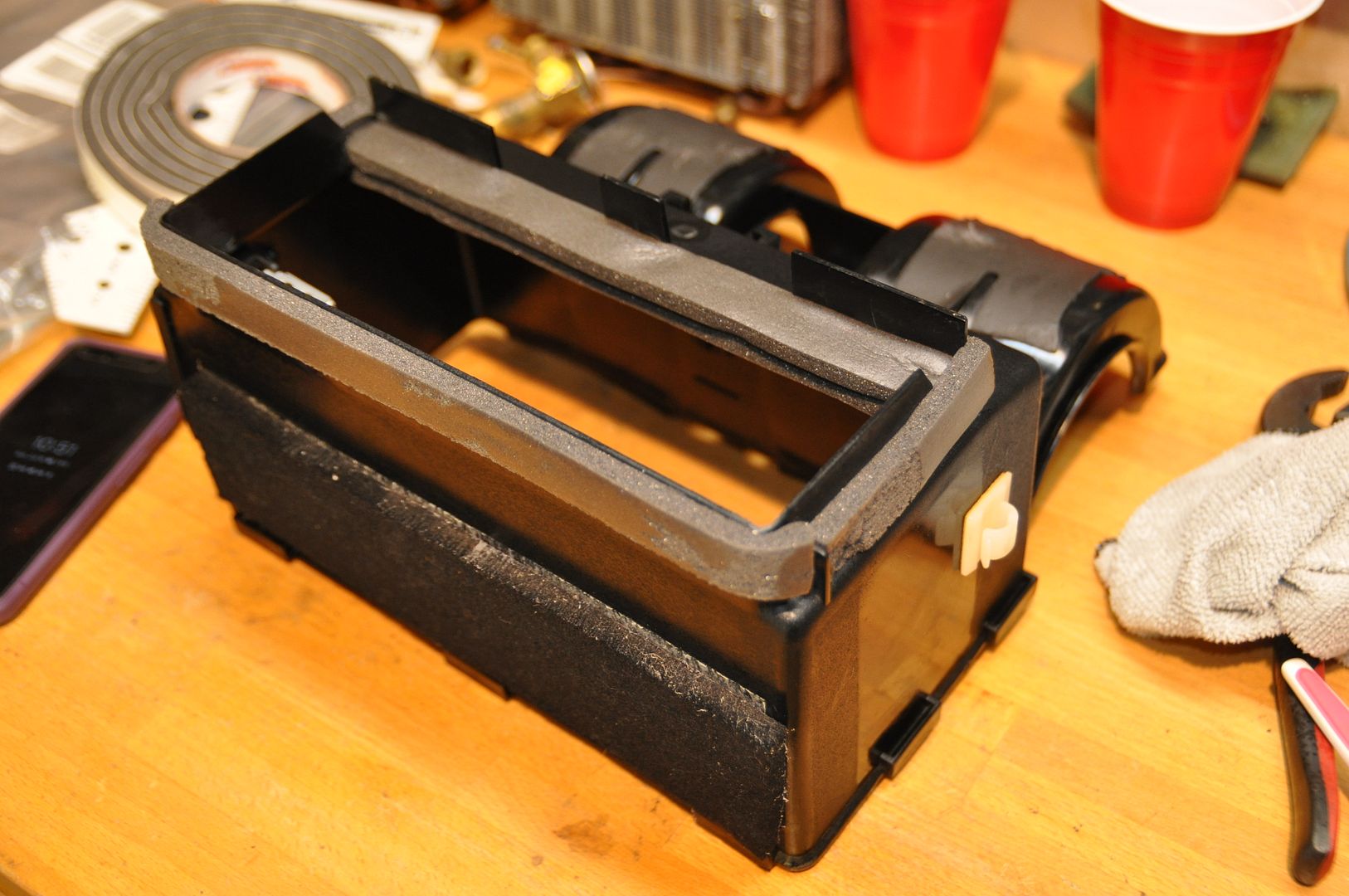
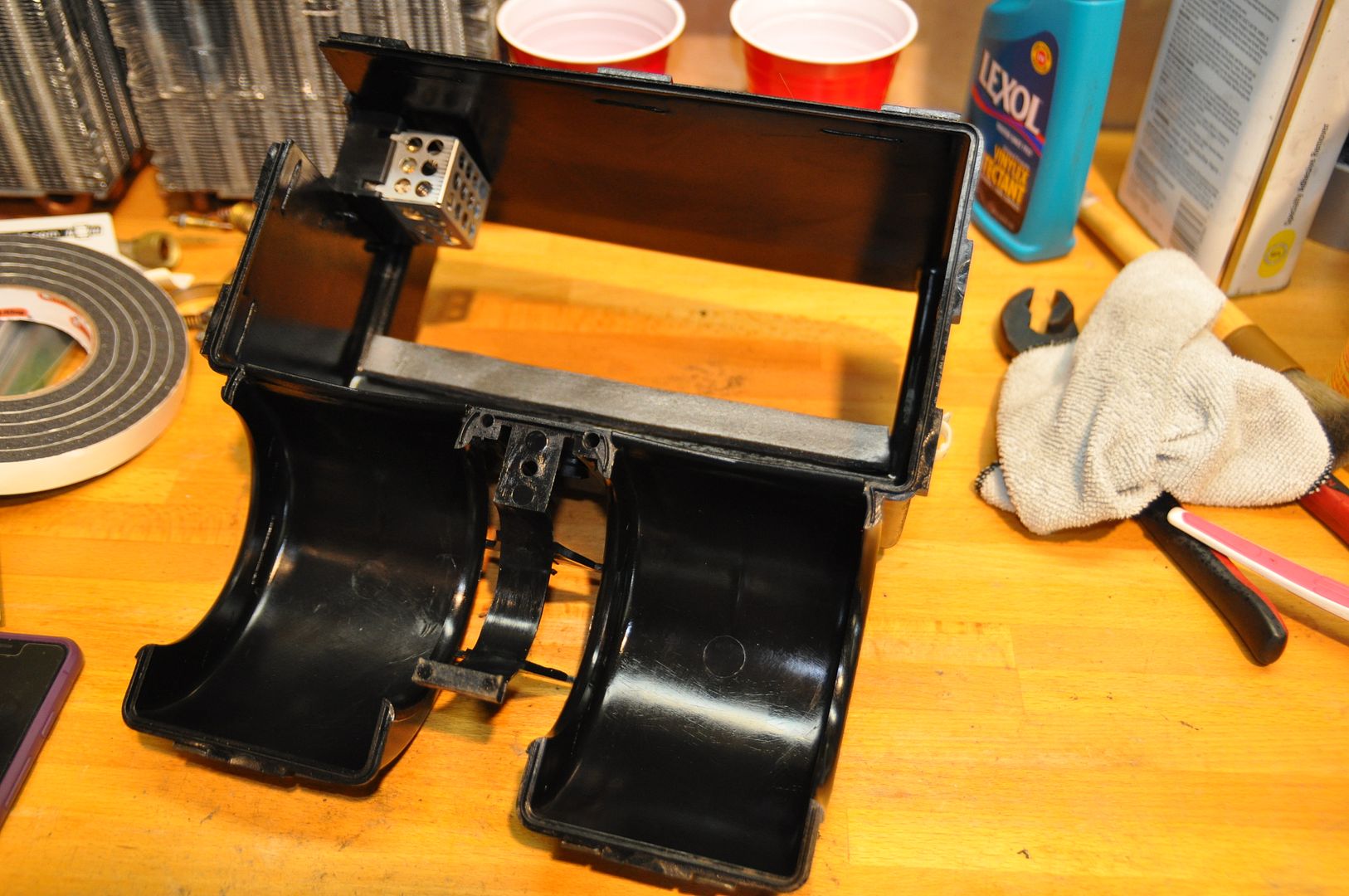
Onto the Evaporator itself. I picked up a NIB Behr unit from someone a few years back and had to get it ready. First was to install a new Expansion Valve and the ever-important O-Rings (thanks, Jens!). Before I got too much further, I spent some critical time straightening out those very fragile aluminum fins on the Evaporator (a very Zen exercise):
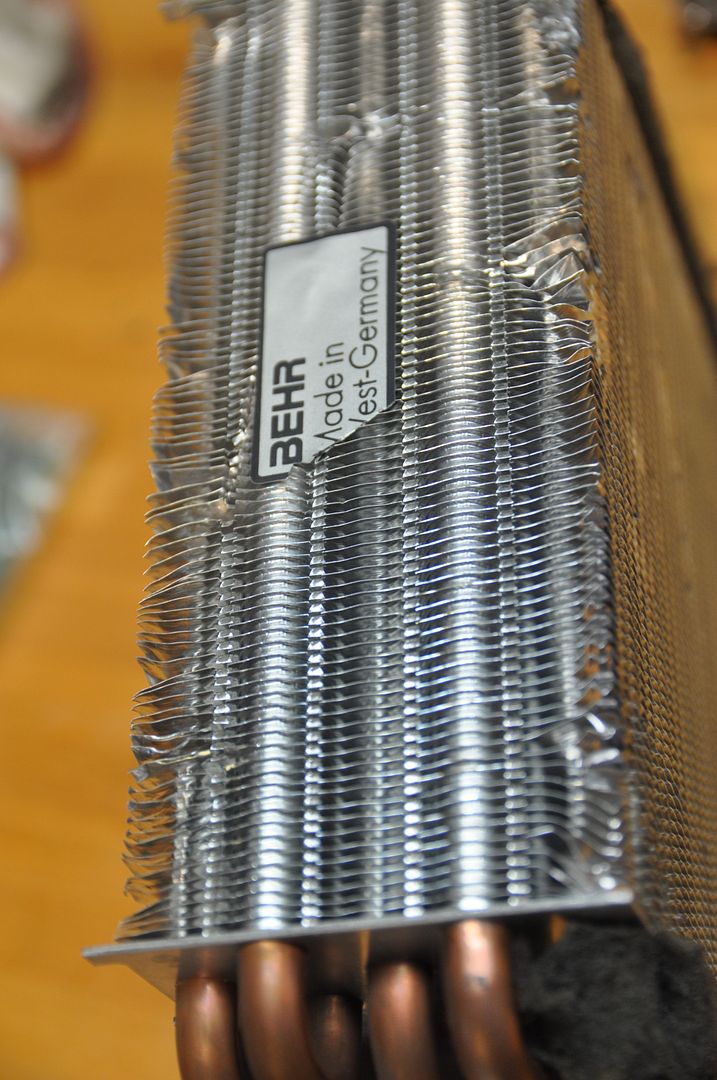
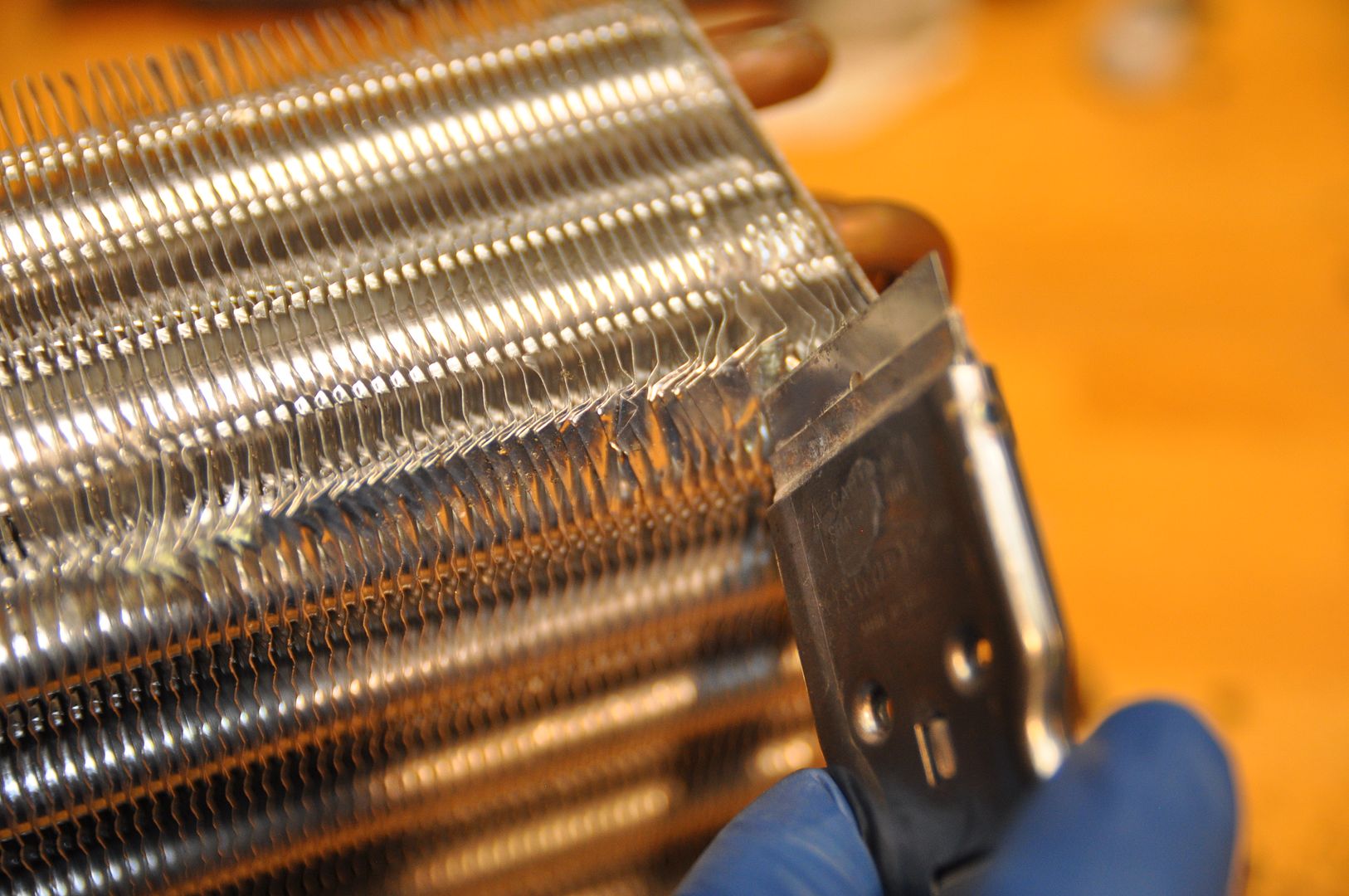
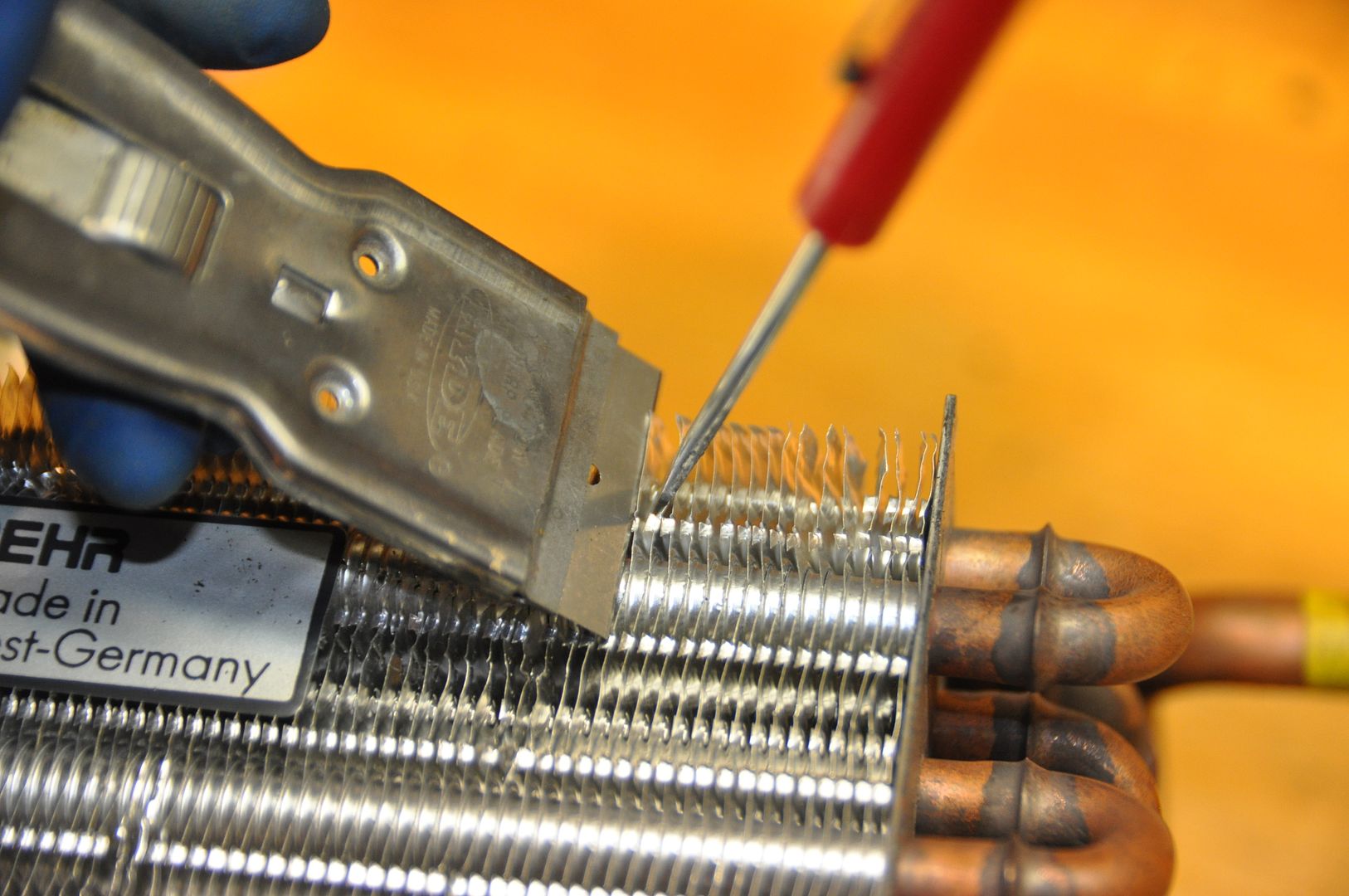
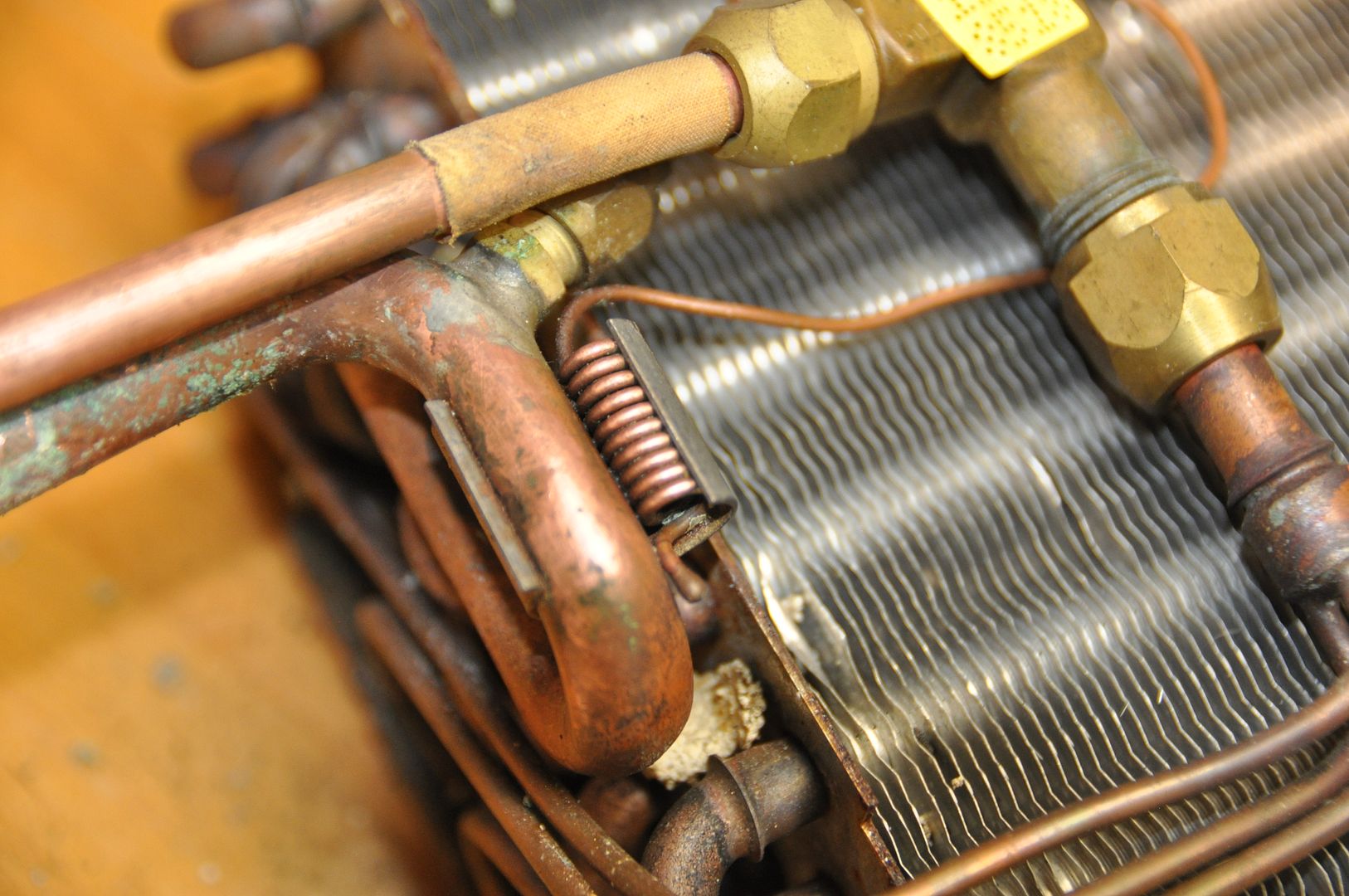
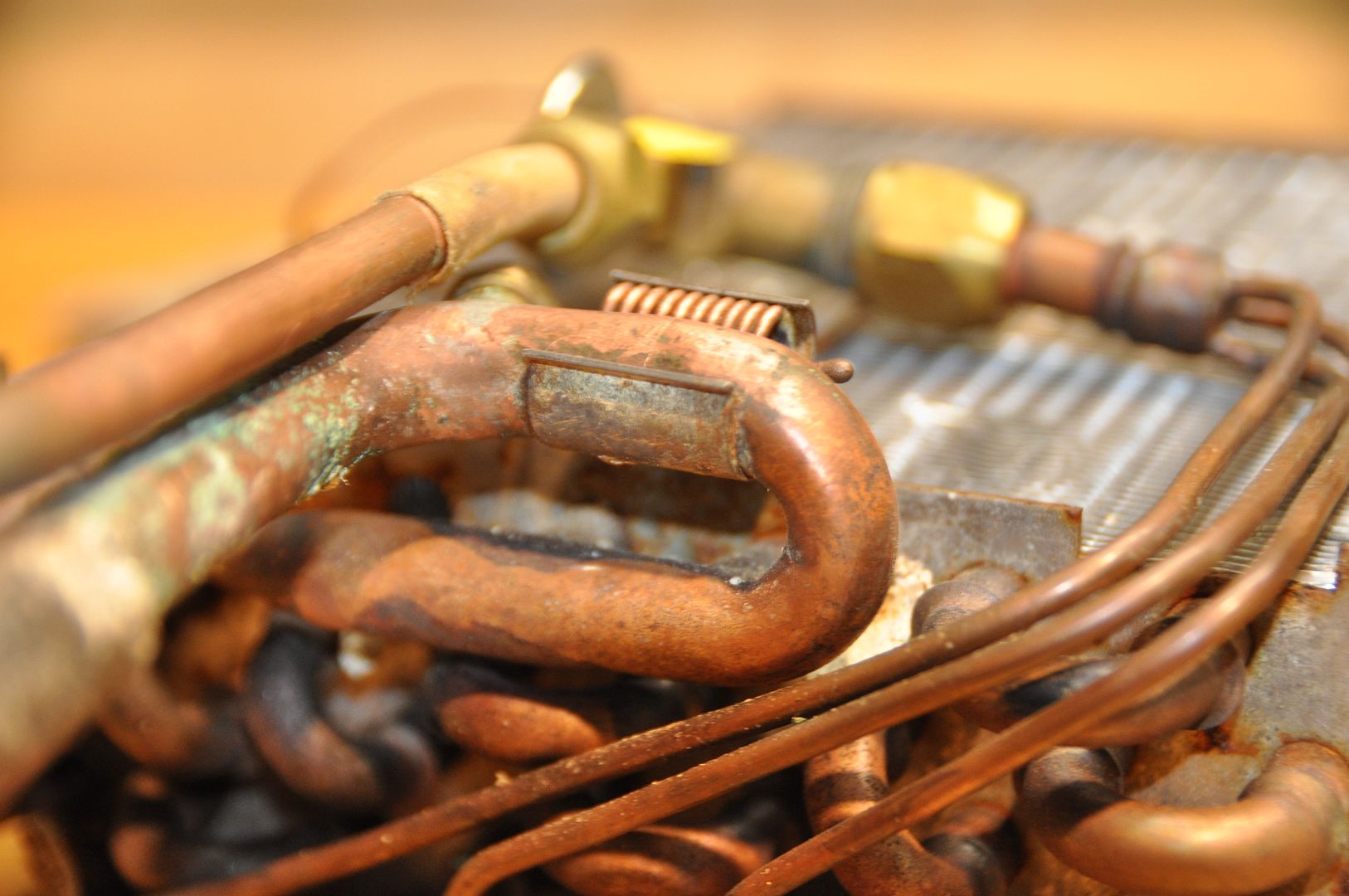
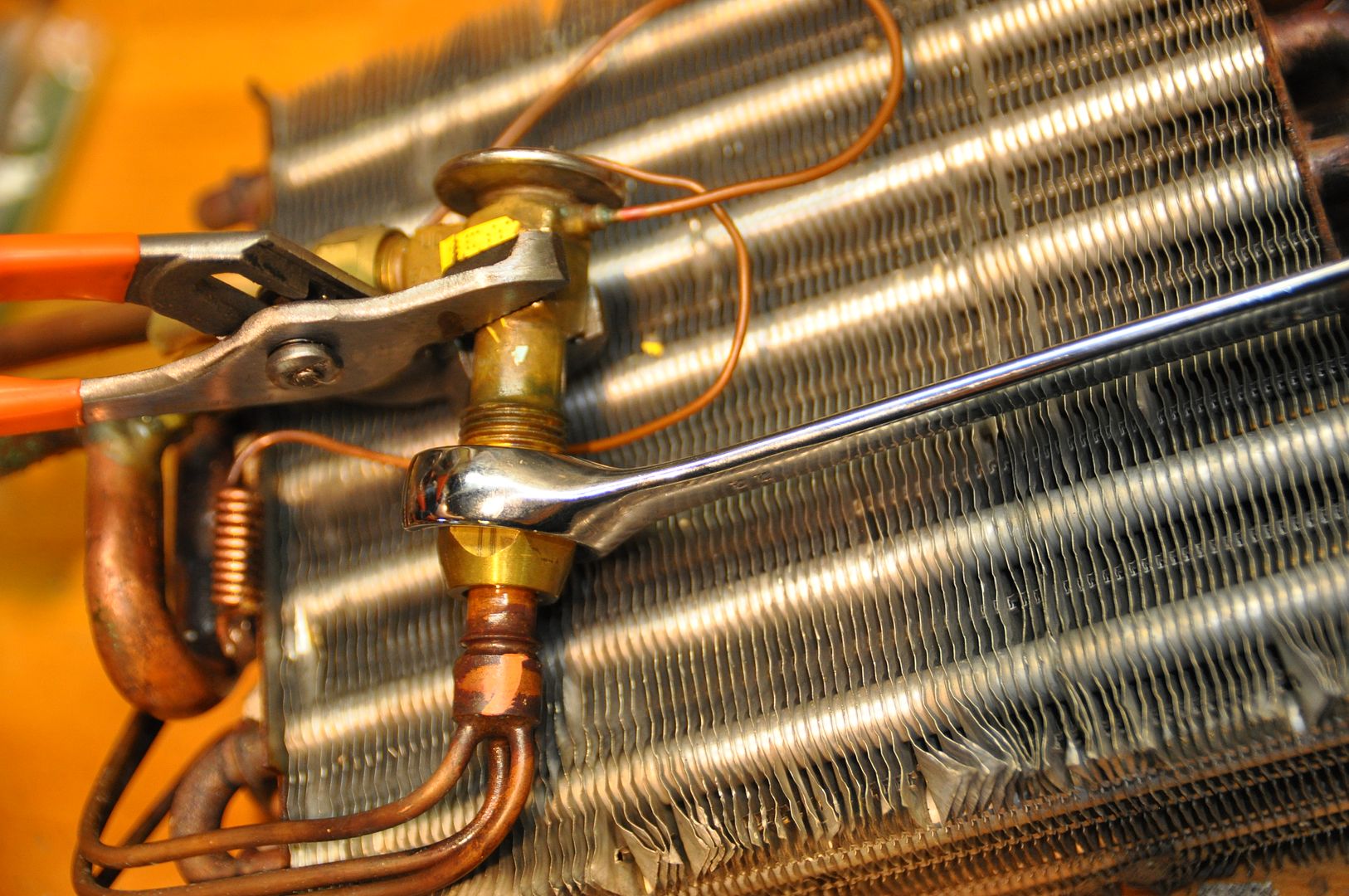
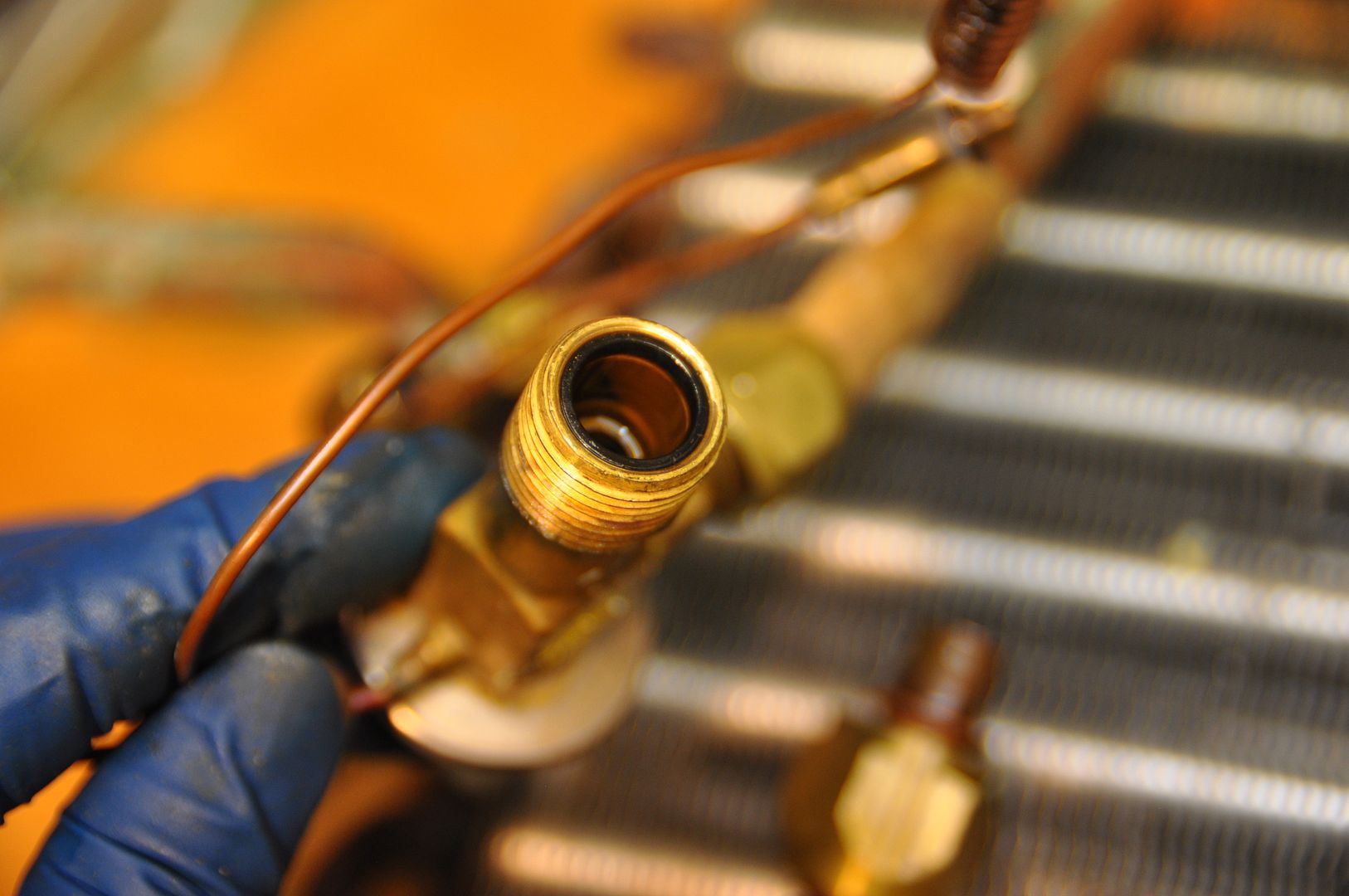
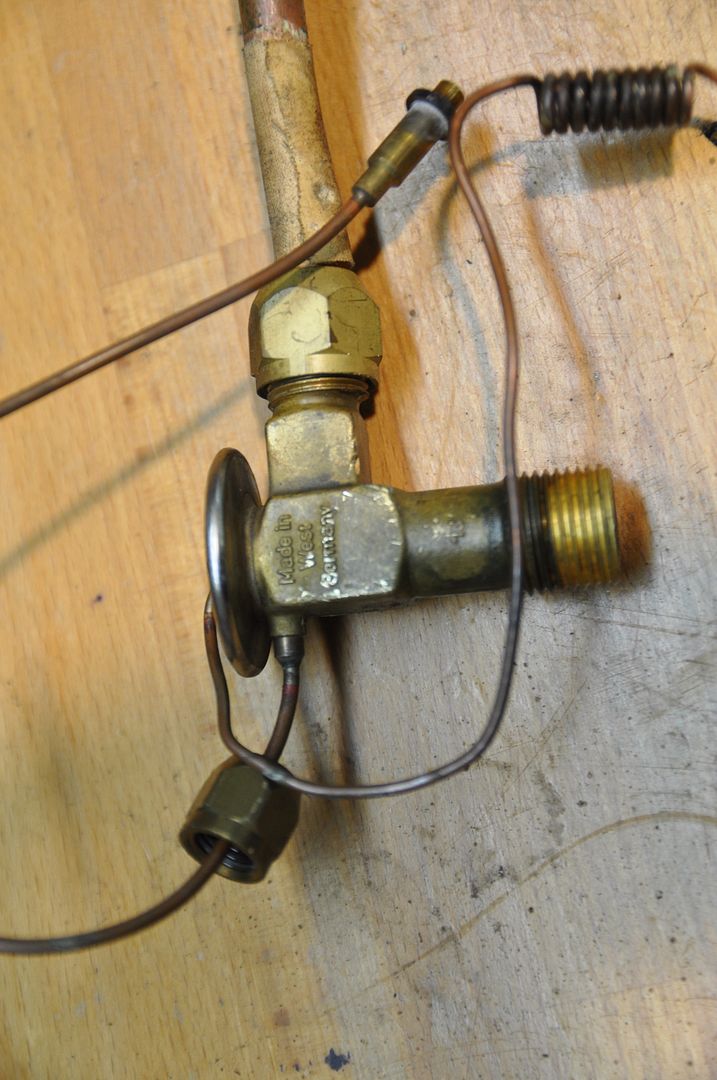
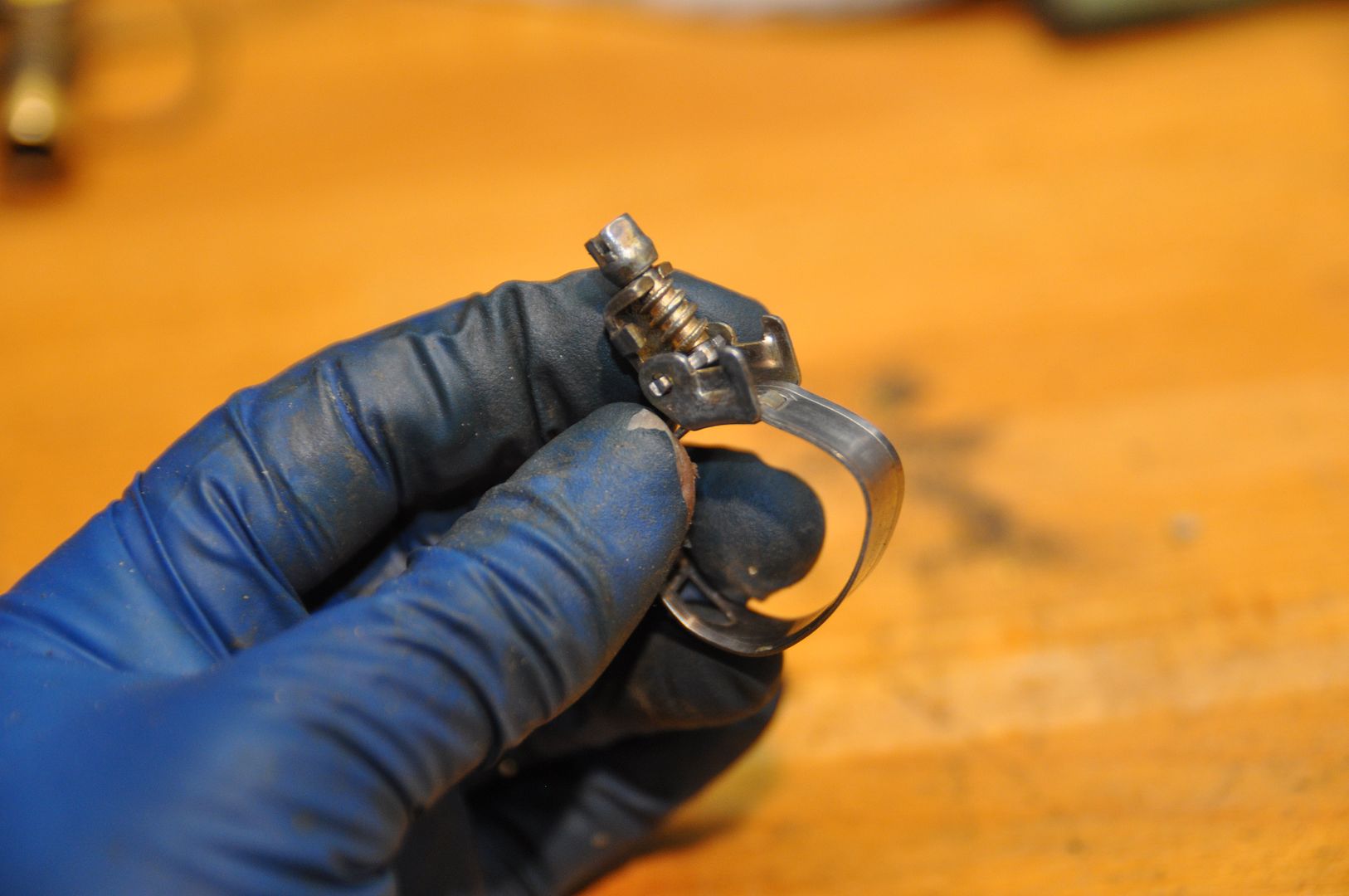
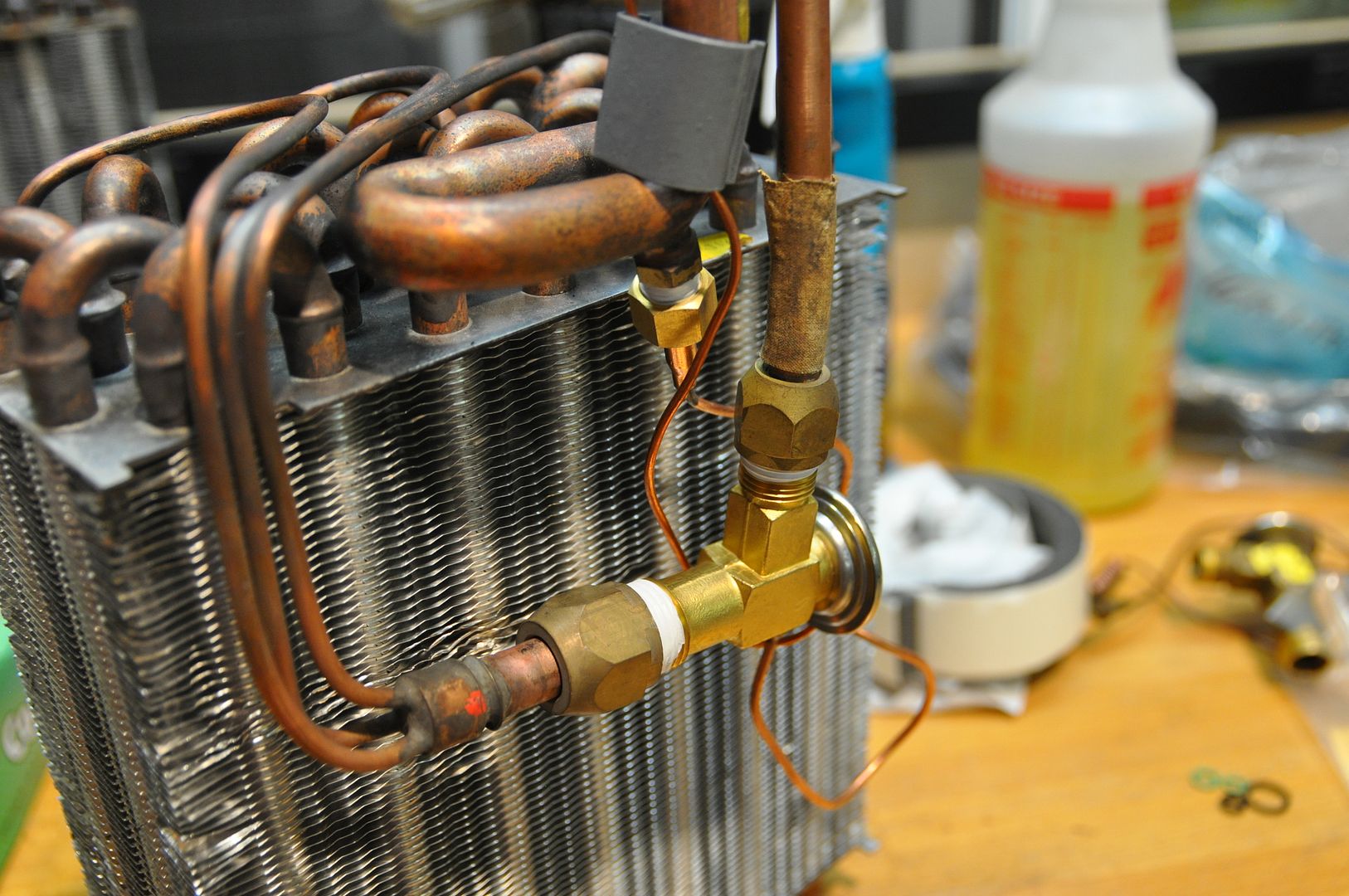
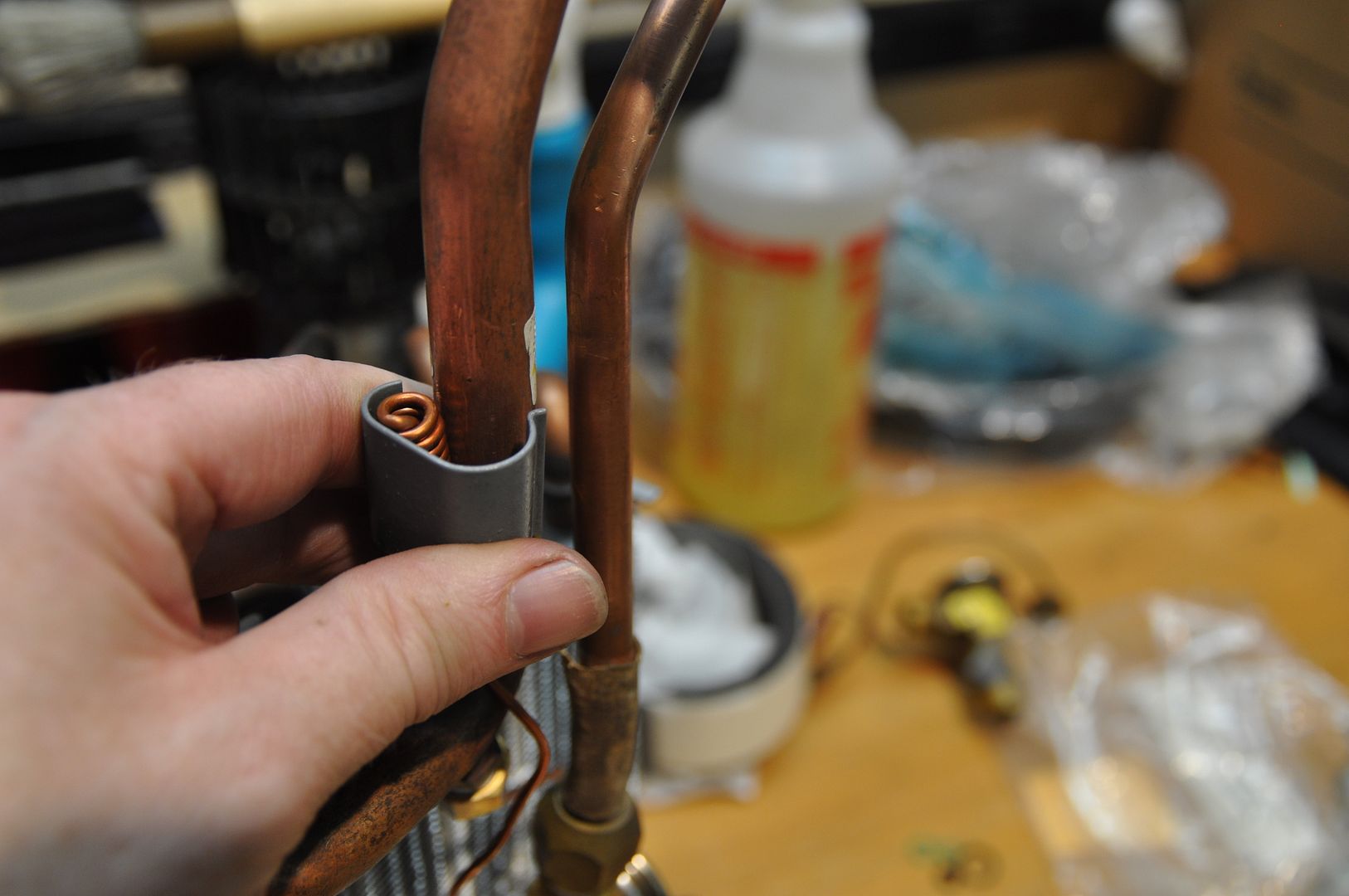
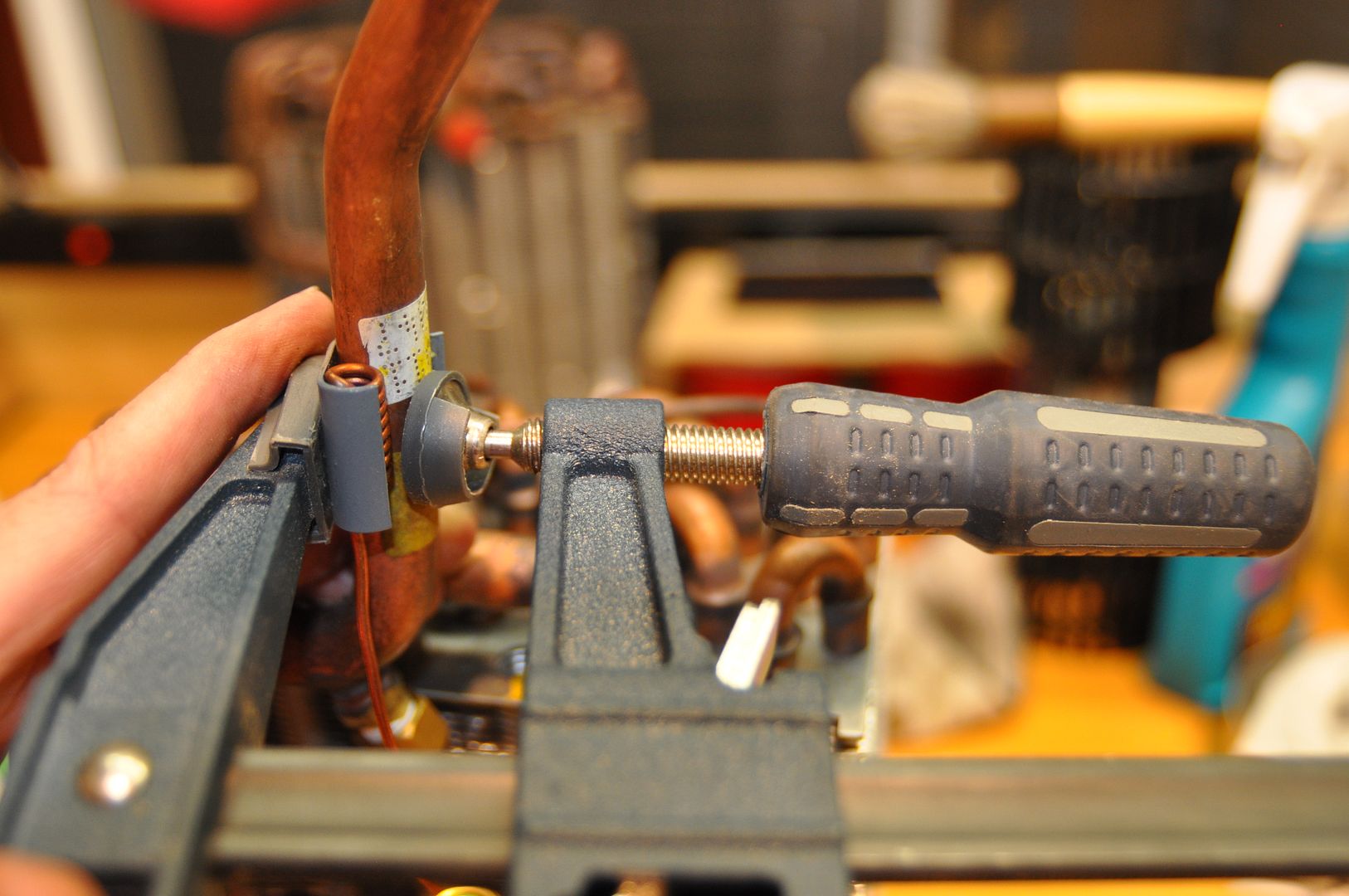
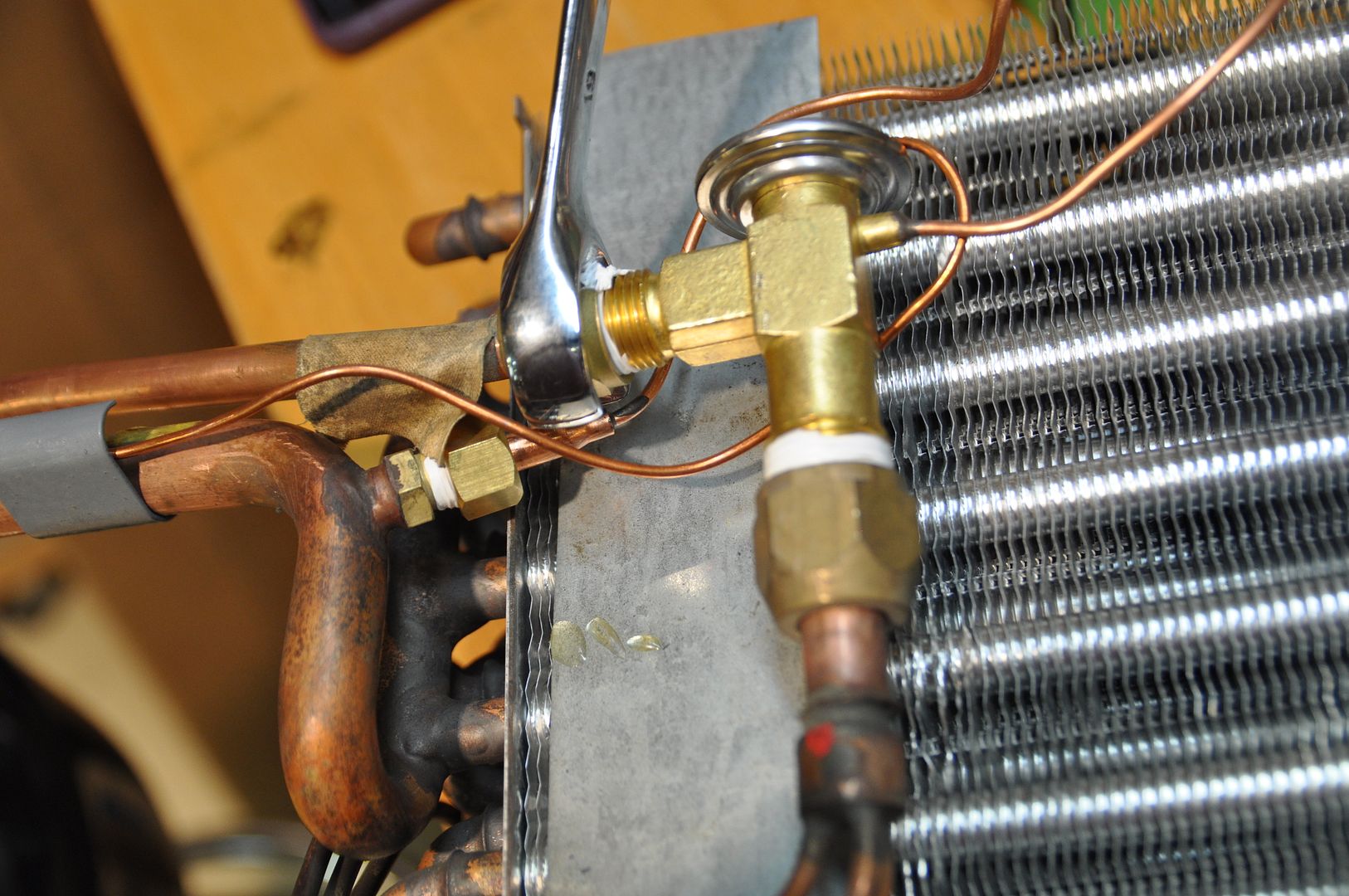
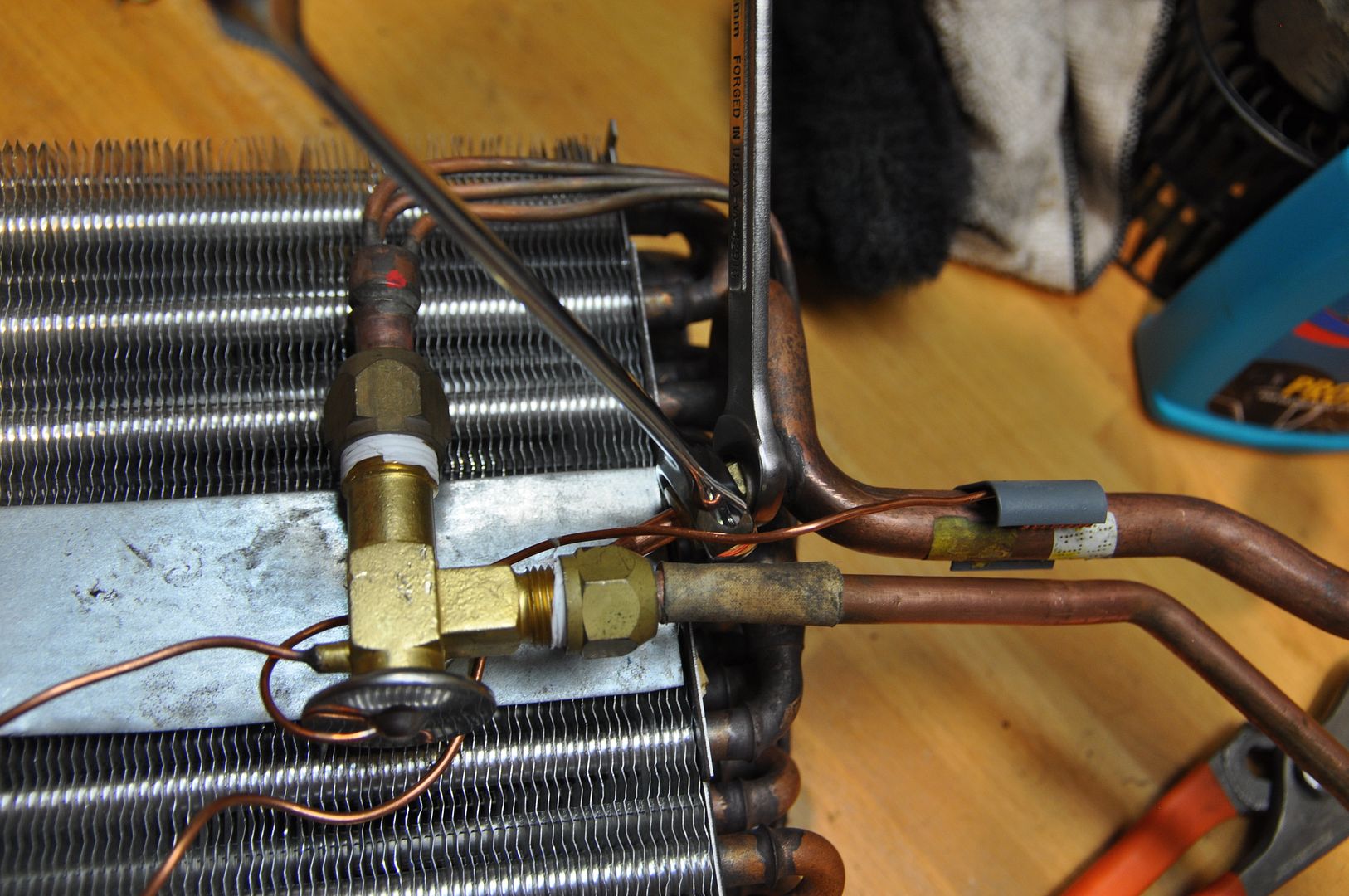
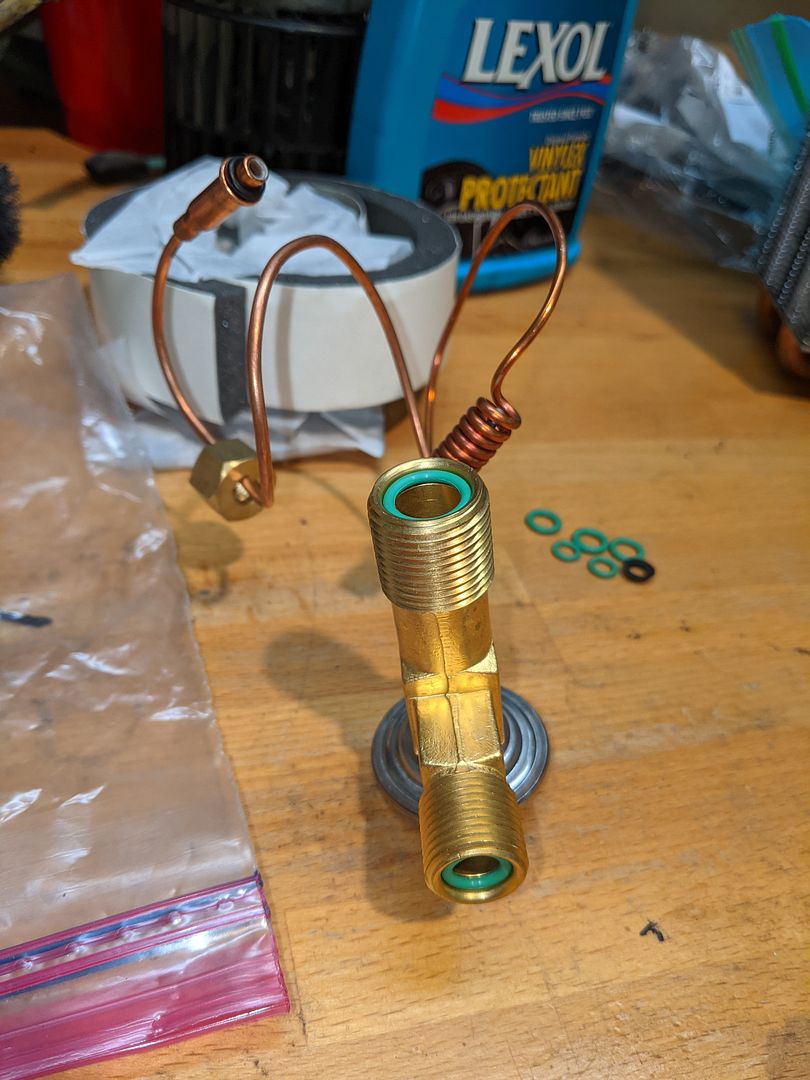
Then I installed a suitable replacement for the pipe insulation (again, thanks Jens for the tip). I sourced it from Grainger and seeds to do the trick:
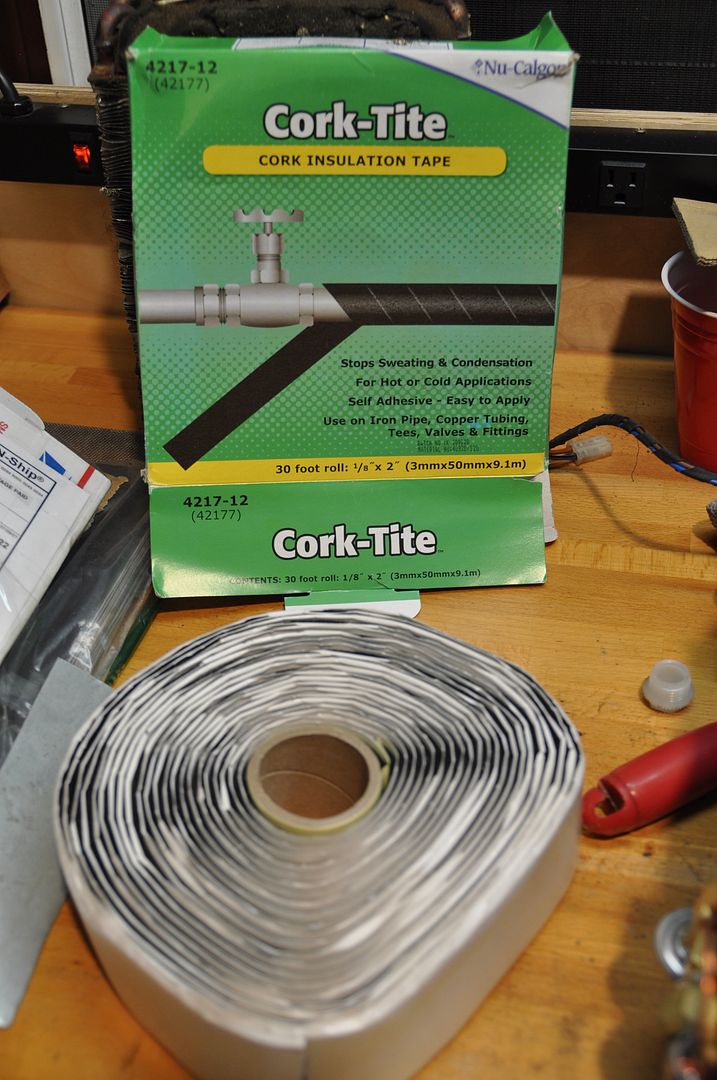
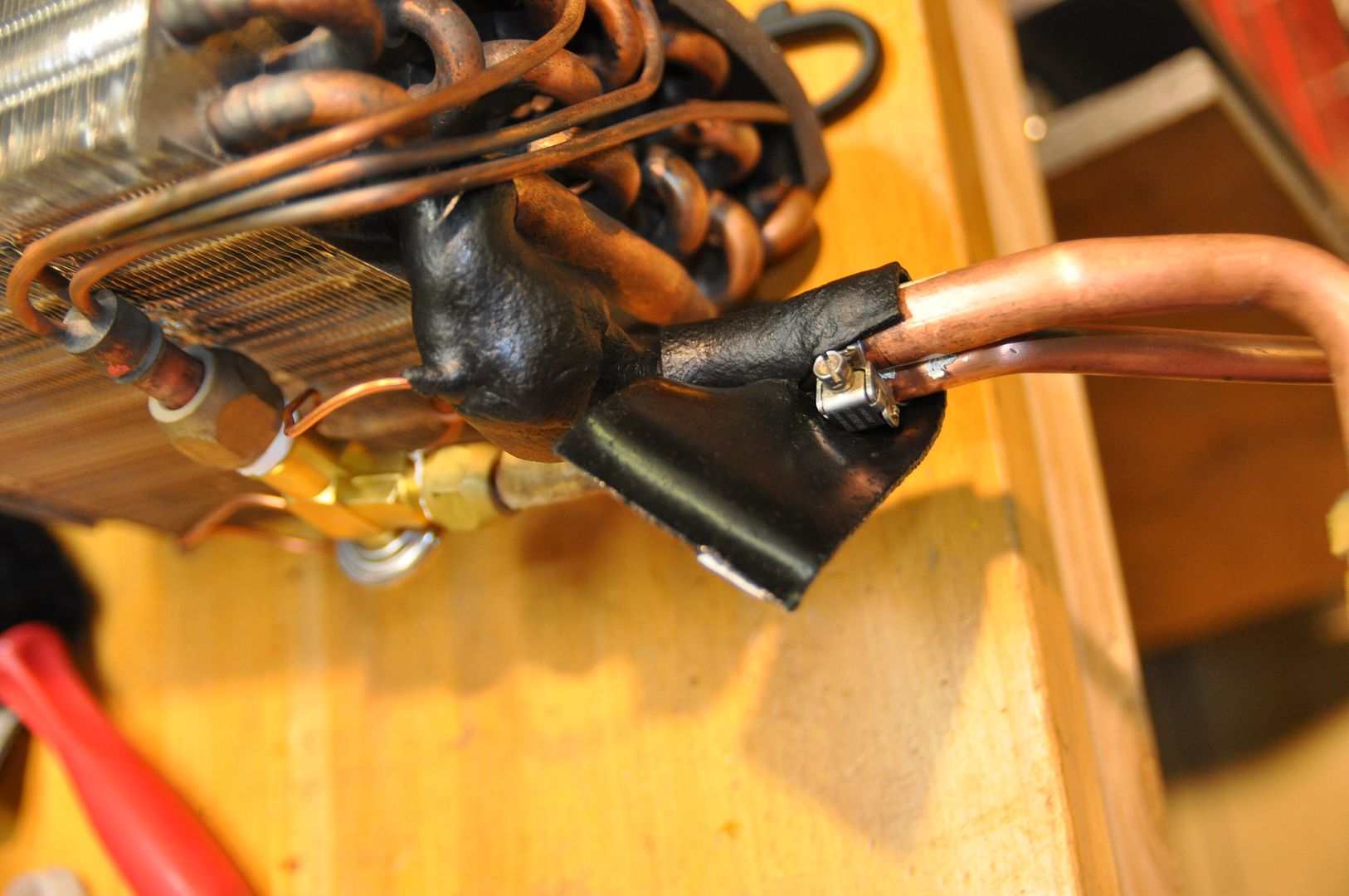
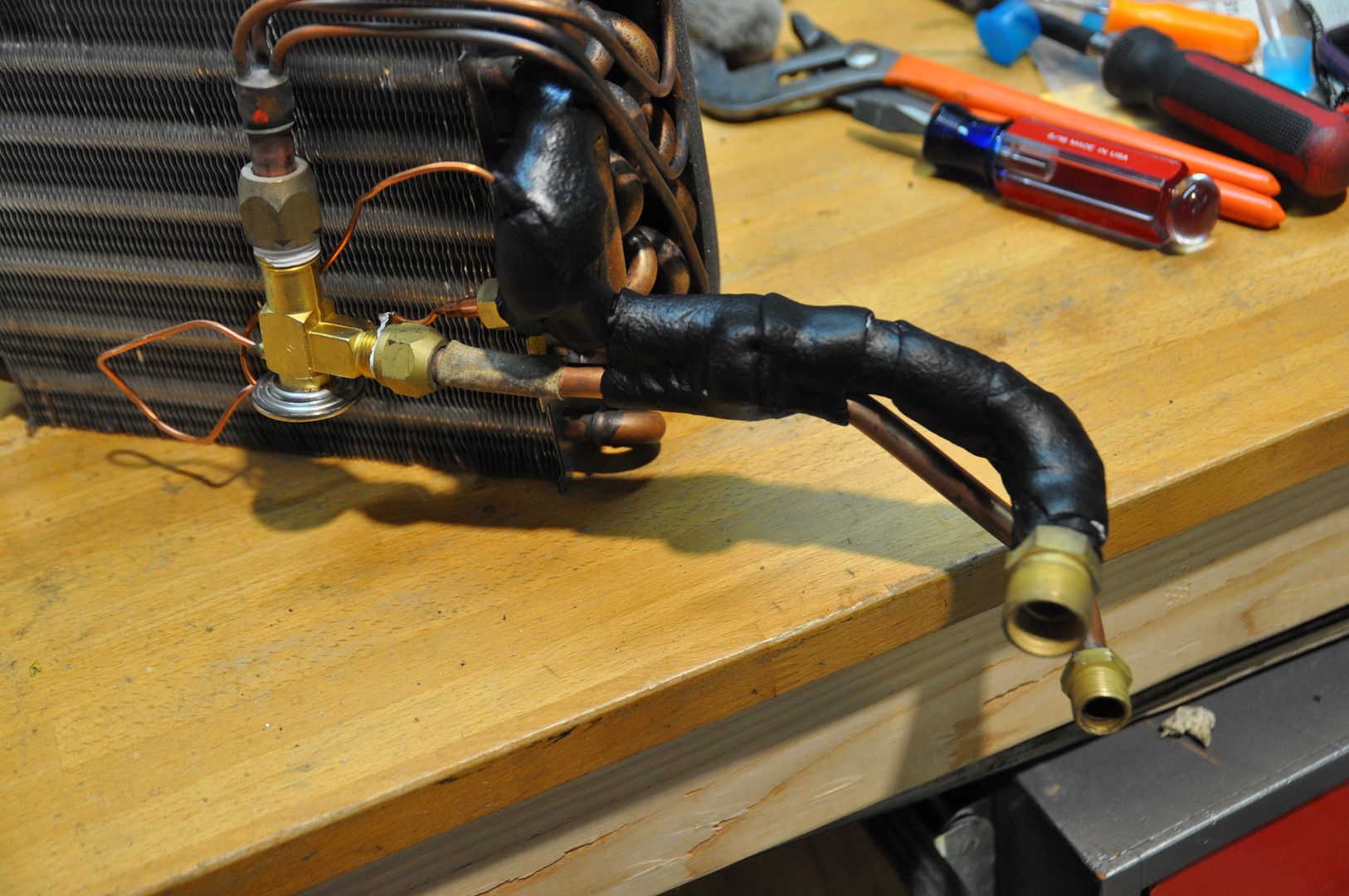
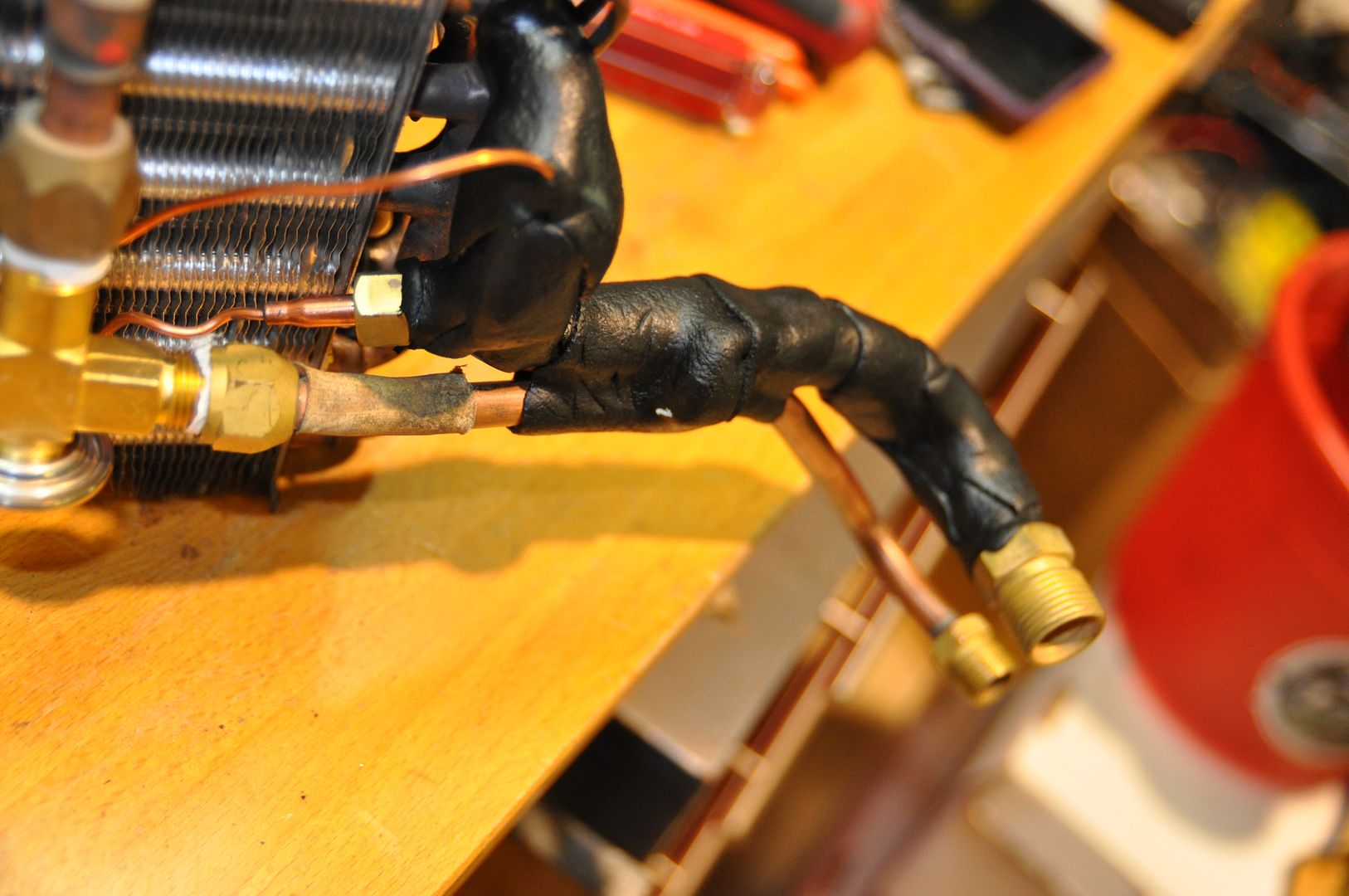
One of my many frustrations at using new parts in older applications. It seems that BMW used a pin to locate and hold the blower fan in position in the Evaporator box. There is a corresponding hole(s) in the blower fan motor housing to receive said pin:
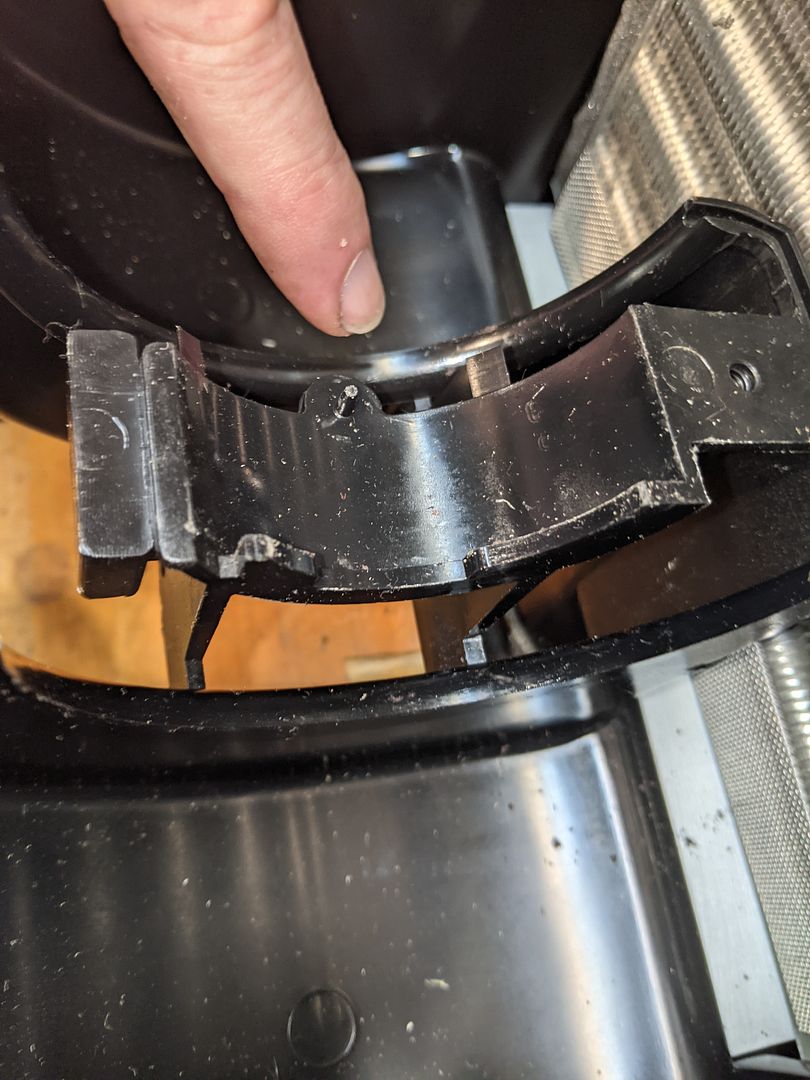
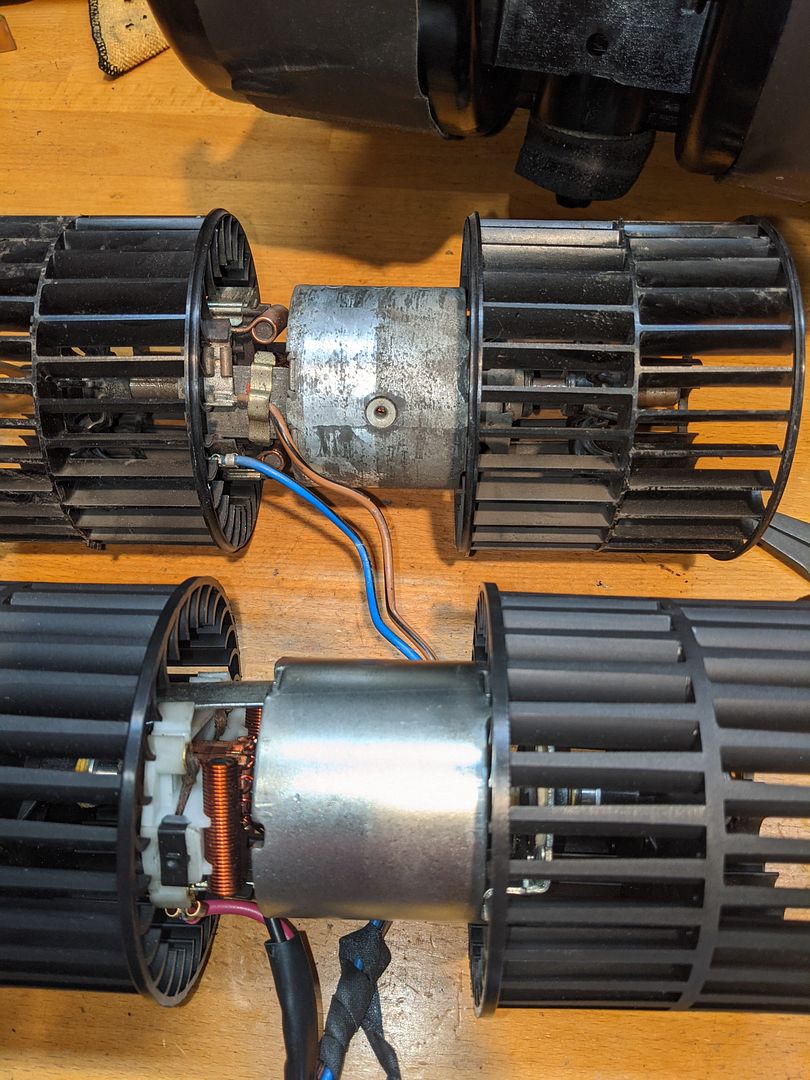
Well, Bosch seemed to forget to add this hole into the new replacement blower fan ( grrrr). So after some thinking I broke out the drill and made my own hole:
grrrr). So after some thinking I broke out the drill and made my own hole:
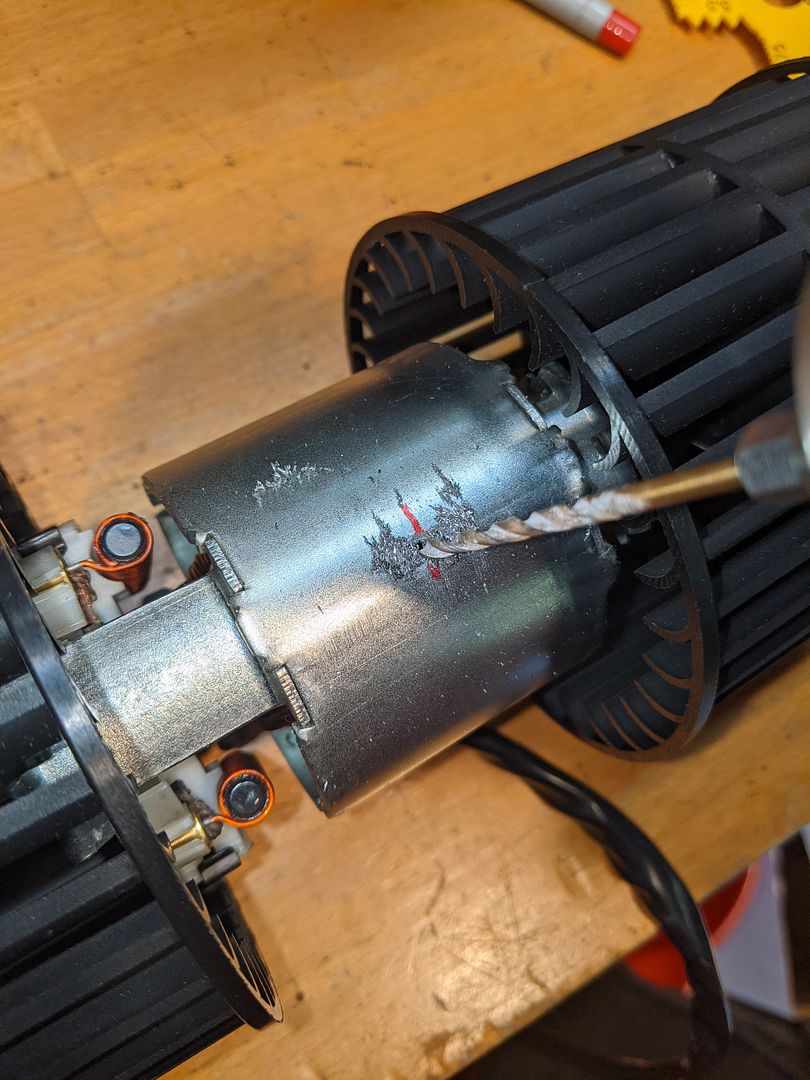
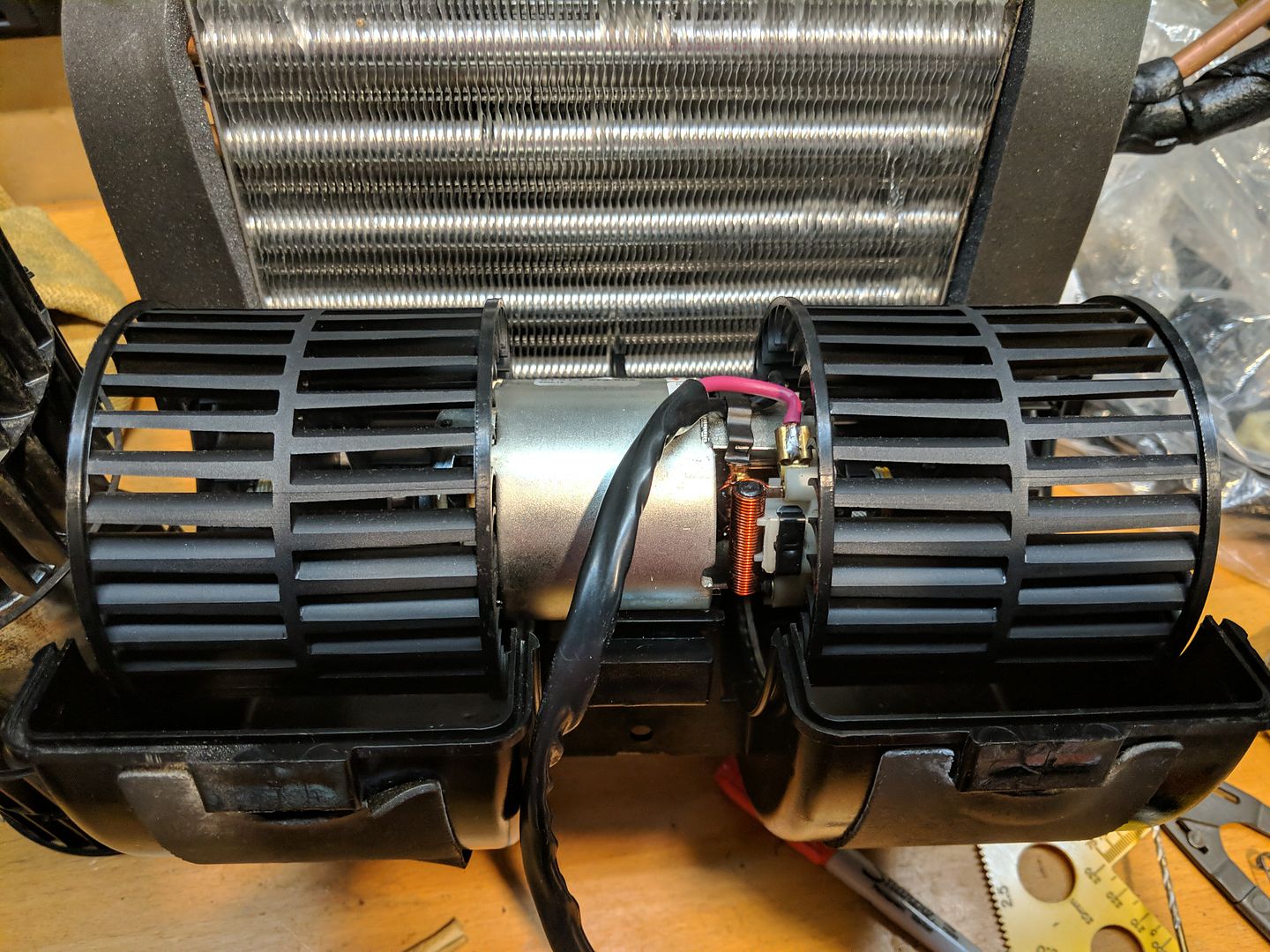
Once done it went on the shelf waiting for re-installation:
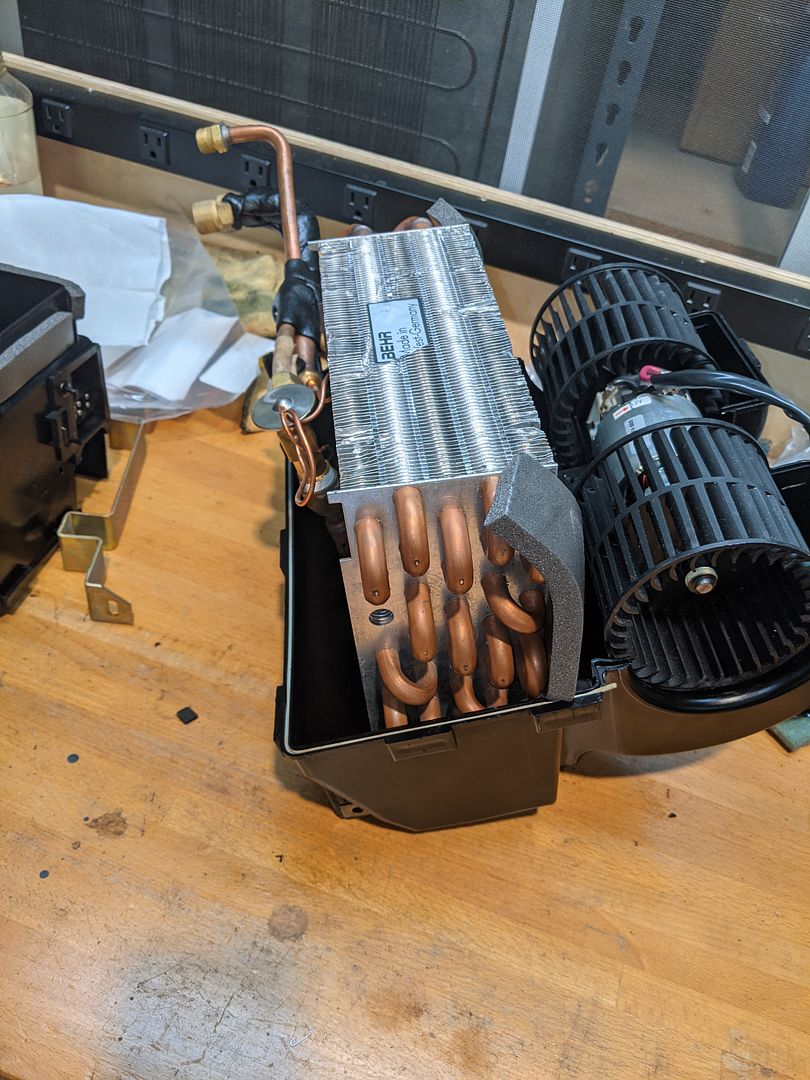
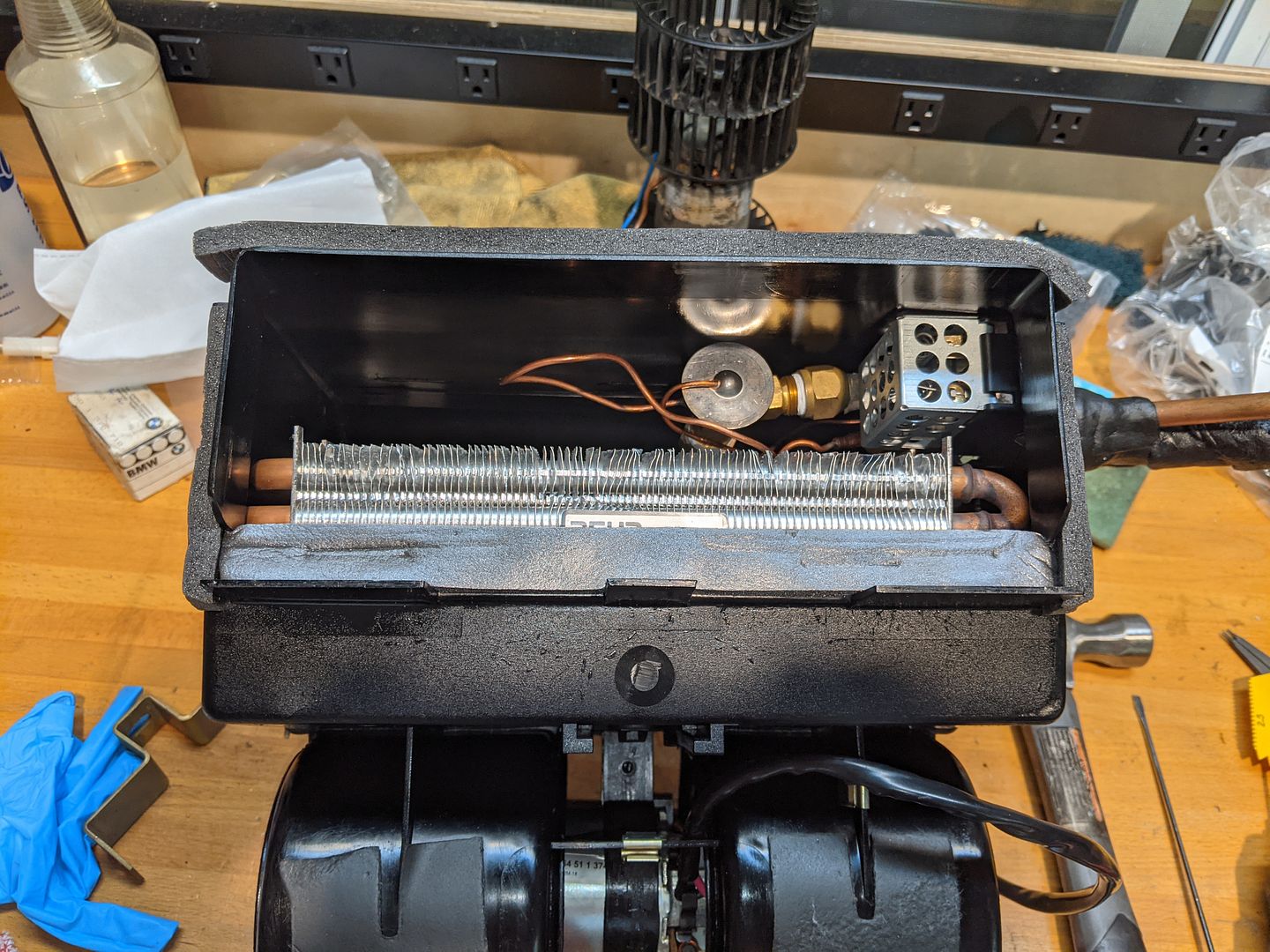
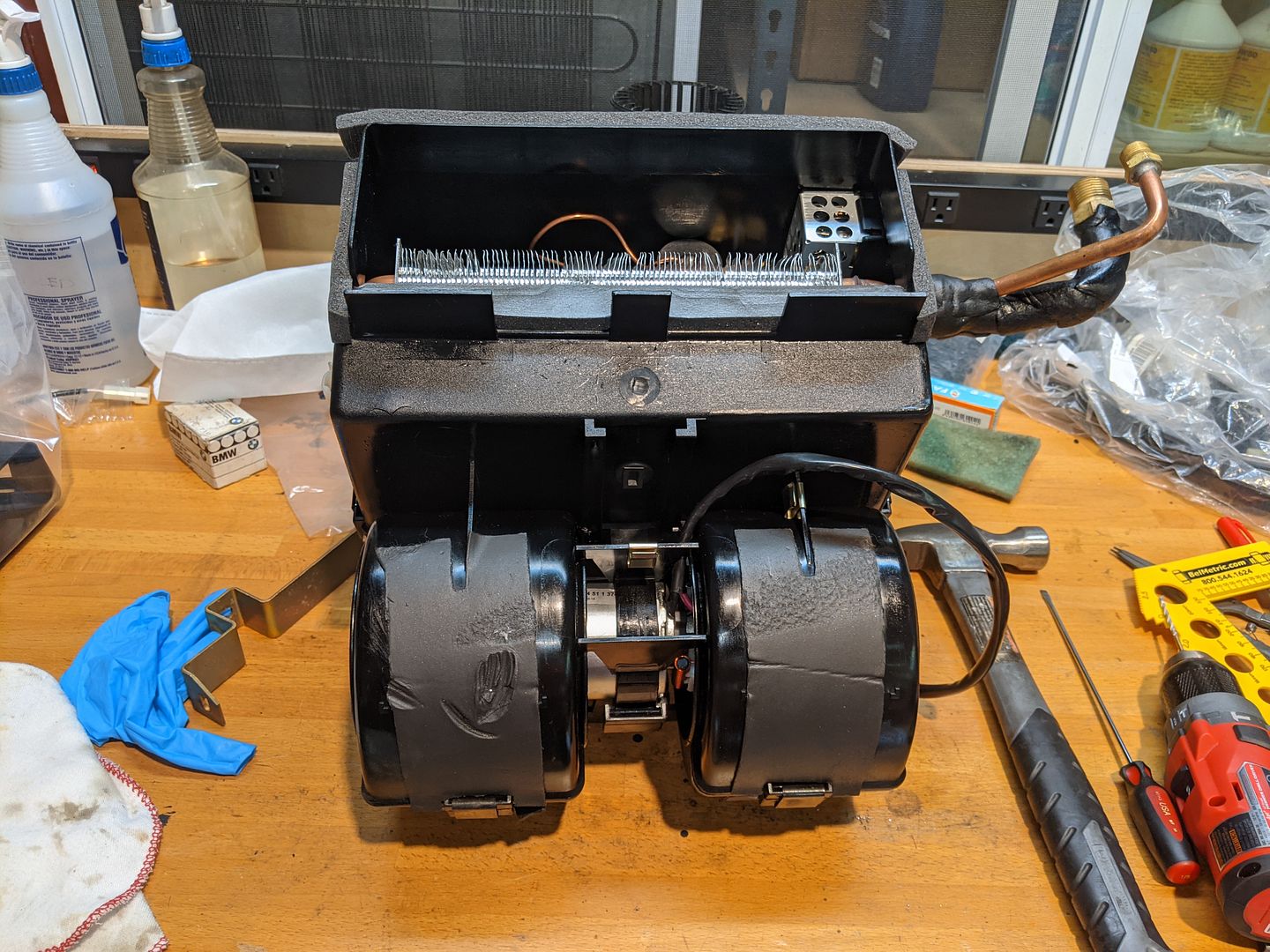
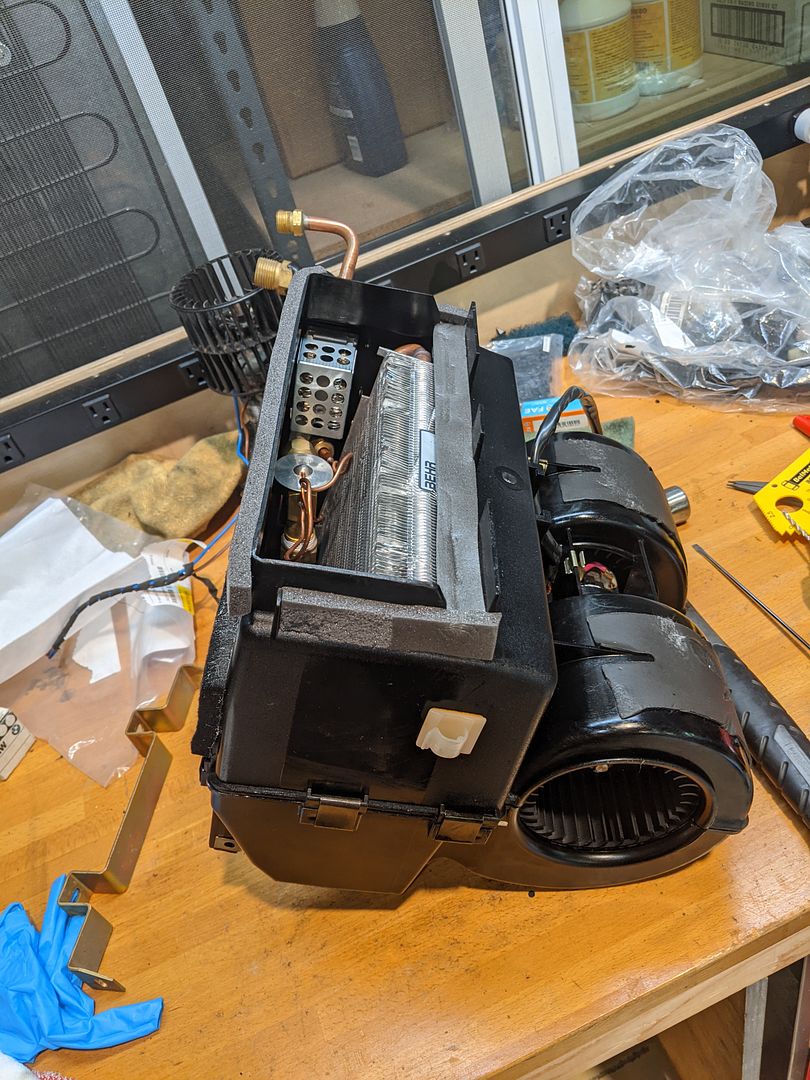
During that time I also decided to give the HVAC control interface some refreshment. This consisted of taking it apart, cleaning, lubricating, installing a new fan switch and installing new light bulbs:
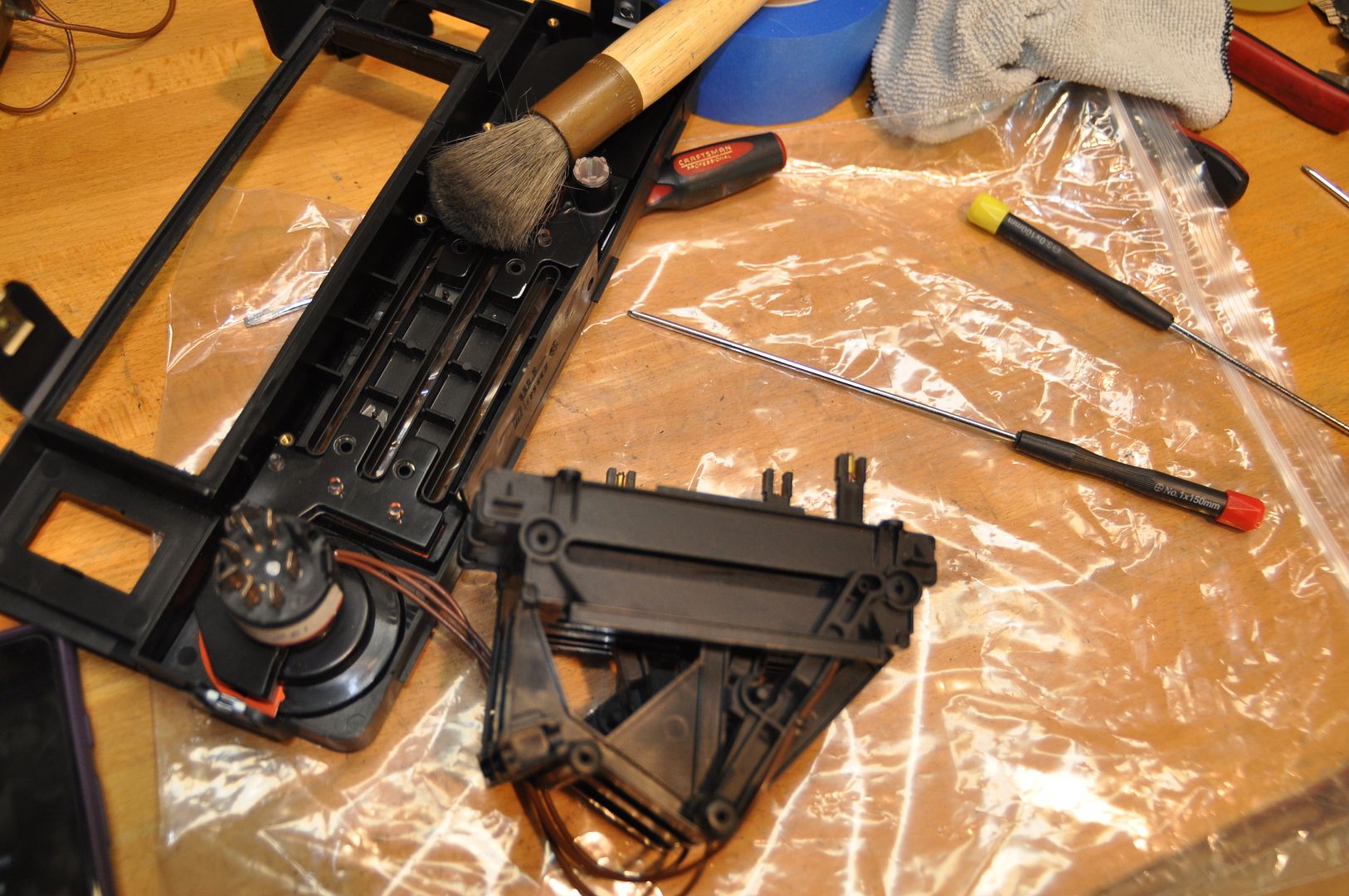
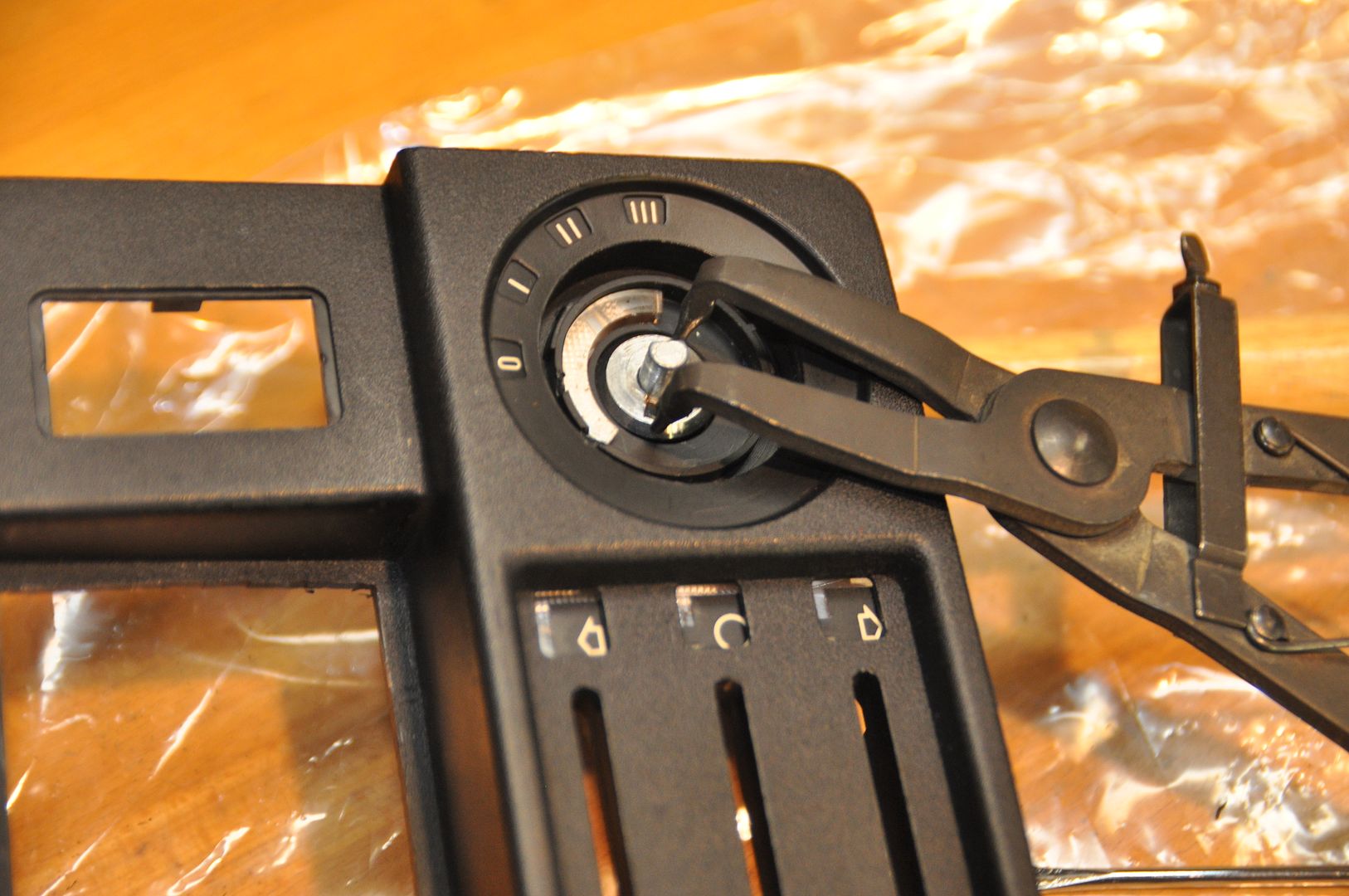
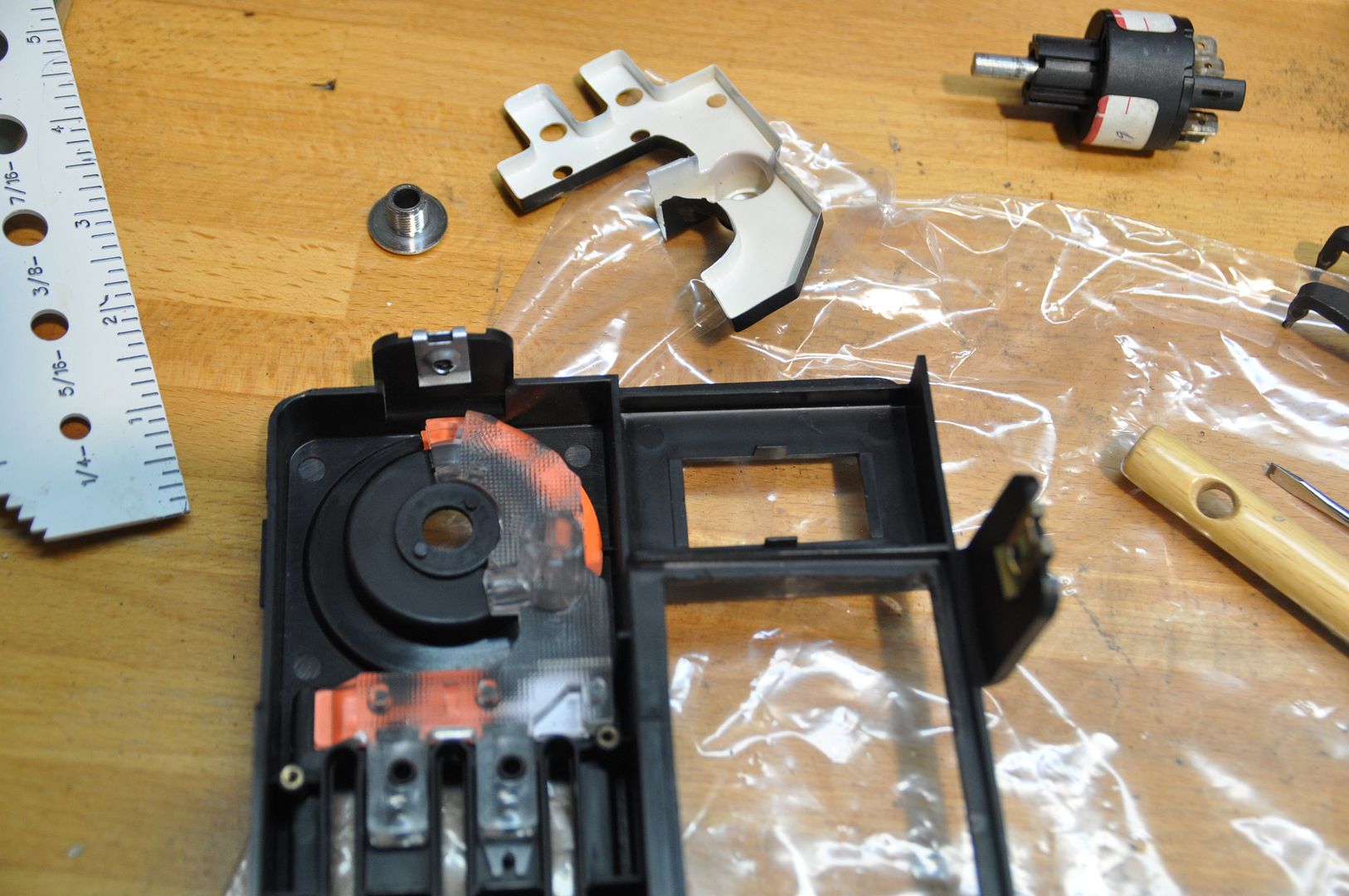
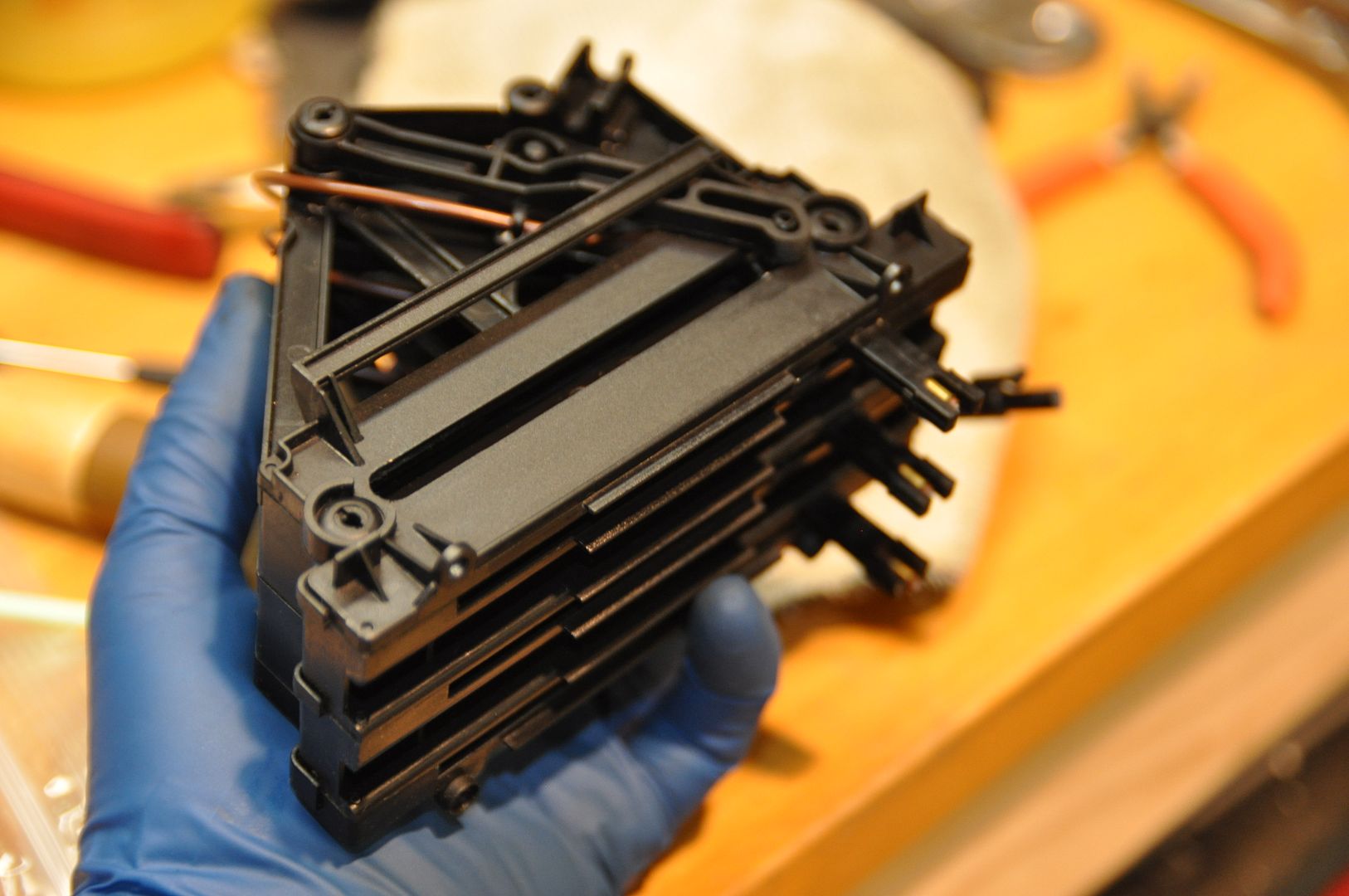
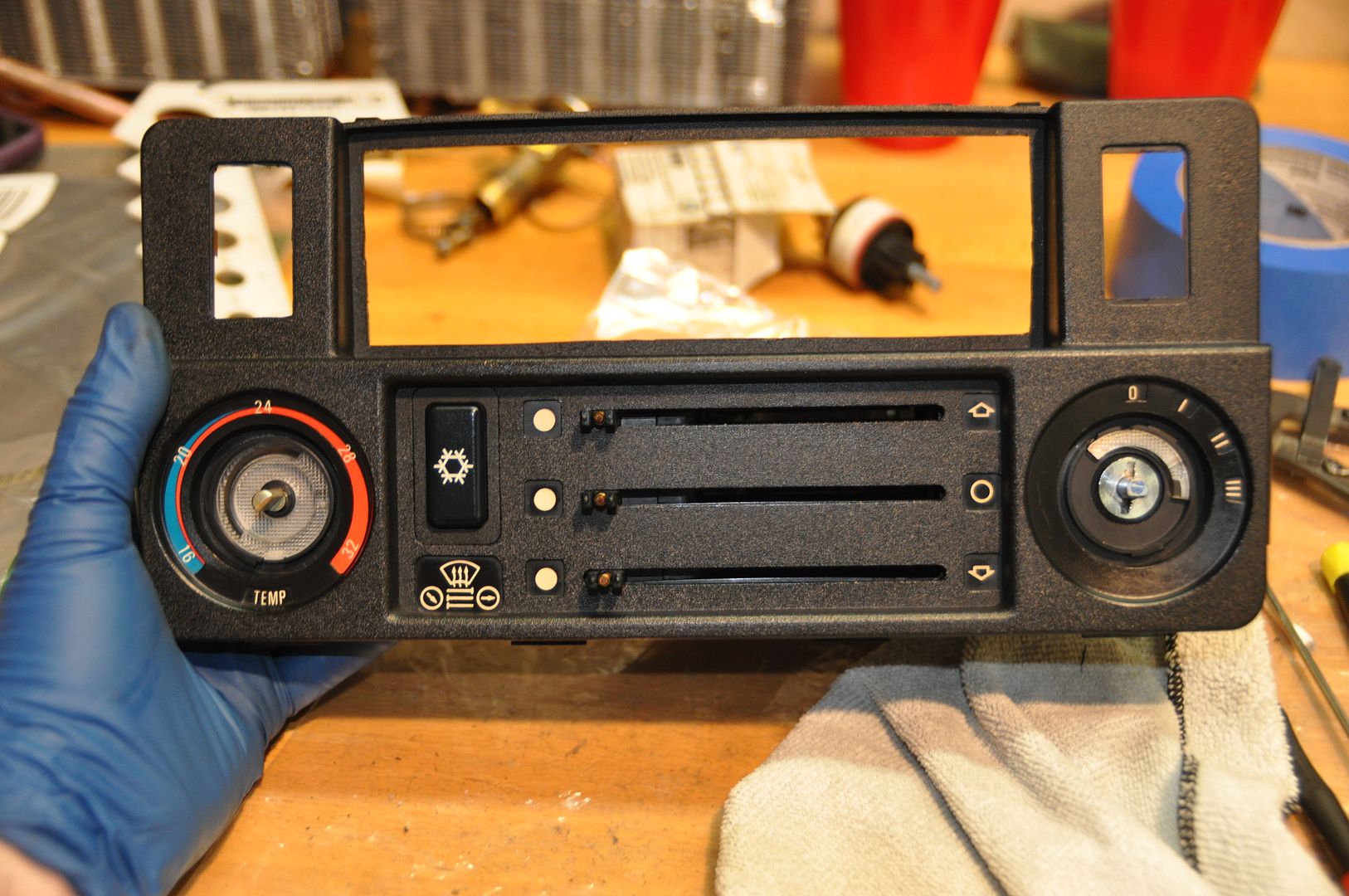
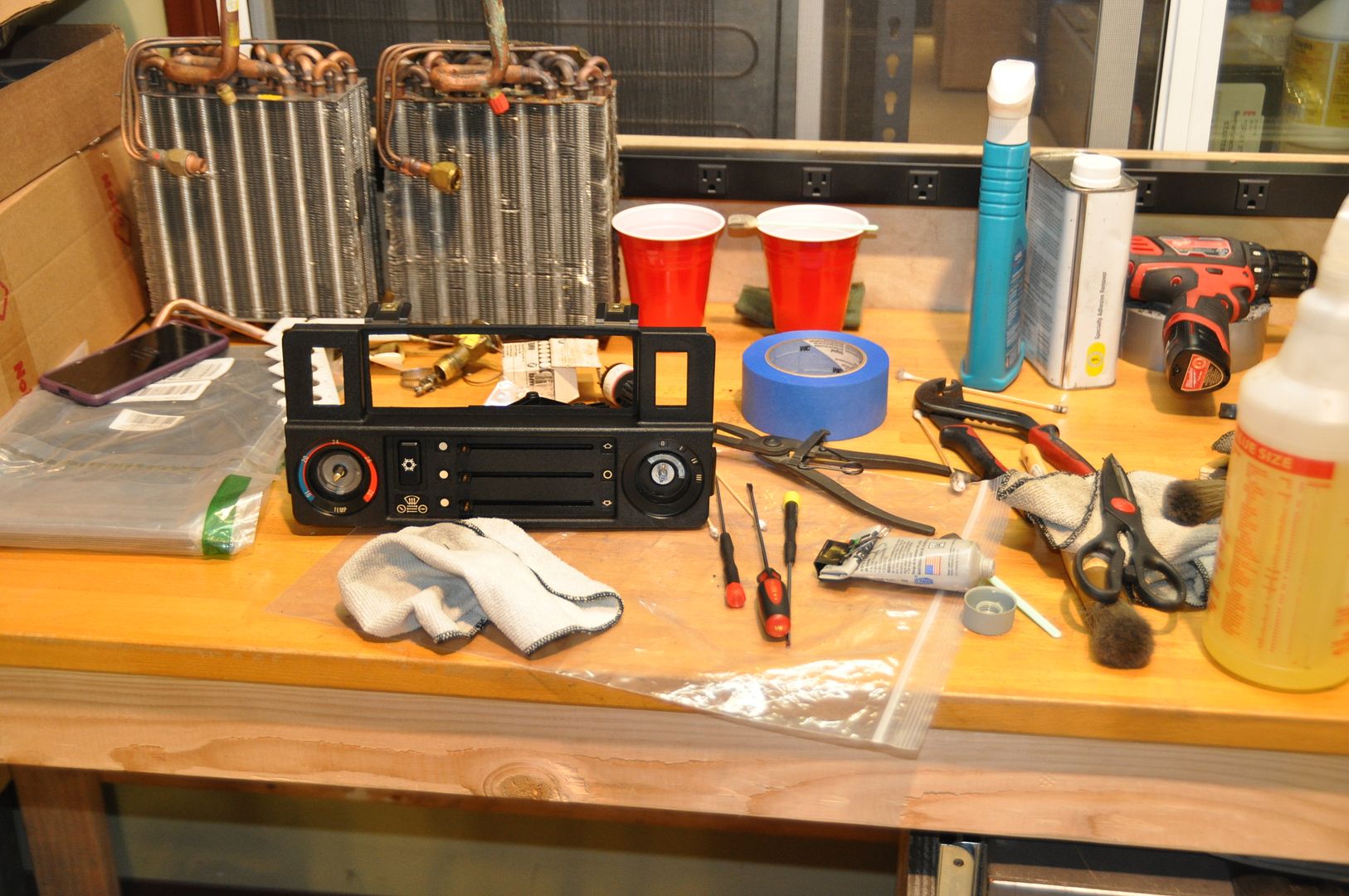
With all the HVAC components ready, it was time to wait for Carpet installation.
The next item on the list was completing the floor work which included the rest of the acoustic and thermal insulation/protection.
A layer of Heatshield db Stealth Thermal backing (same stuff I have on the roof under the headliner).
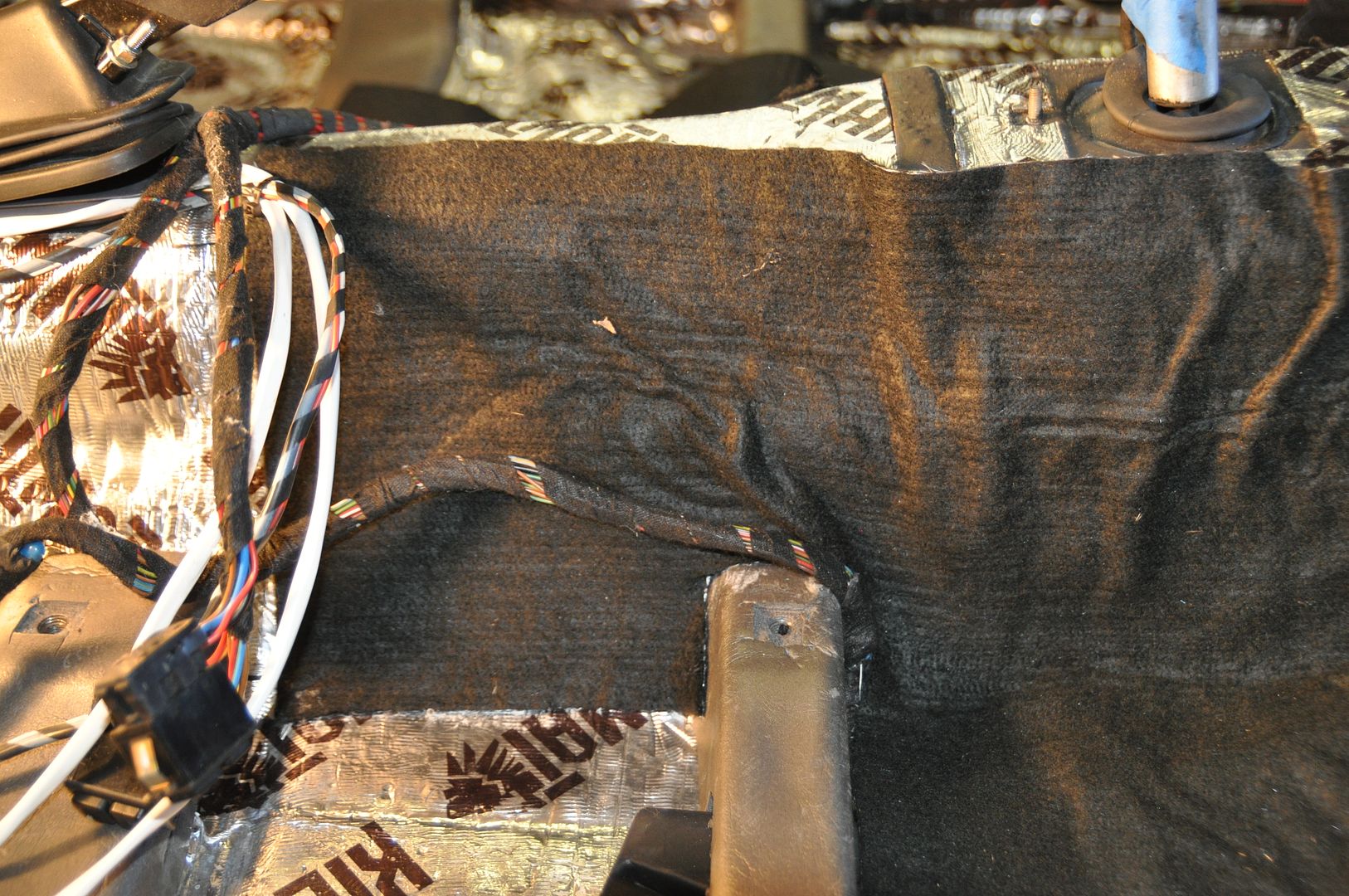
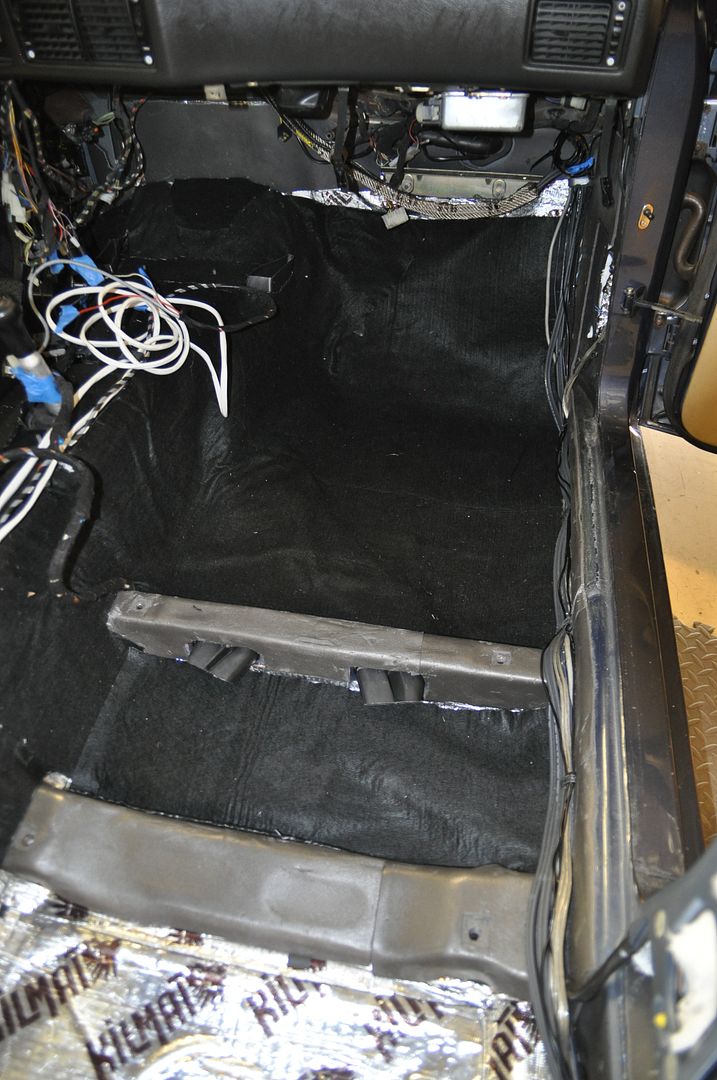
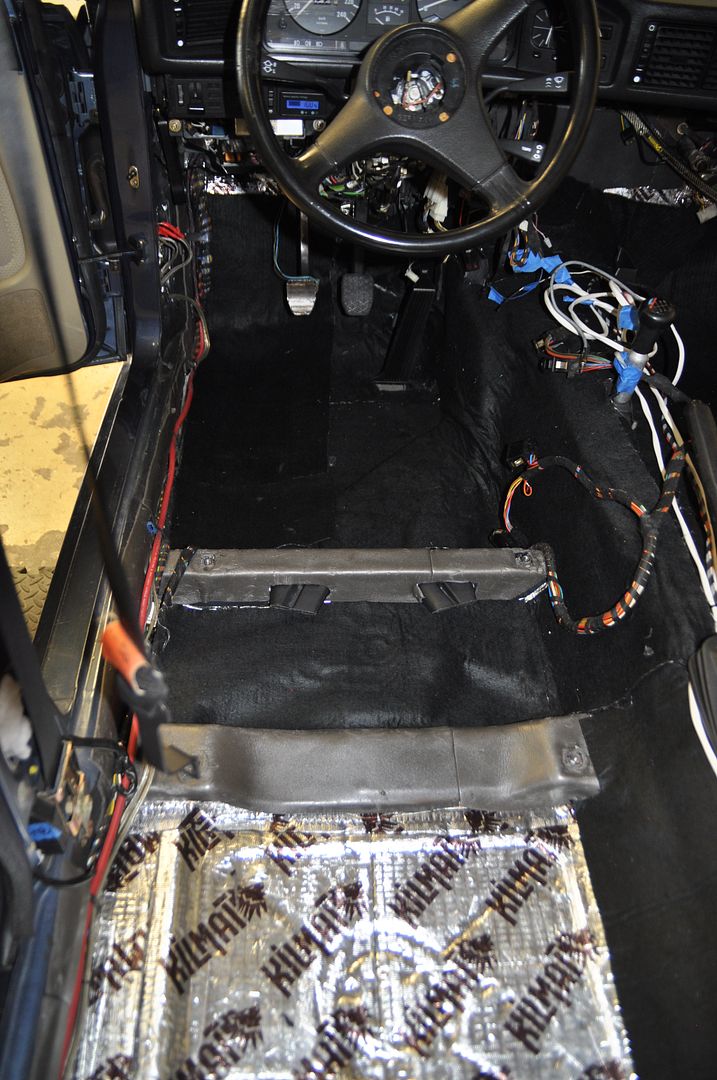
In between this and during this same time I was installing all my final audio wiring: RCA and speaker signal wires from the head unit to the trunk (up one side and the middle), speaker wires from the rear seat well to the front speakers:
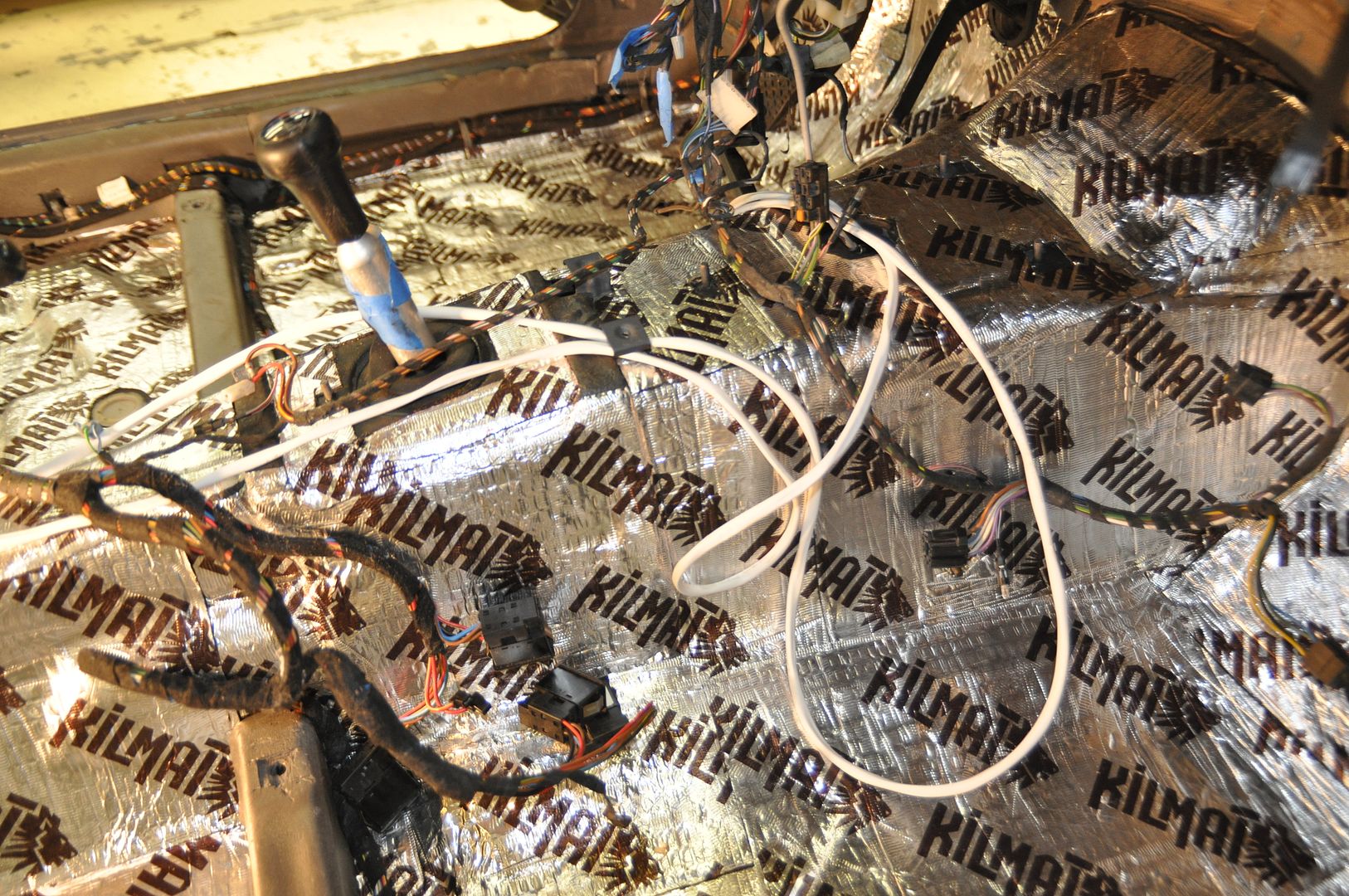
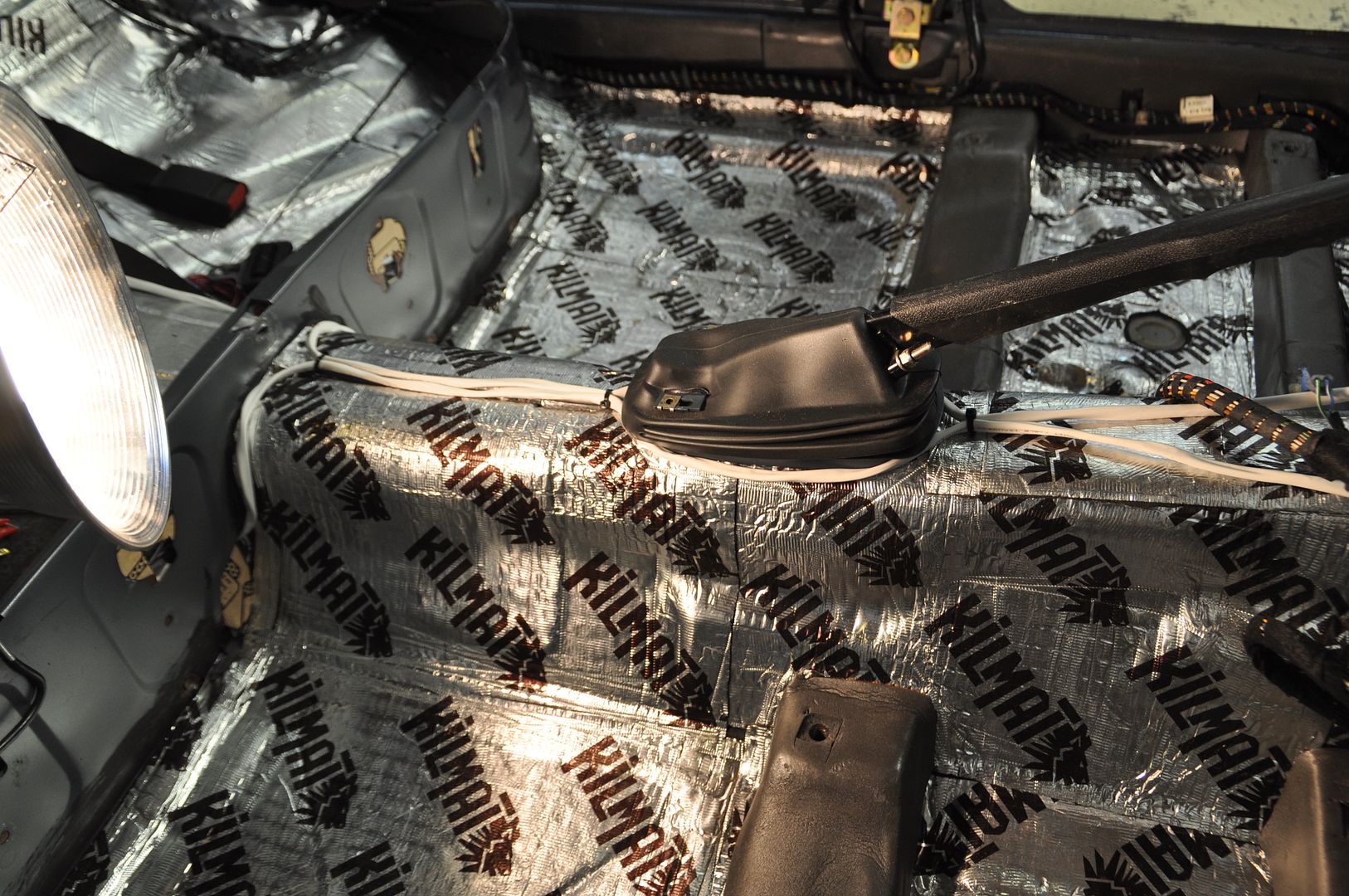
One new thing I’m trying is a remote power cut-off switch for the entire trunk, the primary object there being the audio amp board (I have a few other items running off the big battery lead cable as well). I have suspected since I put this amp board in that it has been vampiring my battery in a big way. Even after putting in a brand-new AGM battery, it would pull down a full charge pretty quick sitting there in the hangar. This was fairly proven out to me because since I have had the amp board and large cable disconnected, my battery has been perfectly happy. After a bit of Big A research, I came up with this cutoff switch with a remote trigger switch that I will put discreetly in the glove box. Admittedly it was a lot larger than I thought it was going to be, but it fits nicely under the rear seat:
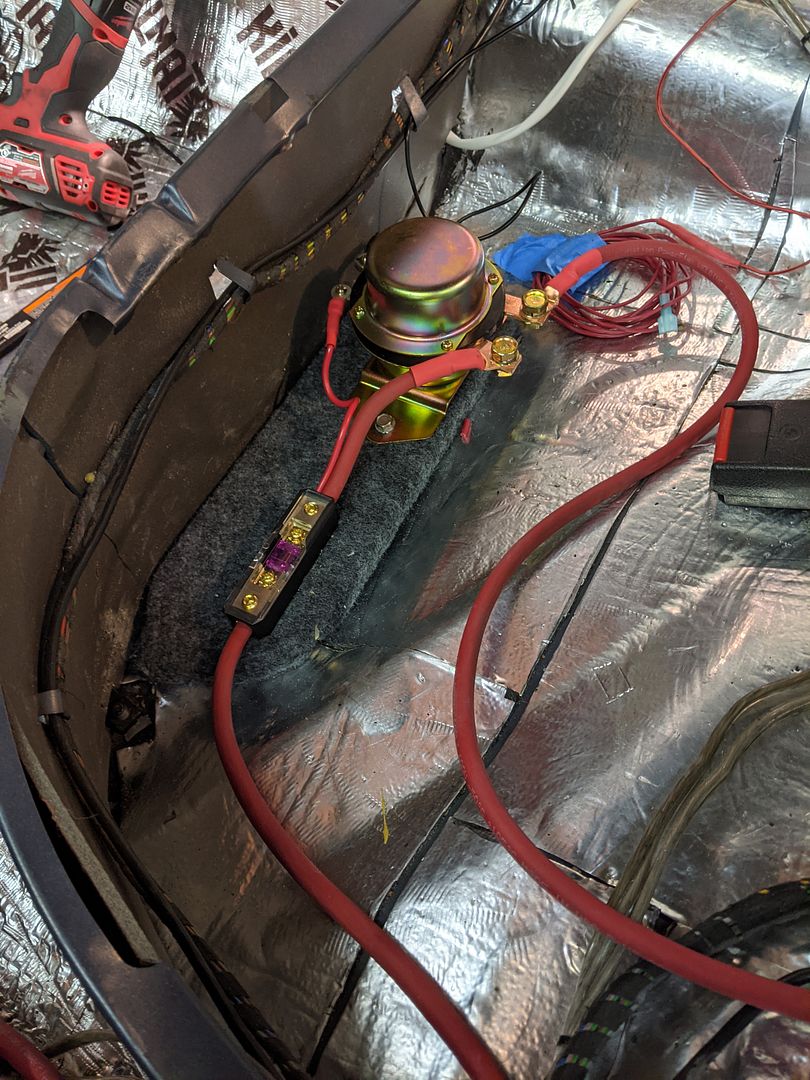
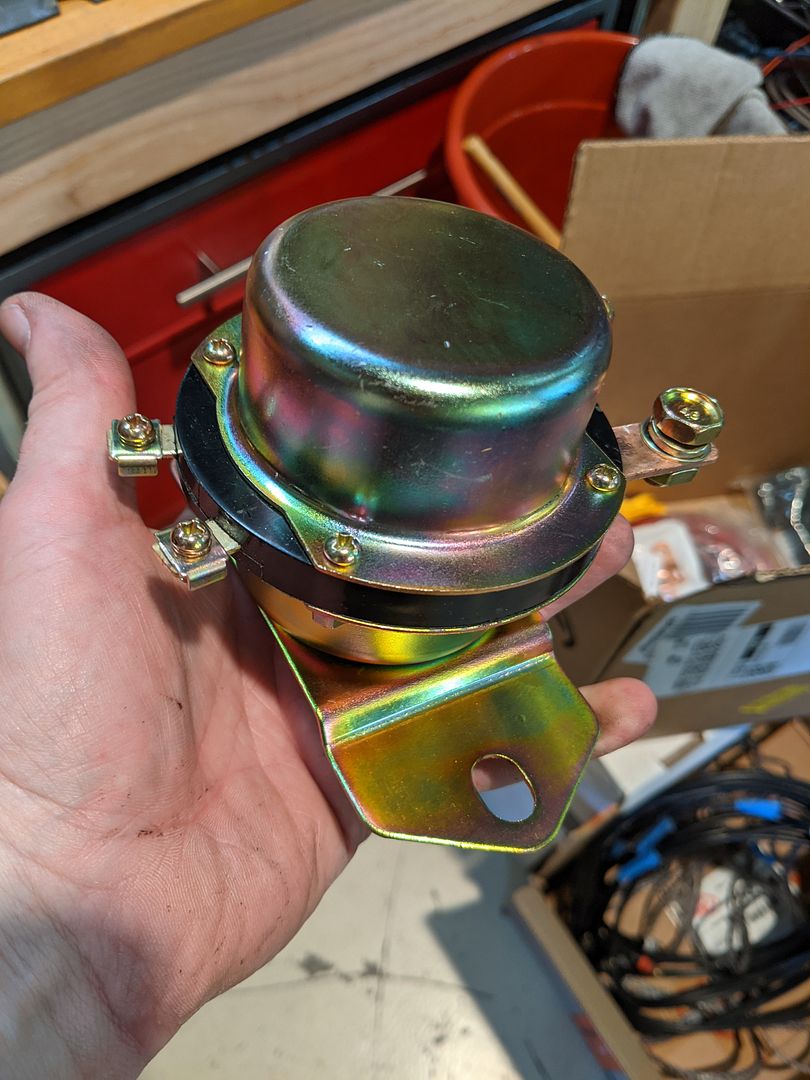
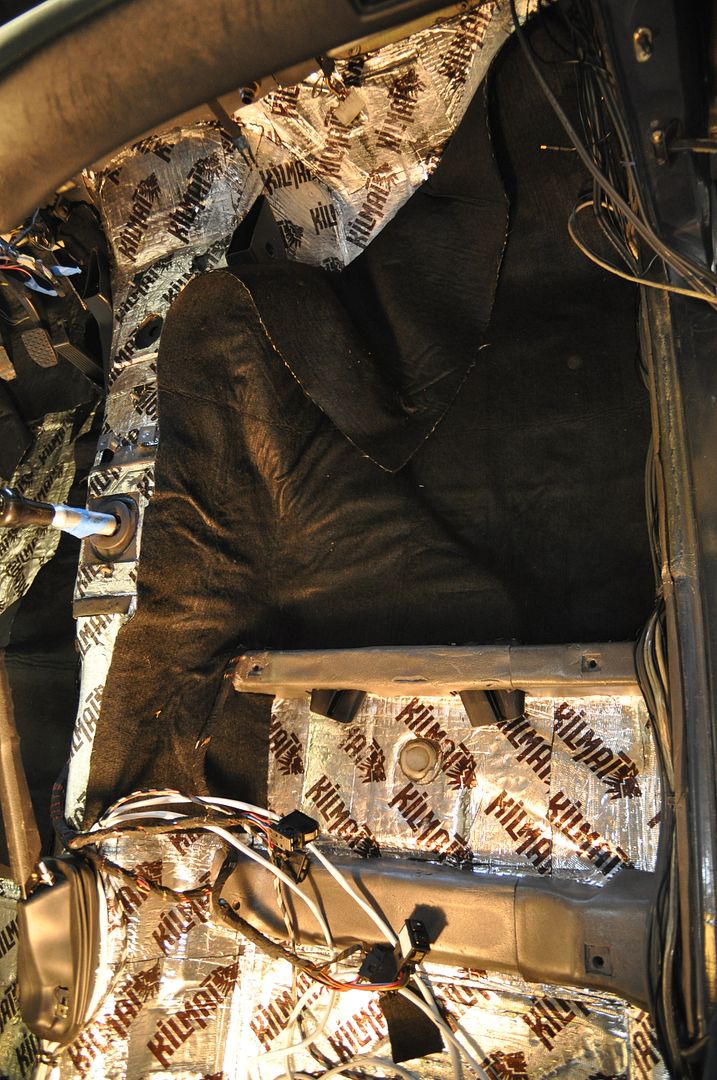
I ran a new 4ga copper wire from the battery to the rear seat well and then into the trunk. I haven’t connected it yet nor tested it, but I did get the amp board and rest of the trunk power network put back in this past weekend so it’s ready for testing.
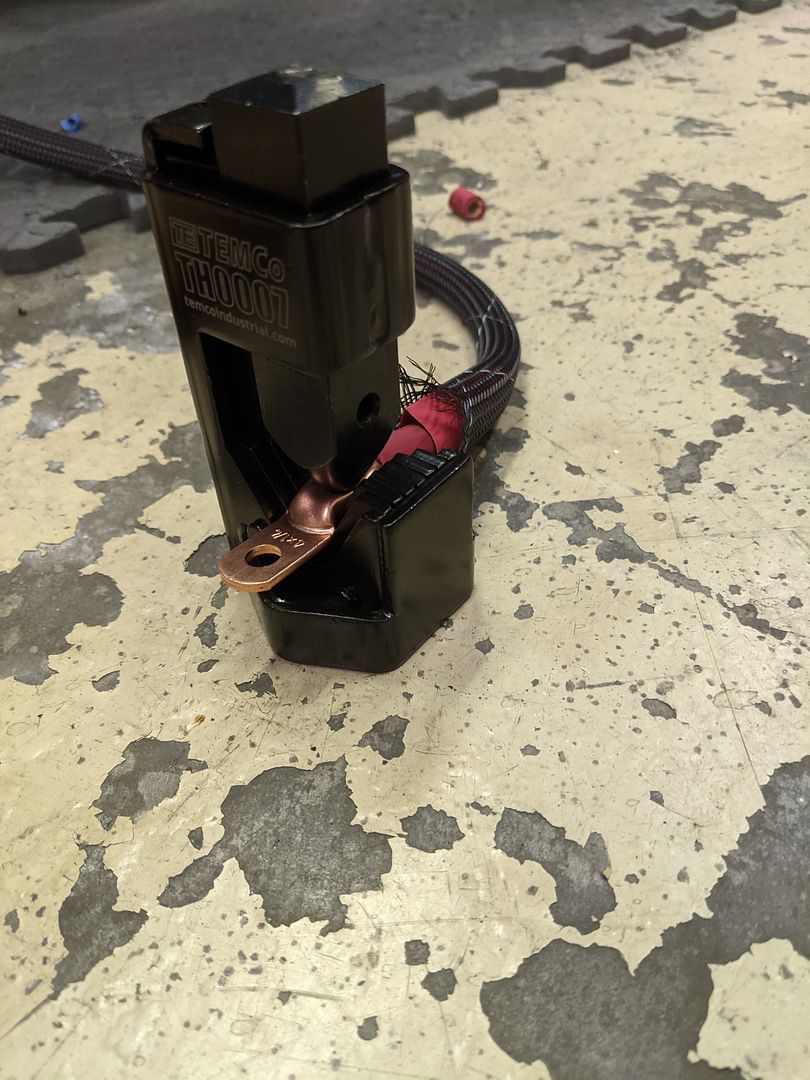
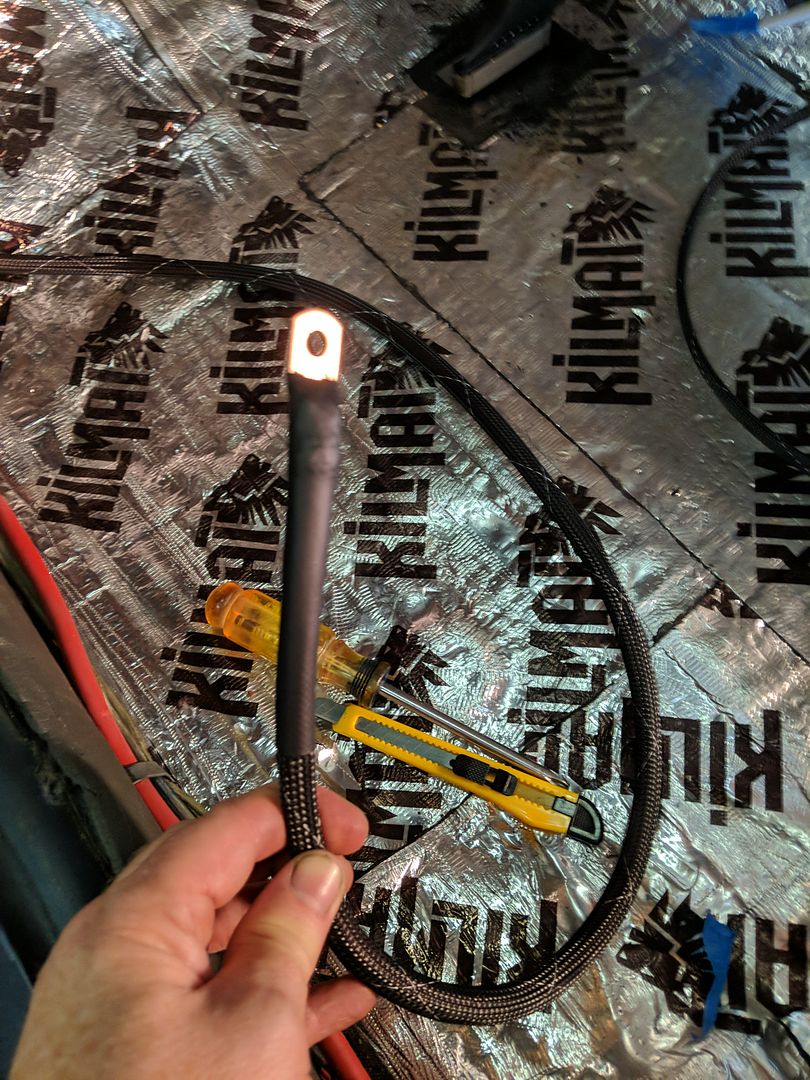
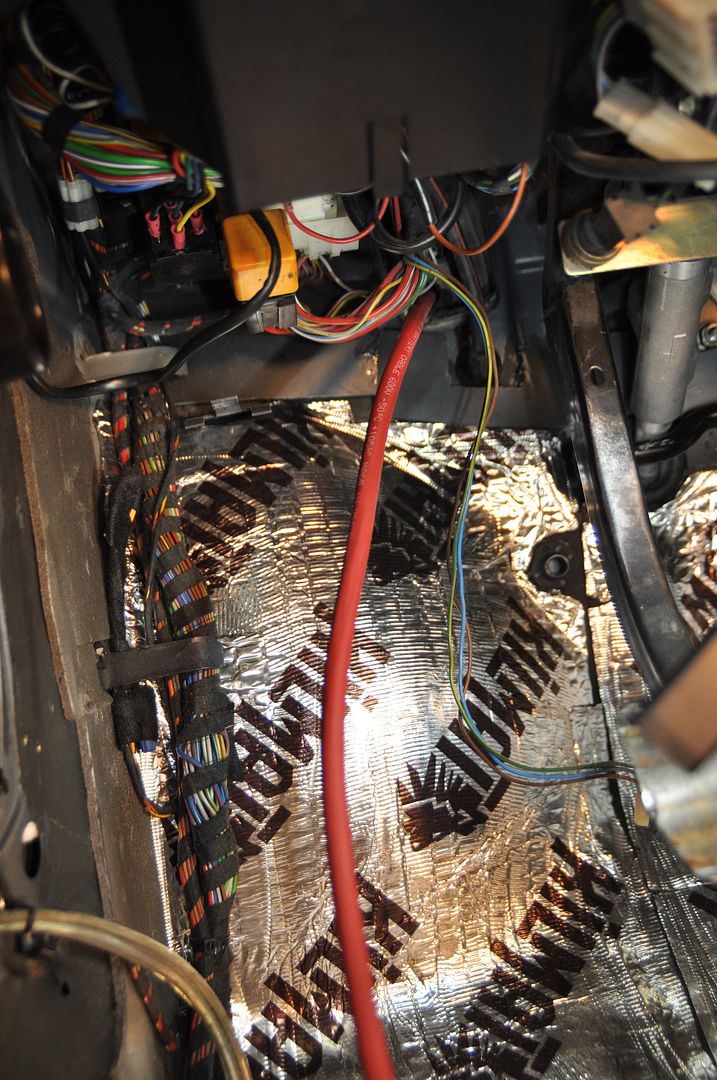
So once all that was squared away, it was time for the main event: Carpet installation.
I was used to working with the older style non-backed carpet which was much easier to man-handle single handily than this newer backed version. Of course, the db Stealth wasn’t helping things much but it wasn’t very thick, however it did add friction which made it harder to push it around and get it to line up to things.
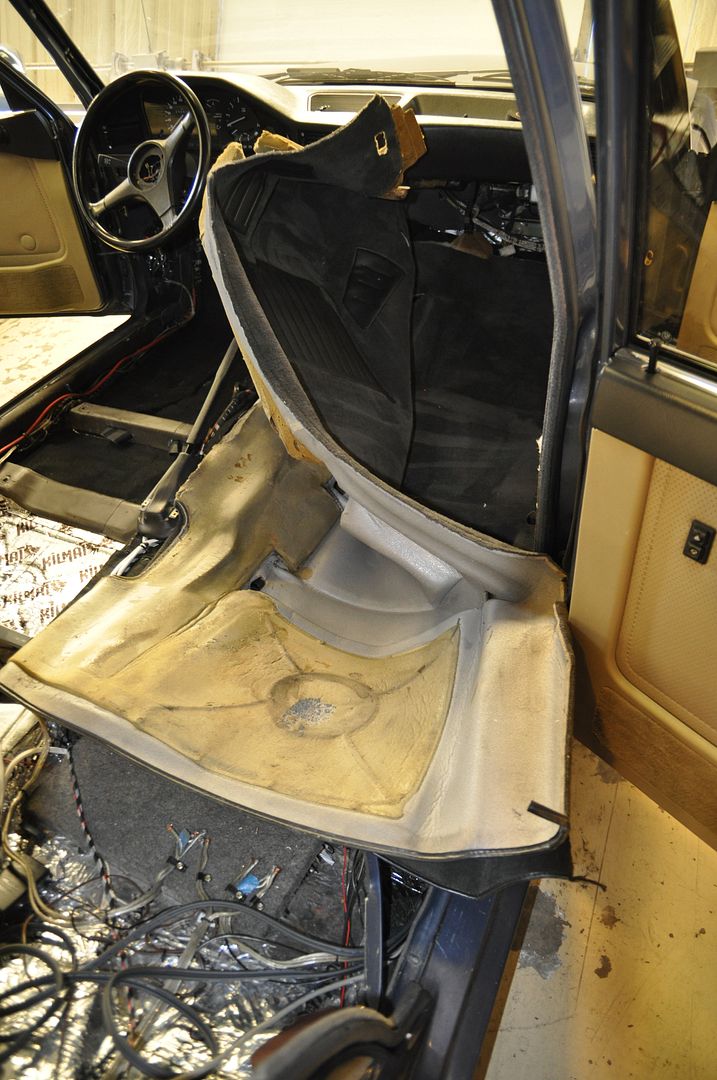
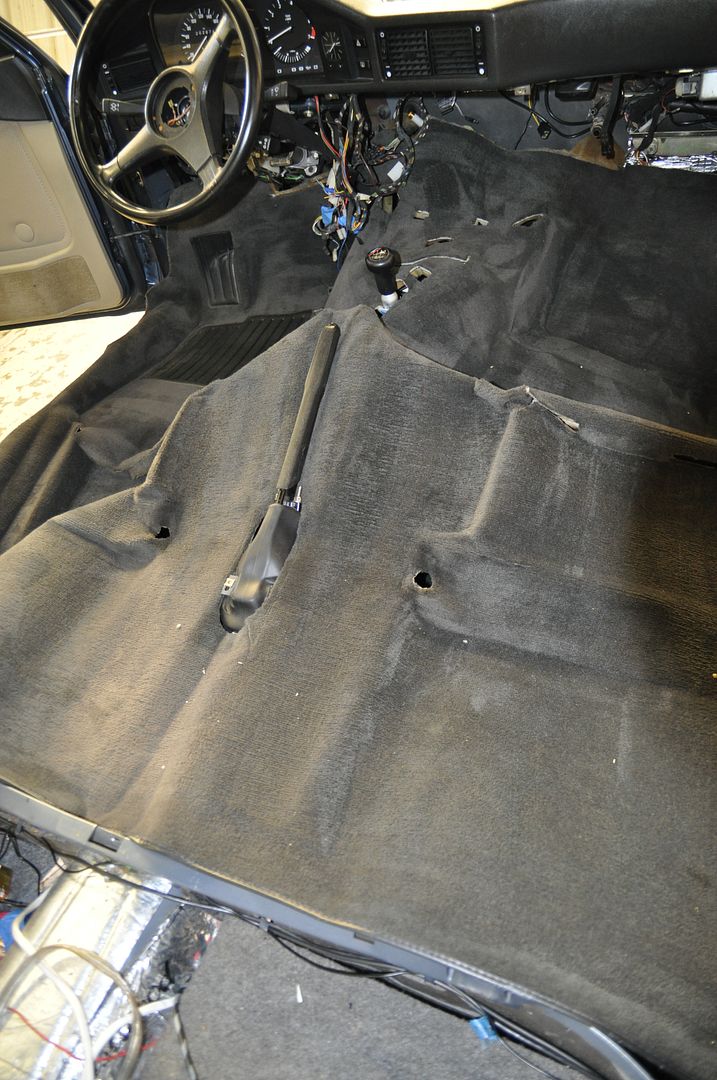
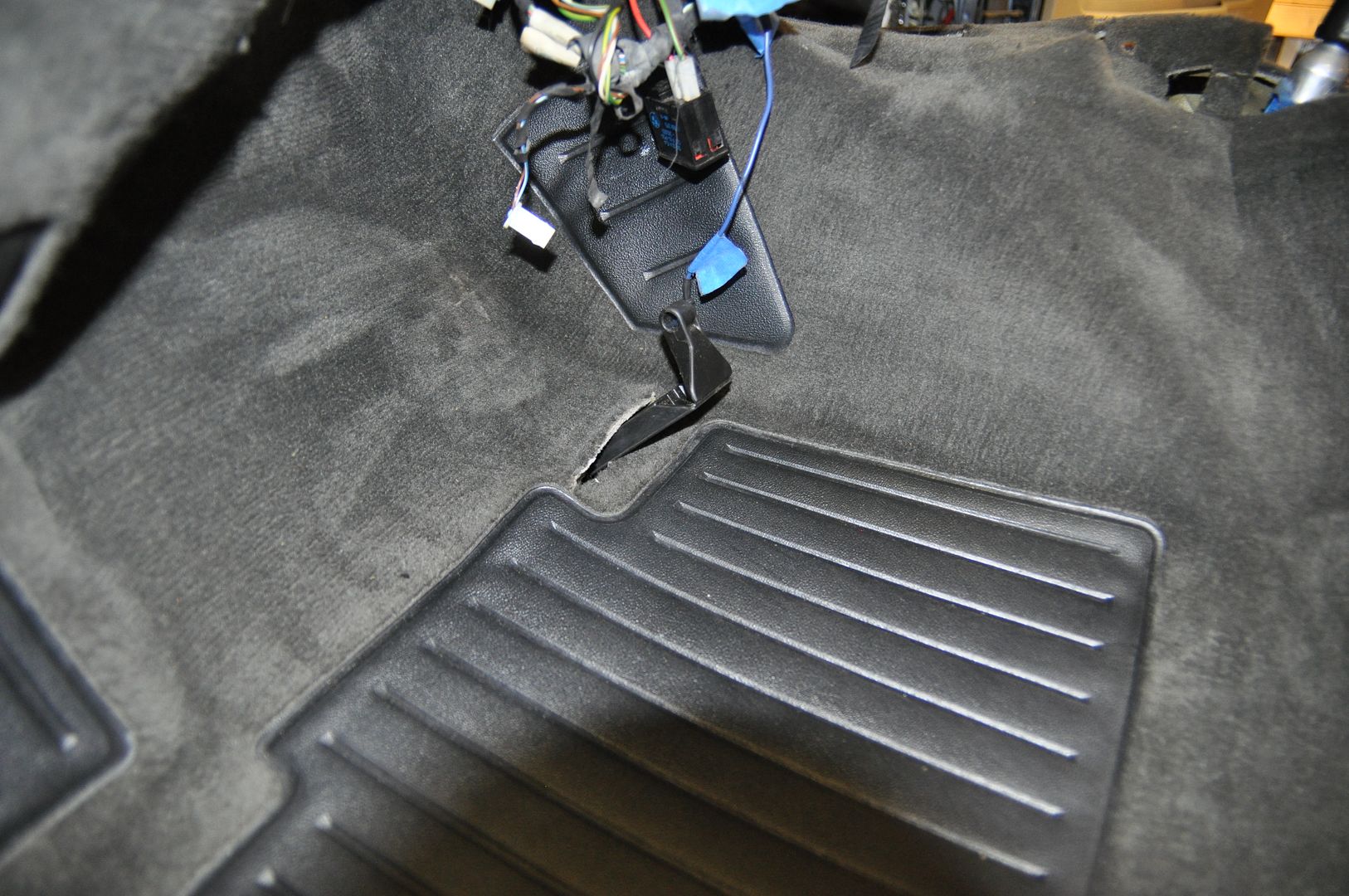
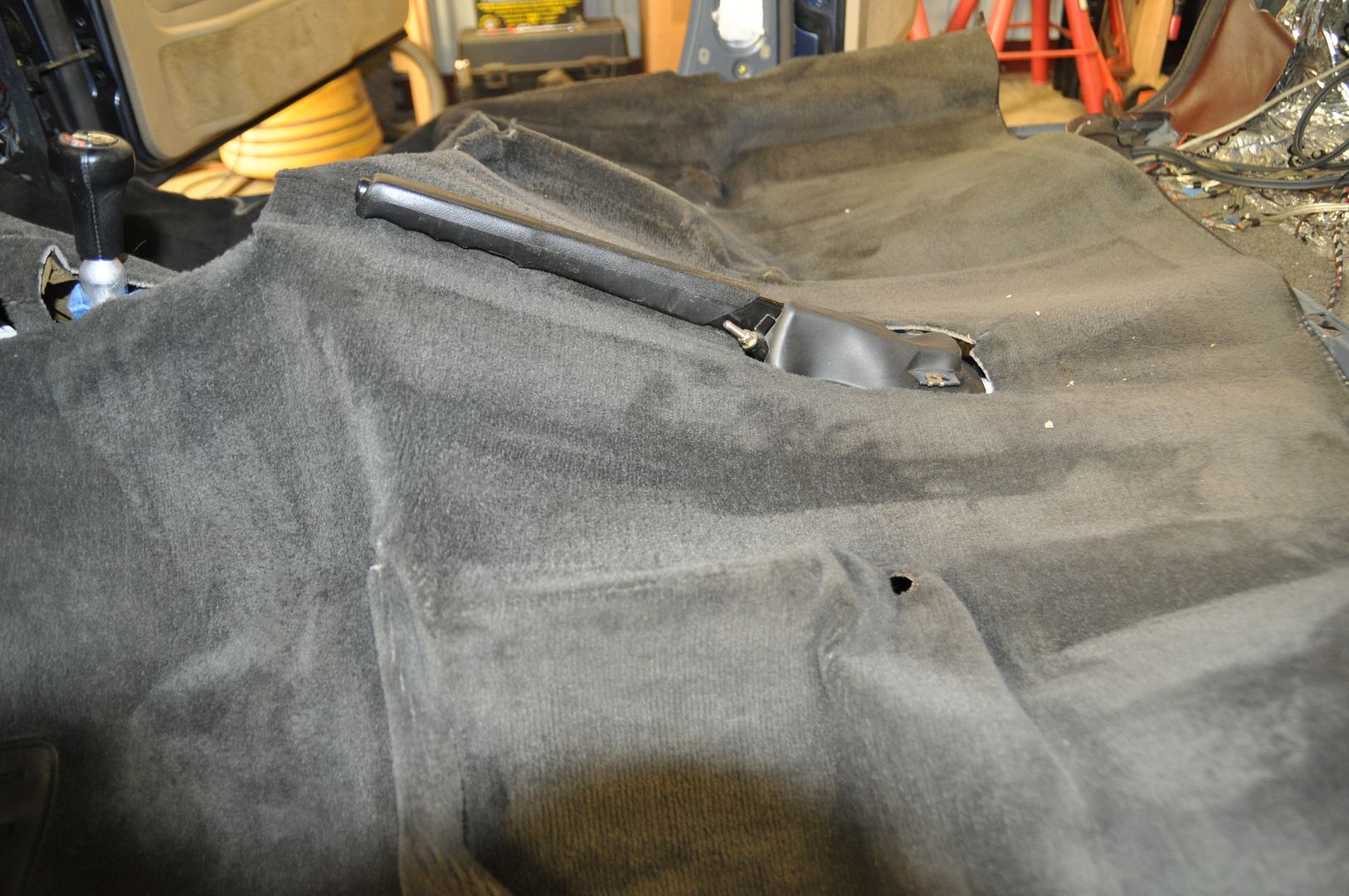
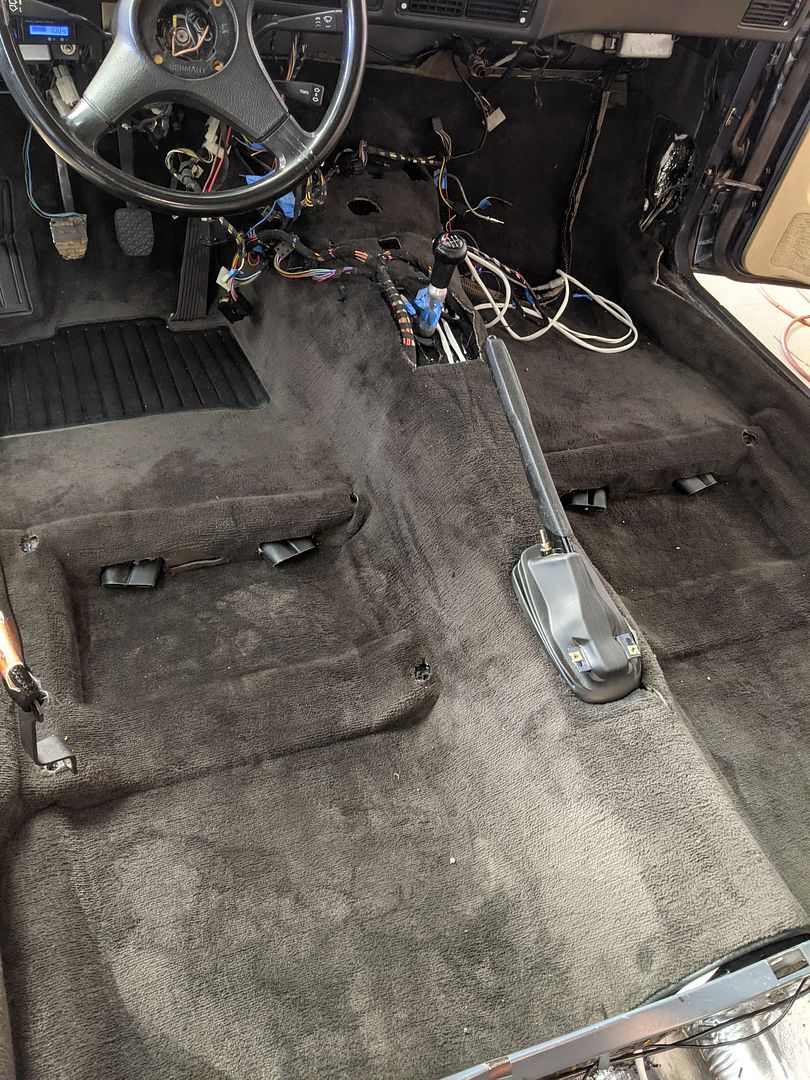
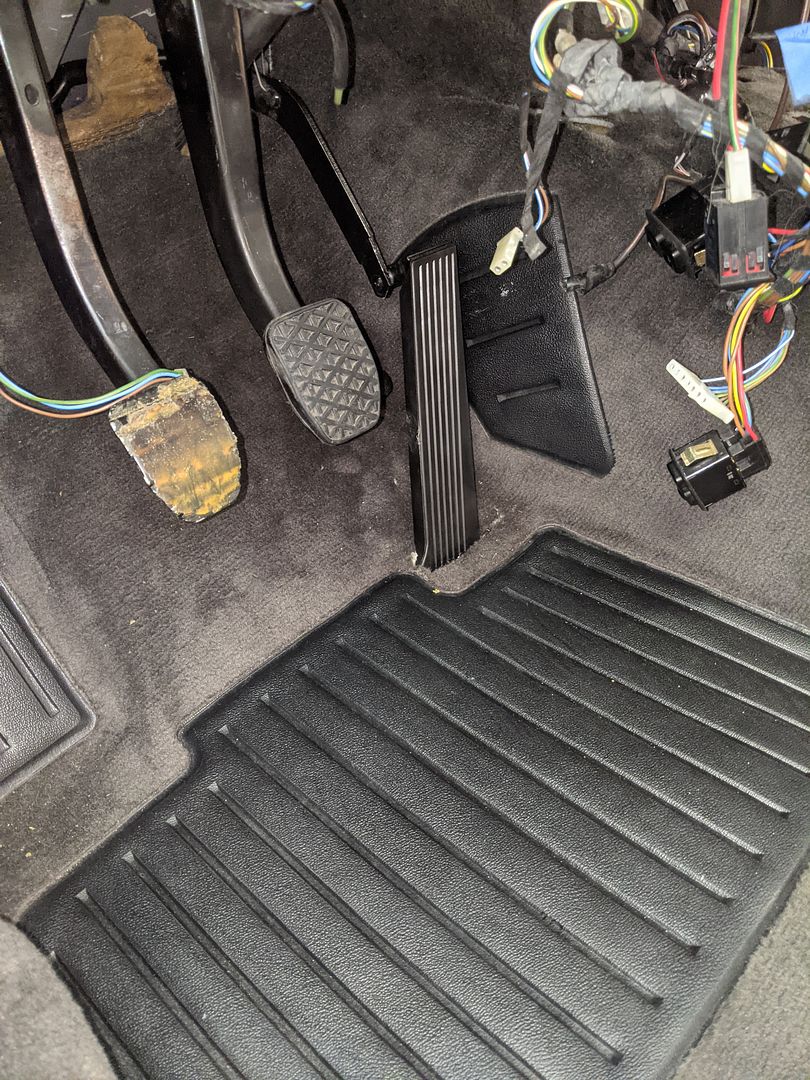
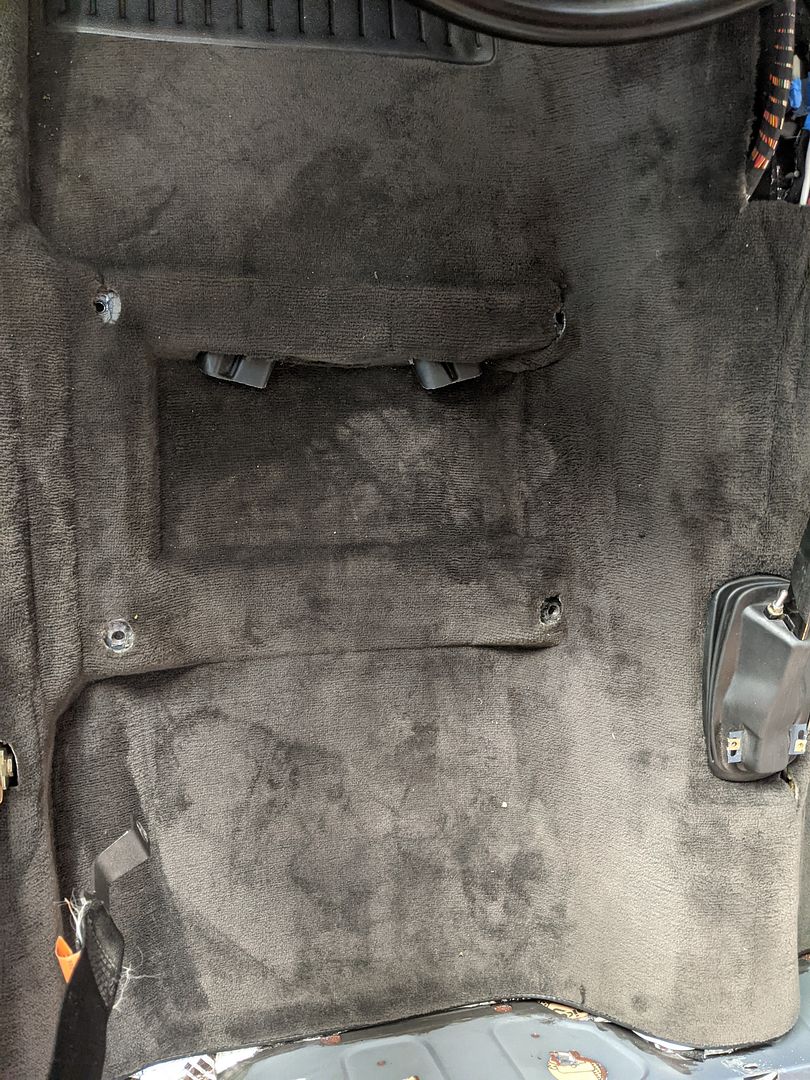
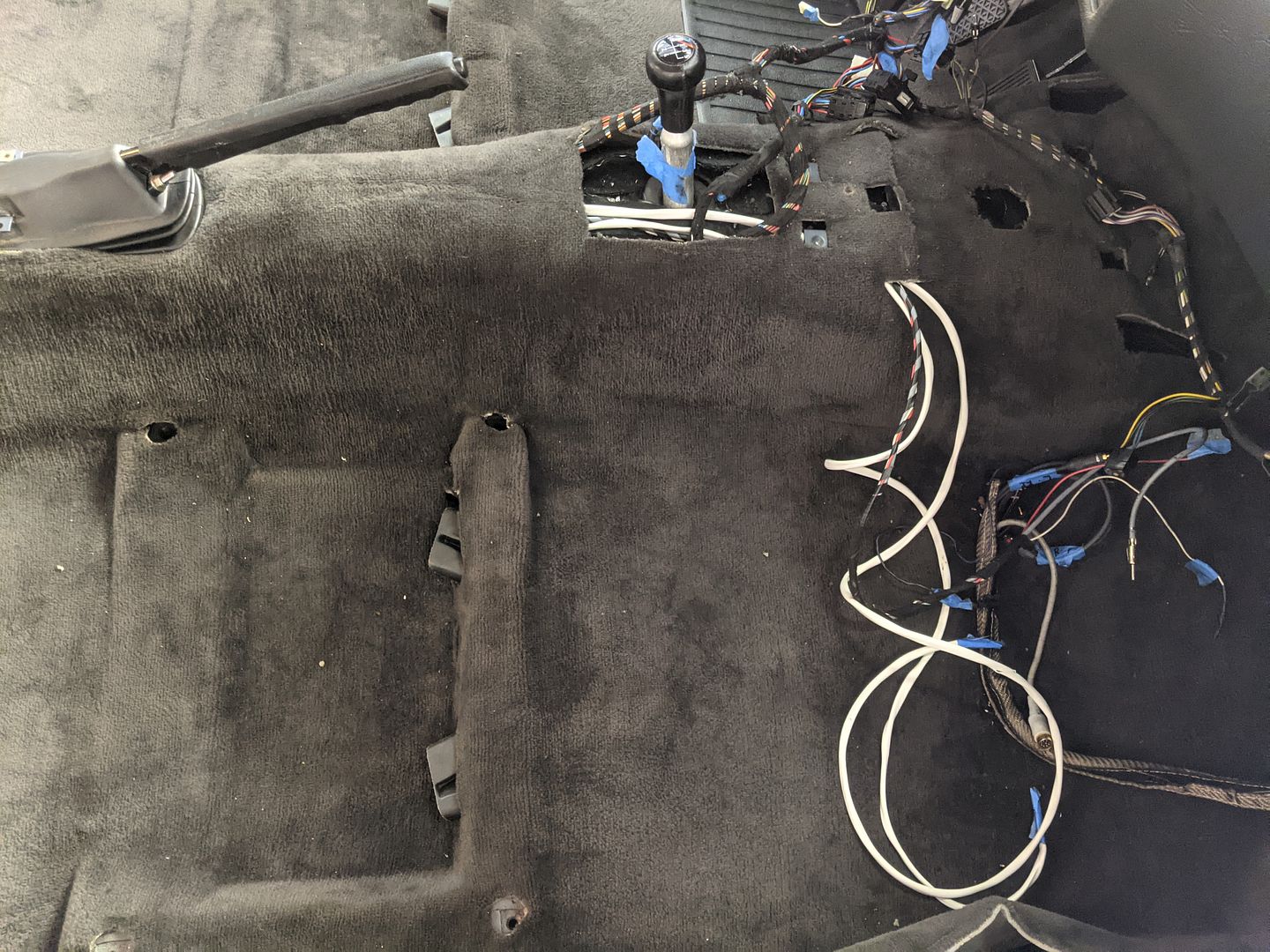
In the end it’s about 99% to where it should be, I have little work to do at the door sills but I’m managing that. The carpet had mostly enough padding to replicate what was down on the floor with the original two-piece carpet set, but it felt a little thin in the back floor areas. I added a layer of the Heatshield db Sniper Acoustic mat (it’s a ¼” thick with high density closed-cell foam and a heavy mass-vinyl cover on one side). It’s the same stuff I used on the rear bulkhead and seat well also.
With all that down, it was time move back to the HVAC system and its’ re-installation. First I want to say how much of PITA it was/is to get both boxes back into the car. You will struggle, you will curse, you will sweat and you will come back with bloodied hands. Getting the engine side blower portion of the Heater box back through the firewall while at the same time lining up the heater core pipes to go through the firewall grommet is something I don’t recommend if you’re either a) tired, b) stressed, c) short on time, d) low on blood sugar, or e) any combination of the above. You will break something, either before or after you have thrown a tool across the shop. It took me hours to get it in the first time (notice I said “first time”), but due to a complete oversight (I forgot the control module inside the heater box, ) the second time it took me less than an hour to both remove and re-install it. Go figure.
) the second time it took me less than an hour to both remove and re-install it. Go figure.
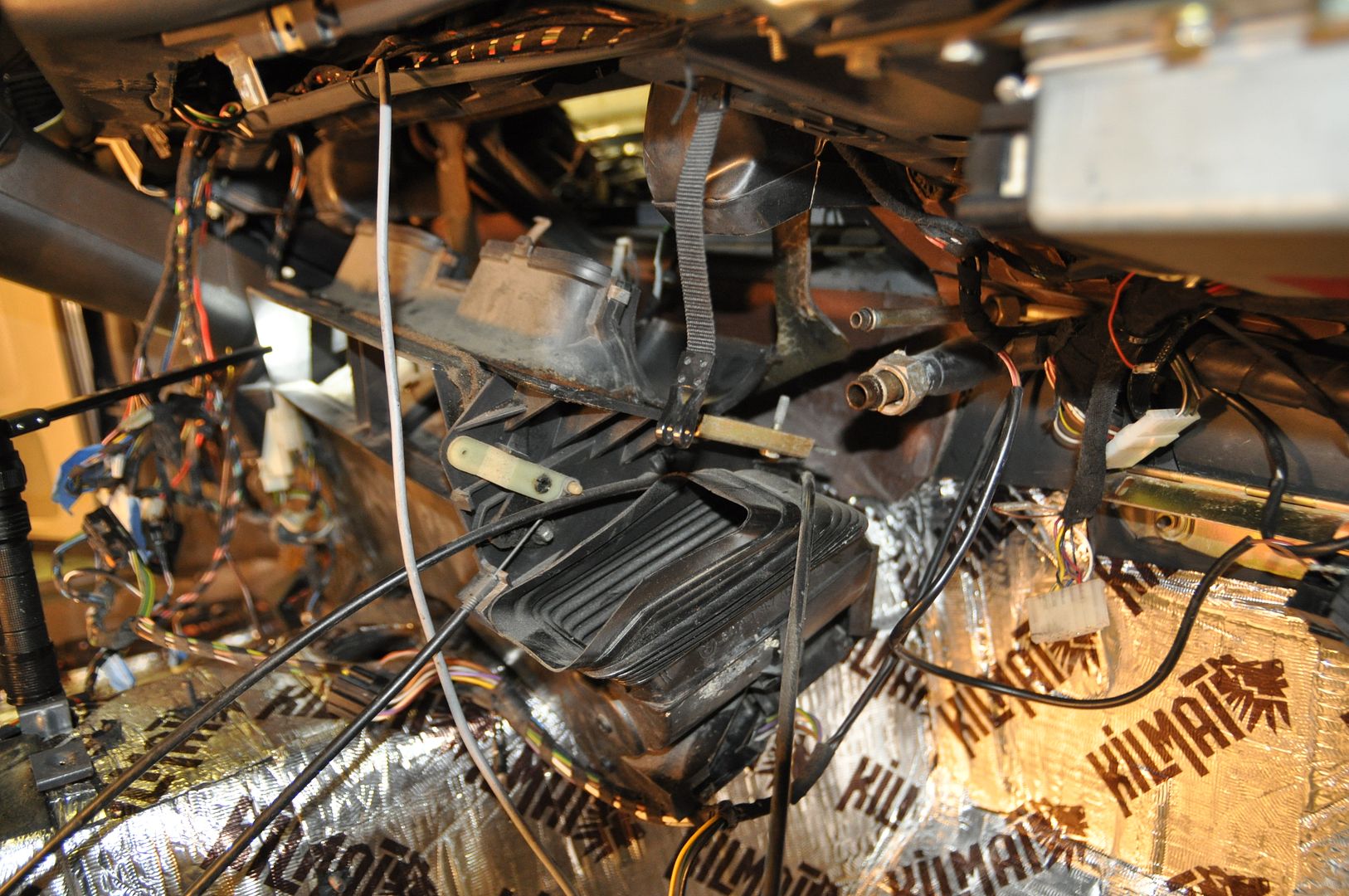
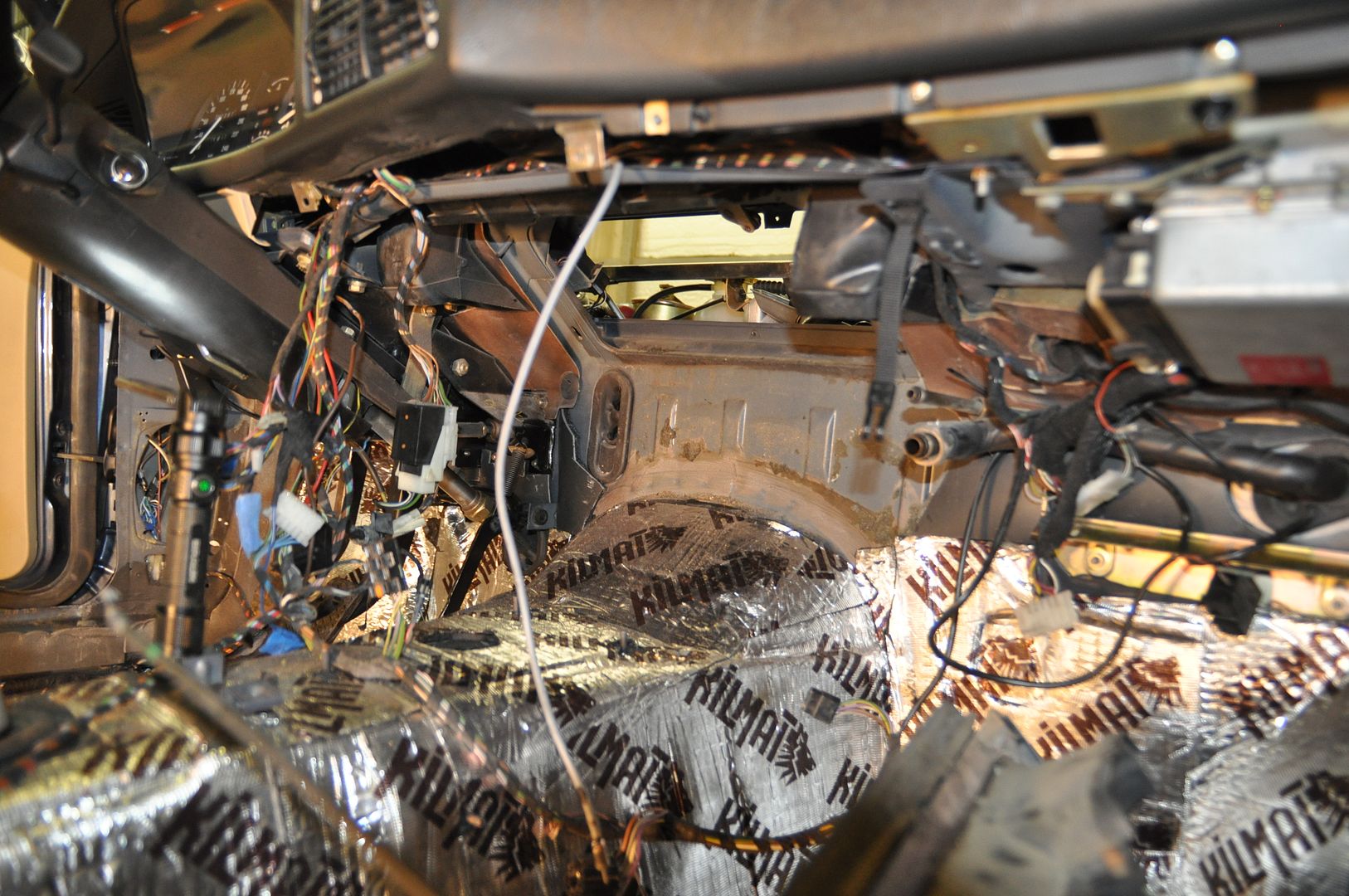
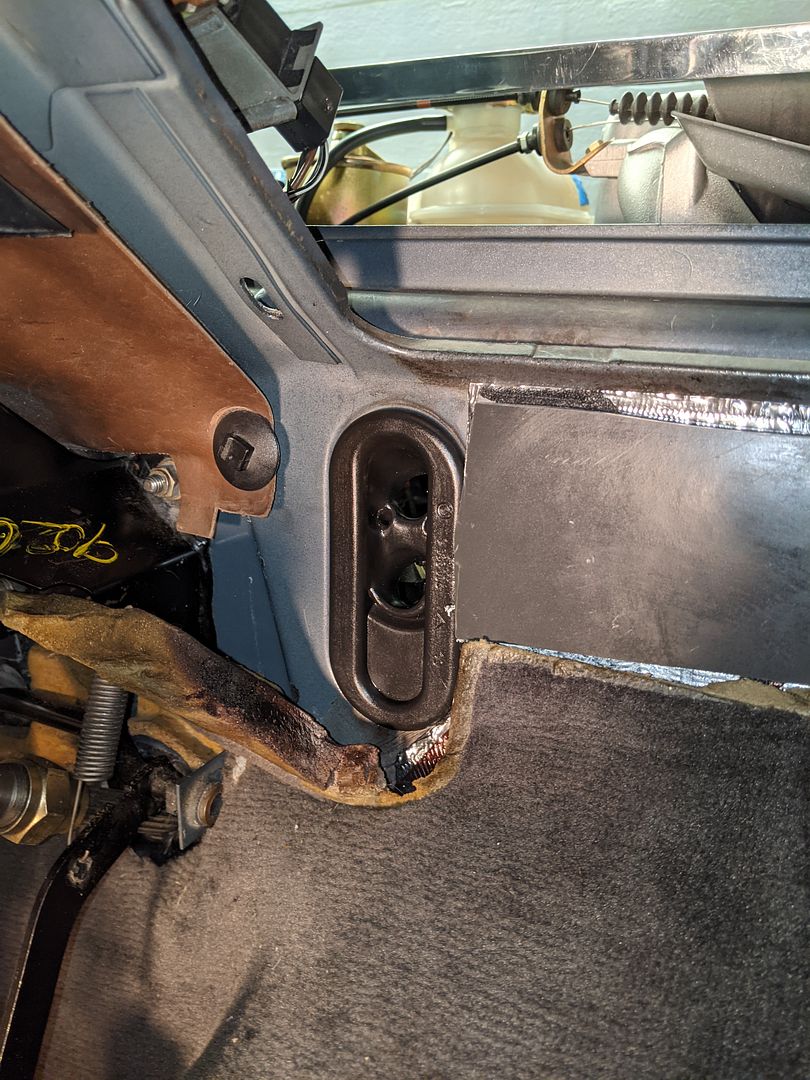
Don't forget these guys:
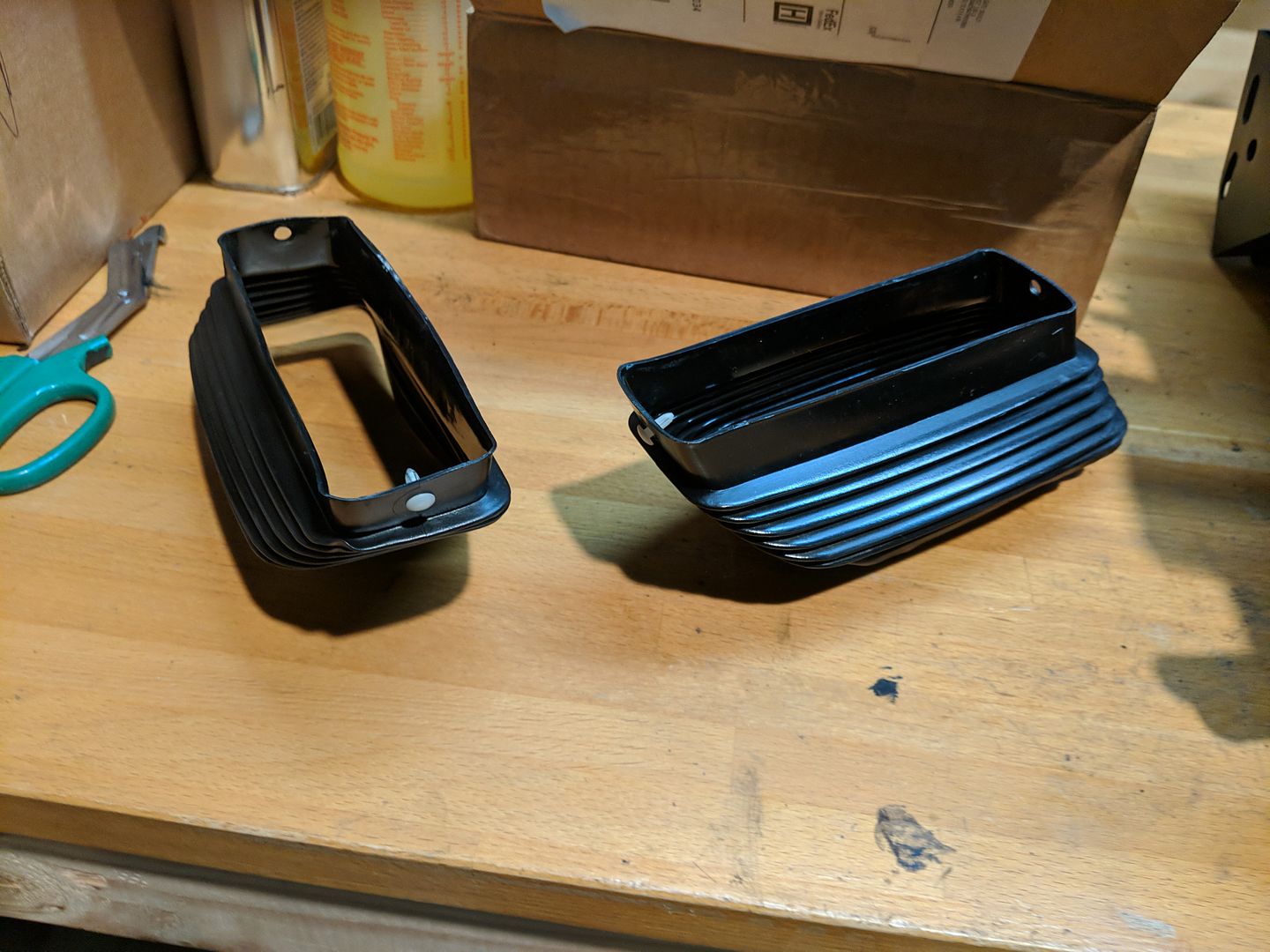
Because putting them afterwards is near impossible:
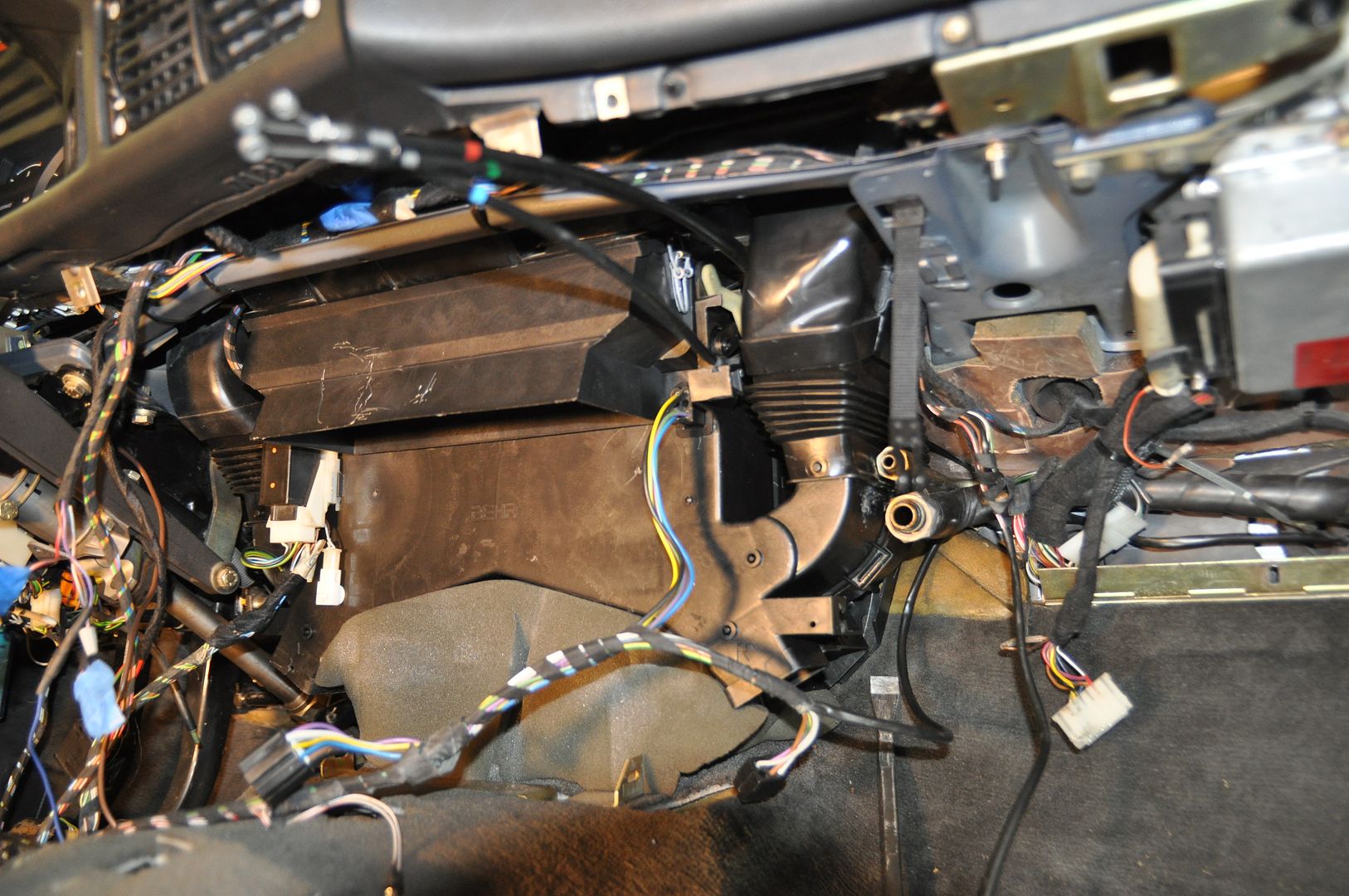
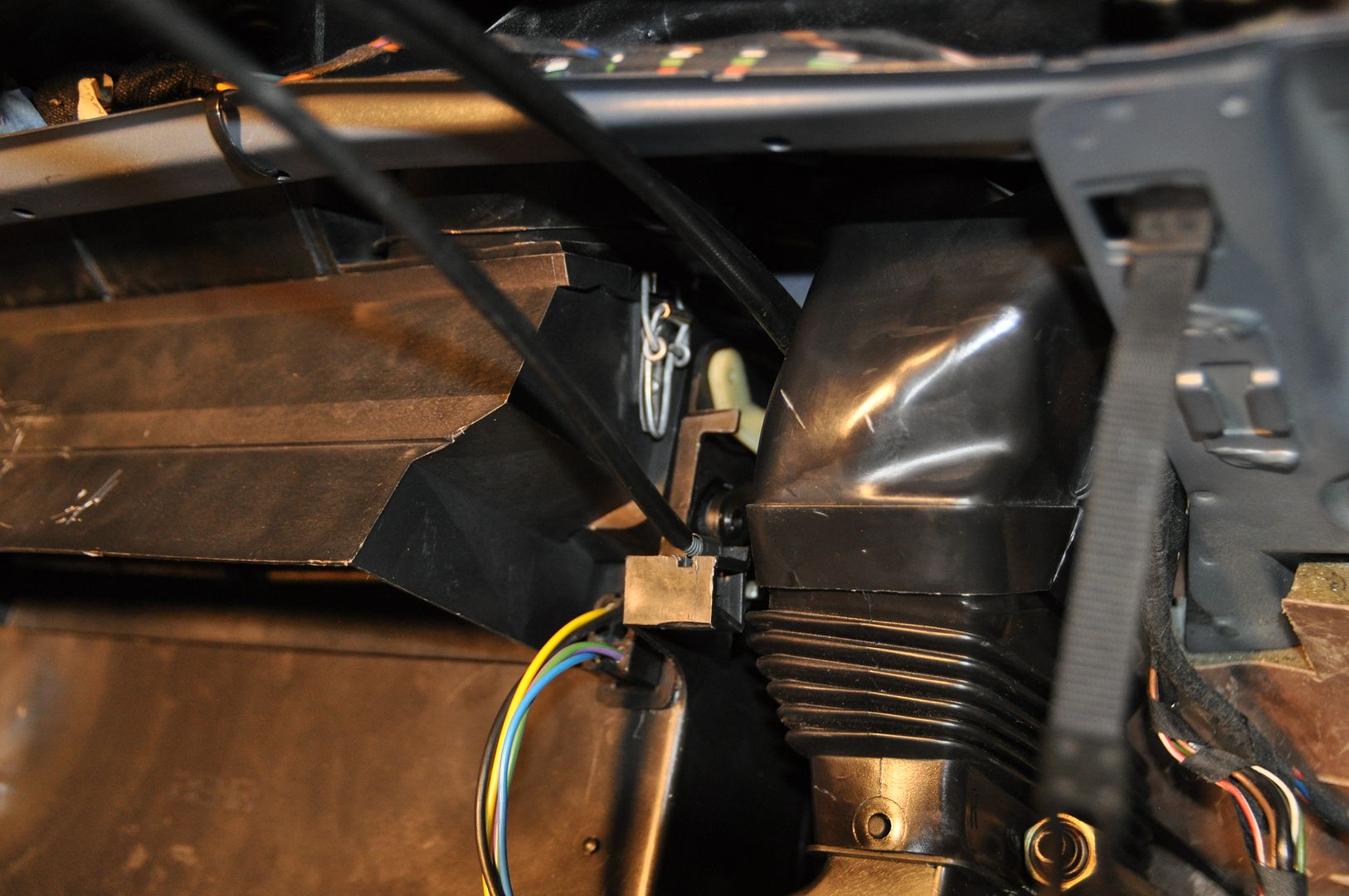
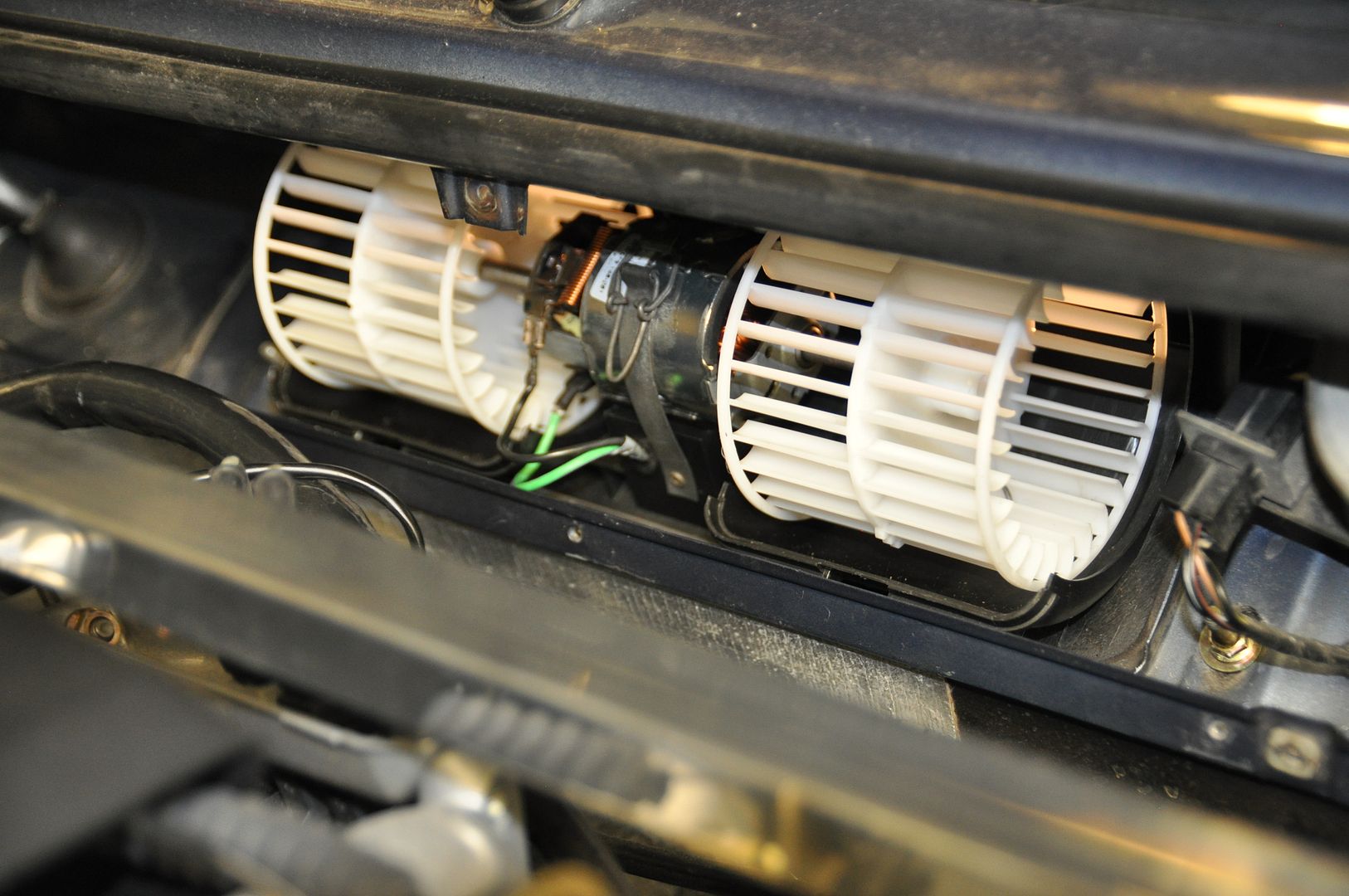
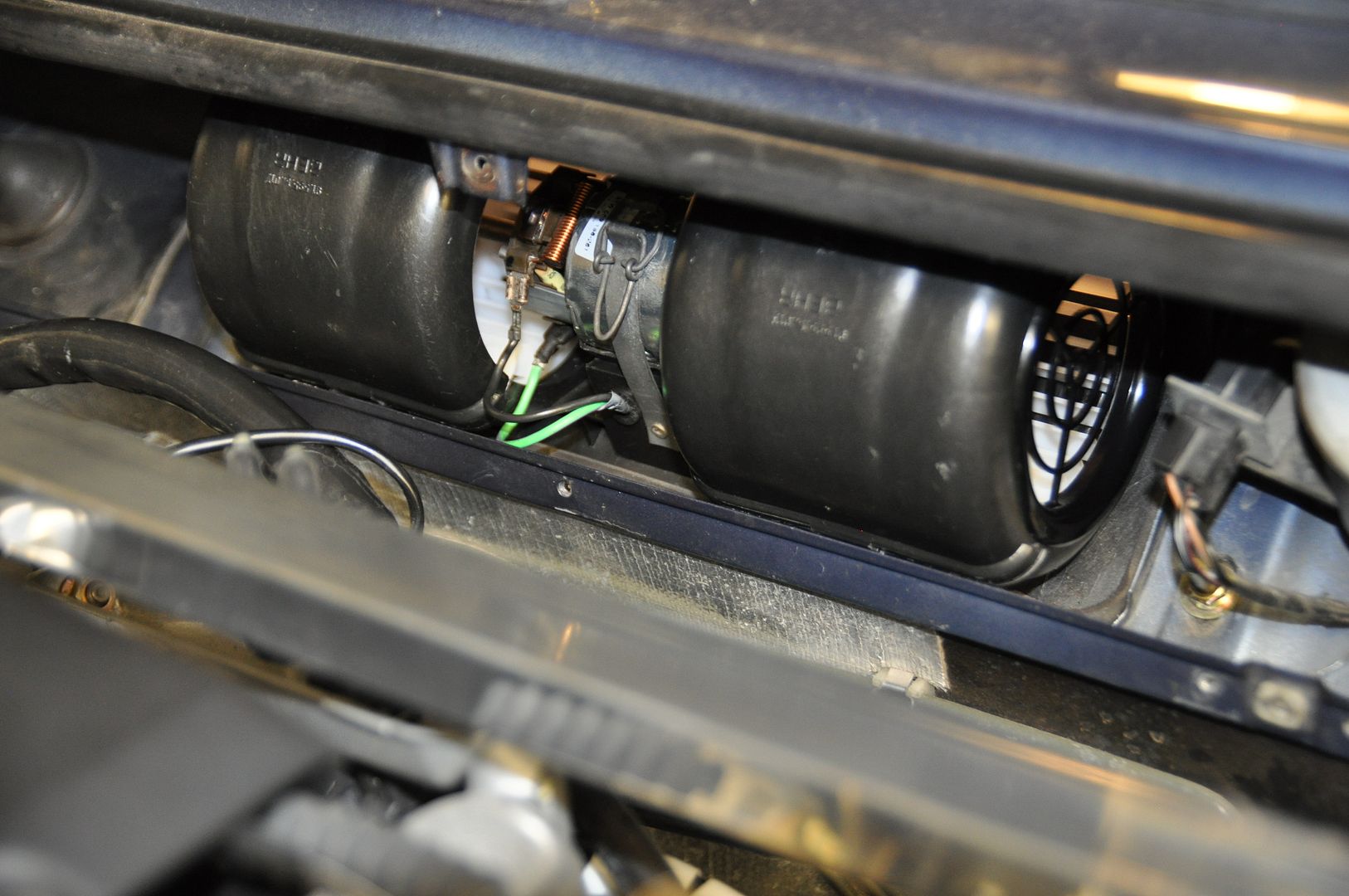
Then it was onto the fun part: the AC & Evaporator box. This too tried my patience since there were more components to line up that made it seem like it was impossible to accomplish this. Between the upper dash opening, the dash ducting, the coolant pipes, and the condensate drip hole & nipple, I didn’t think I would ever get that thing back in. In the end it took a lot of brute force to push it in; once you get the condensate nipple into the hole, the entire thing just “clicked” into place. Make sure you reconnect everything to its’ right location (you did label everything, right?), you should be good for the next element:
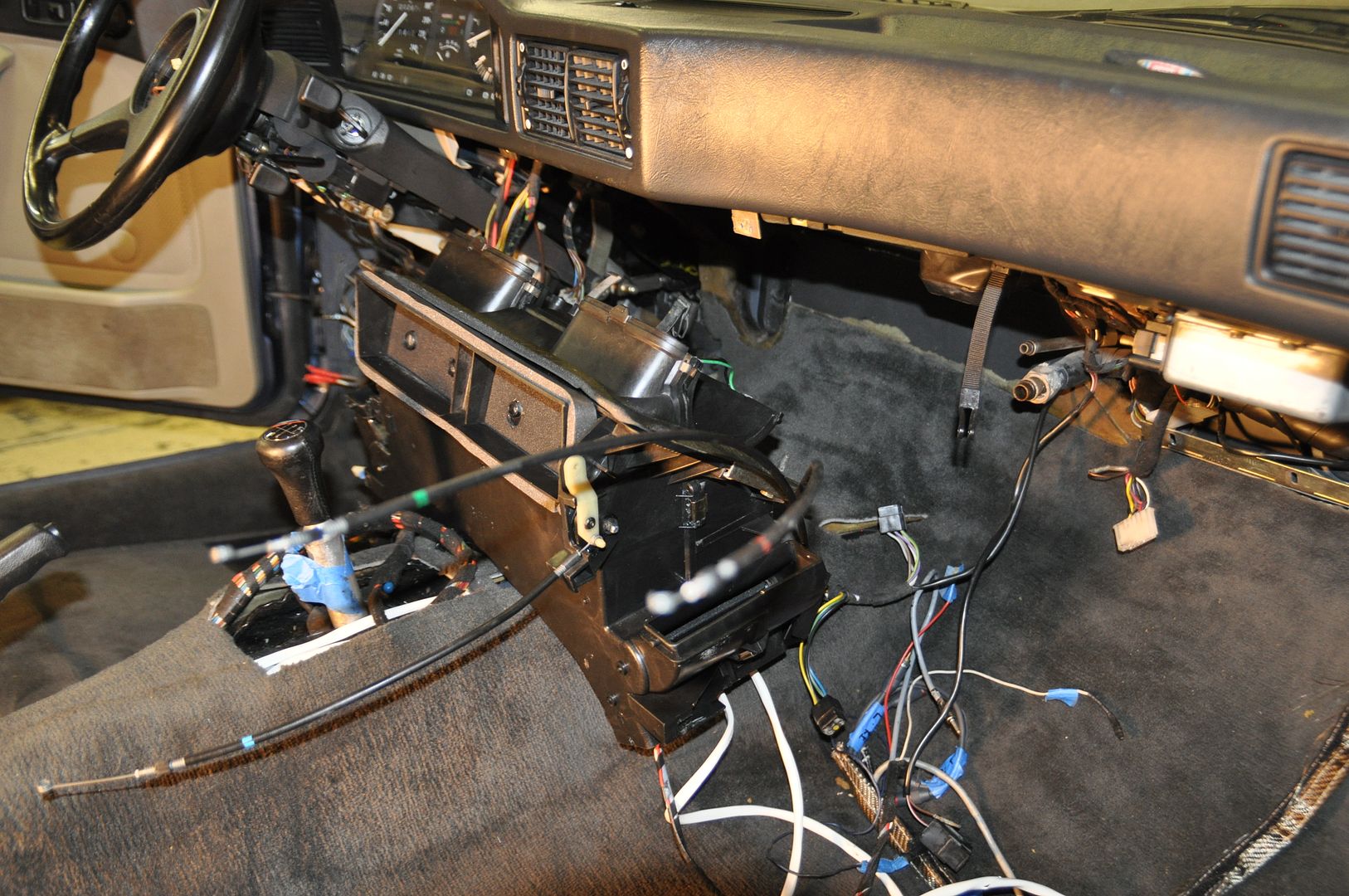
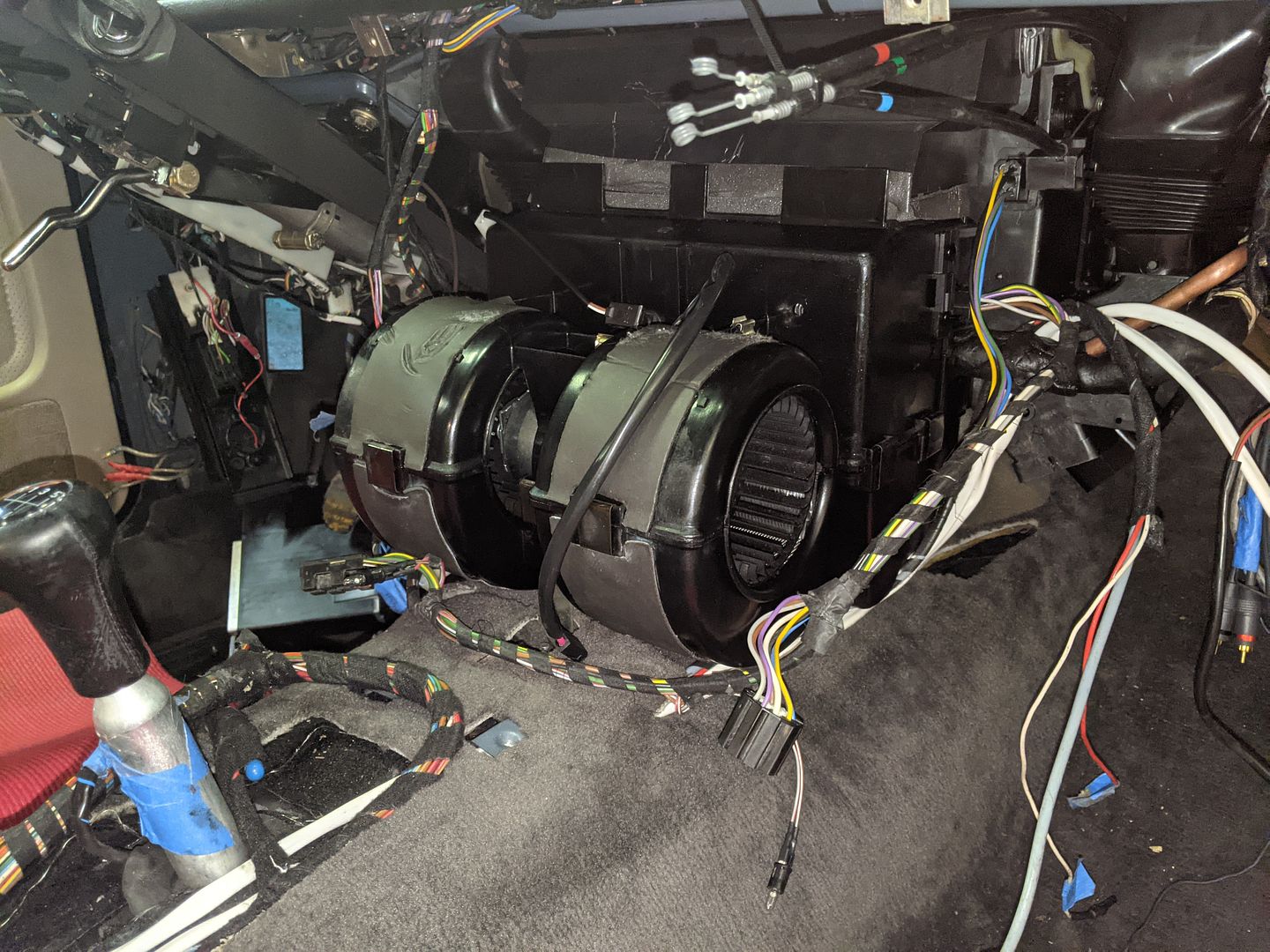
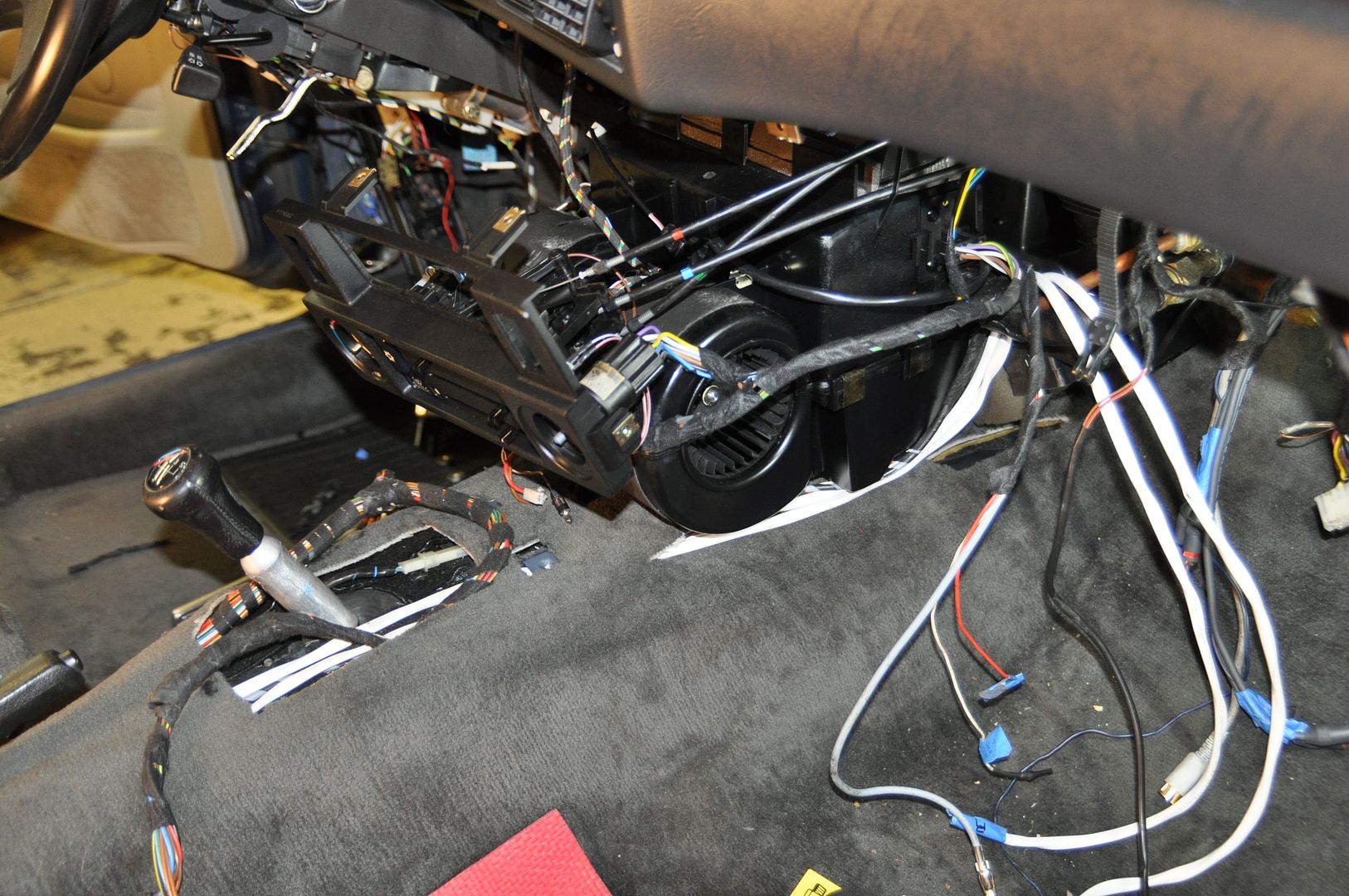
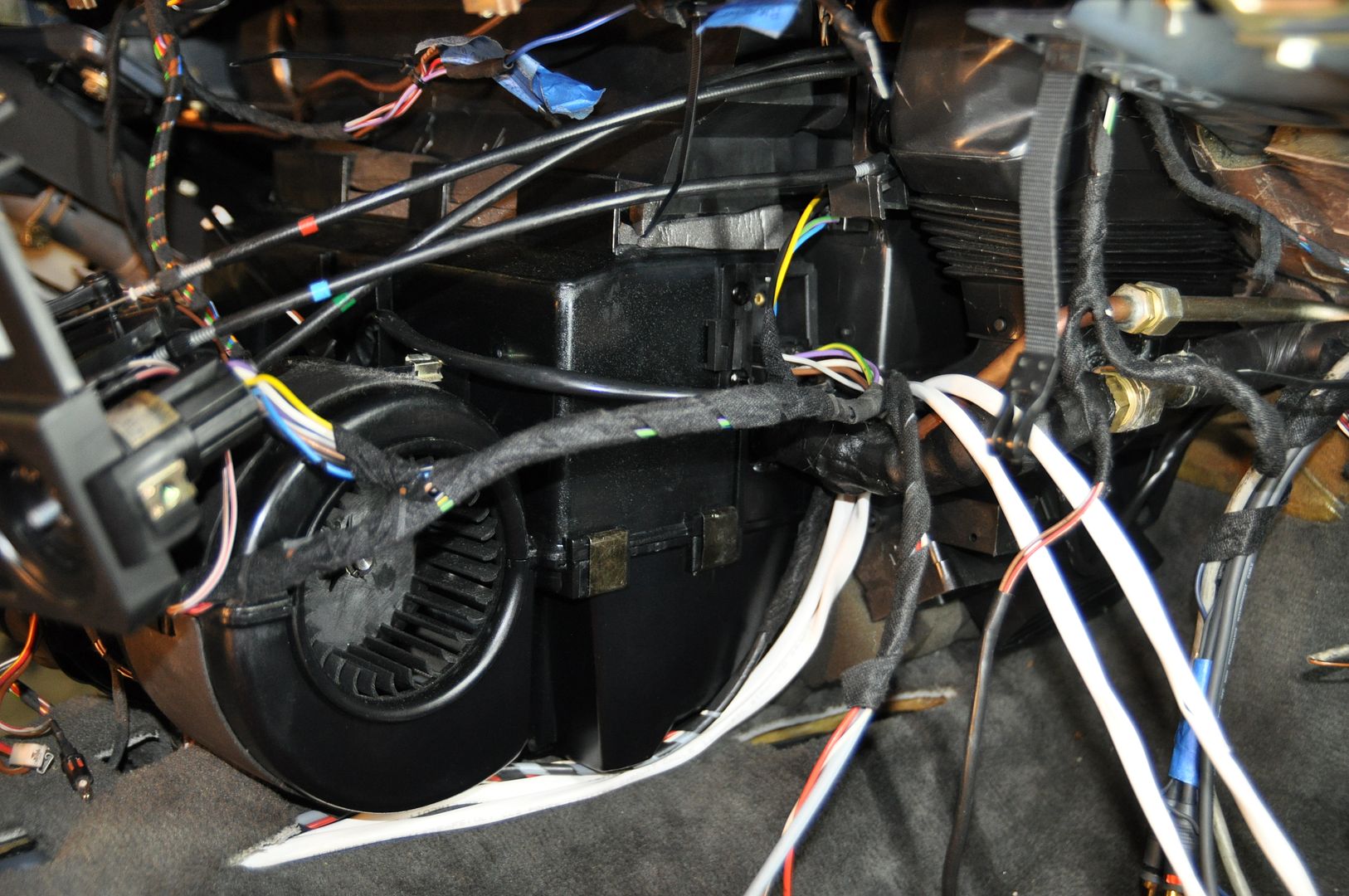
In my case it was the center console and HVAC controls. This was necessary to do now because Ralph and I wanted to tackle re-charging the AC the following weekend and all that had to be in for that to happen:
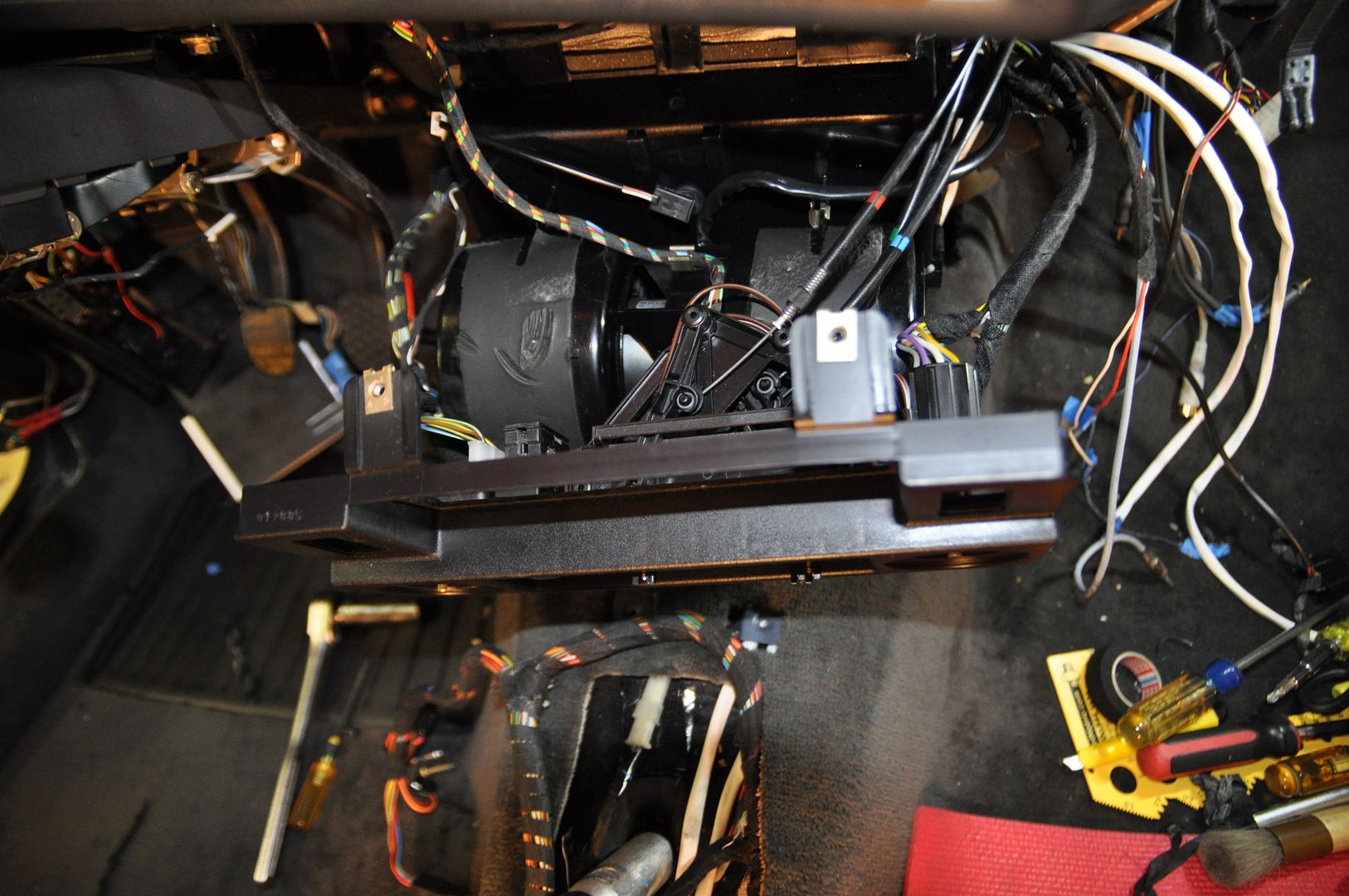
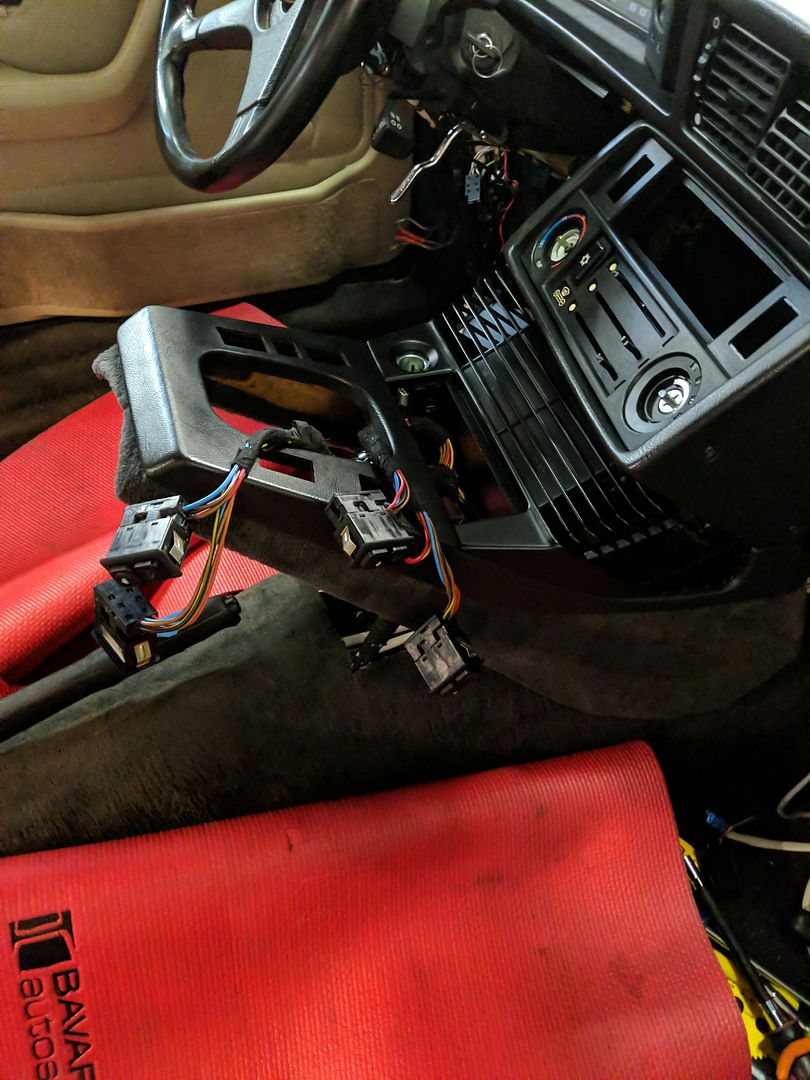
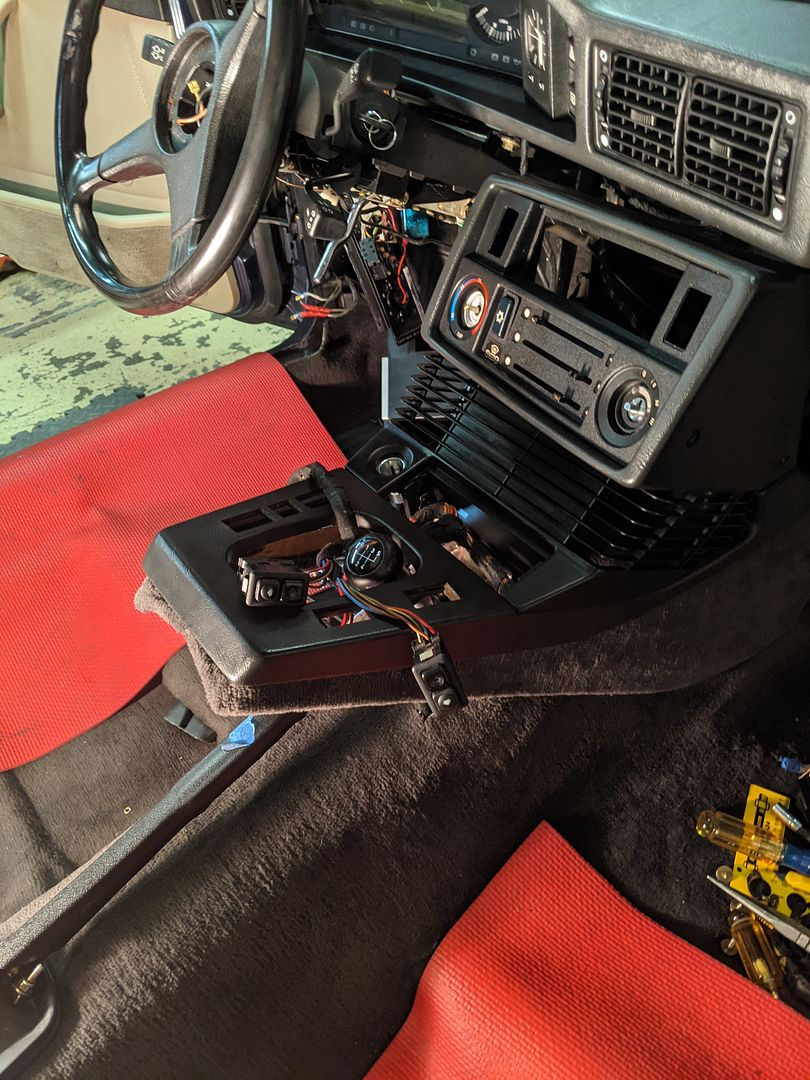
There is a lot of “stuff” going on in this area; between window switch looms, AC and heater control harnesses, the gear shifter and my own audio wiring, there is not much maneuvering room. This task may be better served with another (smaller) set of hands.
In the end, everything got back together and the AC actually worked (small miracles). I can't say it's very cold (it is an R134A conversion), but that was at idle on a hot day; I haven't had a chance to run it while driving at speed yet, so time will tell if all those new components are actually working:
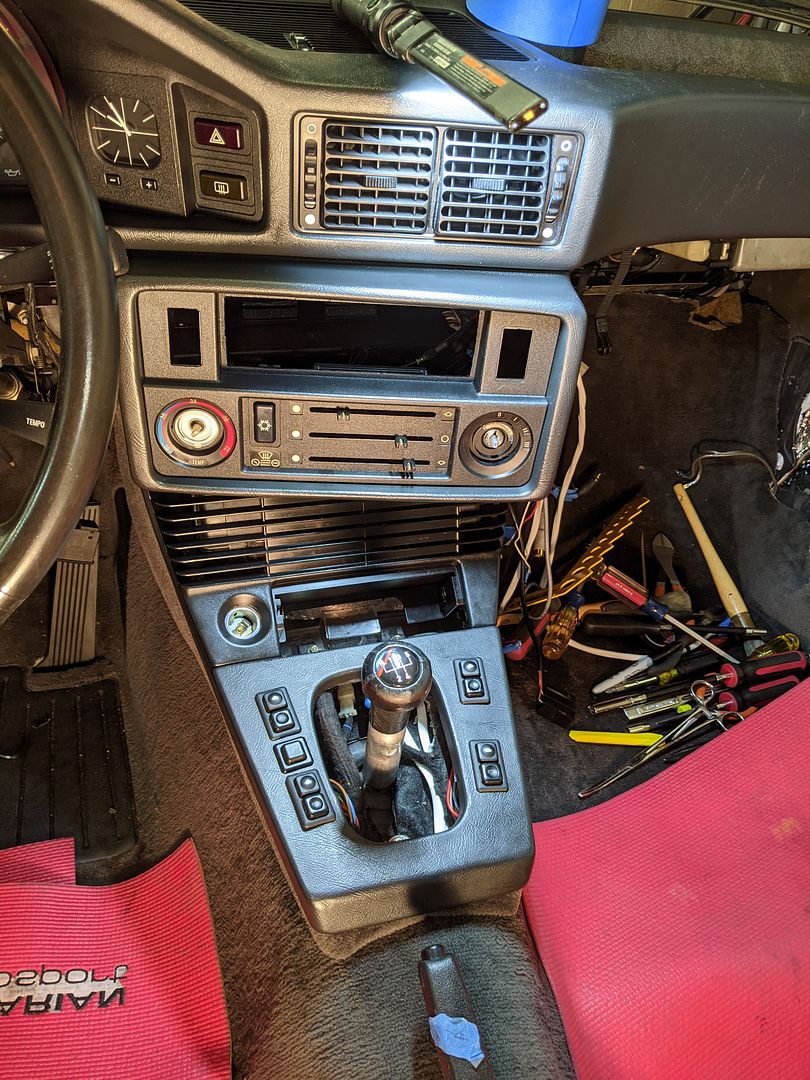
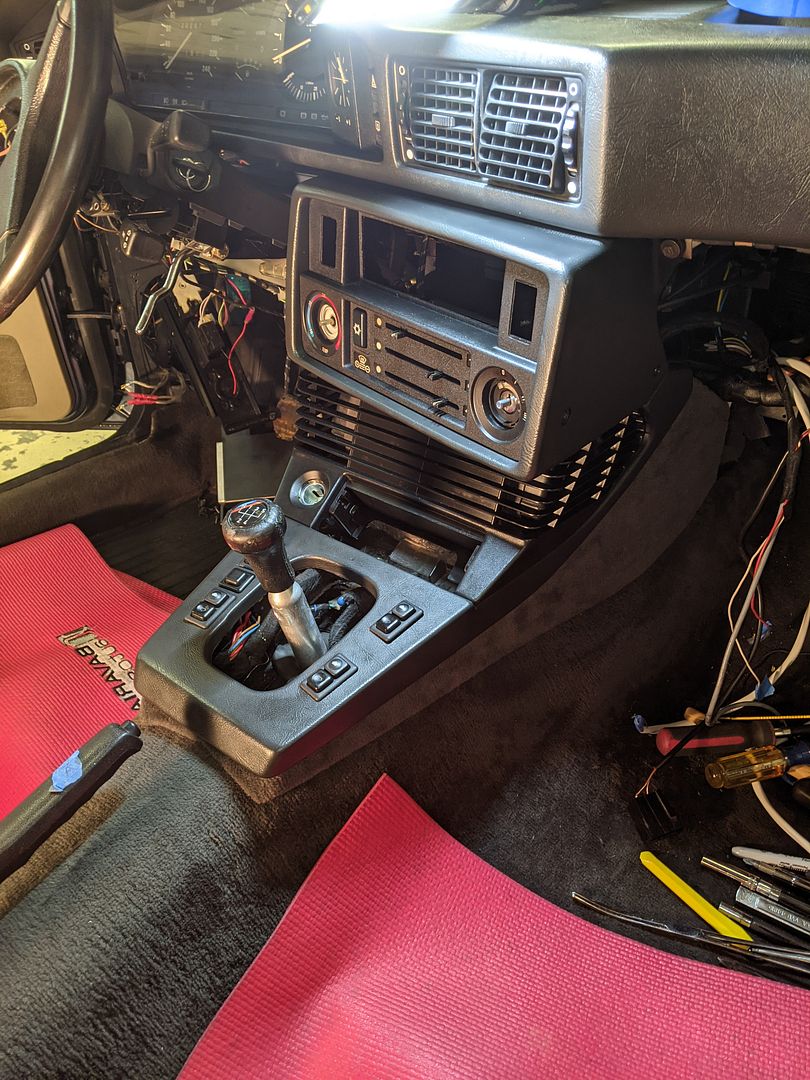
Now it was onto the other really big elephant in the hangar: re-installing the Moonroof. Any road trip, near or far, depended on whether or not we could get the factory glass Moonroof back in and working. This task is not for the faint of heart and really requires having someone who knows what they’re doing (or at least has done this before a few times).
Ralph and I removed this back in June in preparation of sending this down to Juan for the headliner. Removal was super easy in my opinion; whole thing only took about 30 minutes:
-Fully open Moonroof
-Drop motor to release the cables
-Remove the top cover tracks and front cover cap and pull the cables out of the copper tubes (be sure to capture the cables and cover them since they’re covered in grease and will whip about getting it everywhere. Also be sure to protect the roof and front windshield.)
-Manually pull the whole glass panel assembly forward and lift out of the roof
-Pull the privacy shade forward and lift out of the tracks
-Proceed to remove the rest of the tracks
Voila, you now have a hole in your roof. This is critical for a new Headliner since the material is lapped up and over the hole in the roof with the tracks securing down on top of it (from the removal many months ago):
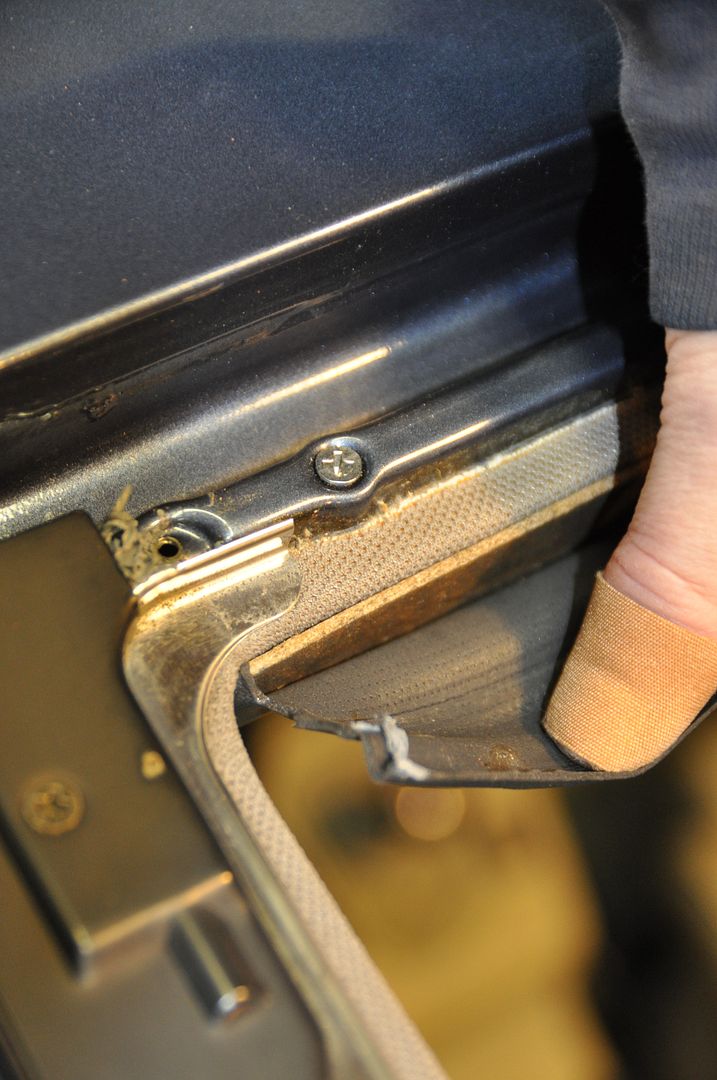
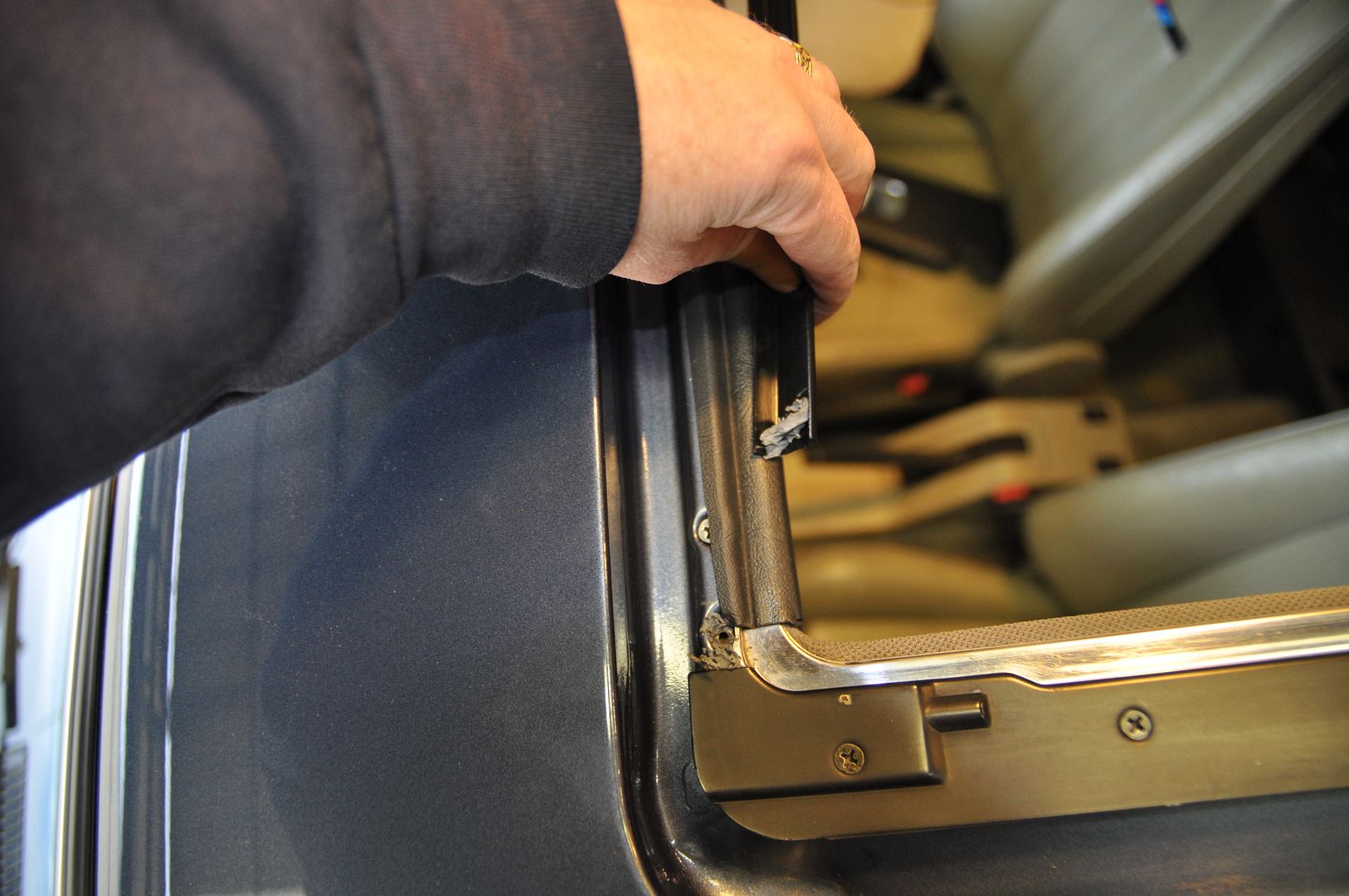
So you would assume that re-installation is the opposite, right? Well in theory you would be right, however in practice it’s another matter. It mostly follows that logic but something always goes wrong whether intentional or unexplained. In our case, it was a bit of both. It all seemed to go well as we got the assembly back in, connected and ran the motor when it would stop about 3 inches from fully closing. We couldn’t figure out what was going on but when we removed the whole thing again we found that the left side track had one of its’ rails deformed and bent. Great.
To add insult to injury, we also broke one of the really small plastic spring guides that helps the panel slide along the rails. Terrific.
It’s a good thing Ralph has parts cars, all of which had sunroofs. Luckily the rails bolted to the roof are universal for Sun and Moonroofs (at least so we thought, at least within a year range). After a week delay, Ralph returned with replacement parts.
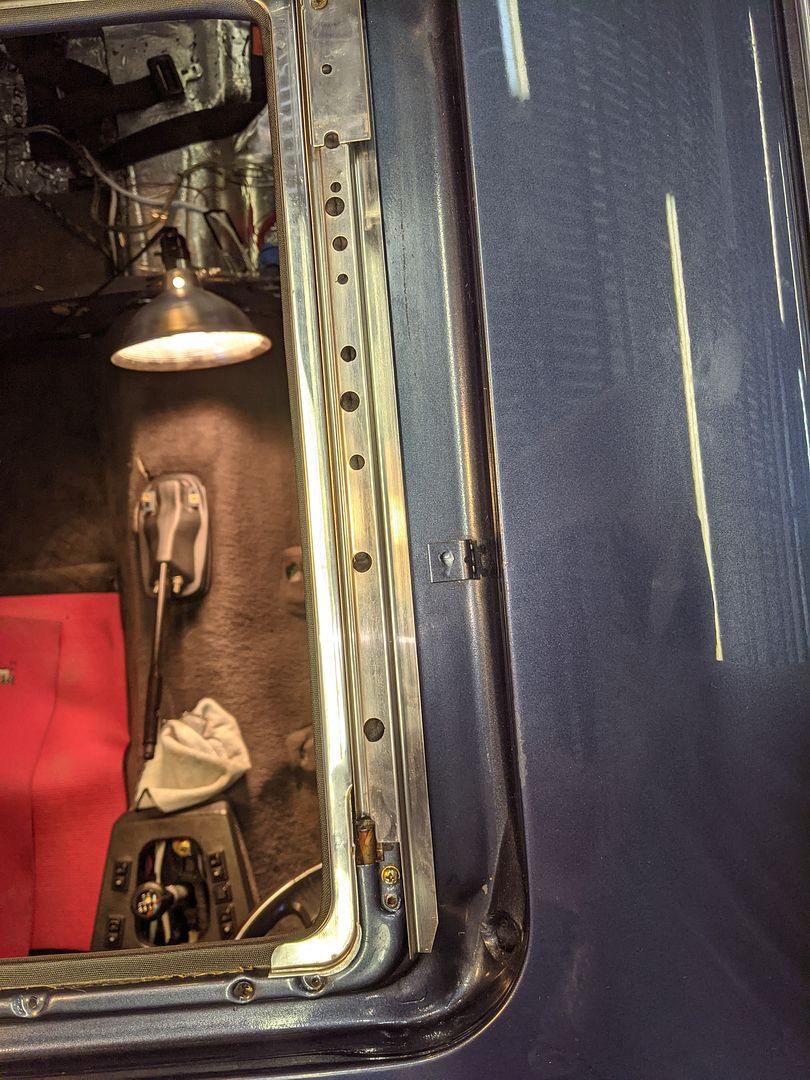
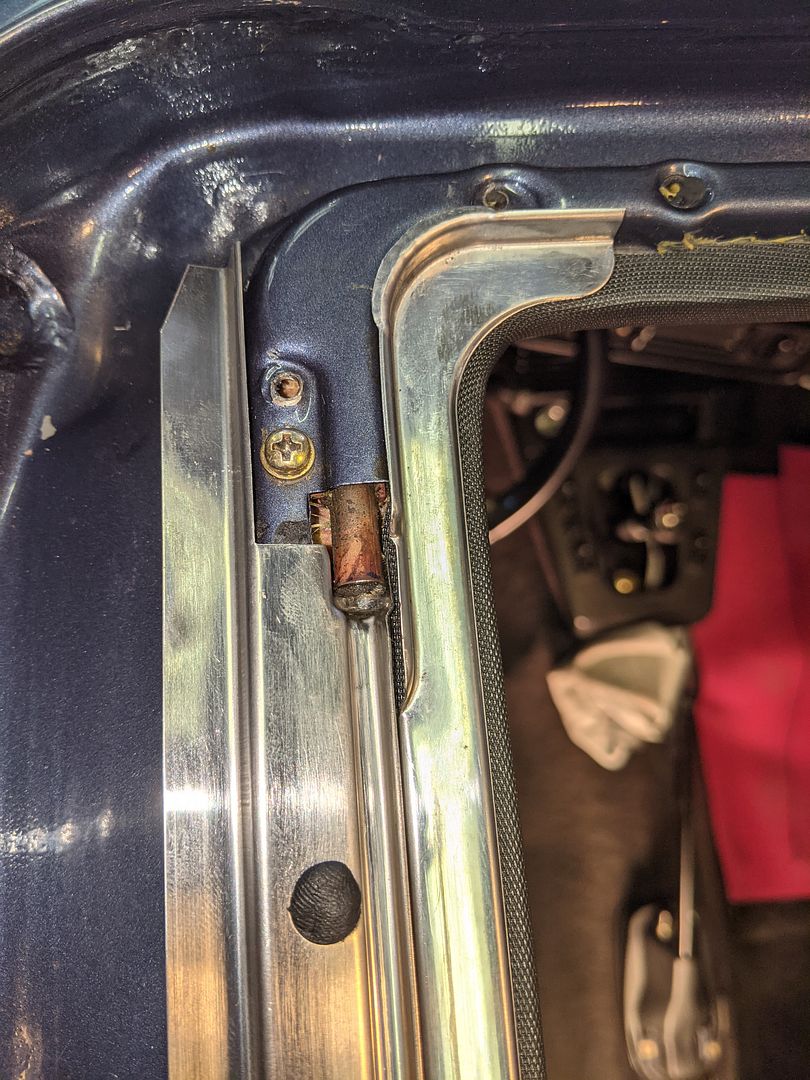
Second there was me installing too much of this stuff: 3M Strip Caulk. It’s a fairly obnoxious black Butyl weatherproofing element that is delivered in narrow strips that once is secured and “squished” into place, doesn’t want to come off without the fight of a lifetime. This seemed to raise the height of the tracks and was forcing all sort of things to go where they shouldn’t have.
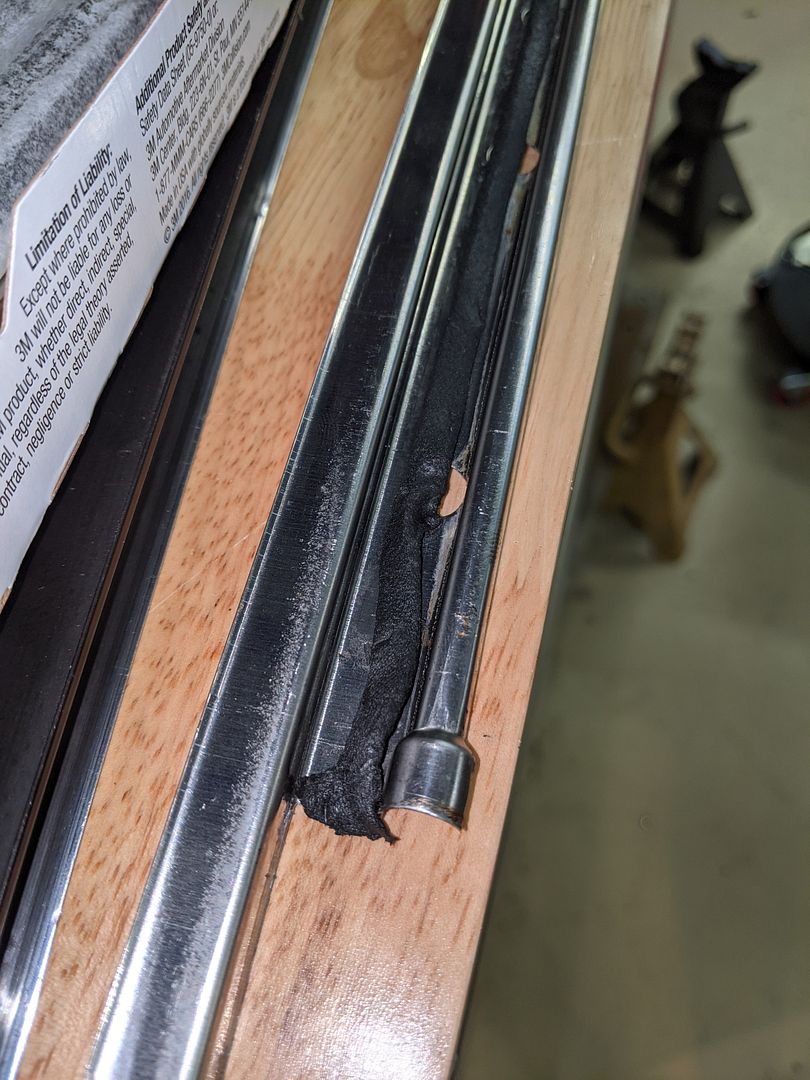
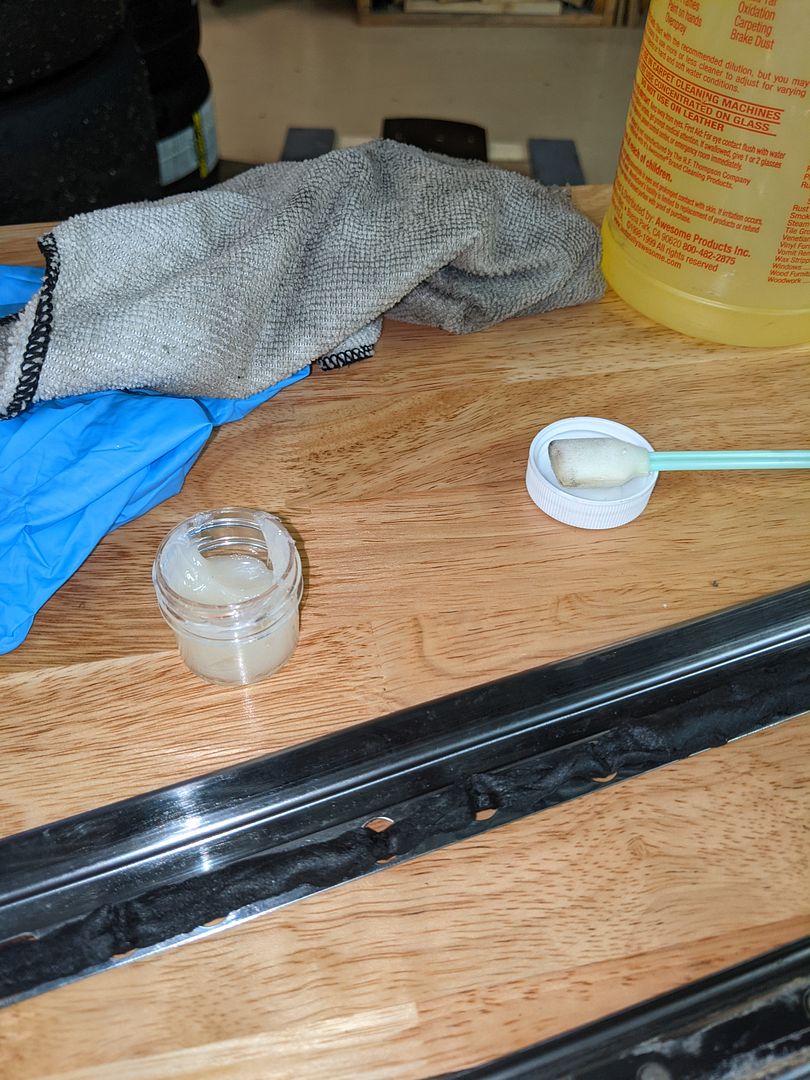
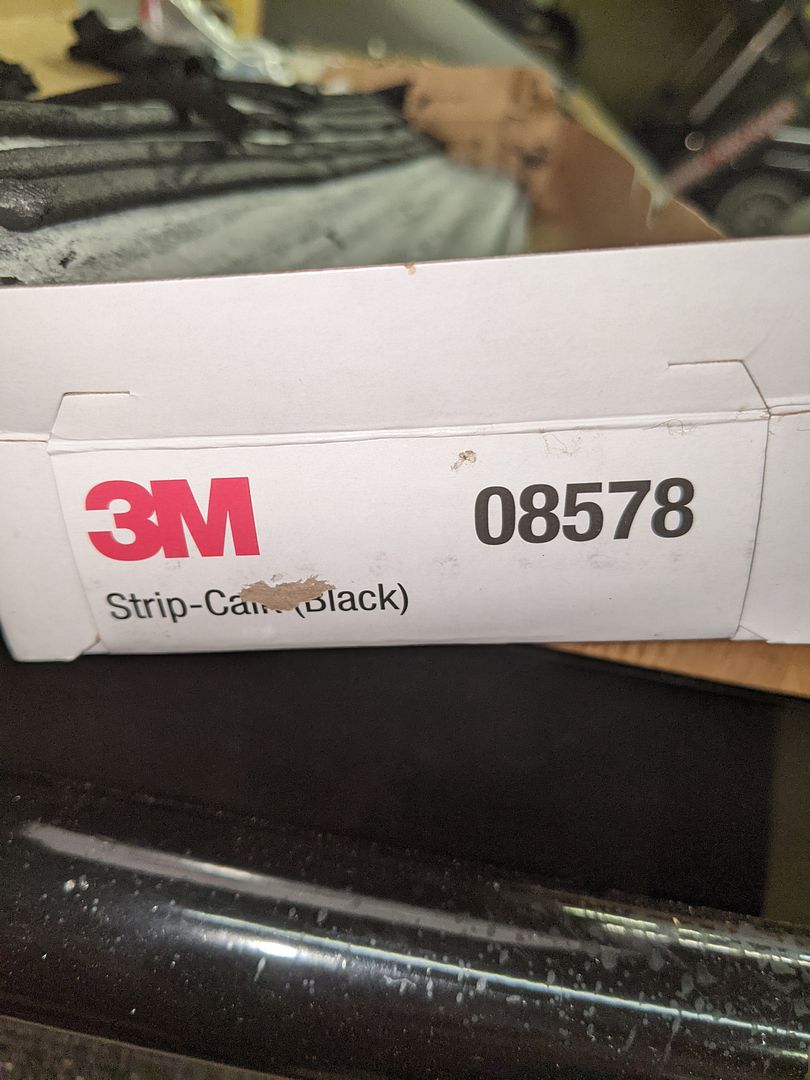
After hours of two of us removing as much of this as we could, reinstalling everything we tried again to get the panel to close.
Again, no joy. The motor was aligned in the correct position so that wasn’t the issue. This time it seemed to be my original bearing blocks
(Sorry pictures to come later)
These little devices along with the equally finicky cable trucks that the cables are attached to control the whole movement of the panel. When moving forward to close, the trucks will hit the bearing blocks, forcing the panel upward to seal it closed. As you are aware, if you keep the button pressed the back end will tilt up to the vent position. Well, for whatever reason, my original bearing blocks seemed to be preventing the panel from fully closing. Ralph brought the bearing blocks from the donor car and we discovered they looked very different (it was an ’82 eta). With it now nearing 7:00pm on a Sunday and us being out of options, we decided “What the hell, let’s try the ’82 bearing blocks.” We were getting to be semi-pros R&R’ing this Moonroof by now, so out it all came, swapped the bearings, re-installed it all in less than 30 minutes. *POOF* the panel fully closed on its’ own without any trouble after that. No explanation why as of yet, since there shouldn’t have been an issue with the existing bearing blocks. The replacement rails from the ’82 were identical to the original ’85 rails so that shouldn’t have been an issue either. Once we got it to close that night, we chuckled, swore out loud and both dropped our tools pronouncing it “Done”. It does open and close, albeit I’ll admit I’m too chickensh*t to fully open the Moonroof for fear of something going horribly wrong. Also, I’m not sure the vent function works(?) Again, too scared. It’s not like I use the Moonroof since I loathe having the sun bake my balding head.
(I don’t really have any photos of all that since I was too occupied actually doing the work not to mention my hands being covered in Butyl and cut up to handle a camera.)
One thing I can document is the privacy slider refinishing:
After removing this many months ago and taking it apart getting it ready for new Headliner material:
BMW in their infinite wisdom decided to assemble this with the smallest pop rivets and a couple of screws for the handle. As you can see there isn’t too much between you and the glass Moonroof over your head; I wanted to remedy that. New coat of paint on the frame and plastic cover and we’re back in business:
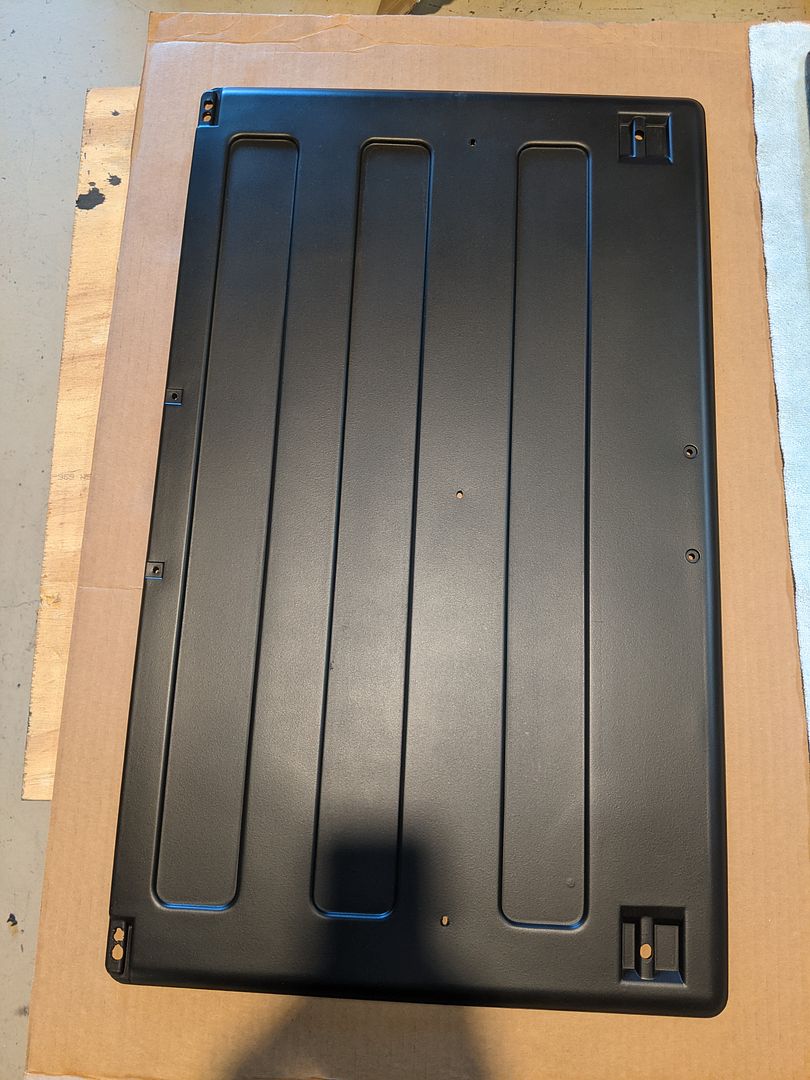
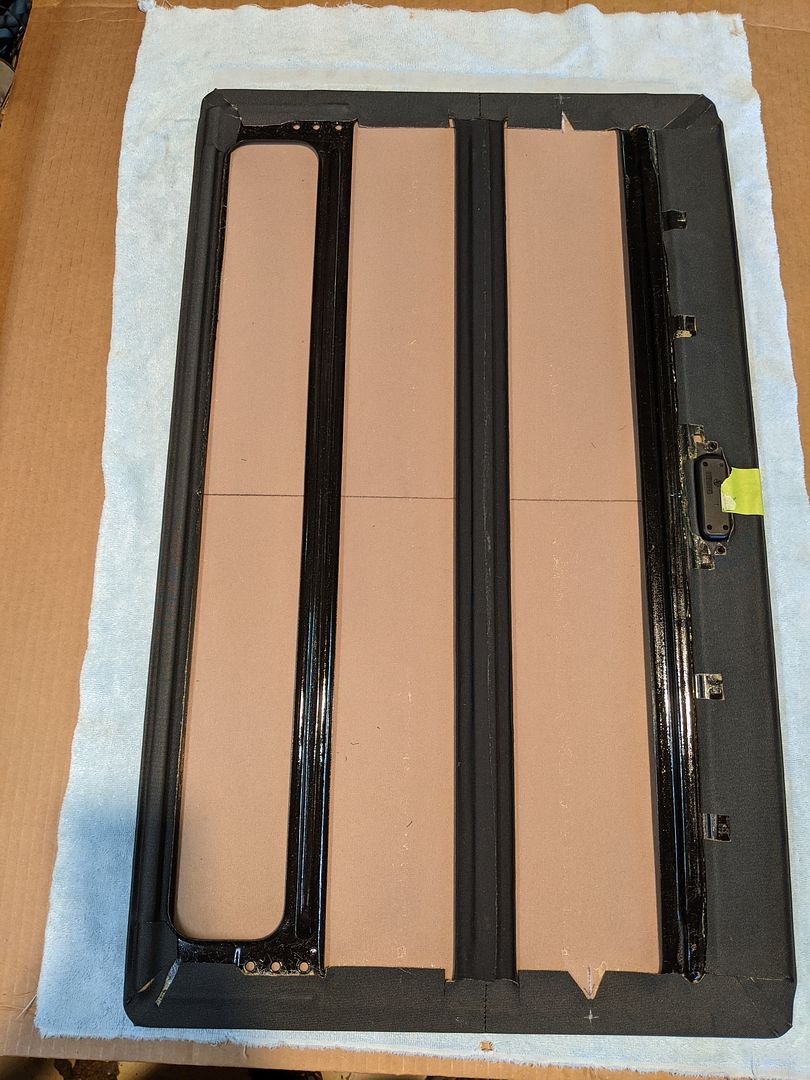
After I got the frame back from Juan with the new Headliner covering, I set about reassembling the slider. First was to add a layer of db Stealth in between the frame rails:
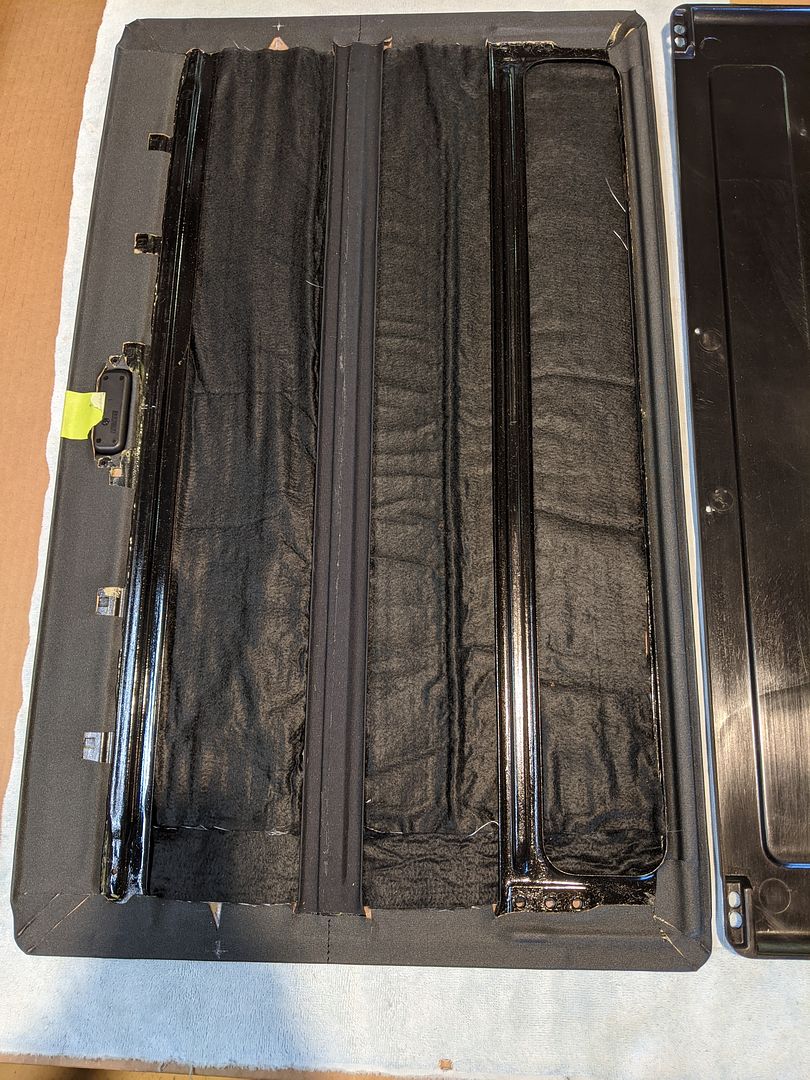
Then pattern a layer of Noico Red foam on top of that:
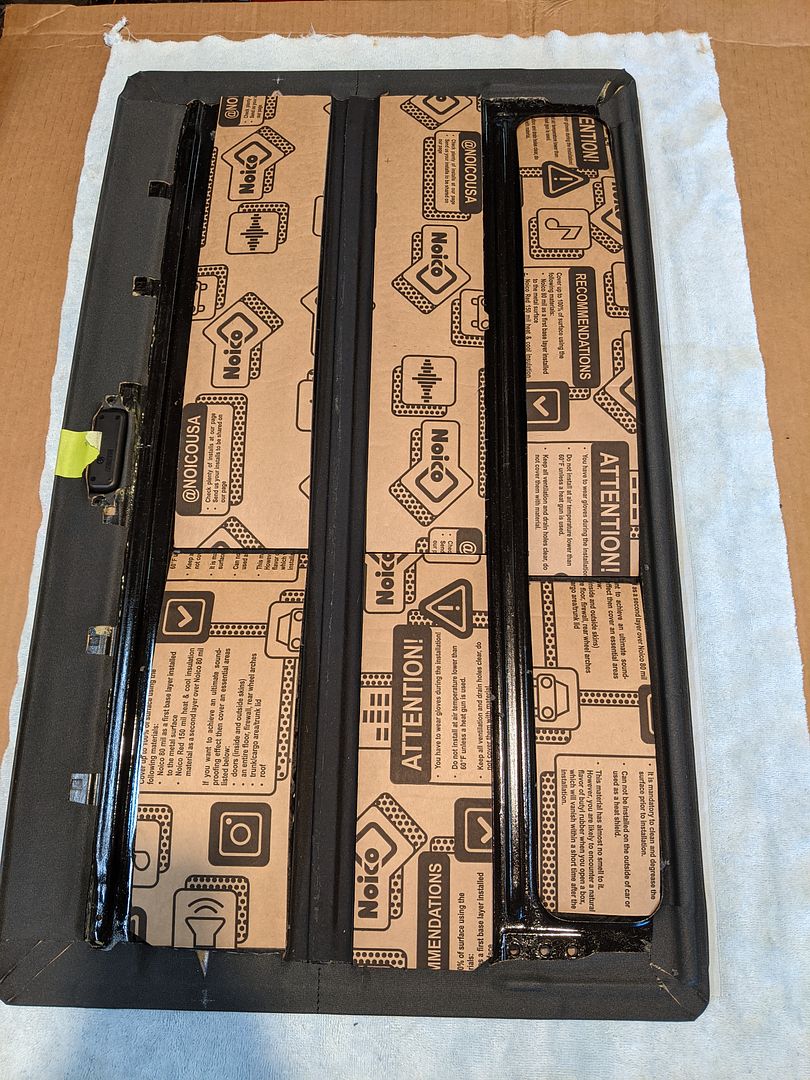
Then trying to put it back together. I got one or two rivets to hold but that was about all, in the end I used small screws especially on those rail guides at the rear.
While the glass panel was out, I wanted to install a new edge seal; especially the rear portion since that one is the near impossible to do while the panel is in the car. I was lucky that I had a few of these NIB’s but unfortunately, I didn’t have the front portion (fortunately that is easy to do when it’s in the car, so for another time that one goes).
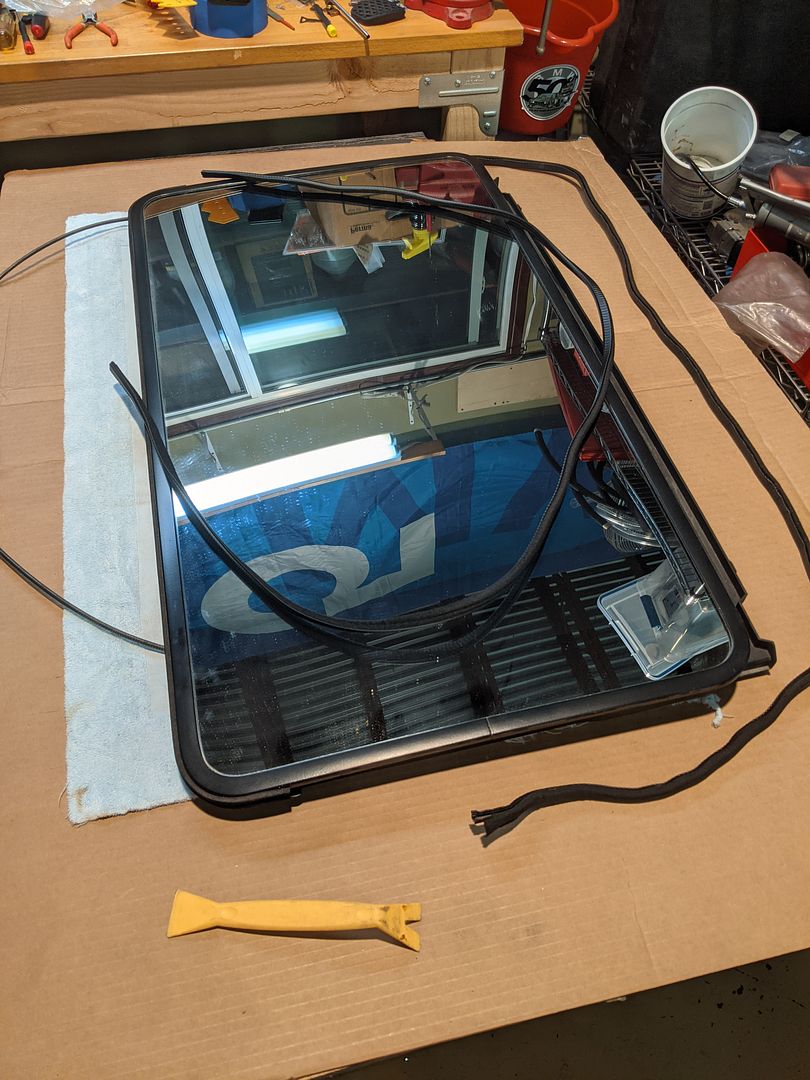
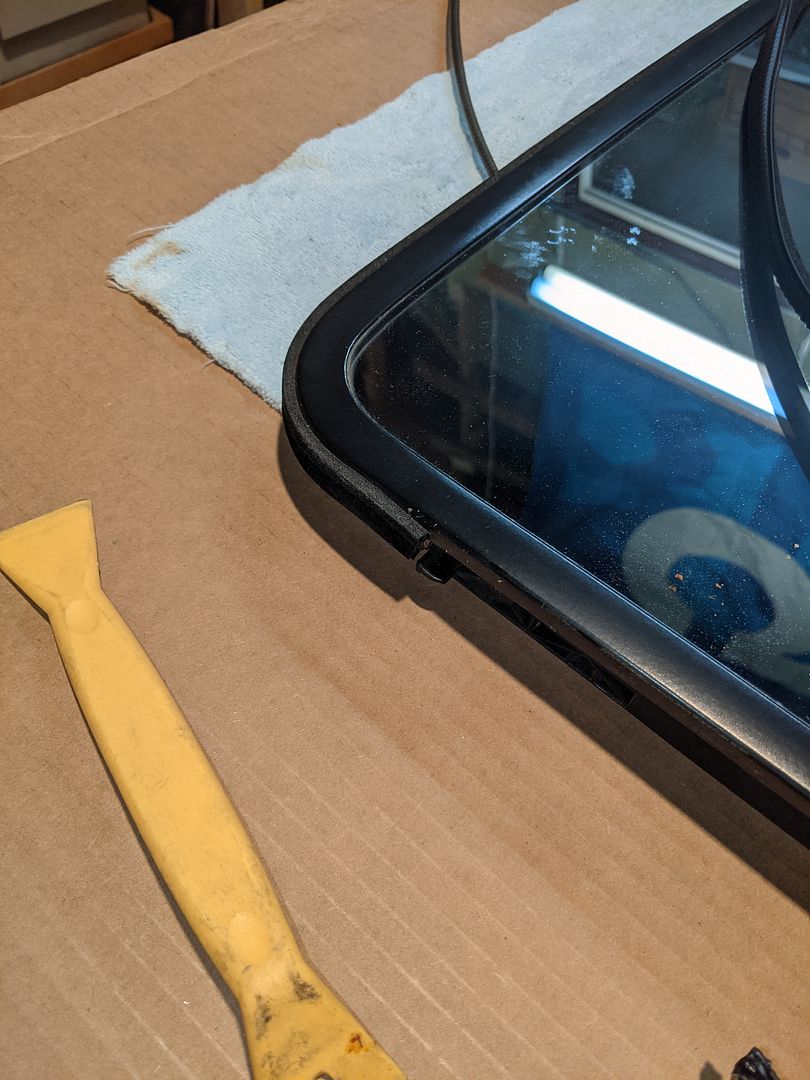
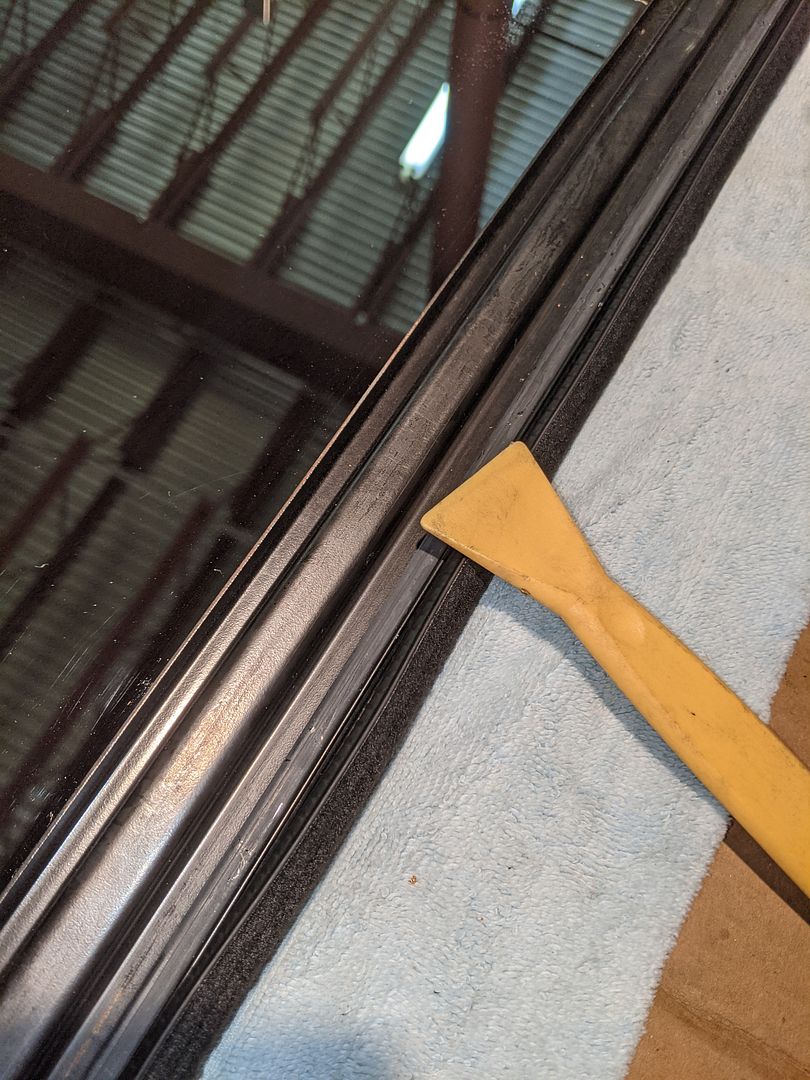
As the Reno event and my self-imposed deadline was fast-approaching, I had about one full weekend left to dedicate to this project and put the entire interior back together (along with trunk and audio system) before I had to focus on getting the car road-ready. I made for myself a very (very, very) aggressive schedule for the next weekend (including the Friday as well) to wrap it all up. It’s funny how much you think you can get done and are capable of when you sit behind a PC making out your daily schedules, especially when it’s just you. (I confess I do this all the time for work trying to juggle not only my offices’ schedules but those of all my consultants which invariably impact my schedule.)
Interior Trim:
One (of the many big) items left was the Rear Parcel Tray. Since an intact, pre-'86, Anthracit Parcel Tray with intact Sunshade was about as rare as intact M-Tech Manual Sport Seats in Taurusrot, I was left with transforming my existing Pearl Beige PT. After some research on the best methods, I settled on this stuff: spray carpet/fabric dye
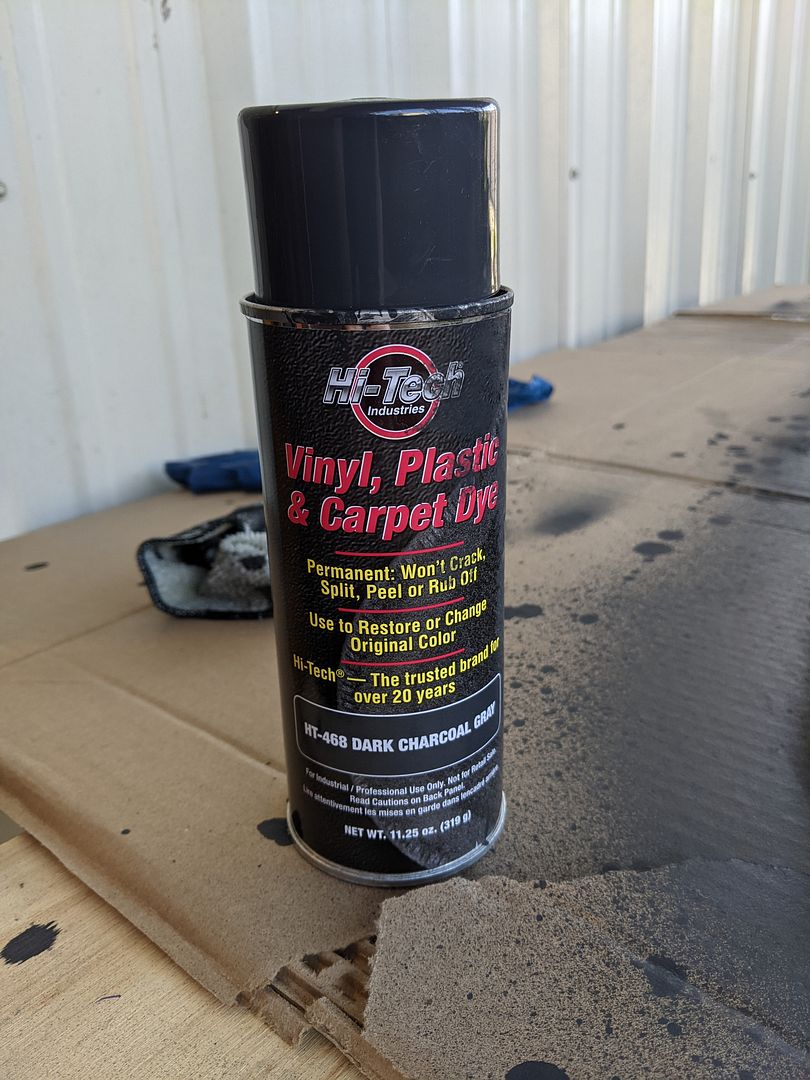
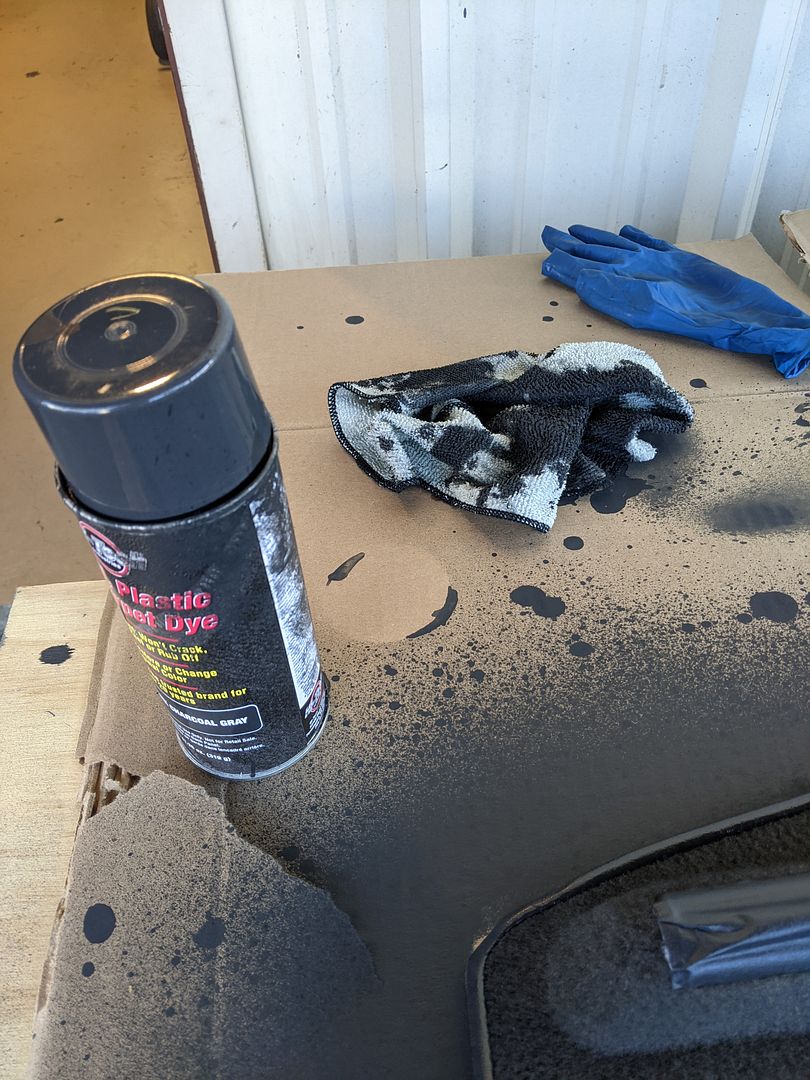
It's pretty messy to deal with as it wants to drip and run all over the place you really don't want it to. Prep the work area as much as you prep the receiving item.
Prepping:
Pulled off the one plastic clip and masked off the Sunshade. Thoroughly cleaned (vacuumed, washed and dried) the carpet. Brushed the carpet completely and we were ready for prime-time:
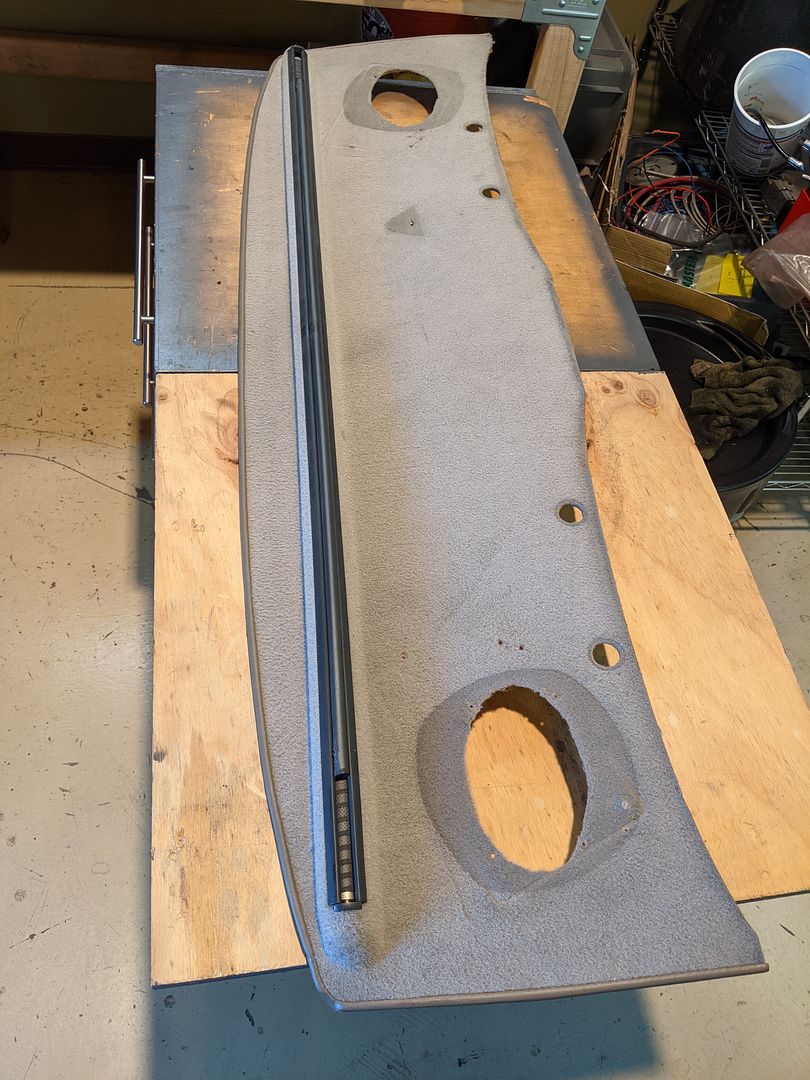
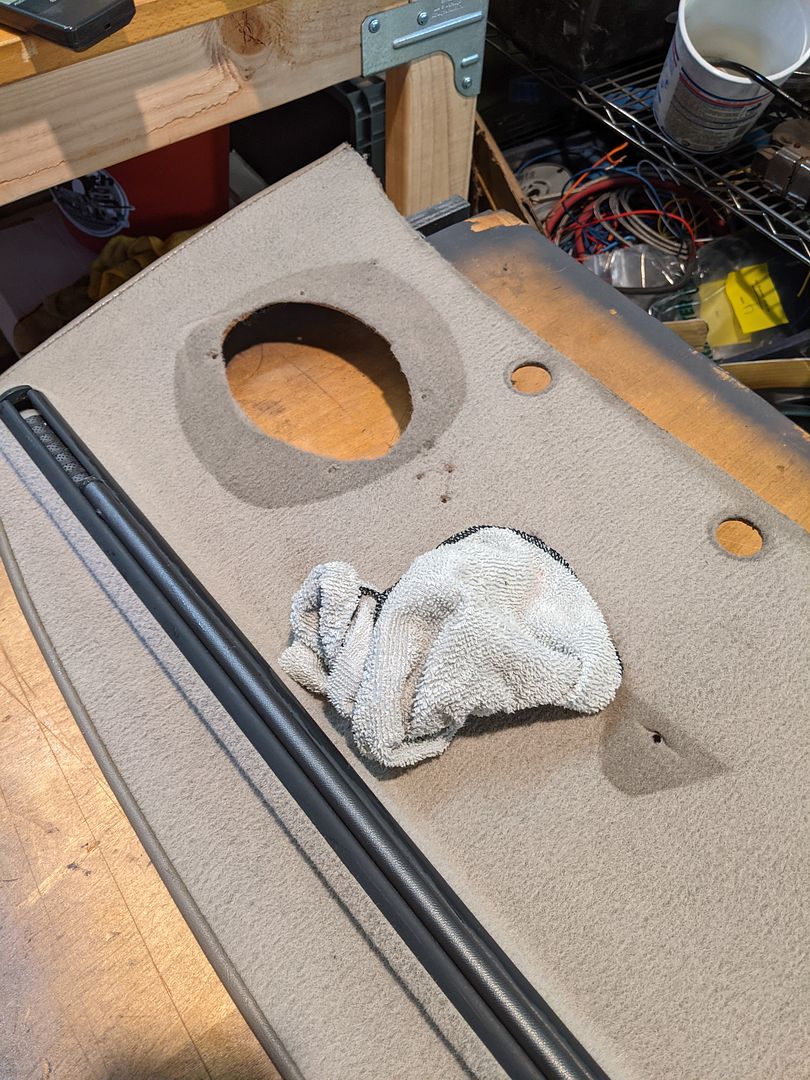
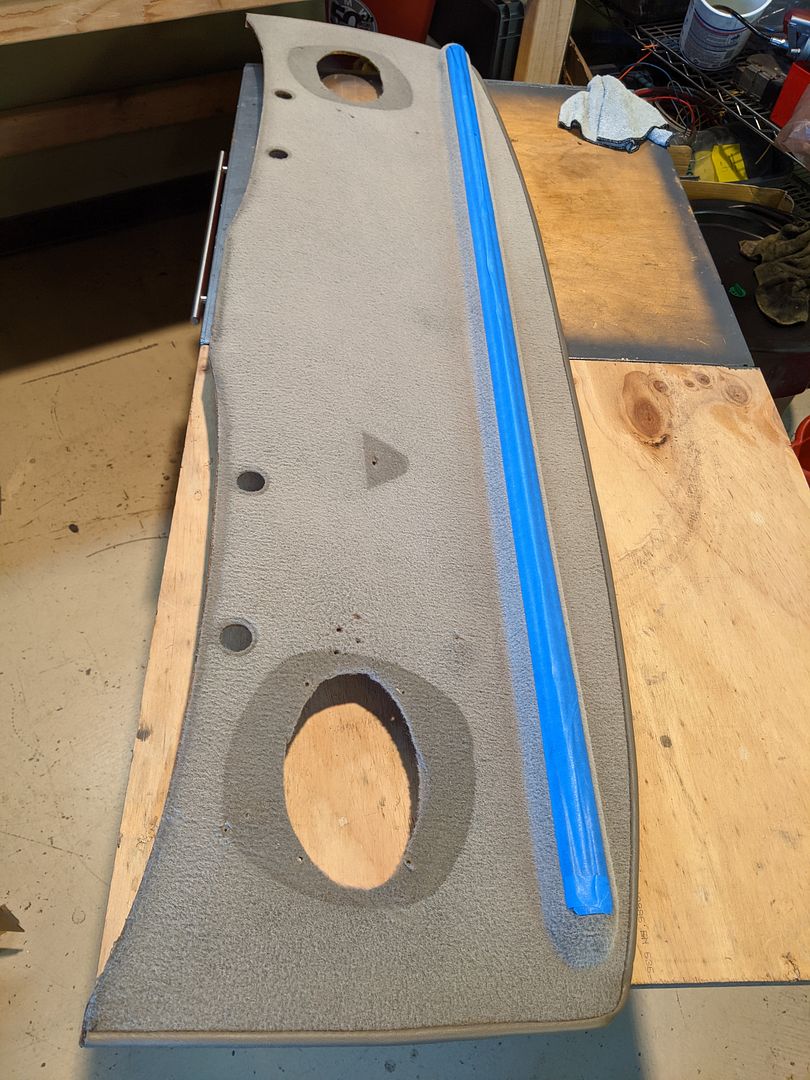
Successive layers of the spray dye with brushing in between:
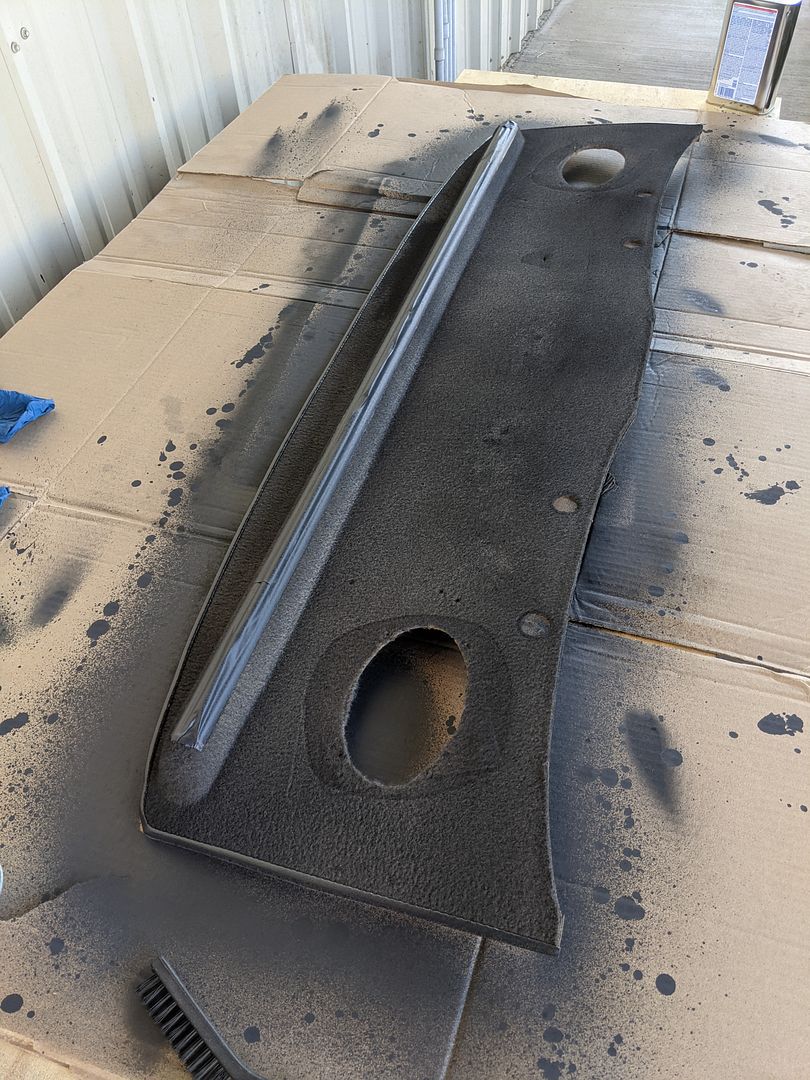
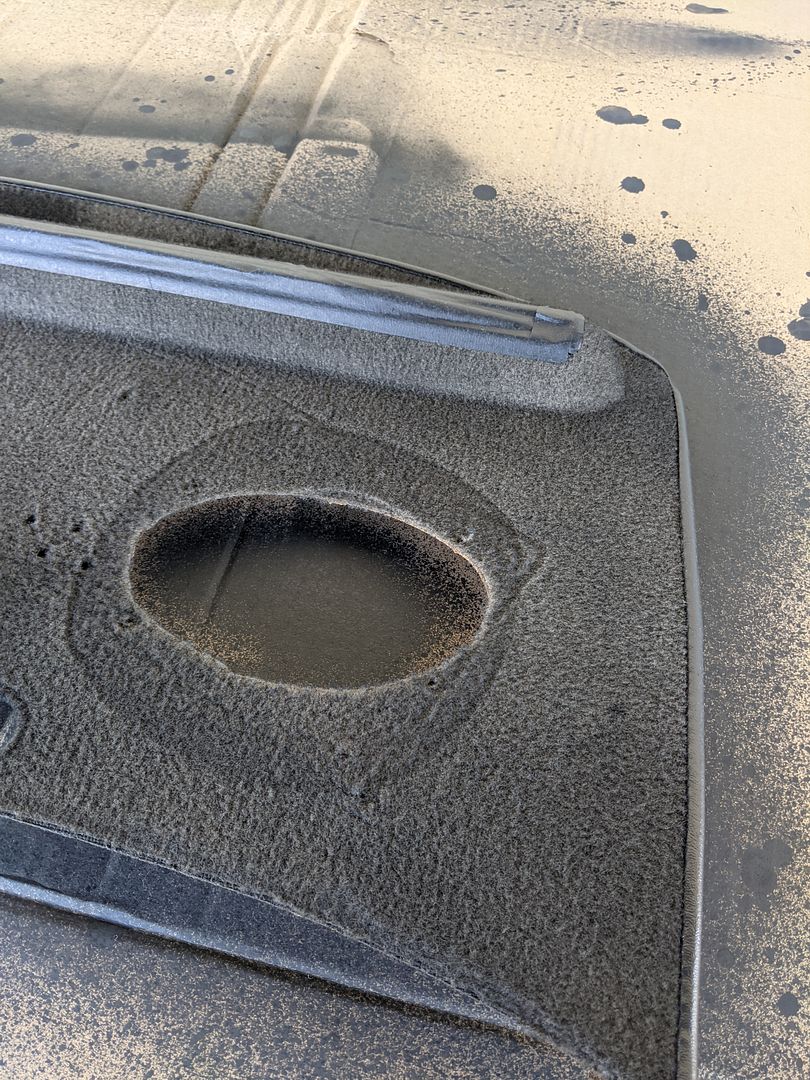
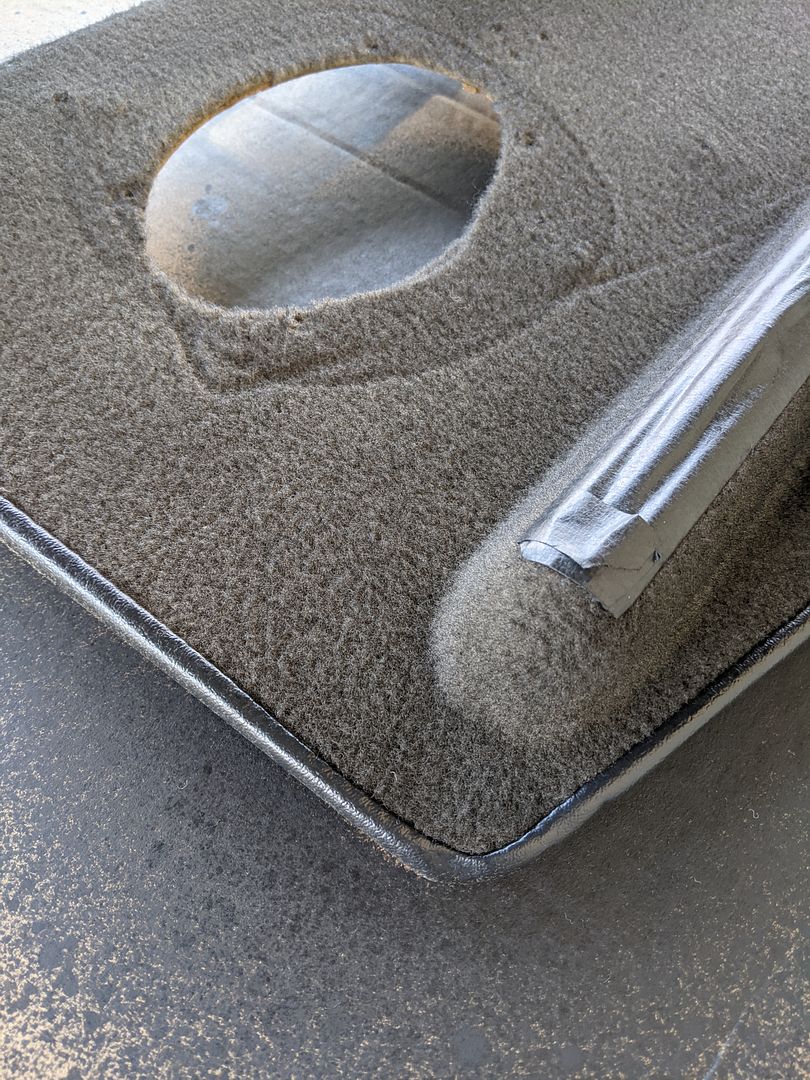
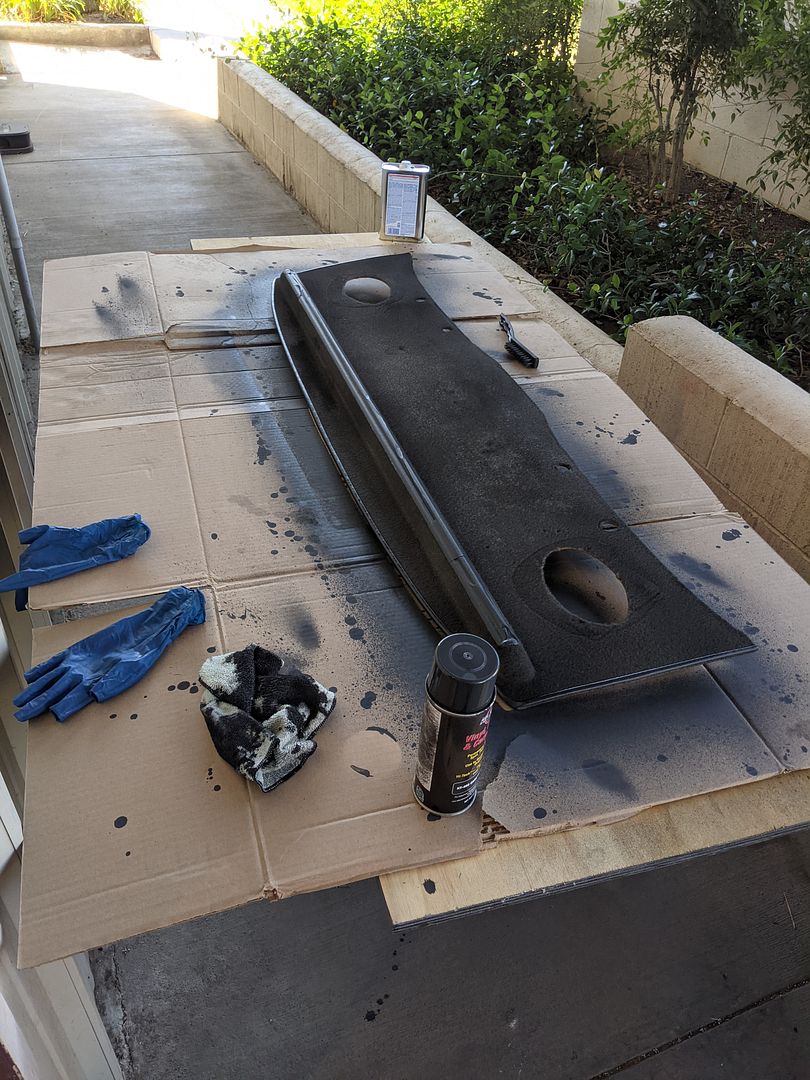
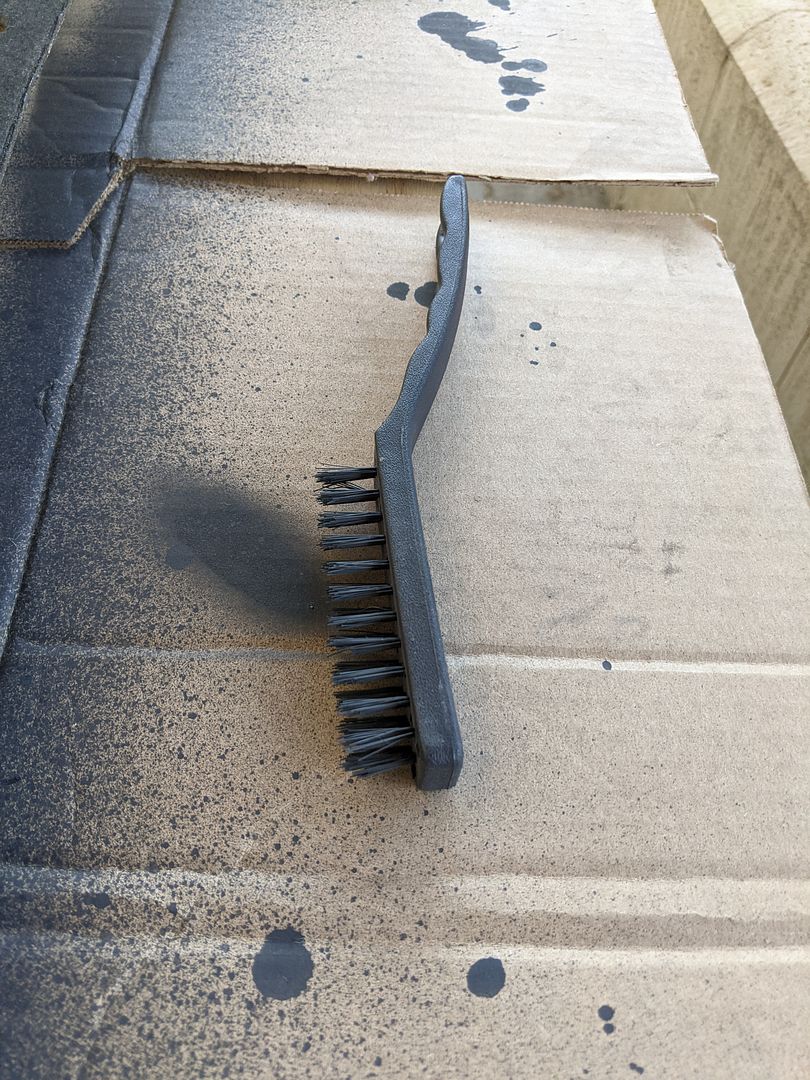
One of the issues with using products like these is that the fabric or carpet gets very stiff and brittle. I can't say this didn't do the same, but the carpet on the PT is a very low nap to begin with and takes the dye well. The secret is brushing the material in all directions to expose as much as you can so you don't over saturate the carpet in your attempts to get complete coloration. In the end it turned out pretty well after about 4 light coats and a 2nd can; I would recommend this product with all those caveats. (More final photos to come in the final update):
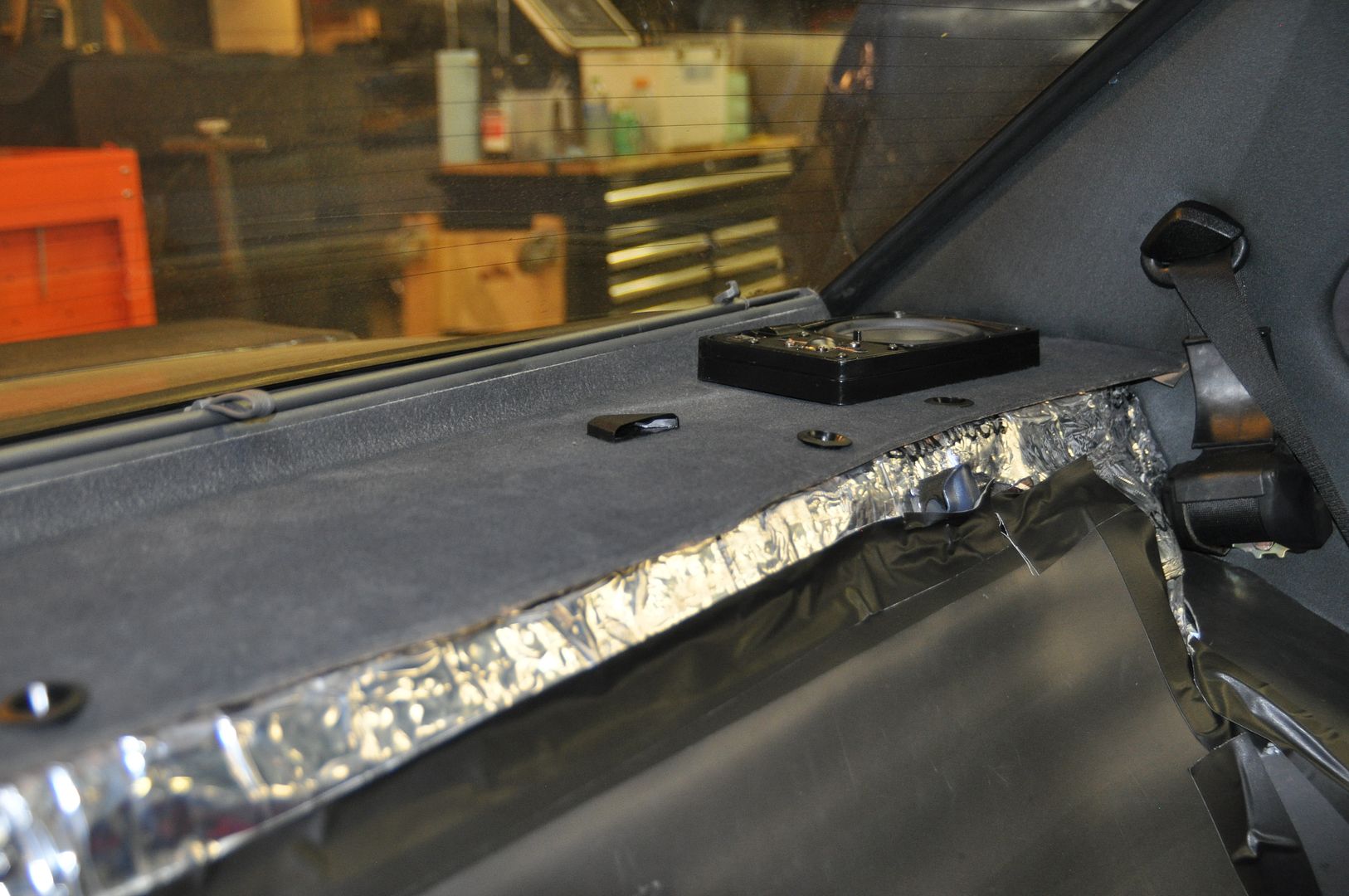
What was left was ostensibly just the interior trim components, putting the trunk back together and the leather seats.
Here are some random shots covering various components:
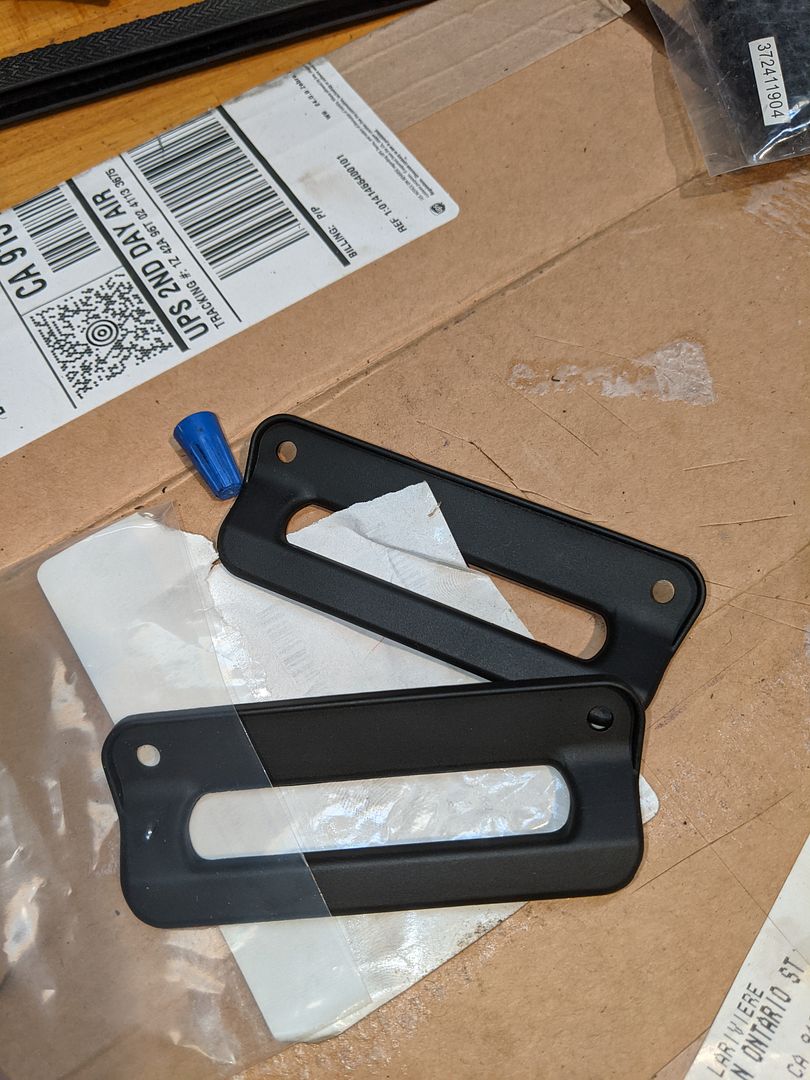
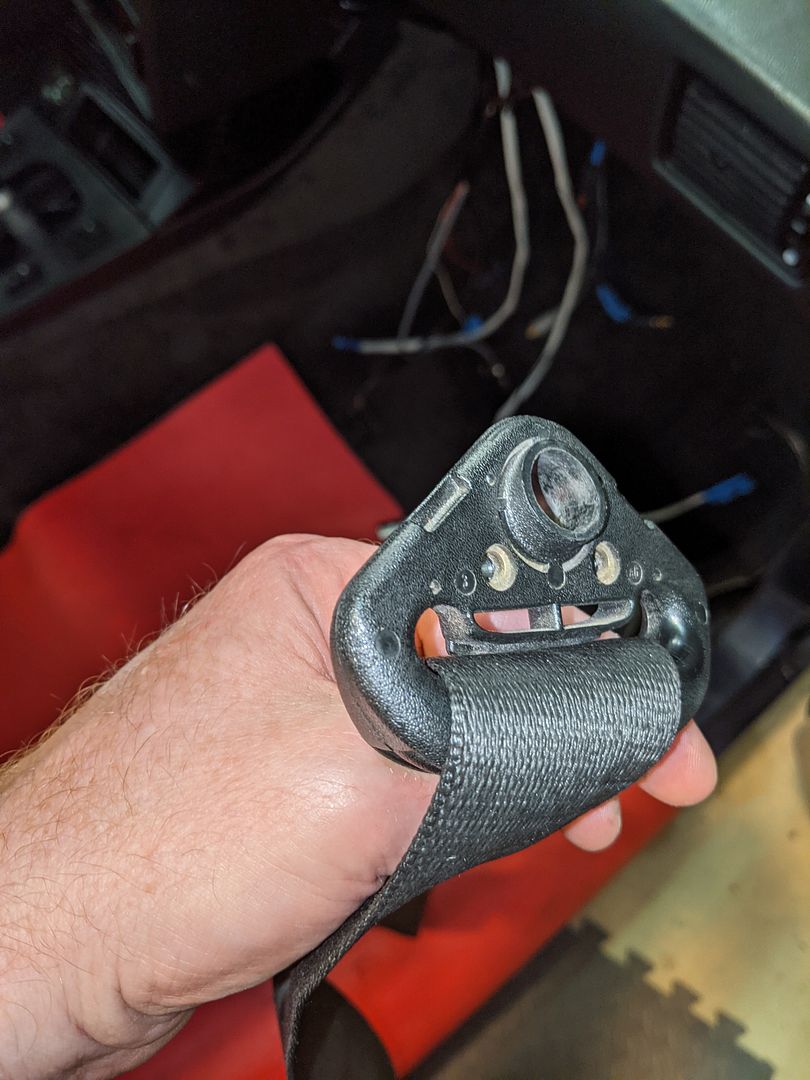
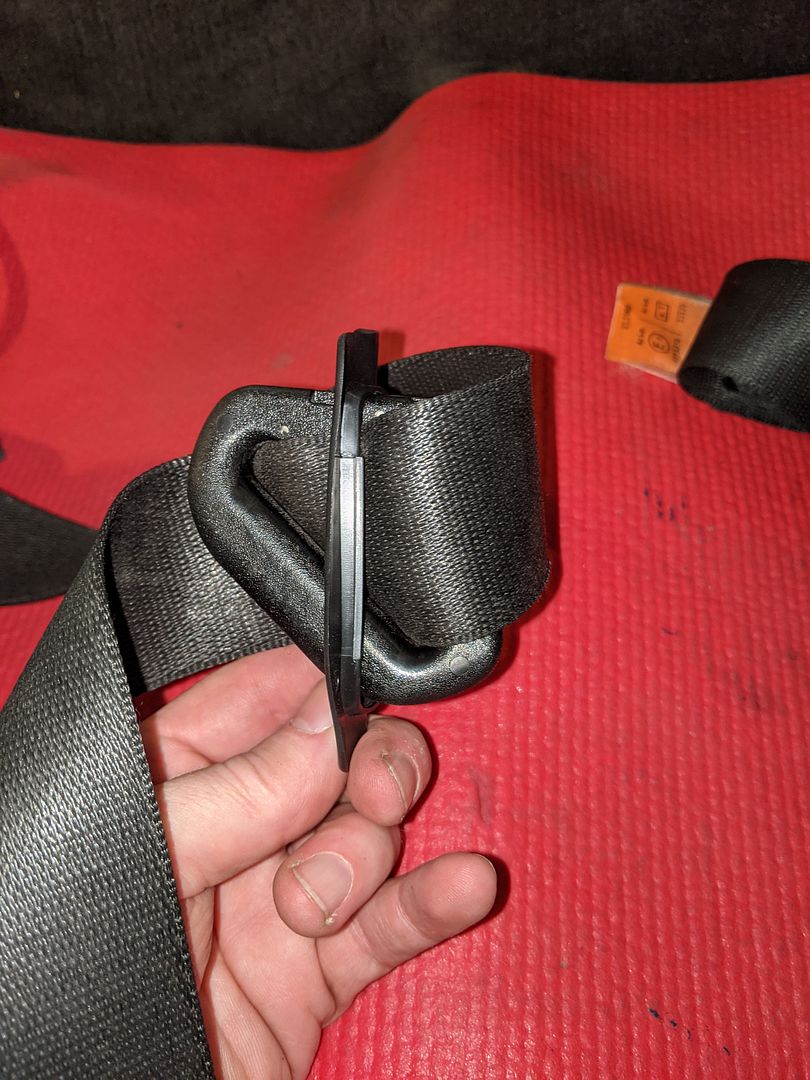
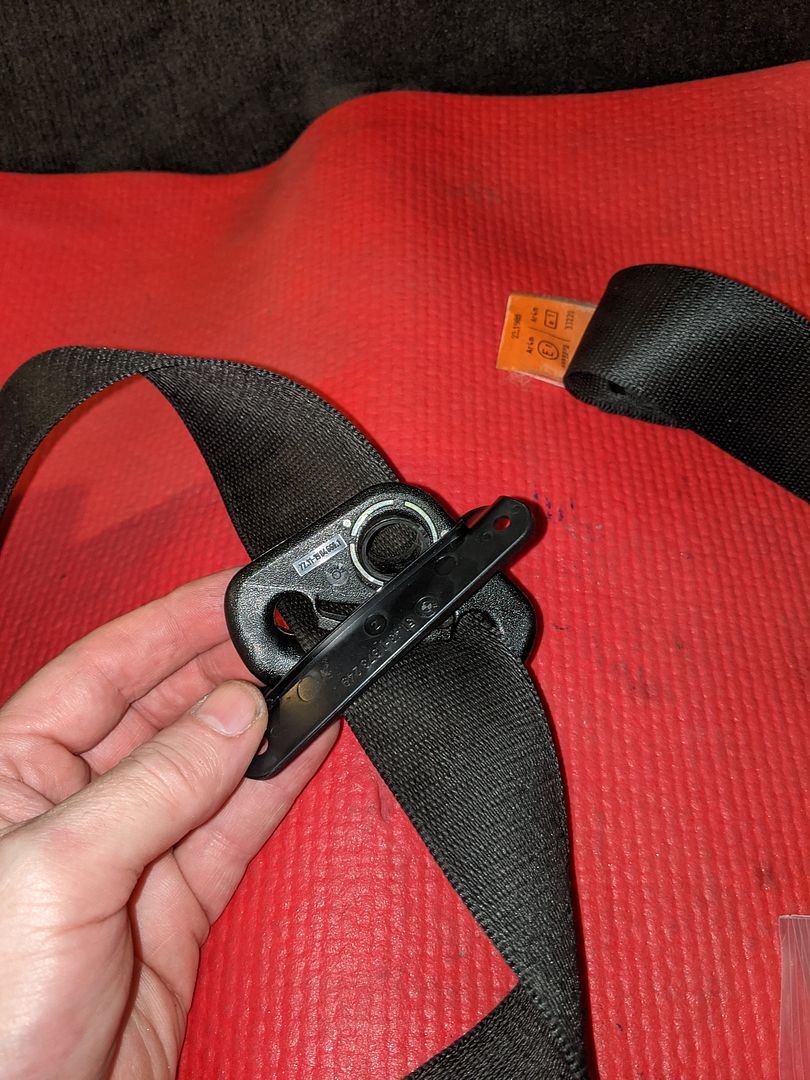
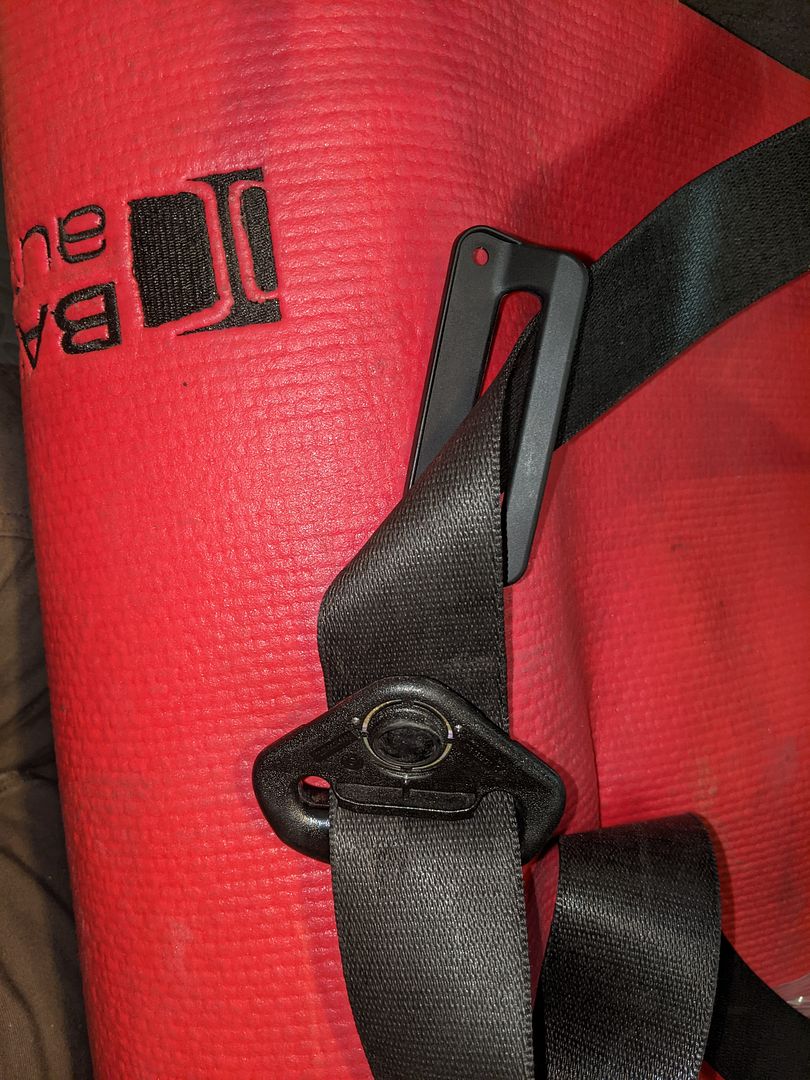
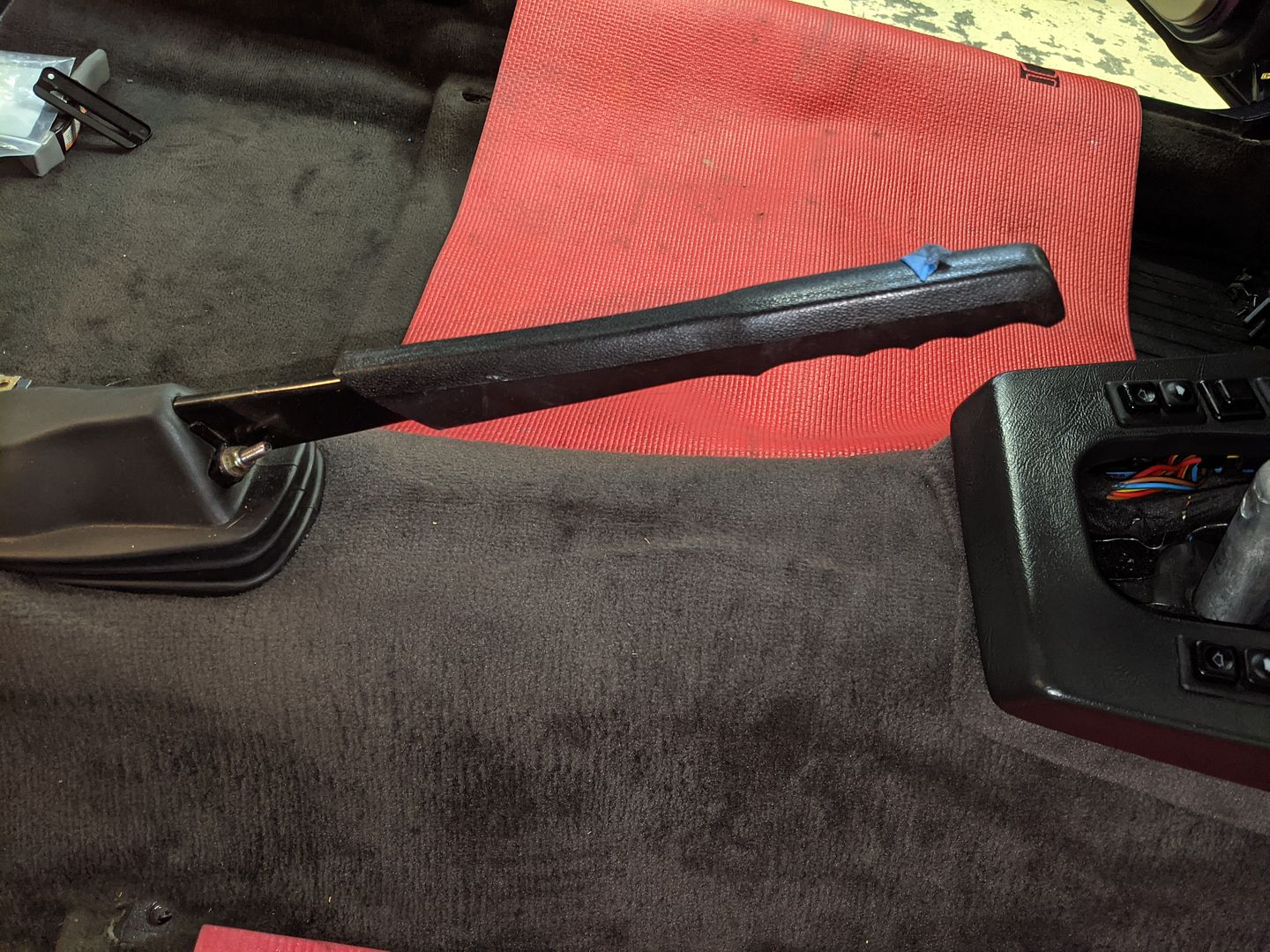
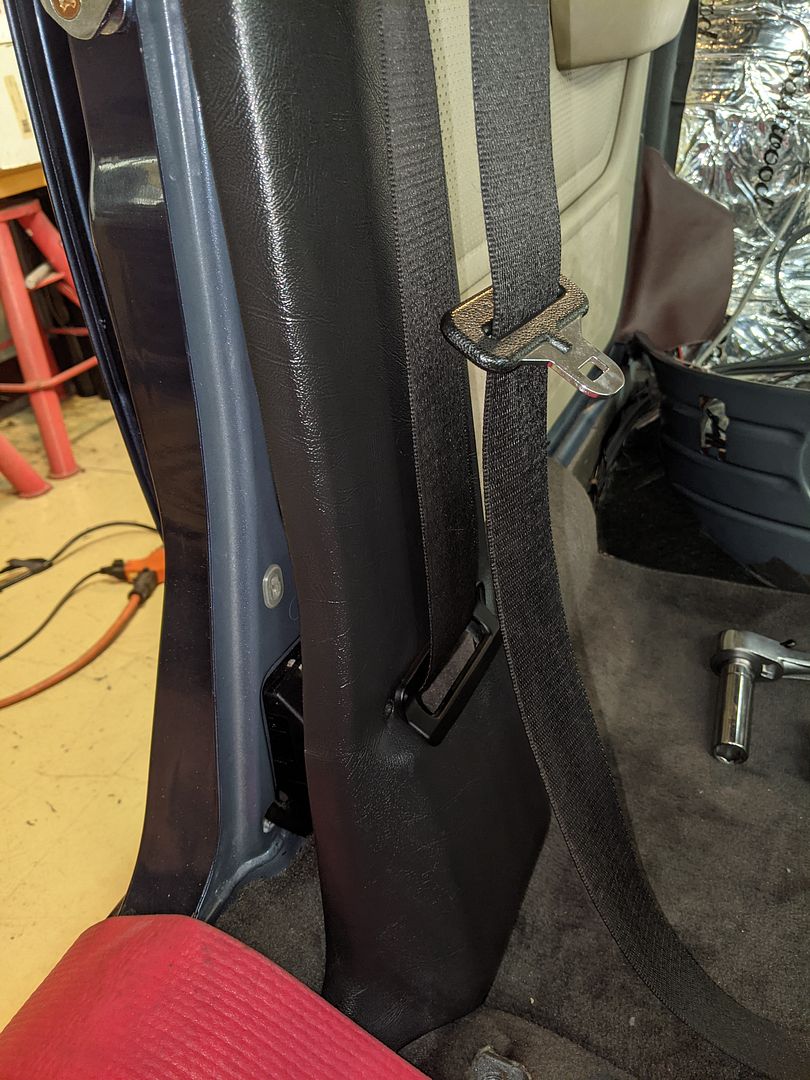
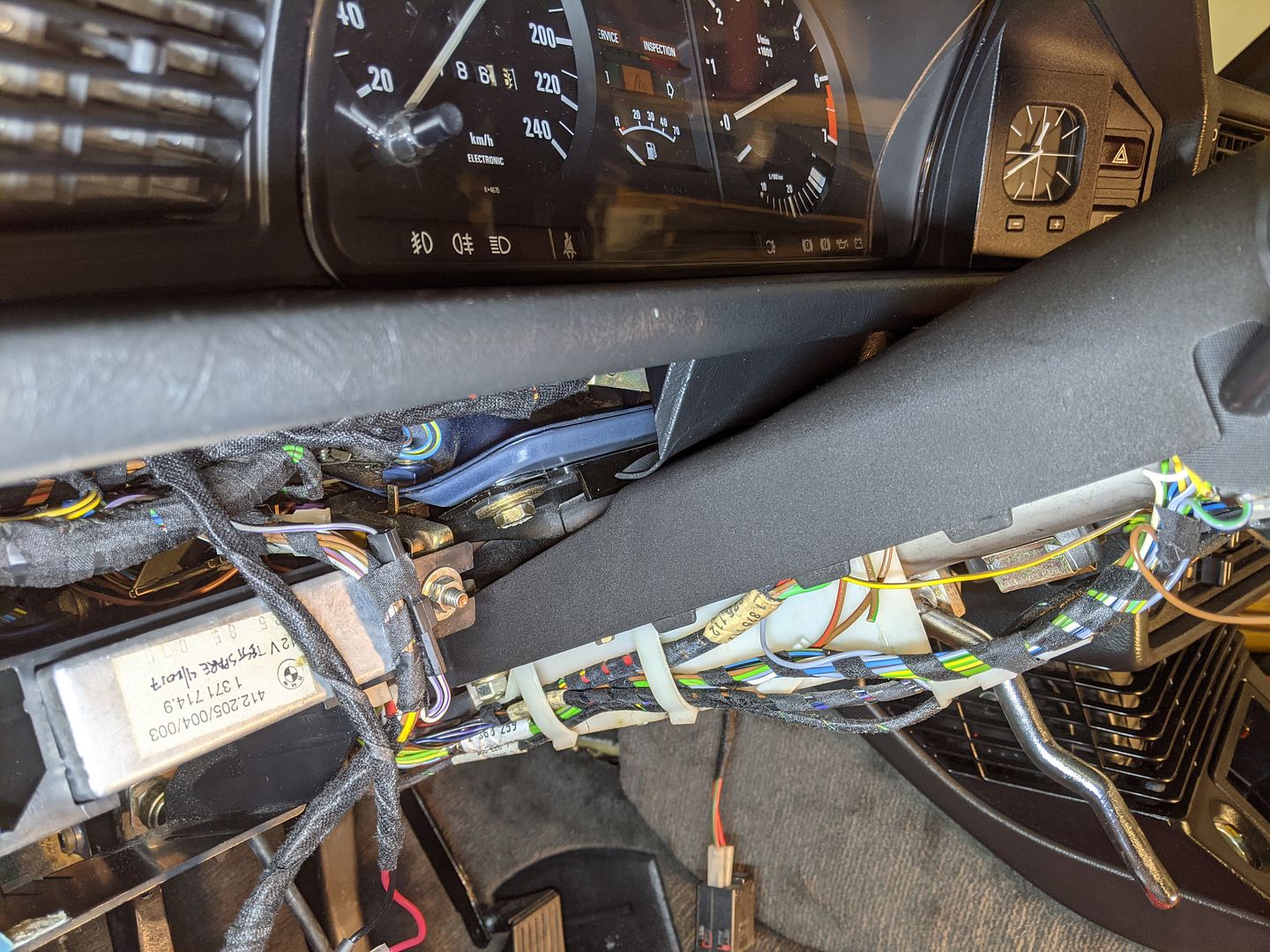
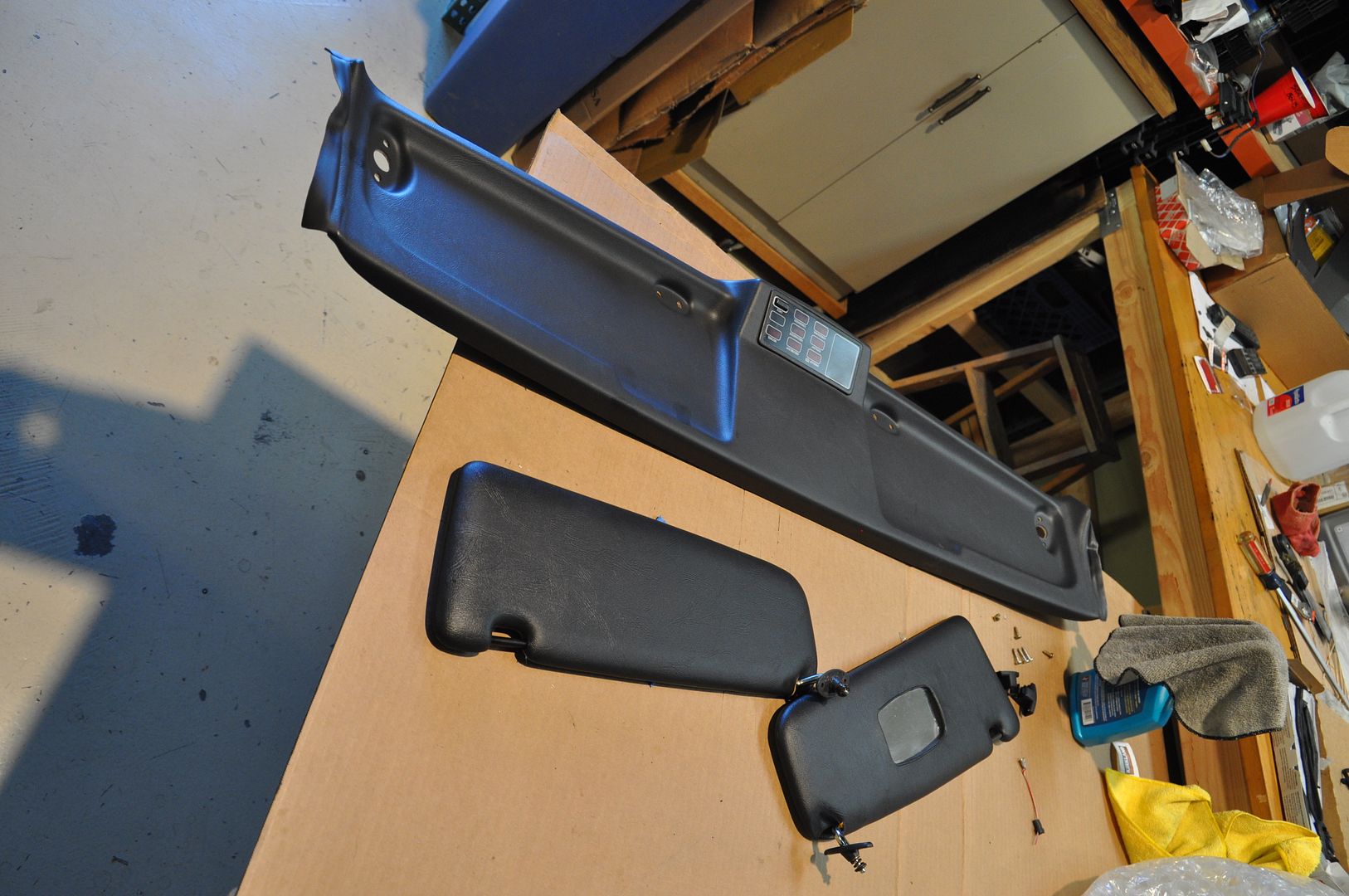
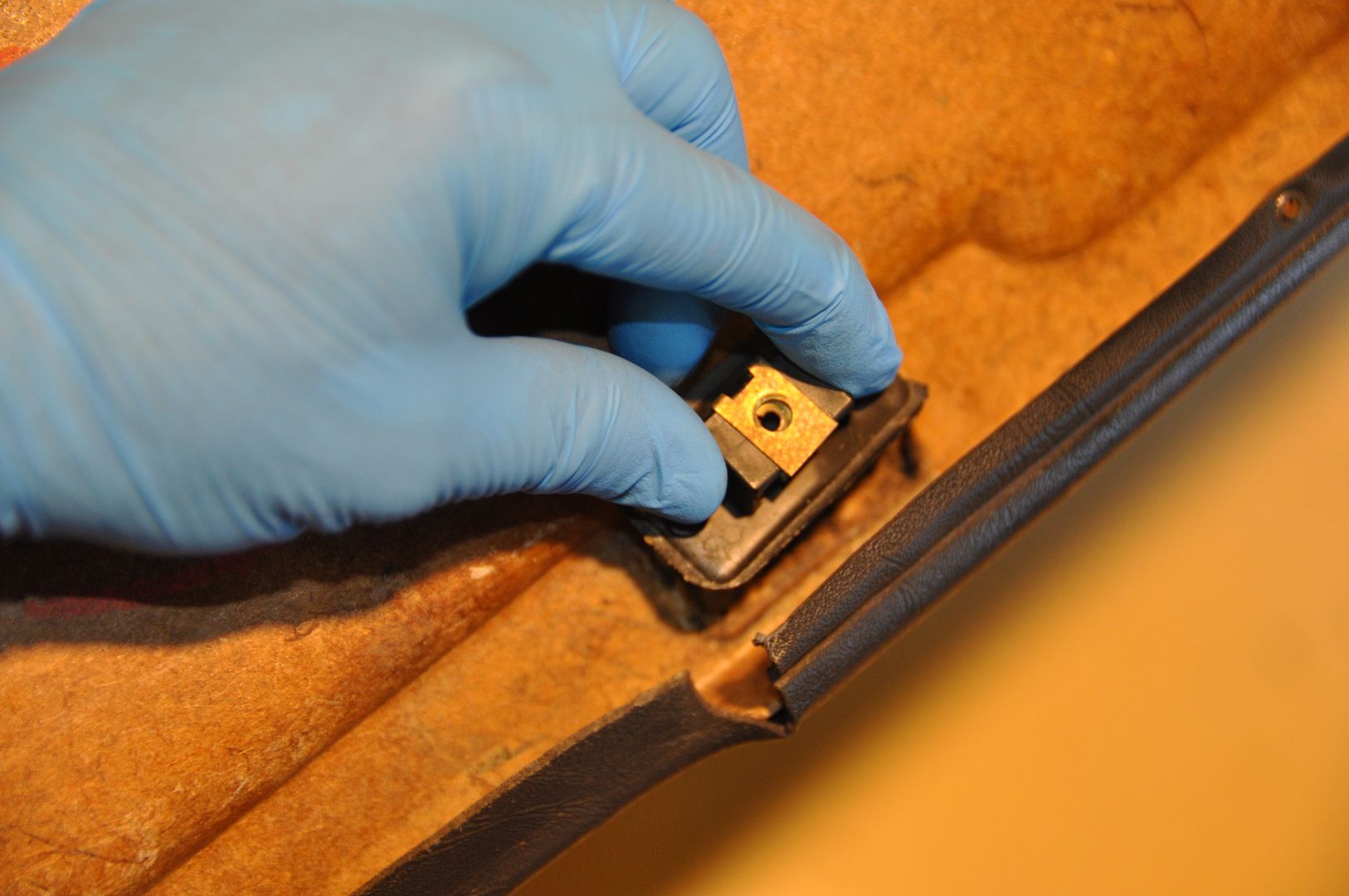
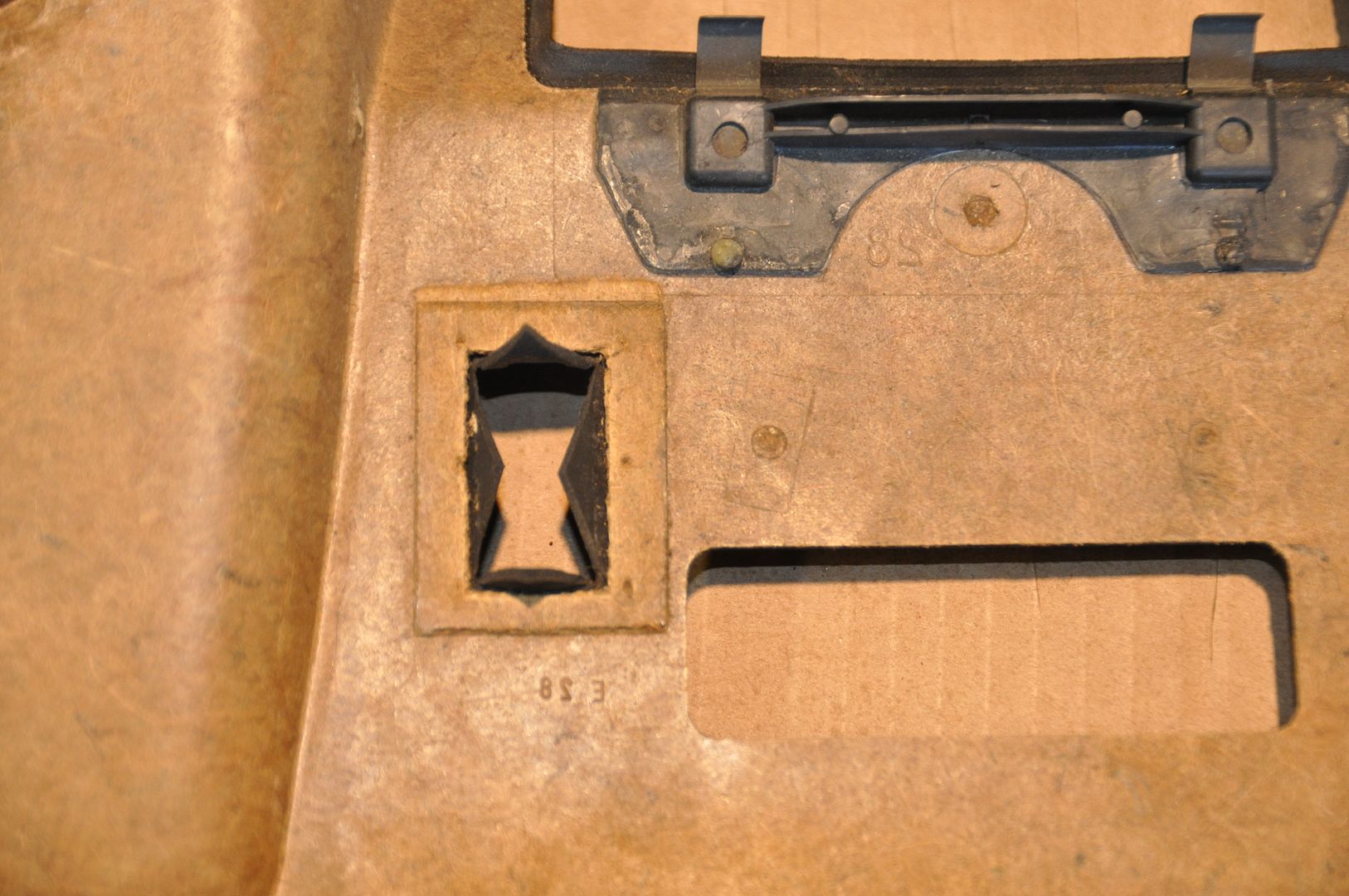
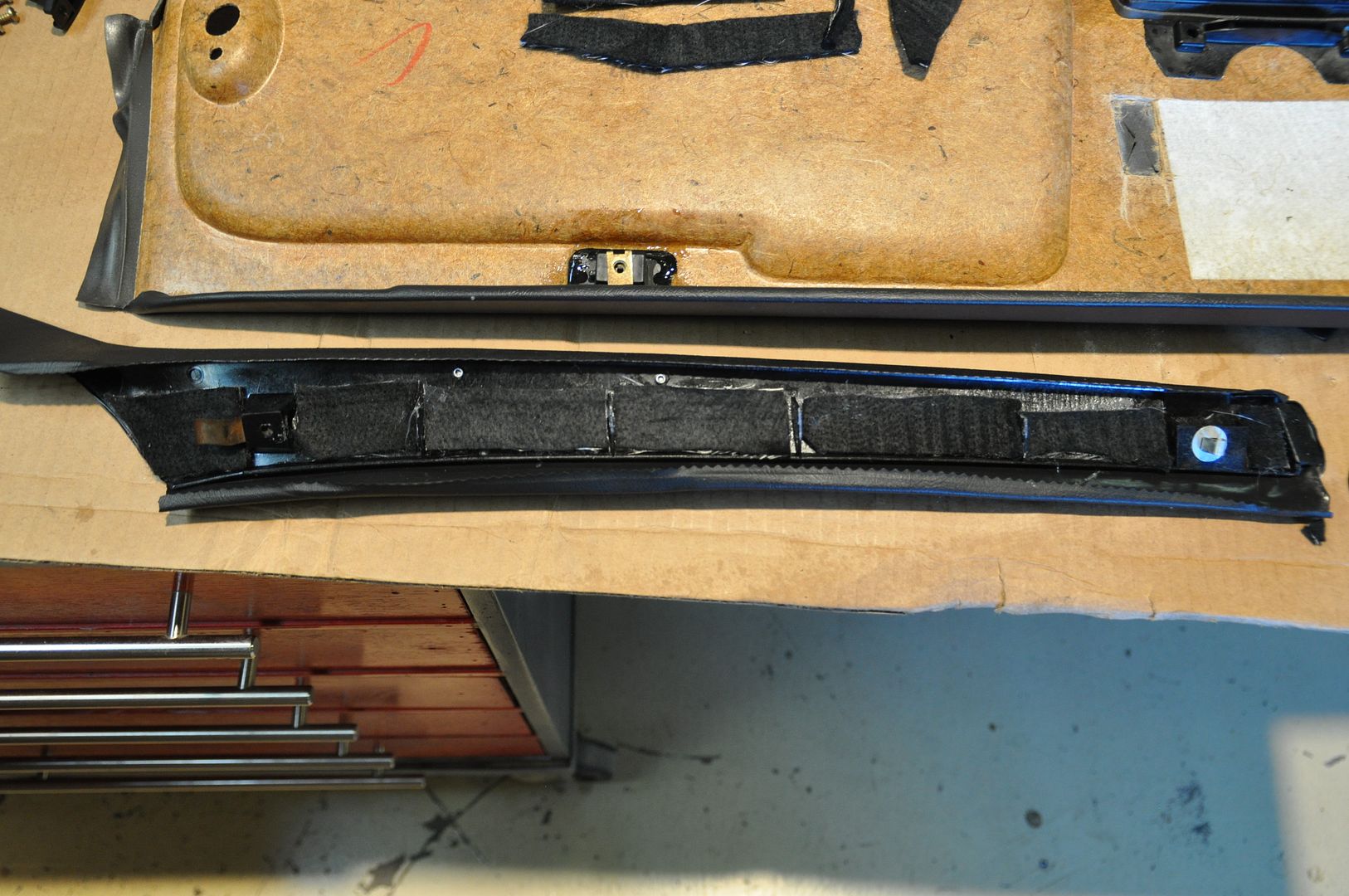
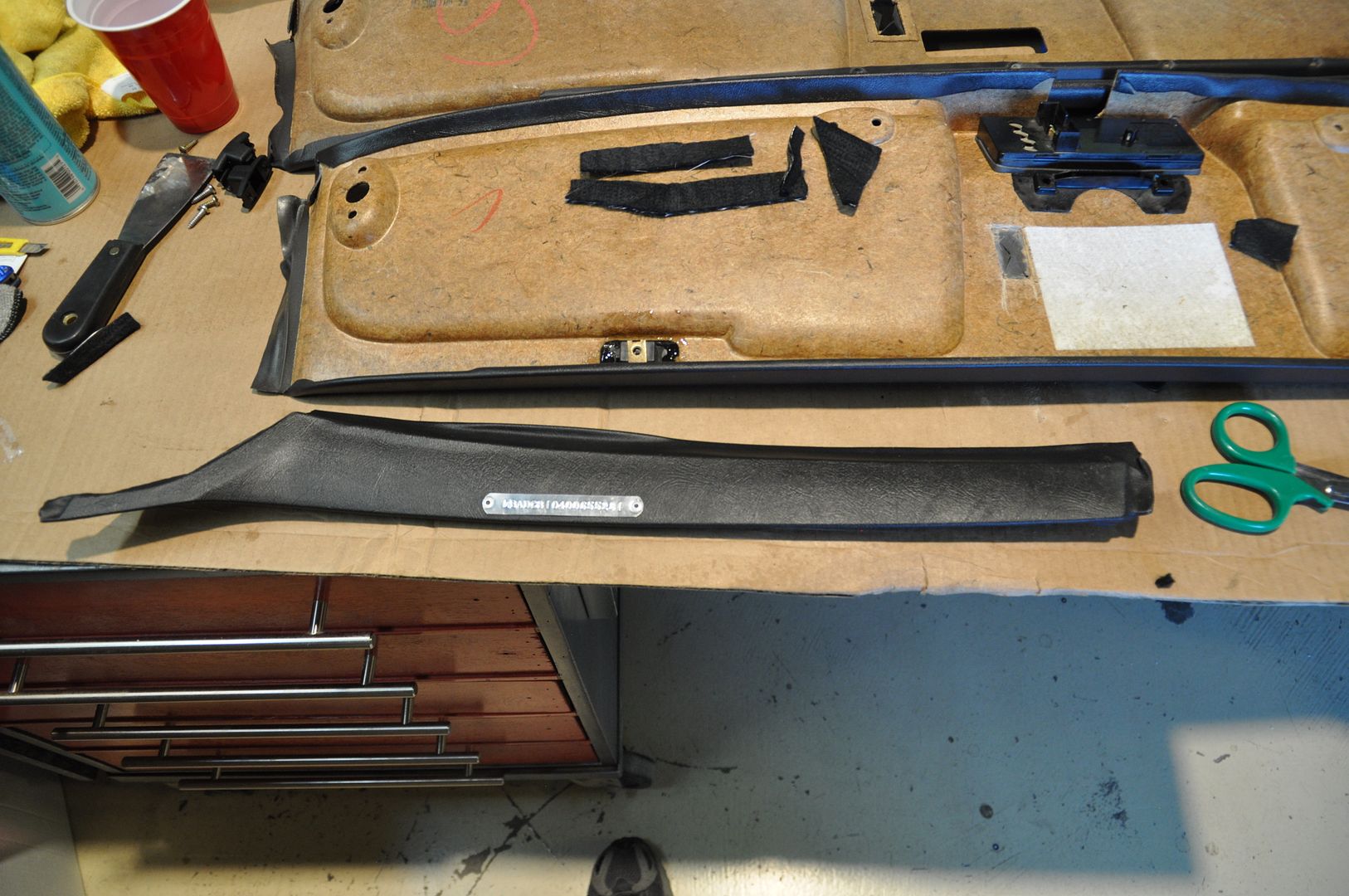
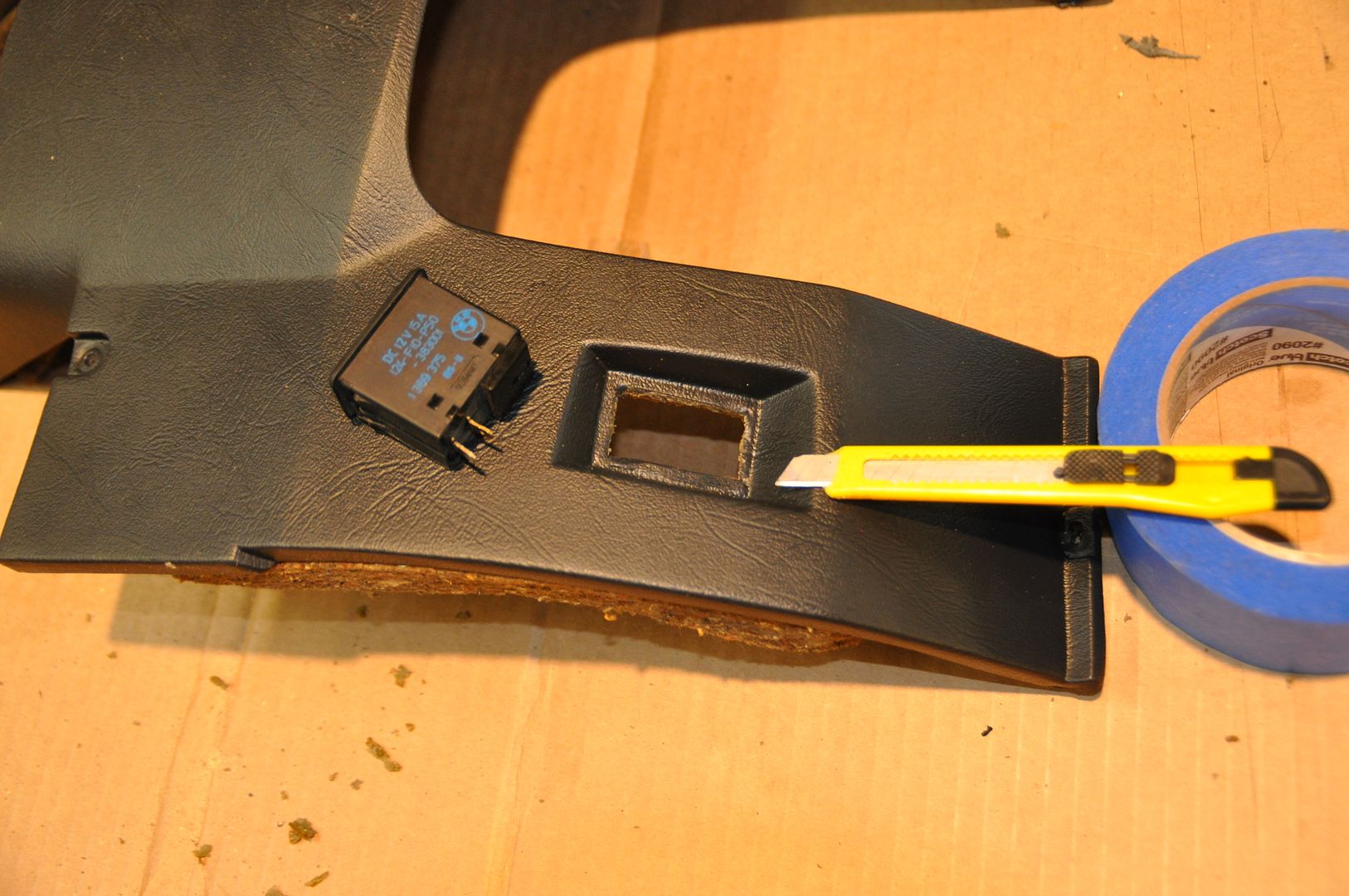
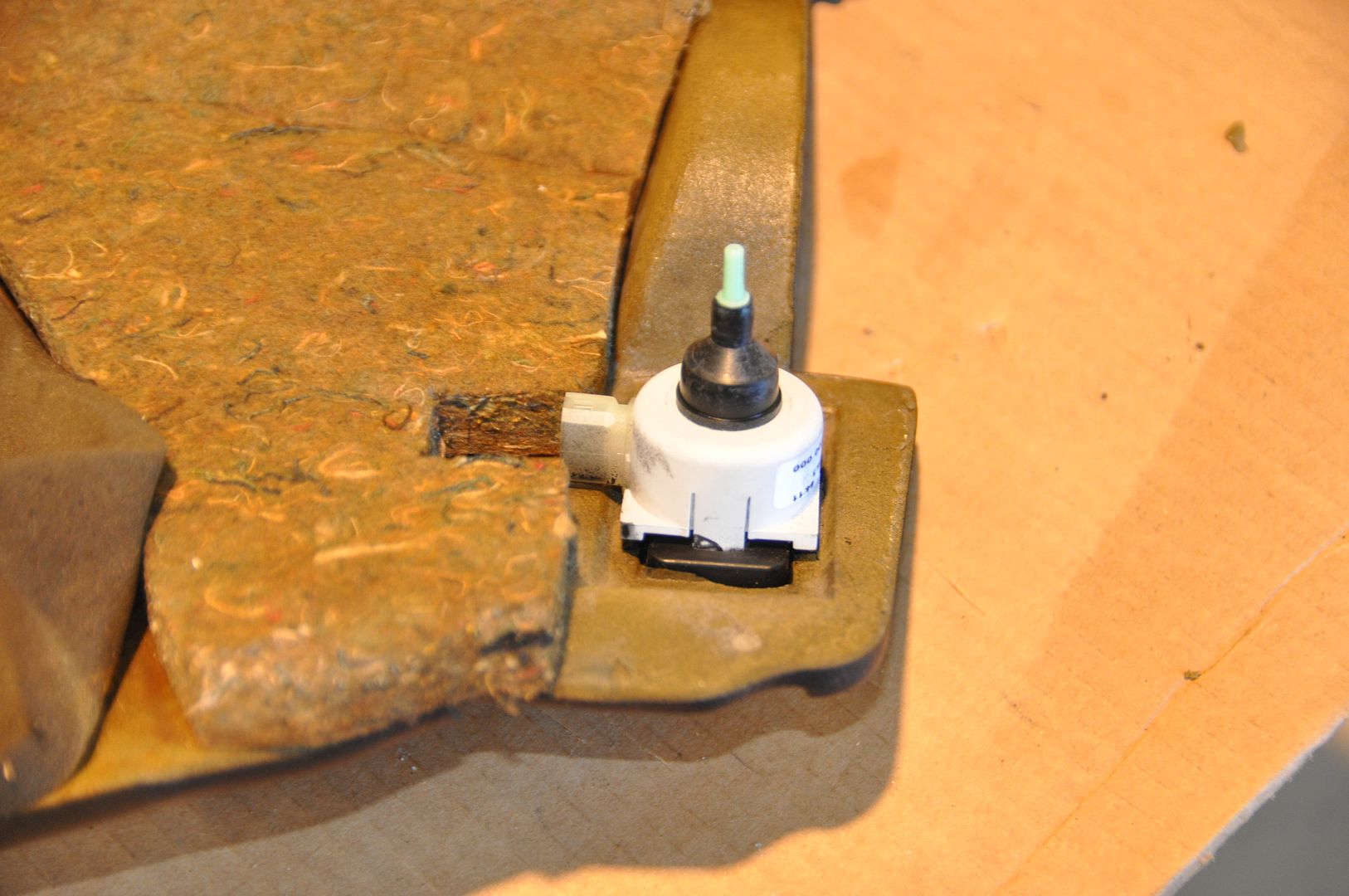
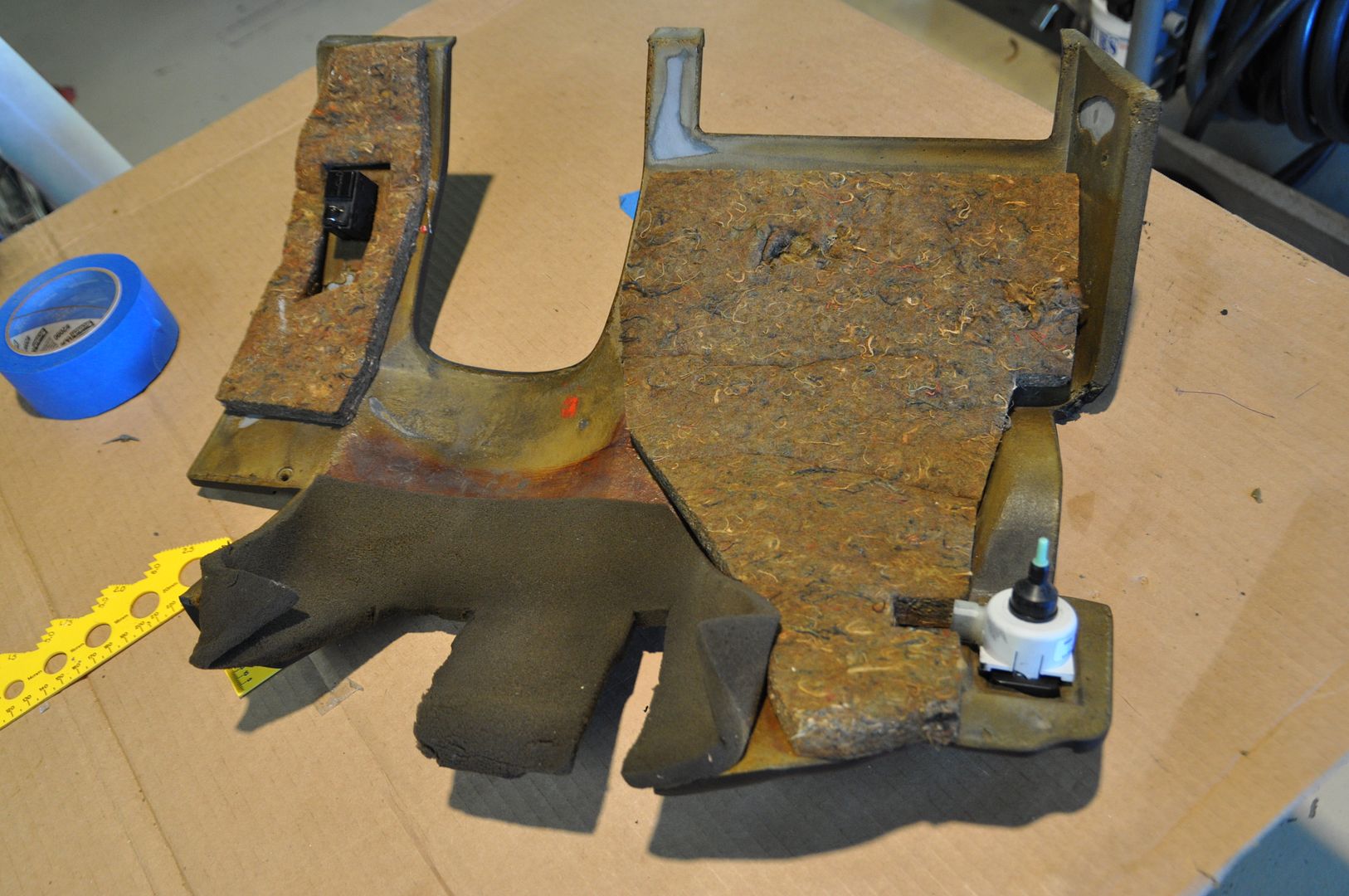
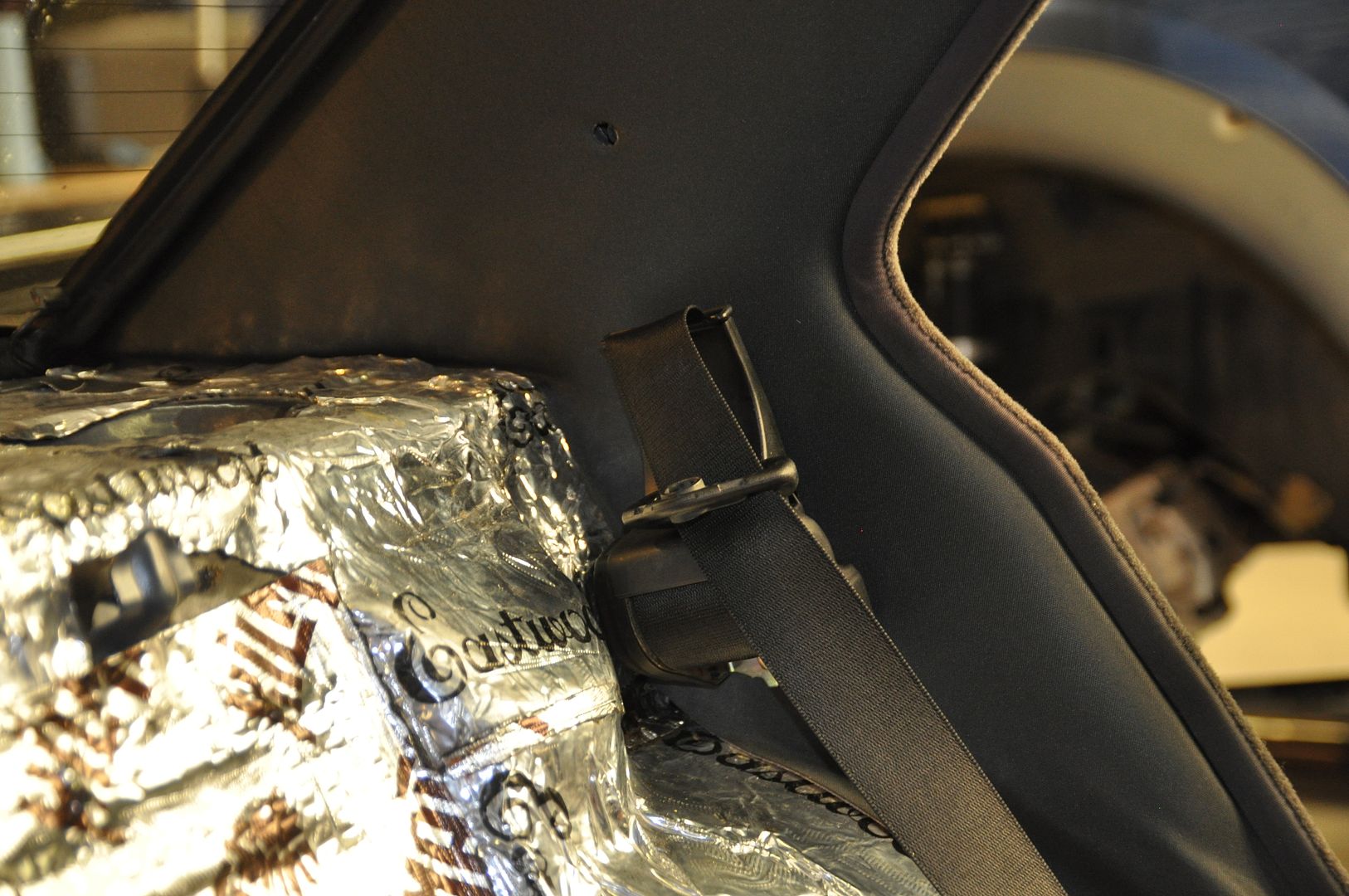
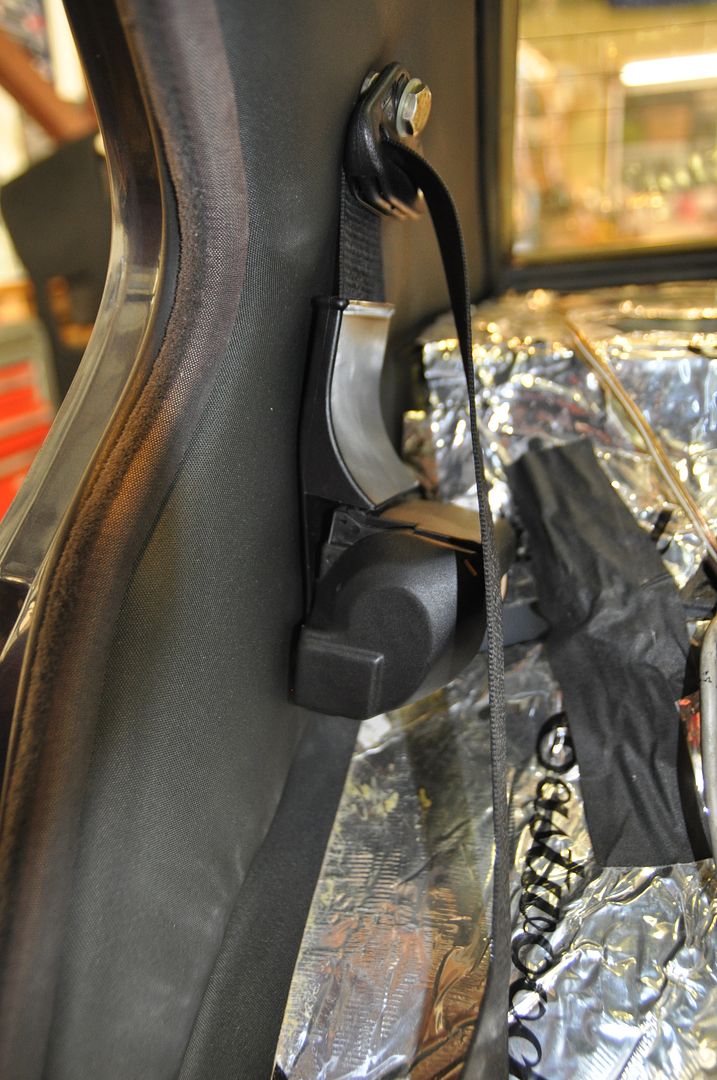
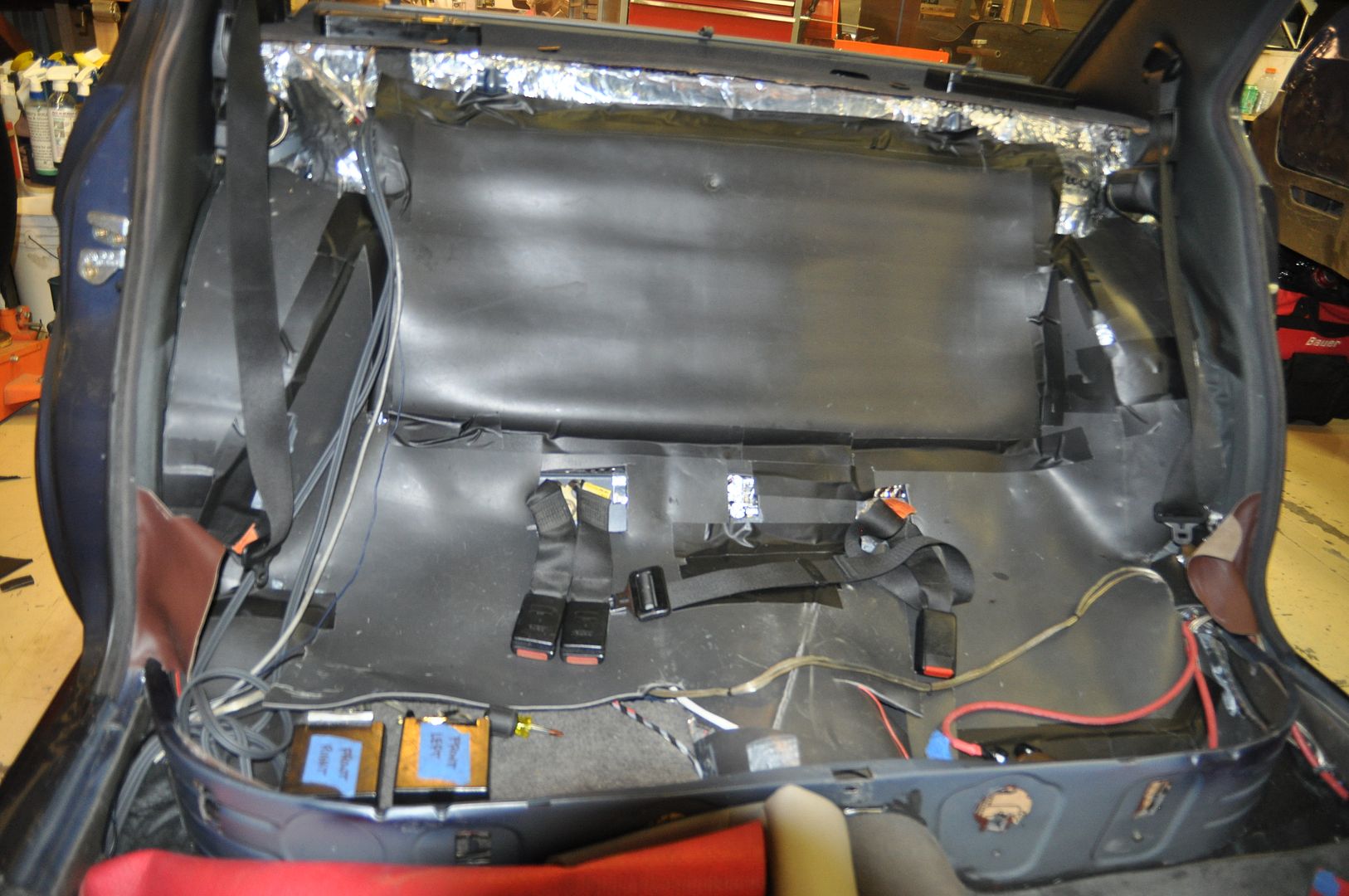
Well, while I was making significant progress in the first day and half, it became painfully obvious there was no way I was going to finish with time to get the car ready. This was not helped by even the smallest things fighting me all along the way. I had to make the decision Sunday that this was it, it was not going to be ready and to take a step back, regroup and instead focus on what was left, what I was leaving out due to tight schedule and plot a new schedule for completion. In this case, pushing everything to November 6th and the SoCal Vintage BMW Meet was a logical choice. I have been receiving very sage wisdom from lots of people saying don’t impose artificial deadlines on projects like these, and while I agree with that, I also know myself and know that I need a deadline structure otherwise this project will go on forever. While it is looking like 2021 isn’t shaping up to a whole lot better car-wise than the previous year with not a whole lot more on the calendar (at least here in the west), I do want this car ready for the new year in 2022.
So,there we stand. I spent this Labor Day weekend getting the E39 ready for a road-trip to Reno, NV. The M535i sits idle until I'm ready to dive back in (this Saturday) and re-start my Dining Room project (this Sunday;that was non-negotiable with the wife). I will pick up where I left off with my area punch lists in a few weeks and hopefully not take too long with the next update (which should be the final).
These last few weekends have been…trying; both the HVAC system and Moonroof re-install have not been going swimmingly. But here has been the progress over the last month:
Headliner:
Juan progressed quickly with the headliner but the first thing we had to do was coordinate the mobile glass guy to meet us down at Juan’s shop. Frank Valiente (New Era Glass) is to the windshield world what Juan is to the upholstery world; maybe that’s a bit of hyperbole but he’s pretty damned good it. This makes the third time he’s worked on my front windshield and second for the rear window. I don’t have many pictures of the removal since it happened so fast, however as with these things, re-installation took a lot longer with much more aggravation. Here is Frank hard at work:




I have been holding off getting pictures of the headliner since I wanted to show it in context to the rest of the interior but I do have some photos of it when I got the car back from Juan (see below).
Material:
As with the leather, we searched long and hard for a suitable Anthracit/Black headliner material since BMW stopped making the M5 headliner long ago. The issue was two-fold (well, three-fold if you count cost): Fabric Bolt size and foam backing. In order to do an E28 Headliner you need material that is 54” wide minimum; it surprising how few black headliner bolts from the suppliers there are in 54”. Foam backing was also a deal-breaker since most headliner material is made with varying thickness layers of foam backing. While this sounds like a good thing, believe me after removing a 30+ year old disintegrated foam layer from the inside of this car, I can tell you that you do not want foam backed materials. Using material without the foam backing was what Juan recommended anyway; besides all that thermal and acoustic protection I put in behind the headliner will do way more than the thin layer of open celled foam. So, after countless searches and samples from Veteran, GAHH, World and a few others, Juan talked to a fabric salesperson/Interior Designer he deals with asking about a suitable vinyl material. She came back with two fantastic vinyl options for color, texture, no trace of foam backing and affordability. Sometimes it pays to look outside the automotive world for suitable materials:
Option 1: Burch Fabrics “Rebel”, Carbon


Option 2: Burch Fabrics “Motive”, Jet


Even though I was intrigued by the weave and pattern of the second, I went with the first option since it was the closest in color to Anthracit and thought it would work the best with the carpet. Here are a few quick but not very good shots of it installed (I’ll get better ones once the whole interior is in):


Once I got the car back from Juan, I had to ping-pong it back to the body shop to replace the Accelerator floor bracket before I could finish the floor work. I picked up this neat replacement unit from SRS Concept out of Canada which is designed to bolt through the floor (https://srs-concept.com/product/gas-ped ... t-2-holes/). I didn’t want to do that since the source of some rust was the floorboard itself and I wanted to have some level of confidence that the floor wouldn’t fail under the pedal. Unfortunately, the body shop doesn’t/couldn’t weld stainless steel to the regular steel of the floorboard; he was trying to fabricate his own bracket out of regular steel but couldn’t get the forming and bending precise enough with his limited tools. So in the end he put in a new piece of floorboard reinforcing and bolted the SRS bracket through. (I don’t have a shot of underneath yet).
Immediately following that was to get back to the HVAC system and remove the existing Heater Box & Core.
It all came out fairly easy (everything comes out much easier than when it has to go back in, doesn’t it?) and I set about rebuilding/refreshing the whole heating system. Once on the bench and pulled apart, I got to see, once and for all, the source of all that bird seed not to mention all other sorts of yuck:
Cleaning and treating the box components were followed by refreshing the foam pieces along with prepping the new Heater Core:
These were a PITA to get cleaned up:




I found this really thin and dense foam and put down two layers to duplicate the original foam on these flaps:





And don’t forget the control unit (I did the first time which prompted me to have to remove the whole thing, disassemble and do the re-install all over again):


Final product ready for re-installation:



A bit out of sequence, but obviously before all that I had to remove the AC box and Evaporator Core; if you recall further back in this thread, I did that at the very beginning. Now it was time to go about refinishing that component and getting it ready to go back into the car.
First taking the Evaporator Box apart:


After a bit of gross-out and some rough cleaning, I got the components cleaned, old foam removed, and all the plastic treated ready for new parts:
[URL=https://app.photobucket.com/u/vinceg101 ... a72716f538][IMG]https:

New foam and other parts:
Onto the Evaporator itself. I picked up a NIB Behr unit from someone a few years back and had to get it ready. First was to install a new Expansion Valve and the ever-important O-Rings (thanks, Jens!). Before I got too much further, I spent some critical time straightening out those very fragile aluminum fins on the Evaporator (a very Zen exercise):

Then I installed a suitable replacement for the pipe insulation (again, thanks Jens for the tip). I sourced it from Grainger and seeds to do the trick:
One of my many frustrations at using new parts in older applications. It seems that BMW used a pin to locate and hold the blower fan in position in the Evaporator box. There is a corresponding hole(s) in the blower fan motor housing to receive said pin:


Well, Bosch seemed to forget to add this hole into the new replacement blower fan (


Once done it went on the shelf waiting for re-installation:




During that time I also decided to give the HVAC control interface some refreshment. This consisted of taking it apart, cleaning, lubricating, installing a new fan switch and installing new light bulbs:

With all the HVAC components ready, it was time to wait for Carpet installation.
The next item on the list was completing the floor work which included the rest of the acoustic and thermal insulation/protection.
A layer of Heatshield db Stealth Thermal backing (same stuff I have on the roof under the headliner).
In between this and during this same time I was installing all my final audio wiring: RCA and speaker signal wires from the head unit to the trunk (up one side and the middle), speaker wires from the rear seat well to the front speakers:
One new thing I’m trying is a remote power cut-off switch for the entire trunk, the primary object there being the audio amp board (I have a few other items running off the big battery lead cable as well). I have suspected since I put this amp board in that it has been vampiring my battery in a big way. Even after putting in a brand-new AGM battery, it would pull down a full charge pretty quick sitting there in the hangar. This was fairly proven out to me because since I have had the amp board and large cable disconnected, my battery has been perfectly happy. After a bit of Big A research, I came up with this cutoff switch with a remote trigger switch that I will put discreetly in the glove box. Admittedly it was a lot larger than I thought it was going to be, but it fits nicely under the rear seat:


I ran a new 4ga copper wire from the battery to the rear seat well and then into the trunk. I haven’t connected it yet nor tested it, but I did get the amp board and rest of the trunk power network put back in this past weekend so it’s ready for testing.


So once all that was squared away, it was time for the main event: Carpet installation.
I was used to working with the older style non-backed carpet which was much easier to man-handle single handily than this newer backed version. Of course, the db Stealth wasn’t helping things much but it wasn’t very thick, however it did add friction which made it harder to push it around and get it to line up to things.




In the end it’s about 99% to where it should be, I have little work to do at the door sills but I’m managing that. The carpet had mostly enough padding to replicate what was down on the floor with the original two-piece carpet set, but it felt a little thin in the back floor areas. I added a layer of the Heatshield db Sniper Acoustic mat (it’s a ¼” thick with high density closed-cell foam and a heavy mass-vinyl cover on one side). It’s the same stuff I used on the rear bulkhead and seat well also.
With all that down, it was time move back to the HVAC system and its’ re-installation. First I want to say how much of PITA it was/is to get both boxes back into the car. You will struggle, you will curse, you will sweat and you will come back with bloodied hands. Getting the engine side blower portion of the Heater box back through the firewall while at the same time lining up the heater core pipes to go through the firewall grommet is something I don’t recommend if you’re either a) tired, b) stressed, c) short on time, d) low on blood sugar, or e) any combination of the above. You will break something, either before or after you have thrown a tool across the shop. It took me hours to get it in the first time (notice I said “first time”), but due to a complete oversight (I forgot the control module inside the heater box,

Don't forget these guys:

Because putting them afterwards is near impossible:
Then it was onto the fun part: the AC & Evaporator box. This too tried my patience since there were more components to line up that made it seem like it was impossible to accomplish this. Between the upper dash opening, the dash ducting, the coolant pipes, and the condensate drip hole & nipple, I didn’t think I would ever get that thing back in. In the end it took a lot of brute force to push it in; once you get the condensate nipple into the hole, the entire thing just “clicked” into place. Make sure you reconnect everything to its’ right location (you did label everything, right?), you should be good for the next element:

In my case it was the center console and HVAC controls. This was necessary to do now because Ralph and I wanted to tackle re-charging the AC the following weekend and all that had to be in for that to happen:


There is a lot of “stuff” going on in this area; between window switch looms, AC and heater control harnesses, the gear shifter and my own audio wiring, there is not much maneuvering room. This task may be better served with another (smaller) set of hands.
In the end, everything got back together and the AC actually worked (small miracles). I can't say it's very cold (it is an R134A conversion), but that was at idle on a hot day; I haven't had a chance to run it while driving at speed yet, so time will tell if all those new components are actually working:


Now it was onto the other really big elephant in the hangar: re-installing the Moonroof. Any road trip, near or far, depended on whether or not we could get the factory glass Moonroof back in and working. This task is not for the faint of heart and really requires having someone who knows what they’re doing (or at least has done this before a few times).
Ralph and I removed this back in June in preparation of sending this down to Juan for the headliner. Removal was super easy in my opinion; whole thing only took about 30 minutes:
-Fully open Moonroof
-Drop motor to release the cables
-Remove the top cover tracks and front cover cap and pull the cables out of the copper tubes (be sure to capture the cables and cover them since they’re covered in grease and will whip about getting it everywhere. Also be sure to protect the roof and front windshield.)
-Manually pull the whole glass panel assembly forward and lift out of the roof
-Pull the privacy shade forward and lift out of the tracks
-Proceed to remove the rest of the tracks
Voila, you now have a hole in your roof. This is critical for a new Headliner since the material is lapped up and over the hole in the roof with the tracks securing down on top of it (from the removal many months ago):
So you would assume that re-installation is the opposite, right? Well in theory you would be right, however in practice it’s another matter. It mostly follows that logic but something always goes wrong whether intentional or unexplained. In our case, it was a bit of both. It all seemed to go well as we got the assembly back in, connected and ran the motor when it would stop about 3 inches from fully closing. We couldn’t figure out what was going on but when we removed the whole thing again we found that the left side track had one of its’ rails deformed and bent. Great.
To add insult to injury, we also broke one of the really small plastic spring guides that helps the panel slide along the rails. Terrific.
It’s a good thing Ralph has parts cars, all of which had sunroofs. Luckily the rails bolted to the roof are universal for Sun and Moonroofs (at least so we thought, at least within a year range). After a week delay, Ralph returned with replacement parts.


Second there was me installing too much of this stuff: 3M Strip Caulk. It’s a fairly obnoxious black Butyl weatherproofing element that is delivered in narrow strips that once is secured and “squished” into place, doesn’t want to come off without the fight of a lifetime. This seemed to raise the height of the tracks and was forcing all sort of things to go where they shouldn’t have.



After hours of two of us removing as much of this as we could, reinstalling everything we tried again to get the panel to close.
Again, no joy. The motor was aligned in the correct position so that wasn’t the issue. This time it seemed to be my original bearing blocks
(Sorry pictures to come later)
These little devices along with the equally finicky cable trucks that the cables are attached to control the whole movement of the panel. When moving forward to close, the trucks will hit the bearing blocks, forcing the panel upward to seal it closed. As you are aware, if you keep the button pressed the back end will tilt up to the vent position. Well, for whatever reason, my original bearing blocks seemed to be preventing the panel from fully closing. Ralph brought the bearing blocks from the donor car and we discovered they looked very different (it was an ’82 eta). With it now nearing 7:00pm on a Sunday and us being out of options, we decided “What the hell, let’s try the ’82 bearing blocks.” We were getting to be semi-pros R&R’ing this Moonroof by now, so out it all came, swapped the bearings, re-installed it all in less than 30 minutes. *POOF* the panel fully closed on its’ own without any trouble after that. No explanation why as of yet, since there shouldn’t have been an issue with the existing bearing blocks. The replacement rails from the ’82 were identical to the original ’85 rails so that shouldn’t have been an issue either. Once we got it to close that night, we chuckled, swore out loud and both dropped our tools pronouncing it “Done”. It does open and close, albeit I’ll admit I’m too chickensh*t to fully open the Moonroof for fear of something going horribly wrong. Also, I’m not sure the vent function works(?) Again, too scared. It’s not like I use the Moonroof since I loathe having the sun bake my balding head.
(I don’t really have any photos of all that since I was too occupied actually doing the work not to mention my hands being covered in Butyl and cut up to handle a camera.)
One thing I can document is the privacy slider refinishing:
After removing this many months ago and taking it apart getting it ready for new Headliner material:
BMW in their infinite wisdom decided to assemble this with the smallest pop rivets and a couple of screws for the handle. As you can see there isn’t too much between you and the glass Moonroof over your head; I wanted to remedy that. New coat of paint on the frame and plastic cover and we’re back in business:


After I got the frame back from Juan with the new Headliner covering, I set about reassembling the slider. First was to add a layer of db Stealth in between the frame rails:

Then pattern a layer of Noico Red foam on top of that:

Then trying to put it back together. I got one or two rivets to hold but that was about all, in the end I used small screws especially on those rail guides at the rear.
While the glass panel was out, I wanted to install a new edge seal; especially the rear portion since that one is the near impossible to do while the panel is in the car. I was lucky that I had a few of these NIB’s but unfortunately, I didn’t have the front portion (fortunately that is easy to do when it’s in the car, so for another time that one goes).



As the Reno event and my self-imposed deadline was fast-approaching, I had about one full weekend left to dedicate to this project and put the entire interior back together (along with trunk and audio system) before I had to focus on getting the car road-ready. I made for myself a very (very, very) aggressive schedule for the next weekend (including the Friday as well) to wrap it all up. It’s funny how much you think you can get done and are capable of when you sit behind a PC making out your daily schedules, especially when it’s just you. (I confess I do this all the time for work trying to juggle not only my offices’ schedules but those of all my consultants which invariably impact my schedule.)
Interior Trim:
One (of the many big) items left was the Rear Parcel Tray. Since an intact, pre-'86, Anthracit Parcel Tray with intact Sunshade was about as rare as intact M-Tech Manual Sport Seats in Taurusrot, I was left with transforming my existing Pearl Beige PT. After some research on the best methods, I settled on this stuff: spray carpet/fabric dye


It's pretty messy to deal with as it wants to drip and run all over the place you really don't want it to. Prep the work area as much as you prep the receiving item.
Prepping:
Pulled off the one plastic clip and masked off the Sunshade. Thoroughly cleaned (vacuumed, washed and dried) the carpet. Brushed the carpet completely and we were ready for prime-time:



Successive layers of the spray dye with brushing in between:





One of the issues with using products like these is that the fabric or carpet gets very stiff and brittle. I can't say this didn't do the same, but the carpet on the PT is a very low nap to begin with and takes the dye well. The secret is brushing the material in all directions to expose as much as you can so you don't over saturate the carpet in your attempts to get complete coloration. In the end it turned out pretty well after about 4 light coats and a 2nd can; I would recommend this product with all those caveats. (More final photos to come in the final update):
What was left was ostensibly just the interior trim components, putting the trunk back together and the leather seats.
Here are some random shots covering various components:









Well, while I was making significant progress in the first day and half, it became painfully obvious there was no way I was going to finish with time to get the car ready. This was not helped by even the smallest things fighting me all along the way. I had to make the decision Sunday that this was it, it was not going to be ready and to take a step back, regroup and instead focus on what was left, what I was leaving out due to tight schedule and plot a new schedule for completion. In this case, pushing everything to November 6th and the SoCal Vintage BMW Meet was a logical choice. I have been receiving very sage wisdom from lots of people saying don’t impose artificial deadlines on projects like these, and while I agree with that, I also know myself and know that I need a deadline structure otherwise this project will go on forever. While it is looking like 2021 isn’t shaping up to a whole lot better car-wise than the previous year with not a whole lot more on the calendar (at least here in the west), I do want this car ready for the new year in 2022.
So,there we stand. I spent this Labor Day weekend getting the E39 ready for a road-trip to Reno, NV. The M535i sits idle until I'm ready to dive back in (this Saturday) and re-start my Dining Room project (this Sunday;that was non-negotiable with the wife). I will pick up where I left off with my area punch lists in a few weeks and hopefully not take too long with the next update (which should be the final).
Last edited by vinceg101 on Sep 19, 2021 8:43 PM, edited 1 time in total.
Re: 1985 Arktisblau M535i Renovation - Next Chapter
Wow. I can imagine the amount of work went in to this. Looking great.
Re: 1985 Arktisblau M535i Renovation - Next Chapter
Vince, your attention to detail, and willingness to *do it right* is second to none. I am in awe.
Please don't stop sharing your progress as it is inspiring!
Please don't stop sharing your progress as it is inspiring!
Re: 1985 Arktisblau M535i Renovation - Next Chapter
I hope you weighed this car before this project as there's so much insulation in this thing now I'm curious how much heavier it is. 
Re: 1985 Arktisblau M535i Renovation - Next Chapter
I'm guessing I easily picked up the equivalent of an additional passenger in weight, probably someone small though.wkohler wrote: Sep 24, 2021 12:45 AM I hope you weighed this car before this project as there's so much insulation in this thing now I'm curious how much heavier it is.
Re: 1985 Arktisblau M535i Renovation - Next Chapter
Where did you get the seatbelt trim/slider that goes over the bottom hole in the b-pillar. I'm looking for a set for a while now
Re: 1985 Arktisblau M535i Renovation - Next Chapter
I've had those NIB sitting in a box for a long time. They have been NLA for about the same amount of time.marek wrote: Sep 24, 2021 3:37 PM Where did you get the seatbelt trim/slider that goes over the bottom hole in the b-pillar. I'm looking for a set for a while now
Re: 1985 Arktisblau M535i Renovation - Next Chapter
At least you aren't doing that on a 528e... cuz the thing would refuse to movevinceg101 wrote: Sep 24, 2021 2:54 AMI'm guessing I easily picked up the equivalent of an additional passenger in weight, probably someone small though.wkohler wrote: Sep 24, 2021 12:45 AM I hope you weighed this car before this project as there's so much insulation in this thing now I'm curious how much heavier it is.
Last edited by Foonfer on Sep 25, 2021 10:57 PM, edited 1 time in total.
-
Adam W in MN
- Posts: 5053
- Joined: Feb 12, 2006 12:00 PM
- Location: Don't waste my motherf***in' time!
- Contact:
Re: 1985 Arktisblau M535i Renovation - Next Chapter
wkohler wrote: Sep 24, 2021 12:45 AM I hope you weighed this car before this project as there's so much insulation in this thing now I'm curious how much heavier it is.
Hah I was thinking the same! But seriously the details and painstaking work are incredible.
Re: 1985 Arktisblau M535i Renovation - Next Chapter
Reading through your renovation has led to me feeling grossly inadequate!
Seriously, your attention to detail and the accuracy of your descriptions is impressive. I am excited about seeing how the finished product comes out.
Seriously, your attention to detail and the accuracy of your descriptions is impressive. I am excited about seeing how the finished product comes out.
Re: 1985 Arktisblau M535i Renovation - Next Chapter
Exceptional. Really, well done. Looking forward to more.
Re: 1985 Arktisblau M535i Renovation - Next Chapter Done
Ask and you shall receive. Life kind of got in the way this past month and work always ramps up this time of year for whatever reason.
Also, I don't know about you, but I always go into a bit of funk after finishing a big project like this; it's a mix of relief, exhaustion, boredom, contentment and a sense of loss at not having a schedule or list to be working on. Not that there aren't way too many other things I need to be working on, it's just that finishing a big project like this kind of saps my motivation for a while (maybe I really do need a vacation).
Here we are closing another chapter in this now 12-year ownership saga (the Saturday after Thanksgiving marked the day I made the decision to buy this car in 2010). The Interior Remodel is (mostly) complete and was officially debuted on 11/6 at the 2021 SoCal Vintage BMW Meet. I say mostly done since I do have a very long punch and troubleshooting list that needs mopping up, but I hope to spend the winter tackling that in a series of smaller project blocks. At least for now, I can rest a bit during the upcoming holidays and not have the car to worry about. I still have the house projects to deal with as well (turns out the Dining Room project was negotiable).
So, where were we? Yes, September and trying to complete the interior re-installation.
After attending a great get-together in Reno, NV with a lot of folks I’ve not seen in quite a while, I felt renewed to get back into this project and get it done by November 6th (which wasn’t a lot of time considering all that had to get done still).
DOOR WIRING BOOTS
One of the things I returned from Reno with were a pair of Ivo’s newly reproduced rubber door wiring boots for the front doors. Mine, as I am sure most of everyone else’s, are pretty shot after 30+ years of exposure, opening & closing cycles, and general neglect. These went NLA from BMW long ago so when Ivo stepped up and made new ones, a lot of folks were ecstatic especially those in the middle of restoration or resto-modding their E28. This was kind of a bummer since I had already closed up and completed the driver’s front door panel, so replacing the boot now meant I had to disassemble the entire interior door panel; but now was the time. Oh well.
I actually took step-by-step photos of this process even though the whole thing is not very complicated, but here goes:
Step 1: Remove the existing interior door panel, armrest, door latch and door cap. Also remove the poly vapor barrier behind the panel (if you still have one); don’t worry about saving it as you can use Con-Tact adhesive film to replace it.
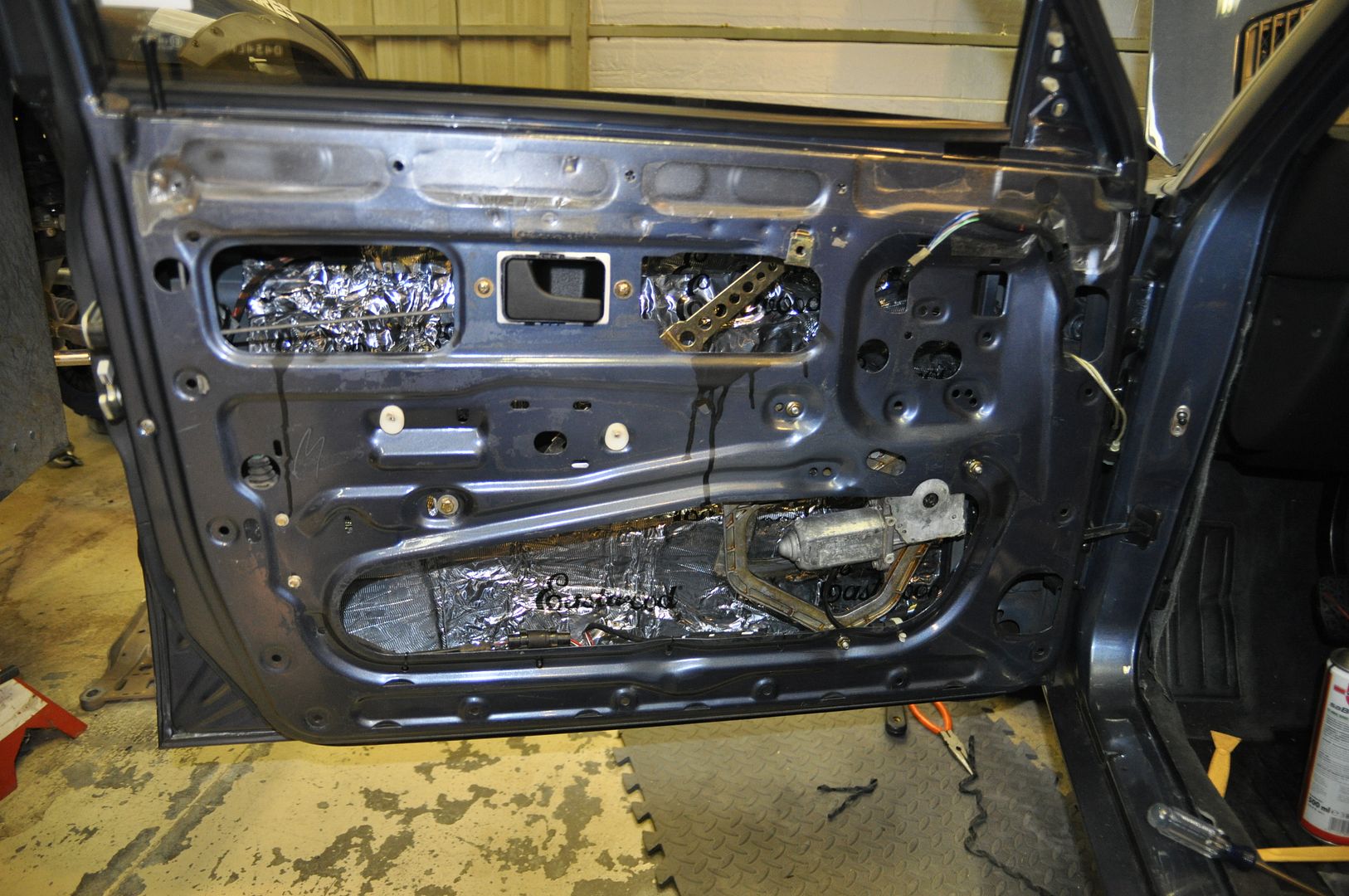
Step 2: Make sure your window is fully closed so you have complete access to the inside of the door. Locate the main wire loom as it runs along the bottom of the door panel and is clipped/zip-tied to the door itself. There are smaller wires running up to the side view mirror, the Premium tweeter speaker (if you have one) and one to the door lock. There are 4 connectors of varying sizes and shapes, the largest barrel connector going to the window motor. Label and disconnect each connector and free up the loom from the clips and ties. The old cloth tape will either be disintegrating, extremely dirty, sticky and tacky or all of the above. It is not a bad idea or practice to remove as much of the old tape as possible and apply new Tessa cloth tape. But before you do that, go disconnect the ground on the battery because the next step involves cutting off all the connectors on the wire loom. If you don’t, the central lock system will trigger as soon as it loses the ground connection at the door lock module (be sure to both label and photo each one and leave as much wire as possible before the connector for splicing in later). Trust me, the first door I tried I only cut off two or the largest connectors (one barrel and one flat square) and then spent the next few hours struggling to fish the loom and connectors through the new rubber boot. Even with wire snakes and Electrician’s wire lube, it wasn’t happening. Don’t fight it, just snip the connectors off and be sure you have a lot of the proper sized butt connectors and heat shrink tubing for the repairs (along with a good heat gun).
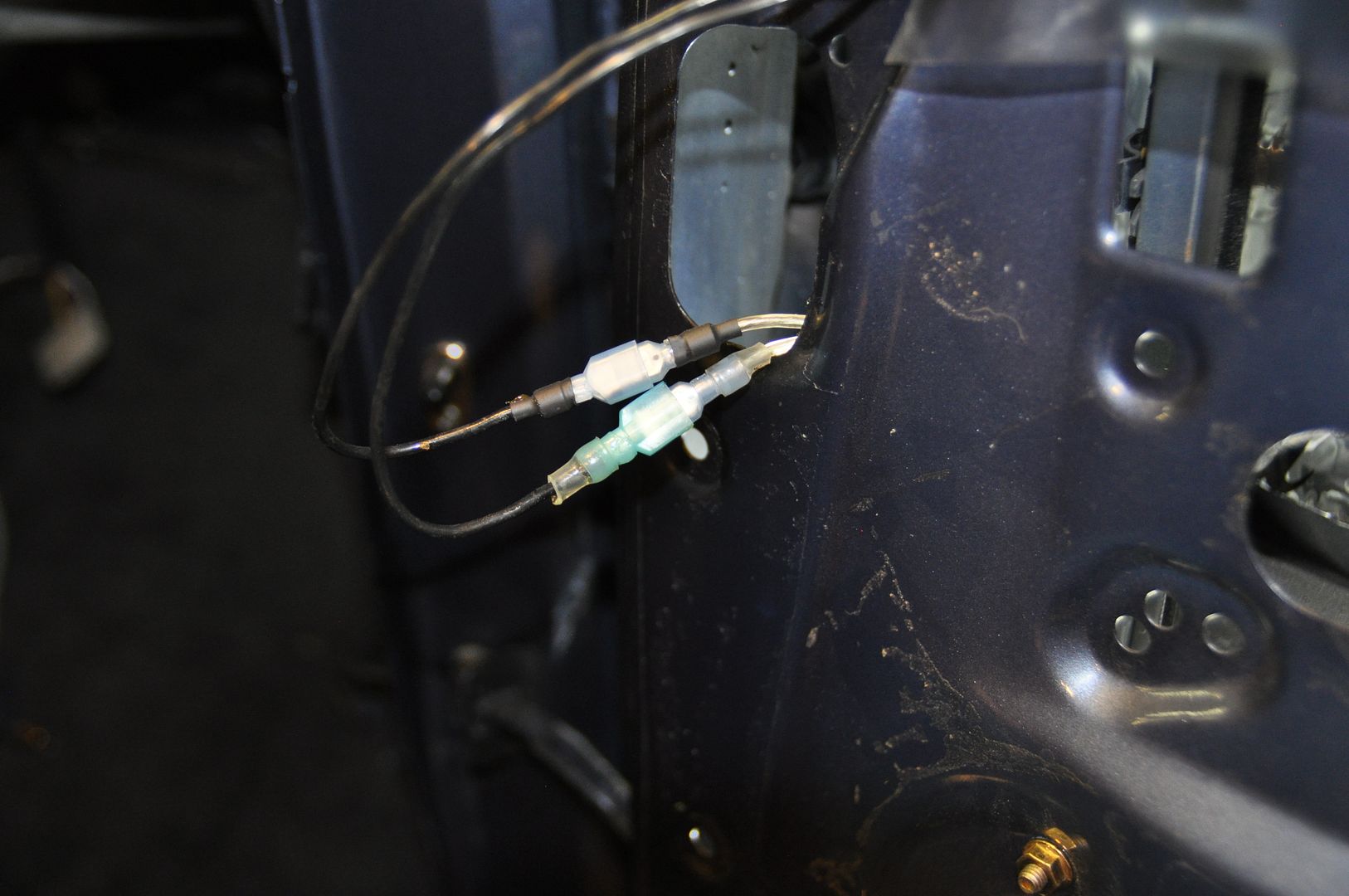
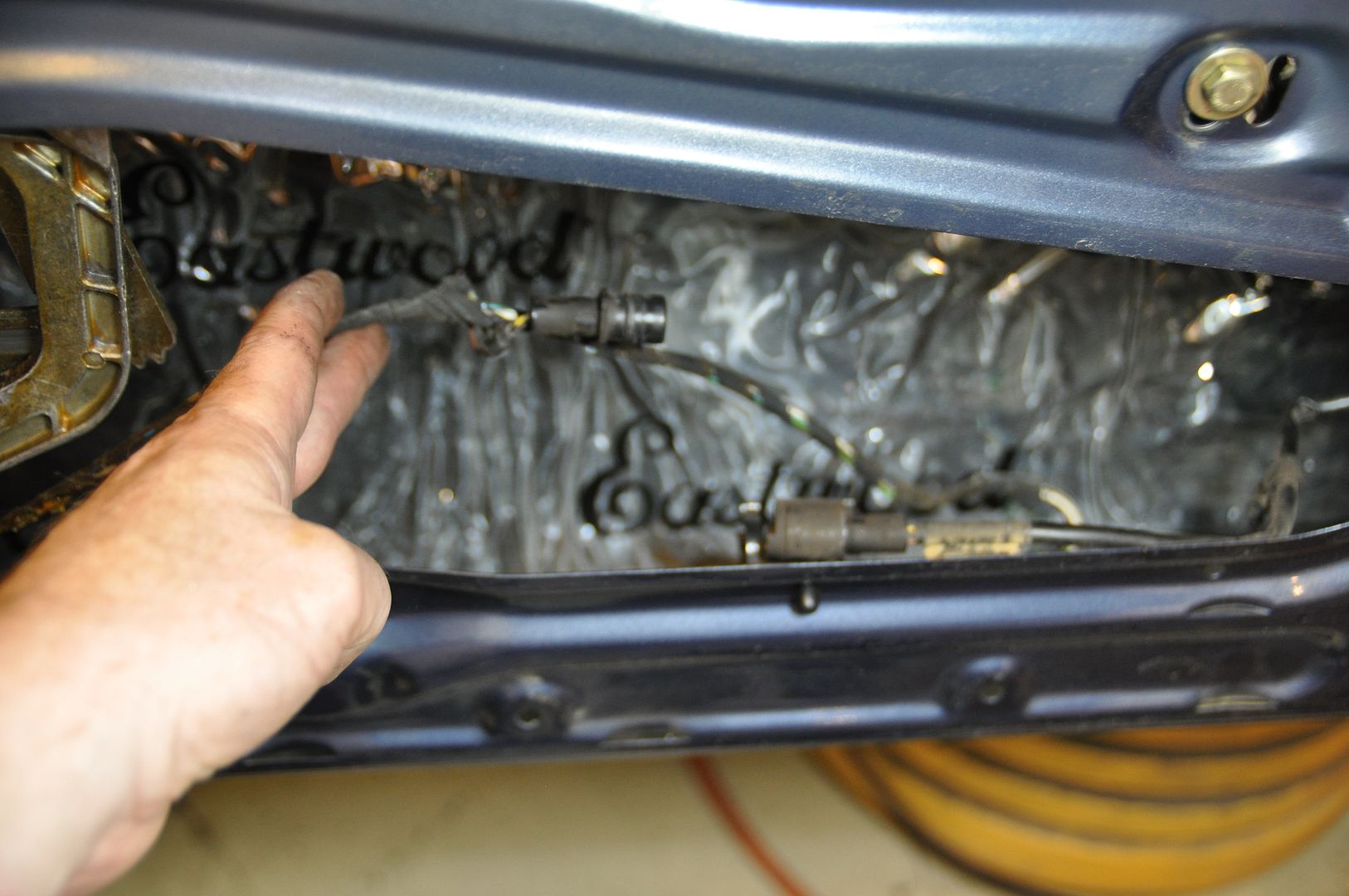
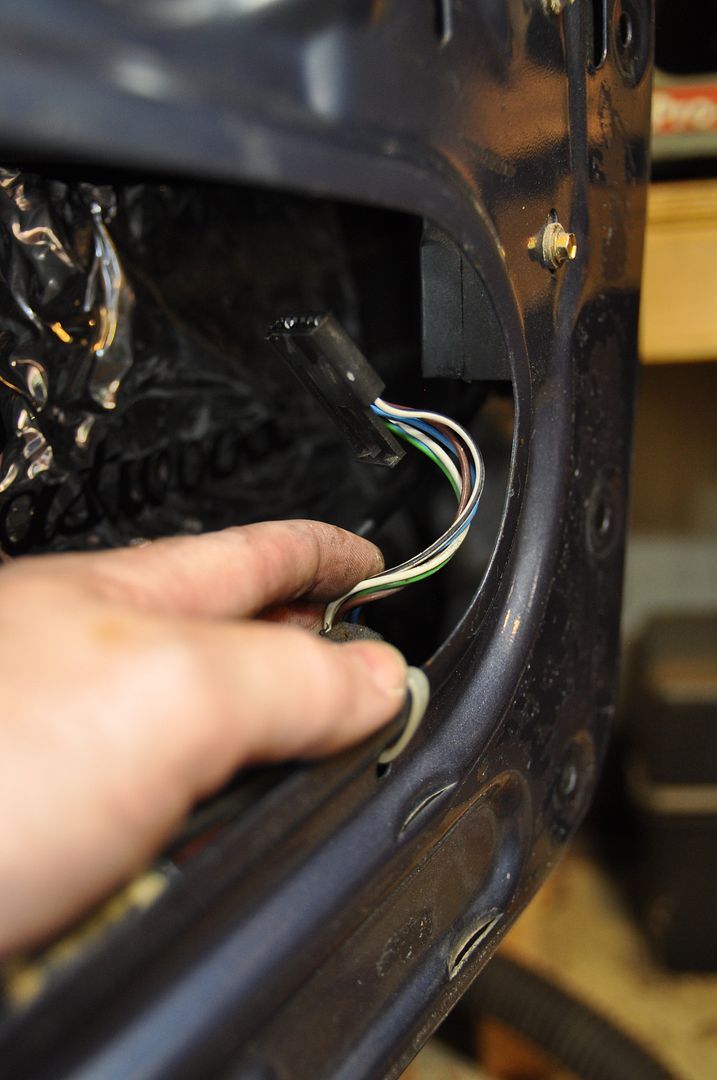
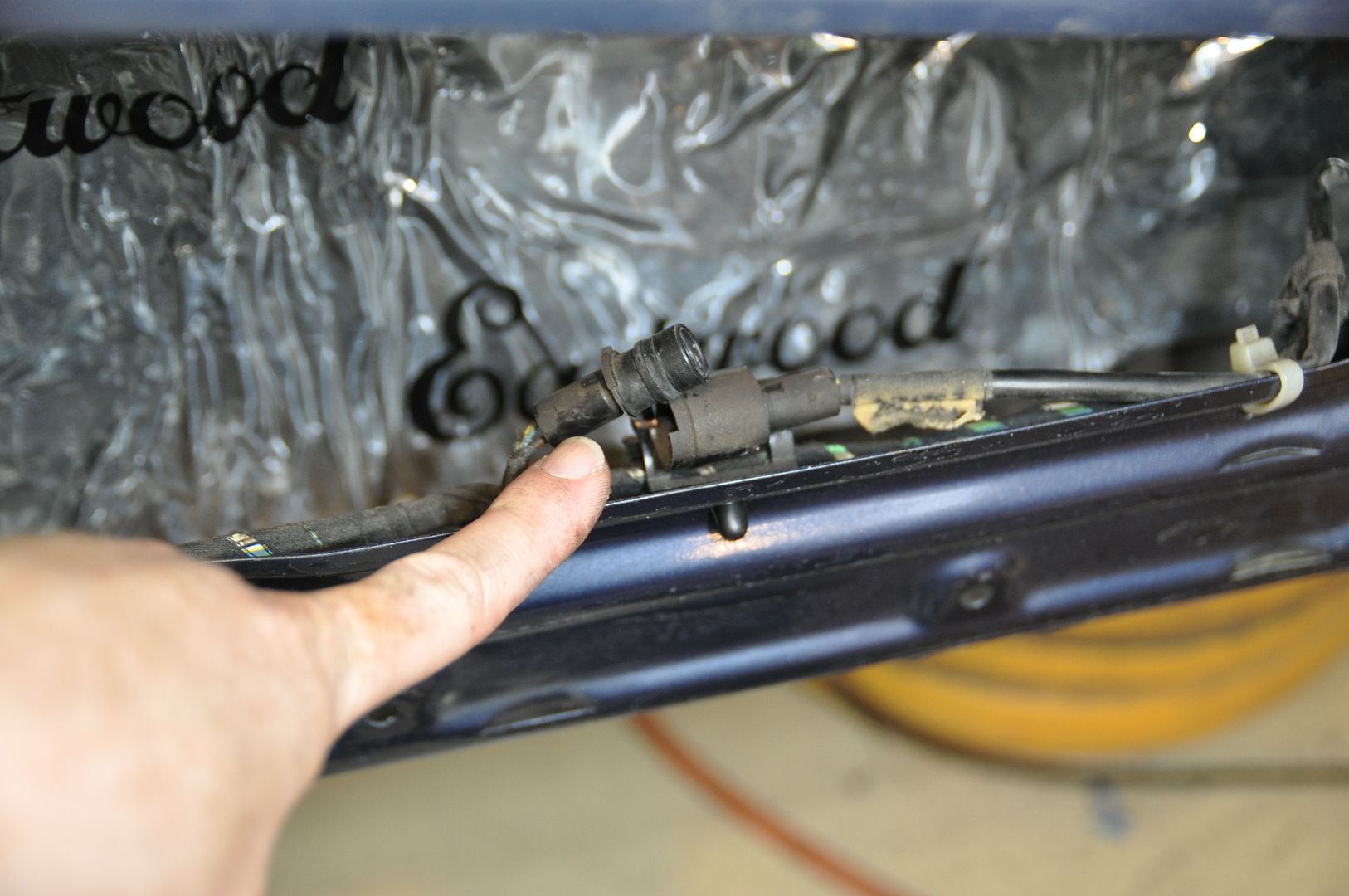
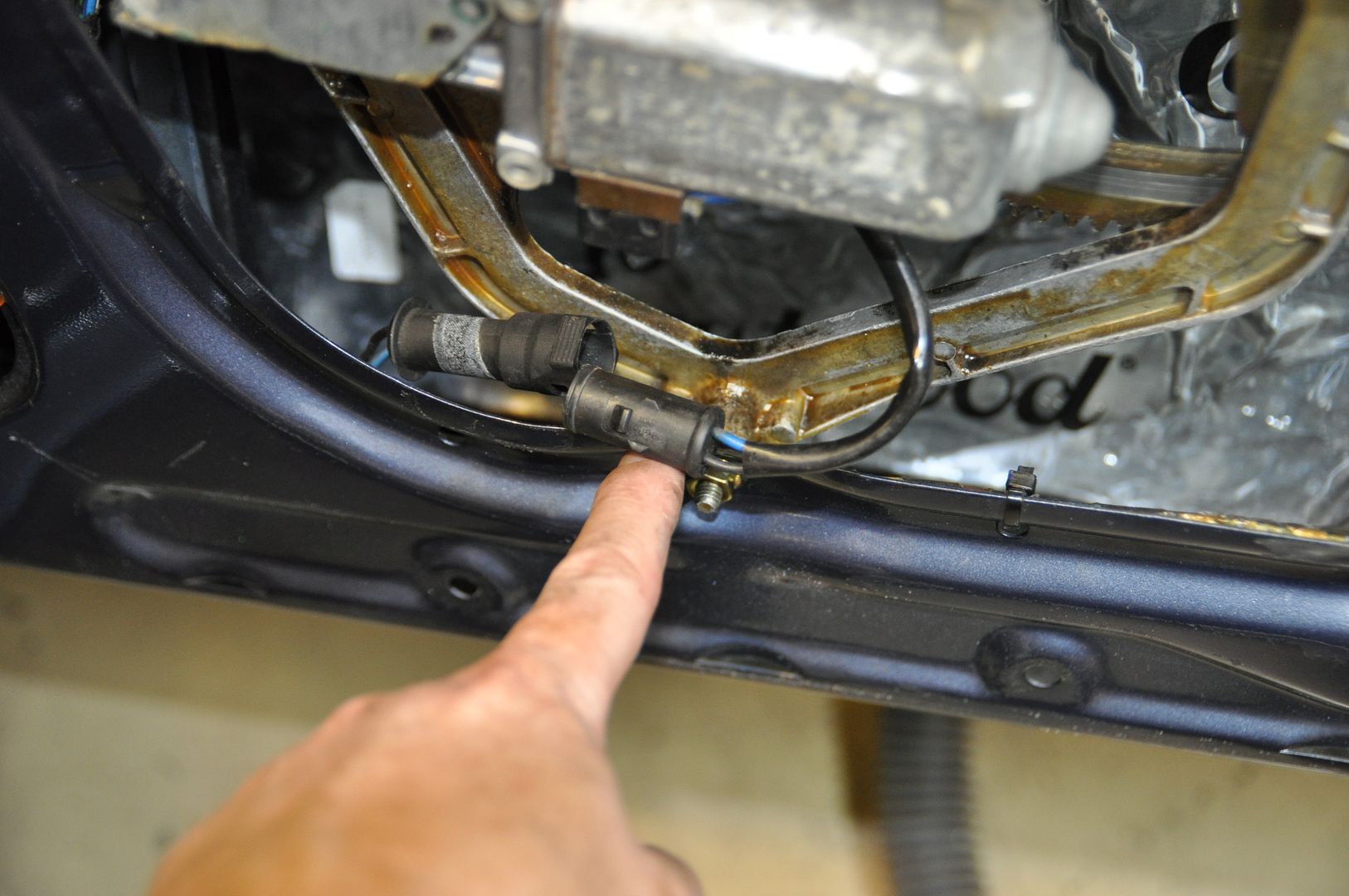
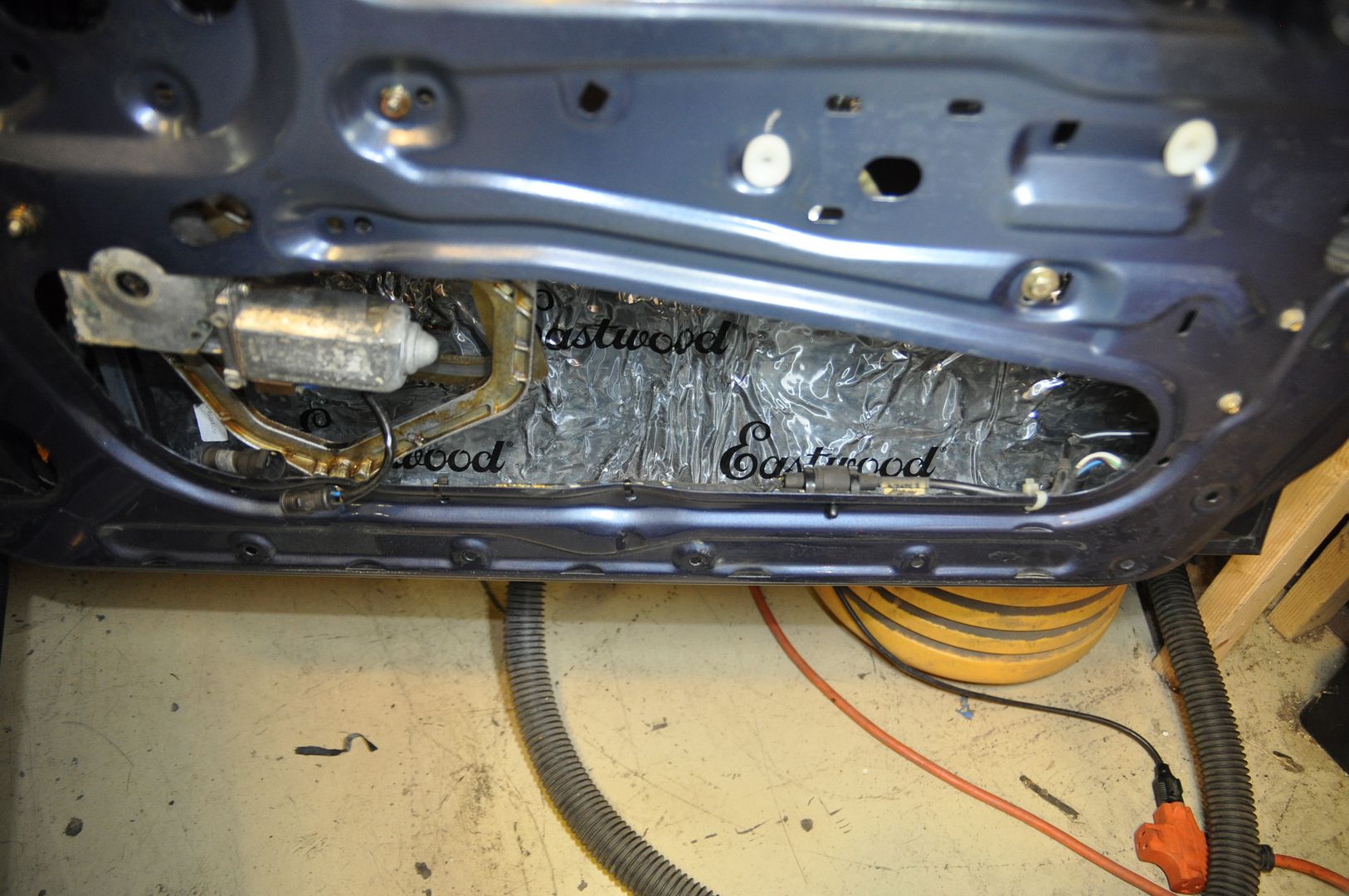
Step 3: Once that is done, go into the door jamb and carefully pry out the existing rubber boot from both the door and the body (be sure to use plastic trim tools so as not to scratch the paint). These may actually fall apart if they’re that far gone. Then pull the wire loom out through the door panel; it is lapped up and down and sideways around the window guide rails and other objects so you will have to get in there and fish it along (it’s a good idea to where long sleeves and HD nitrile gloves since you’re bound to catch your arm or hands on something sharp in there). Remove the existing rubber boot, or what’s left of it and toss it in the trash (or give it a Viking Funeral as it served you well for many decades and deserves your respect).
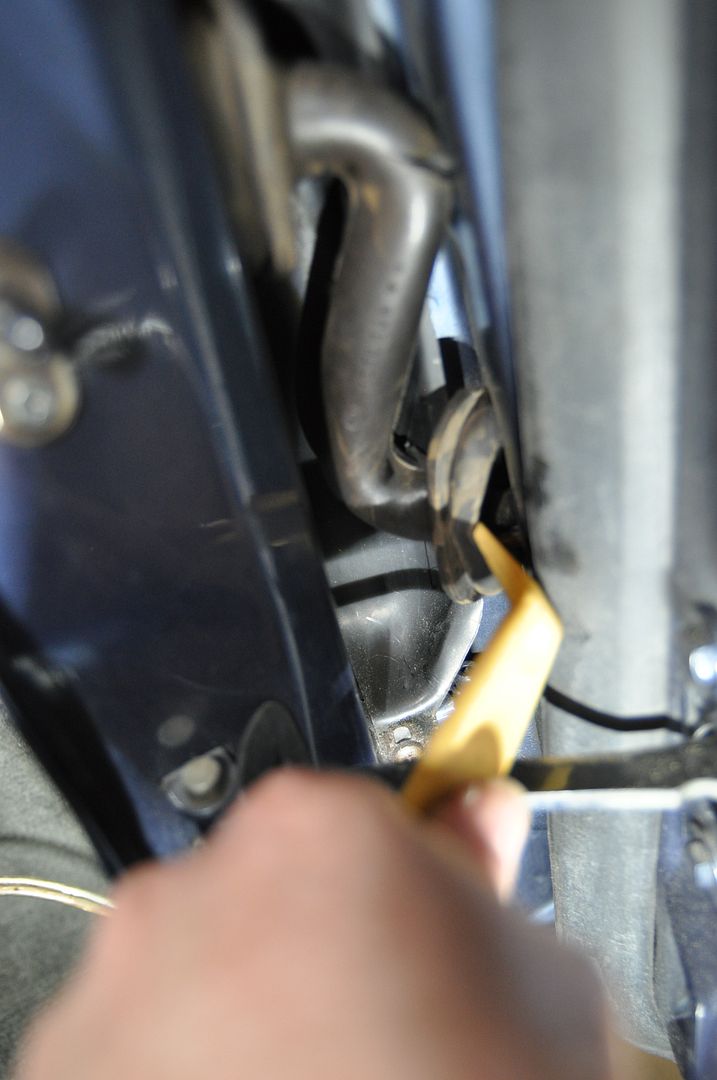
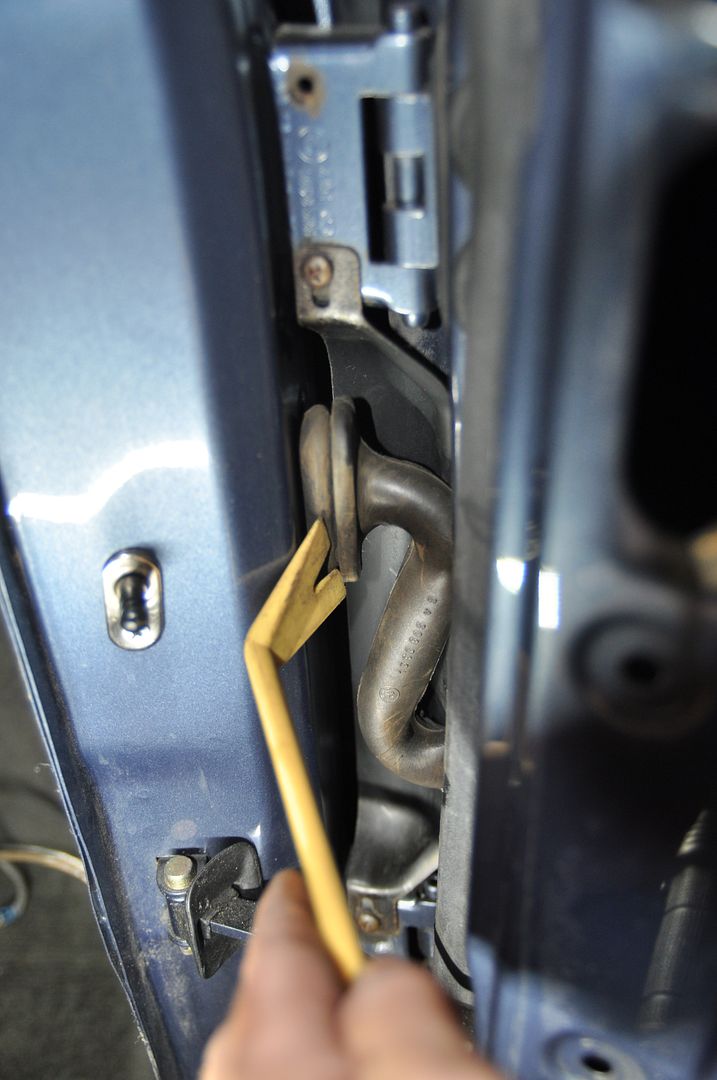
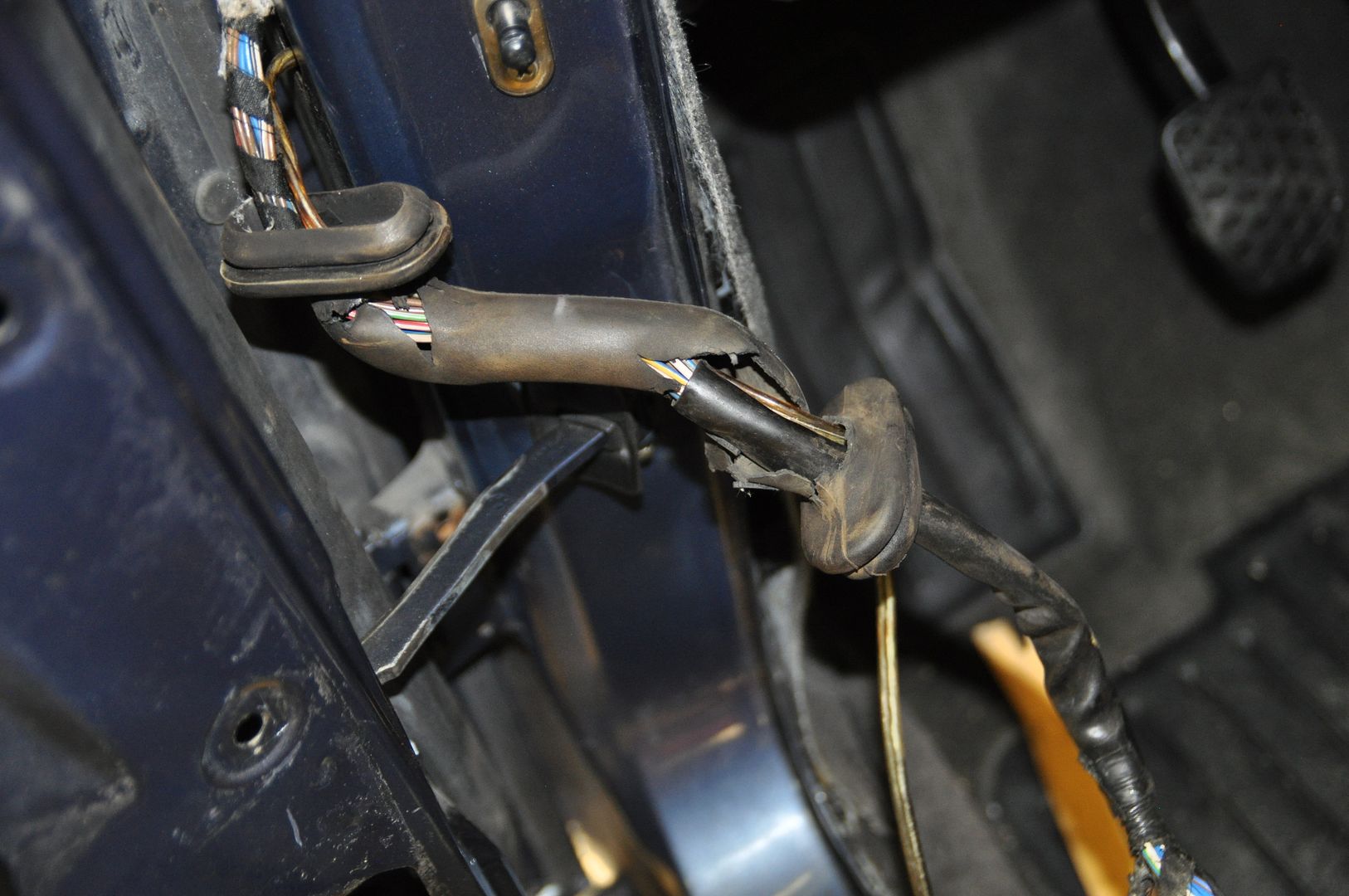
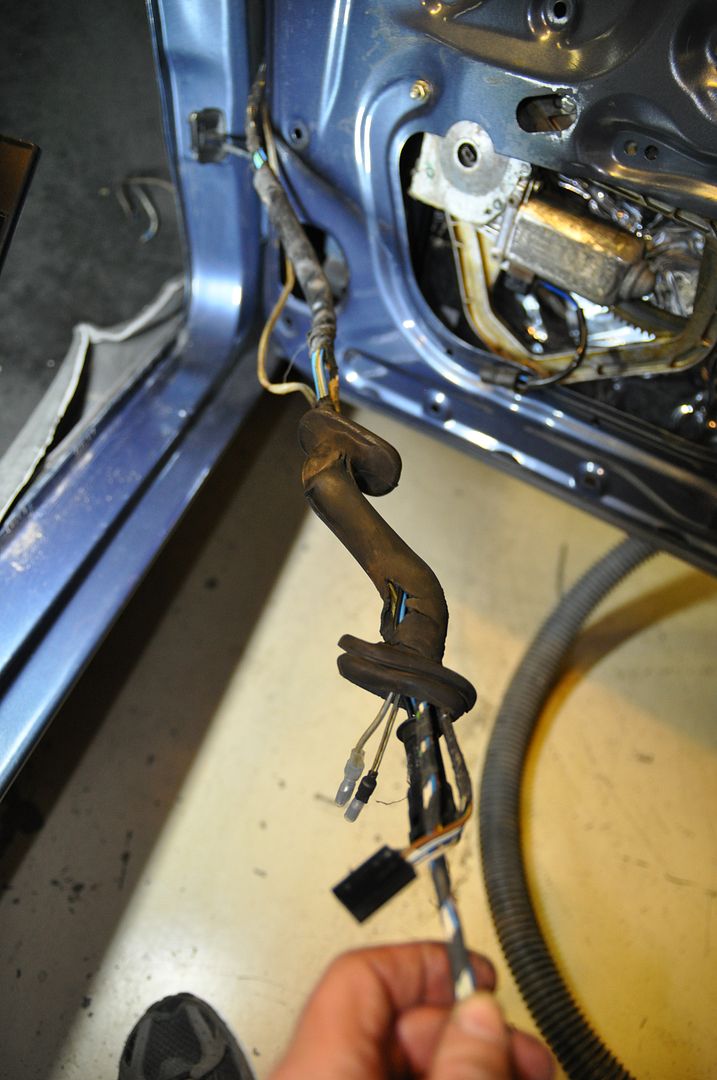
With the rubber boot and wire loom out of the way, you now can access the metal backing cup/plate. It is likely this plate is suffering from the elements also, there are two small Phillips screws holding it to the body that are likely rusted. Shoot some PB Blaster in there and wait to pull them out. If yours looks like mine did, you need to sand/grind off the rust on the plate and re-paint it. You may need to address the screw holes in the body as well; a narrow brass wire brush gets in the holes and cleans them out nicely. If you have some body paint, Q-Tip a light layer into the holes to protect the metal (otherwise any black Rust Block primer works also in a pinch).
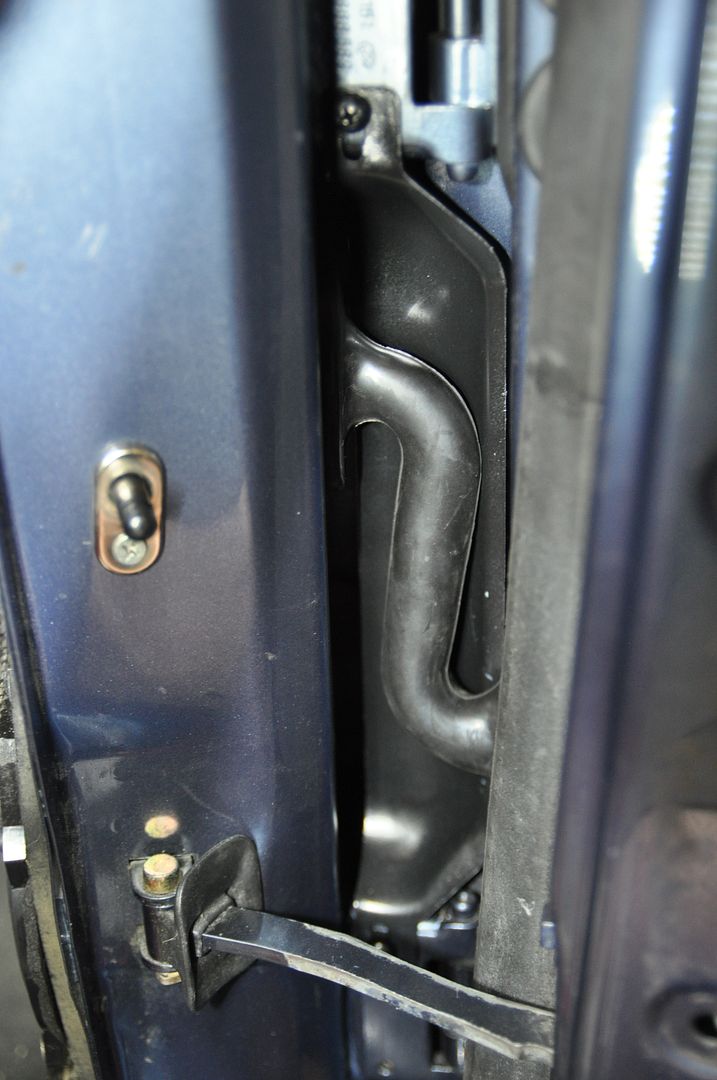
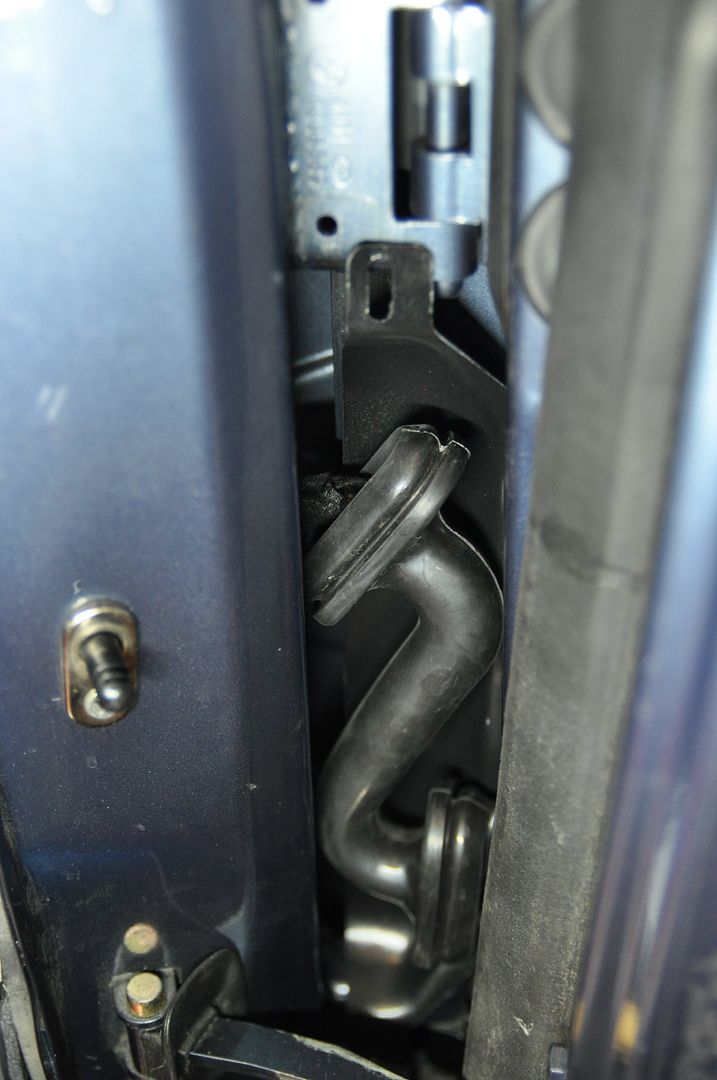
Step 4: Now onto the fun part: Installing the new Boot. This is not particularly hard now that you have removed the connectors, but the S-shape to the boot takes some effort to get the whole loom with the smaller pig-tails through it. I found a large pair of medical forceps and long thin Phillips screwdriver makes this easier. Once that is done, go about re-installing the wire connectors, it’s a very Zen exercise:
-Strip the wires
-Crimp on quality bare butt connectors
-Melt on proper sized heat shrink tape over the connectors (be sure to stagger the connectors in the loom)
-Cloth tape the whole loom to cover everything
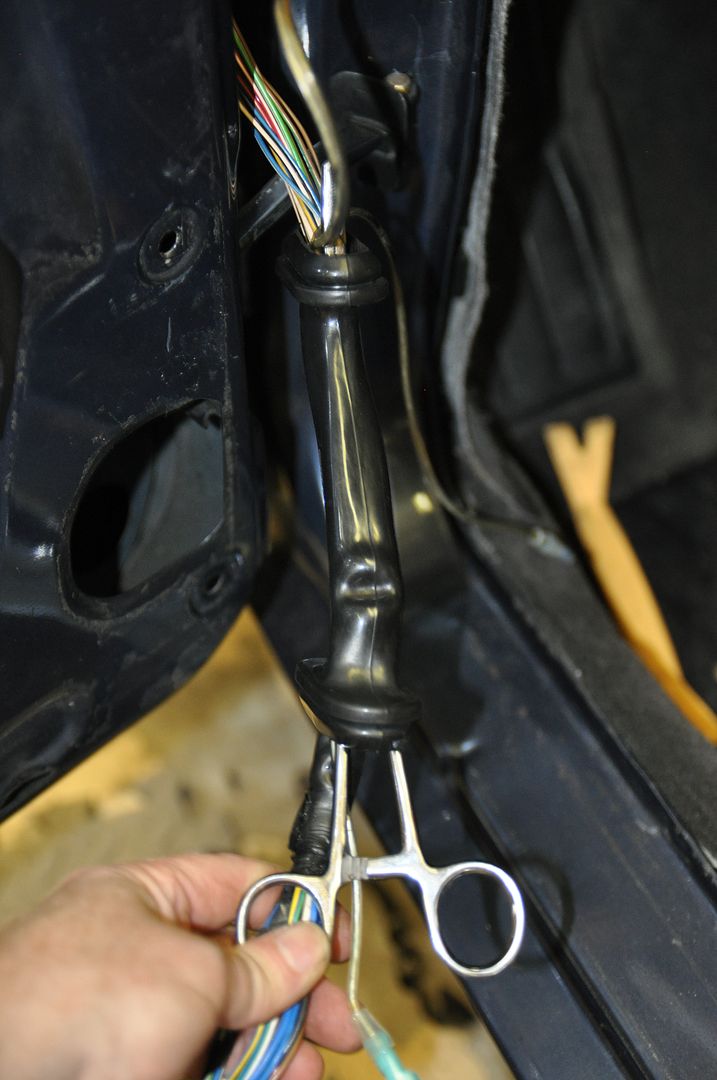
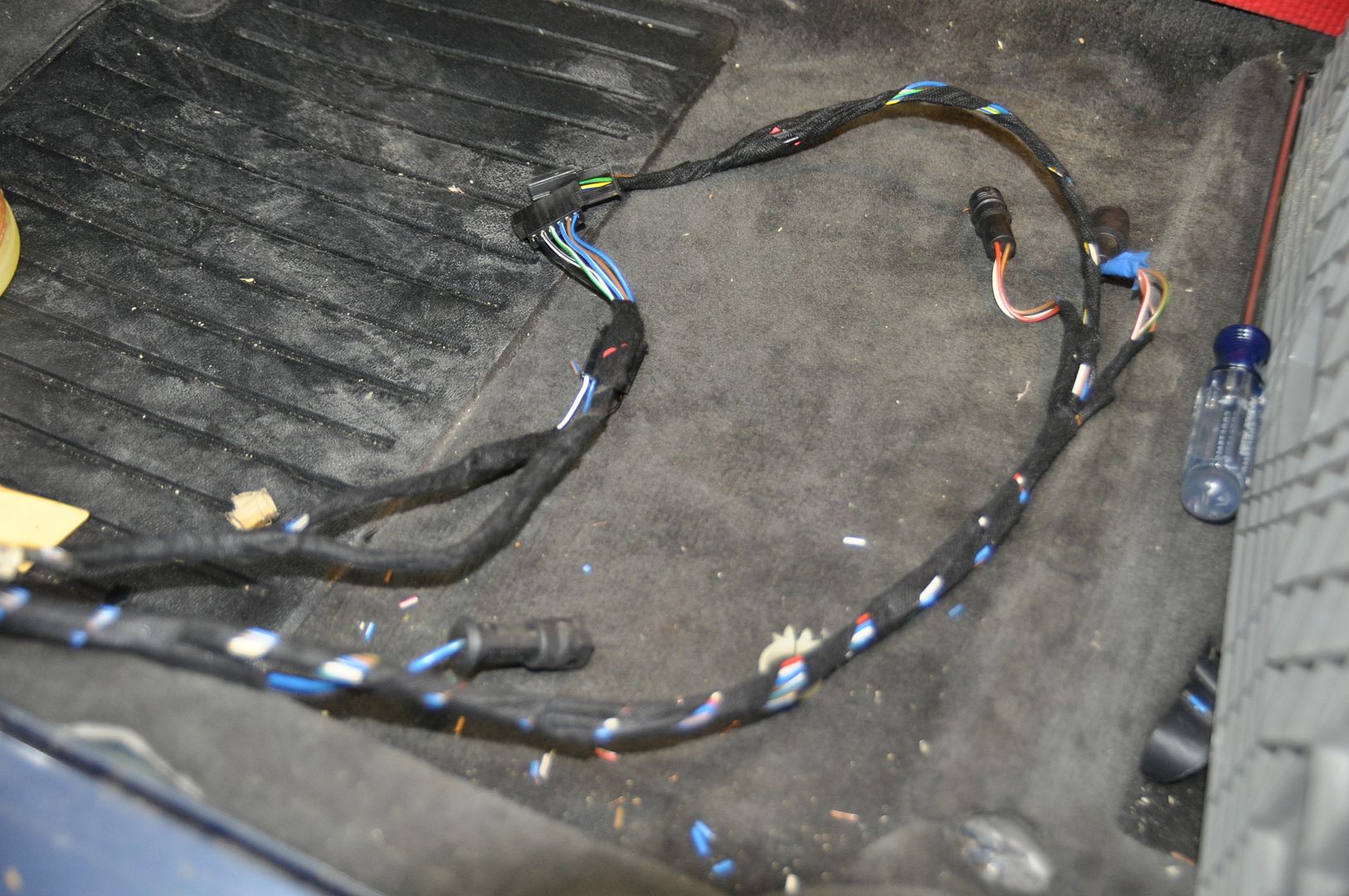
Step 5: Re-install the wire loom back through the door and around the window lifter guides. Re-connect the connectors and clip/zip-tie the loom back to the panel. It’s important to put it all back the way it was so you avoid trouble when you raise and lower the window. Re-connect the battery and test everything before you button up the door panel. Slip the new wire boot into the door and body openings, using the plastic trim tools is necessary.
Step 6: Re-install the interior Door Panel and Cap and all the trim plus the door latch handle. This includes the new vapor barrier of your choice (you can see what I did below).
Done. I am assuming the rear door boots are similar but I haven’t seen these yet from Ivo.
[As of this posting, Ivo released a picture of these but are not yet ready for sale.]
FINAL DOOR PANEL FINISHING:
I didn’t mention this earlier, but this is the opportune time to clean out the interior of the doors, address any rust, clean out the weep/drain holes and maybe even clean and lube the Window Lifter Regulators (this requires a complete disassembly of the window and exterior trim, but you’re a quarter of the way there with the door open, so perfect time for mission creep).
As part of my continuing efforts at sound and thermal control I replaced my Con-Tact poly liner vapor barrier with a more substantial product (although I did apply a layer of the Con-Tact to the back of the Interior Door panel on the new hard tempered board I used. It is not really needed but I had a roll of the stuff and thought why not?).
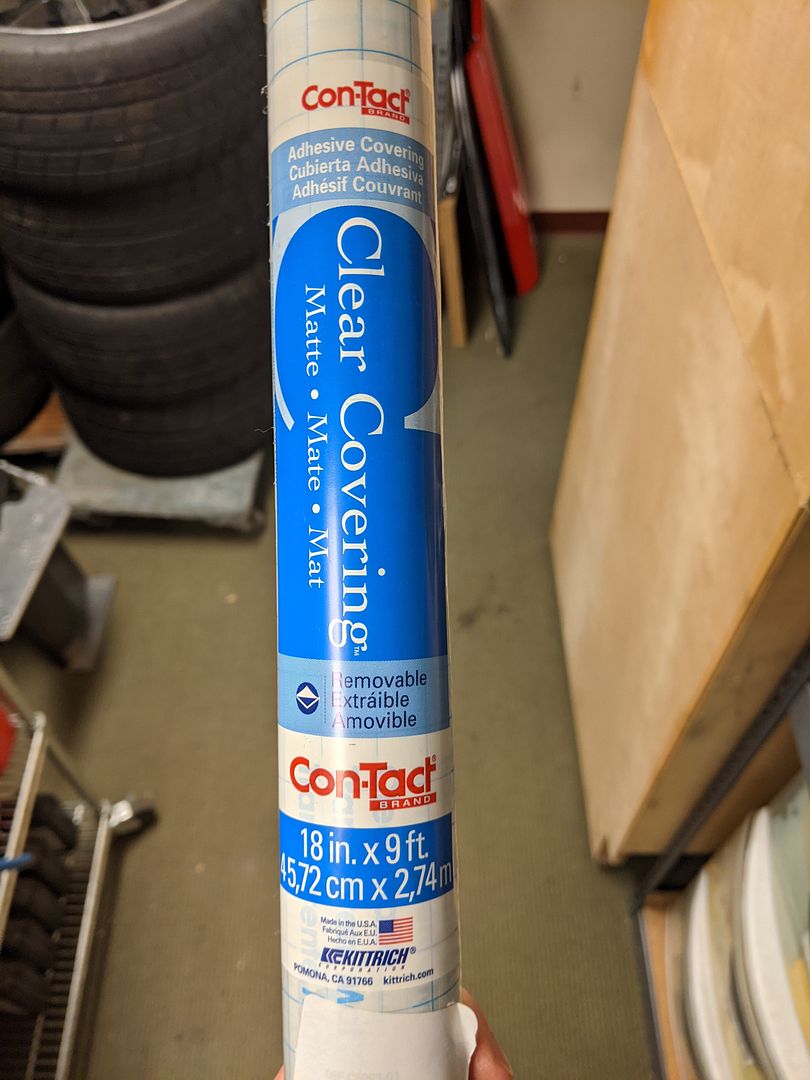
My barrier product of choice was (yet another) Heatshield Products item: db Defender Door Panel Sound Insulation(https://www.heatshieldproducts.com/soun ... b-defender). It's 0.045” vinyl dampening sheet with a self-adhesive backing that has some substance. It’s a good idea to unroll this stuff and let it uncurl in the sun.
I found the best way start was to template the Door Panel by tracing it on the material to get the correct size and shape. Then hold it on the door to mark the holes for the clips, door latch and other handle trim connections. The stuff is easy to cut and trim with an X-acto knife or other small sharp blade.
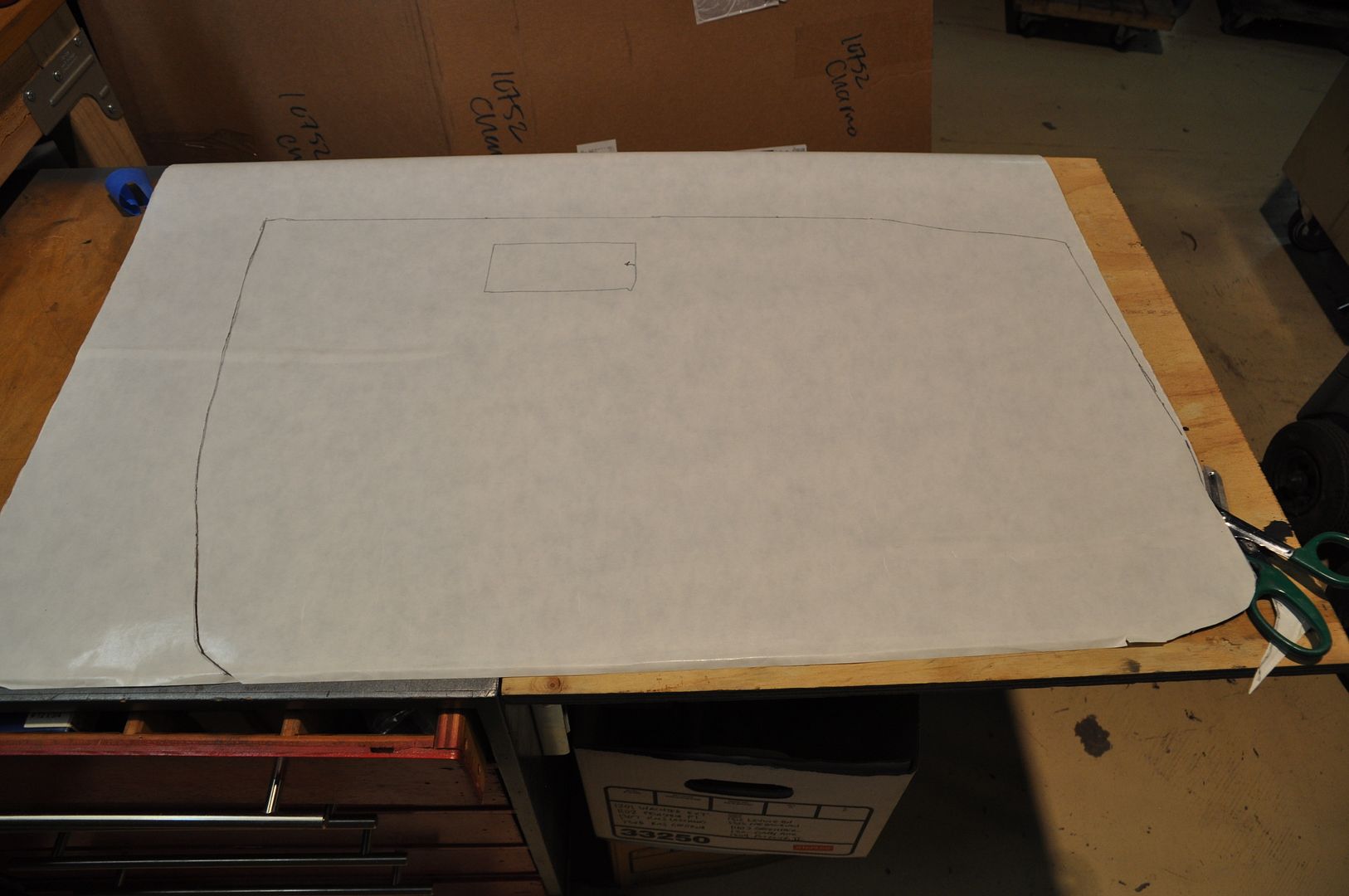
Thoroughly clean the door and hit it with some denatured alcohol then peel off the backing paper on the Defender as you start fitting it to the door. A rubber roller is a good tool for pressing it onto the door. Once it is firmly pressed onto the door, follow the instruction and hit it with the heat gun to get it to adhere come completely (although this step didn’t really achieve the results they show in the instructions, it kind of shrunk only a tiny amount). At this thickness the Defender doesn’t really add much dimension to the overall interior assembly so it didn’t interfere with any of the clips or connectors and I was able to get a solid panel contact.
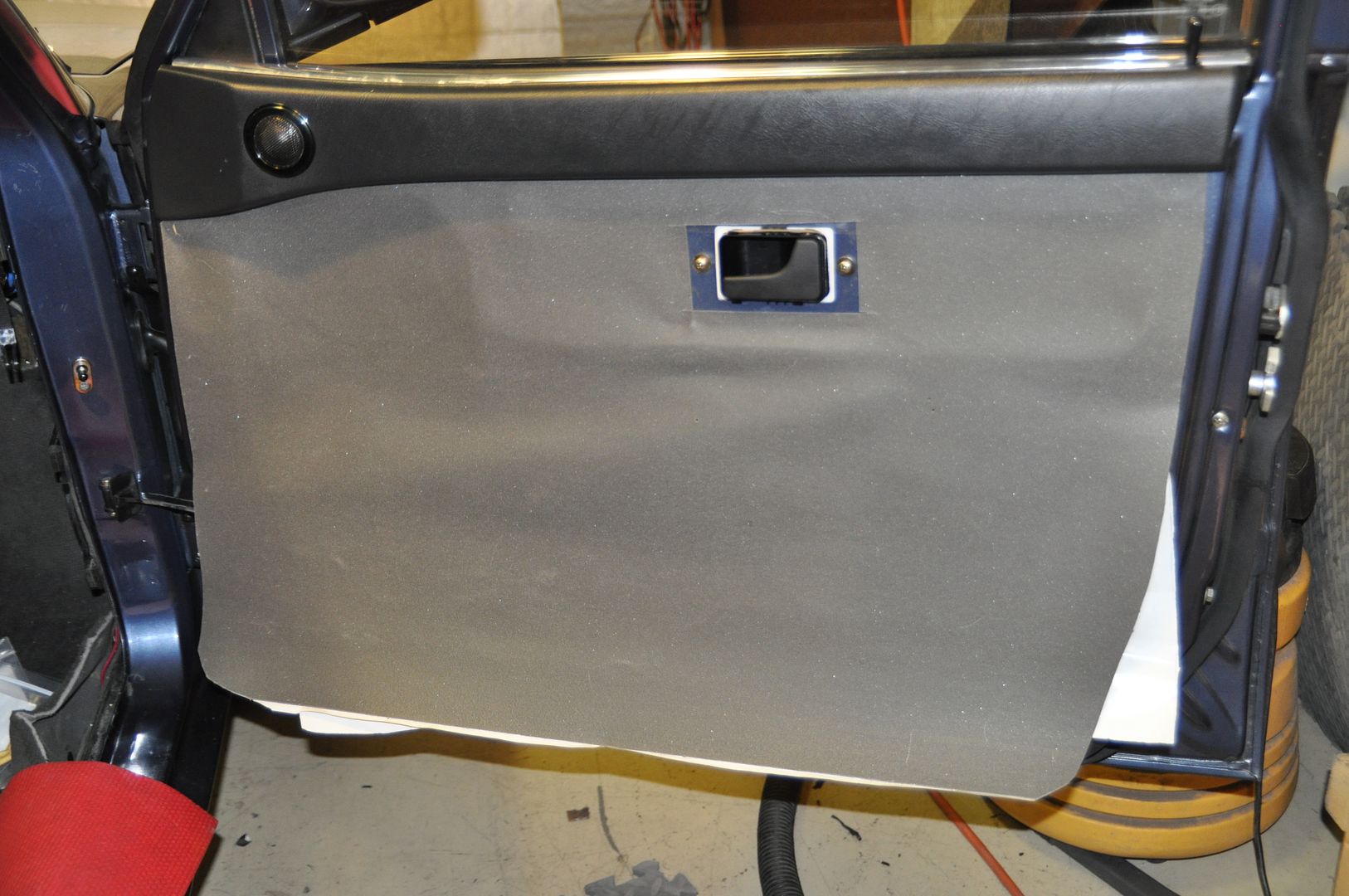
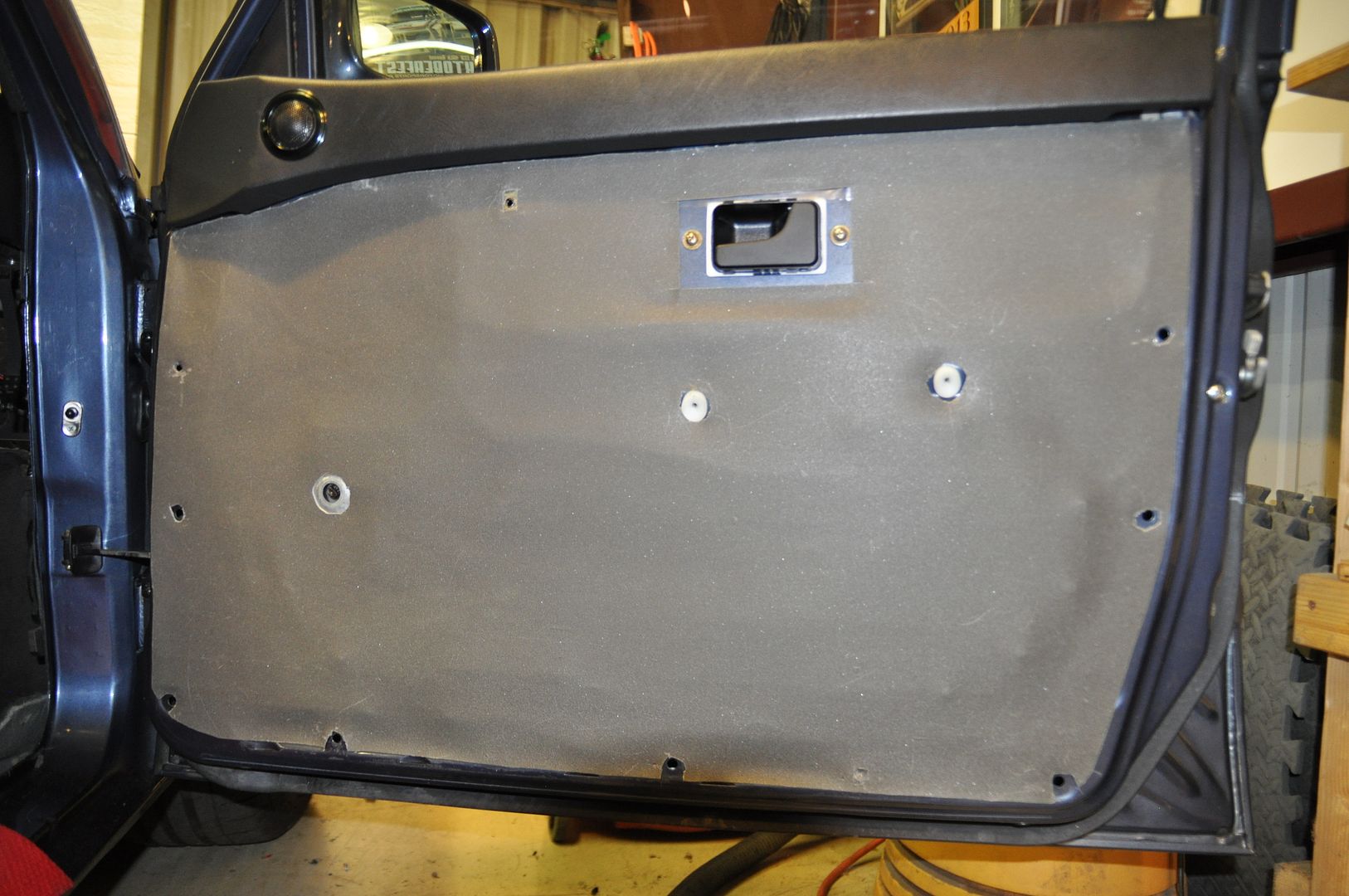
On that note, be sure to buy a good amount of those stupid plastic panel clips (PN: 51-41-1-870-718). BMW has changed this design little in the ensuing years (the only difference is now they are bright green instead of clear white). They are next to impossible to get out cleanly and break if you look at them funny; doubly so if you miss the hole in the door and crush them when trying to fit the panel. They are relatively inexpensive and very available from all vendors (buy 2x to 3x more than you think because your WILL break a bunch).
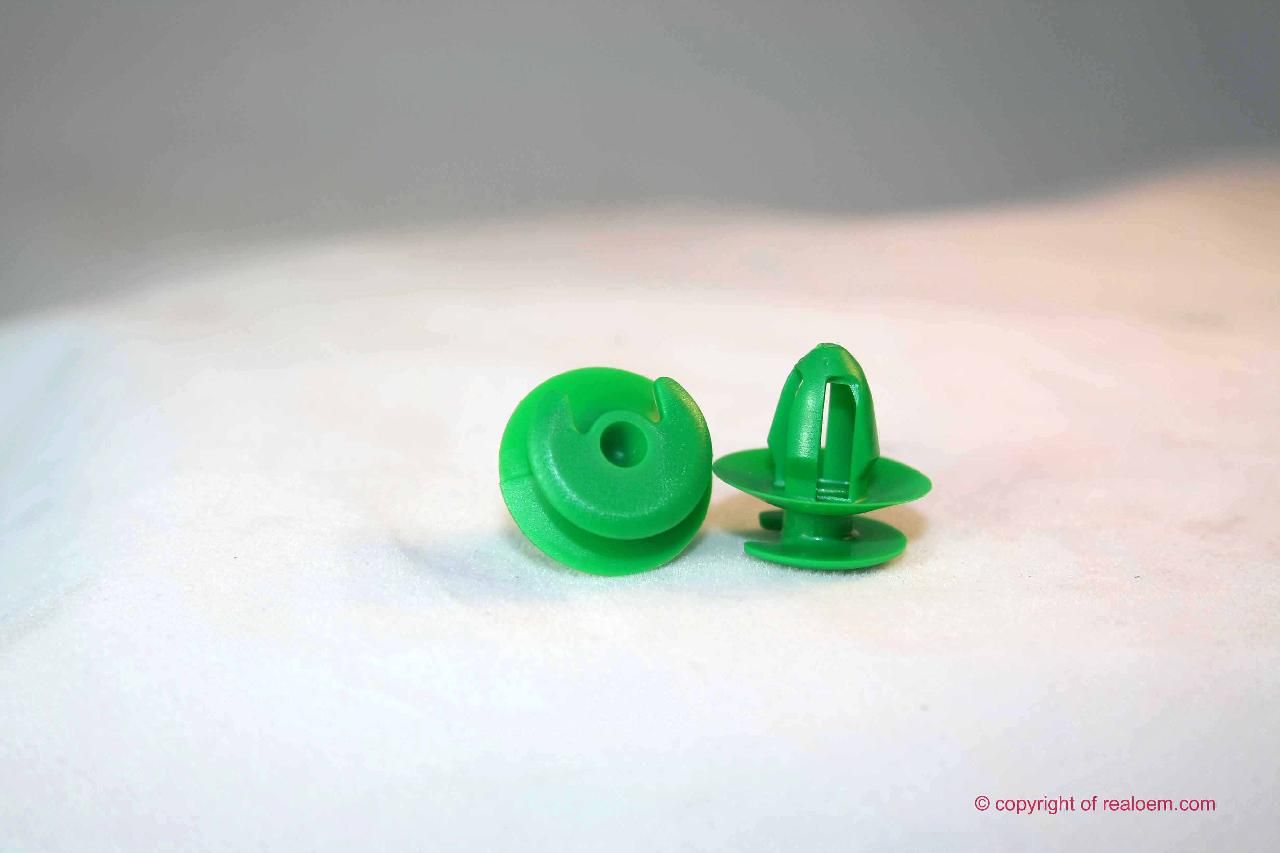
Wash, Rinse, Repeat for the other three doors.
Done with those, onto the next items.
[Since I don’t have the Rear Wire Boots yet and I still have to replace the exterior Window Trim on one of the rear doors, I held off doing all that to the Rear Doors. I simply installed the interior Door Panels back on with the existing poly vapor barrier (I had replaced this with Con-Tact film 5 years ago during the last project). When I get the Boots I will go back into the Rear Doors.]
INTERIOR TRIM:
This is broad category since it involves buttoning up the remaining parts and components on the front dash, center console and misc. Some highlights:
Center Console: Parking Brake Handle & Gear Shift Knob and Boot
I highlight these because these were a cosmetic upgrade from stock (except for the Shift Boot as this is a BMW stock item in Anthracit).
Parking Brake Handle: The actual steel handle is covered by a thin molded plastic cover. Over the years it has likely seen better days and is straight-forward to replace. The part is still available from BMW and oddly one of the less expensive items (+/$10) you can get.
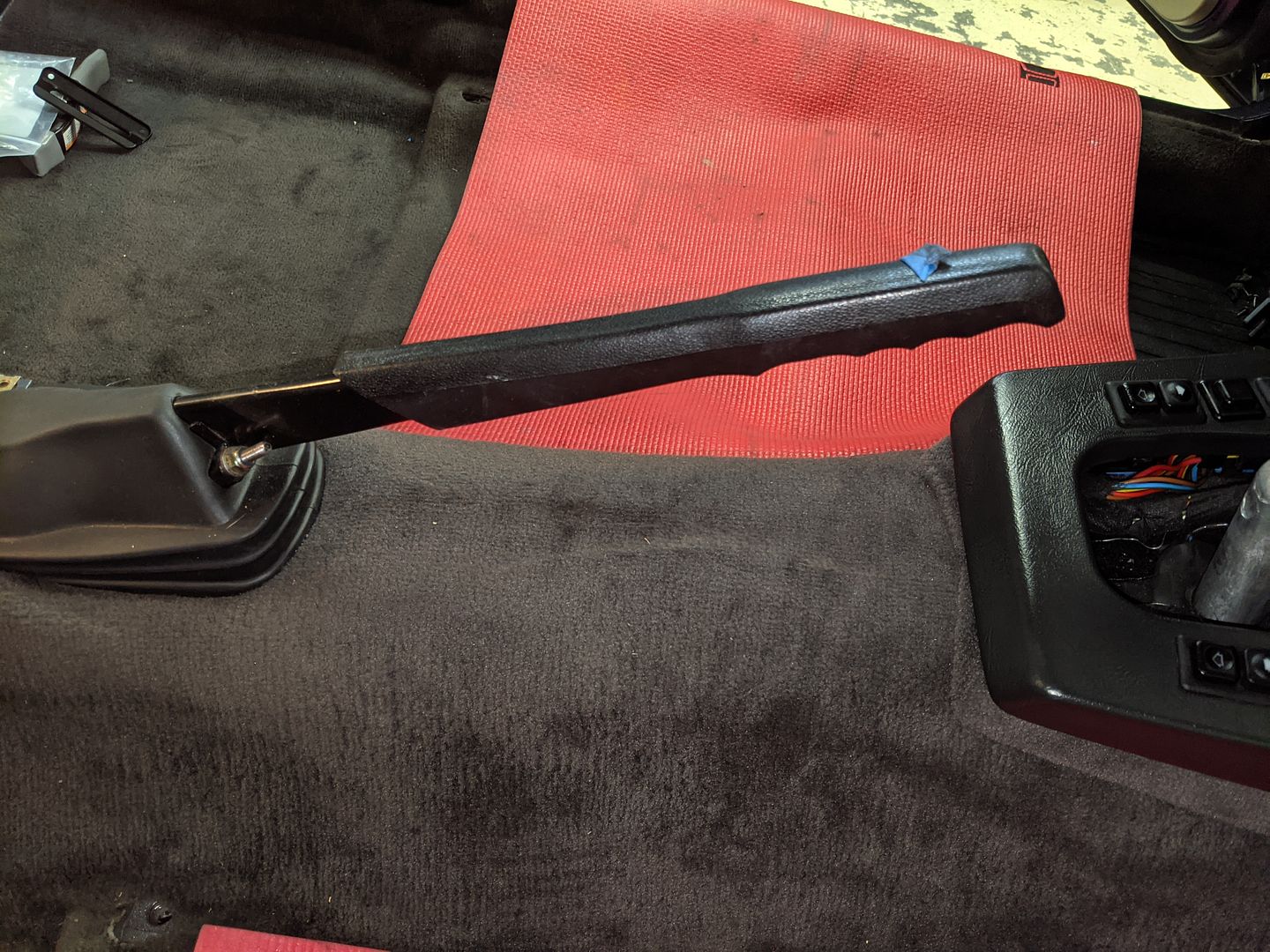
Getting the old one off is more of challenge since it is likely stuck on there after 30+ years but with some effort and long thin flat bladed screwdriver it will come off (I suppose you could cut it off in a pinch if it won’t budge). It is best to remove the entire Center Parking Brake Console before tackling this as it will be in the way. I opted to have the replacement covered in leather to match the new Steering Wheel materials. Chris Scow (www.LeatherWheels.com) did both for me exceedingly well. He actually called me to confirm how I wanted the stitching to be done on this handle; nice customer service.
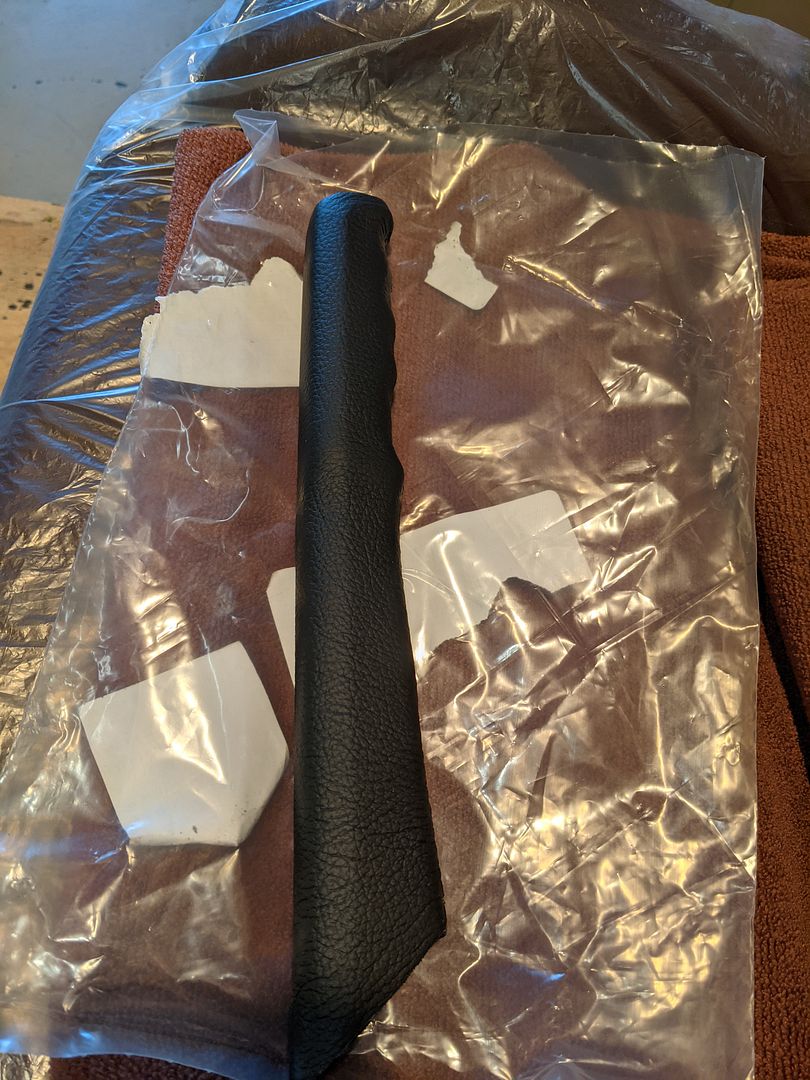
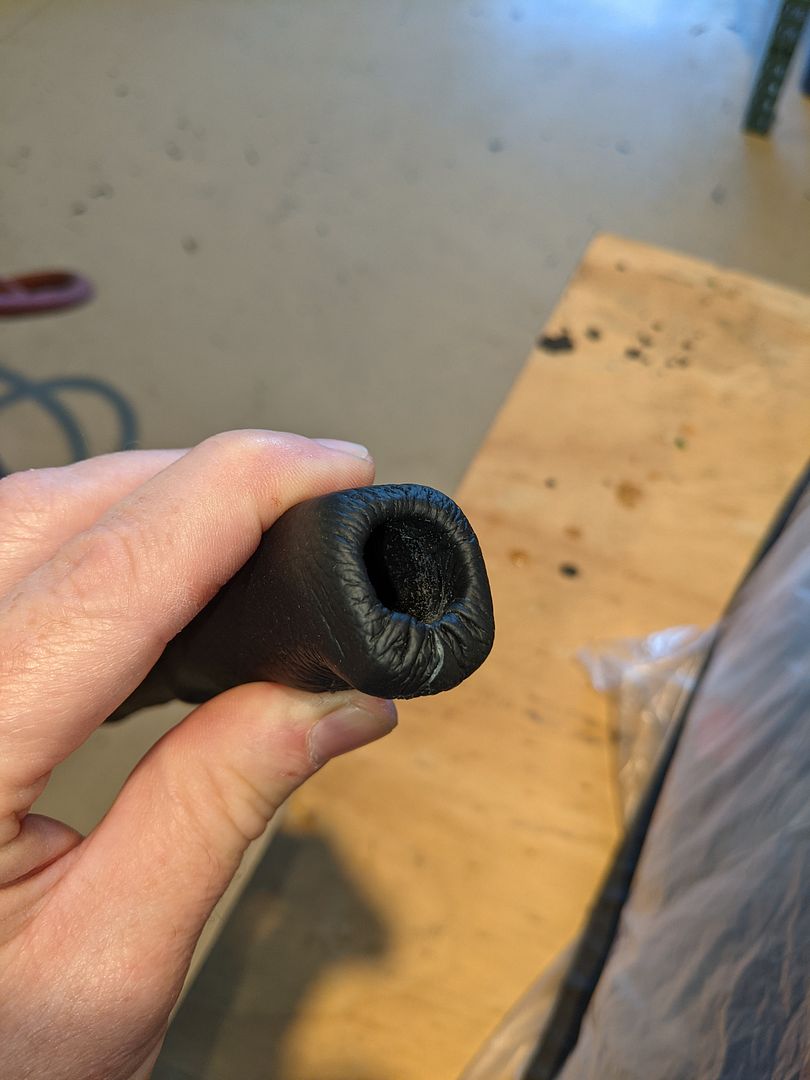
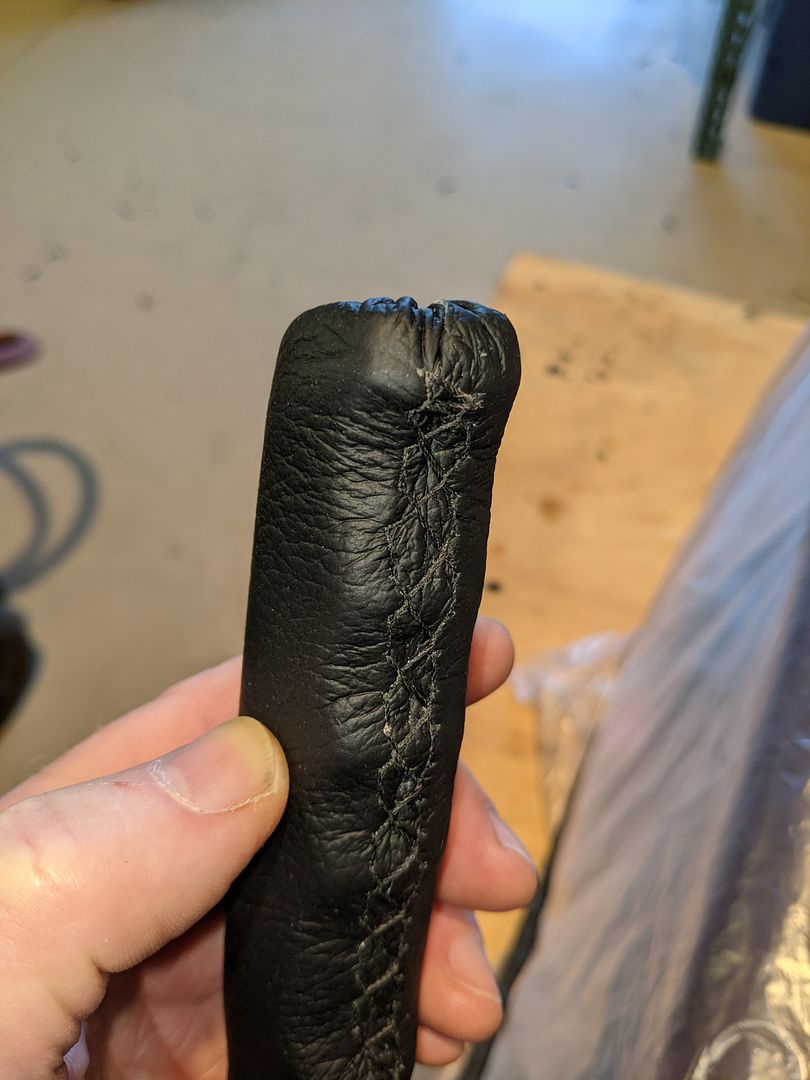
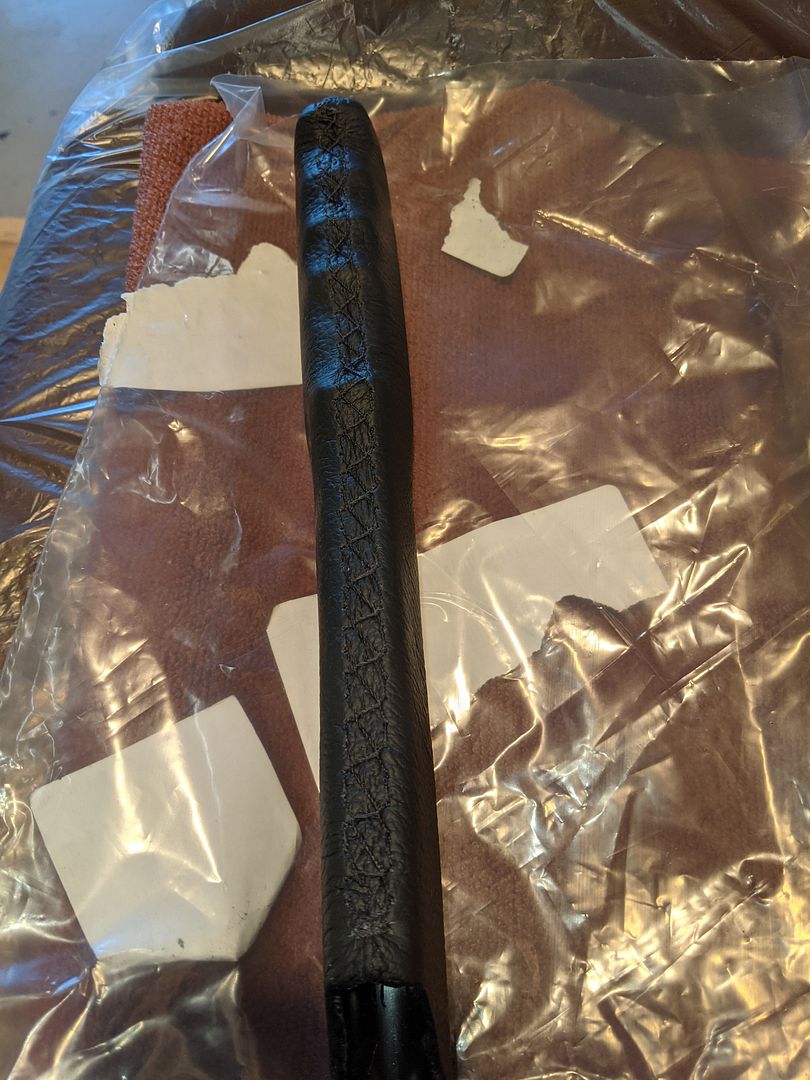
Installing the newly covered handle was a bit more challenging though since it was pretty obvious the leather tightened the handle so it had less expansion capability. It is a good idea to use something to ream into the handle cover to try to stretch it out somewhat. It took actually a large amount of effort to get the new cover down as far as I did before I called it “installed” (it is about ¼” shy of complete fitment but seeing as it took a socket, my 3 lb dead-blow hammer and a lot of electrician’s lube to get it down that far, I was happy I got that close. The button works and is accessible so I’m calling it a win). It looks and feels great and is a nice finishing touch to Center Console.
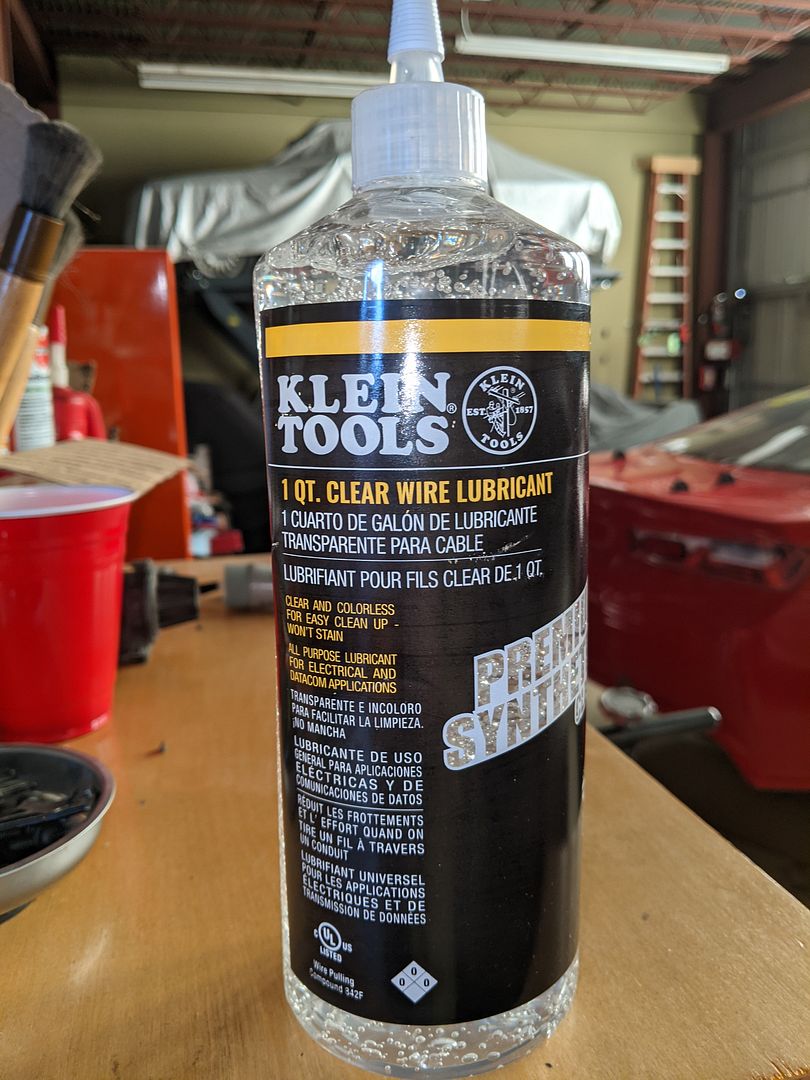
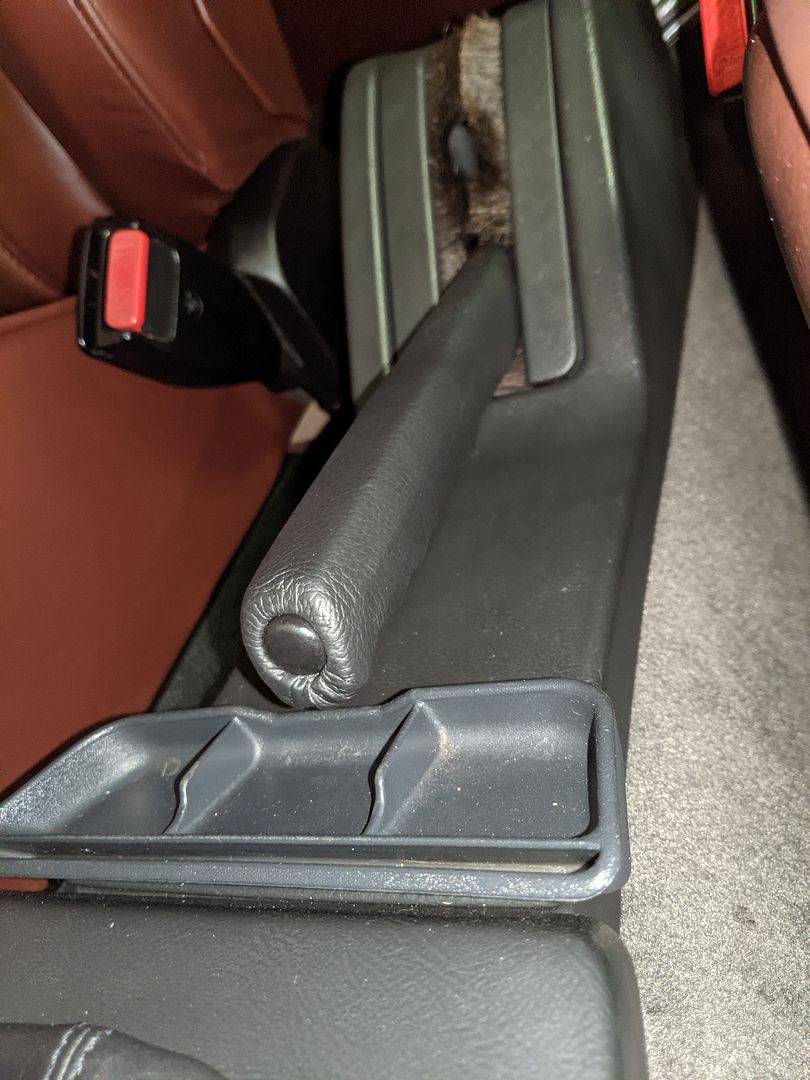
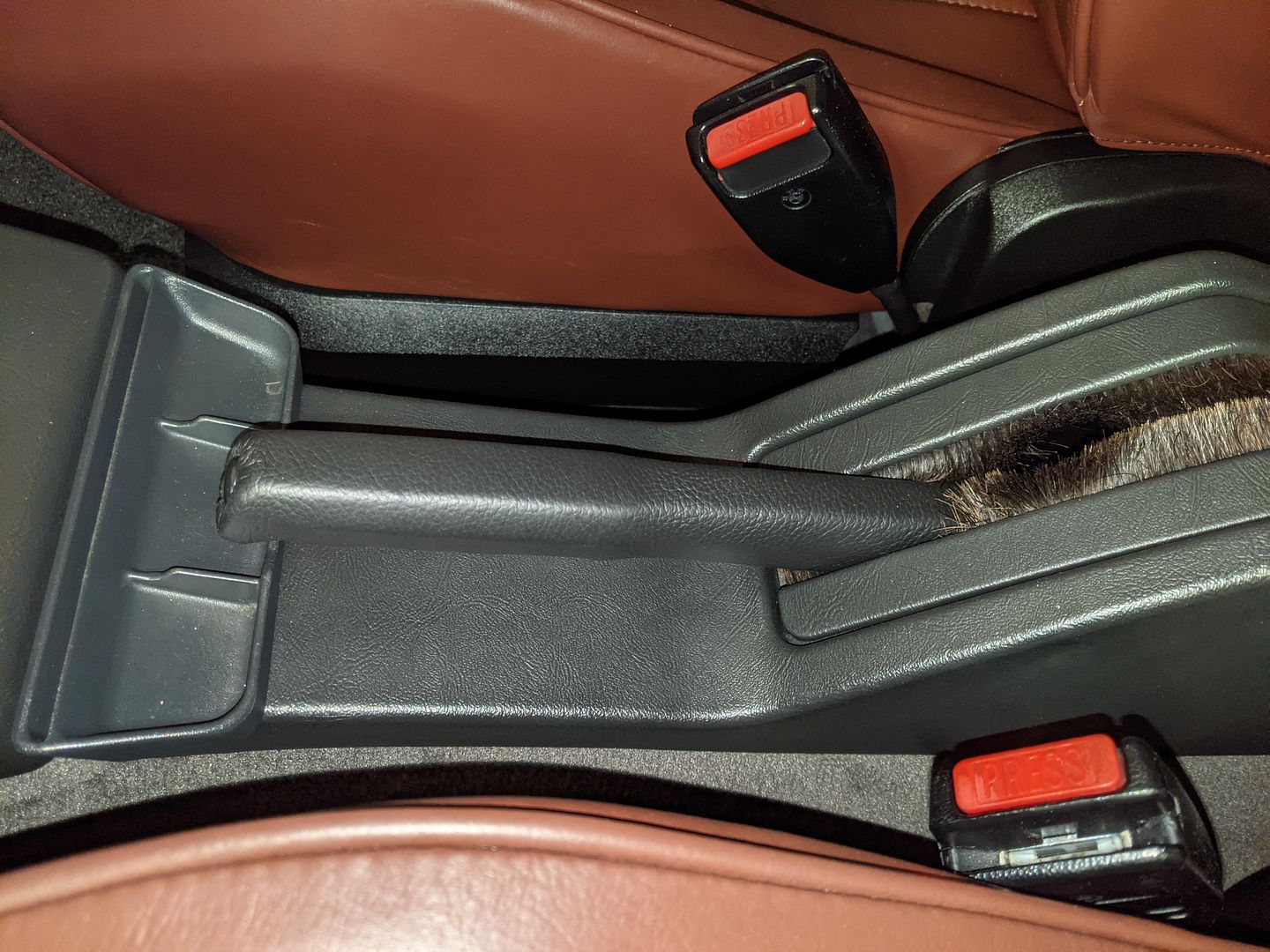
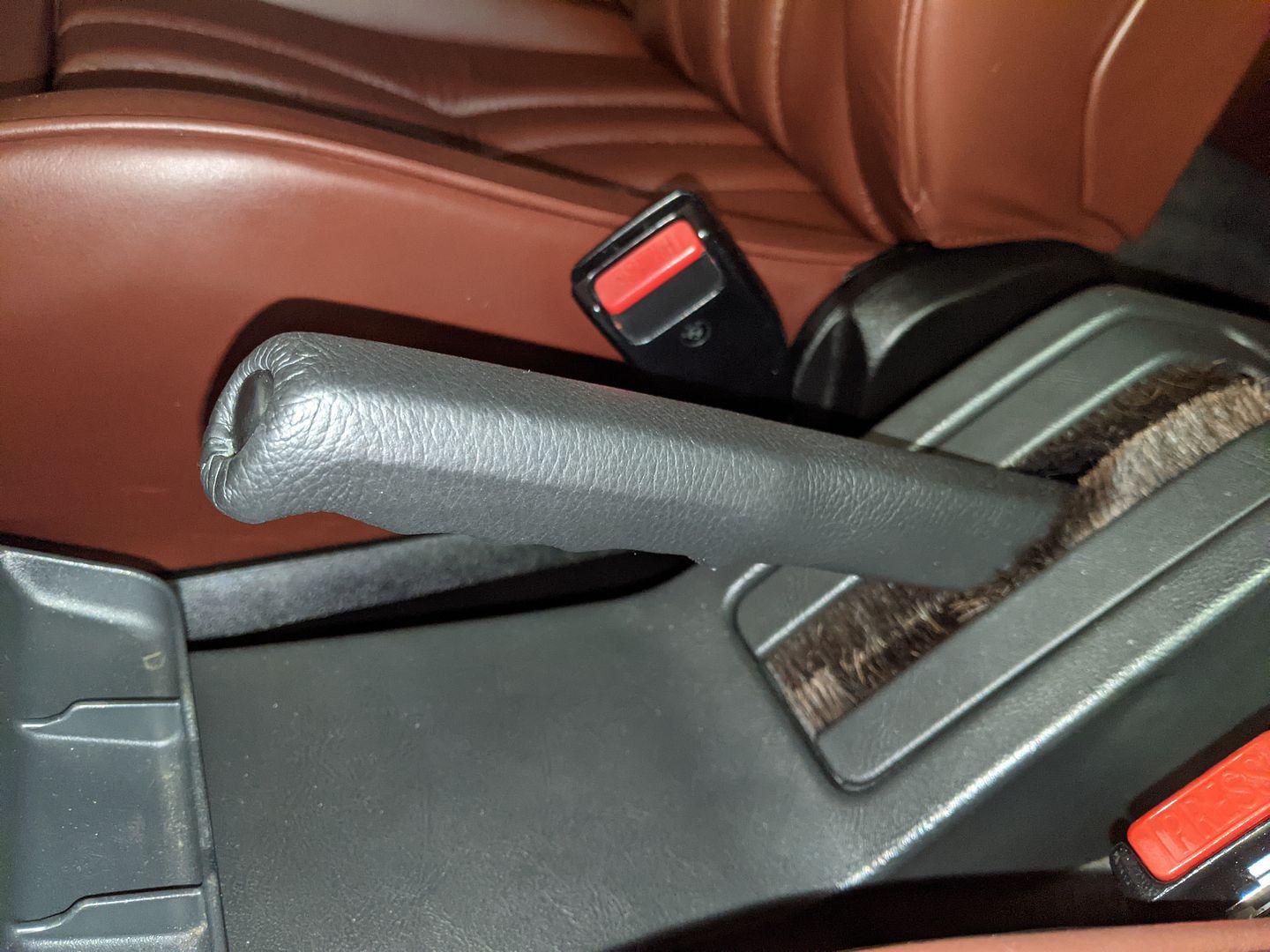
Gear Shift Knob: The M535i came with the original ///M logo Mushroom leather knob, but it too has gotten beat up over the years. Chris did offer to refinish this as well but warned me that it might not have the same dimensions (thicker leather) and is harder to get the stitching and seams correct. I have seen this also in the many (many) ebay replacements out there. Finding the actual Mushroom knob is a trick at the moment (I think it is NLA and/or they have superseded these with the contoured style knobs?). I did come across someone in Lithuania who makes a wood version of the Mushroom knob with the correct ///M overdrive 5-speed emblem (https://www.ebay.com/itm/274324714472?h ... SwmS5c2~h-)
I would prefer it to be slightly heavier and more solid as it doesn’t feel as heavy as the original leather Mushroom knob, but it feels good in the hand nevertheless and looks great offsetting against the Anthracit trim and Taurus leather. As mentioned, I managed to find a NIB old stock BMW Anthracit leather shift boot some years ago and stuck it in a box waiting for this very moment. I am happy with how this whole section came together style-wise.
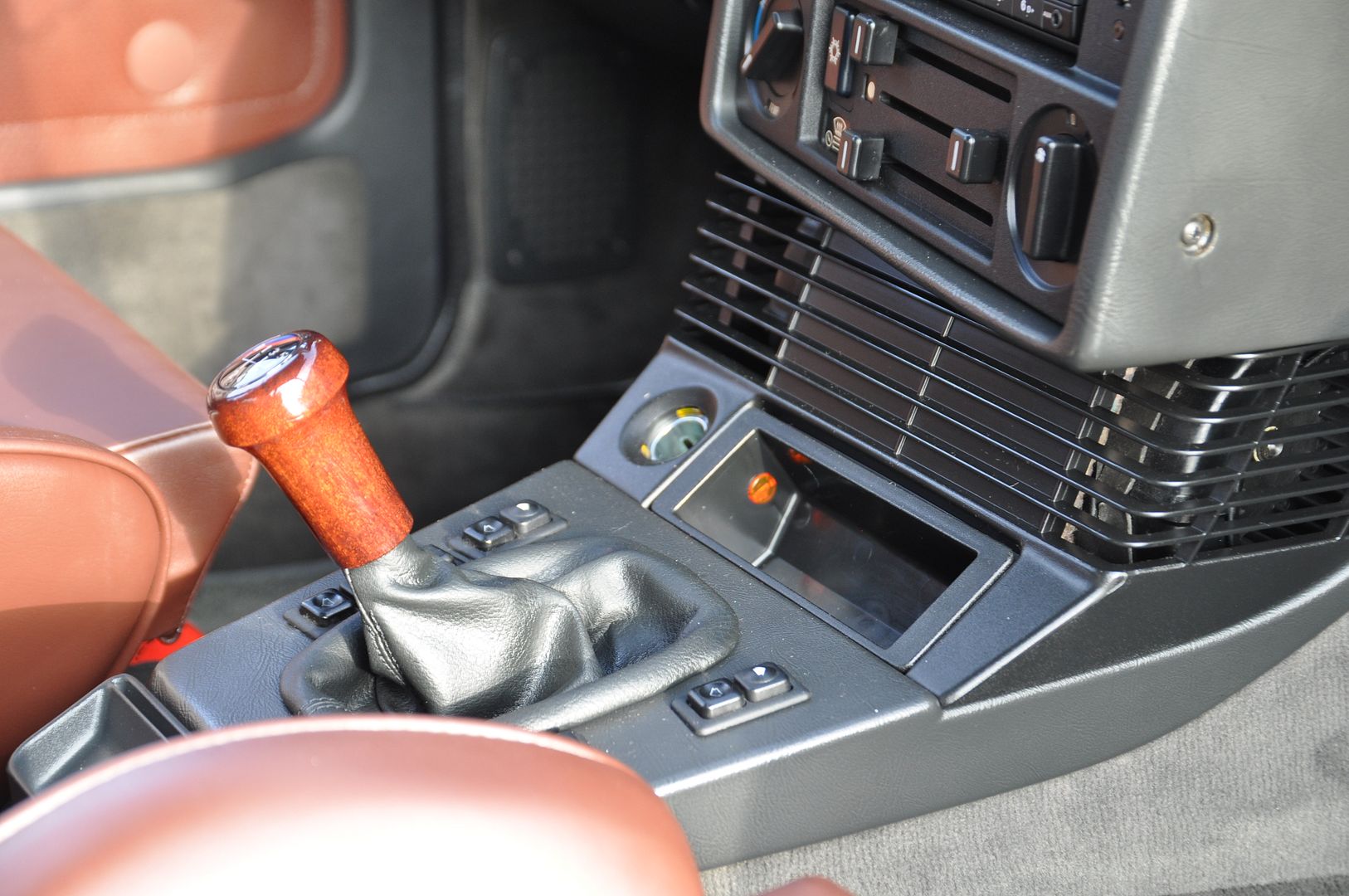
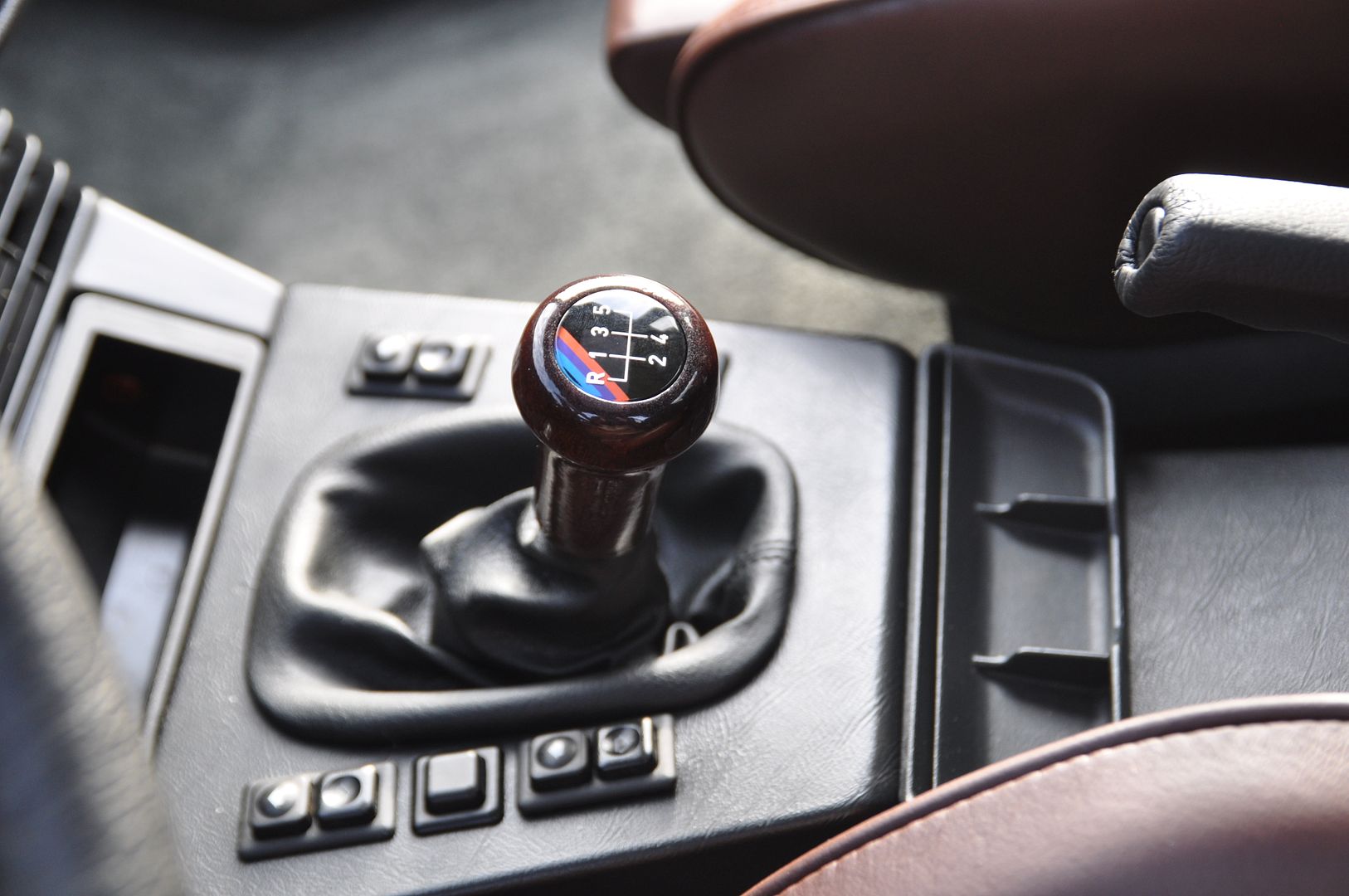
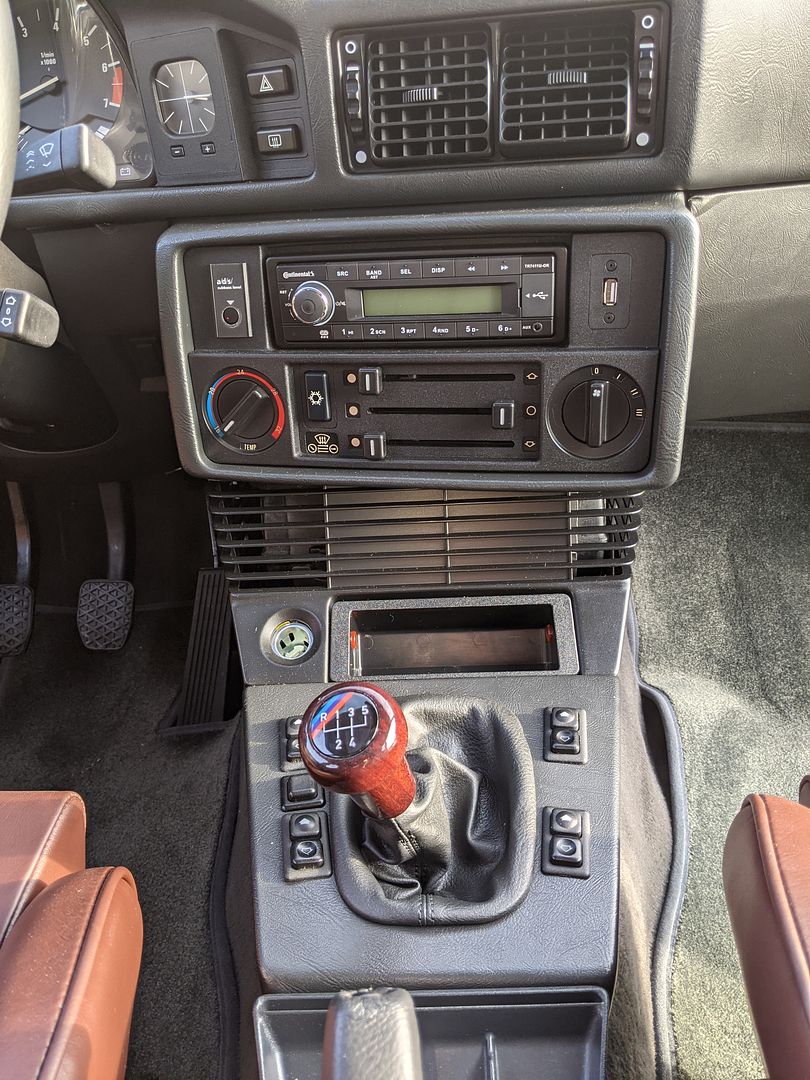
Steering Wheel: I sent my original M-Tech I Steering Wheel off to Chris Scow at the same time to get re-covered in new black leather. The original was worn and starting to craze and just looked plain tired. I opted for the Montana(?) leather with more texture than the original smooth grain (the Parking Brake is done in the same leather). Not quite original and looking back on the decision, it was originally a mistake as I should have specified the smooth to match; but after getting it back and now driving with it, I’m glad I went with the textured as I kind of like the way it feels in the hands and gives me some grip. I did stay with the black stitching along with a new ///M Tri-color badge:
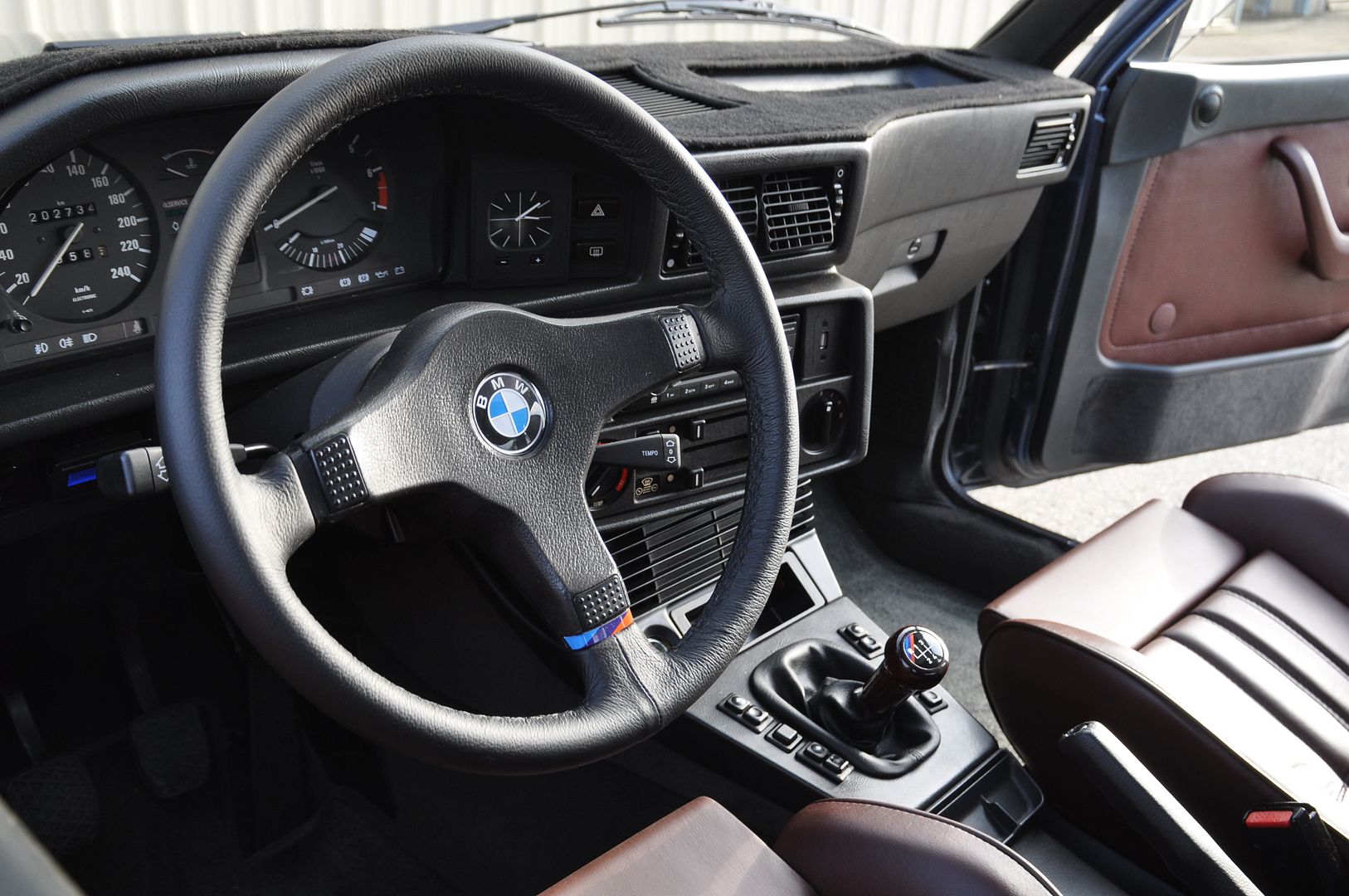
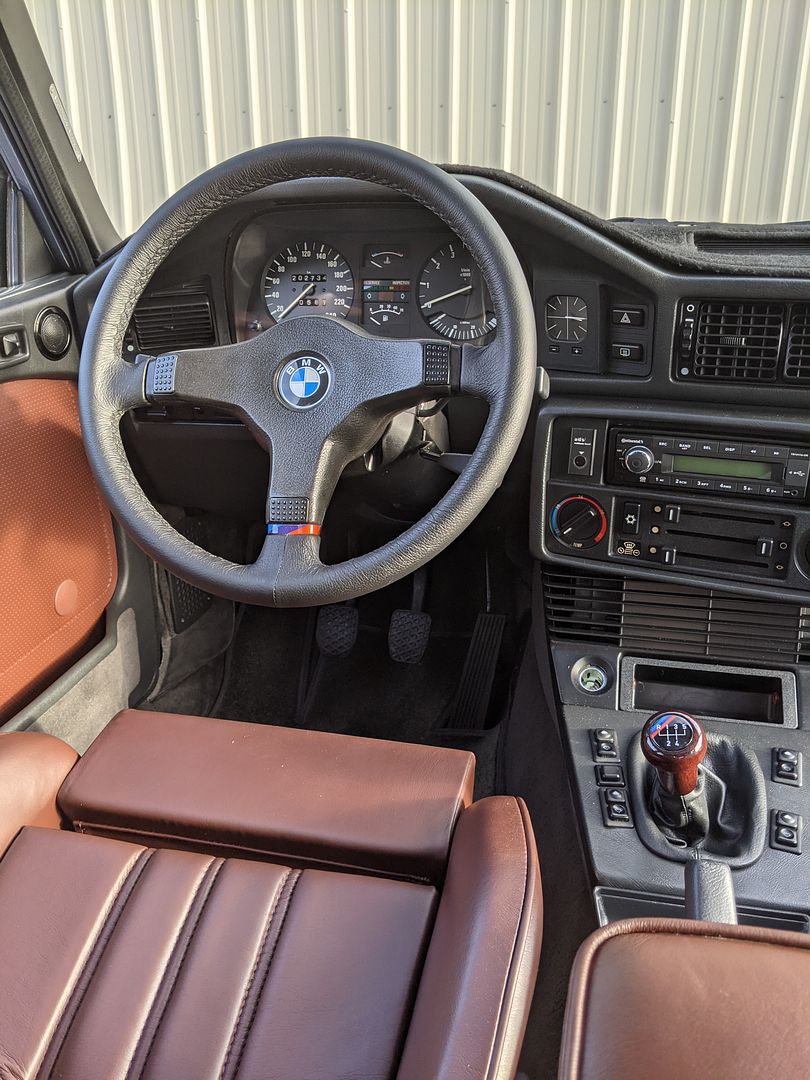
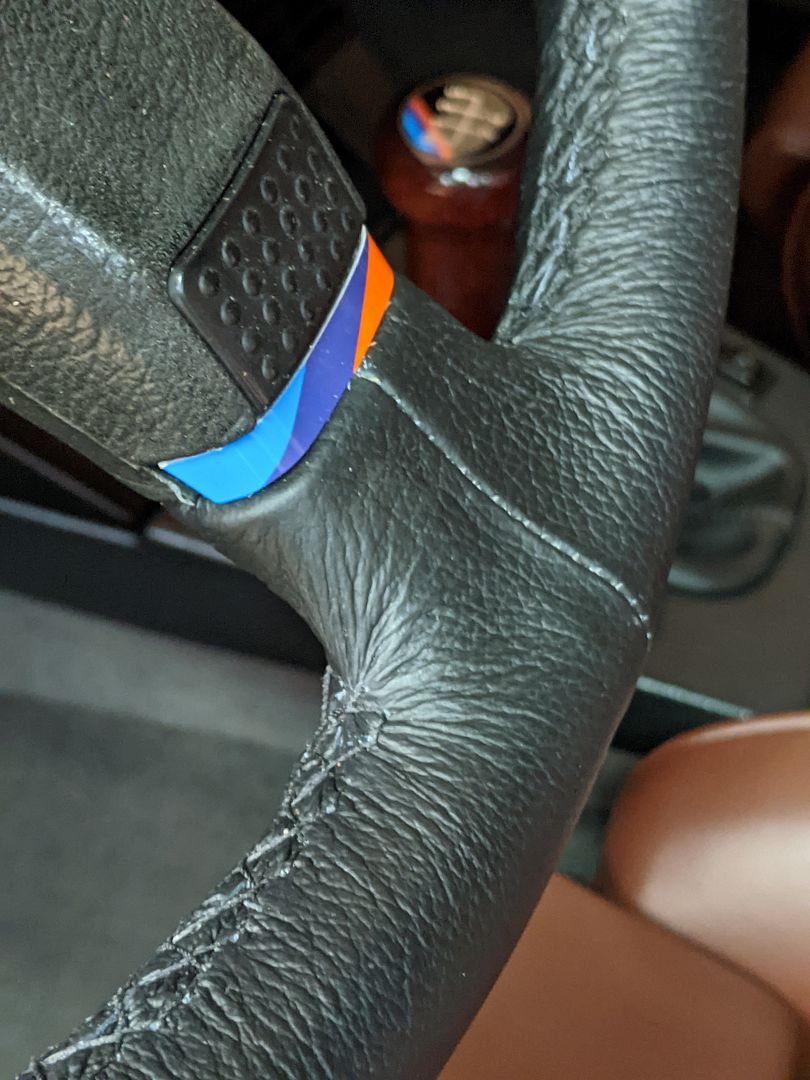
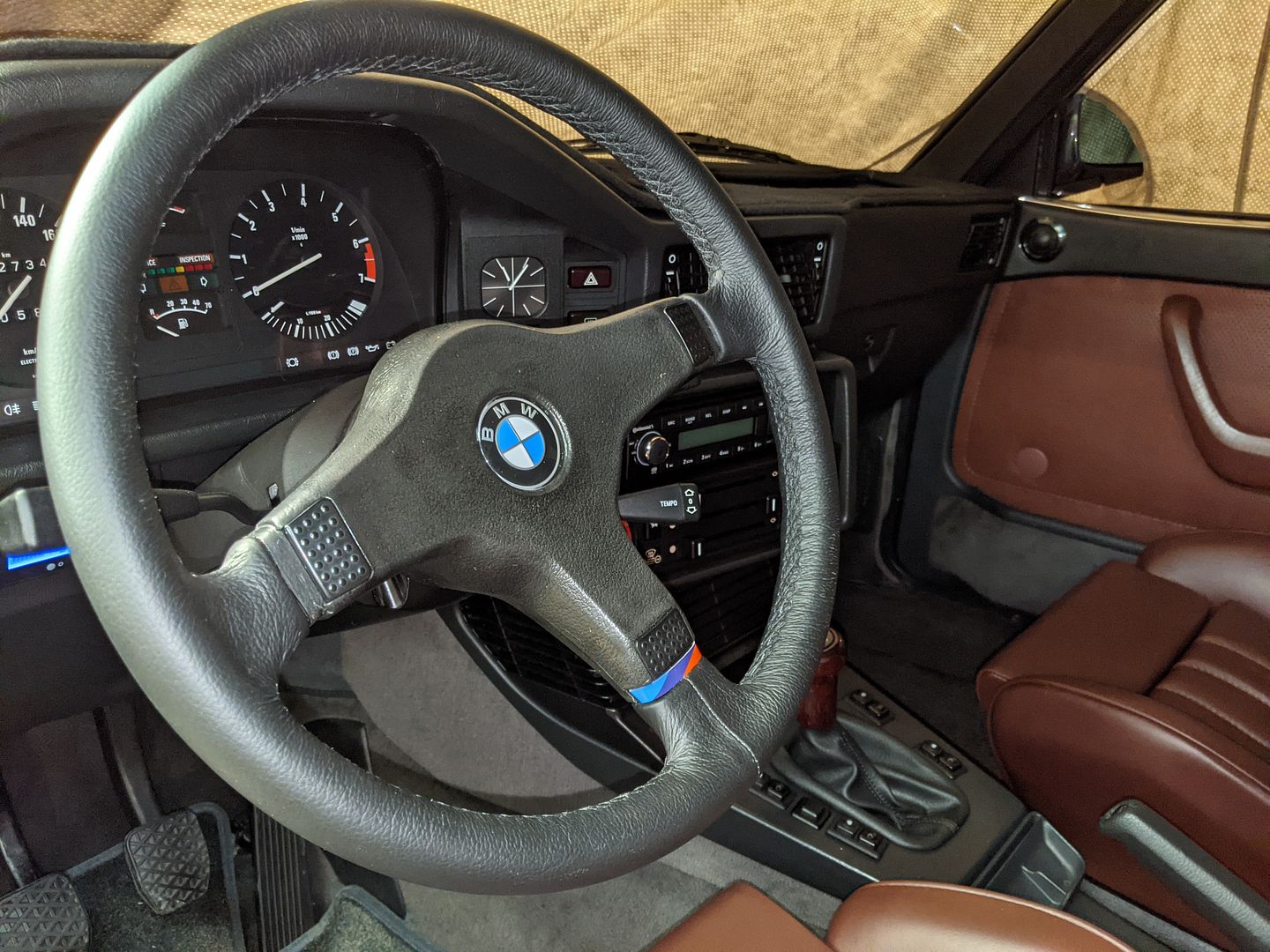
Trunk & Audio System: The Audio System in this car deserves an entire thread unto itself (and will likely follow this one; actually it is as much an ongoing saga as this whole M535i thread), but since I had to spend a considerable amount of time dealing with the system (removal, re-wiring, adjustments, re-installation) I need to mention it here as it was part of the original scope of work. A brief history of this system:
2017: I have had a vintage a/d/s/ component system with varying different Head Units since 2011 but in 2017 I cooked up an upgrade to this system that may have been inspired/willingly forced by El Guappo (Jay3), the car audio-guru himself. Up until this point I had a single a/d/s/ PH15 6-channel amp with an a/d/s/ 642Csi Processor, front & rear component speakers (a/d/s/ 344is front lows, Orion p.2Concept front highs, and a/d/s/ 325is rears) and one sub-woofer in a box in the trunk. I had a newer Kenwood Excelon X895 Head Unit that gave me AUX, USB, CD and BT telephone. The upgrade stemmed from wanting to replace both he HU and 325is rear speakers and quickly morphed into a re-design of my amp board with a significant boost in power to the system. This started with new a/d/s/ 300is rear plate speakers and a vintage Blaupunkt SQR88 Woodstock HU. The Woodstock is from about 1988 and is cassette deck with AUX input on the front panel with 4 channel output and most importantly is period correct for the car. My goal was to make an Audio System that, while not being original to the age of the car, would have been one that the owner would have graduated up to in the few years after they purchased the car. All the EQ in this system is dated from the late ‘80’s to very early ‘90’s and were all top of the line in their day (heck, it all still beats most of the modern tech even today).
2019: This new system took a while to figure out and gather the right components and wasn’t fully cooked until a few years later. The new system consisted of: (2) a/d/s/ Ph15 amps, (1) a/d/s/ 642iX Processor, (1) a/d/s/ A206 DIN Assignment Module, (1) 8” Coustic BassPump subwoofer, the same front speakers and the Woodstock HU. The concept is that the entire car is split down the middle acoustically with each of the PH15 amps handling the right and left sides (fronts, rear and one of the subwoofers in the BassPump). Each PH15 is conservatively rated at 300watts but in reality can handle much more, the Processor with DIN splitter assure the signals are properly routed and phased and can be adjusted independently (from both the Amps and Processor).
2021: This system proved to be very complicated and very finicky to adjust and get right; truth was I was chasing problems in this system from day one in 2017. This project was hoping to clear most of the remaining issues up since I had to remove the whole thing, wiring and all, to do the interiors. There were also some issues with the Amps overheating on long road trips and thermal cycling; I am still designing and R&D’ing a ventilation fan system to try to remedy this. In fact, I installed the relay and control wiring for it during this project as most of it is under the rear seat (see the photos below). Since a few of the main issues with the system may be stemming from the vintage Woodstock HU I opted to test drive an alternate new HU, a Continental TR7411U, which is ostensibly just a radio with AUX & USB inputs. I prefer the Woodstock as sonically speaking is far superior to the Continental, but it’s getting the job done for now. Thoroughly testing both HU’s is an ongoing exercise.
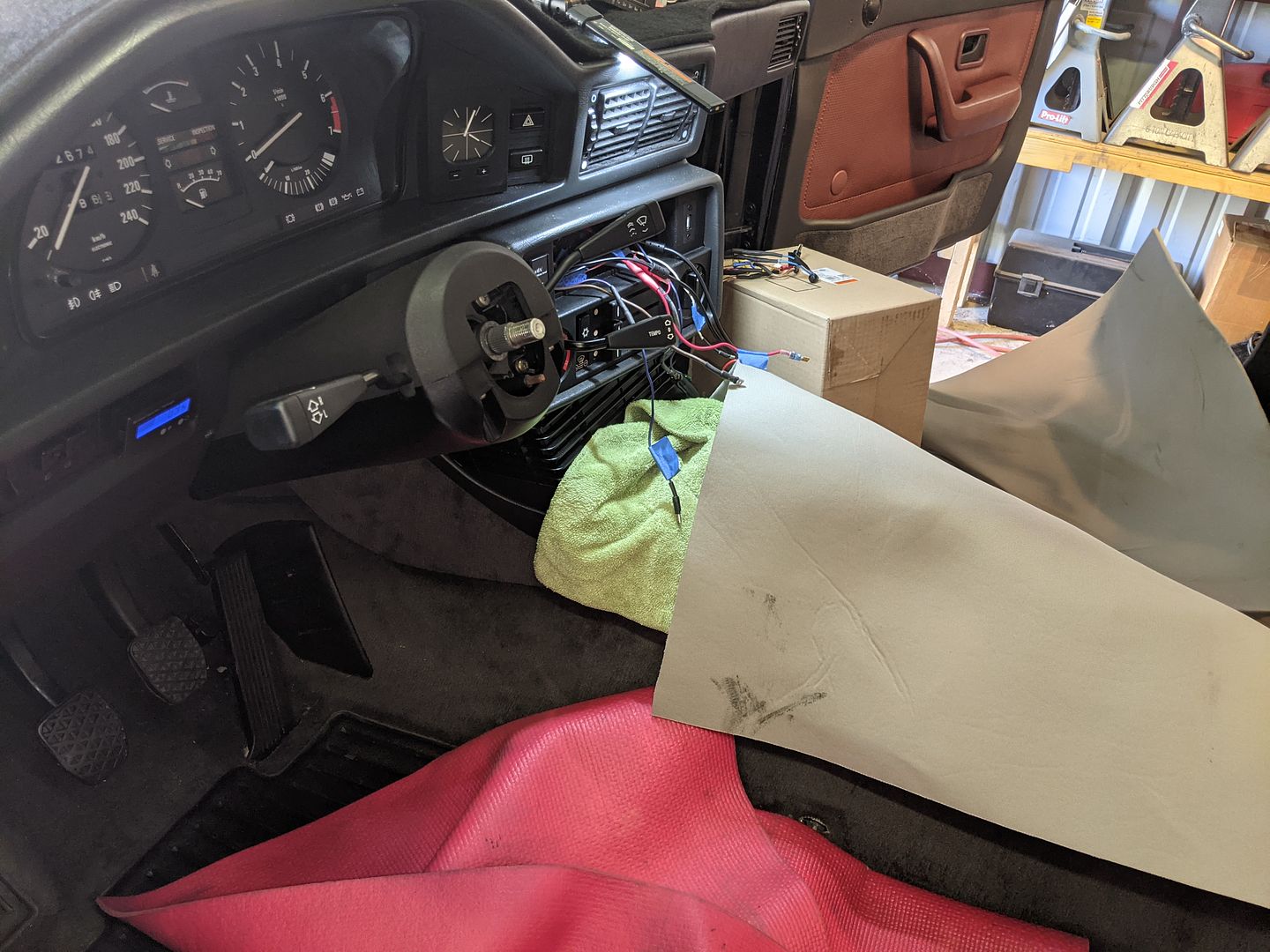
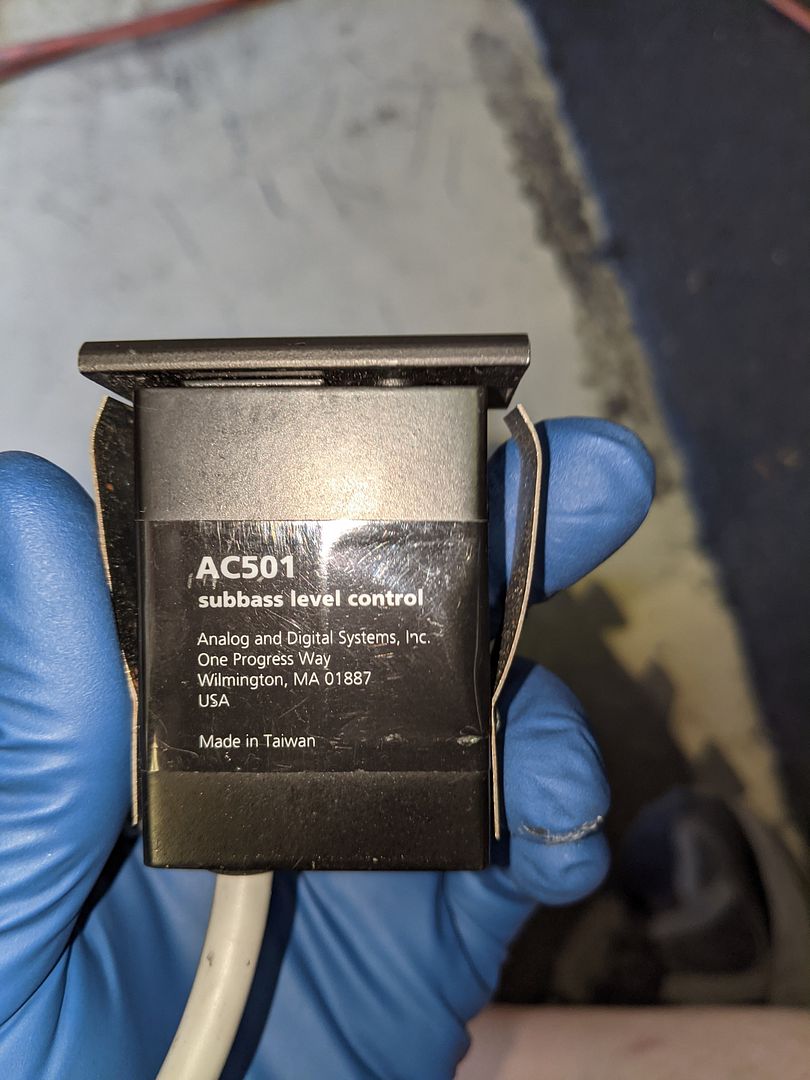
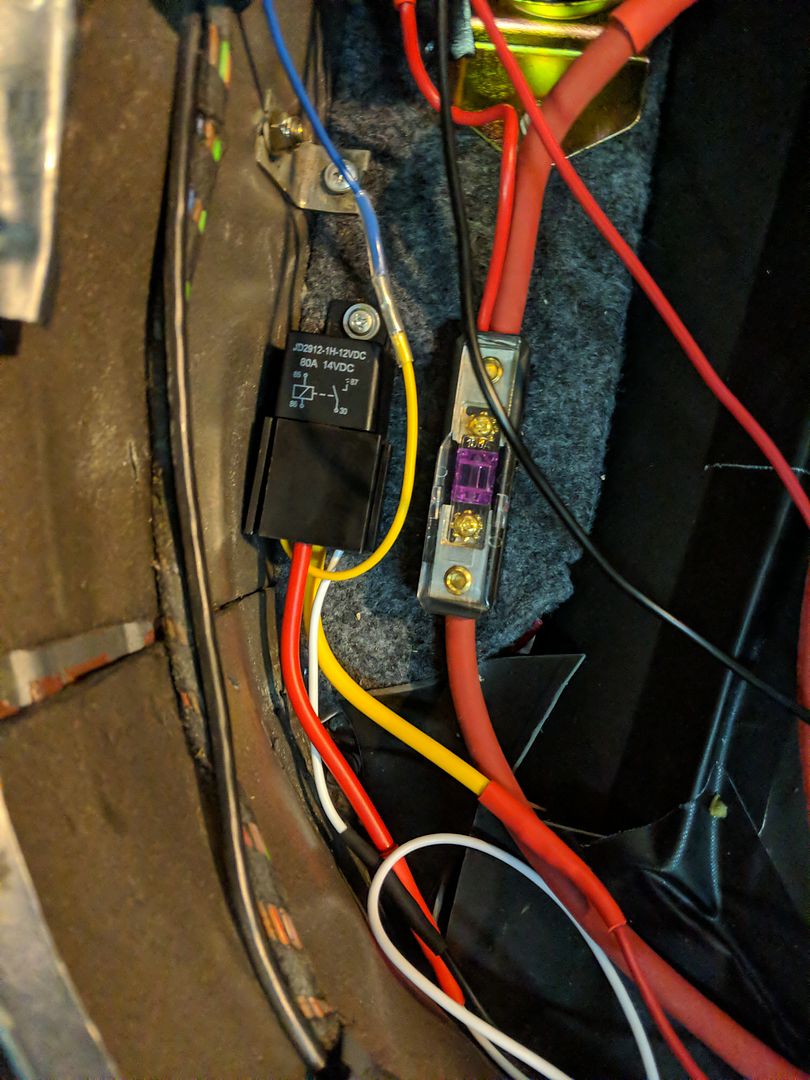
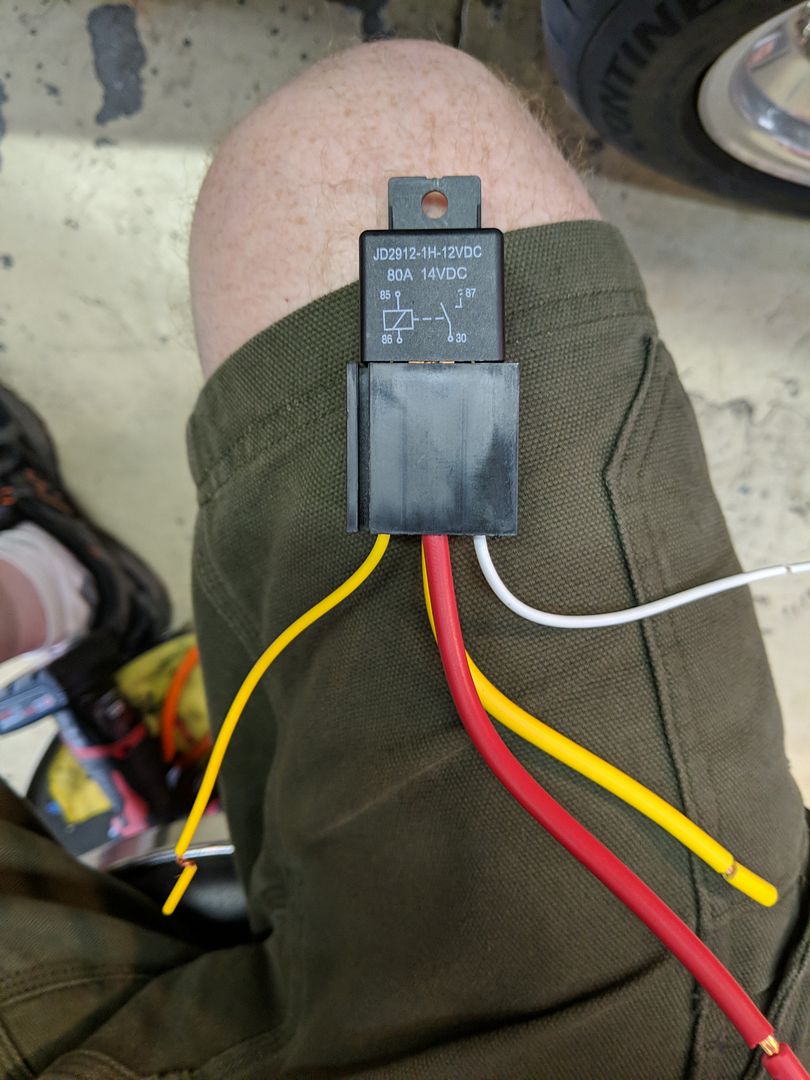
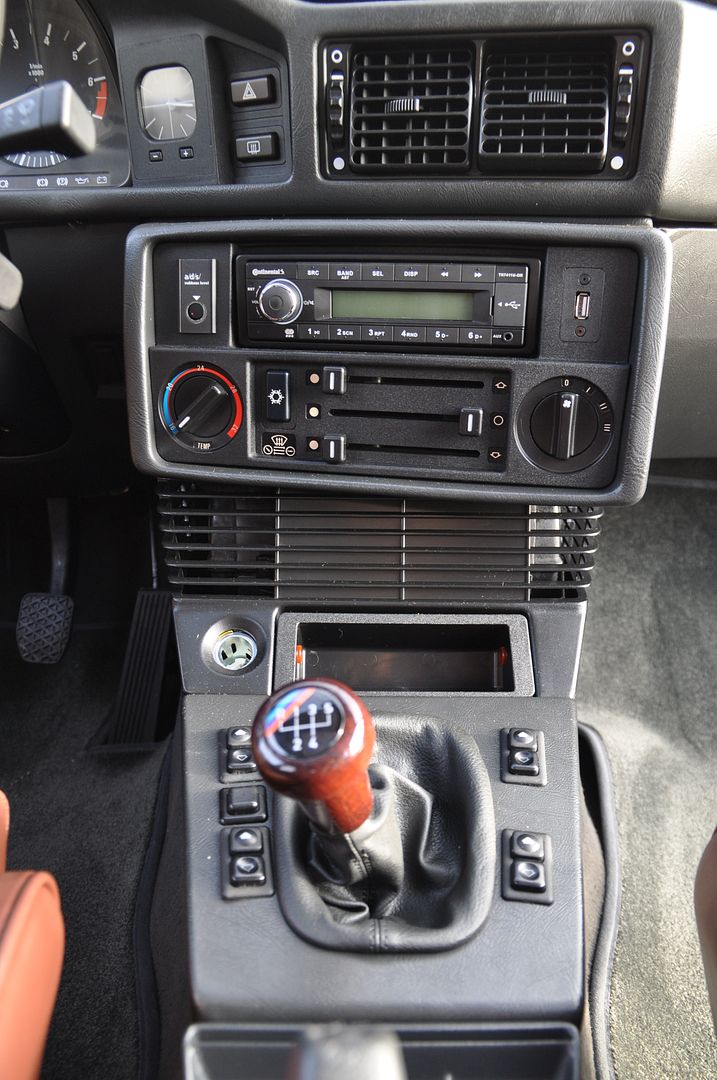
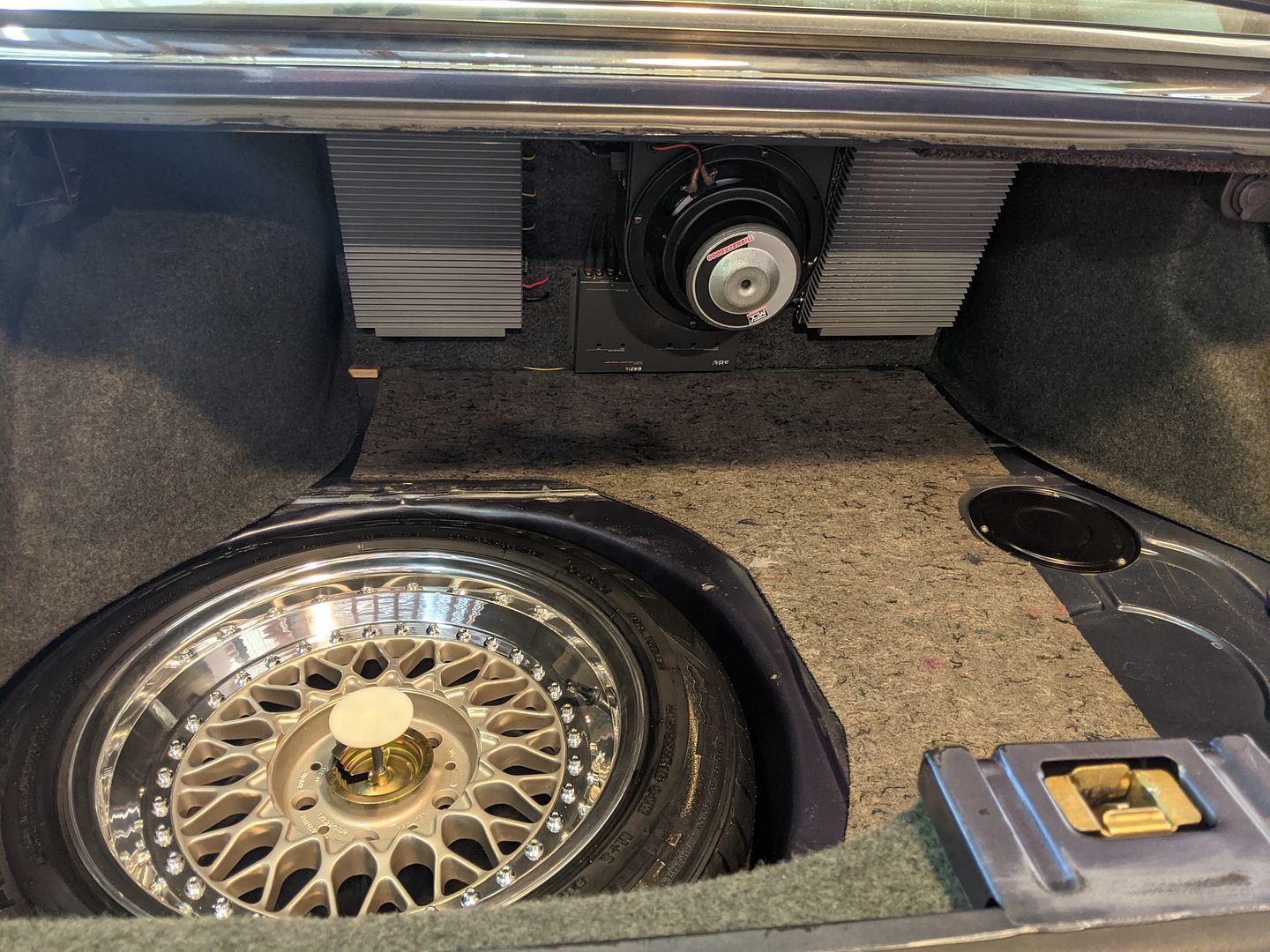
The other item in the trunk was refinishing my spare BBS RS211 wheel and getting new spare tire. Mike at Tru-Wheel in North Hollywood is one of the best and tracked down the correct paint to match my other four wheels. He now has the paint so my other four are going in for refinishing early next year.
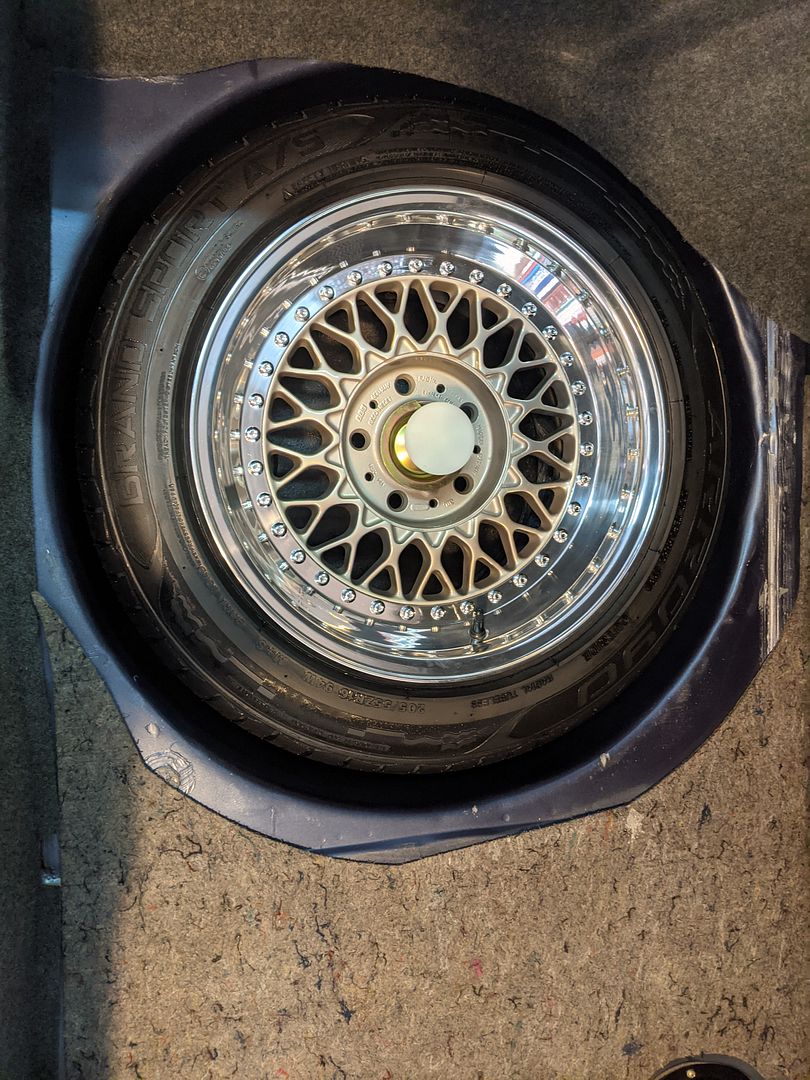
Sun Visors & Headliner Panel:
One of the other items I had forgotten that I had (I really should do a better parts inventory) was a set of E28 M5 Sun Visors with Lighted Vanity Mirrors.
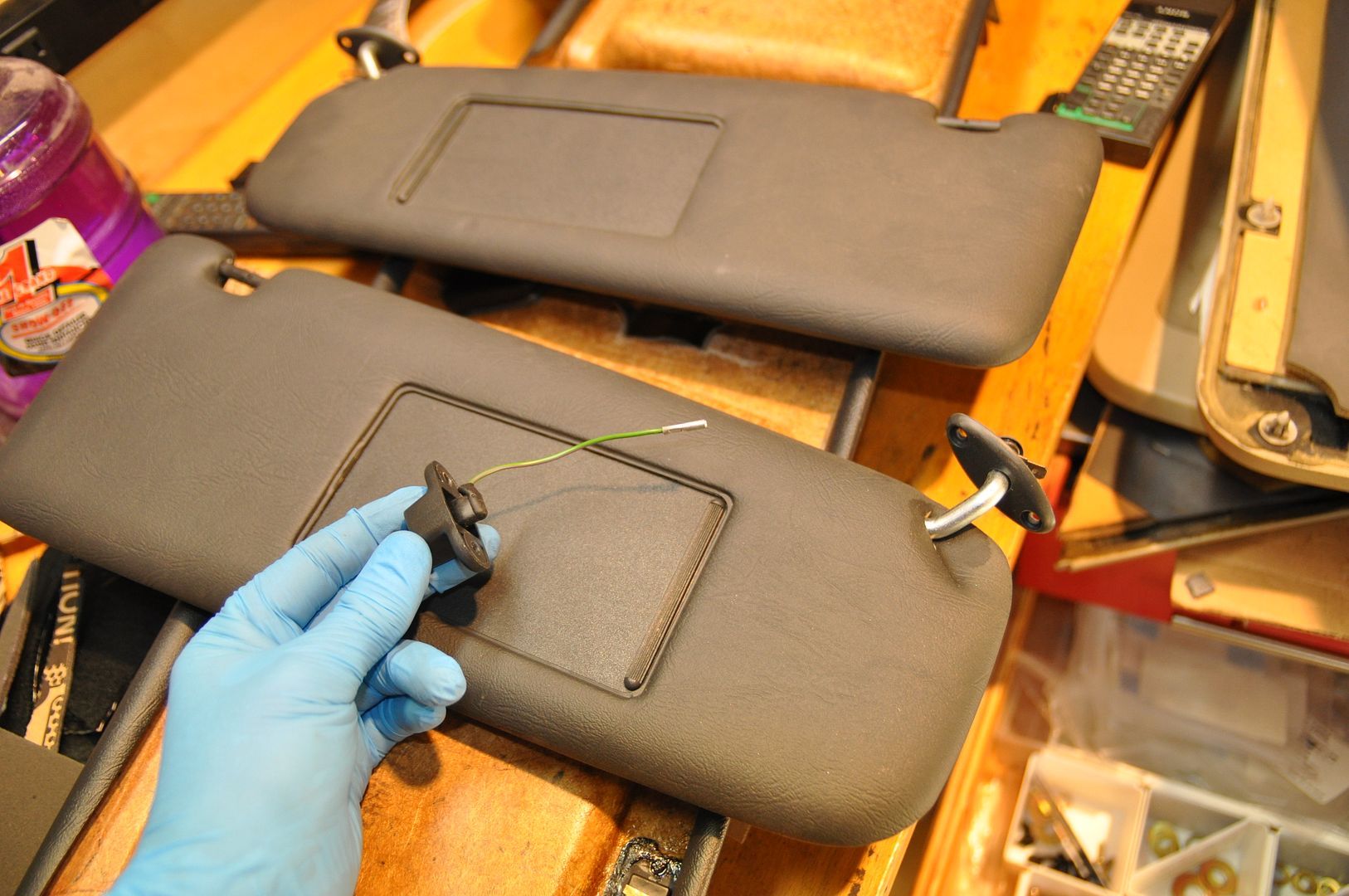
I had to pull the front Headliner Panel down anyway to install more thermal and soundproofing materials as well as fix the speed clip connectors anyway (they hold long screws that come down through the Moonroof front rail and roof which took me forever to find; I had to remove them from the old one and epoxy them onto the new replacement). This gave me a chance to swap out my old Sun Visors and install wiring for the M5 versions (I would have done this BEFORE the new Headliner material went in, but hindsight is 20-20 I guess), with the power and ground taps going back to my rear seat well and power distribution block in the trunk (I could have found closer connection points but I had closed everything up by then so I hadn’t left myself very many options).
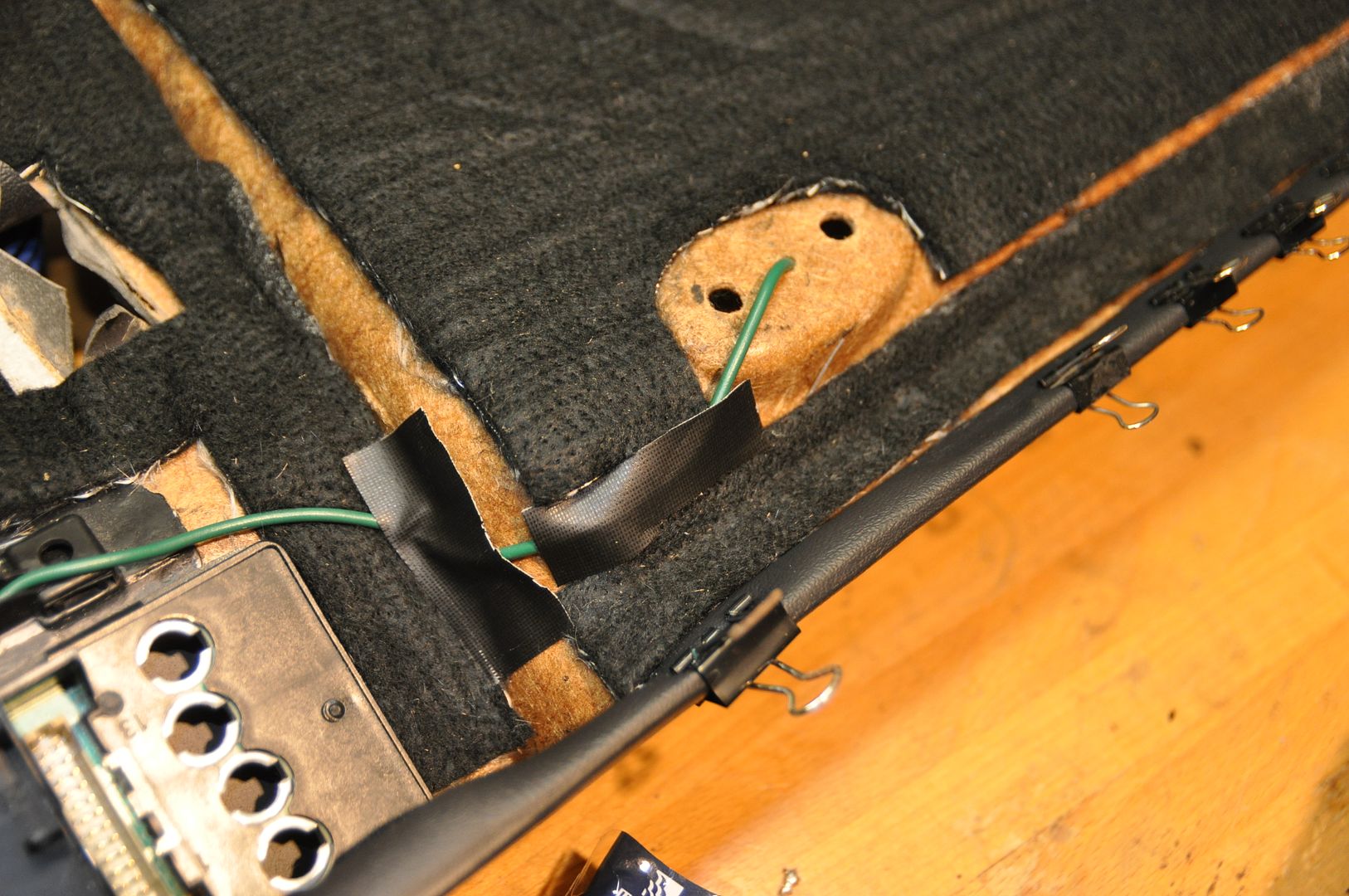
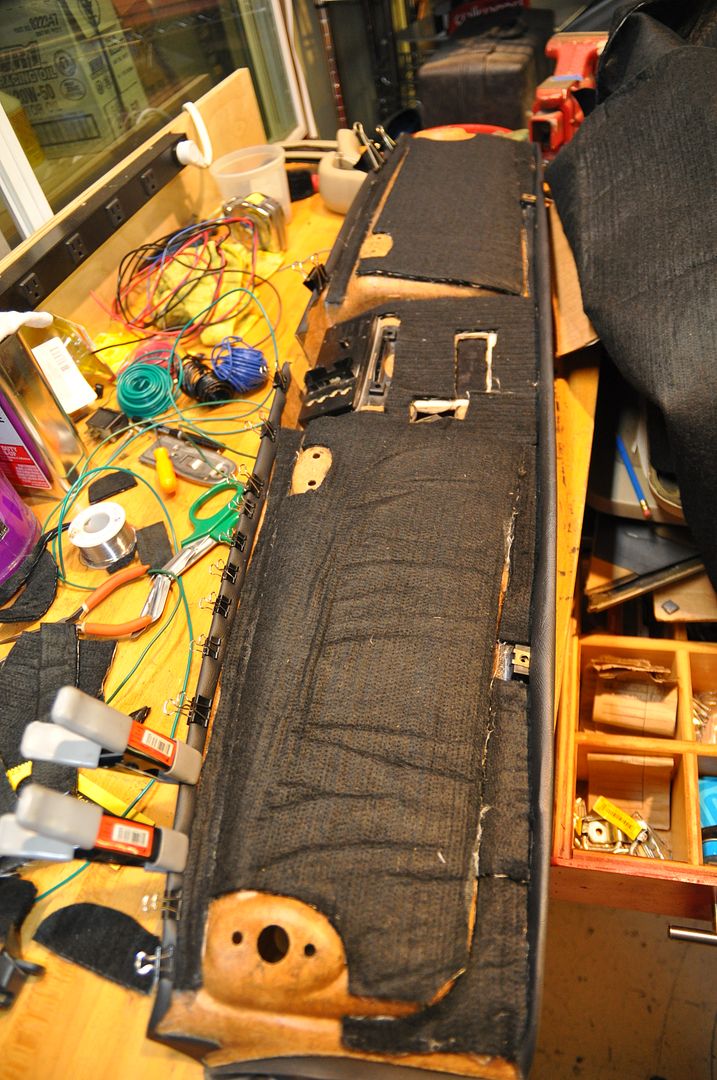
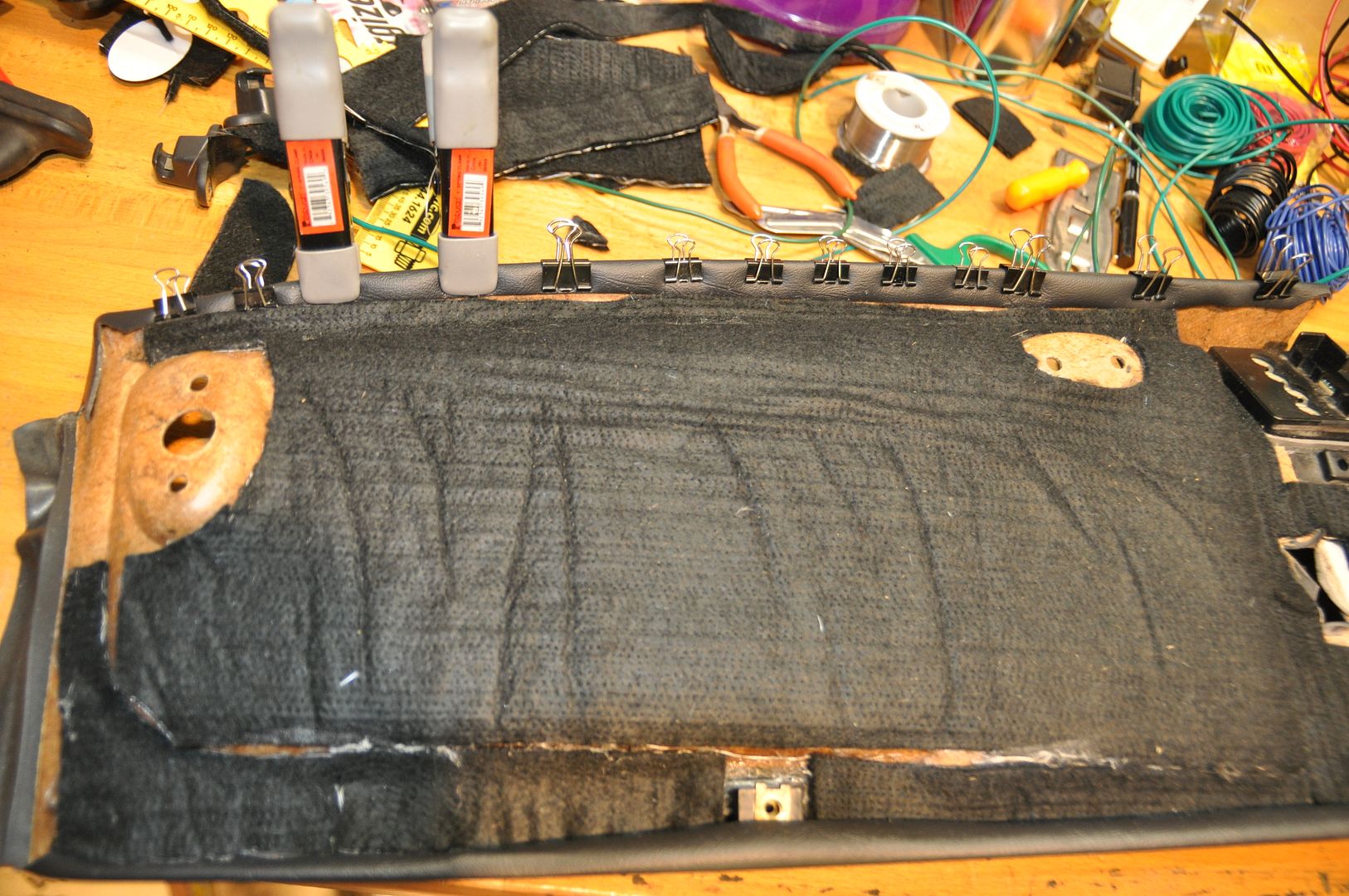
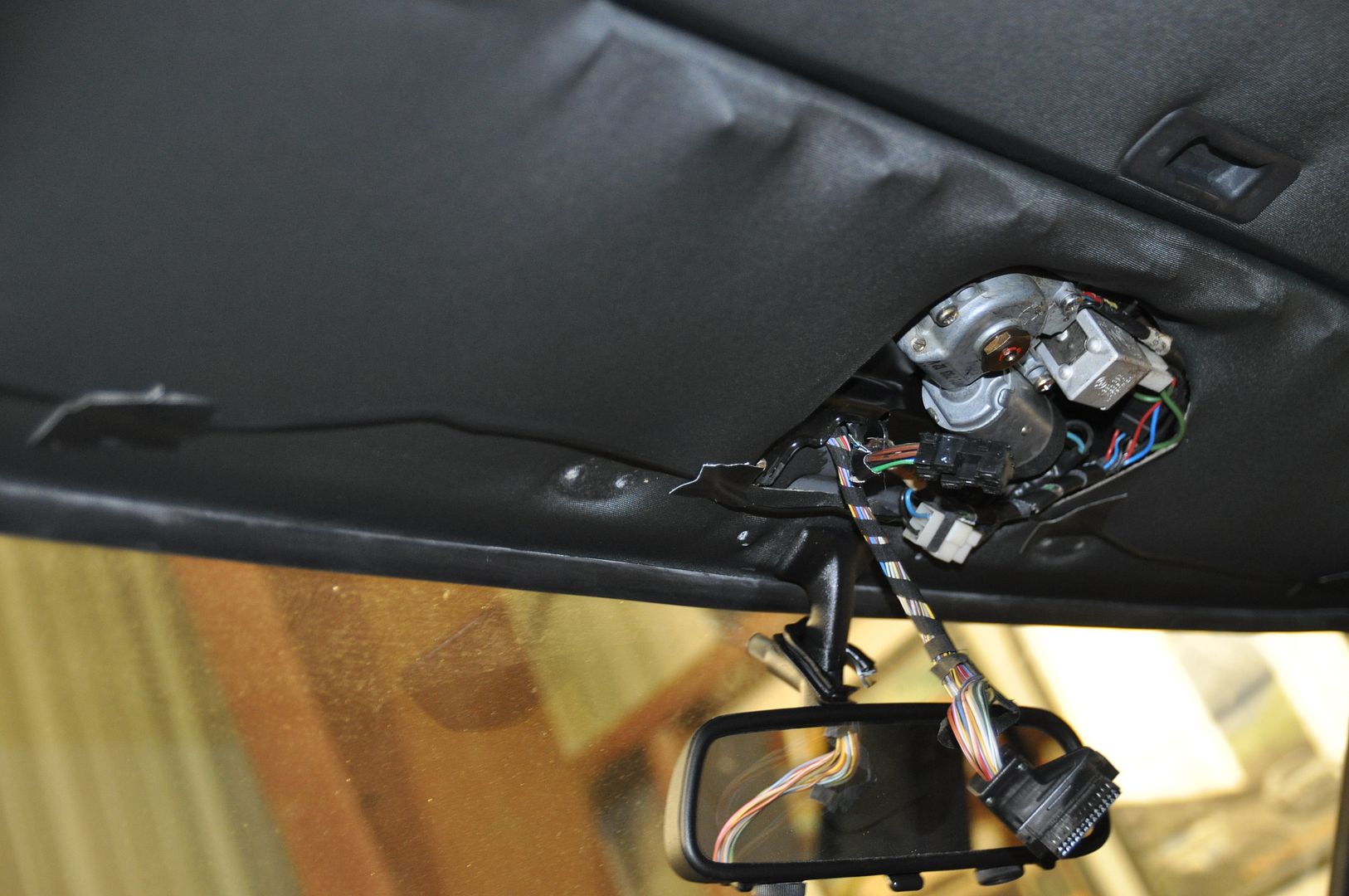
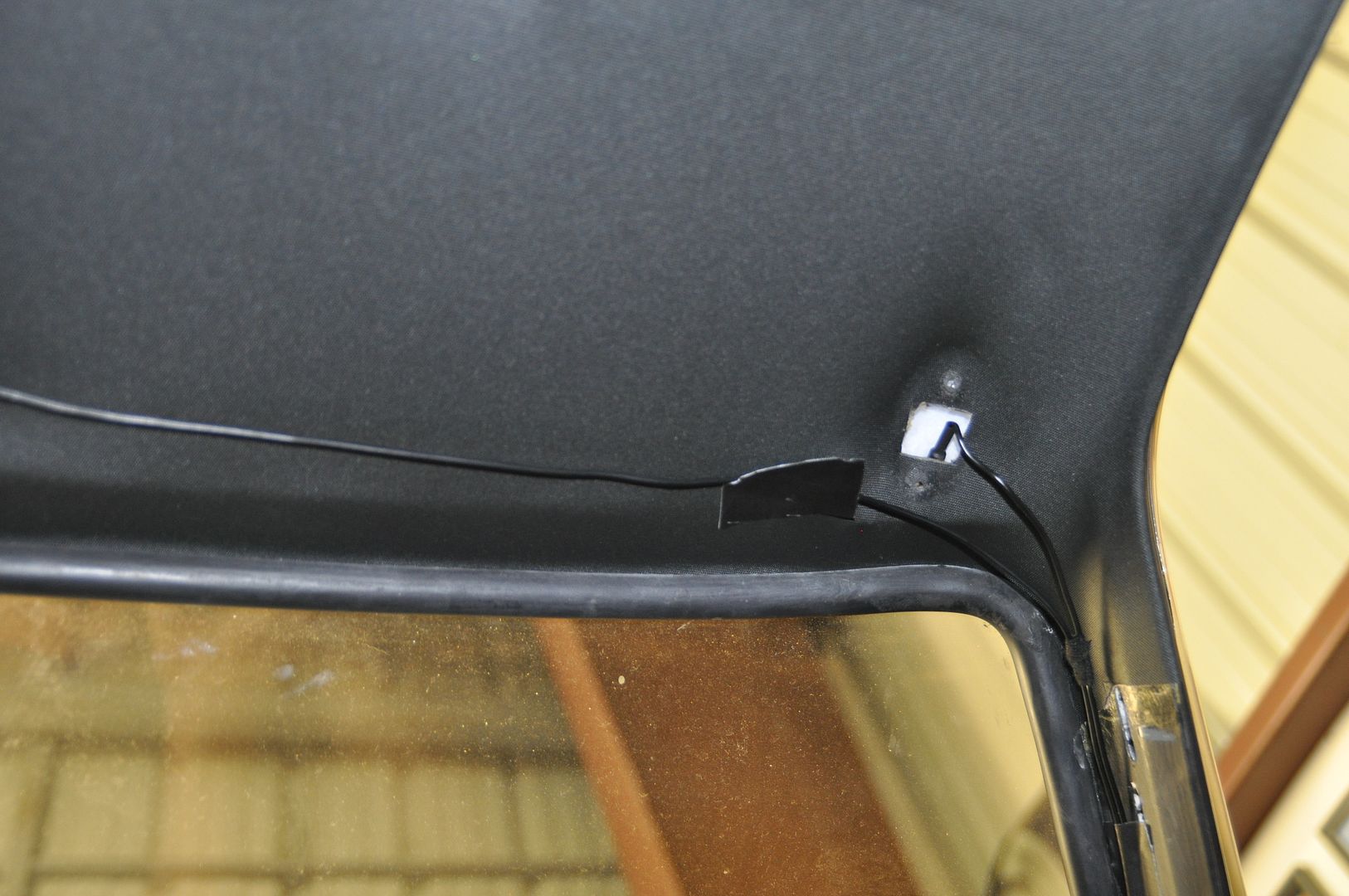
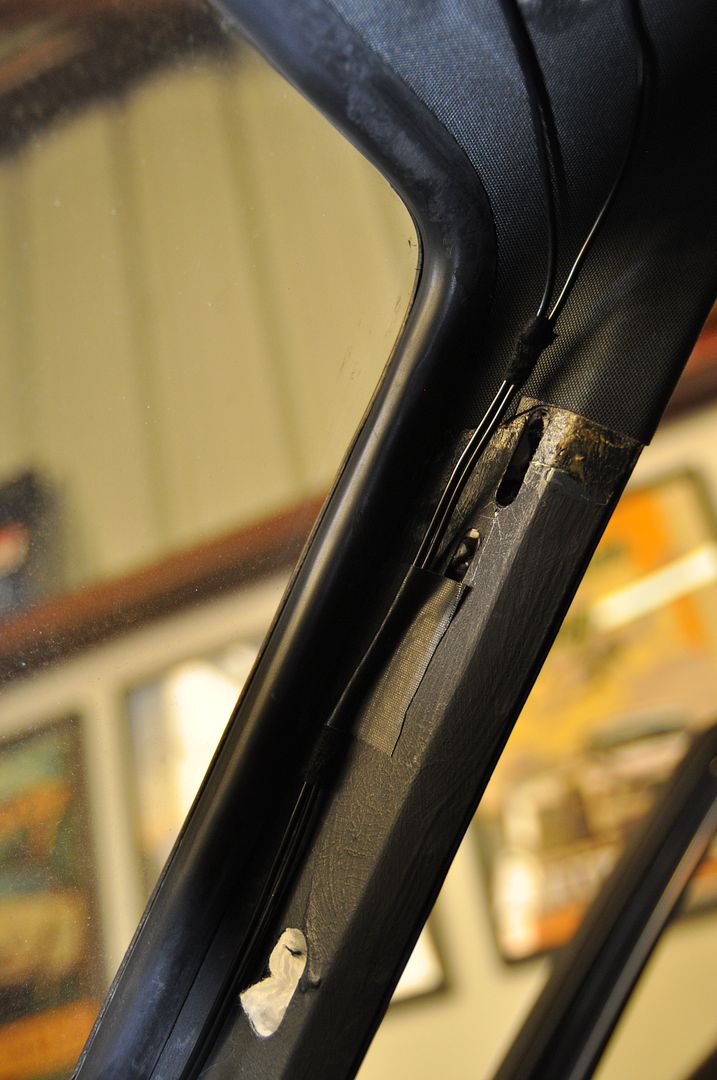
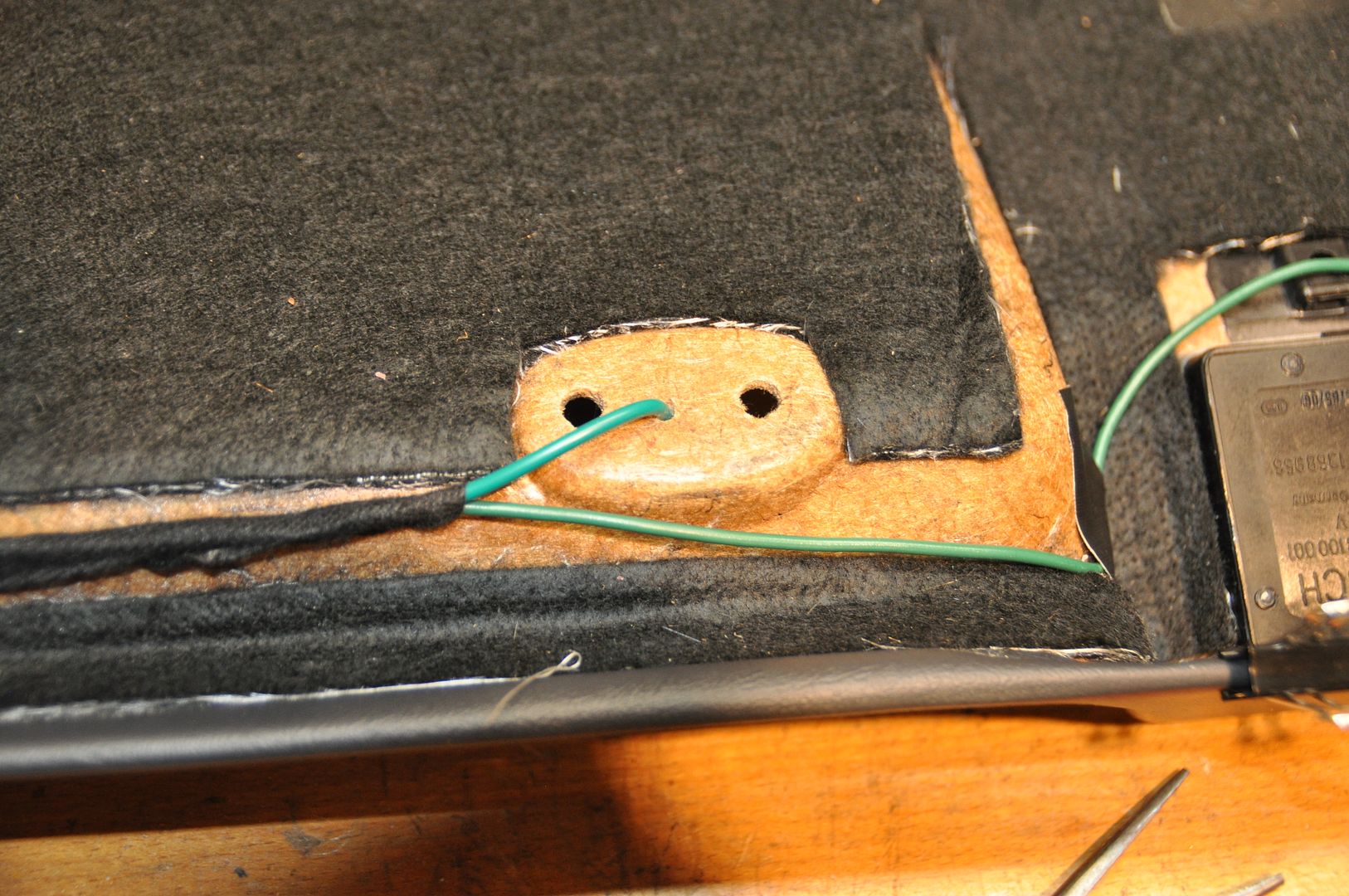
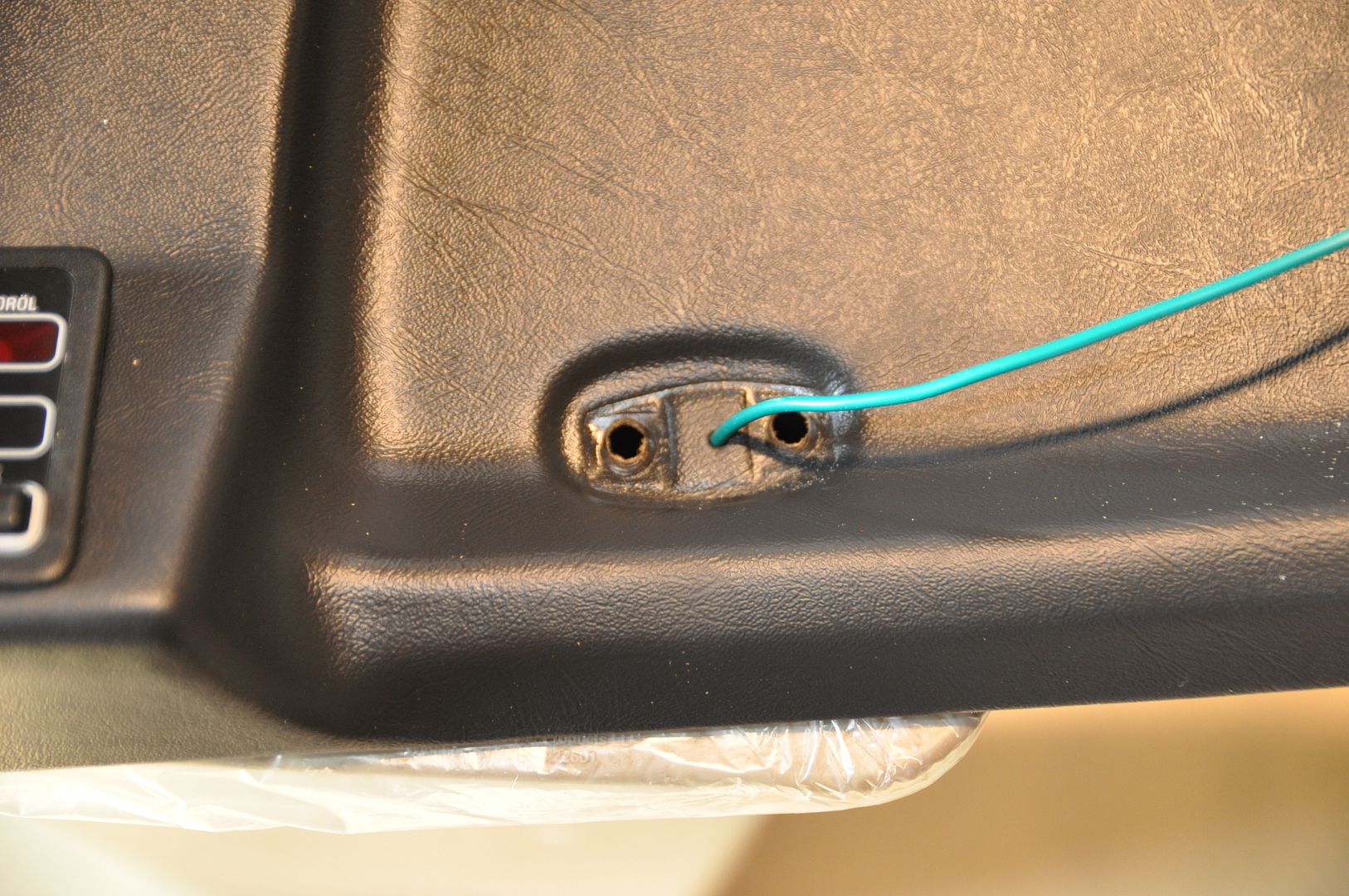
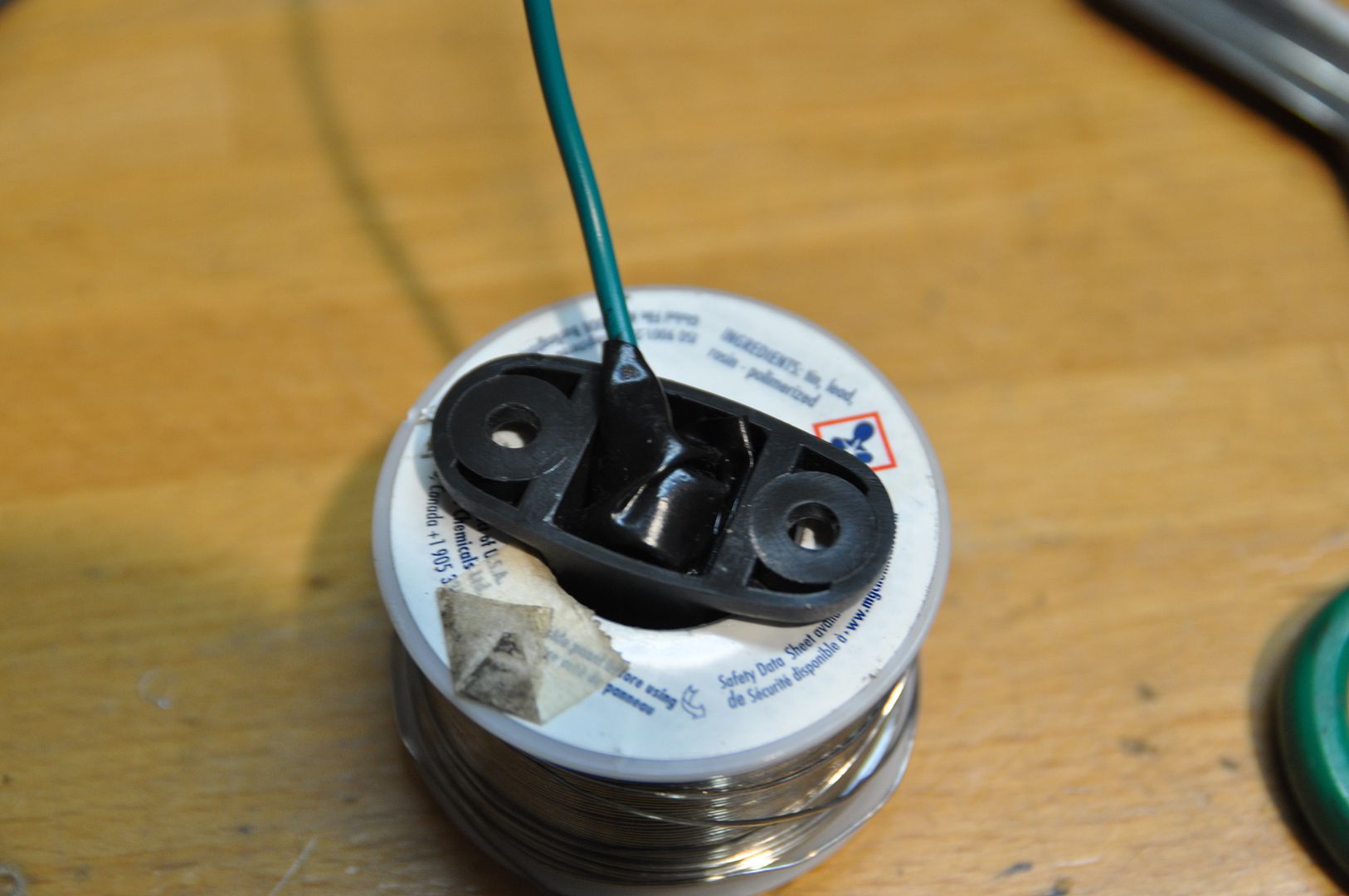
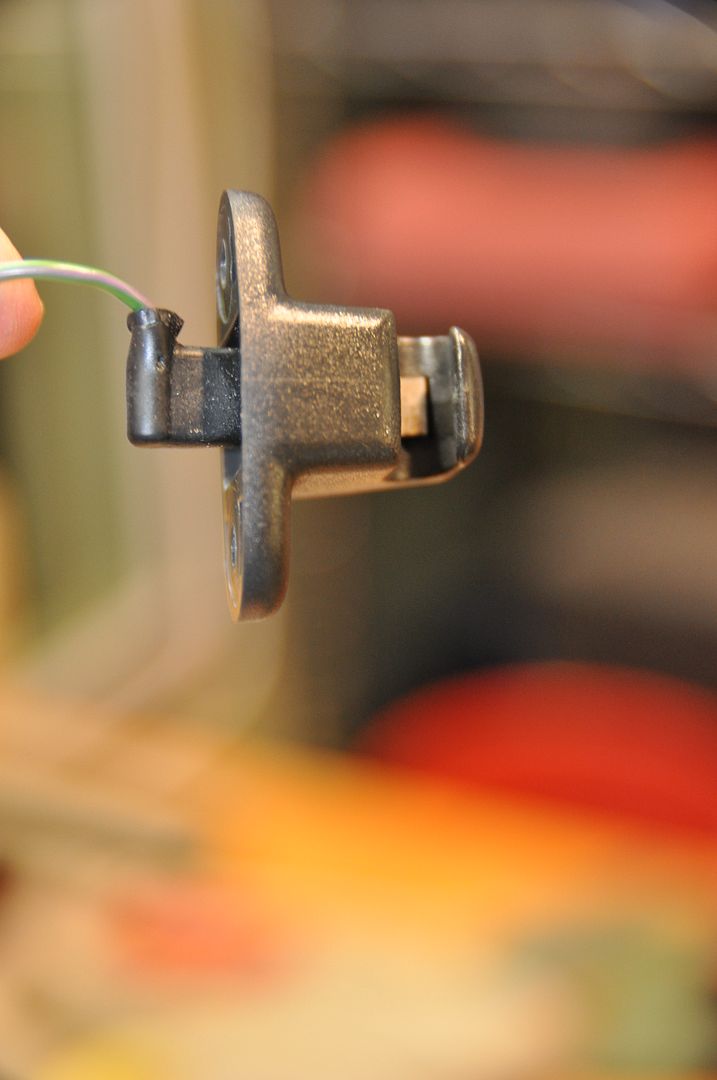
[This was my first mistake: I had purchased these Sun Visors years ago from a long-forgotten source and never bothered to bench test them to see even if they worked. I seemed to continue that oversighted ignorance and wired them up and installed them as they were (however I did clean and treat them nicely). Turns out they don’t work, or my wiring is bad, or the bulbs are burnt out, or…any number of other reasons. They are now on the Troubleshoot List. Sigh.]
DOOR SEALS:
This is a work in progress fueled by two forces: 1) My continued pursuit to making the interior cabin of an E28 quieter since Door Sills are one of the weakest part about the door & window systems and 2) I somehow managed to misplace both the Front Door Seals (body side with the fuzzy trim) and the Front Door Sill Caps; infuriating since I can’t find a trace of them now but will probably in a year or two and also costly to replace.
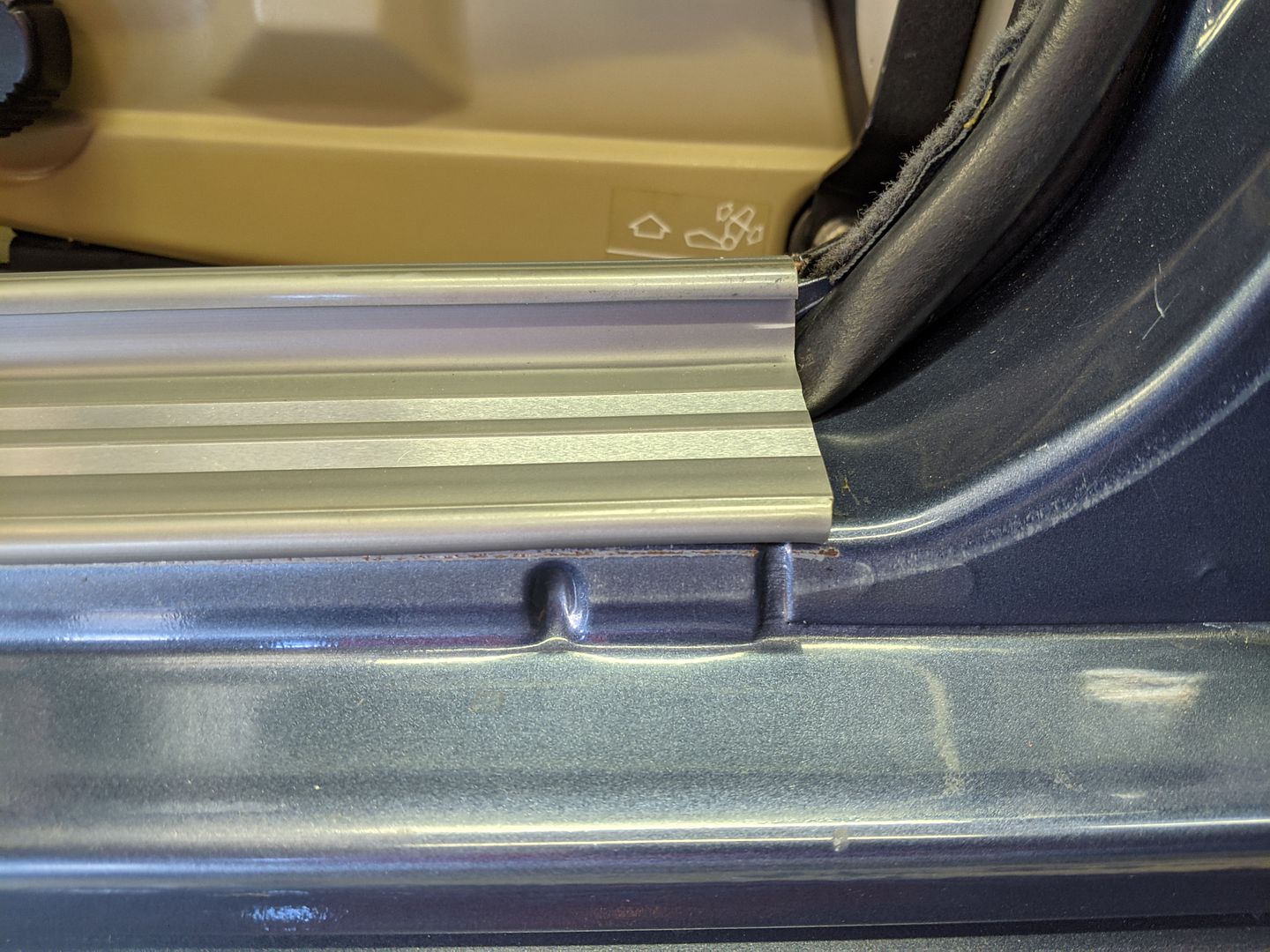
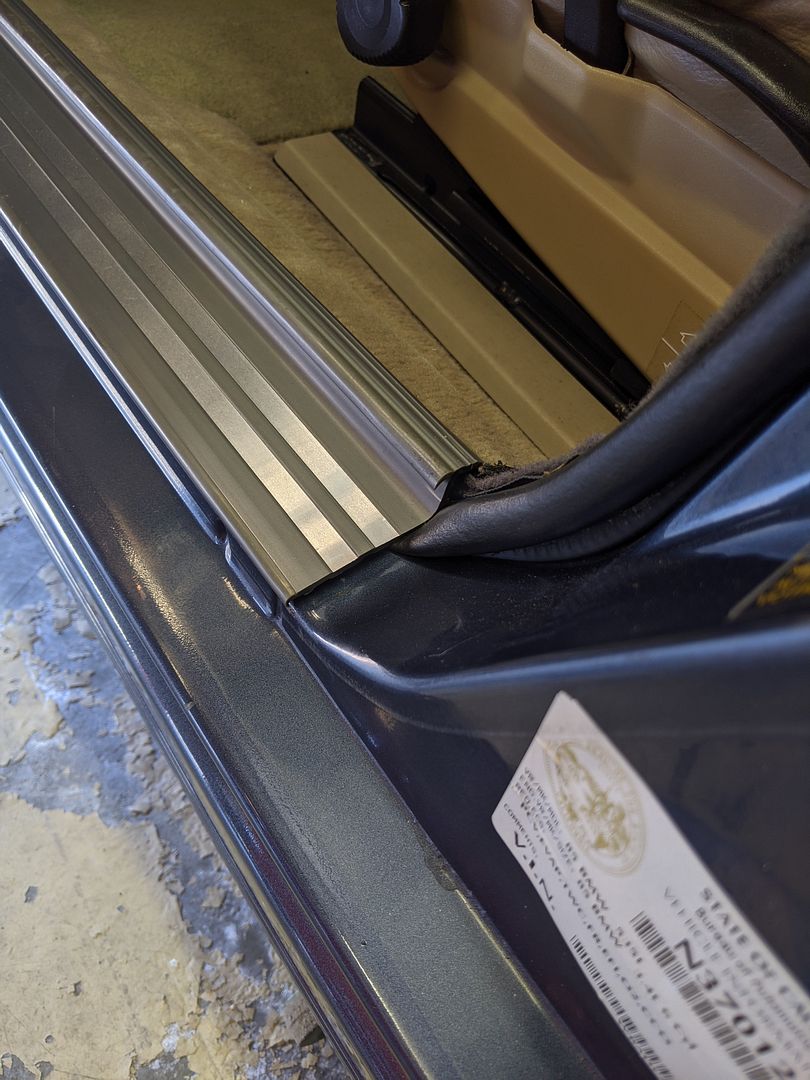
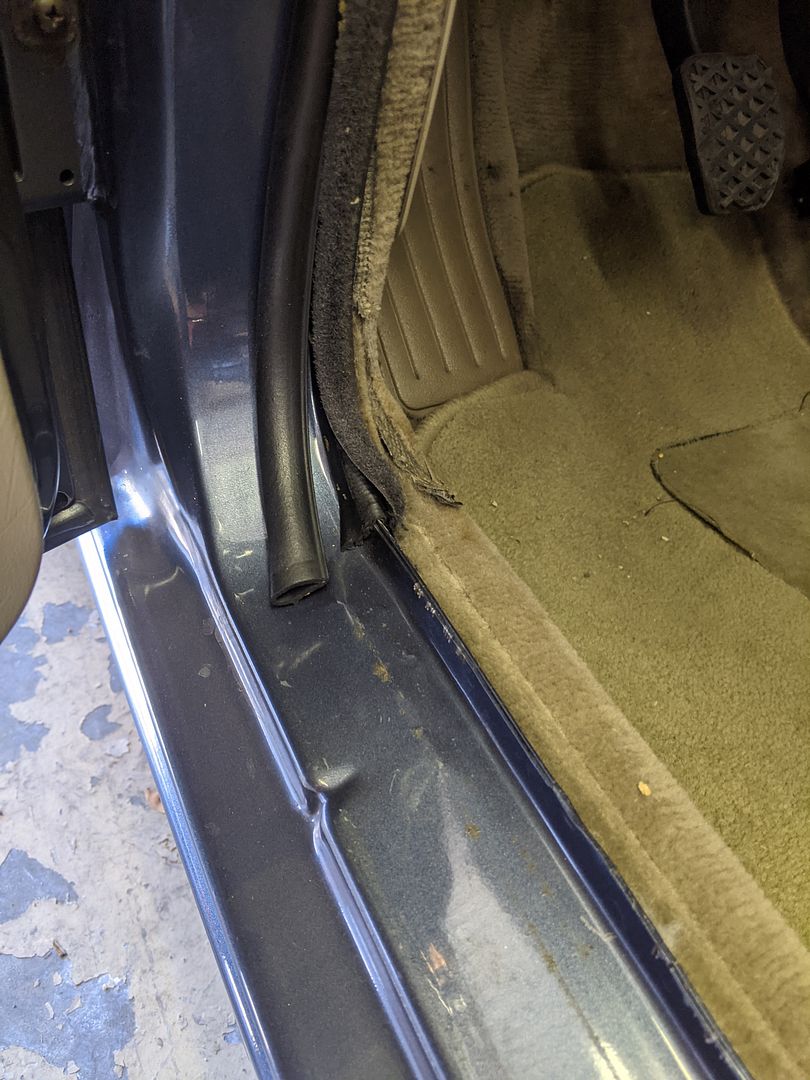
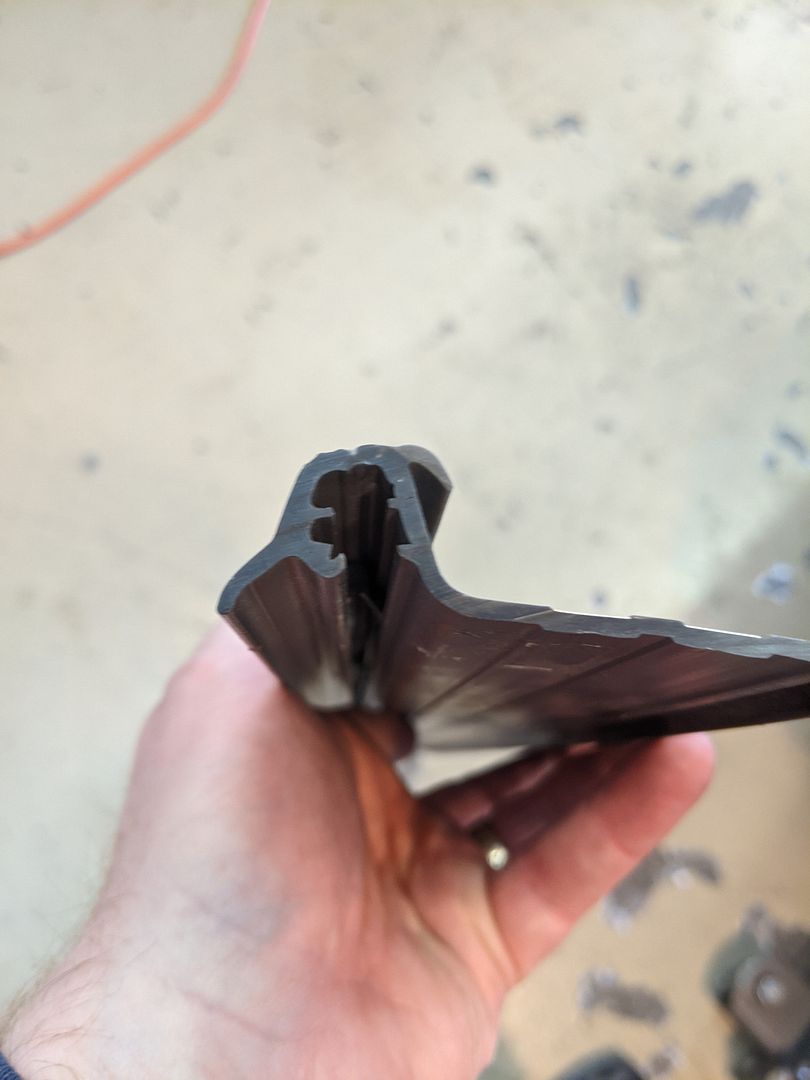
Juan replaced the leather patches that are attached to the bottom corners of the rear seals and installed them when he did the Headliner, so I am starting with fronts as a test bed for some ideas on improvements. Turns out that used Door Seals are all in pretty bad/poor condition and not worth the efforts to clean and install these (thank you for those that happily sent me their used ones for me to use), so that left either BMW replacements which are still available new but godly expensive or going with some aftermarket variety. I put myself kind in a box since my original rears were installed already, such that they were, so whatever I used for the fronts had to match. This meant BMW parts (ouch), but in the meantime I did some eBay searching and came across a guy in Turkey that made a complete set of all four for a good price albeit missing the fuzzy trim. I decided to try them out and/or see if I could modify them.
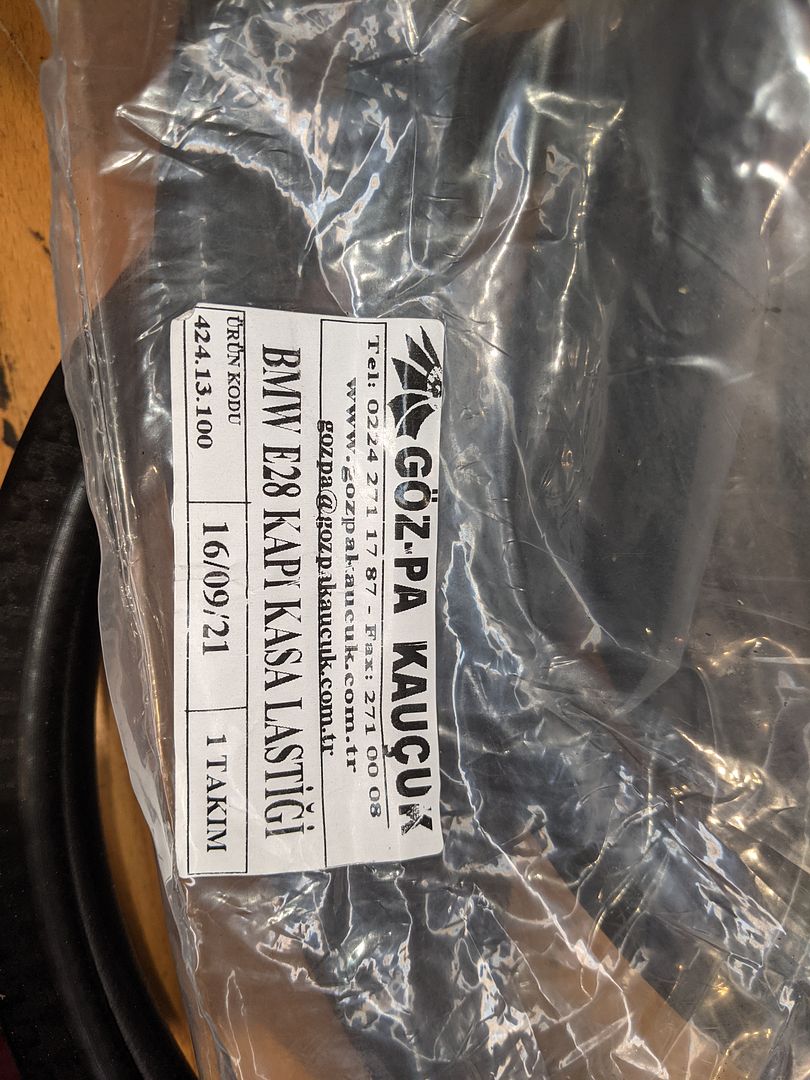
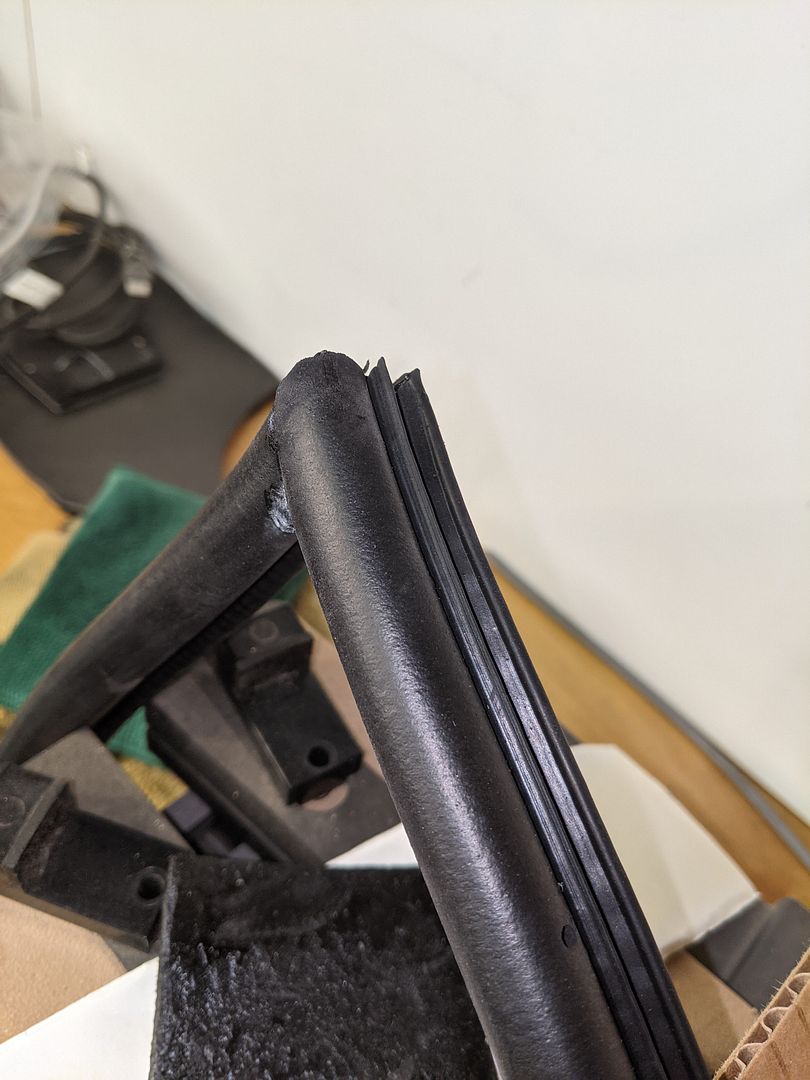
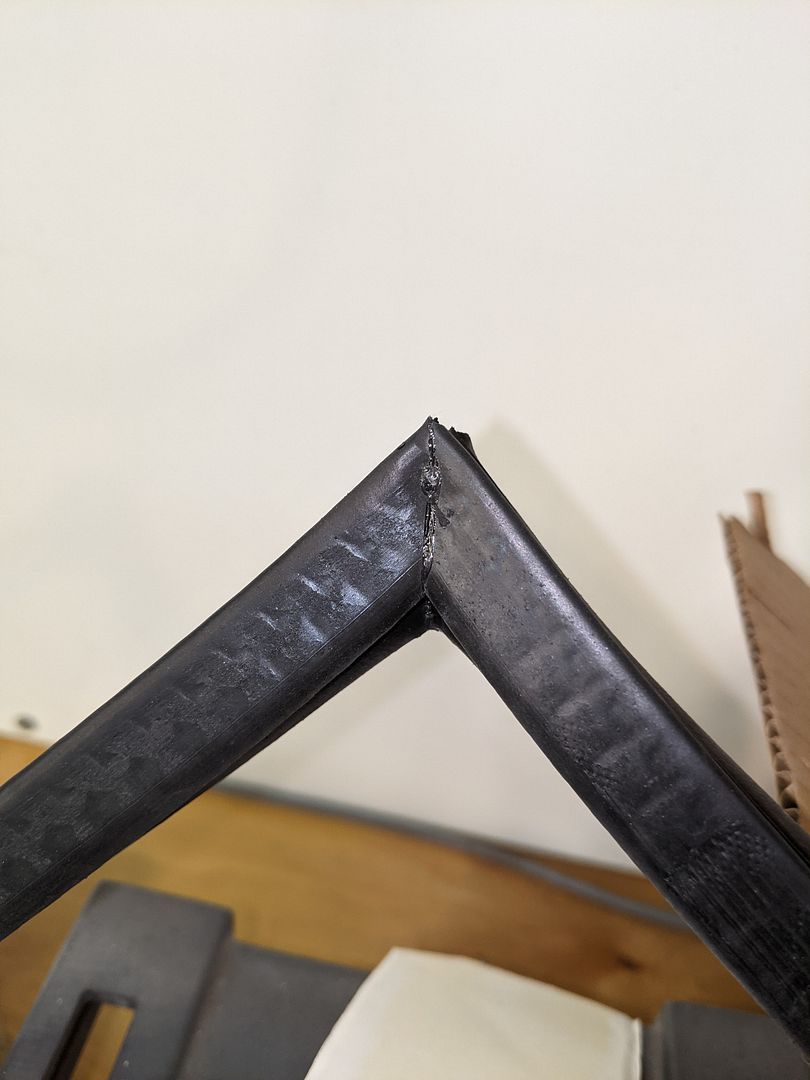
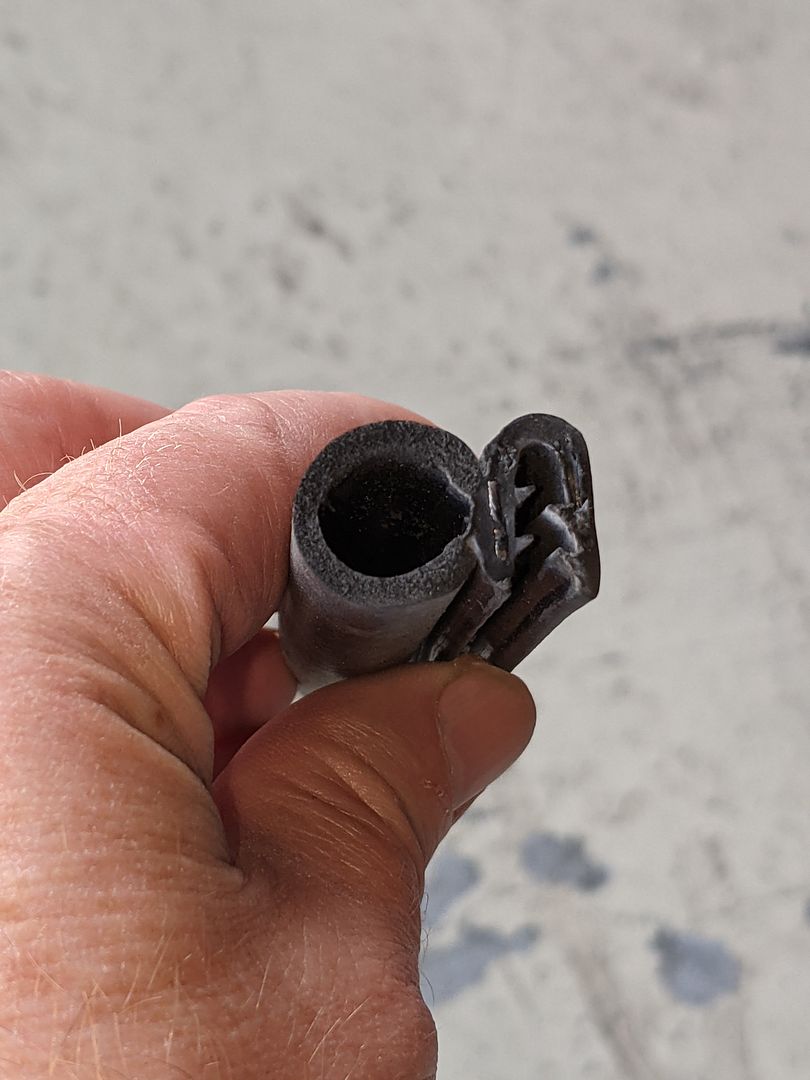
Turns out these are actually very nice and robust and made to fit the entire door opening pinch weld including what normally gets covered by the Door Sill cap (BMW’s design stops at either end of the Sill Cap which breaks the seal and compromises any sealing ability; don’t know why they didn’t change this as they did with the E24 and all modern models). For now, I have installed the Turkish front seals without Sill Caps (I didn’t glue these in) and am looking at seeing if I can somehow combine parts of the Turkish seals and BMW Sill Caps to create a positive seal all across the door bottom. I did buy the BMW Door Seals with fuzzy trim (again: ouch) to install in the rest of the openings, but the bottom Sill Cap will be modified somehow.
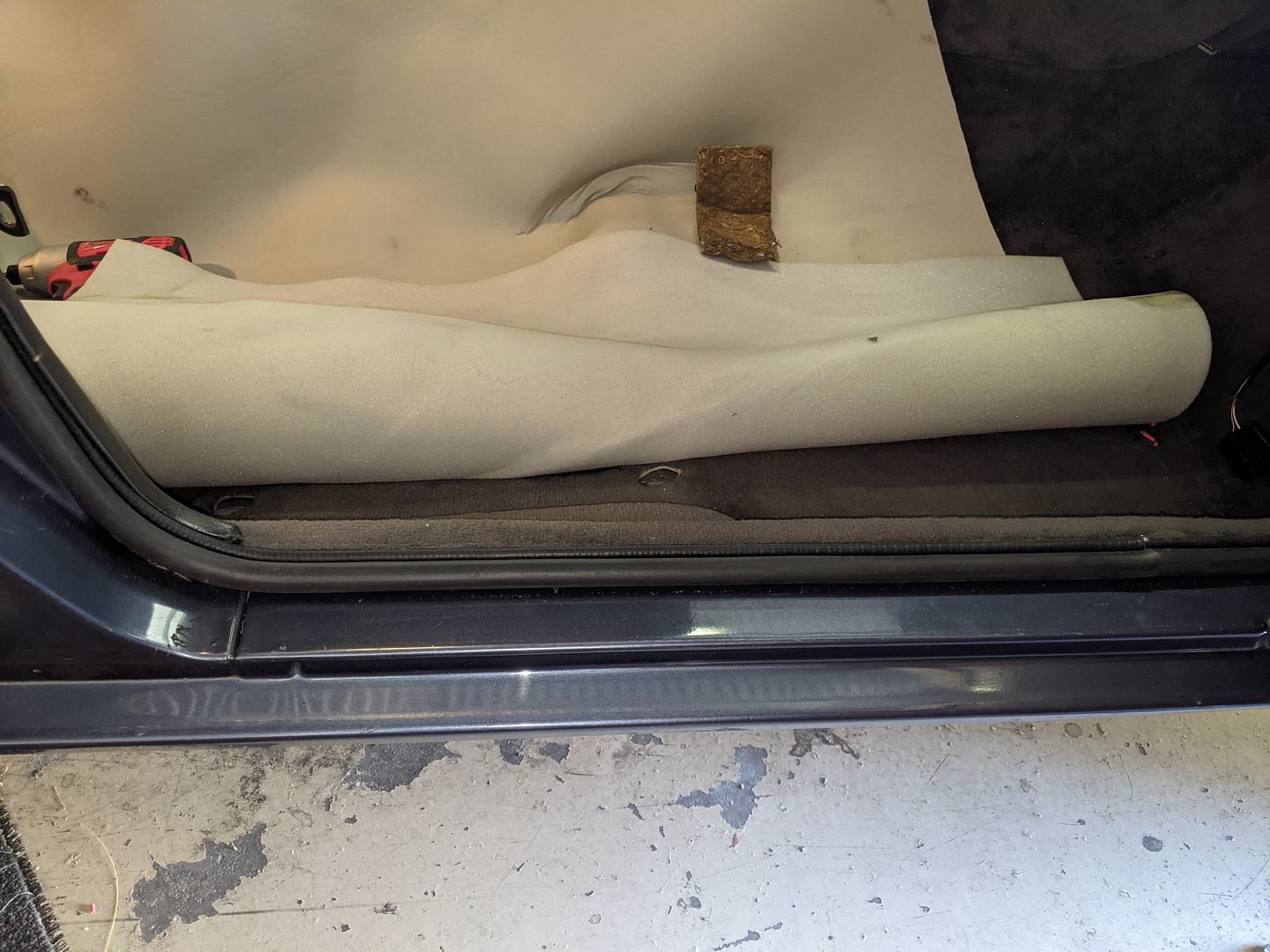
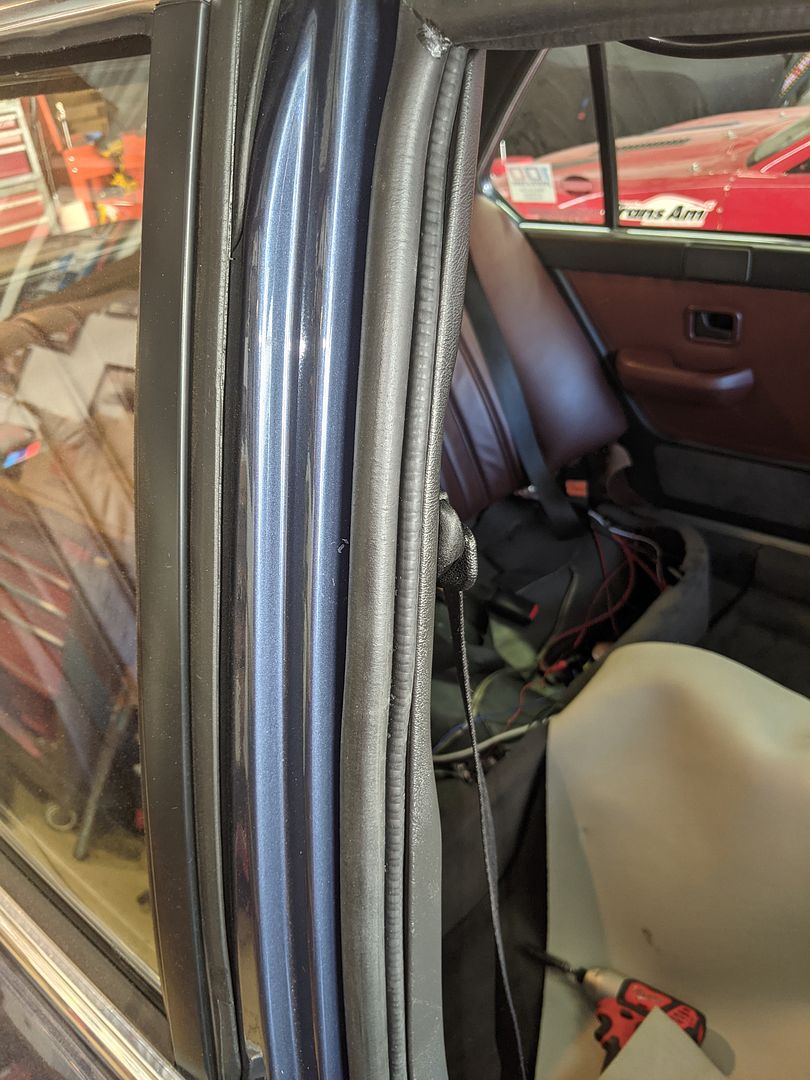
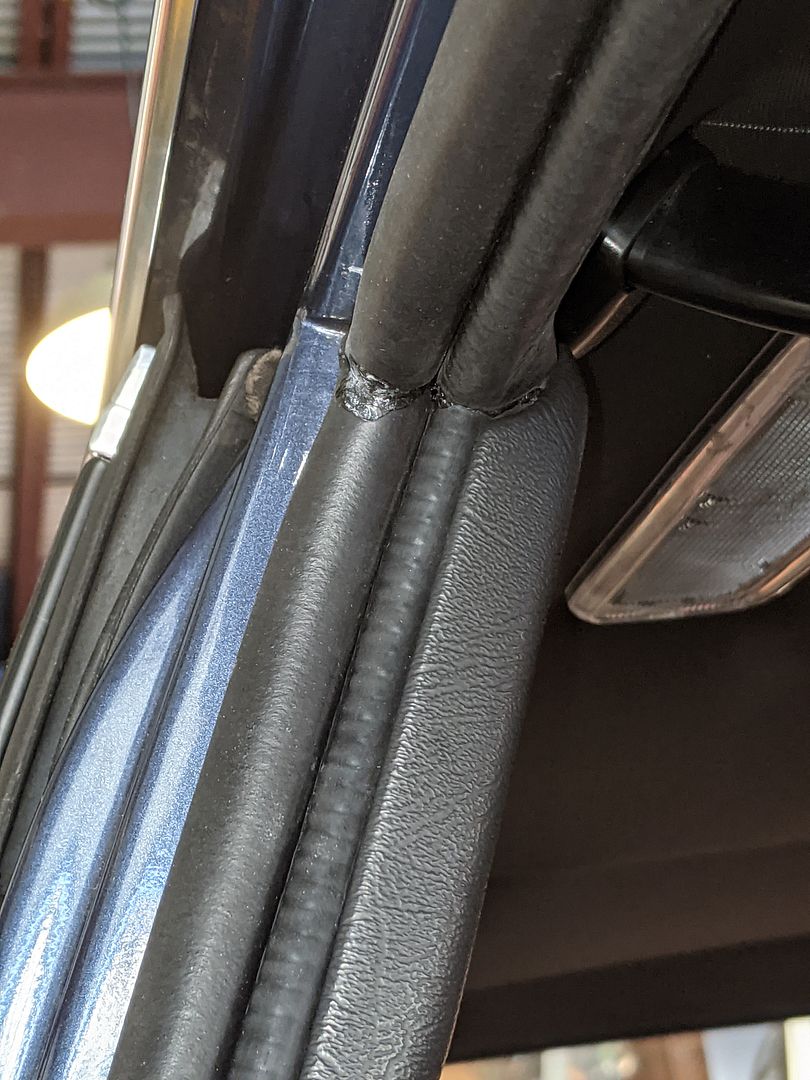
SEAT INSTALLATION:
I saved the best for last in a way since I didn’t want anything to happen to these along the way. Besides I know it’s what a lot of you are dying to see since I’ve been leaking images of the individual components. I have removed and reinstalled the interior in this car many times up until now so I was not terribly worried that this part would prevent me from meeting my deadline of the SoCal Vintage BMW show (which was looming much larger in the calendar as the end of October was rolling around quickly by this point). Well, with all that new padding and leather installing both the upper and lower Rear Seat parts proved to take a LOT more effort than in the past and that was both my wife and I applying maximum force. That rear lower left bolt just wouldn’t line up for the upper back nor would the bench slide in under the upper back. Eventually after several attempts they both got installed (it took a longer ST Screw Bolt for the upper back to lever it into place) and we moved onto final finishing.
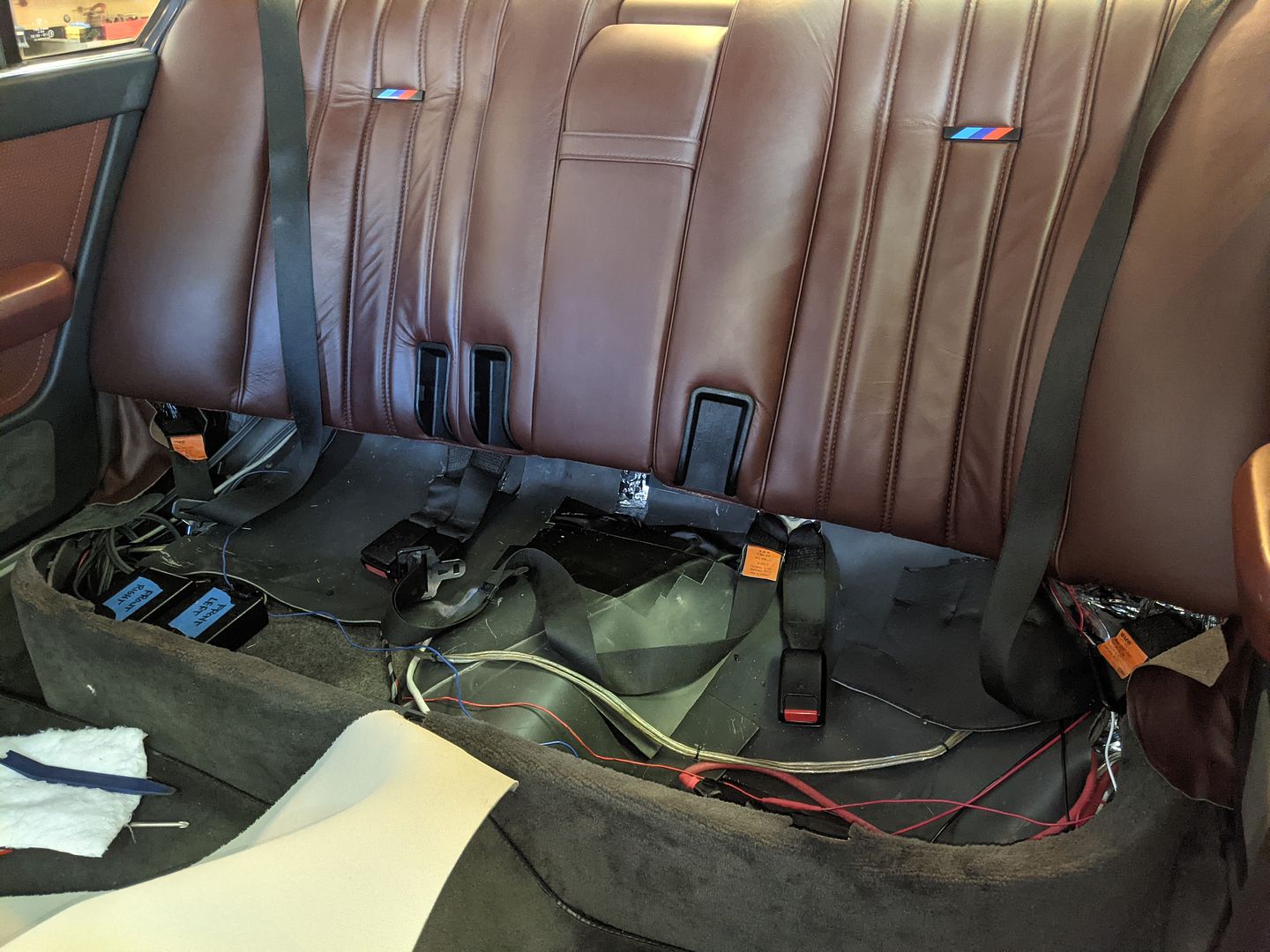
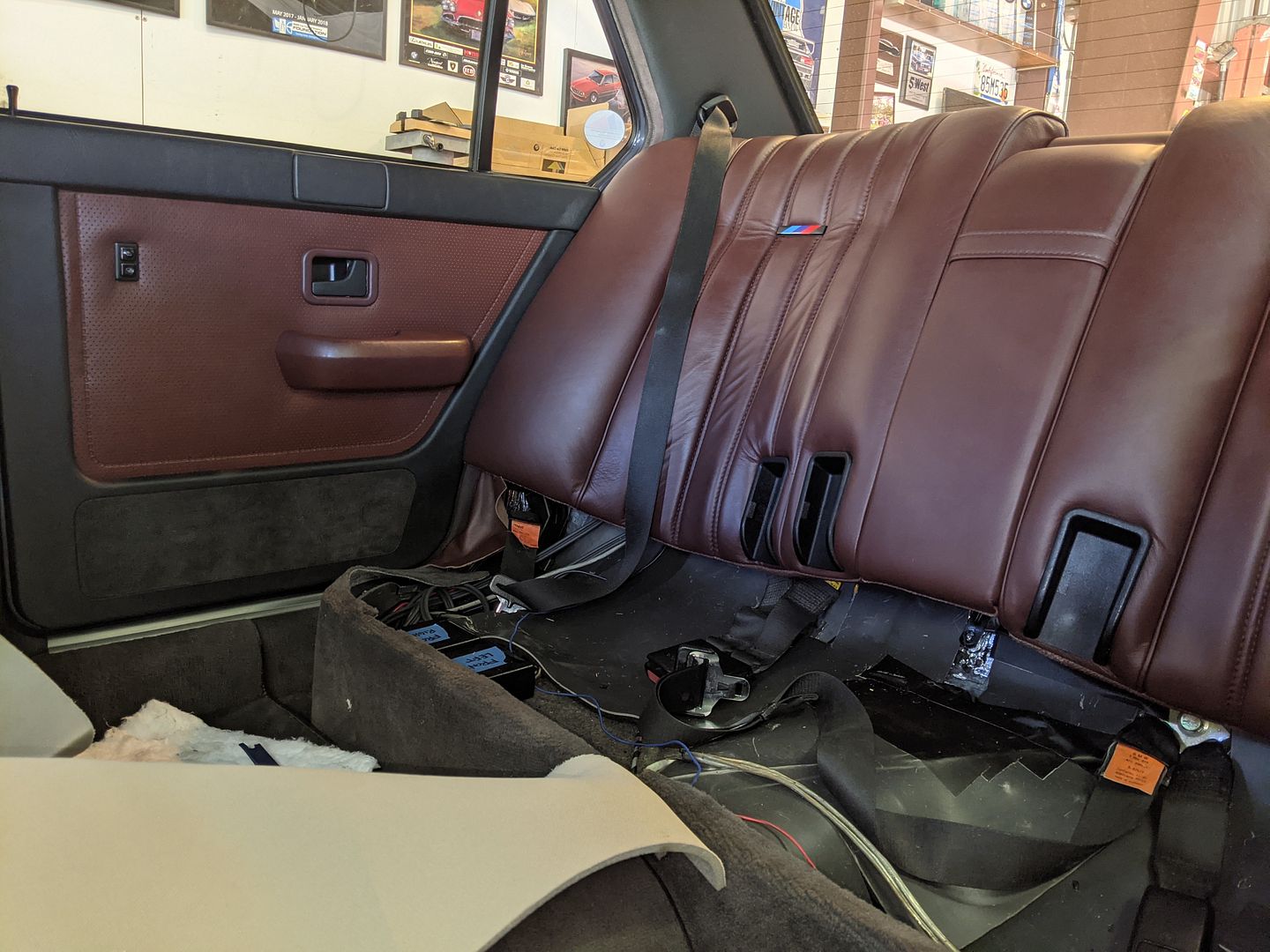
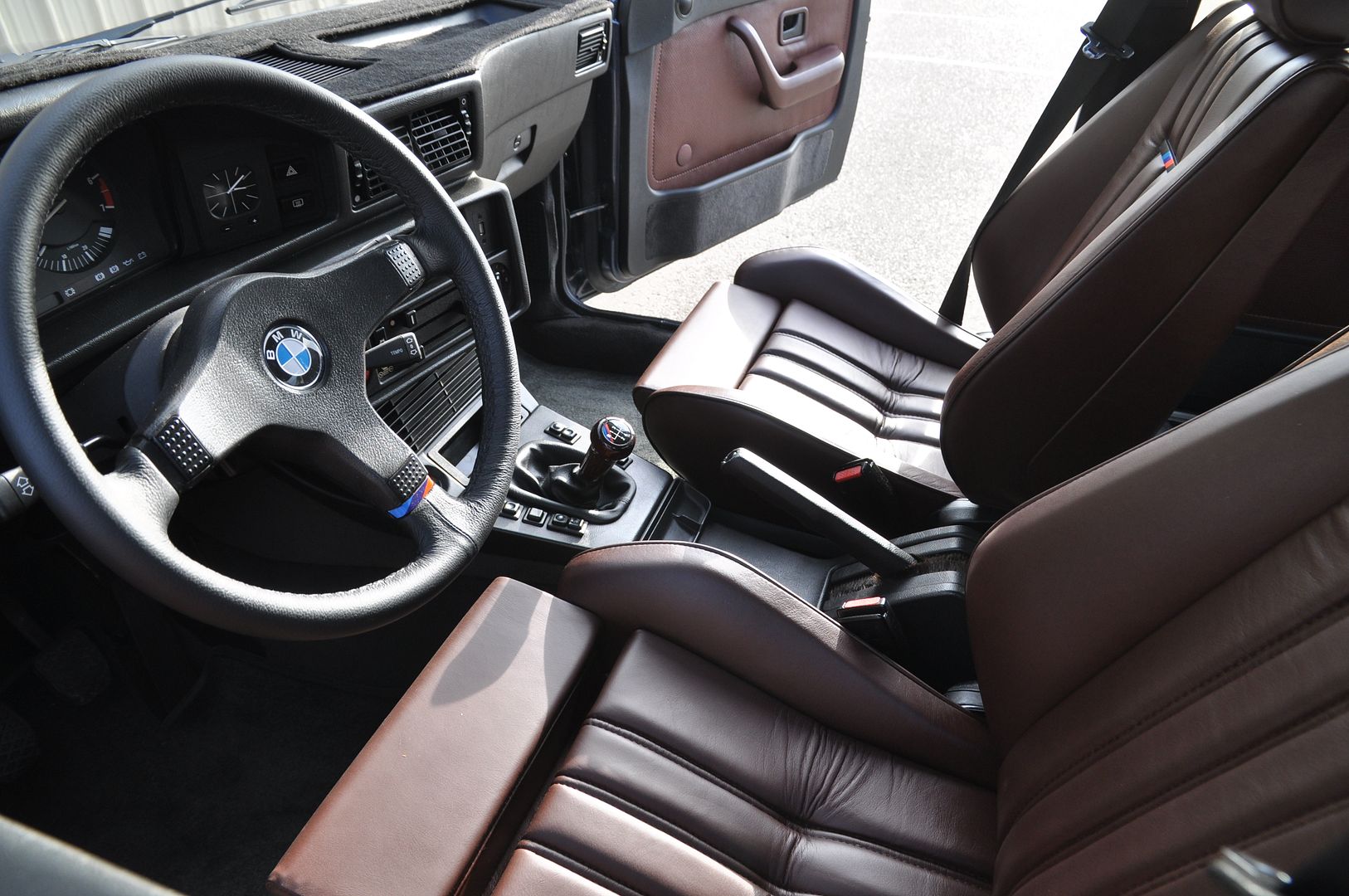
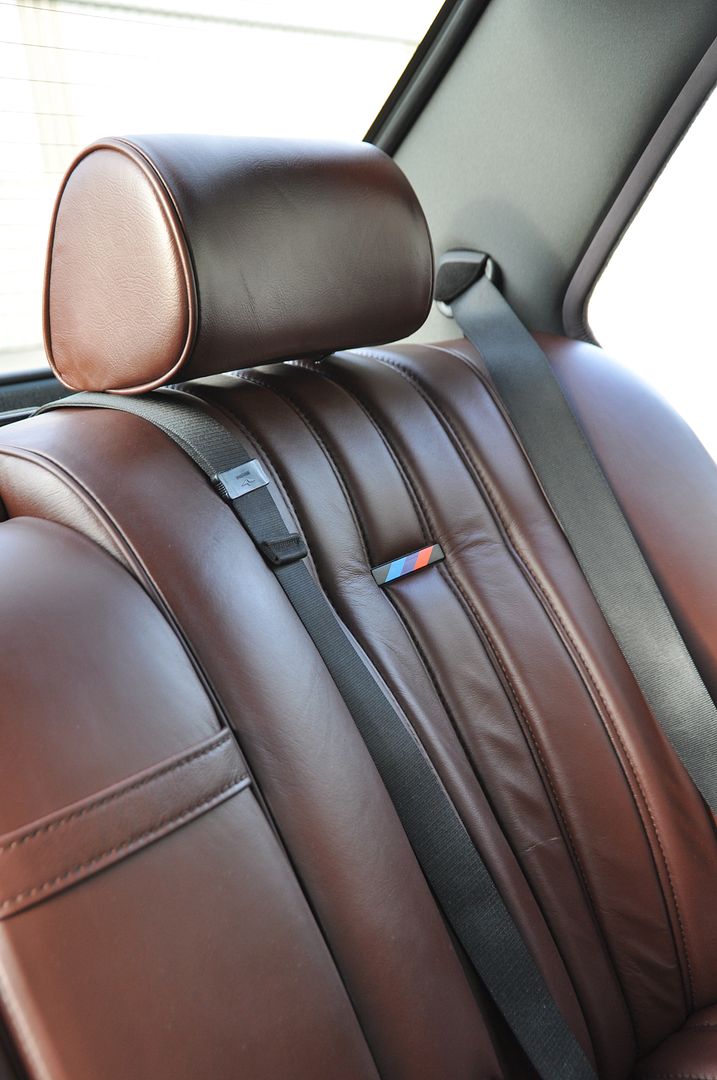
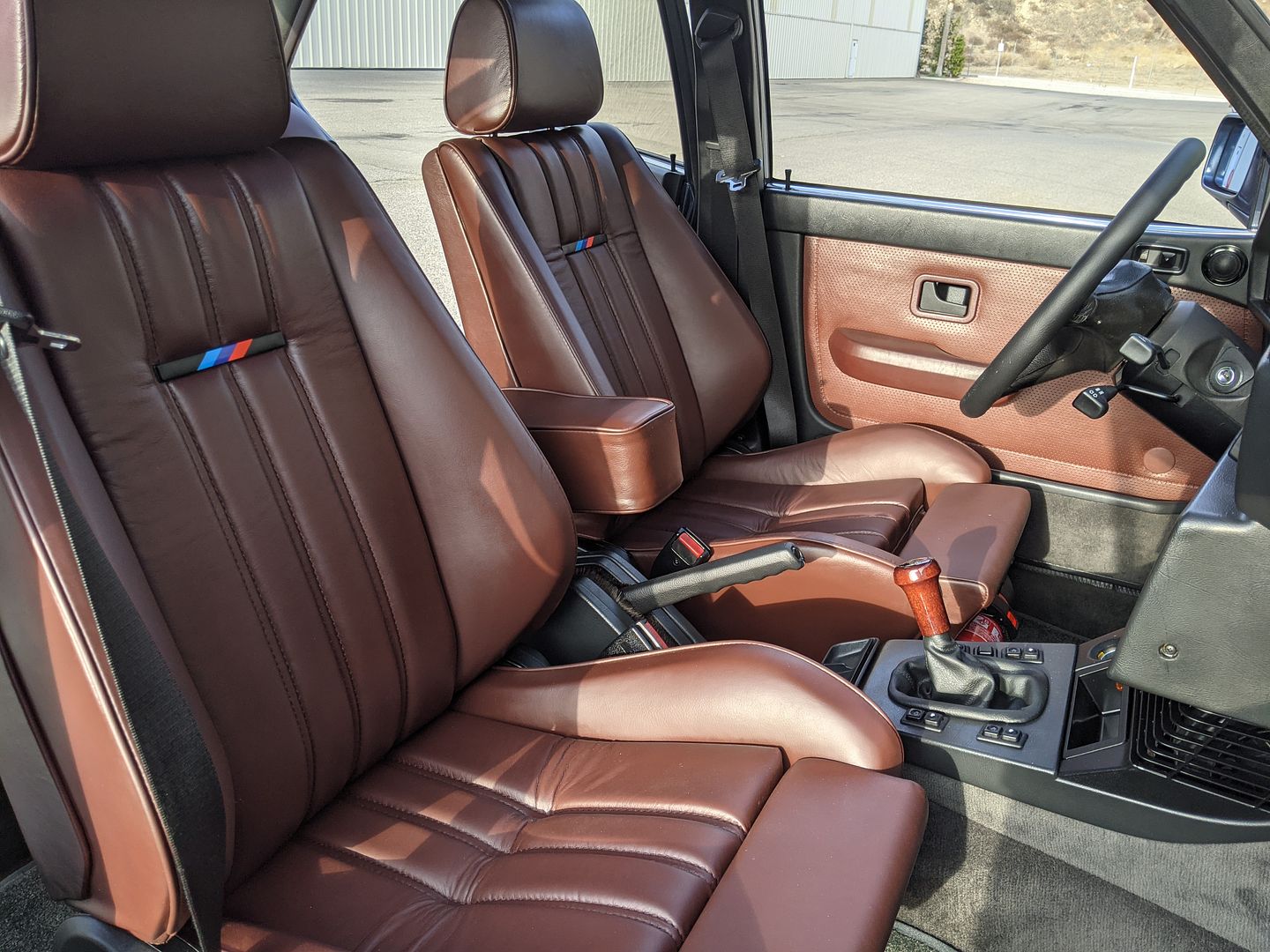
FINAL:
Well, here it is finally. I made it in time for the show albeit with a very long Punch/Troubleshoot List which I am scheduling in the calendar as this winter progresses. There are still some exterior body work repairs to tackle (hopefully in a few weeks before Christmas) as well another trip down the SMOG compliance yellow-brick road (luckily my last). The seats are extremely comfortable and sumptuous with all that beautiful new leather. The car is noticeably quieter with much of the road noise filtered out; it’s really just engine and transmission noise coming through now. No idea about temperature since I need to get on an extended summer road trip to see about that (although there may be some information bias at play here since I REALLY want this car to be quieter and cooler especially after all the effort and cost).
Overall, I am very happy with how this major project finished out; what do you all think?
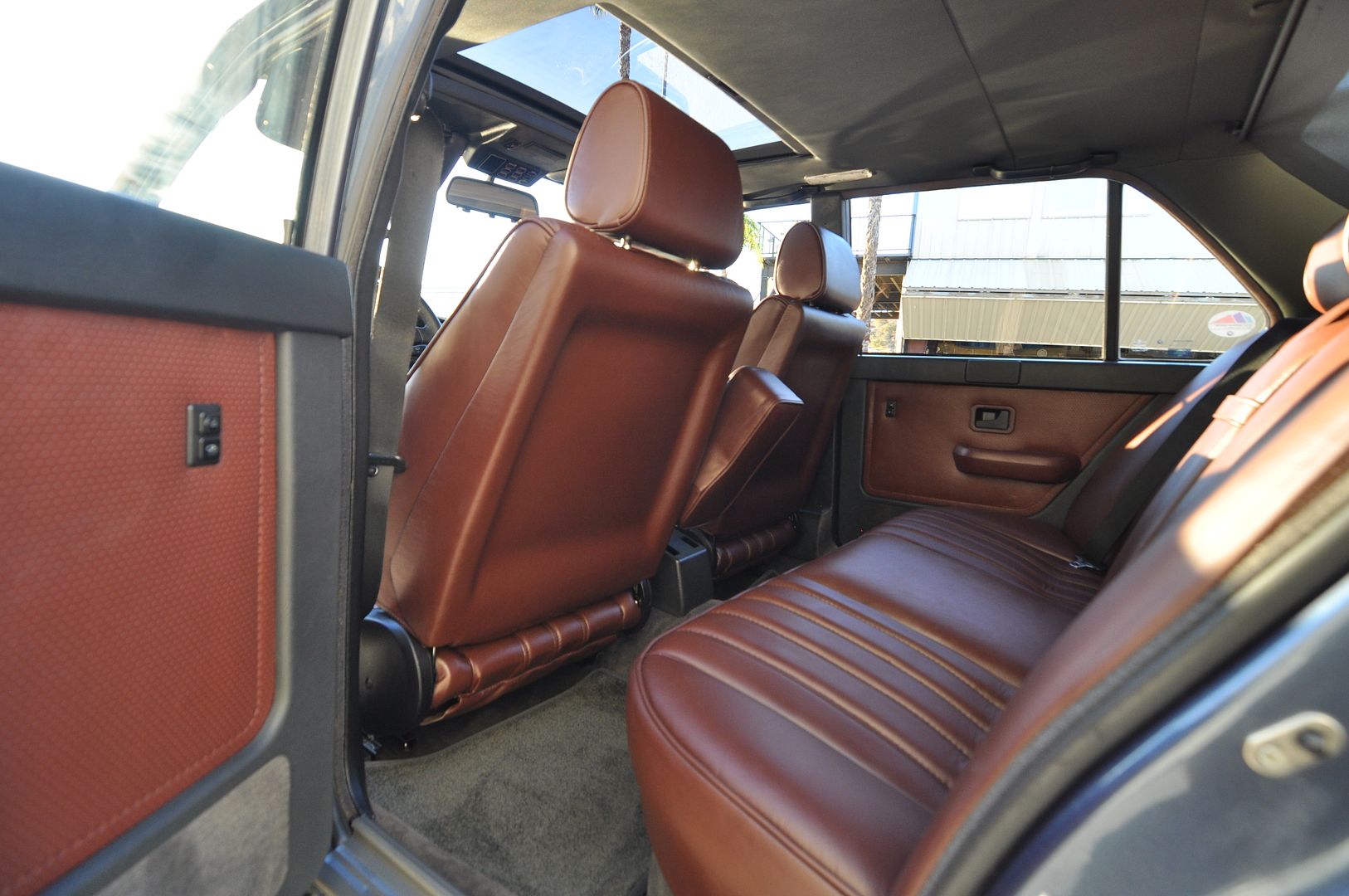
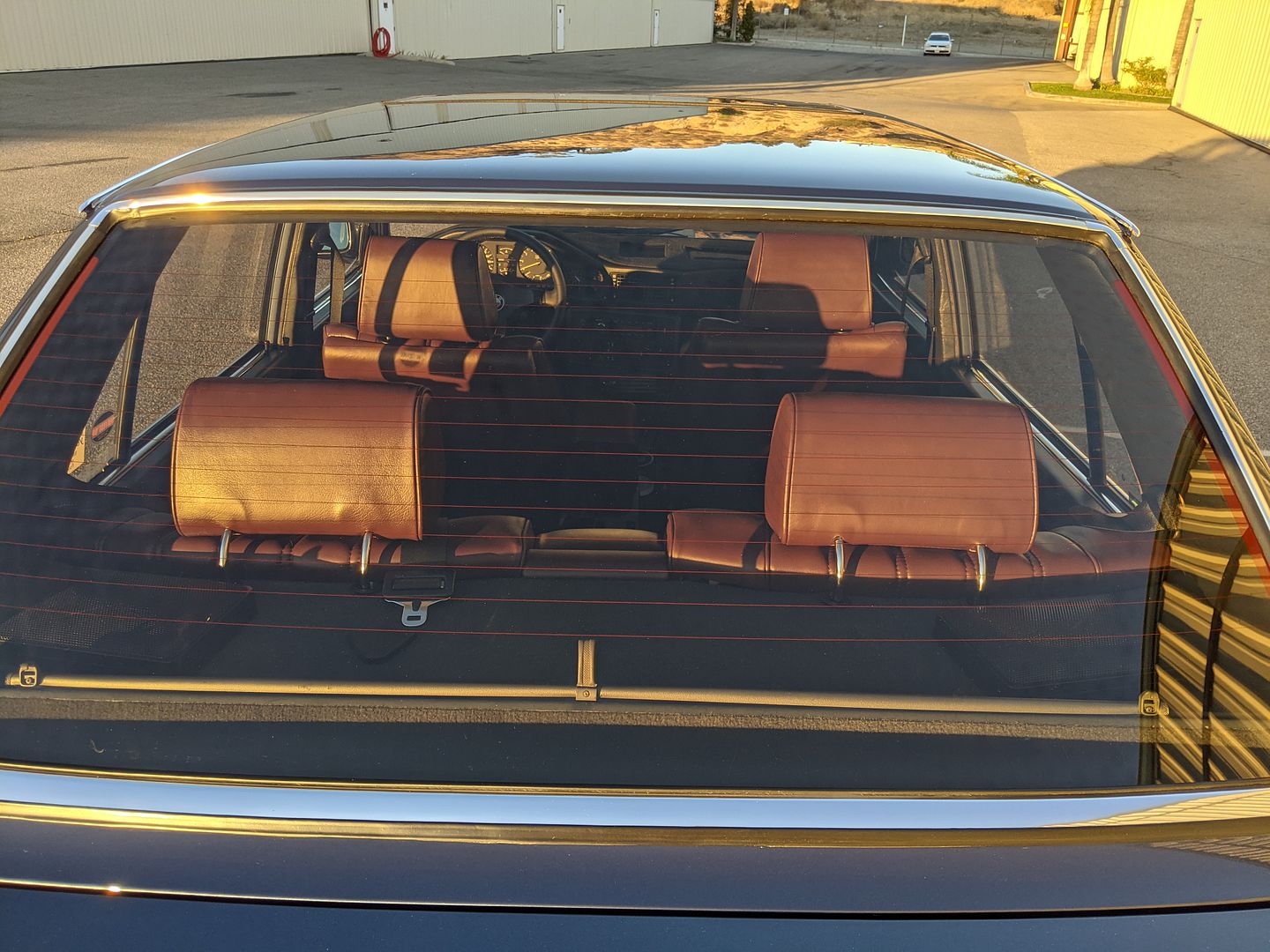
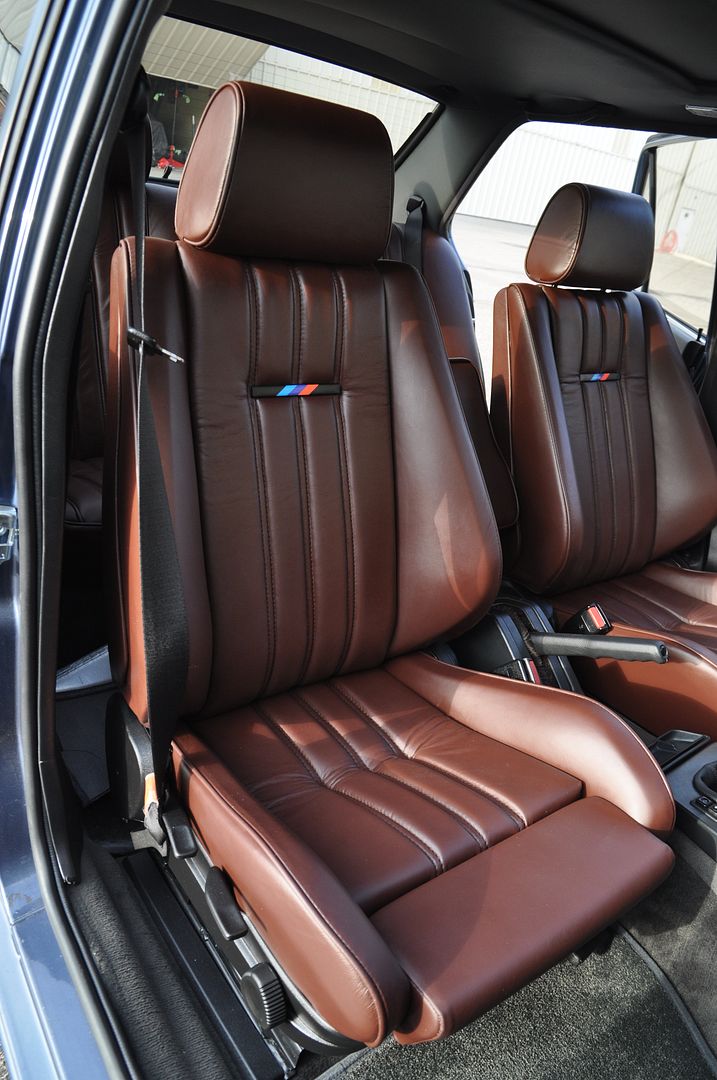

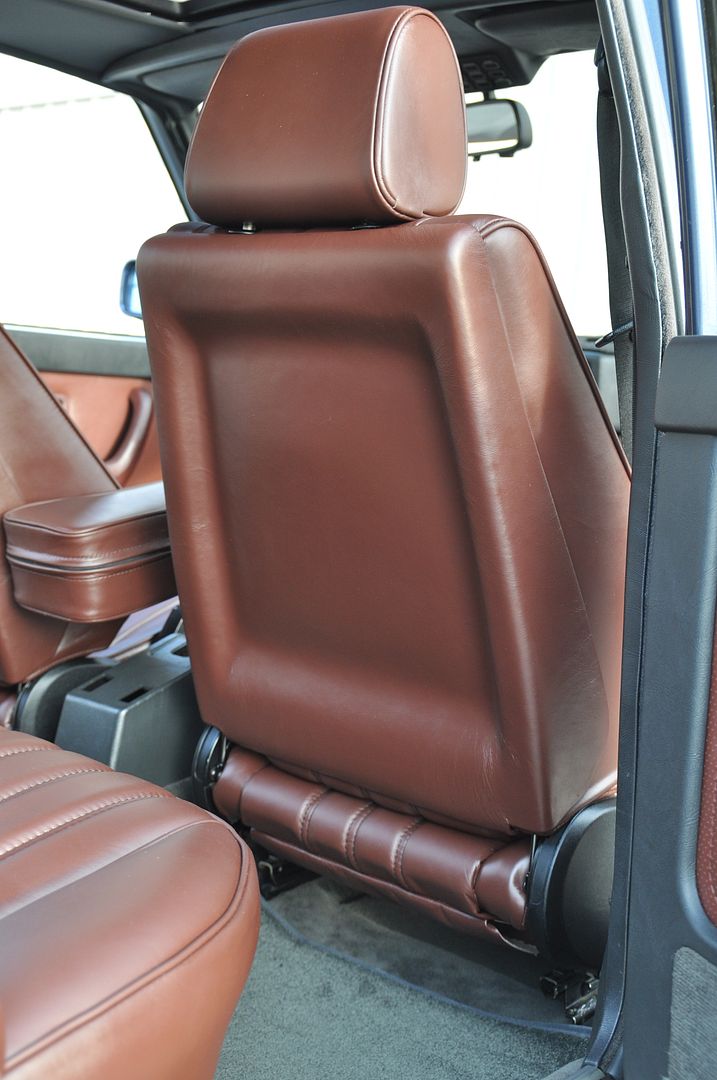
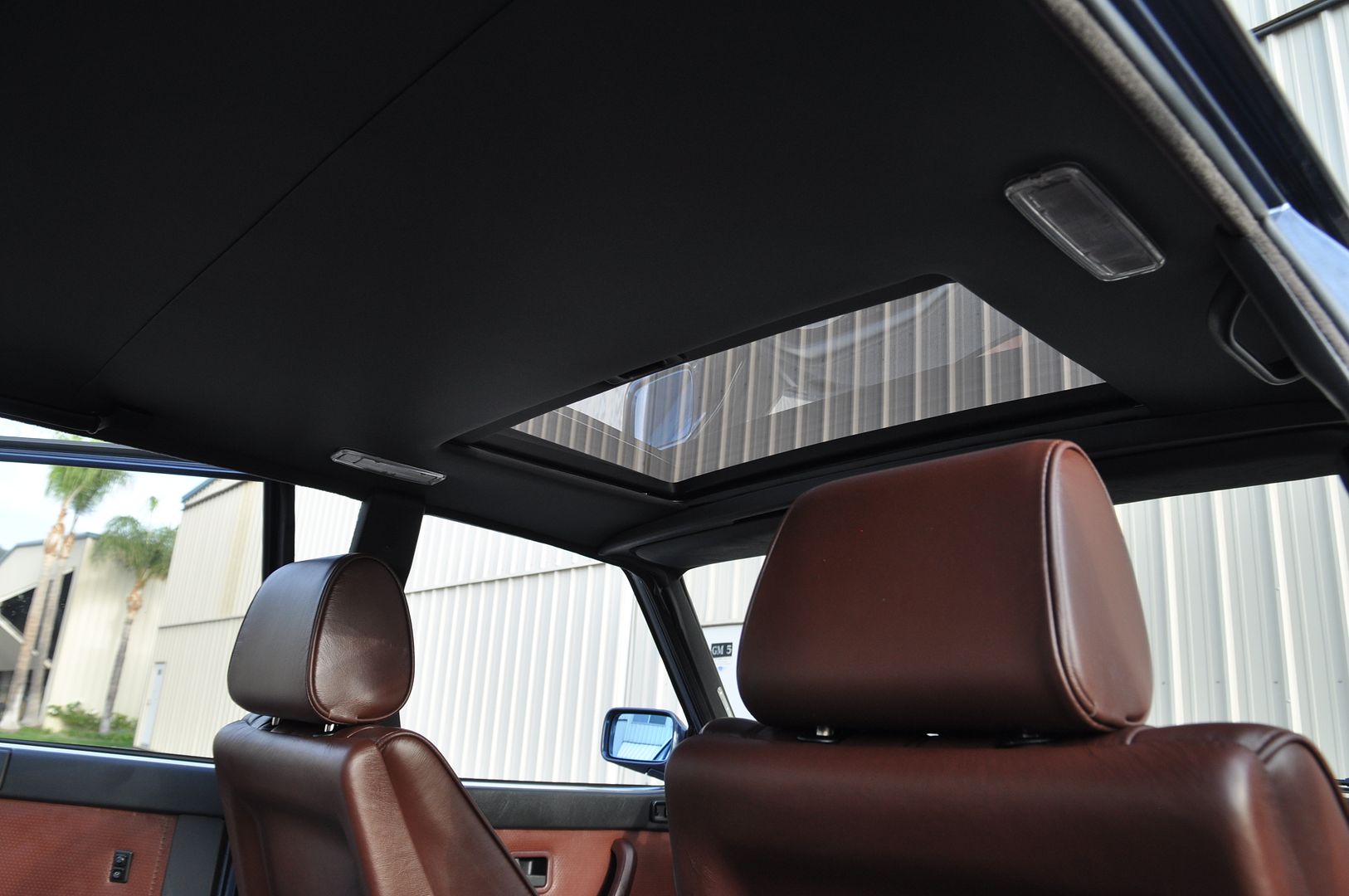
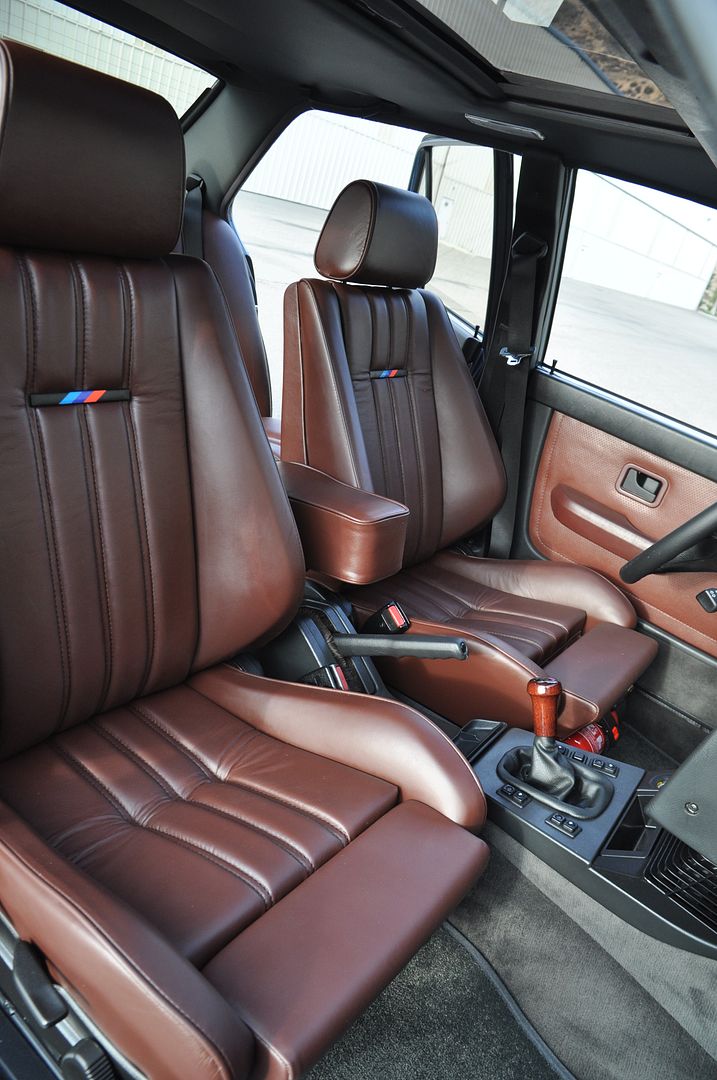
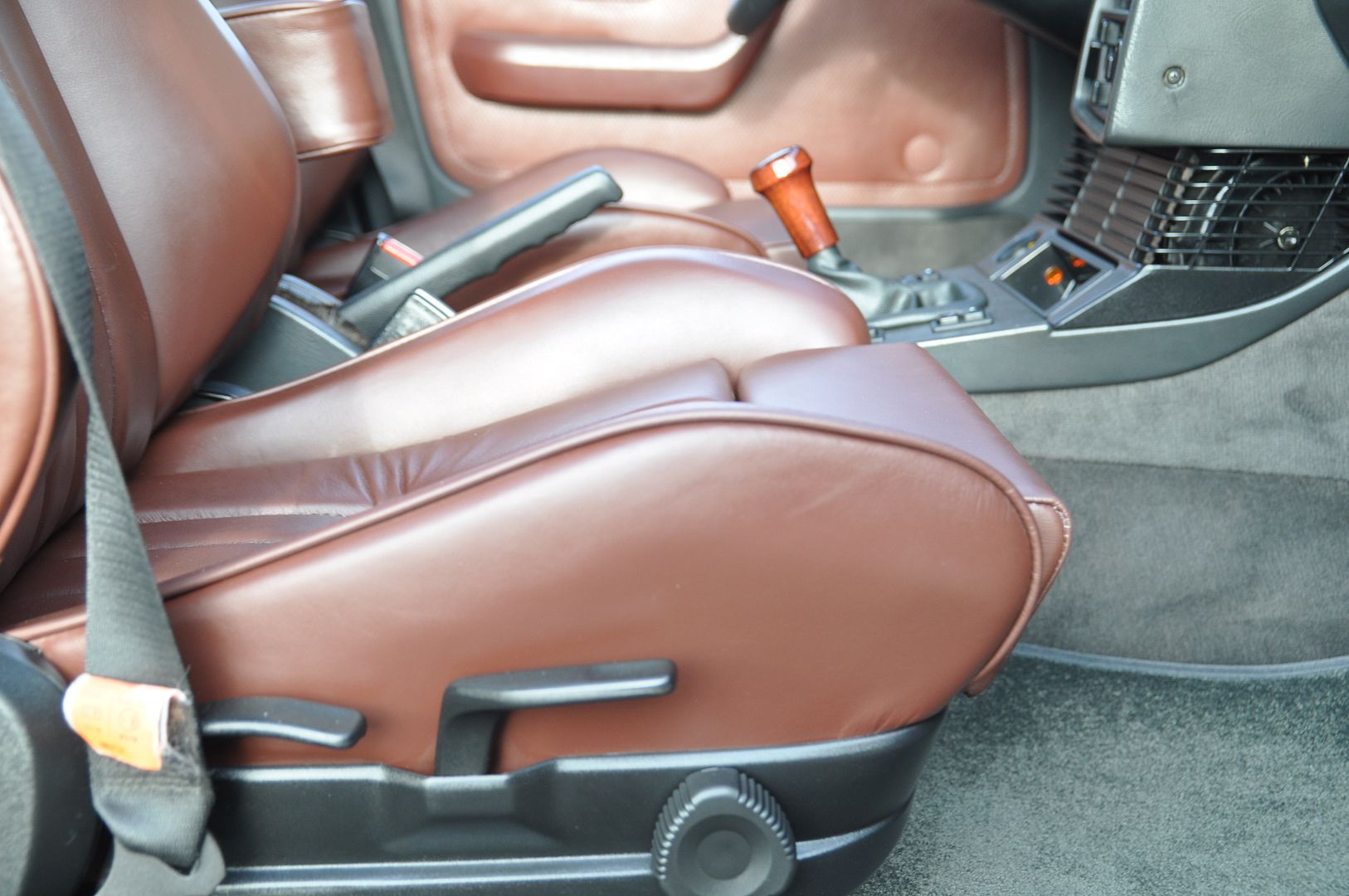
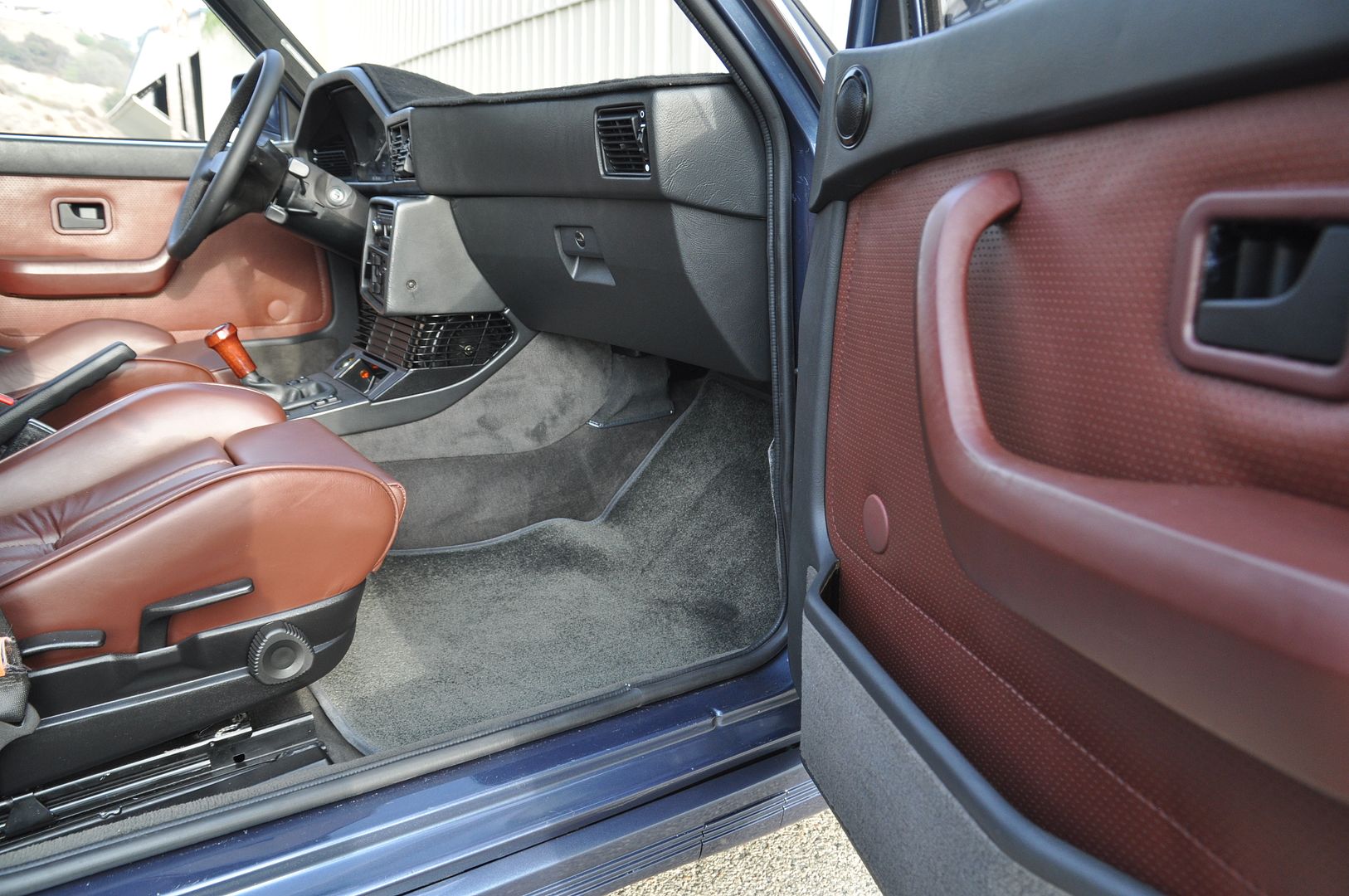
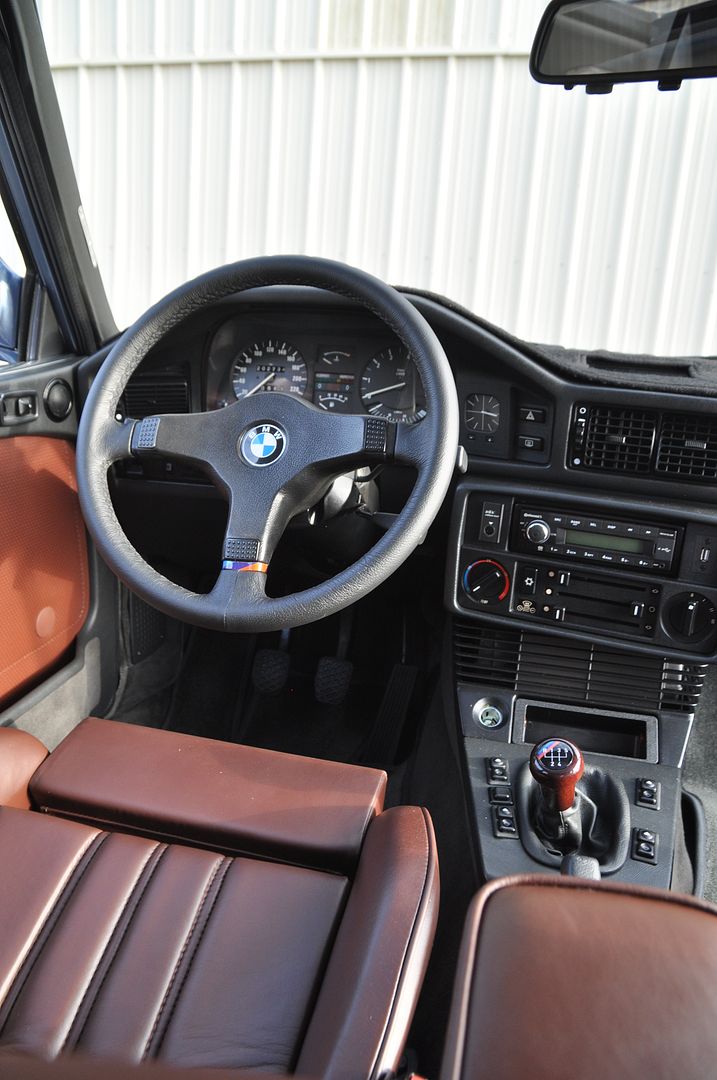
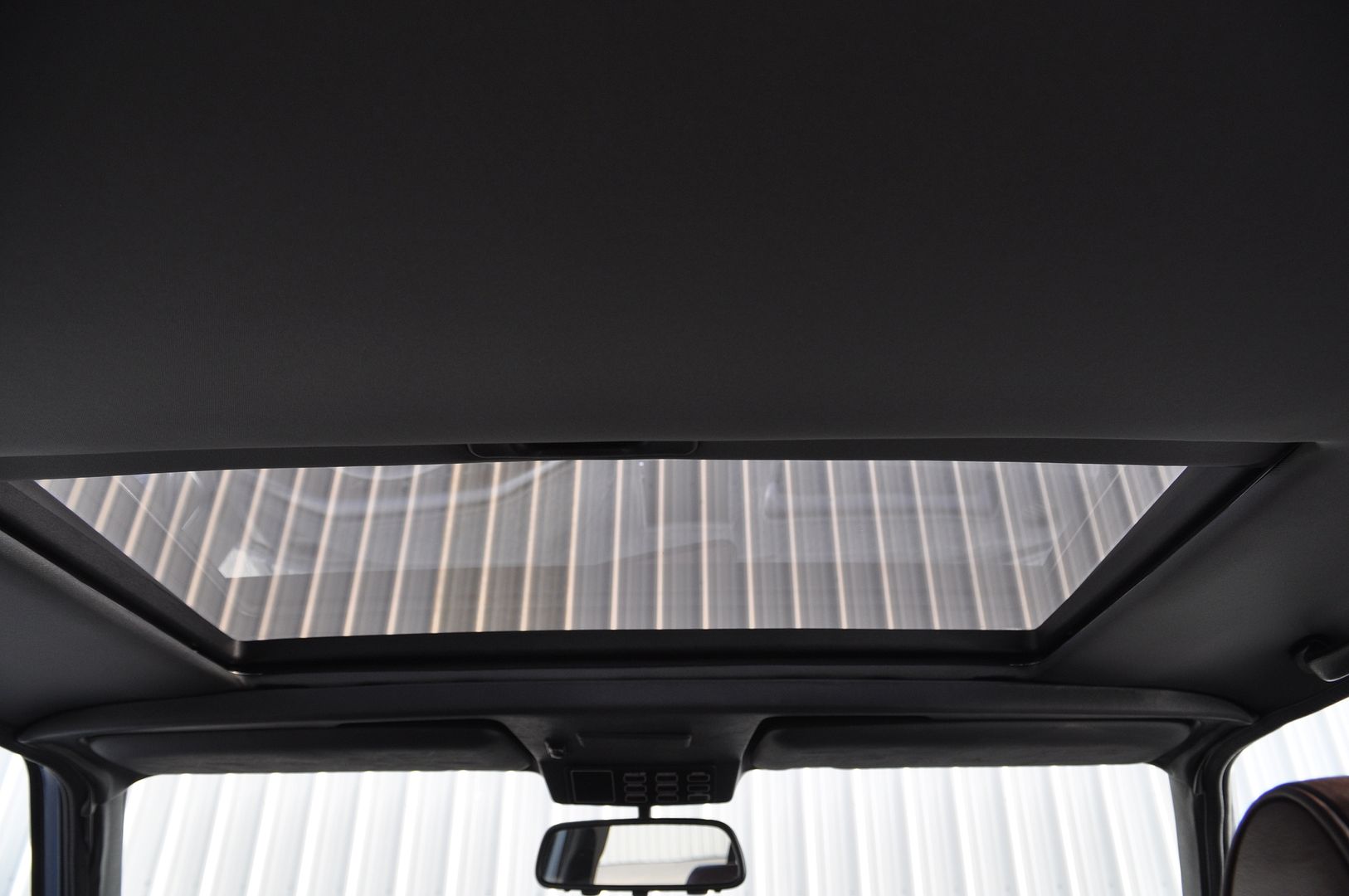
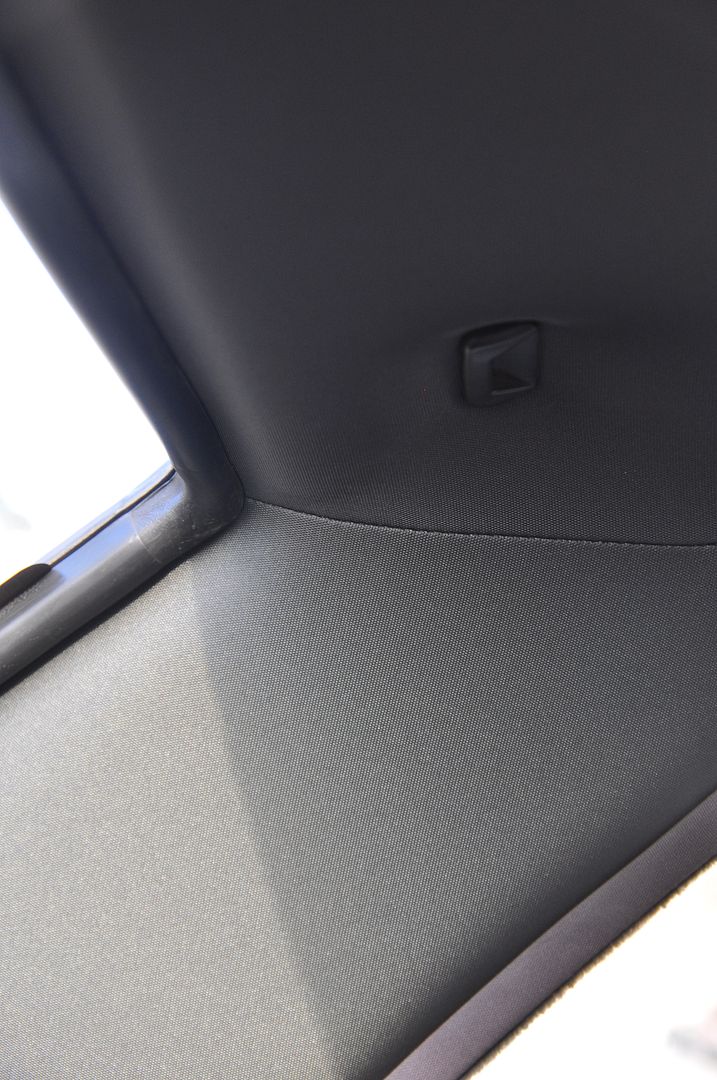
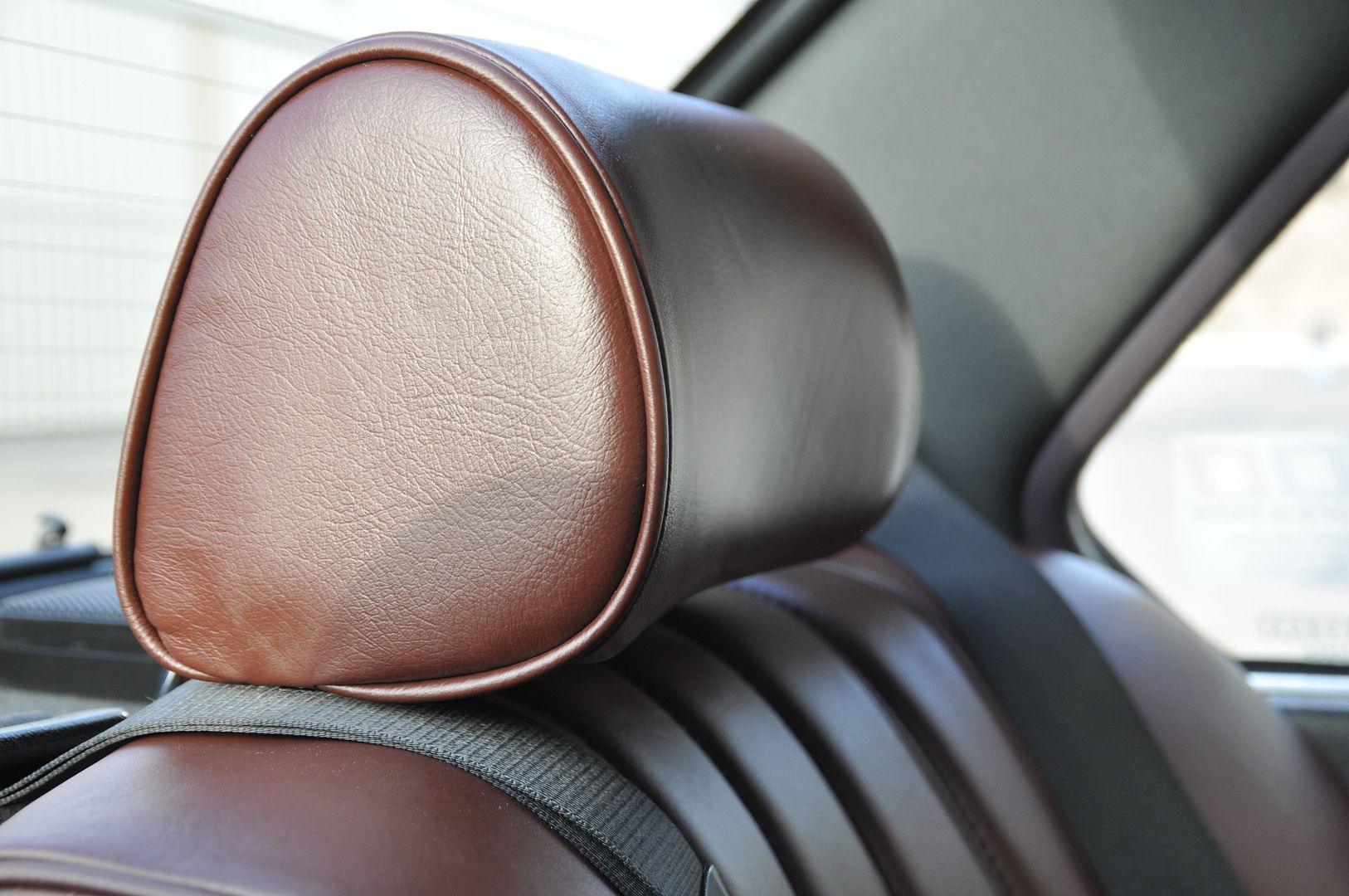
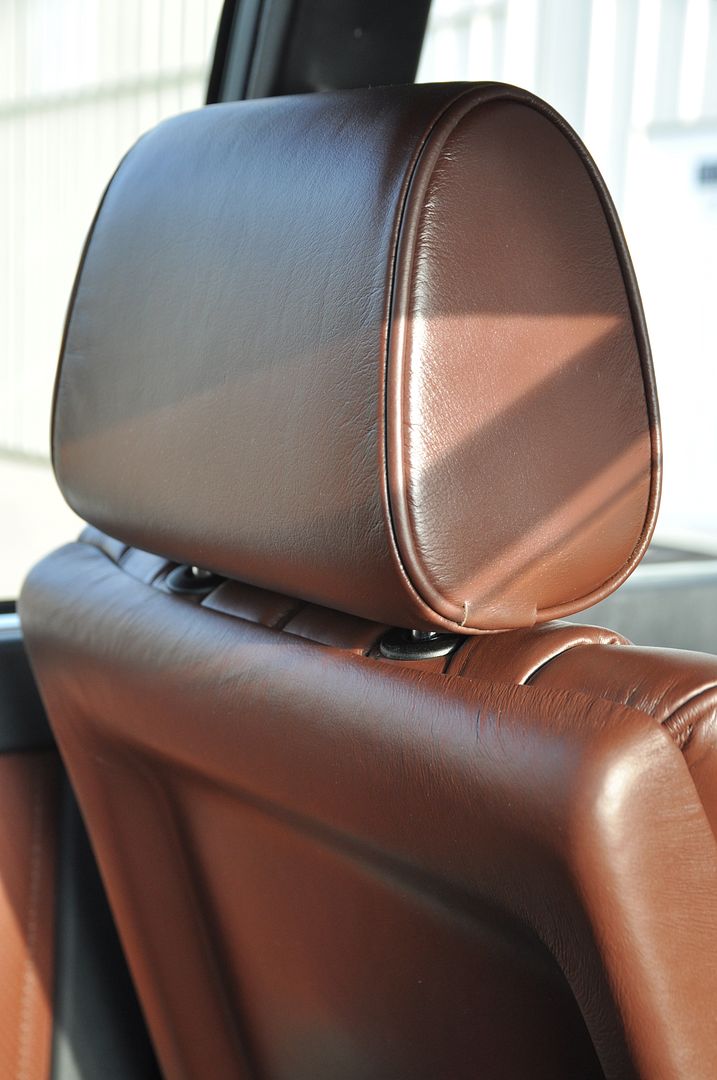
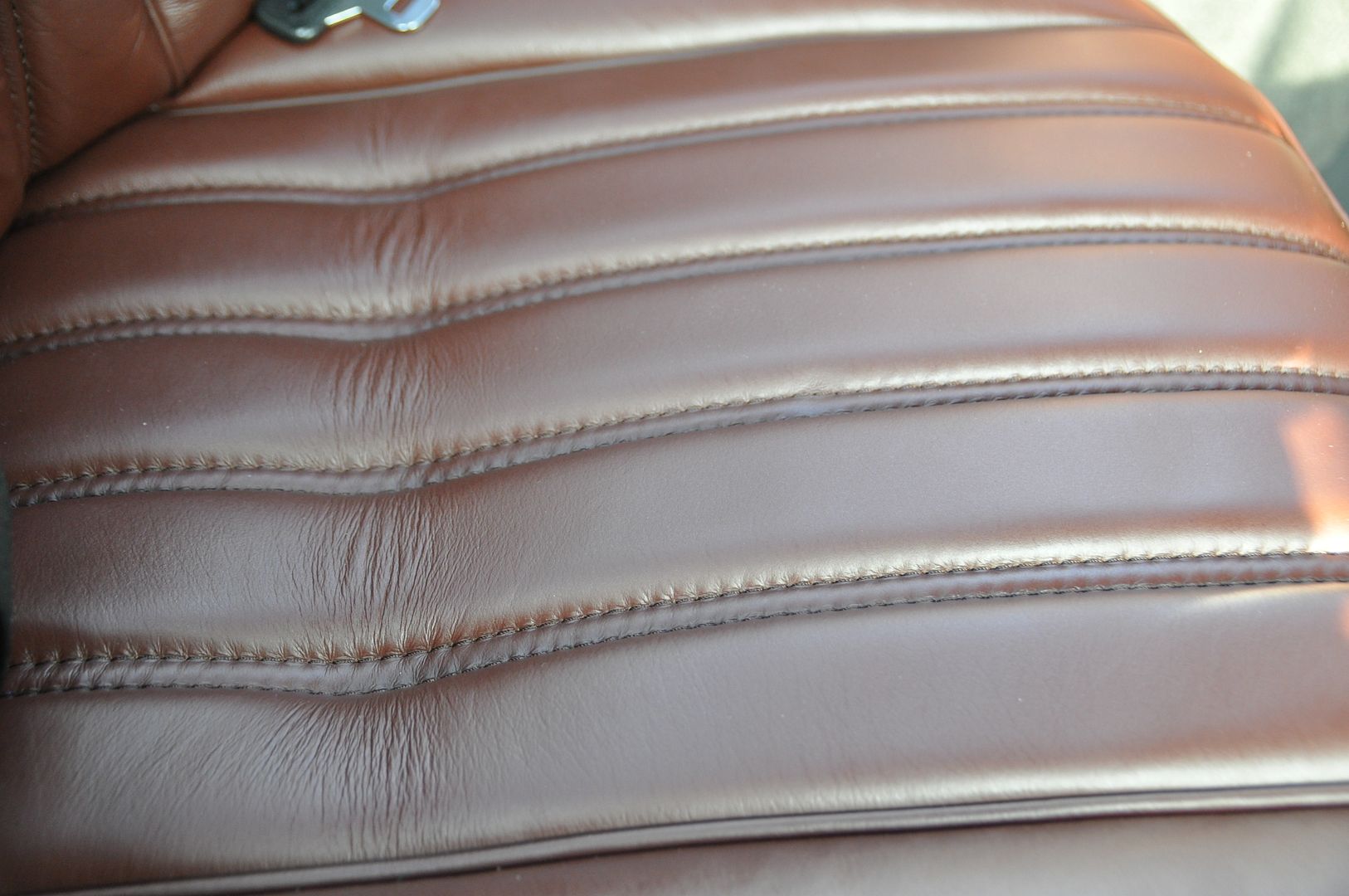
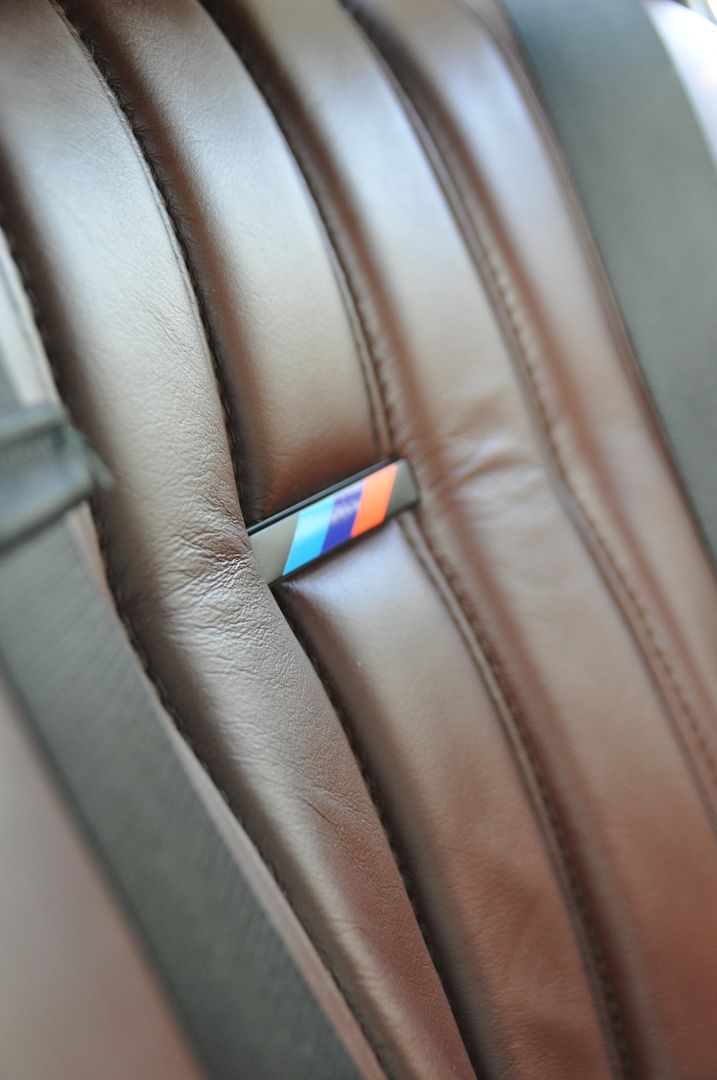
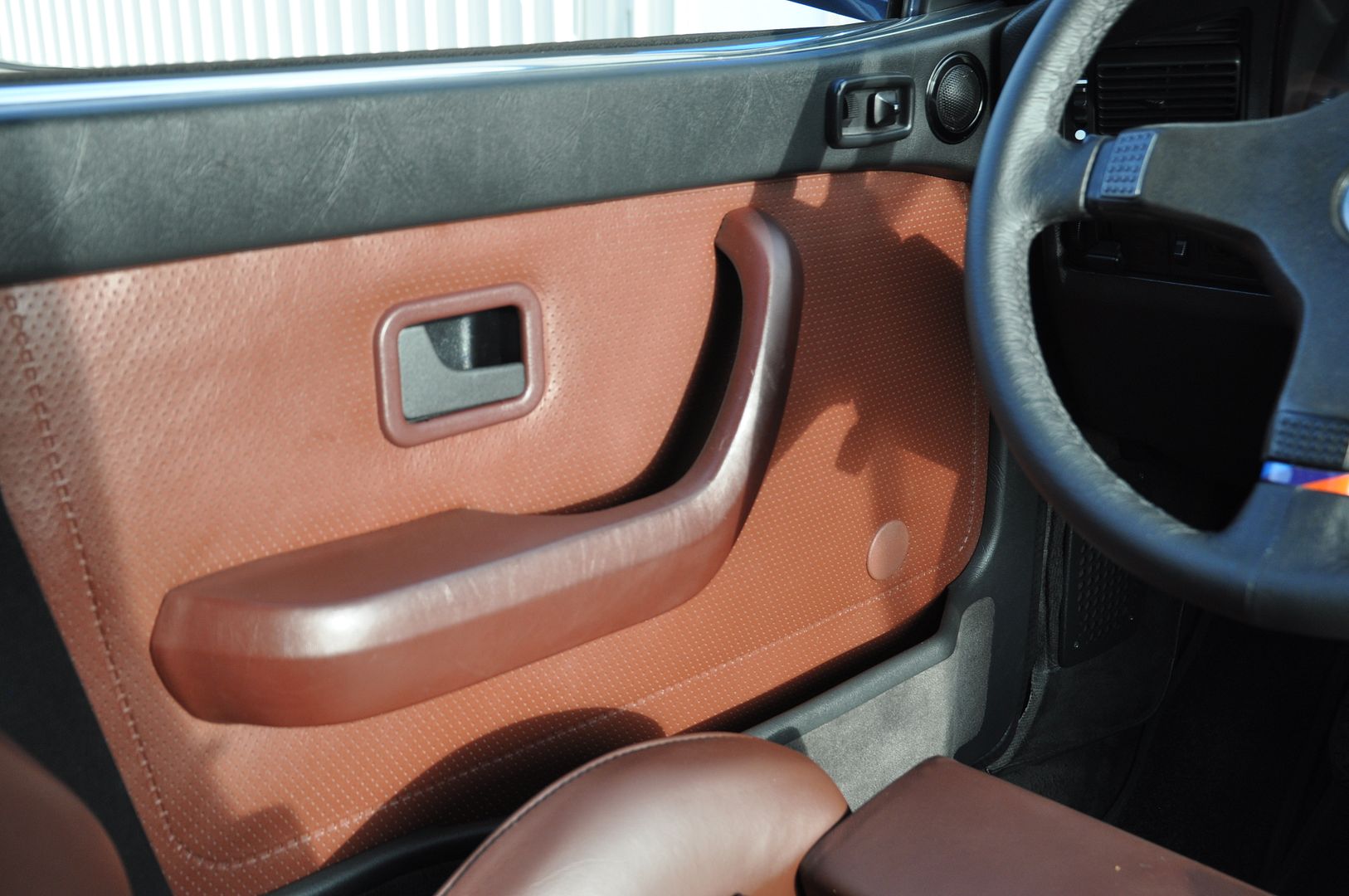
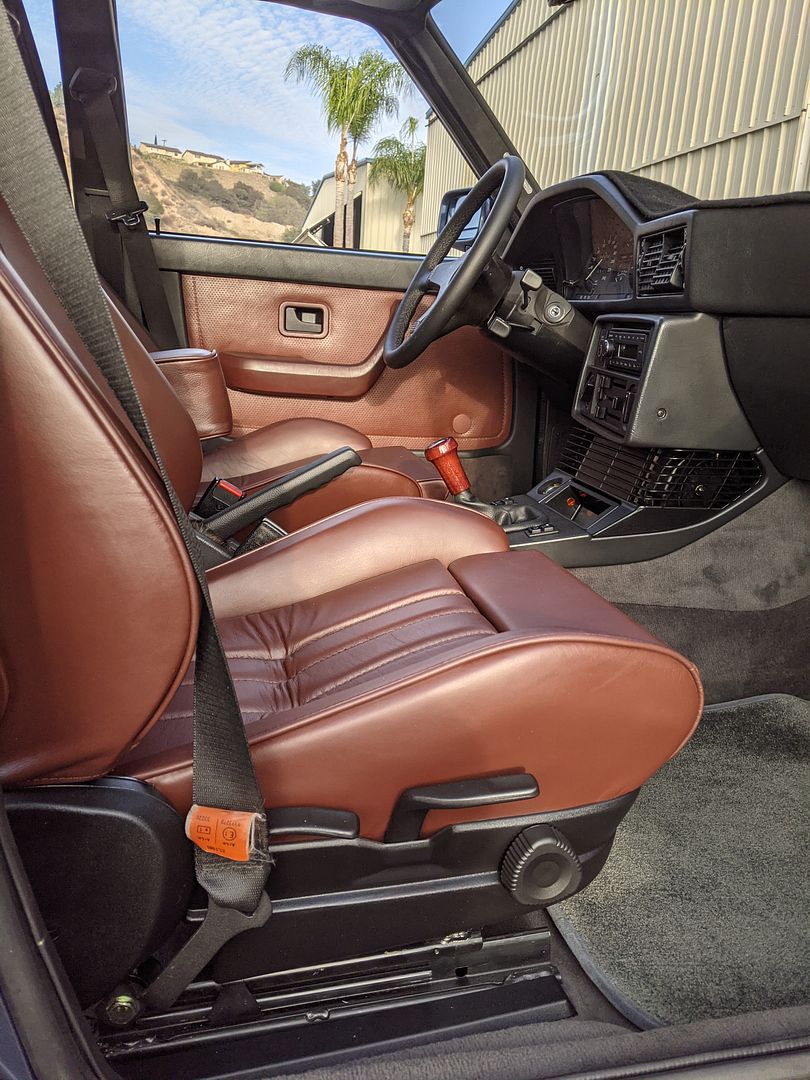
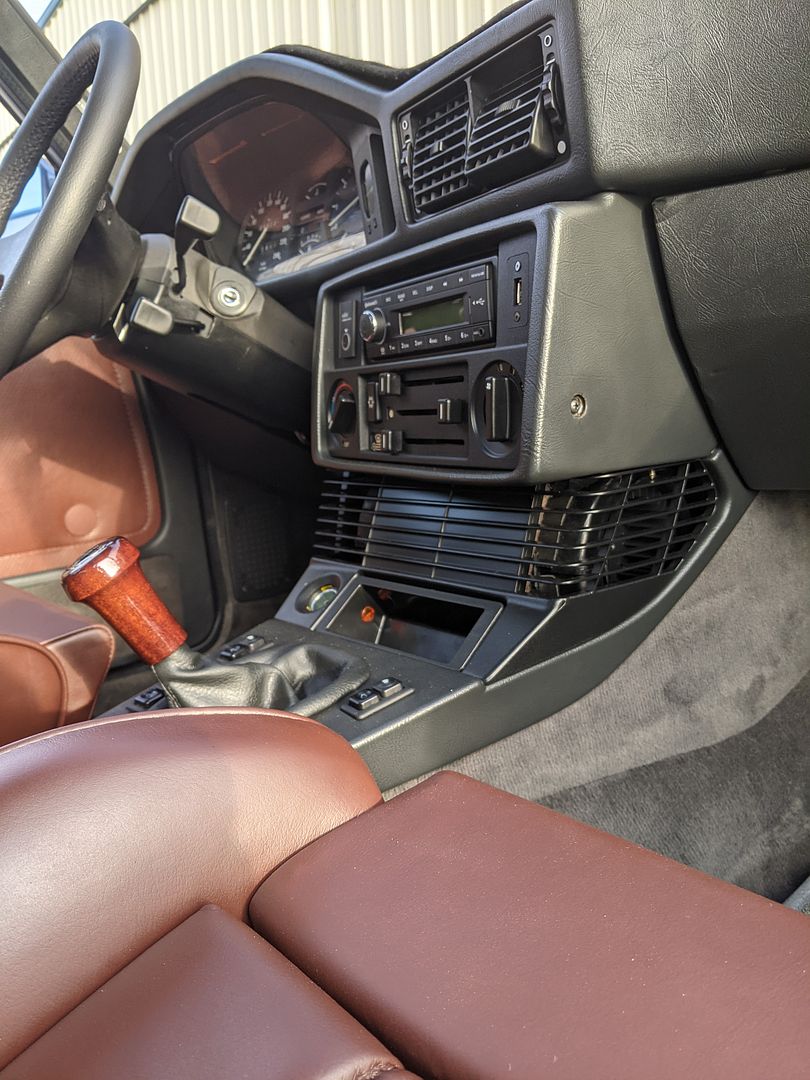
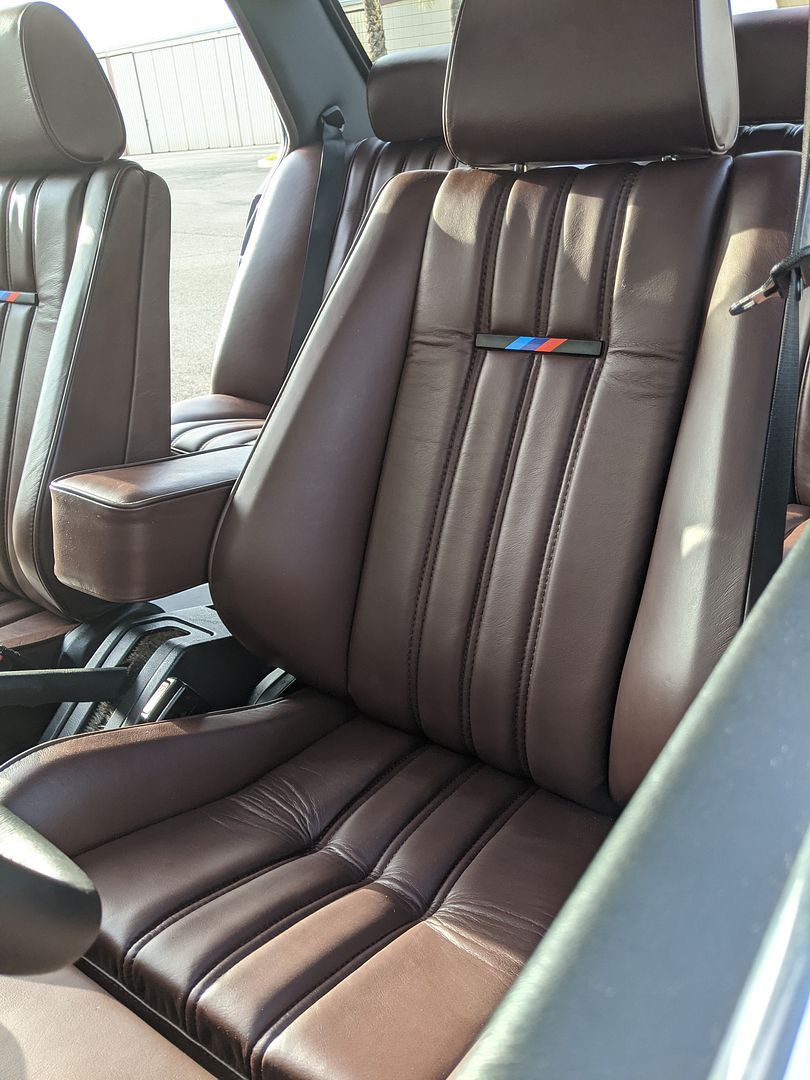
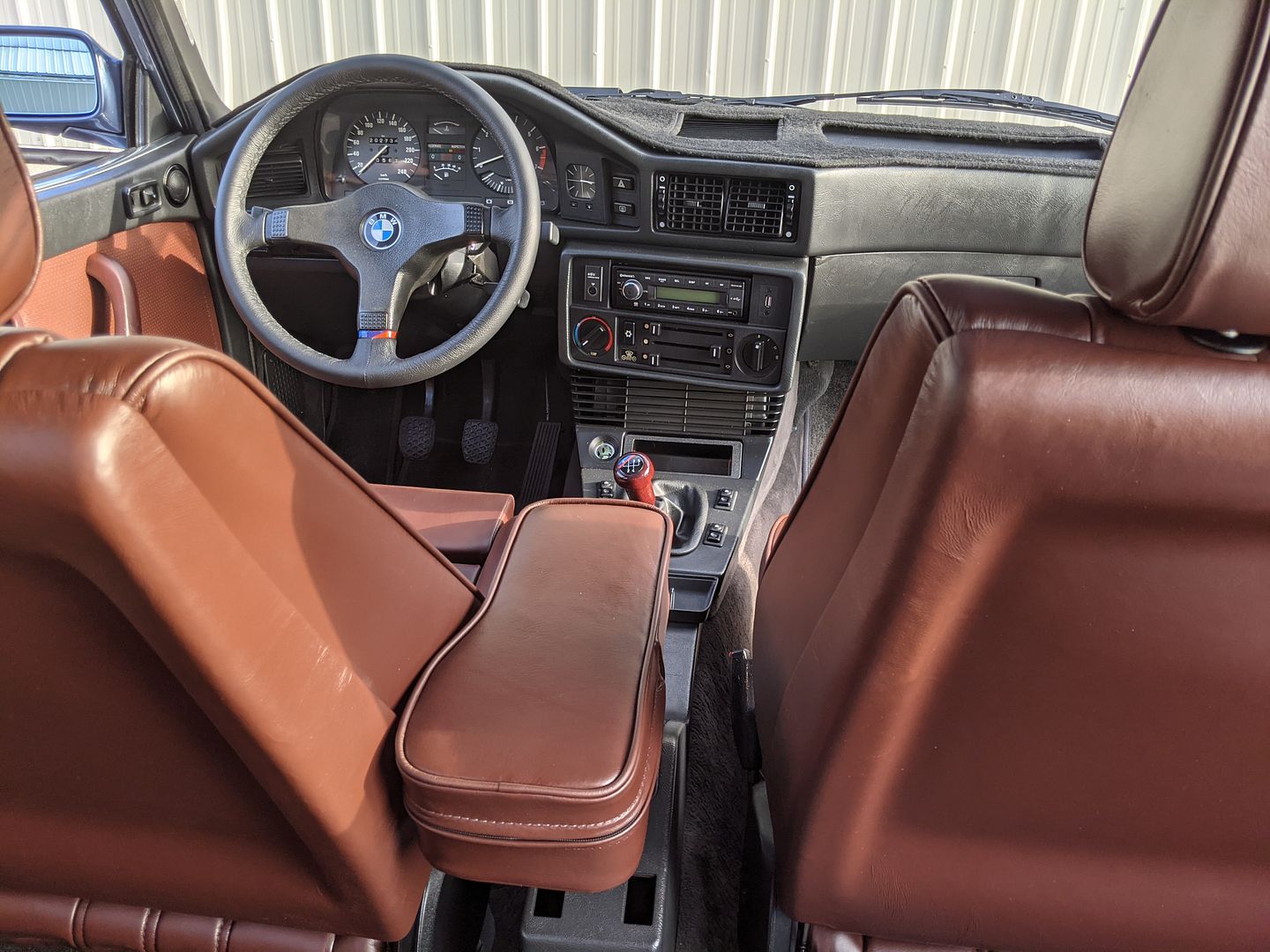
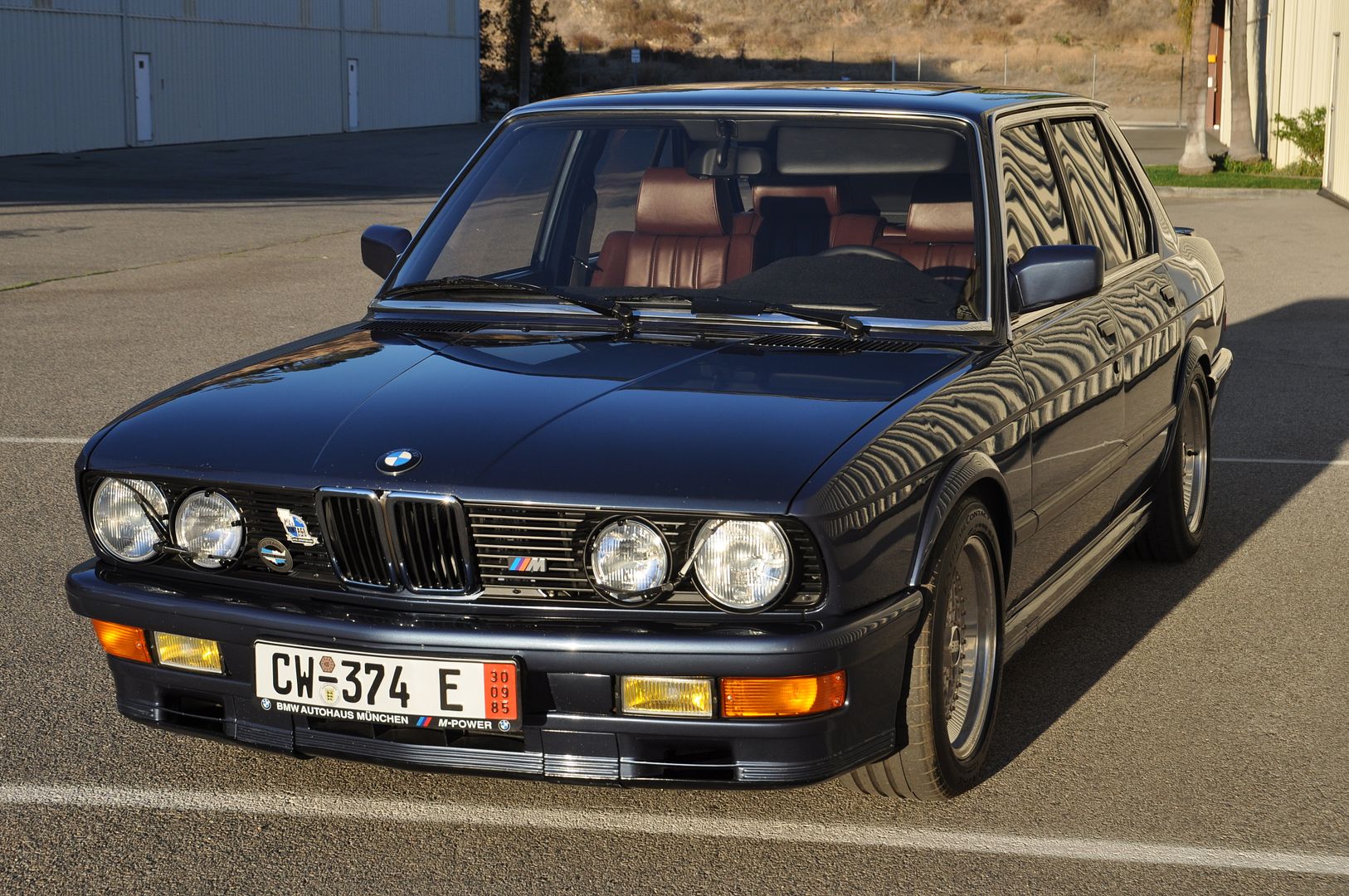
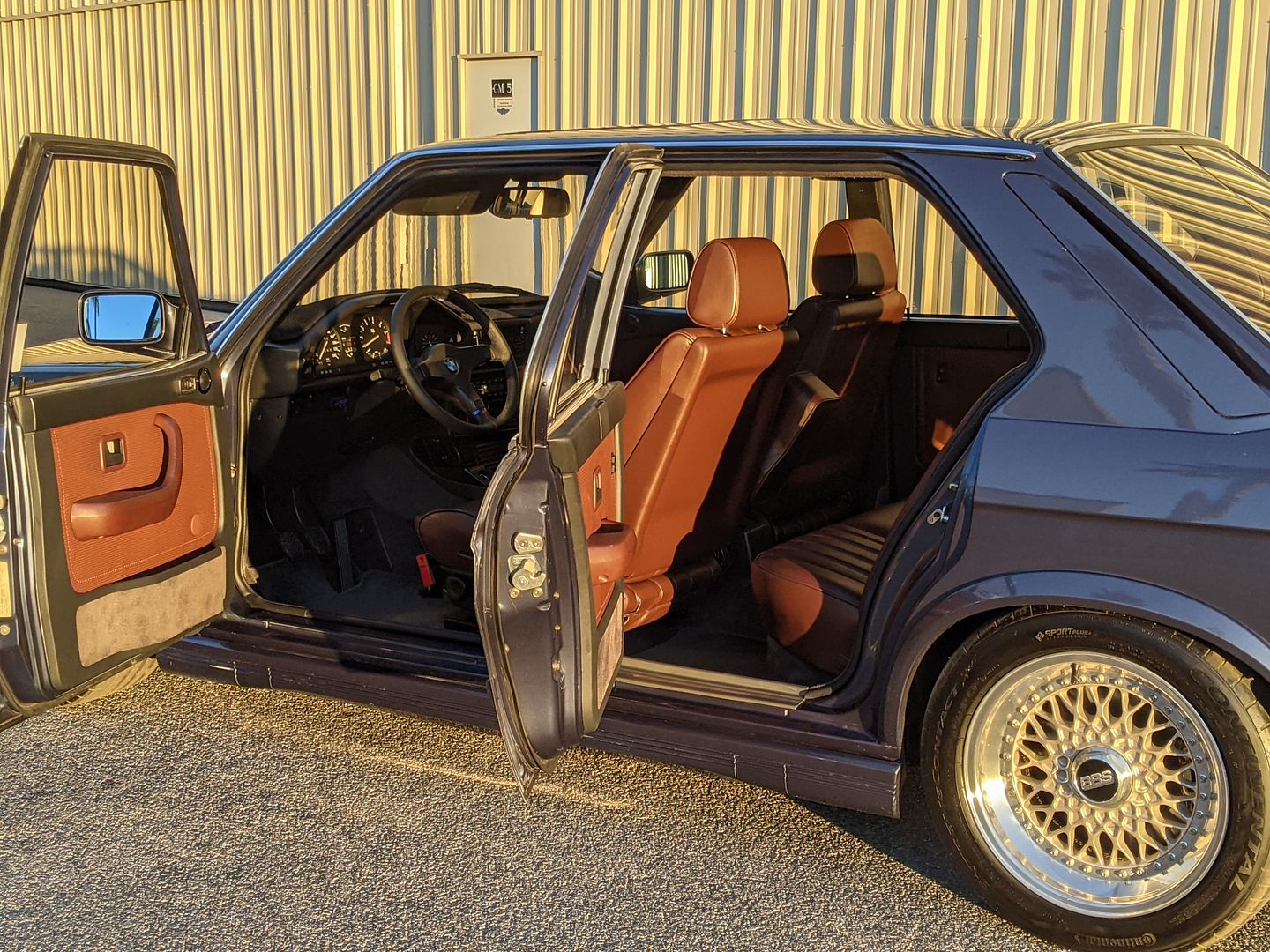
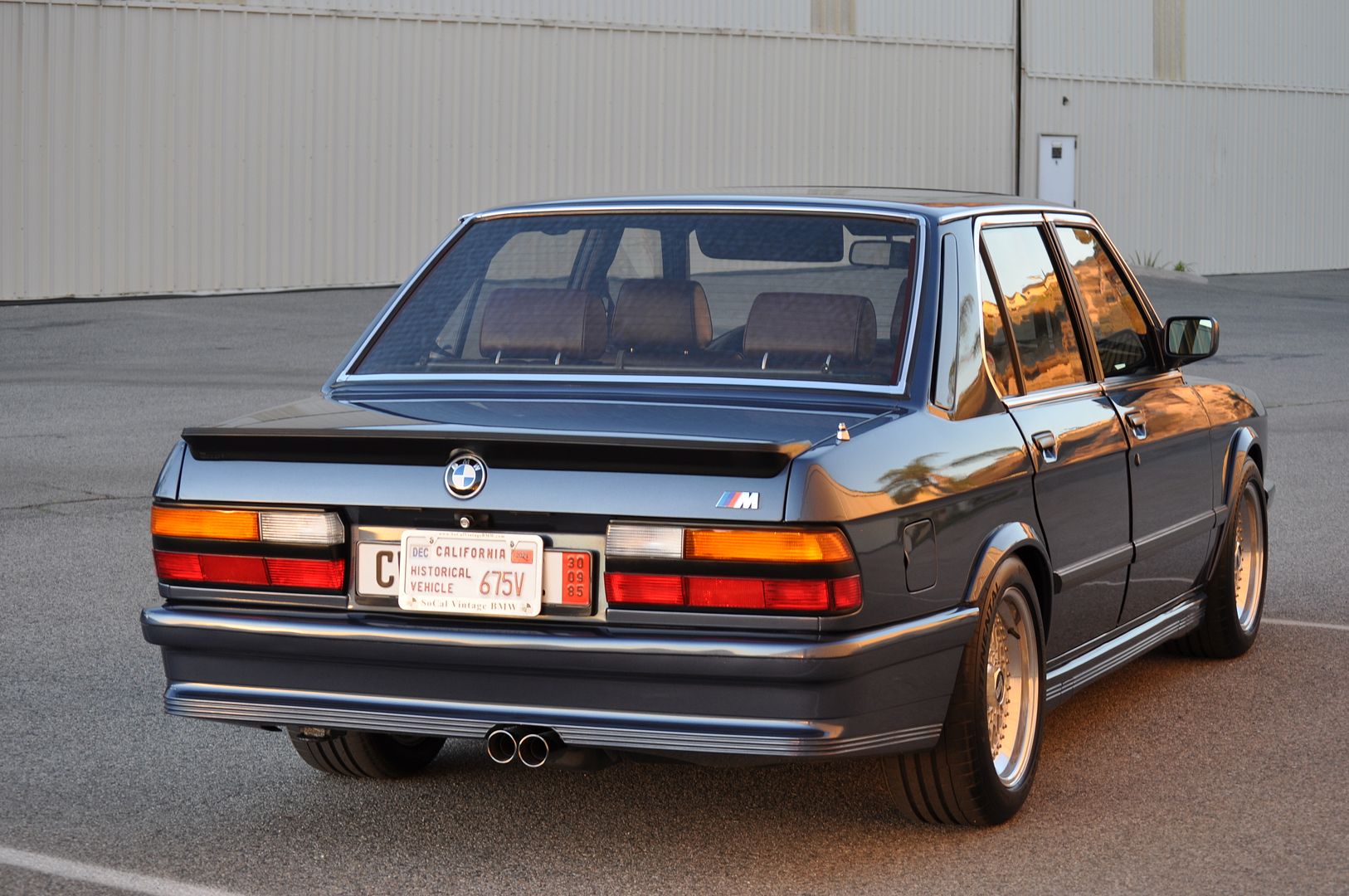
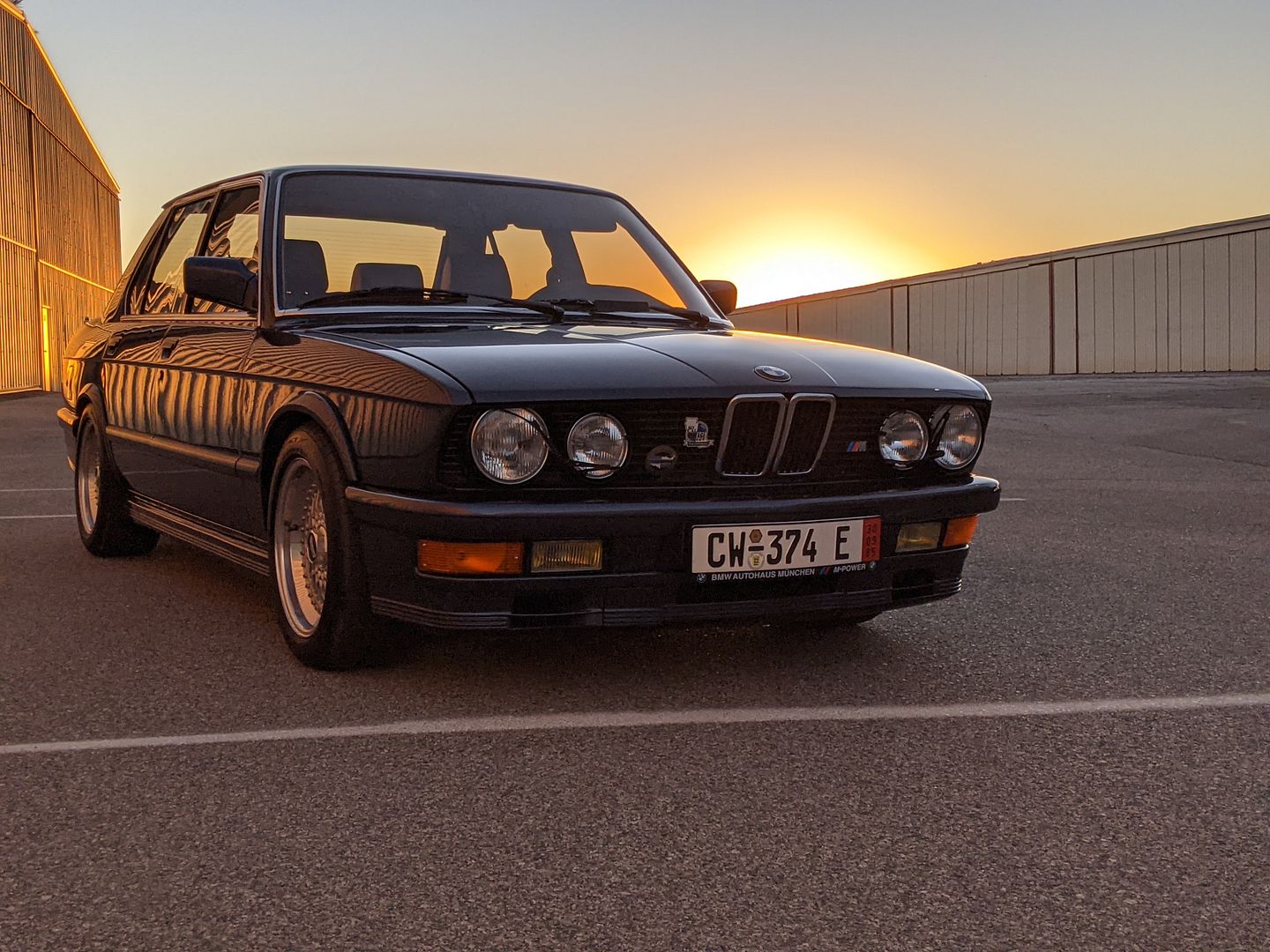
Also, I don't know about you, but I always go into a bit of funk after finishing a big project like this; it's a mix of relief, exhaustion, boredom, contentment and a sense of loss at not having a schedule or list to be working on. Not that there aren't way too many other things I need to be working on, it's just that finishing a big project like this kind of saps my motivation for a while (maybe I really do need a vacation).
Here we are closing another chapter in this now 12-year ownership saga (the Saturday after Thanksgiving marked the day I made the decision to buy this car in 2010). The Interior Remodel is (mostly) complete and was officially debuted on 11/6 at the 2021 SoCal Vintage BMW Meet. I say mostly done since I do have a very long punch and troubleshooting list that needs mopping up, but I hope to spend the winter tackling that in a series of smaller project blocks. At least for now, I can rest a bit during the upcoming holidays and not have the car to worry about. I still have the house projects to deal with as well (turns out the Dining Room project was negotiable).
So, where were we? Yes, September and trying to complete the interior re-installation.
After attending a great get-together in Reno, NV with a lot of folks I’ve not seen in quite a while, I felt renewed to get back into this project and get it done by November 6th (which wasn’t a lot of time considering all that had to get done still).
DOOR WIRING BOOTS
One of the things I returned from Reno with were a pair of Ivo’s newly reproduced rubber door wiring boots for the front doors. Mine, as I am sure most of everyone else’s, are pretty shot after 30+ years of exposure, opening & closing cycles, and general neglect. These went NLA from BMW long ago so when Ivo stepped up and made new ones, a lot of folks were ecstatic especially those in the middle of restoration or resto-modding their E28. This was kind of a bummer since I had already closed up and completed the driver’s front door panel, so replacing the boot now meant I had to disassemble the entire interior door panel; but now was the time. Oh well.
I actually took step-by-step photos of this process even though the whole thing is not very complicated, but here goes:
Step 1: Remove the existing interior door panel, armrest, door latch and door cap. Also remove the poly vapor barrier behind the panel (if you still have one); don’t worry about saving it as you can use Con-Tact adhesive film to replace it.
Step 2: Make sure your window is fully closed so you have complete access to the inside of the door. Locate the main wire loom as it runs along the bottom of the door panel and is clipped/zip-tied to the door itself. There are smaller wires running up to the side view mirror, the Premium tweeter speaker (if you have one) and one to the door lock. There are 4 connectors of varying sizes and shapes, the largest barrel connector going to the window motor. Label and disconnect each connector and free up the loom from the clips and ties. The old cloth tape will either be disintegrating, extremely dirty, sticky and tacky or all of the above. It is not a bad idea or practice to remove as much of the old tape as possible and apply new Tessa cloth tape. But before you do that, go disconnect the ground on the battery because the next step involves cutting off all the connectors on the wire loom. If you don’t, the central lock system will trigger as soon as it loses the ground connection at the door lock module (be sure to both label and photo each one and leave as much wire as possible before the connector for splicing in later). Trust me, the first door I tried I only cut off two or the largest connectors (one barrel and one flat square) and then spent the next few hours struggling to fish the loom and connectors through the new rubber boot. Even with wire snakes and Electrician’s wire lube, it wasn’t happening. Don’t fight it, just snip the connectors off and be sure you have a lot of the proper sized butt connectors and heat shrink tubing for the repairs (along with a good heat gun).
Step 3: Once that is done, go into the door jamb and carefully pry out the existing rubber boot from both the door and the body (be sure to use plastic trim tools so as not to scratch the paint). These may actually fall apart if they’re that far gone. Then pull the wire loom out through the door panel; it is lapped up and down and sideways around the window guide rails and other objects so you will have to get in there and fish it along (it’s a good idea to where long sleeves and HD nitrile gloves since you’re bound to catch your arm or hands on something sharp in there). Remove the existing rubber boot, or what’s left of it and toss it in the trash (or give it a Viking Funeral as it served you well for many decades and deserves your respect).
With the rubber boot and wire loom out of the way, you now can access the metal backing cup/plate. It is likely this plate is suffering from the elements also, there are two small Phillips screws holding it to the body that are likely rusted. Shoot some PB Blaster in there and wait to pull them out. If yours looks like mine did, you need to sand/grind off the rust on the plate and re-paint it. You may need to address the screw holes in the body as well; a narrow brass wire brush gets in the holes and cleans them out nicely. If you have some body paint, Q-Tip a light layer into the holes to protect the metal (otherwise any black Rust Block primer works also in a pinch).
Step 4: Now onto the fun part: Installing the new Boot. This is not particularly hard now that you have removed the connectors, but the S-shape to the boot takes some effort to get the whole loom with the smaller pig-tails through it. I found a large pair of medical forceps and long thin Phillips screwdriver makes this easier. Once that is done, go about re-installing the wire connectors, it’s a very Zen exercise:
-Strip the wires
-Crimp on quality bare butt connectors
-Melt on proper sized heat shrink tape over the connectors (be sure to stagger the connectors in the loom)
-Cloth tape the whole loom to cover everything
Step 5: Re-install the wire loom back through the door and around the window lifter guides. Re-connect the connectors and clip/zip-tie the loom back to the panel. It’s important to put it all back the way it was so you avoid trouble when you raise and lower the window. Re-connect the battery and test everything before you button up the door panel. Slip the new wire boot into the door and body openings, using the plastic trim tools is necessary.
Step 6: Re-install the interior Door Panel and Cap and all the trim plus the door latch handle. This includes the new vapor barrier of your choice (you can see what I did below).
Done. I am assuming the rear door boots are similar but I haven’t seen these yet from Ivo.
[As of this posting, Ivo released a picture of these but are not yet ready for sale.]
FINAL DOOR PANEL FINISHING:
I didn’t mention this earlier, but this is the opportune time to clean out the interior of the doors, address any rust, clean out the weep/drain holes and maybe even clean and lube the Window Lifter Regulators (this requires a complete disassembly of the window and exterior trim, but you’re a quarter of the way there with the door open, so perfect time for mission creep).
As part of my continuing efforts at sound and thermal control I replaced my Con-Tact poly liner vapor barrier with a more substantial product (although I did apply a layer of the Con-Tact to the back of the Interior Door panel on the new hard tempered board I used. It is not really needed but I had a roll of the stuff and thought why not?).

My barrier product of choice was (yet another) Heatshield Products item: db Defender Door Panel Sound Insulation(https://www.heatshieldproducts.com/soun ... b-defender). It's 0.045” vinyl dampening sheet with a self-adhesive backing that has some substance. It’s a good idea to unroll this stuff and let it uncurl in the sun.
I found the best way start was to template the Door Panel by tracing it on the material to get the correct size and shape. Then hold it on the door to mark the holes for the clips, door latch and other handle trim connections. The stuff is easy to cut and trim with an X-acto knife or other small sharp blade.
Thoroughly clean the door and hit it with some denatured alcohol then peel off the backing paper on the Defender as you start fitting it to the door. A rubber roller is a good tool for pressing it onto the door. Once it is firmly pressed onto the door, follow the instruction and hit it with the heat gun to get it to adhere come completely (although this step didn’t really achieve the results they show in the instructions, it kind of shrunk only a tiny amount). At this thickness the Defender doesn’t really add much dimension to the overall interior assembly so it didn’t interfere with any of the clips or connectors and I was able to get a solid panel contact.

On that note, be sure to buy a good amount of those stupid plastic panel clips (PN: 51-41-1-870-718). BMW has changed this design little in the ensuing years (the only difference is now they are bright green instead of clear white). They are next to impossible to get out cleanly and break if you look at them funny; doubly so if you miss the hole in the door and crush them when trying to fit the panel. They are relatively inexpensive and very available from all vendors (buy 2x to 3x more than you think because your WILL break a bunch).

Wash, Rinse, Repeat for the other three doors.
Done with those, onto the next items.
[Since I don’t have the Rear Wire Boots yet and I still have to replace the exterior Window Trim on one of the rear doors, I held off doing all that to the Rear Doors. I simply installed the interior Door Panels back on with the existing poly vapor barrier (I had replaced this with Con-Tact film 5 years ago during the last project). When I get the Boots I will go back into the Rear Doors.]
INTERIOR TRIM:
This is broad category since it involves buttoning up the remaining parts and components on the front dash, center console and misc. Some highlights:
Center Console: Parking Brake Handle & Gear Shift Knob and Boot
I highlight these because these were a cosmetic upgrade from stock (except for the Shift Boot as this is a BMW stock item in Anthracit).
Parking Brake Handle: The actual steel handle is covered by a thin molded plastic cover. Over the years it has likely seen better days and is straight-forward to replace. The part is still available from BMW and oddly one of the less expensive items (+/$10) you can get.

Getting the old one off is more of challenge since it is likely stuck on there after 30+ years but with some effort and long thin flat bladed screwdriver it will come off (I suppose you could cut it off in a pinch if it won’t budge). It is best to remove the entire Center Parking Brake Console before tackling this as it will be in the way. I opted to have the replacement covered in leather to match the new Steering Wheel materials. Chris Scow (www.LeatherWheels.com) did both for me exceedingly well. He actually called me to confirm how I wanted the stitching to be done on this handle; nice customer service.




Installing the newly covered handle was a bit more challenging though since it was pretty obvious the leather tightened the handle so it had less expansion capability. It is a good idea to use something to ream into the handle cover to try to stretch it out somewhat. It took actually a large amount of effort to get the new cover down as far as I did before I called it “installed” (it is about ¼” shy of complete fitment but seeing as it took a socket, my 3 lb dead-blow hammer and a lot of electrician’s lube to get it down that far, I was happy I got that close. The button works and is accessible so I’m calling it a win). It looks and feels great and is a nice finishing touch to Center Console.




Gear Shift Knob: The M535i came with the original ///M logo Mushroom leather knob, but it too has gotten beat up over the years. Chris did offer to refinish this as well but warned me that it might not have the same dimensions (thicker leather) and is harder to get the stitching and seams correct. I have seen this also in the many (many) ebay replacements out there. Finding the actual Mushroom knob is a trick at the moment (I think it is NLA and/or they have superseded these with the contoured style knobs?). I did come across someone in Lithuania who makes a wood version of the Mushroom knob with the correct ///M overdrive 5-speed emblem (https://www.ebay.com/itm/274324714472?h ... SwmS5c2~h-)
I would prefer it to be slightly heavier and more solid as it doesn’t feel as heavy as the original leather Mushroom knob, but it feels good in the hand nevertheless and looks great offsetting against the Anthracit trim and Taurus leather. As mentioned, I managed to find a NIB old stock BMW Anthracit leather shift boot some years ago and stuck it in a box waiting for this very moment. I am happy with how this whole section came together style-wise.

Steering Wheel: I sent my original M-Tech I Steering Wheel off to Chris Scow at the same time to get re-covered in new black leather. The original was worn and starting to craze and just looked plain tired. I opted for the Montana(?) leather with more texture than the original smooth grain (the Parking Brake is done in the same leather). Not quite original and looking back on the decision, it was originally a mistake as I should have specified the smooth to match; but after getting it back and now driving with it, I’m glad I went with the textured as I kind of like the way it feels in the hands and gives me some grip. I did stay with the black stitching along with a new ///M Tri-color badge:



Trunk & Audio System: The Audio System in this car deserves an entire thread unto itself (and will likely follow this one; actually it is as much an ongoing saga as this whole M535i thread), but since I had to spend a considerable amount of time dealing with the system (removal, re-wiring, adjustments, re-installation) I need to mention it here as it was part of the original scope of work. A brief history of this system:
2017: I have had a vintage a/d/s/ component system with varying different Head Units since 2011 but in 2017 I cooked up an upgrade to this system that may have been inspired/willingly forced by El Guappo (Jay3), the car audio-guru himself. Up until this point I had a single a/d/s/ PH15 6-channel amp with an a/d/s/ 642Csi Processor, front & rear component speakers (a/d/s/ 344is front lows, Orion p.2Concept front highs, and a/d/s/ 325is rears) and one sub-woofer in a box in the trunk. I had a newer Kenwood Excelon X895 Head Unit that gave me AUX, USB, CD and BT telephone. The upgrade stemmed from wanting to replace both he HU and 325is rear speakers and quickly morphed into a re-design of my amp board with a significant boost in power to the system. This started with new a/d/s/ 300is rear plate speakers and a vintage Blaupunkt SQR88 Woodstock HU. The Woodstock is from about 1988 and is cassette deck with AUX input on the front panel with 4 channel output and most importantly is period correct for the car. My goal was to make an Audio System that, while not being original to the age of the car, would have been one that the owner would have graduated up to in the few years after they purchased the car. All the EQ in this system is dated from the late ‘80’s to very early ‘90’s and were all top of the line in their day (heck, it all still beats most of the modern tech even today).
2019: This new system took a while to figure out and gather the right components and wasn’t fully cooked until a few years later. The new system consisted of: (2) a/d/s/ Ph15 amps, (1) a/d/s/ 642iX Processor, (1) a/d/s/ A206 DIN Assignment Module, (1) 8” Coustic BassPump subwoofer, the same front speakers and the Woodstock HU. The concept is that the entire car is split down the middle acoustically with each of the PH15 amps handling the right and left sides (fronts, rear and one of the subwoofers in the BassPump). Each PH15 is conservatively rated at 300watts but in reality can handle much more, the Processor with DIN splitter assure the signals are properly routed and phased and can be adjusted independently (from both the Amps and Processor).
2021: This system proved to be very complicated and very finicky to adjust and get right; truth was I was chasing problems in this system from day one in 2017. This project was hoping to clear most of the remaining issues up since I had to remove the whole thing, wiring and all, to do the interiors. There were also some issues with the Amps overheating on long road trips and thermal cycling; I am still designing and R&D’ing a ventilation fan system to try to remedy this. In fact, I installed the relay and control wiring for it during this project as most of it is under the rear seat (see the photos below). Since a few of the main issues with the system may be stemming from the vintage Woodstock HU I opted to test drive an alternate new HU, a Continental TR7411U, which is ostensibly just a radio with AUX & USB inputs. I prefer the Woodstock as sonically speaking is far superior to the Continental, but it’s getting the job done for now. Thoroughly testing both HU’s is an ongoing exercise.





The other item in the trunk was refinishing my spare BBS RS211 wheel and getting new spare tire. Mike at Tru-Wheel in North Hollywood is one of the best and tracked down the correct paint to match my other four wheels. He now has the paint so my other four are going in for refinishing early next year.

Sun Visors & Headliner Panel:
One of the other items I had forgotten that I had (I really should do a better parts inventory) was a set of E28 M5 Sun Visors with Lighted Vanity Mirrors.
I had to pull the front Headliner Panel down anyway to install more thermal and soundproofing materials as well as fix the speed clip connectors anyway (they hold long screws that come down through the Moonroof front rail and roof which took me forever to find; I had to remove them from the old one and epoxy them onto the new replacement). This gave me a chance to swap out my old Sun Visors and install wiring for the M5 versions (I would have done this BEFORE the new Headliner material went in, but hindsight is 20-20 I guess), with the power and ground taps going back to my rear seat well and power distribution block in the trunk (I could have found closer connection points but I had closed everything up by then so I hadn’t left myself very many options).

[This was my first mistake: I had purchased these Sun Visors years ago from a long-forgotten source and never bothered to bench test them to see even if they worked. I seemed to continue that oversighted ignorance and wired them up and installed them as they were (however I did clean and treat them nicely). Turns out they don’t work, or my wiring is bad, or the bulbs are burnt out, or…any number of other reasons. They are now on the Troubleshoot List. Sigh.]
DOOR SEALS:
This is a work in progress fueled by two forces: 1) My continued pursuit to making the interior cabin of an E28 quieter since Door Sills are one of the weakest part about the door & window systems and 2) I somehow managed to misplace both the Front Door Seals (body side with the fuzzy trim) and the Front Door Sill Caps; infuriating since I can’t find a trace of them now but will probably in a year or two and also costly to replace.




Juan replaced the leather patches that are attached to the bottom corners of the rear seals and installed them when he did the Headliner, so I am starting with fronts as a test bed for some ideas on improvements. Turns out that used Door Seals are all in pretty bad/poor condition and not worth the efforts to clean and install these (thank you for those that happily sent me their used ones for me to use), so that left either BMW replacements which are still available new but godly expensive or going with some aftermarket variety. I put myself kind in a box since my original rears were installed already, such that they were, so whatever I used for the fronts had to match. This meant BMW parts (ouch), but in the meantime I did some eBay searching and came across a guy in Turkey that made a complete set of all four for a good price albeit missing the fuzzy trim. I decided to try them out and/or see if I could modify them.




Turns out these are actually very nice and robust and made to fit the entire door opening pinch weld including what normally gets covered by the Door Sill cap (BMW’s design stops at either end of the Sill Cap which breaks the seal and compromises any sealing ability; don’t know why they didn’t change this as they did with the E24 and all modern models). For now, I have installed the Turkish front seals without Sill Caps (I didn’t glue these in) and am looking at seeing if I can somehow combine parts of the Turkish seals and BMW Sill Caps to create a positive seal all across the door bottom. I did buy the BMW Door Seals with fuzzy trim (again: ouch) to install in the rest of the openings, but the bottom Sill Cap will be modified somehow.



SEAT INSTALLATION:
I saved the best for last in a way since I didn’t want anything to happen to these along the way. Besides I know it’s what a lot of you are dying to see since I’ve been leaking images of the individual components. I have removed and reinstalled the interior in this car many times up until now so I was not terribly worried that this part would prevent me from meeting my deadline of the SoCal Vintage BMW show (which was looming much larger in the calendar as the end of October was rolling around quickly by this point). Well, with all that new padding and leather installing both the upper and lower Rear Seat parts proved to take a LOT more effort than in the past and that was both my wife and I applying maximum force. That rear lower left bolt just wouldn’t line up for the upper back nor would the bench slide in under the upper back. Eventually after several attempts they both got installed (it took a longer ST Screw Bolt for the upper back to lever it into place) and we moved onto final finishing.



FINAL:
Well, here it is finally. I made it in time for the show albeit with a very long Punch/Troubleshoot List which I am scheduling in the calendar as this winter progresses. There are still some exterior body work repairs to tackle (hopefully in a few weeks before Christmas) as well another trip down the SMOG compliance yellow-brick road (luckily my last). The seats are extremely comfortable and sumptuous with all that beautiful new leather. The car is noticeably quieter with much of the road noise filtered out; it’s really just engine and transmission noise coming through now. No idea about temperature since I need to get on an extended summer road trip to see about that (although there may be some information bias at play here since I REALLY want this car to be quieter and cooler especially after all the effort and cost).
Overall, I am very happy with how this major project finished out; what do you all think?








Re: 1985 Arktisblau M535i Renovation - Next Chapter Done
Vince, the car is beautiful! And those seats... MONEY, almost looks too good to drive.
-
austin8753
- Posts: 1492
- Joined: May 16, 2010 1:37 AM
- Location: Portland, Oregon, USA
Re: 1985 Arktisblau M535i Renovation - Next Chapter Done
goddamn, that looks spectacular. thanks for sharing.
Re: 1985 Arktisblau M535i Renovation - Next Chapter Done
The carpet, of course, pulls it all togetherkojo96 wrote: Dec 09, 2021 7:12 PM Vince, the car is beautiful! And those seats... MONEY, almost looks too good to drive.
Re: 1985 Arktisblau M535i Renovation - Next Chapter Done
[/quote]
The carpet, of course, pulls it all together
[/quote]
Well, it is the first thing you see when you open the doors...
The carpet, of course, pulls it all together
[/quote]
Well, it is the first thing you see when you open the doors...
Re: 1985 Arktisblau M535i Renovation - Next Chapter Done
Just a fantastic result, Vince. Huge props to you for all of your efforts not only in the life cycle of this project, but also for the super detailed pics and documentation in this thread - no doubt it help many of us fellow E28'ers with our work on these cars. Oh yeah, and those seats in Taurus are just over the top delicious!
I have some history with this car as it was previously here in Denver. It is actually the first E28 M535i I ever saw in person, at a BMWCCA Sonic Drive In event sometime around 2001-2003 ish. Mark, the owner at the time walked us through the many differences on the Euro spec M535i versus a N.A. spec E28. I thought it was such a cool car and its rarity in the U.S. certainly helped with the intrigue. Little did I know at the time that a few years later (2009) I'd find my own M535i (still with me today).
Again, congrats on a spectacular car and many thanks for the detailed capture of its journey here!
Jim
I have some history with this car as it was previously here in Denver. It is actually the first E28 M535i I ever saw in person, at a BMWCCA Sonic Drive In event sometime around 2001-2003 ish. Mark, the owner at the time walked us through the many differences on the Euro spec M535i versus a N.A. spec E28. I thought it was such a cool car and its rarity in the U.S. certainly helped with the intrigue. Little did I know at the time that a few years later (2009) I'd find my own M535i (still with me today).
Again, congrats on a spectacular car and many thanks for the detailed capture of its journey here!
Jim
-
Adam W in MN
- Posts: 5053
- Joined: Feb 12, 2006 12:00 PM
- Location: Don't waste my motherf***in' time!
- Contact:
Re: 1985 Arktisblau M535i Renovation - Next Chapter Done
Beautiful results. I am not usually a fan of tan or brown interiors but this is a great color combo.
Re: 1985 Arktisblau M535i Renovation - Next Chapter Done
Well, it's neither but I can see in certain lights, Taurus can be construed as a shade of brown. When you see it in person, there is no mistaking this as anything other than a very dark red.Adam W in MN wrote: Dec 11, 2021 10:19 AM Beautiful results. I am not usually a fan of tan or brown interiors but this is a great color combo.
But thank you nevertheless.

